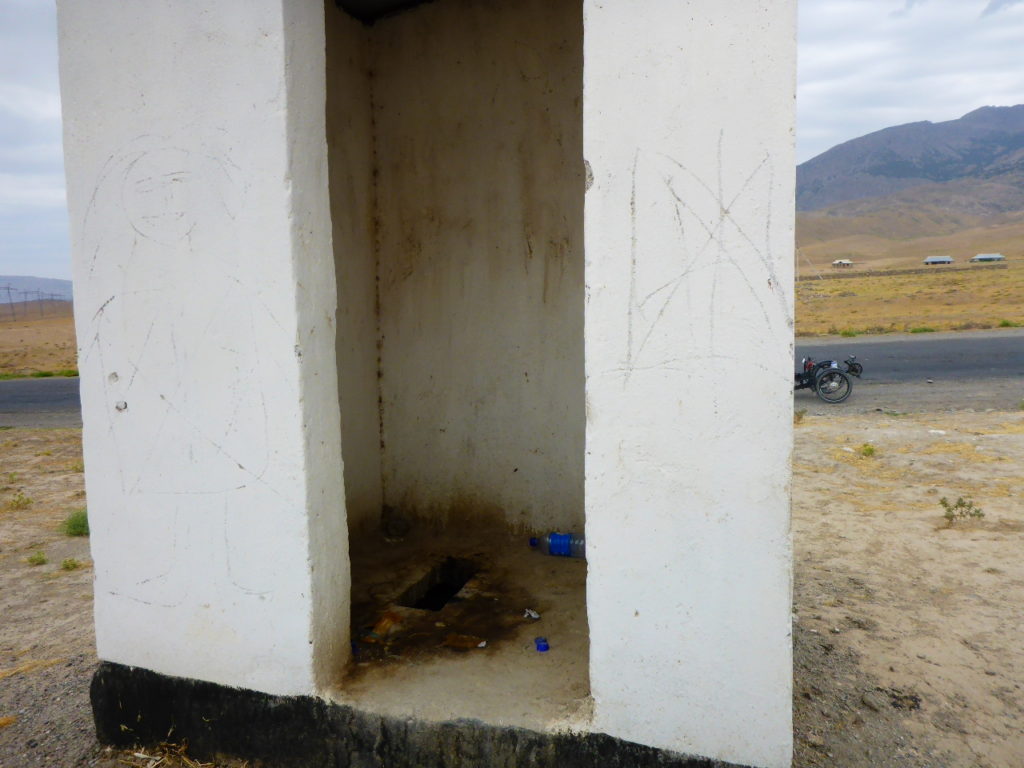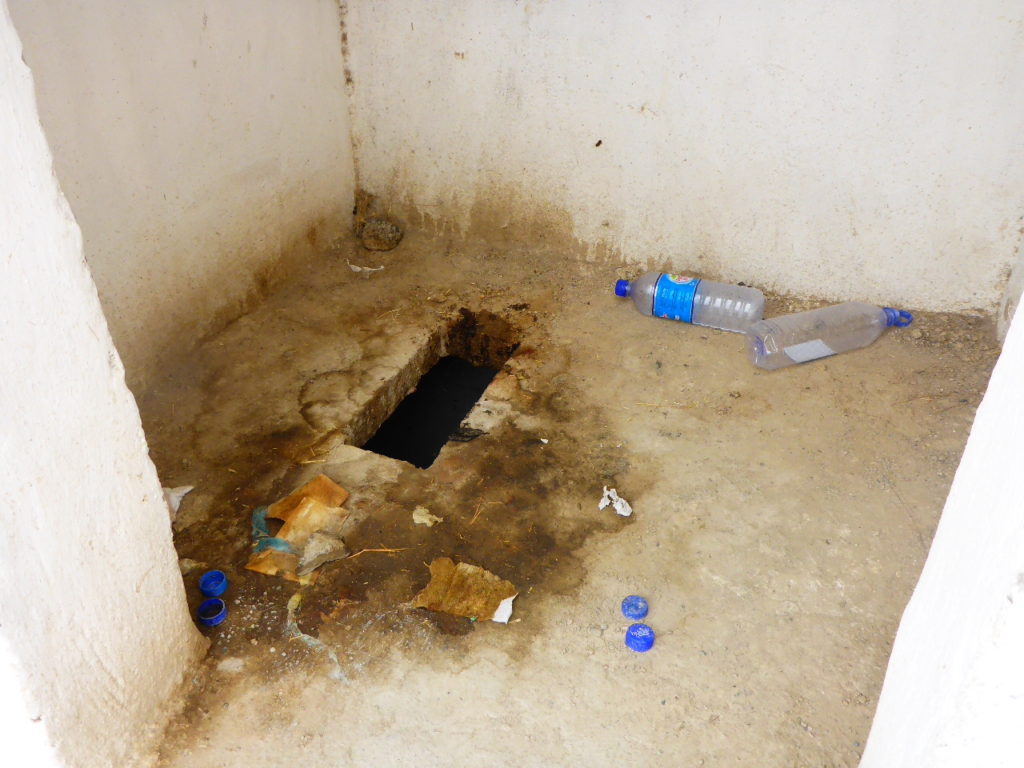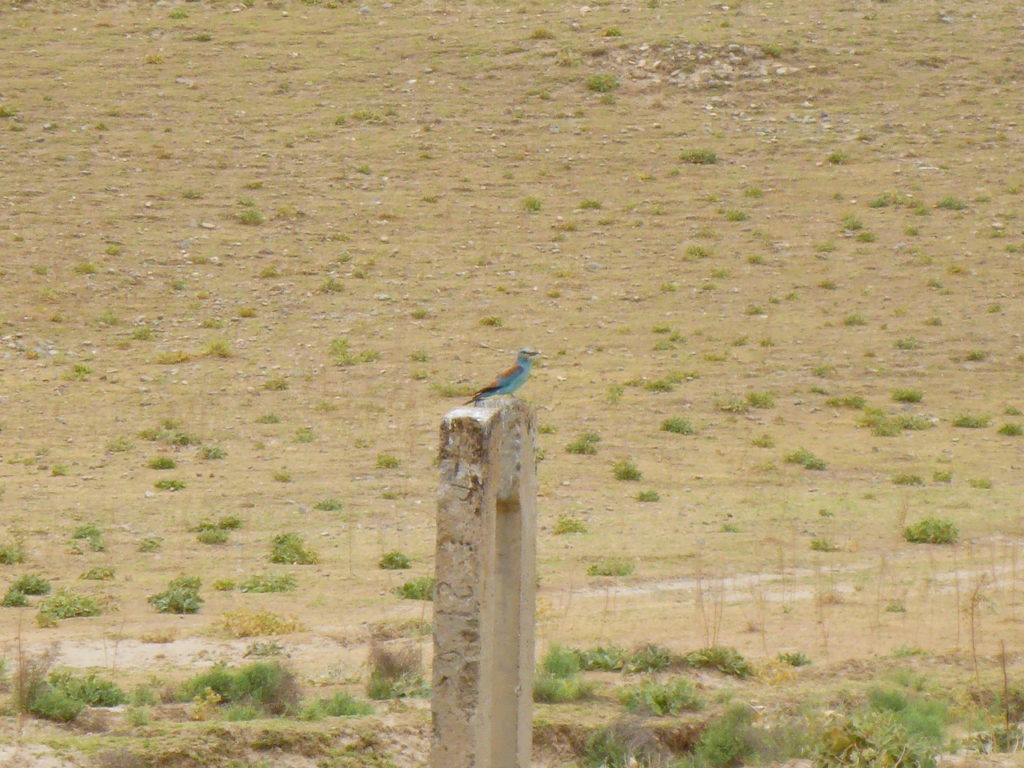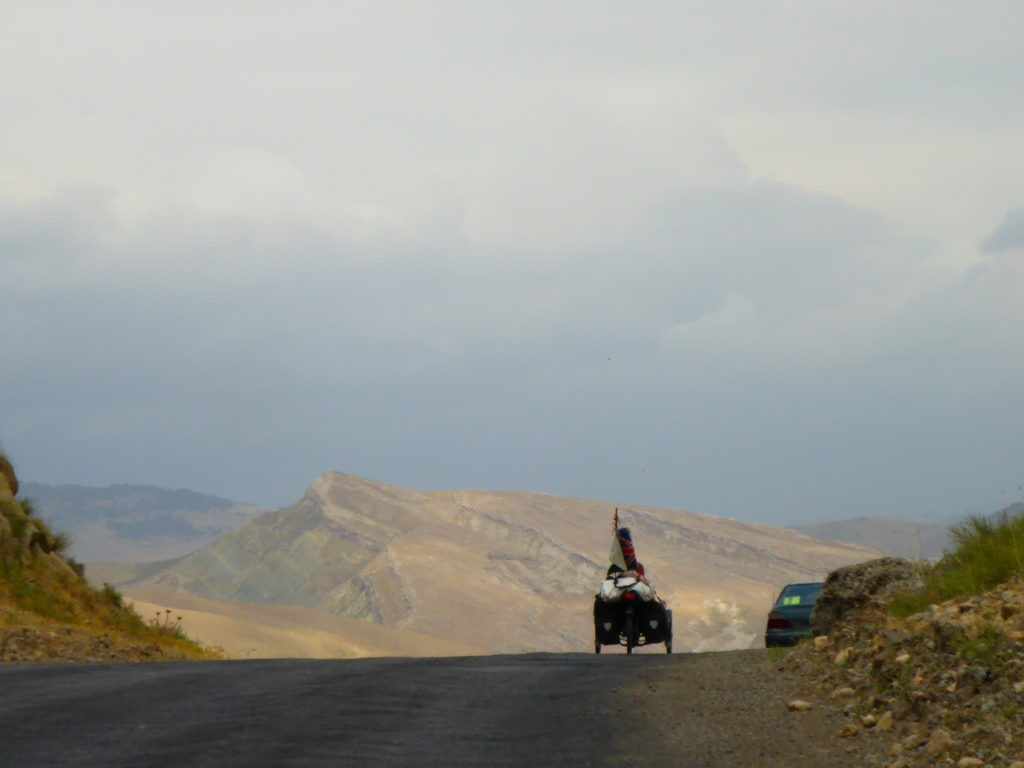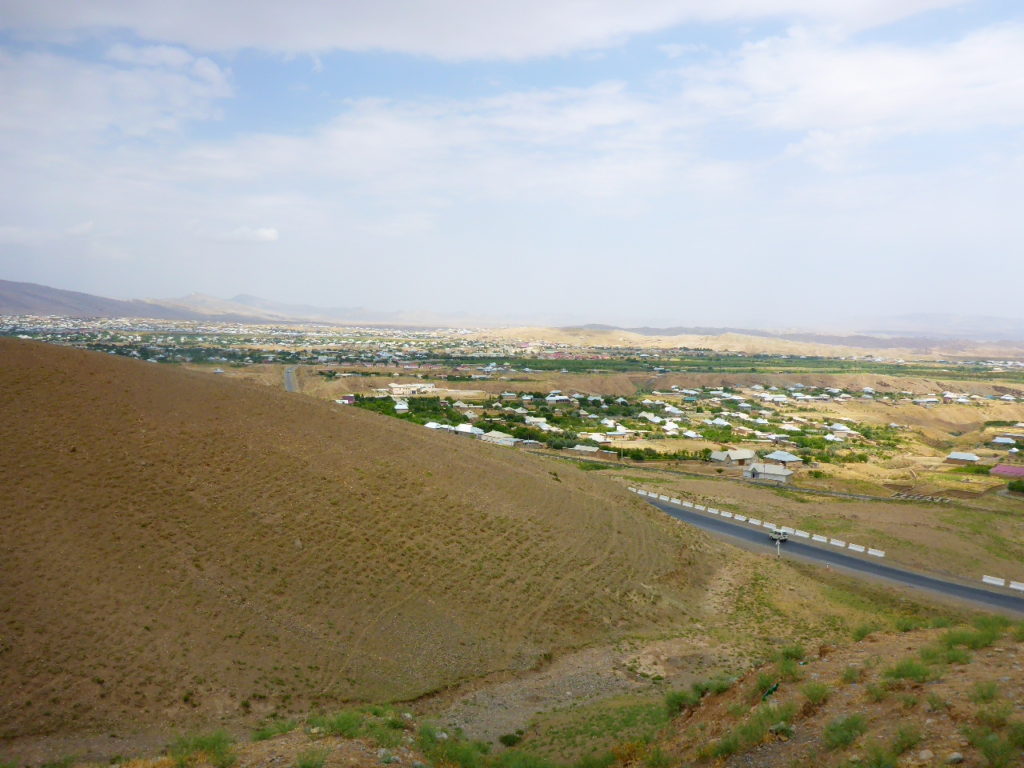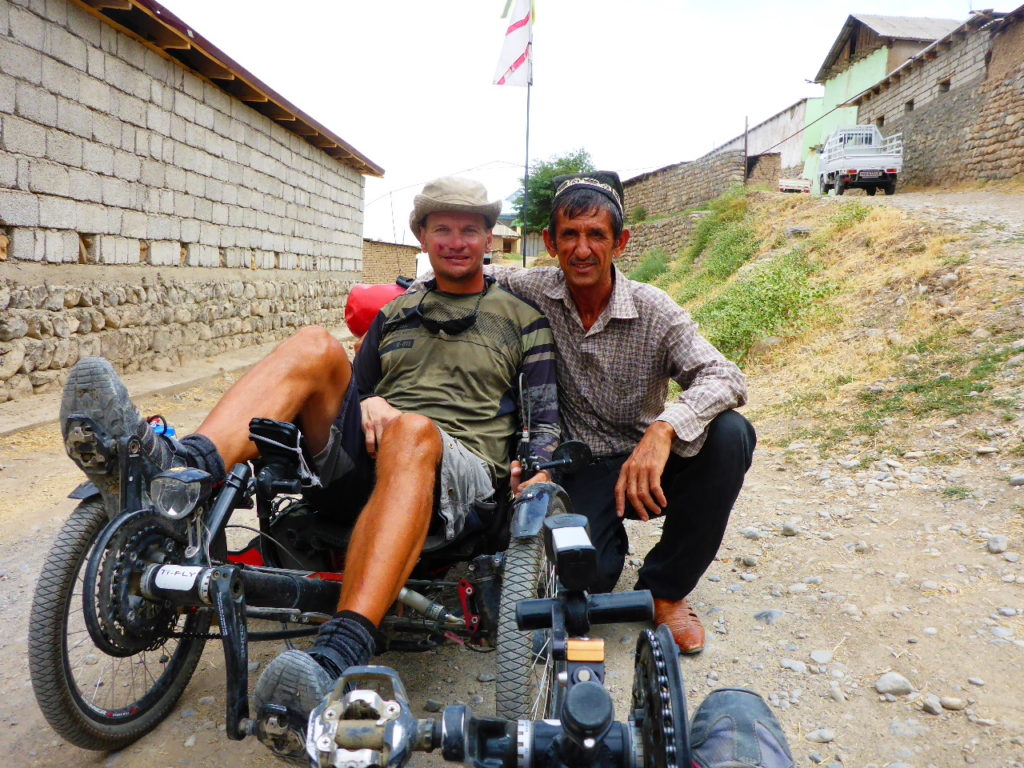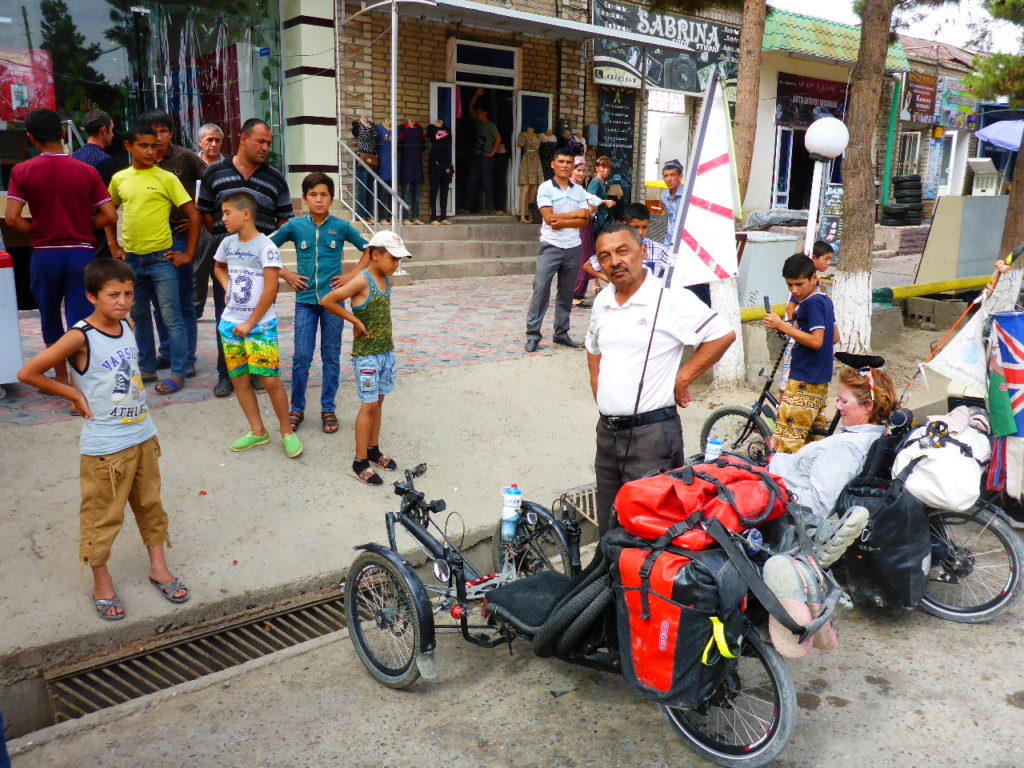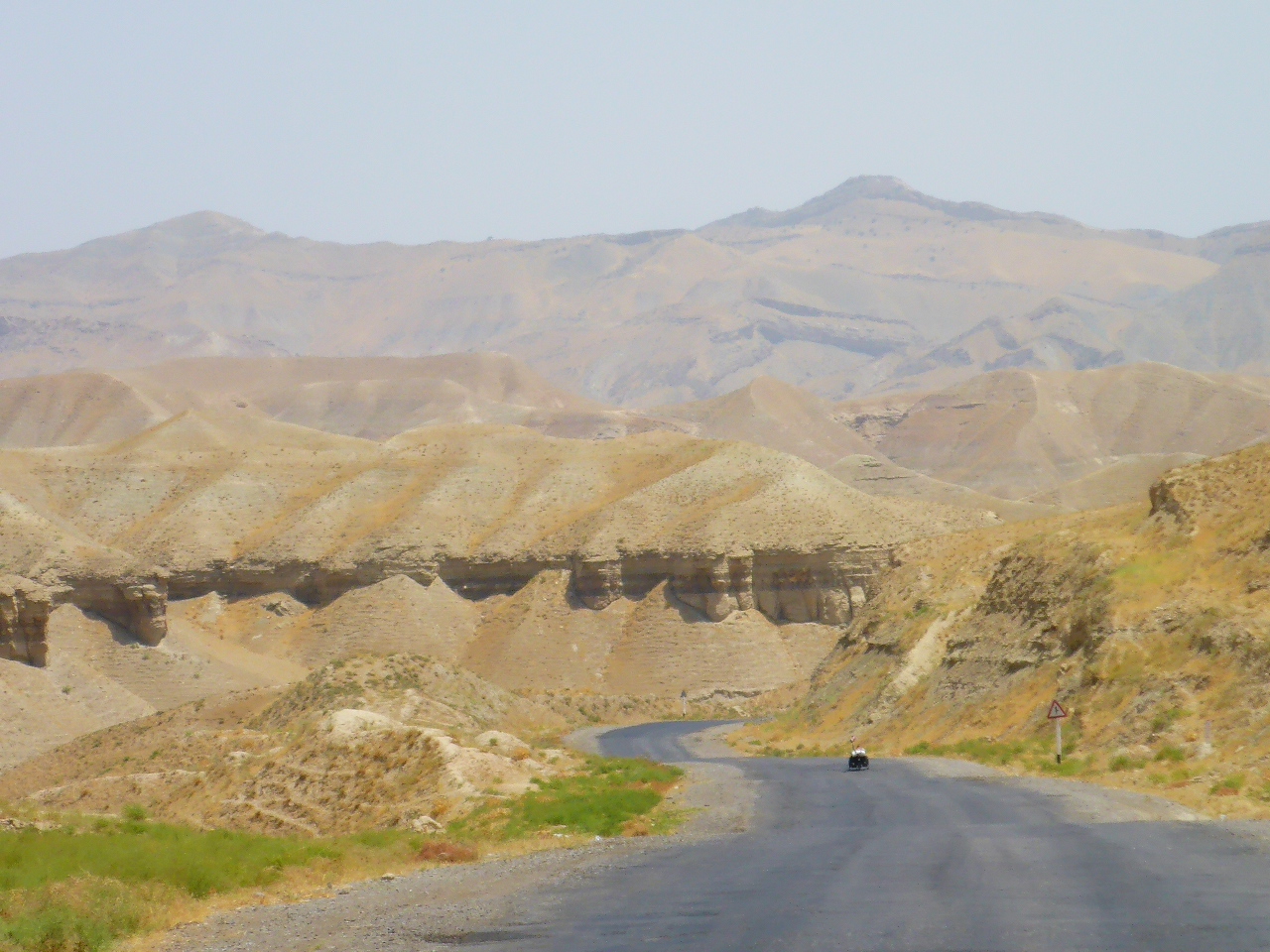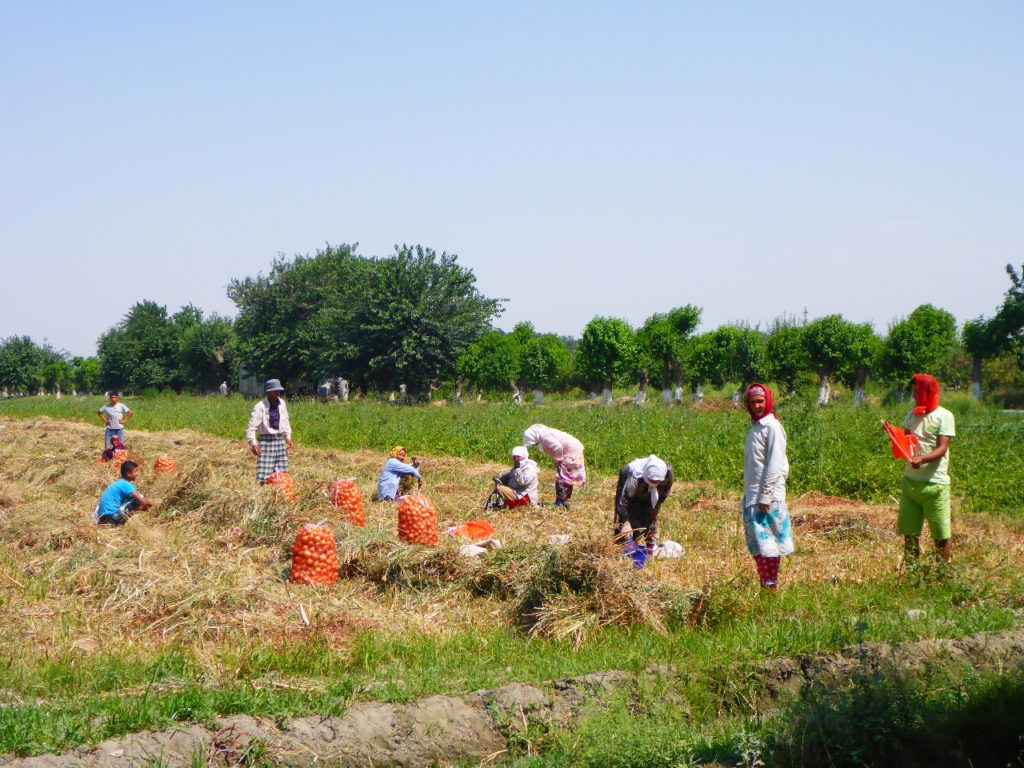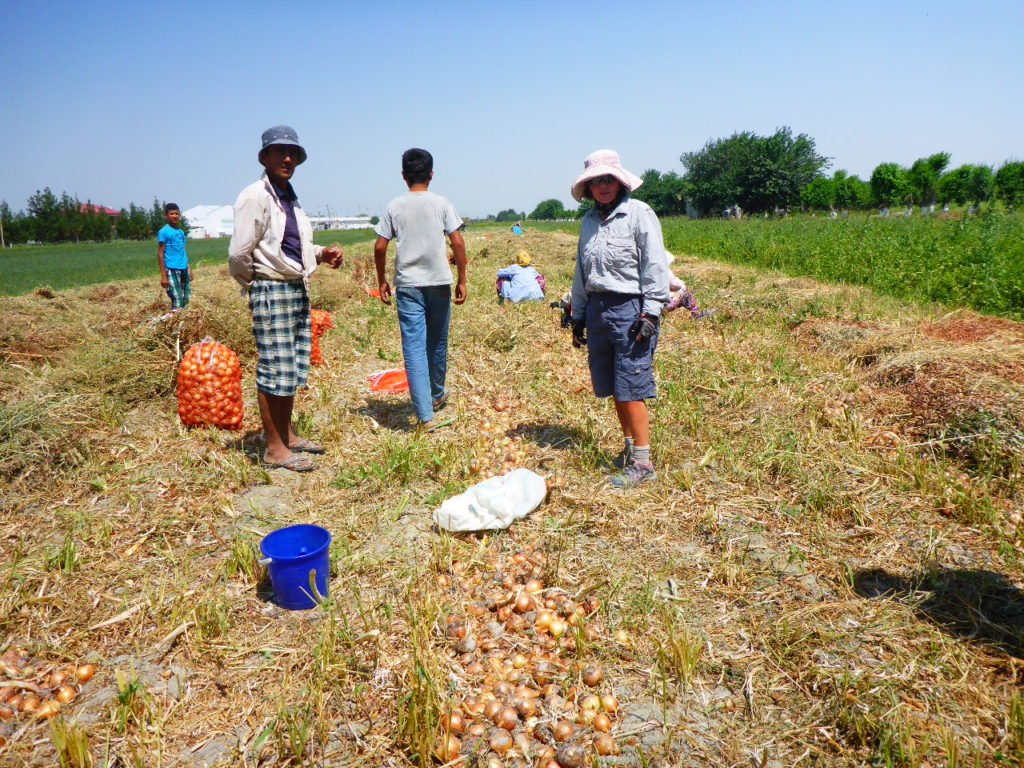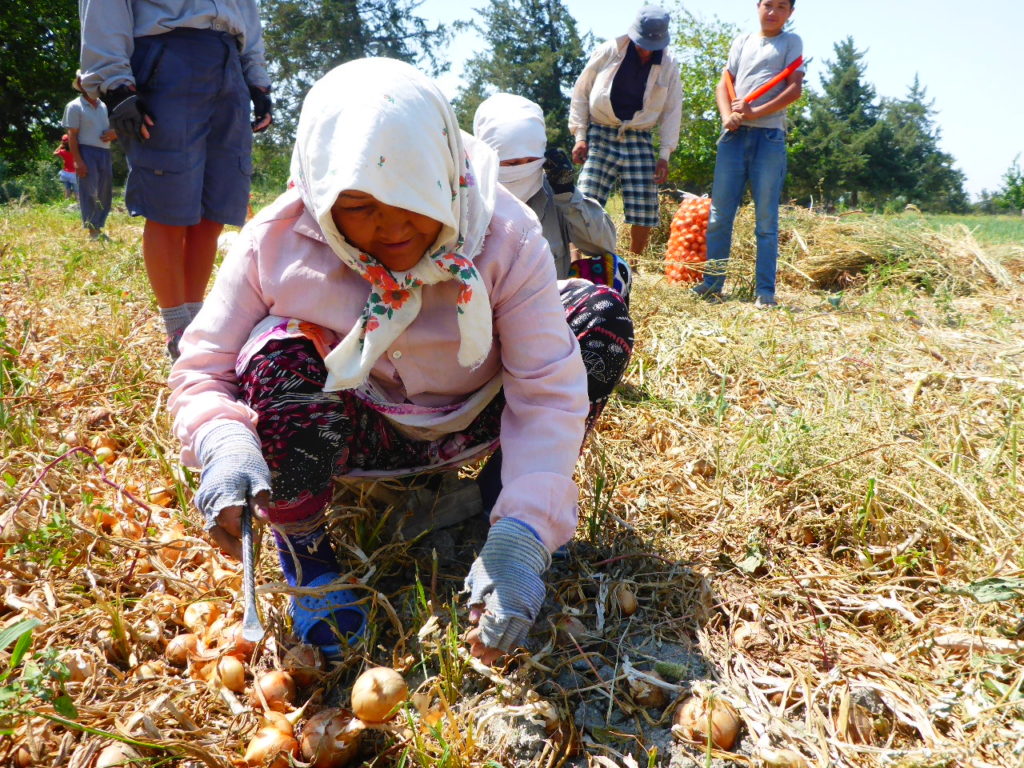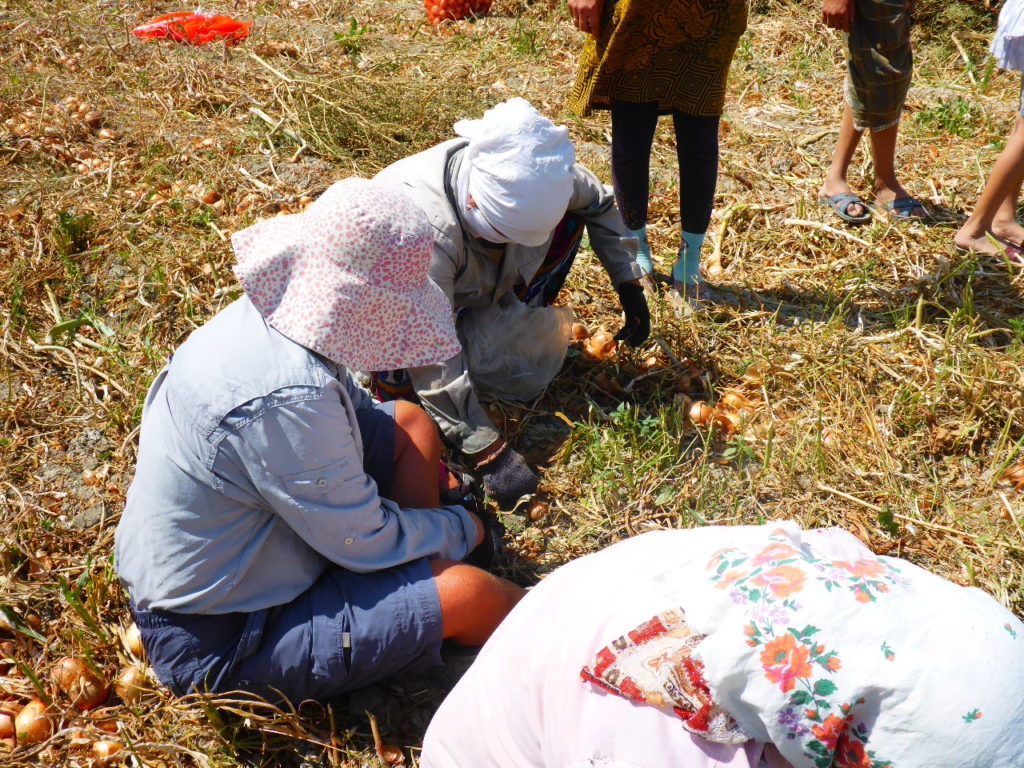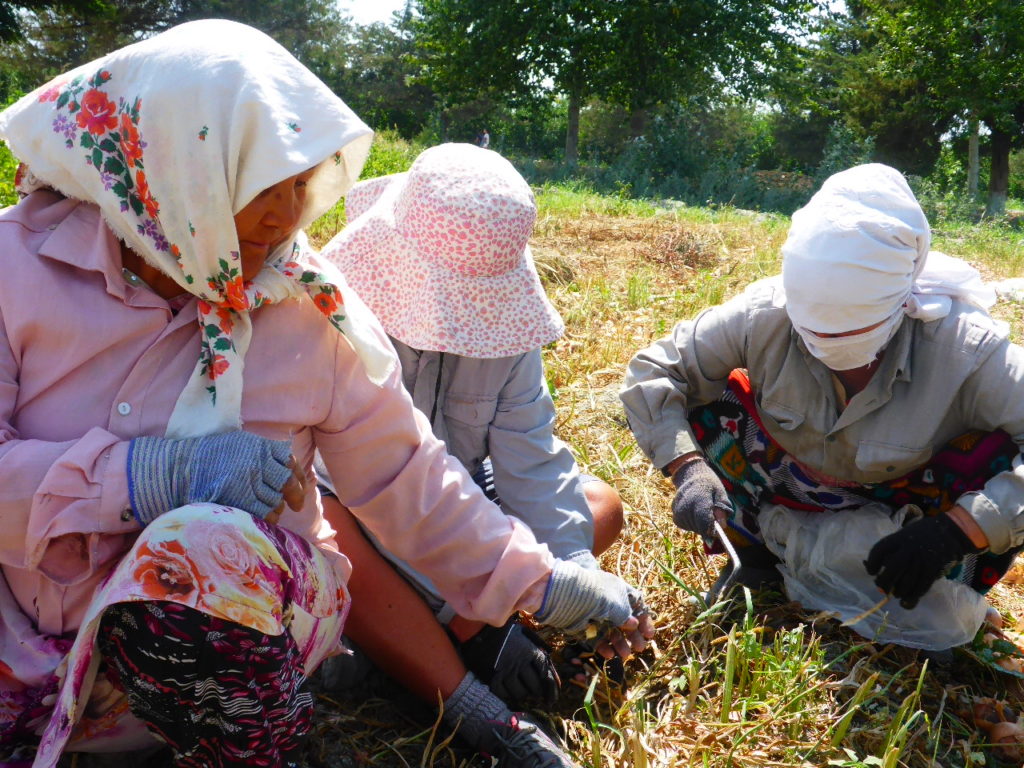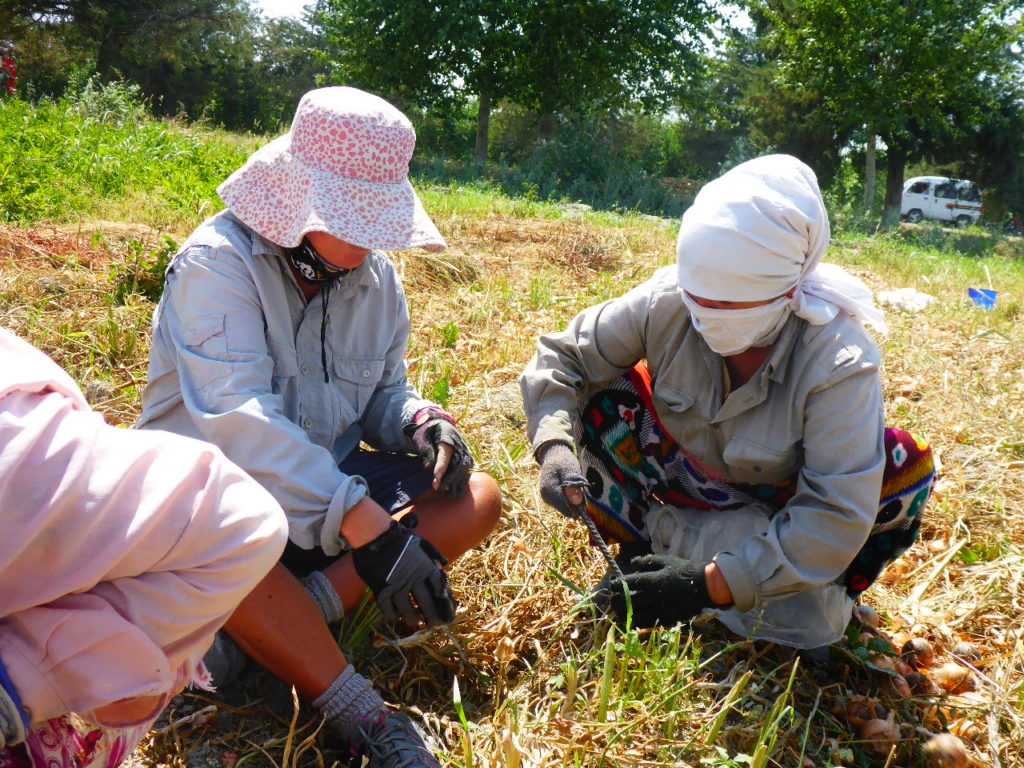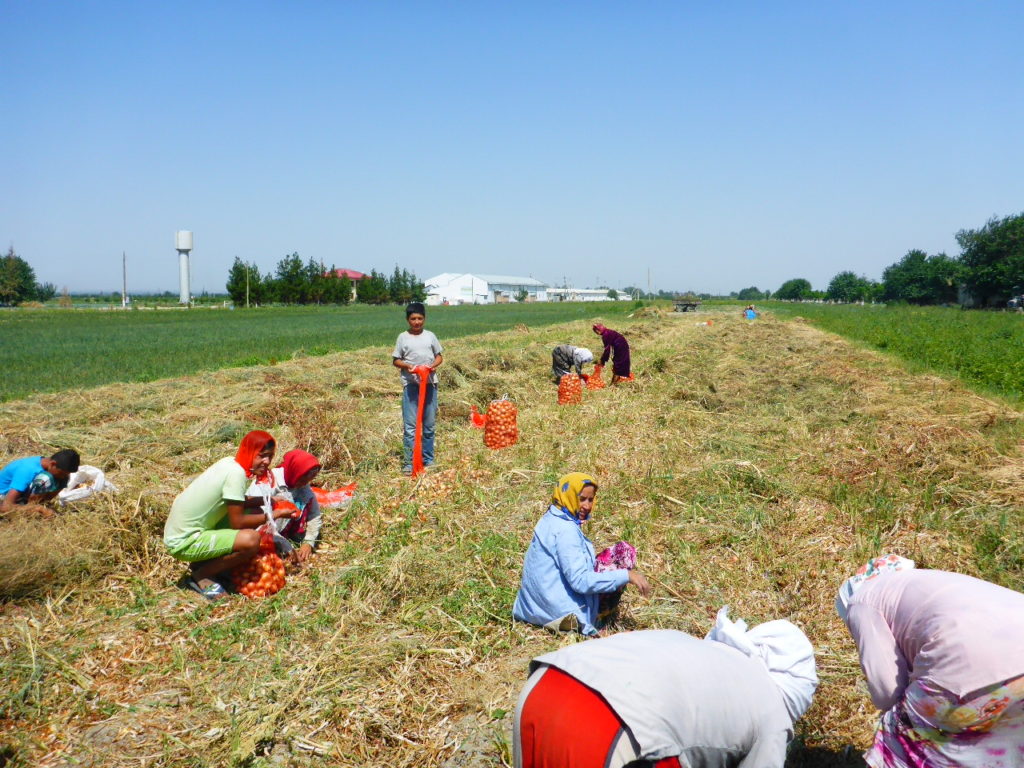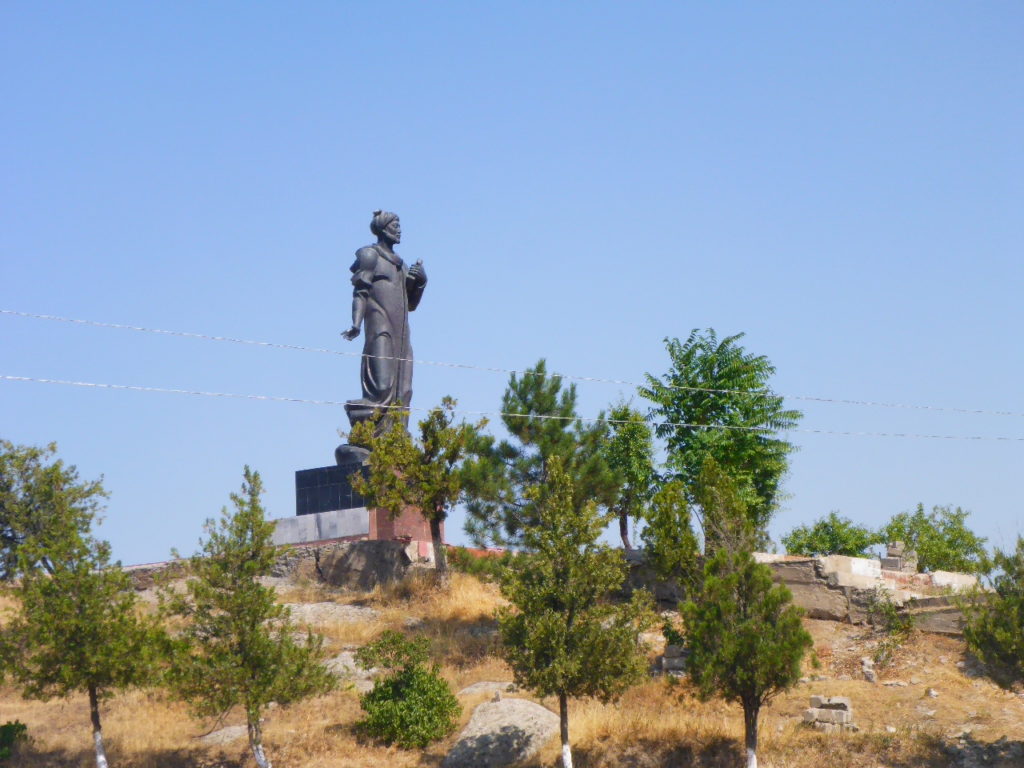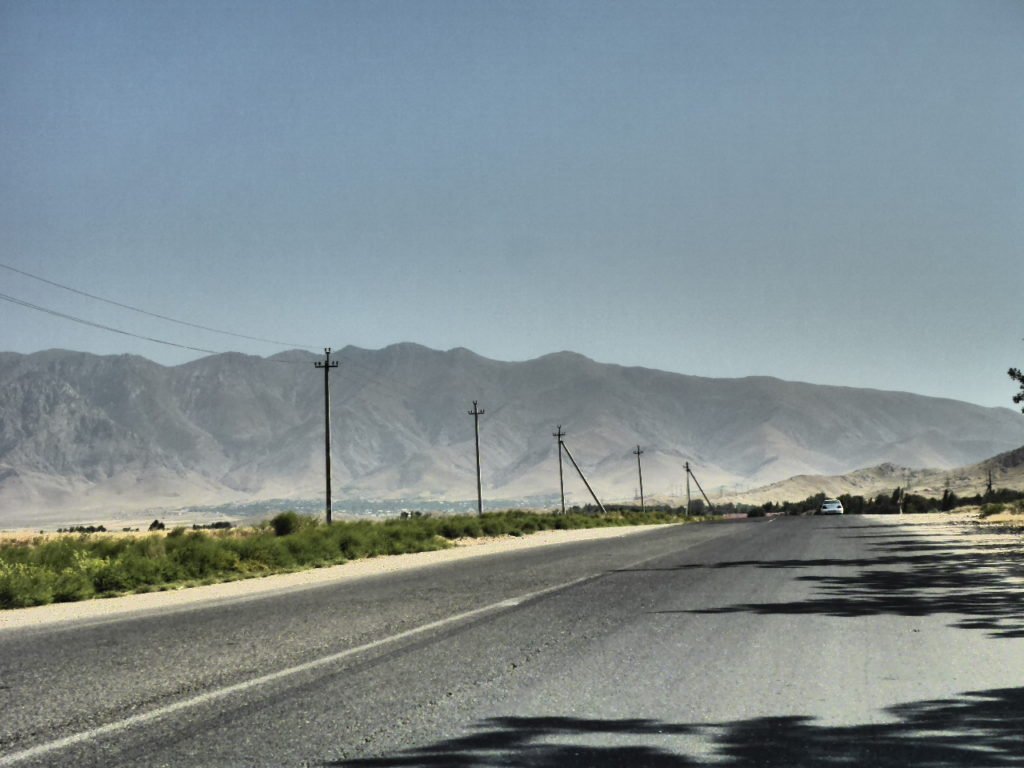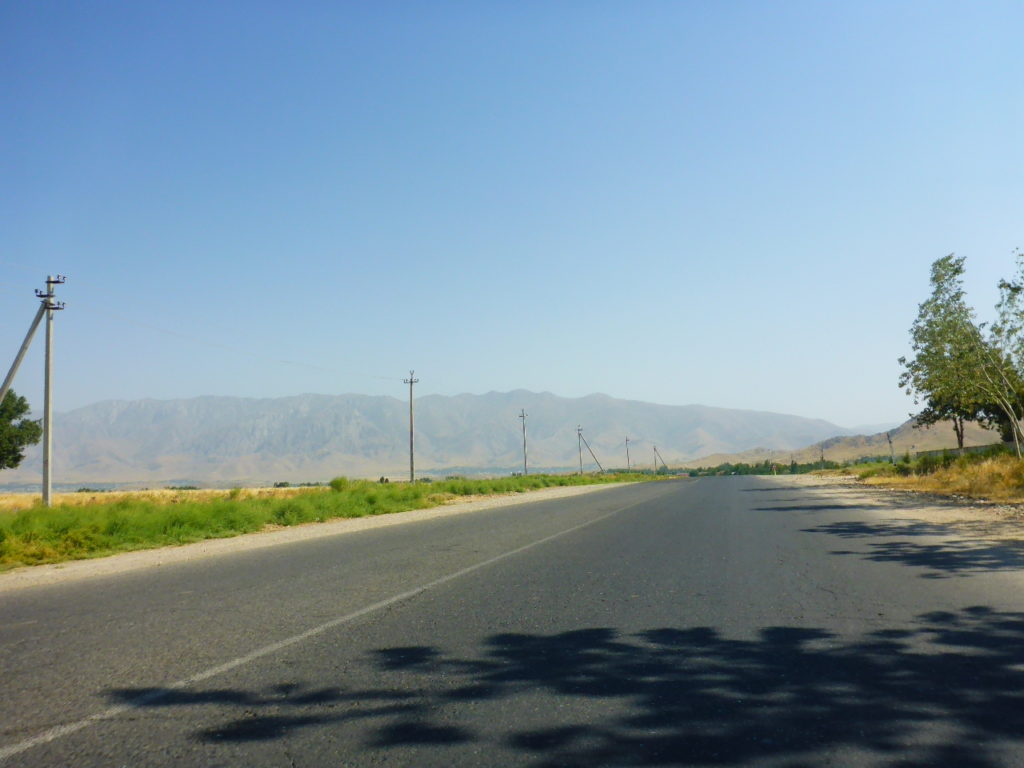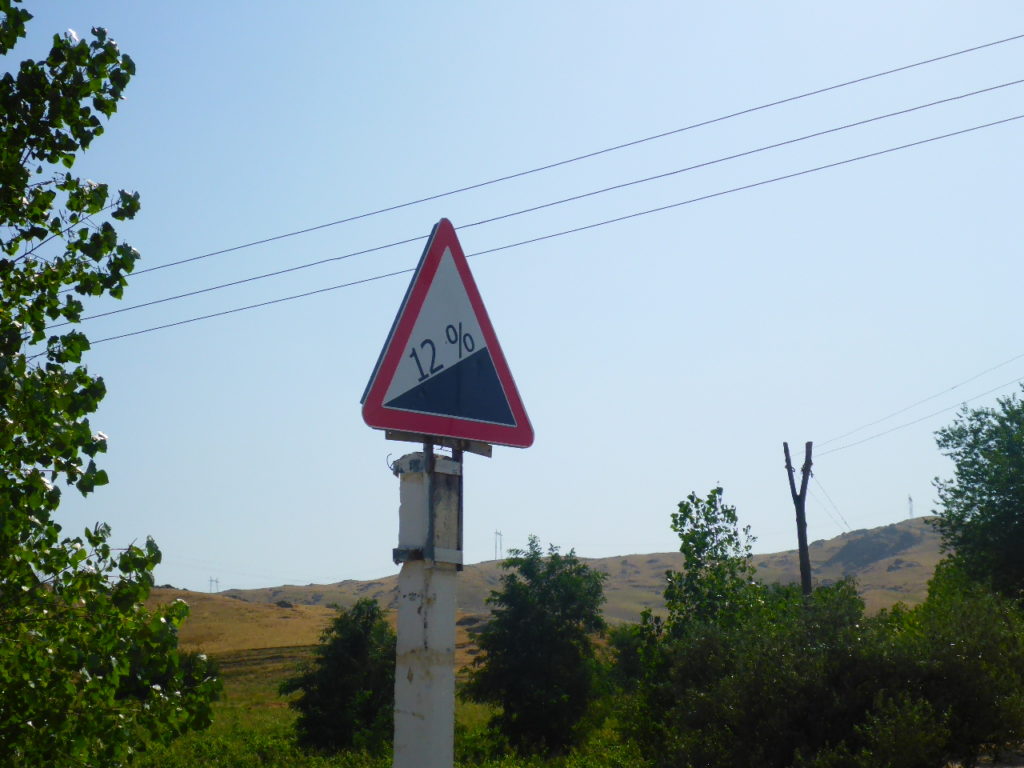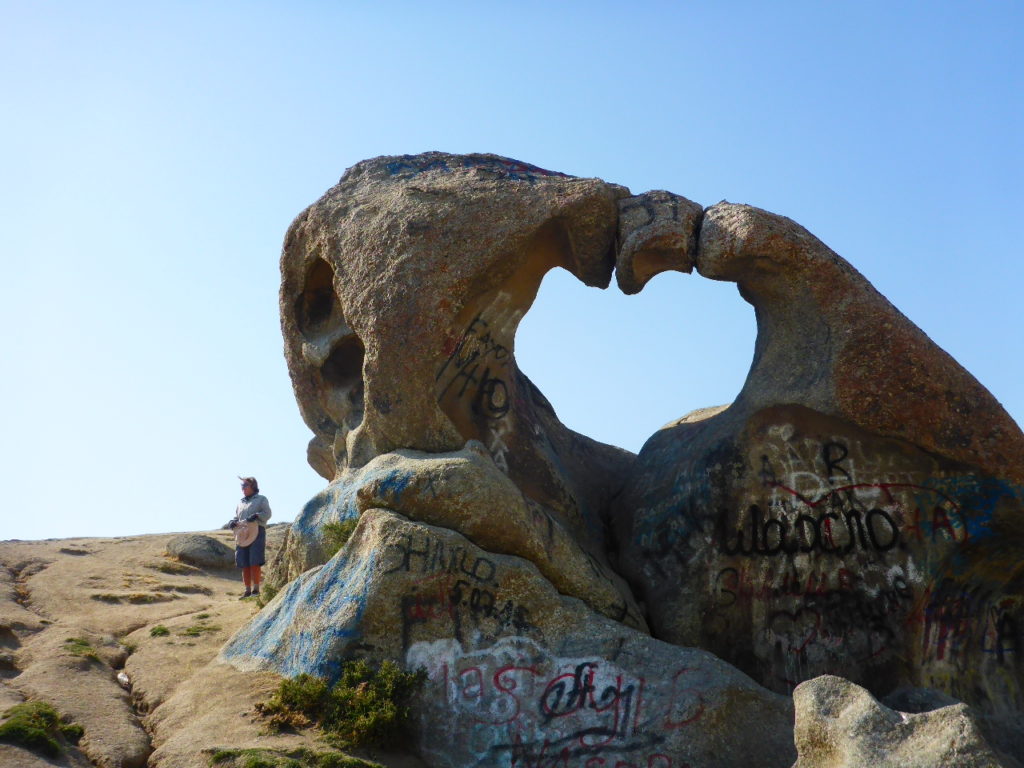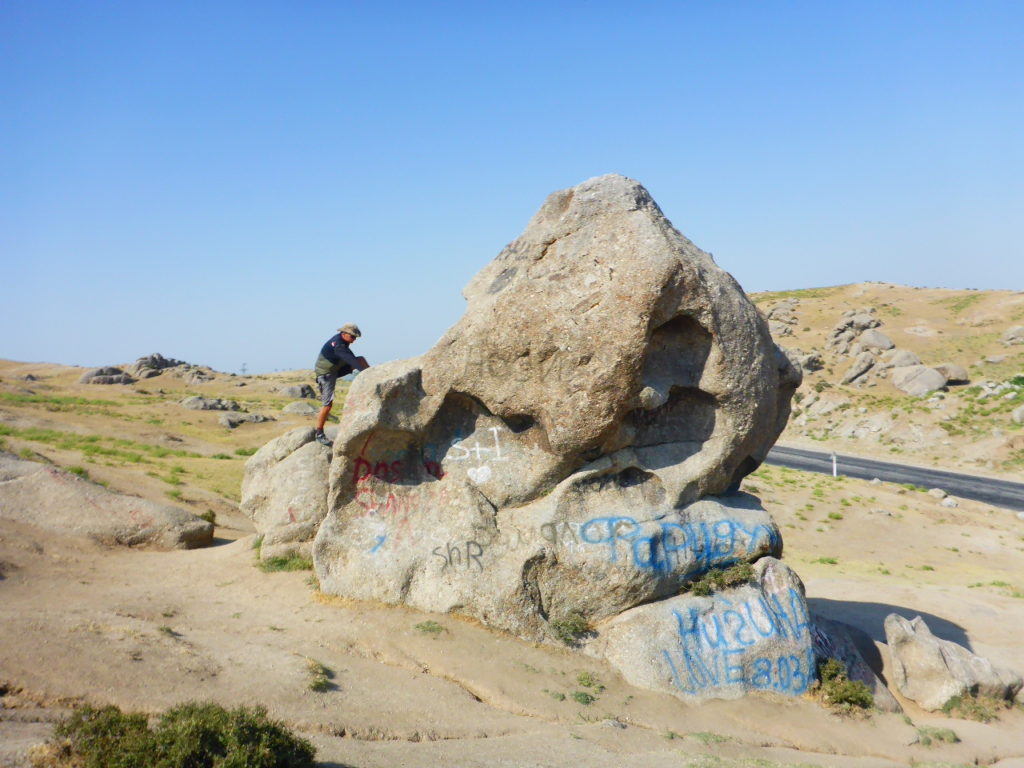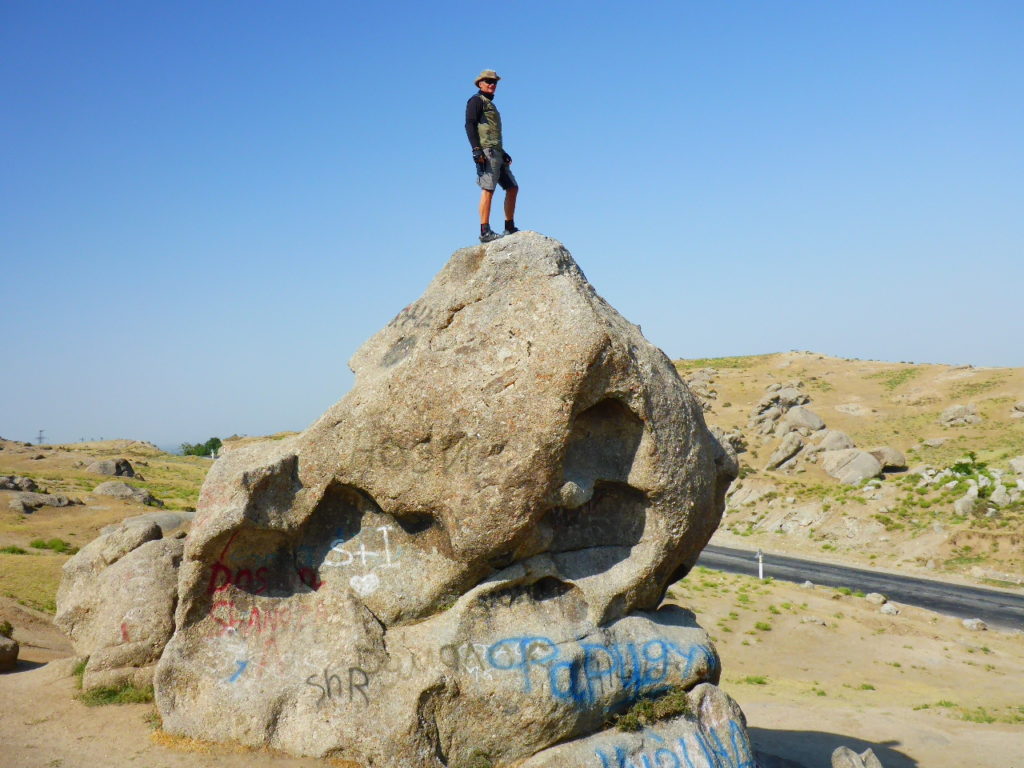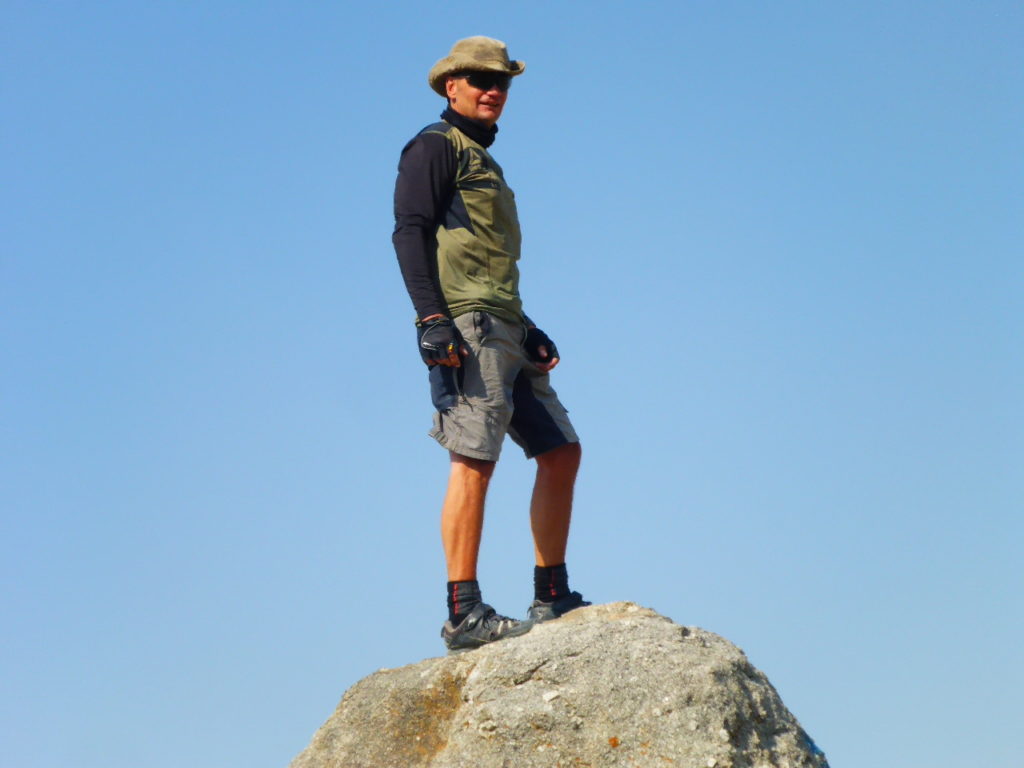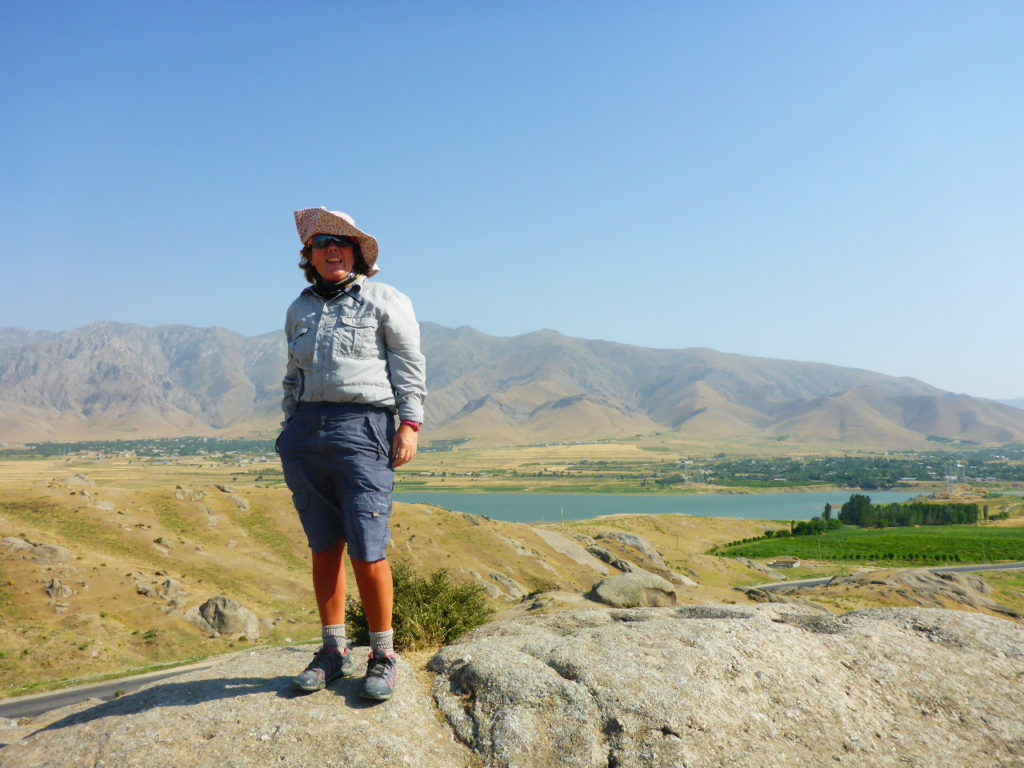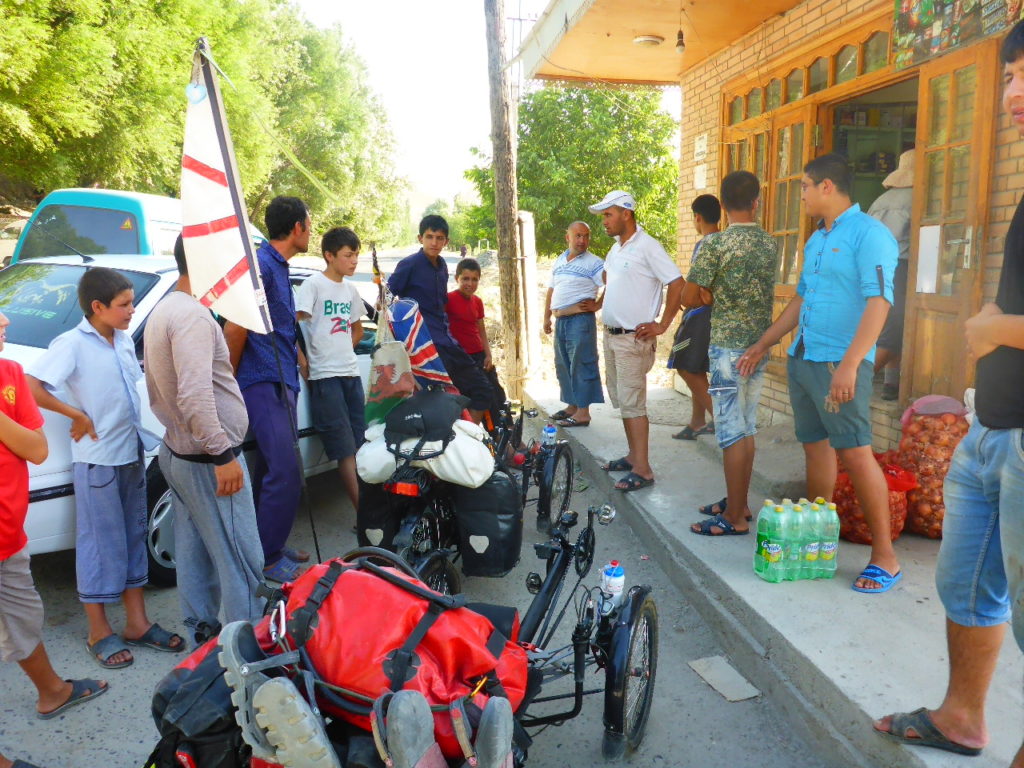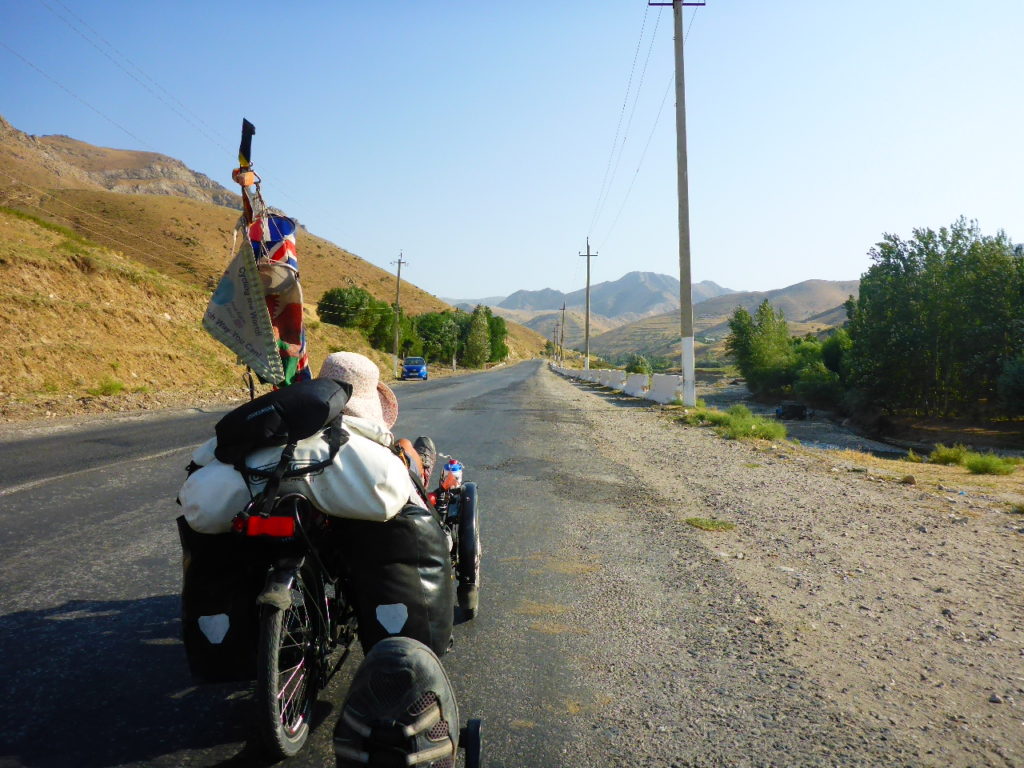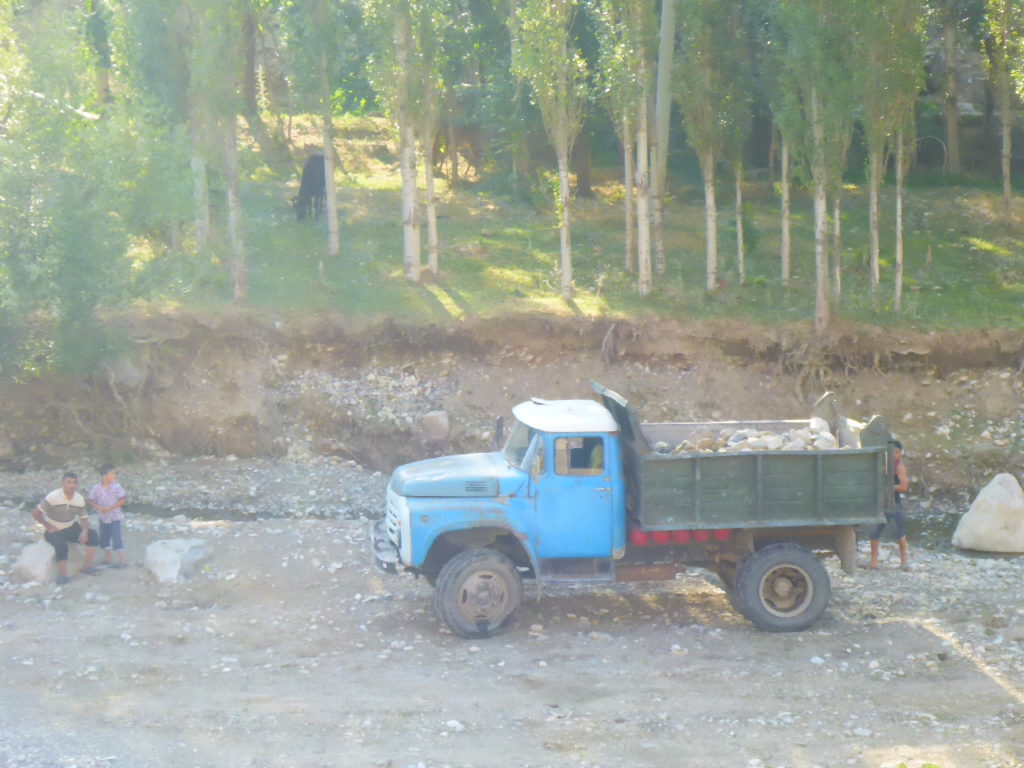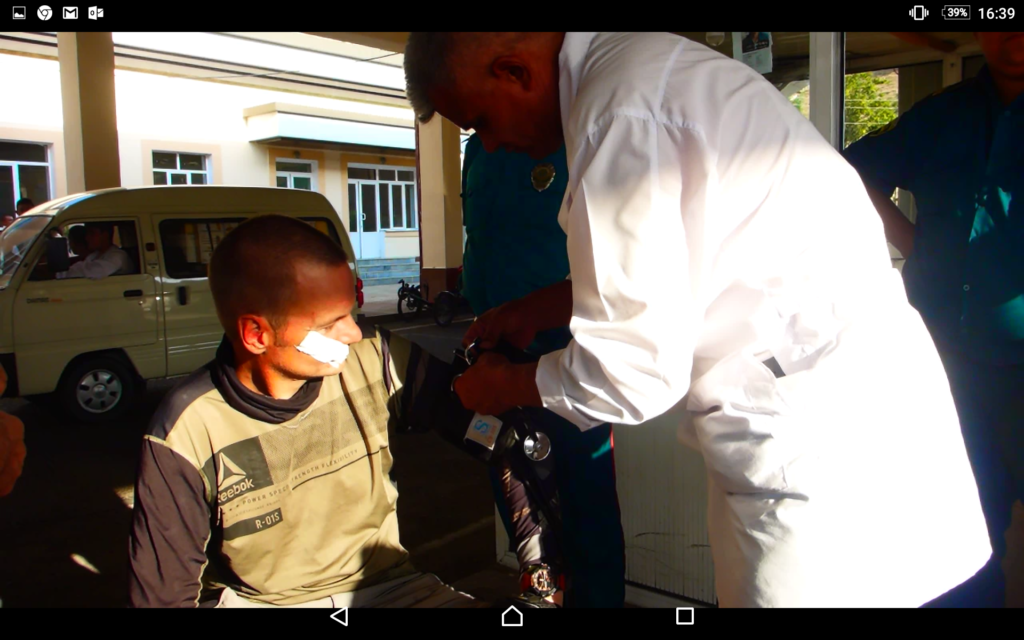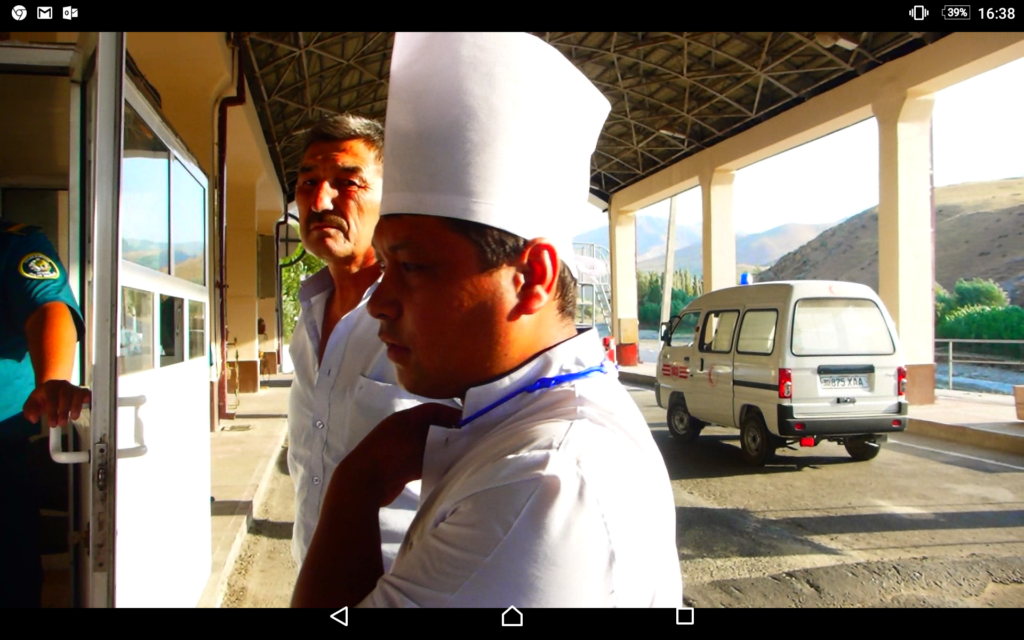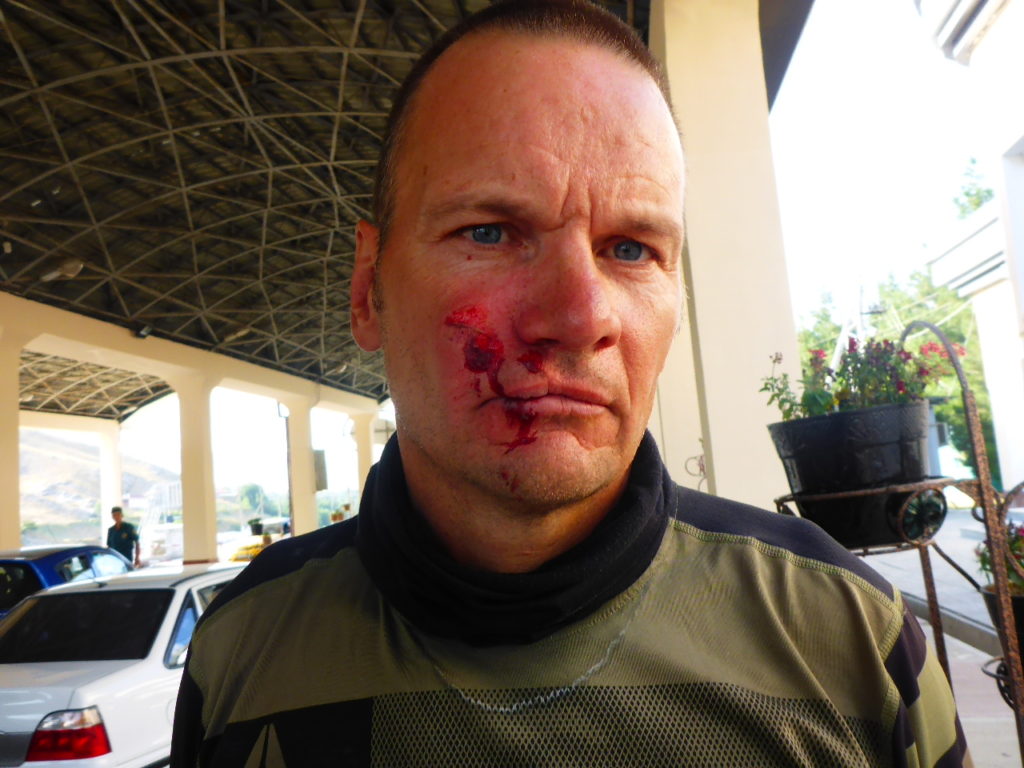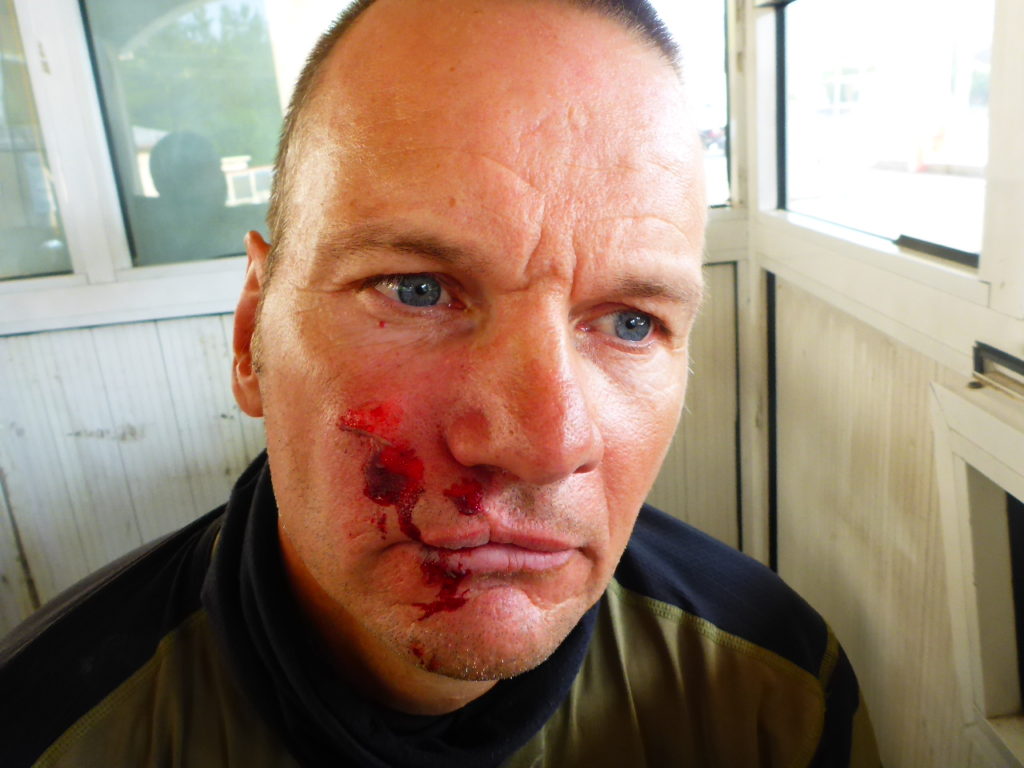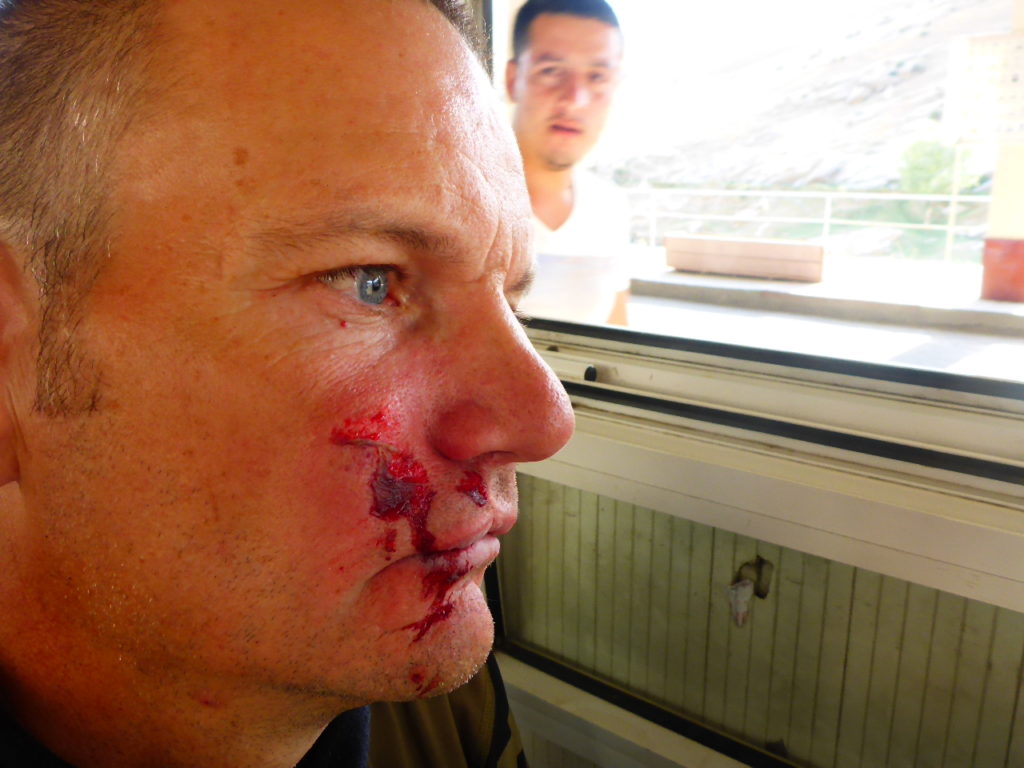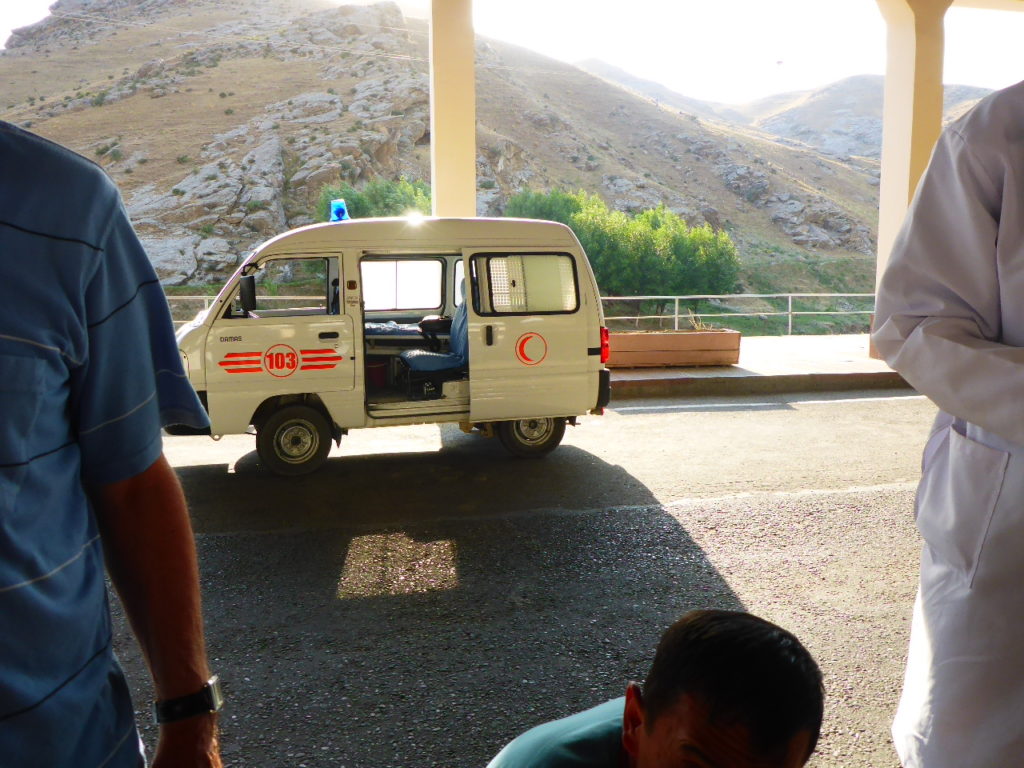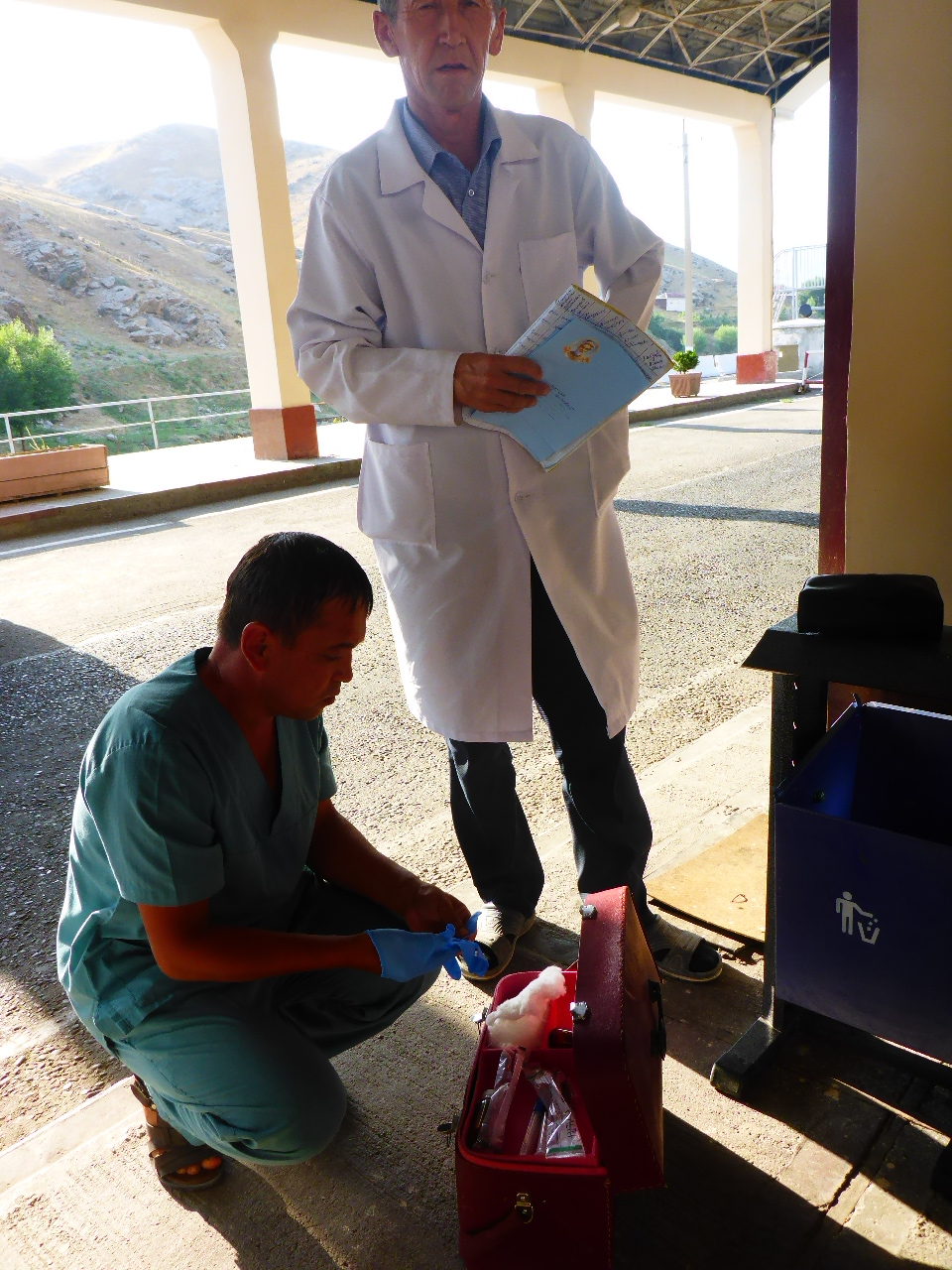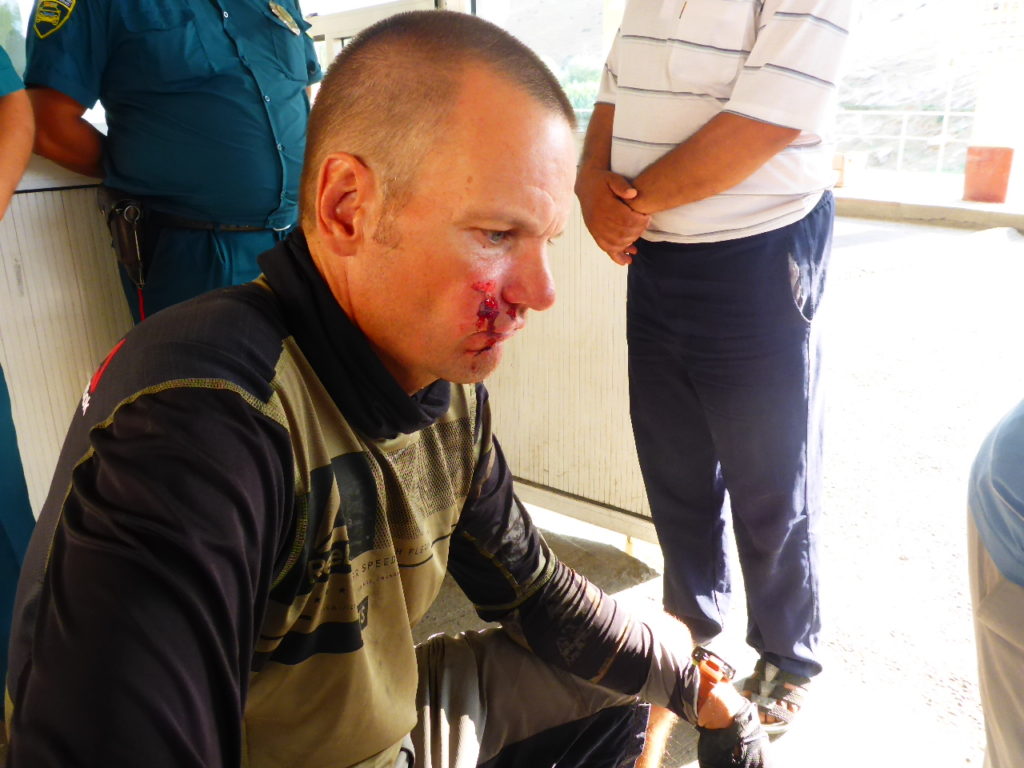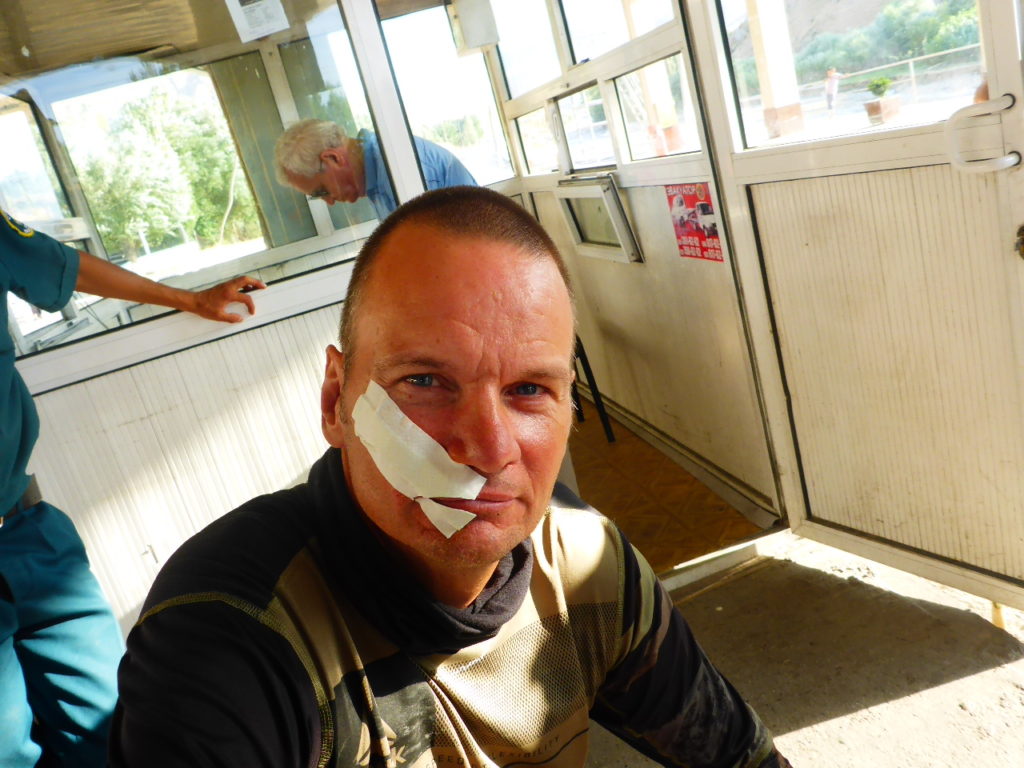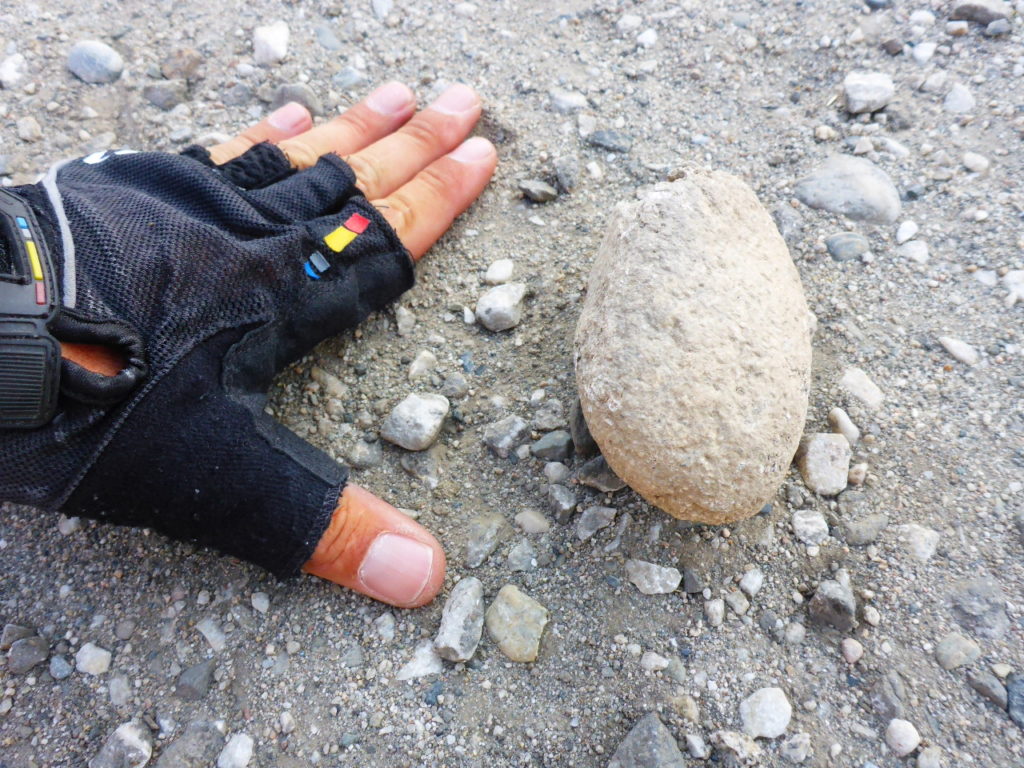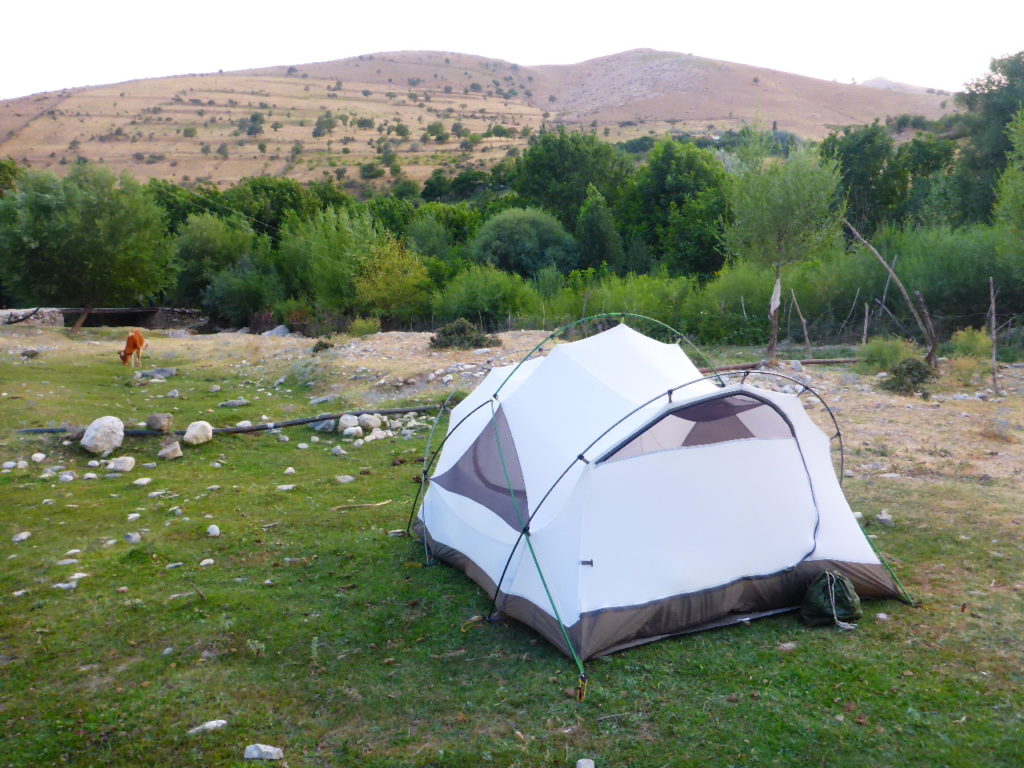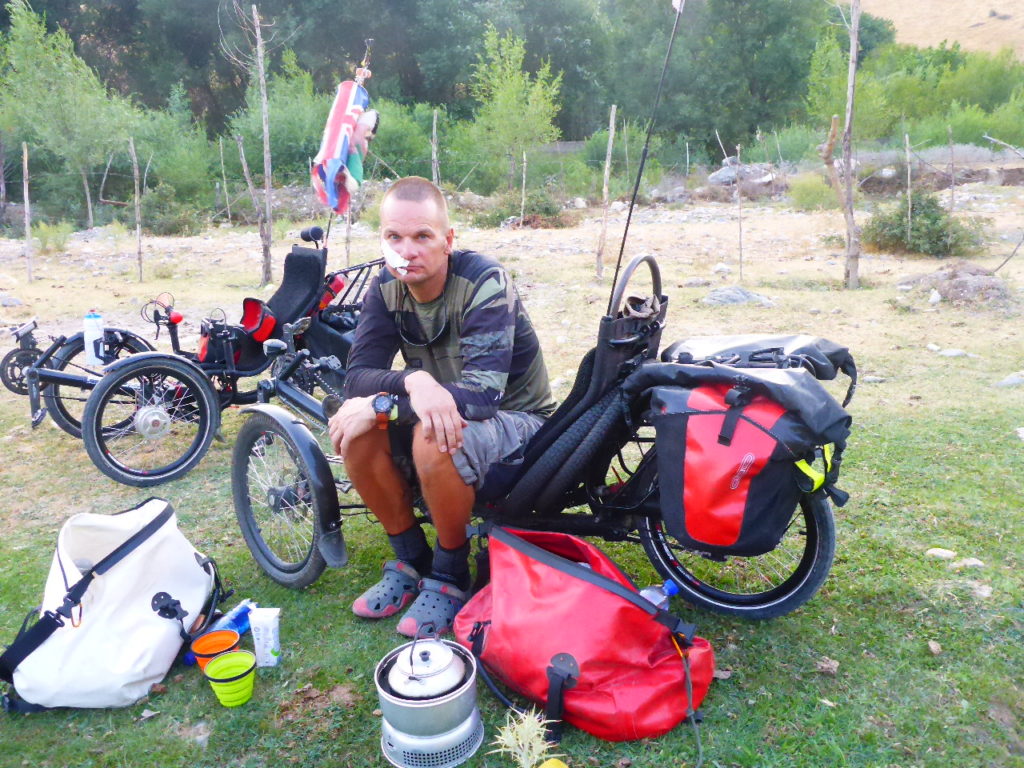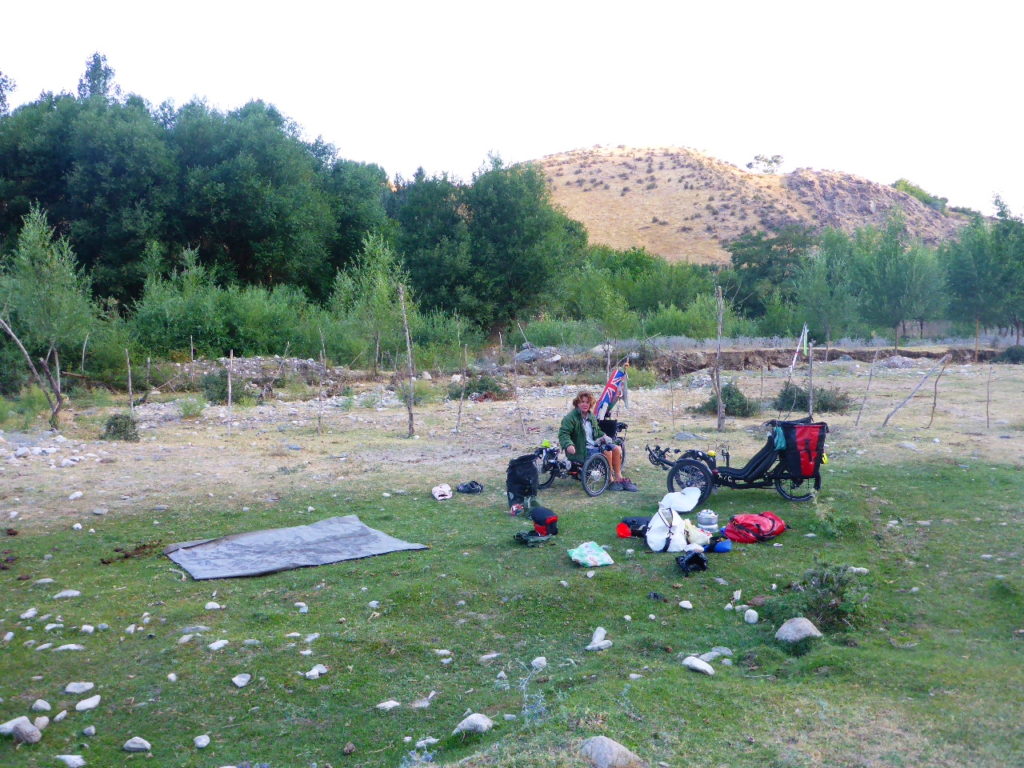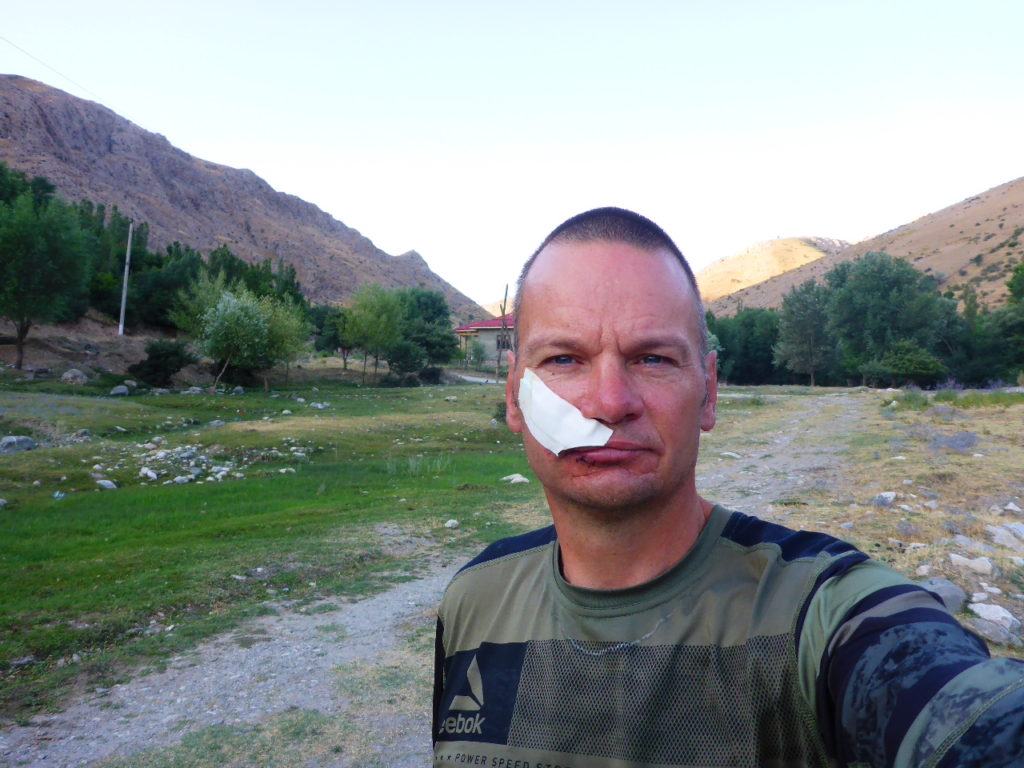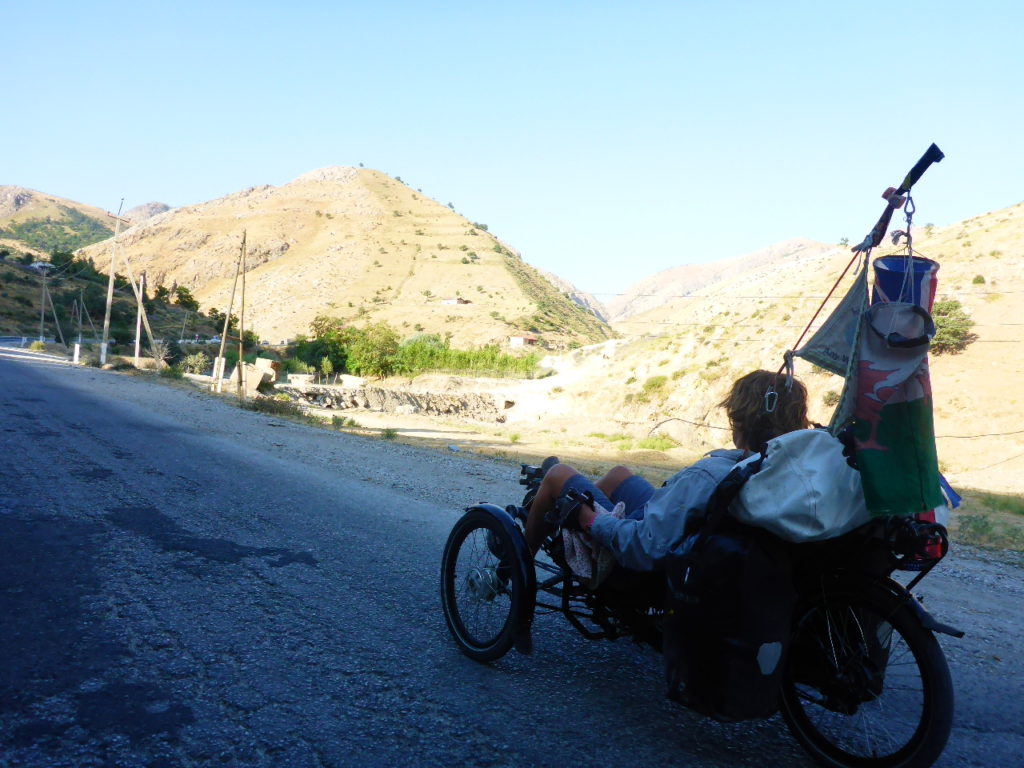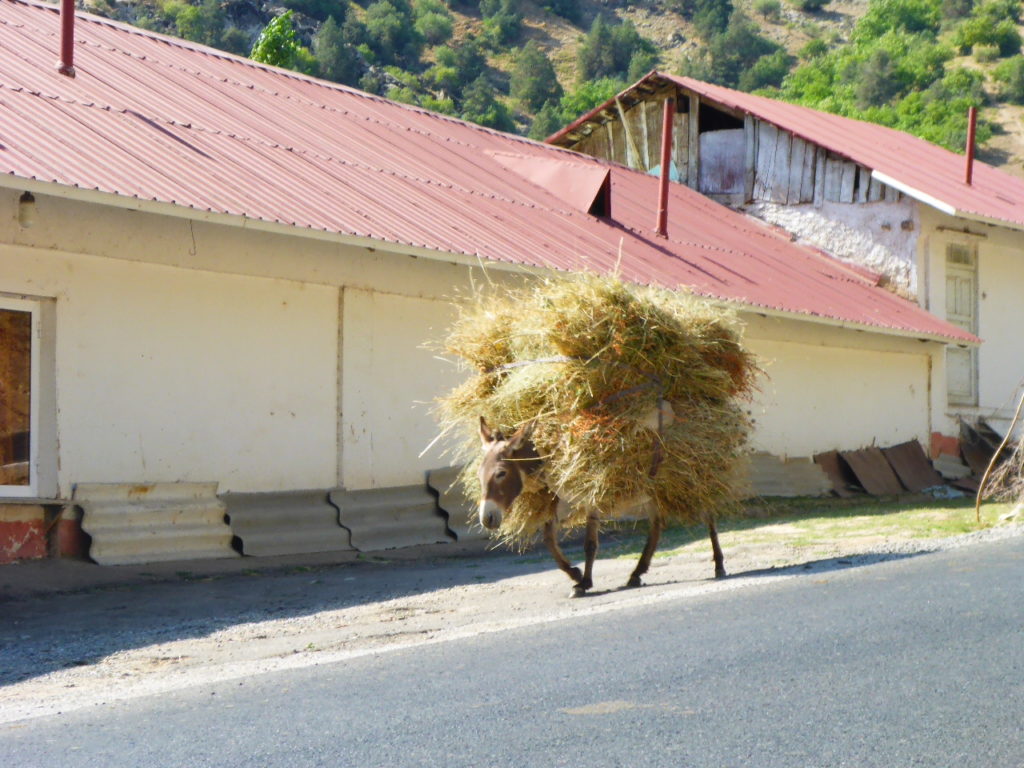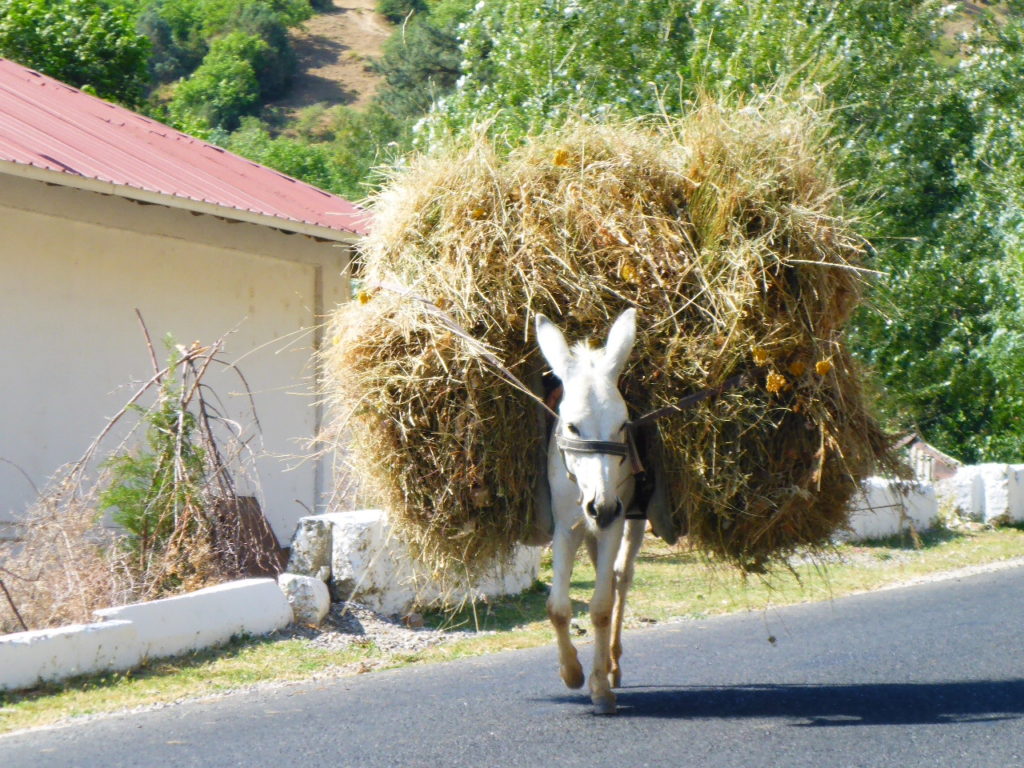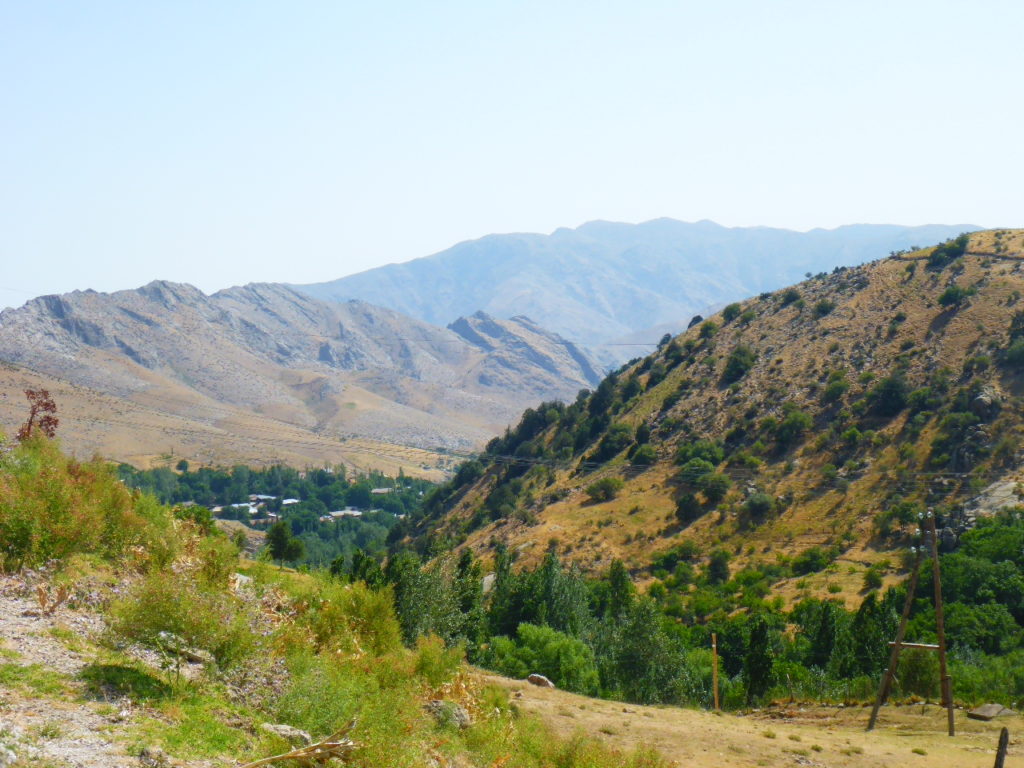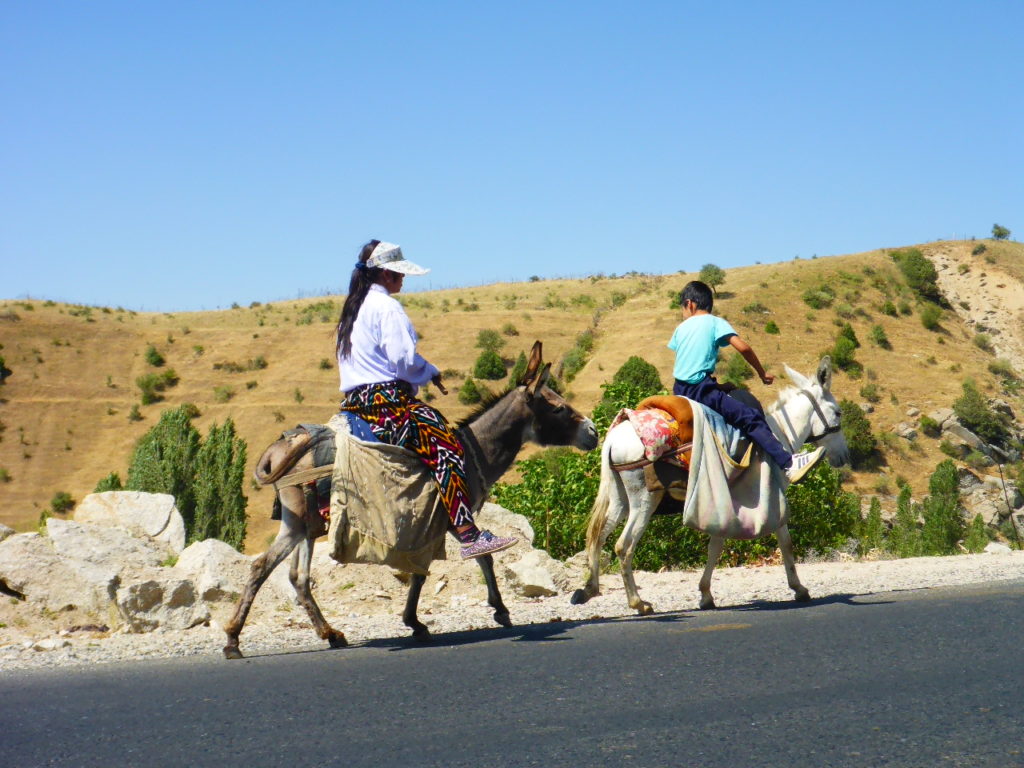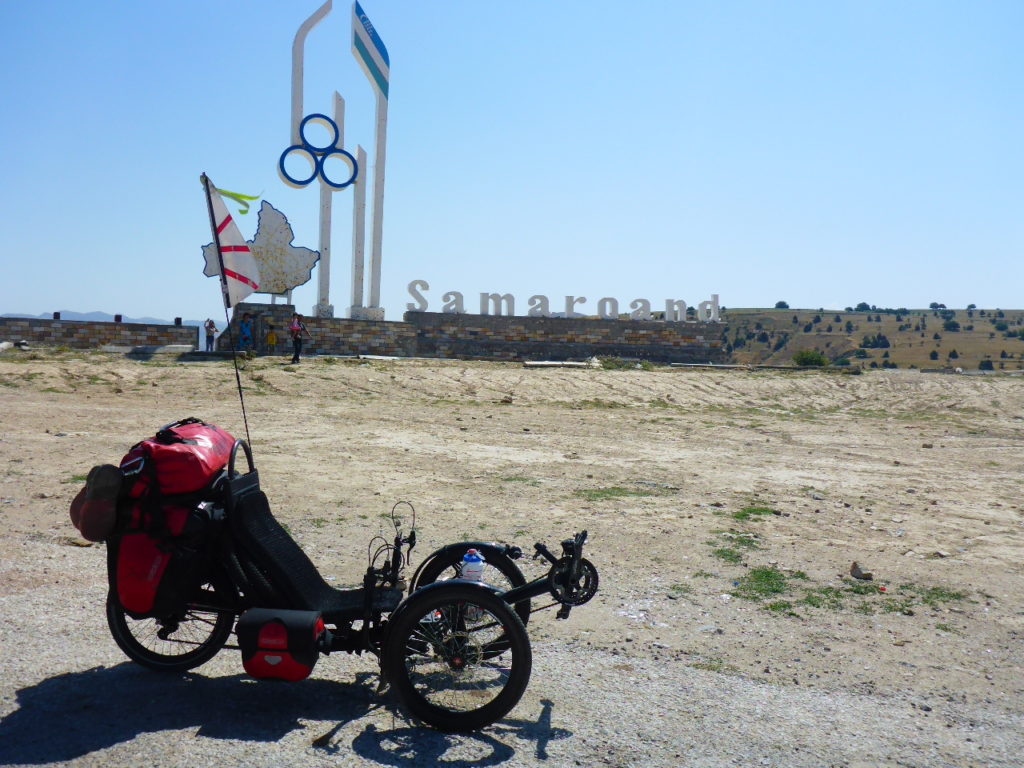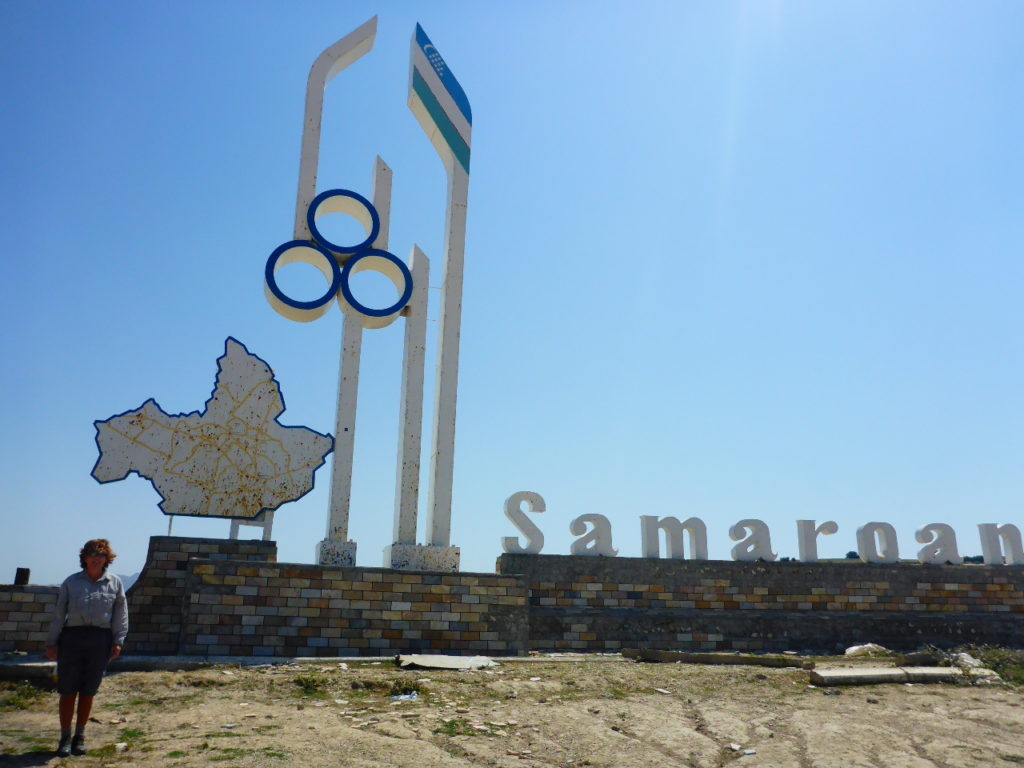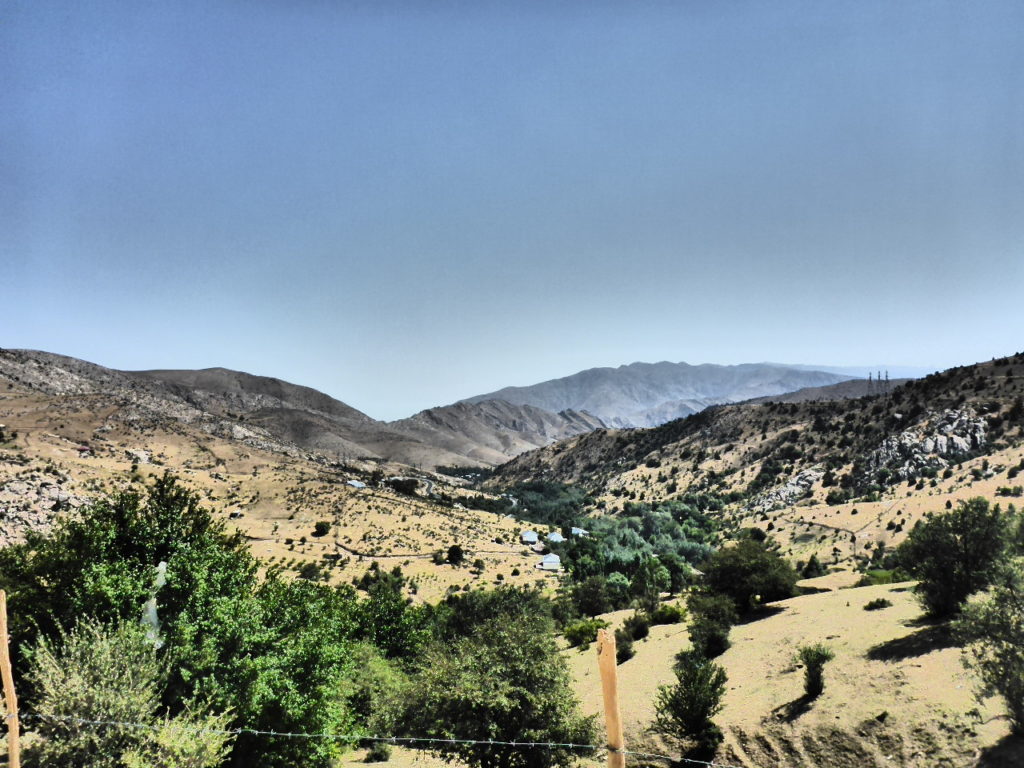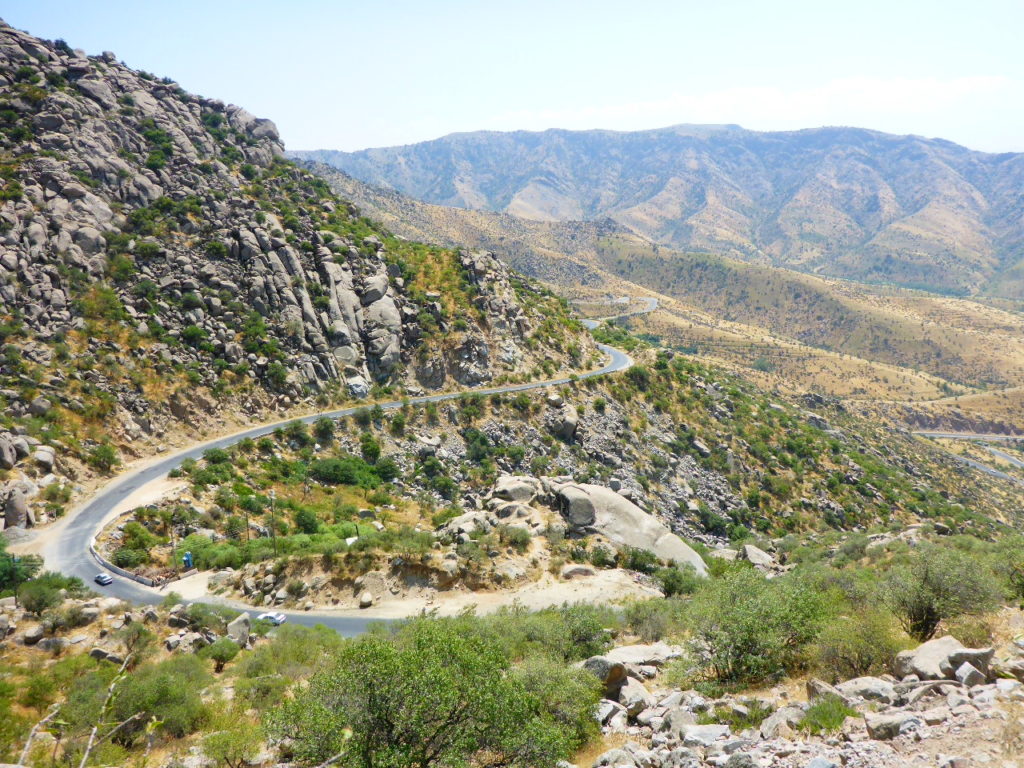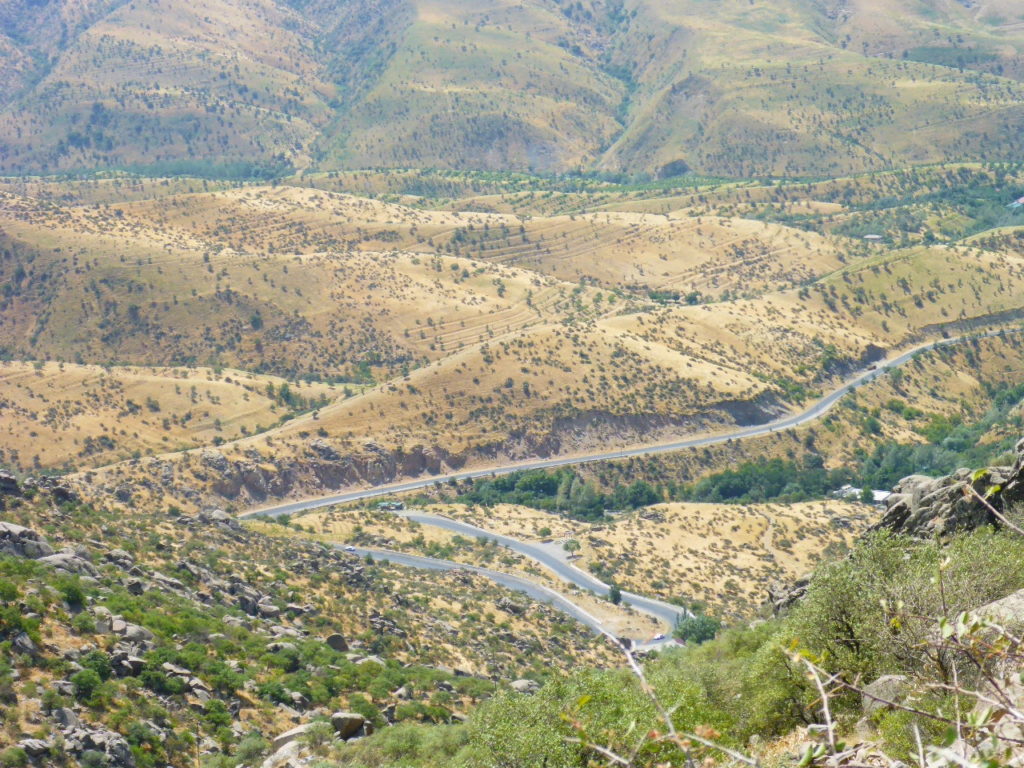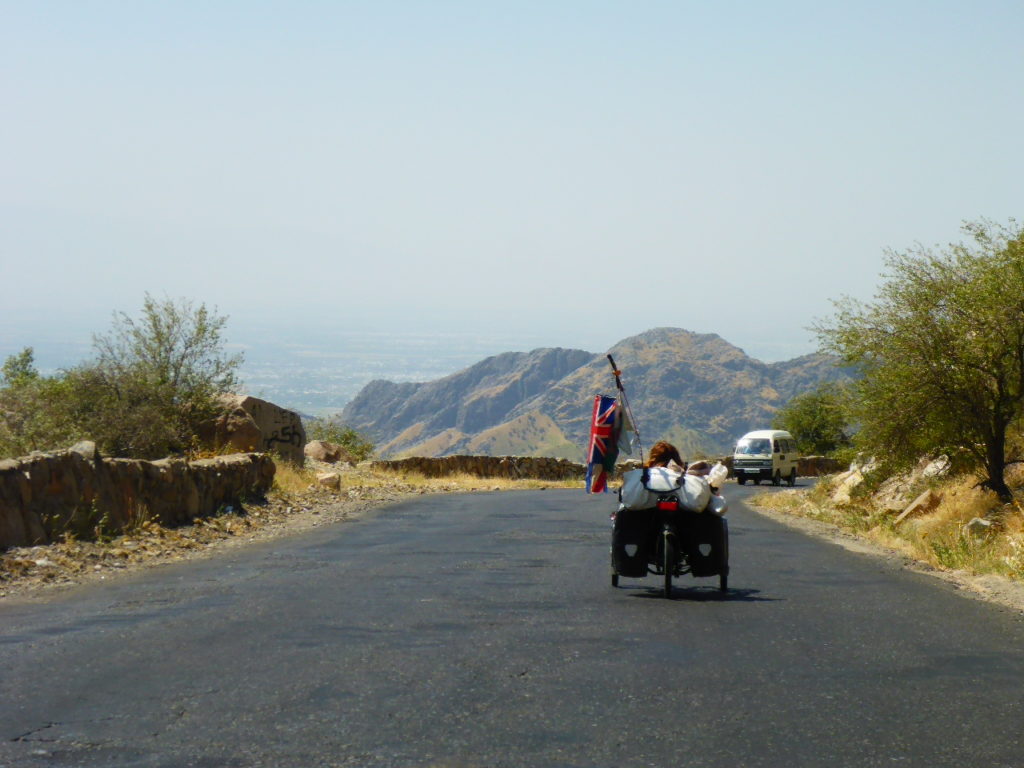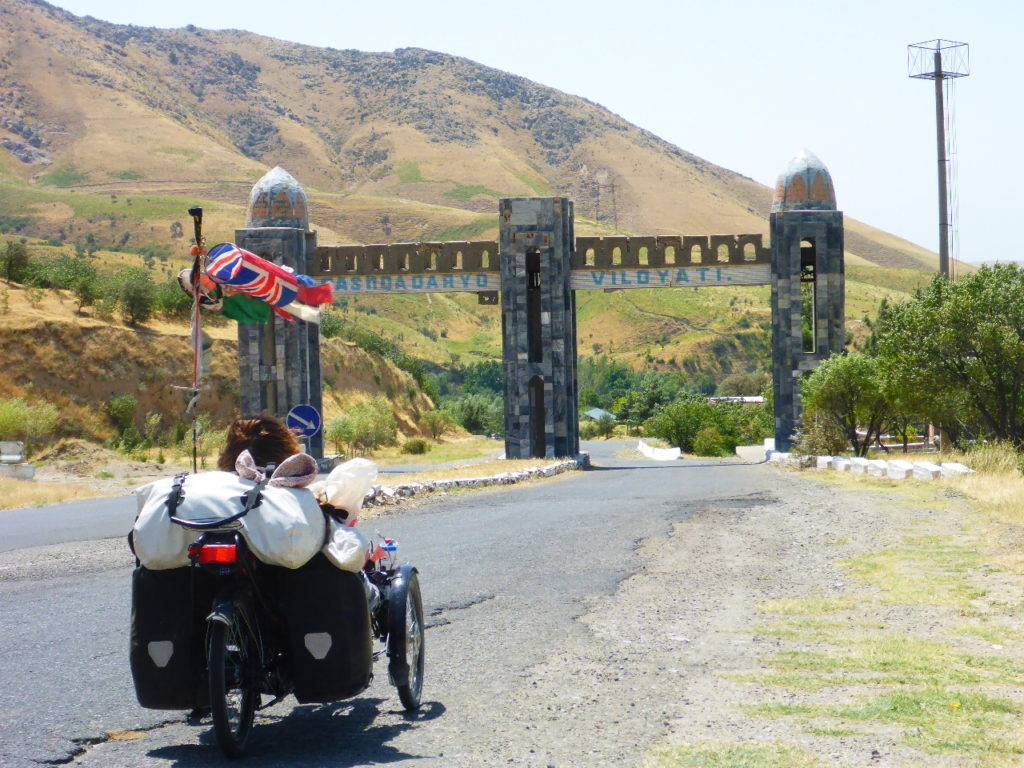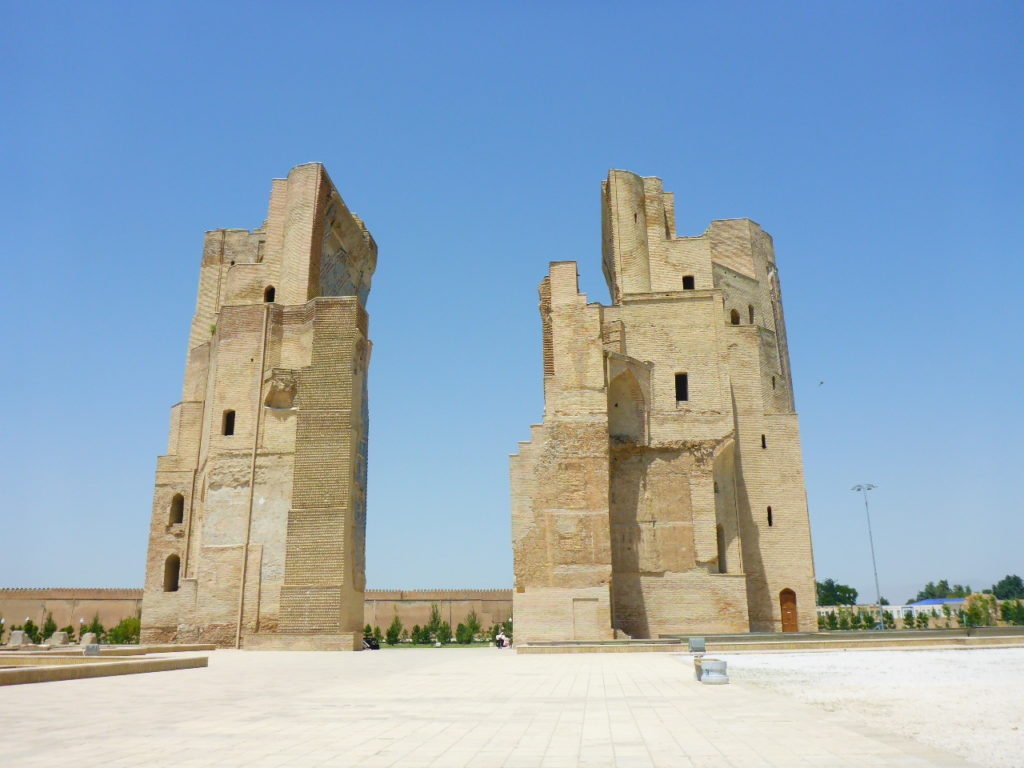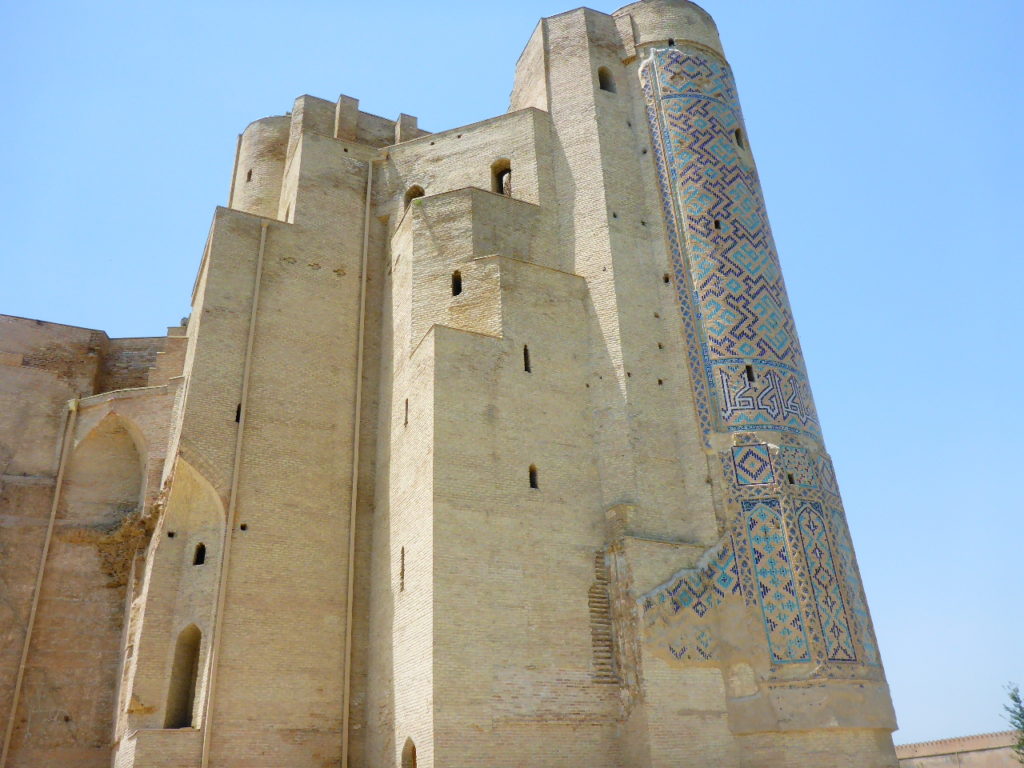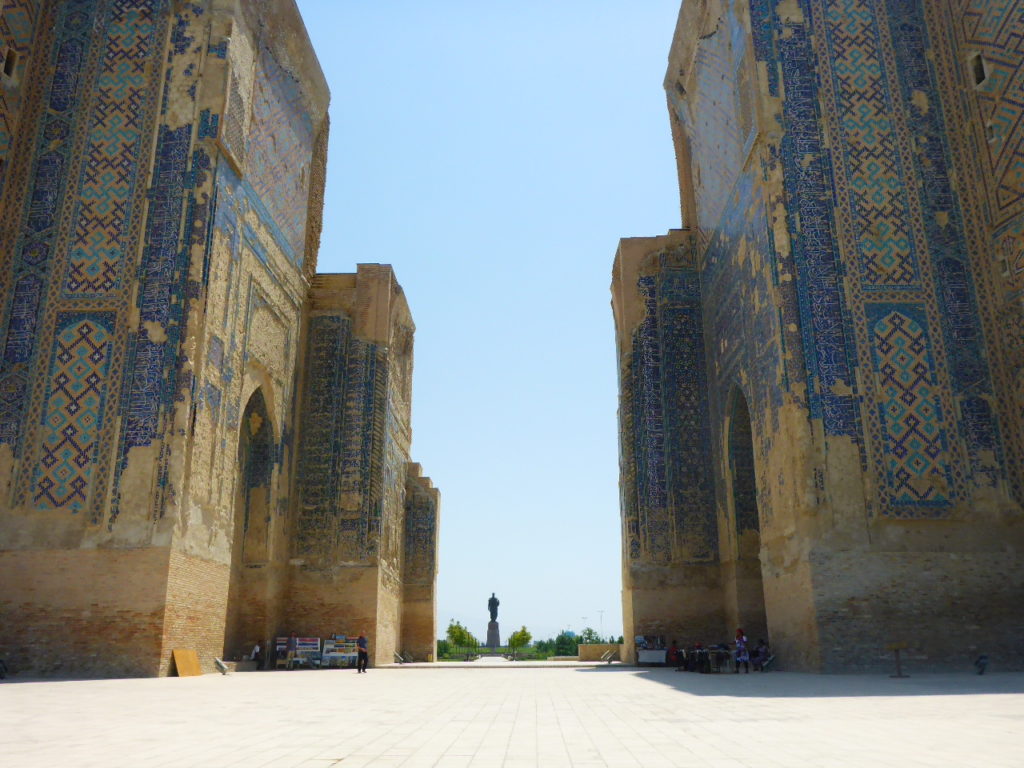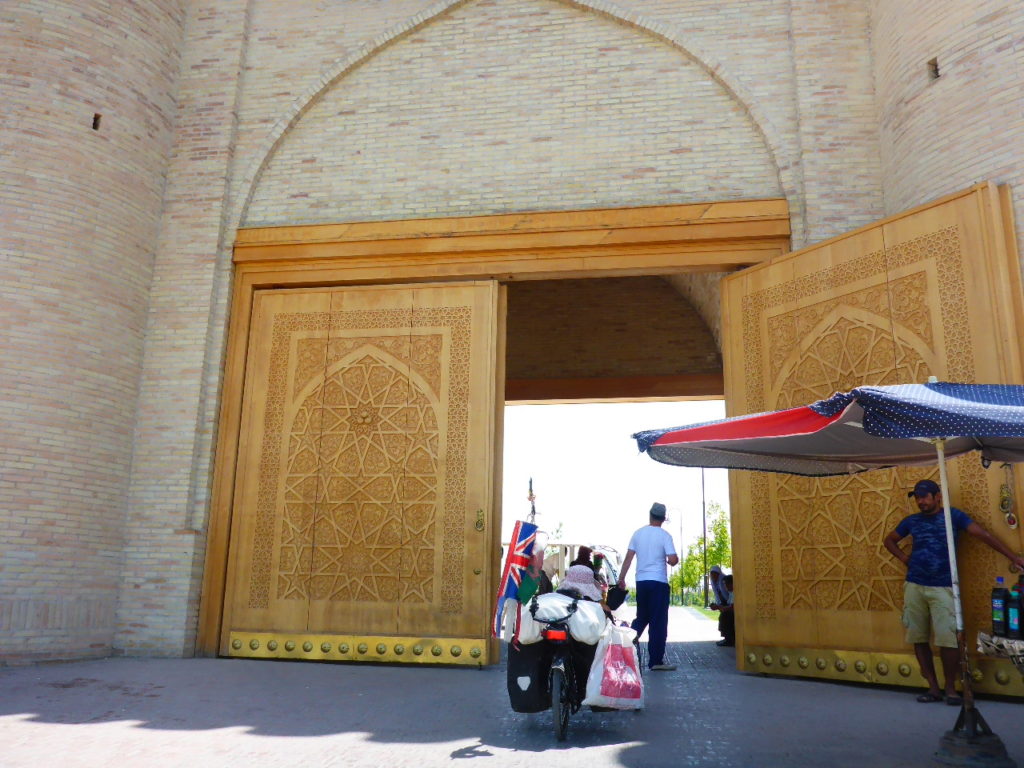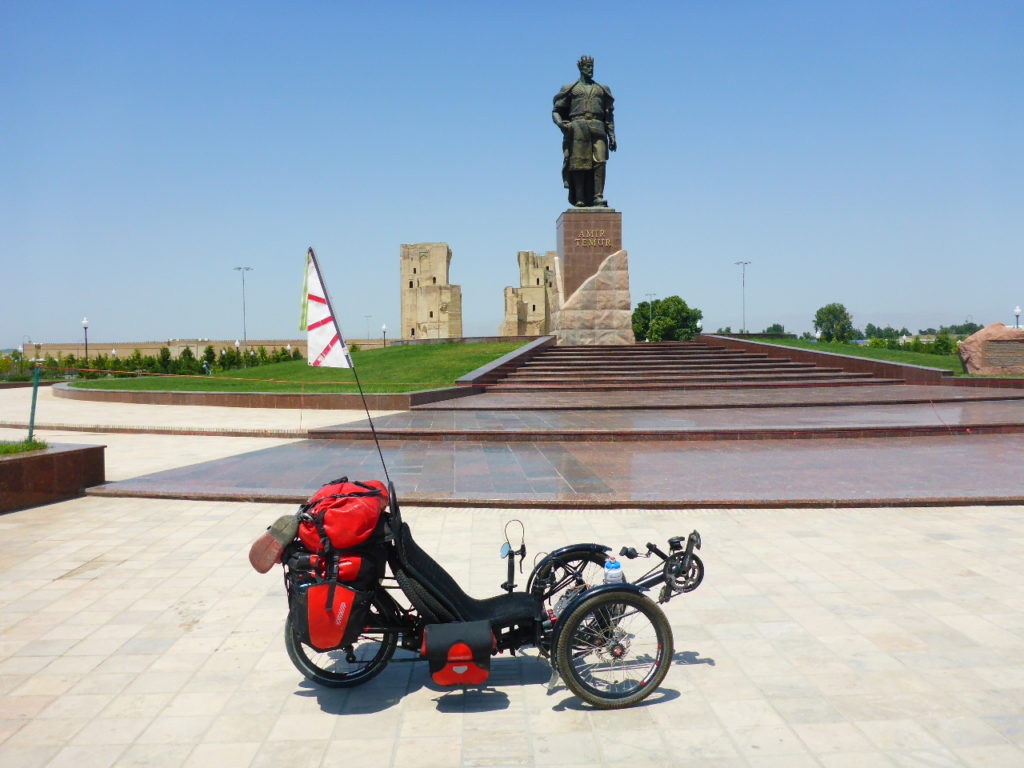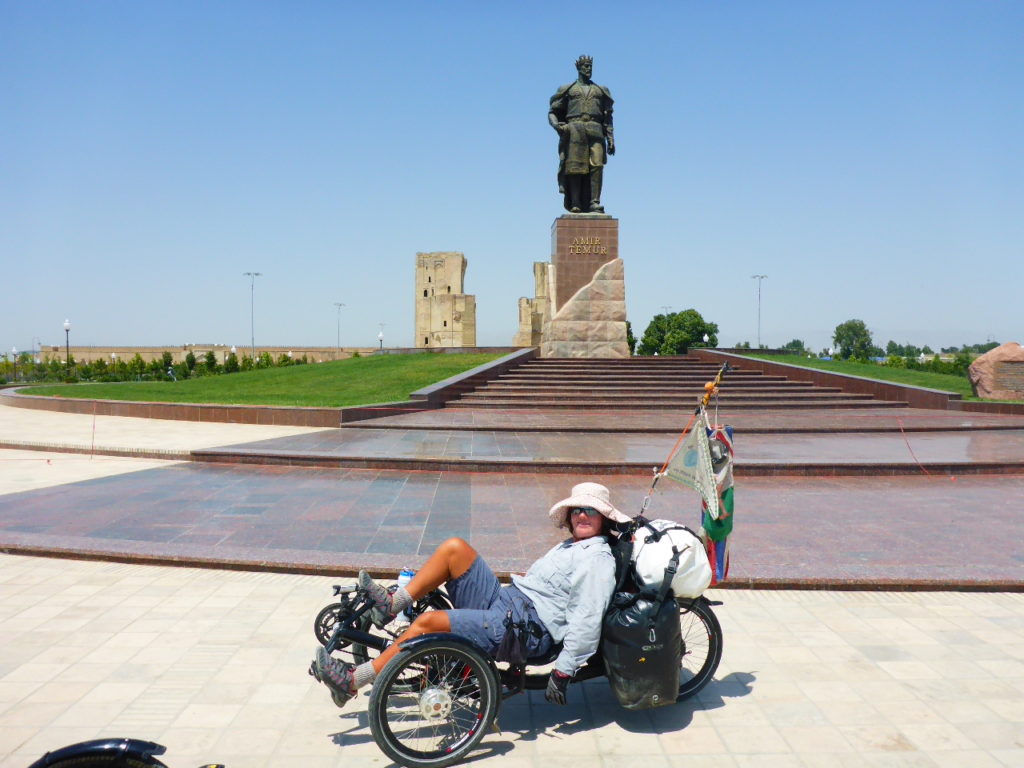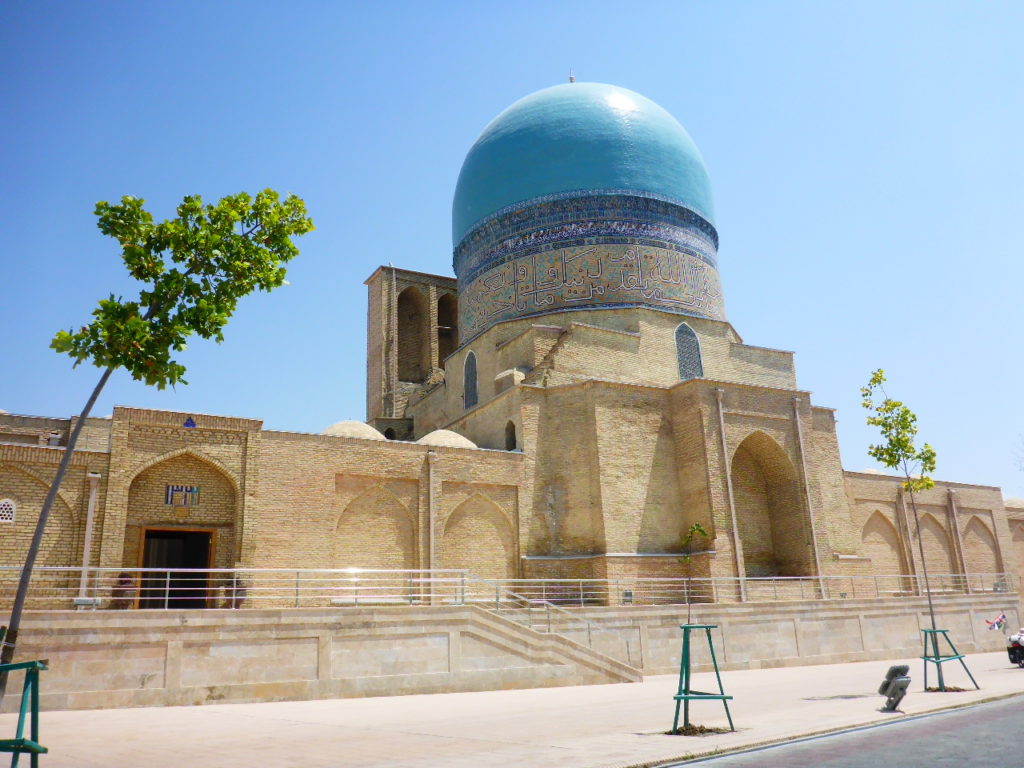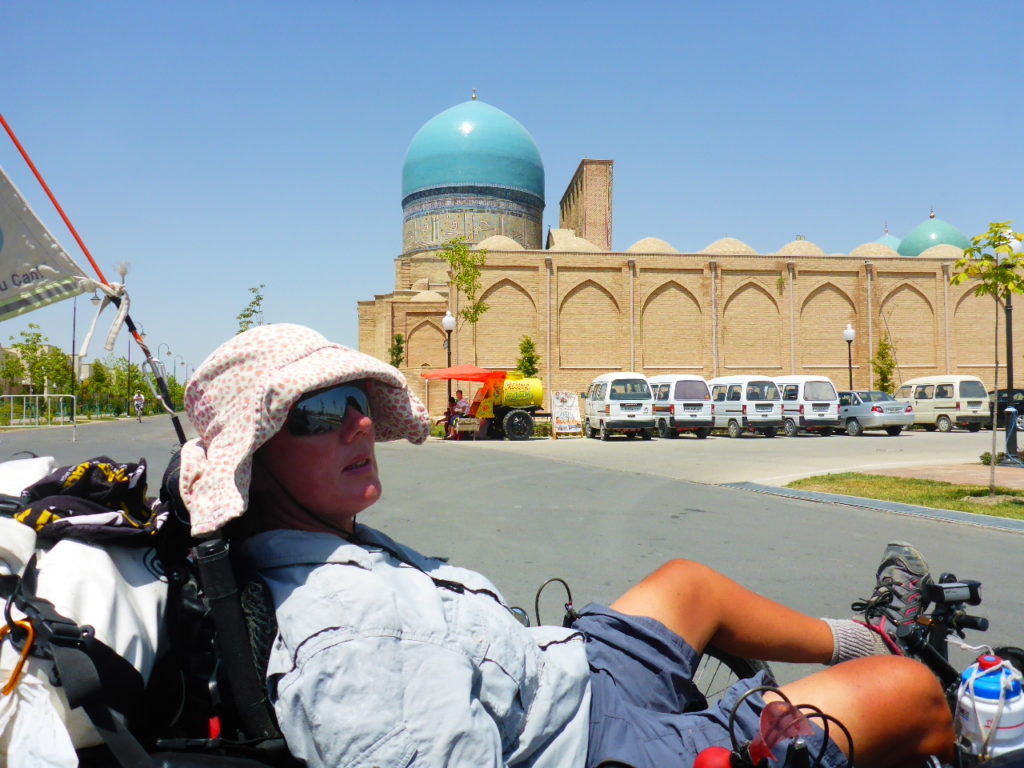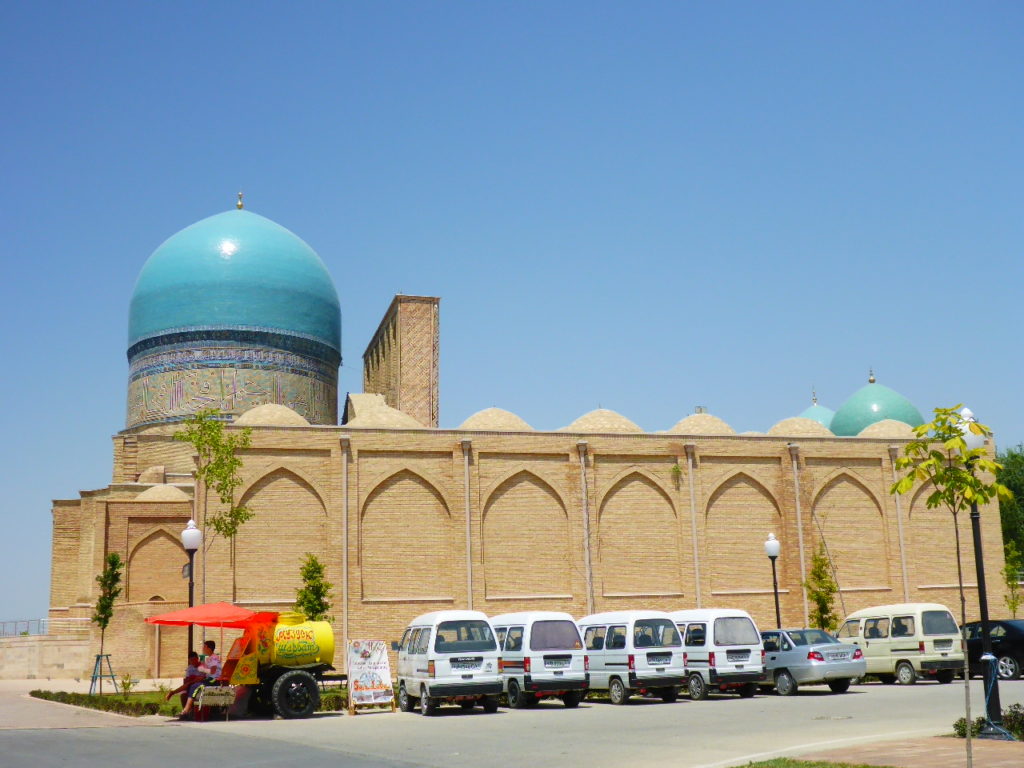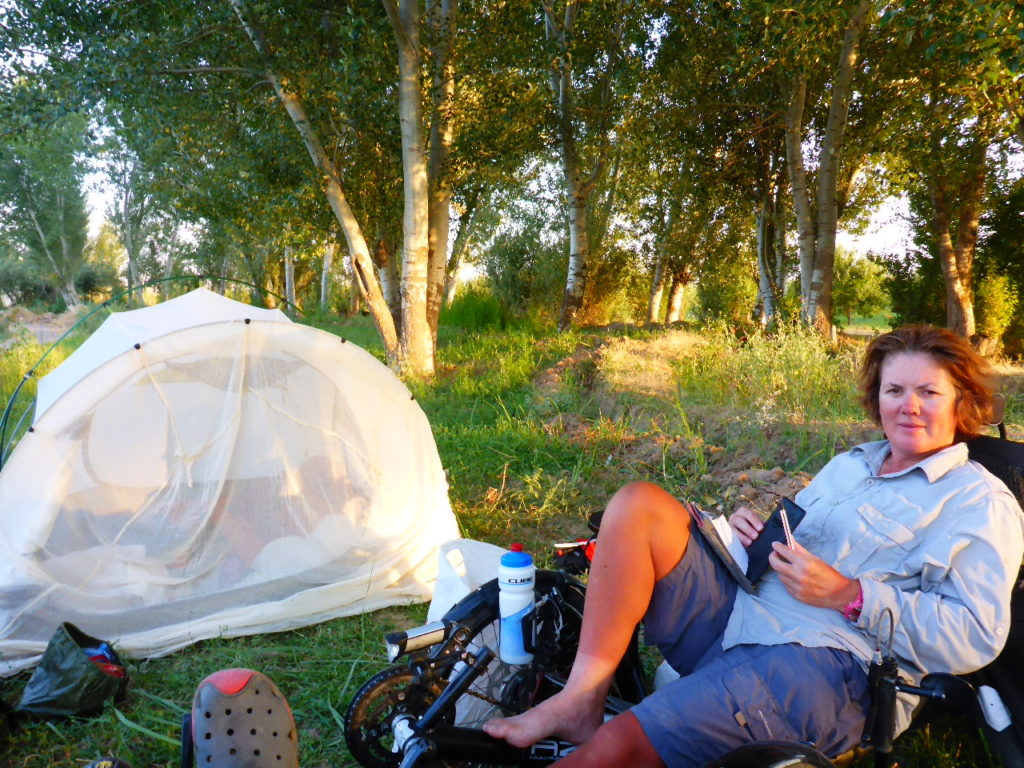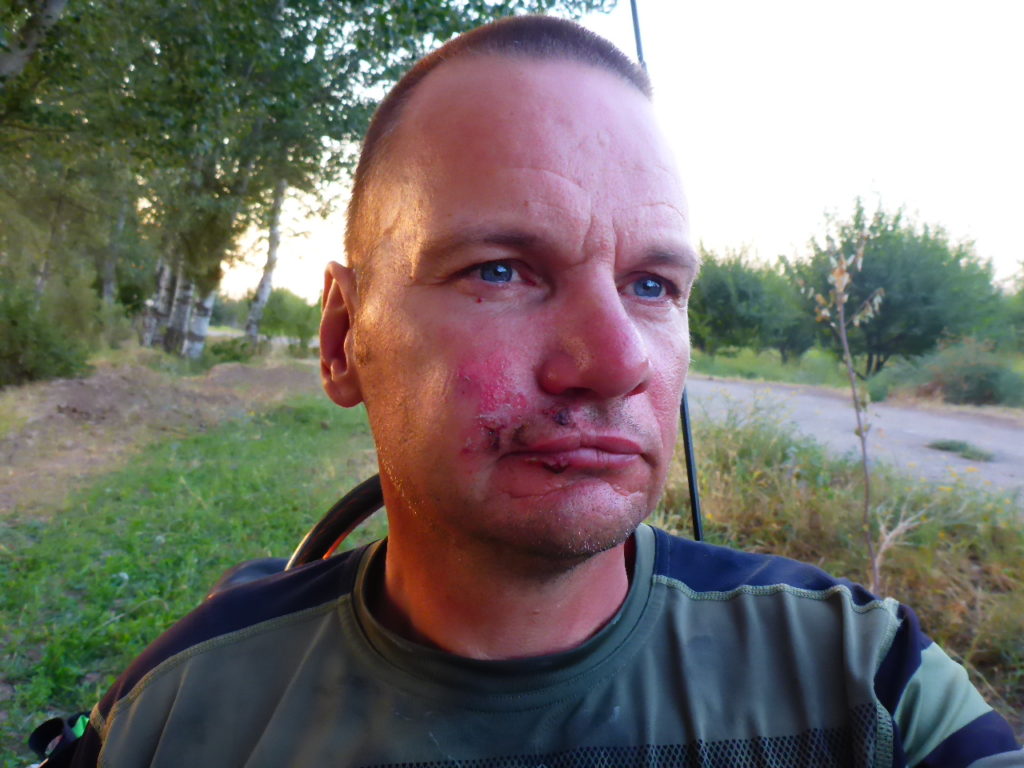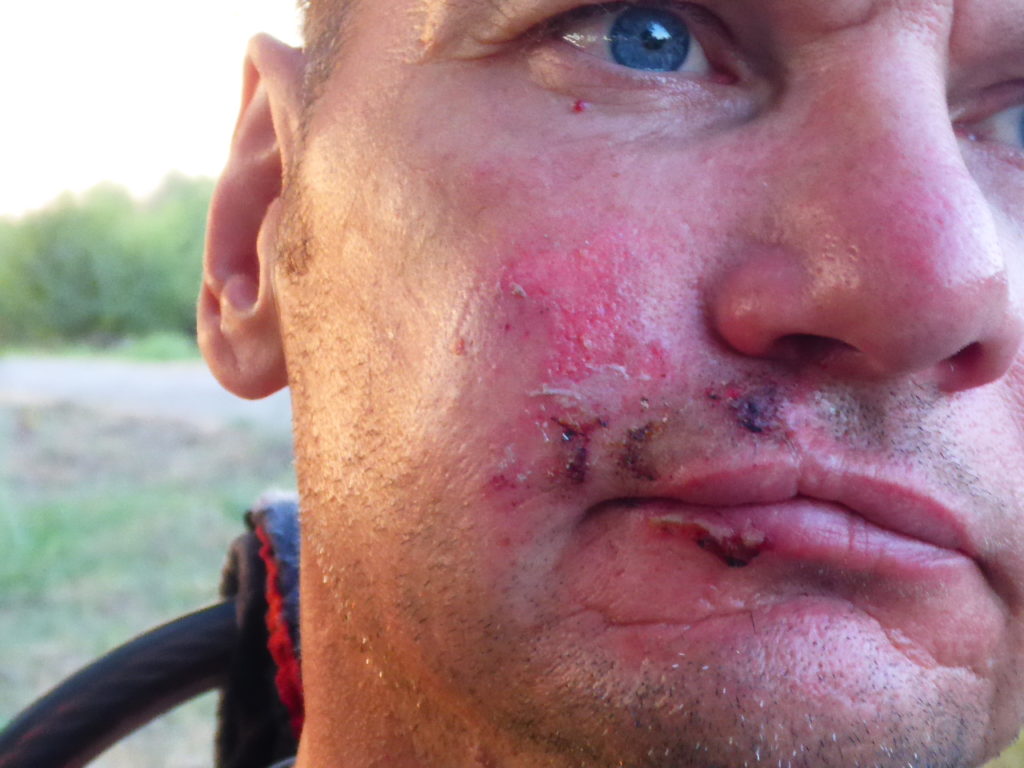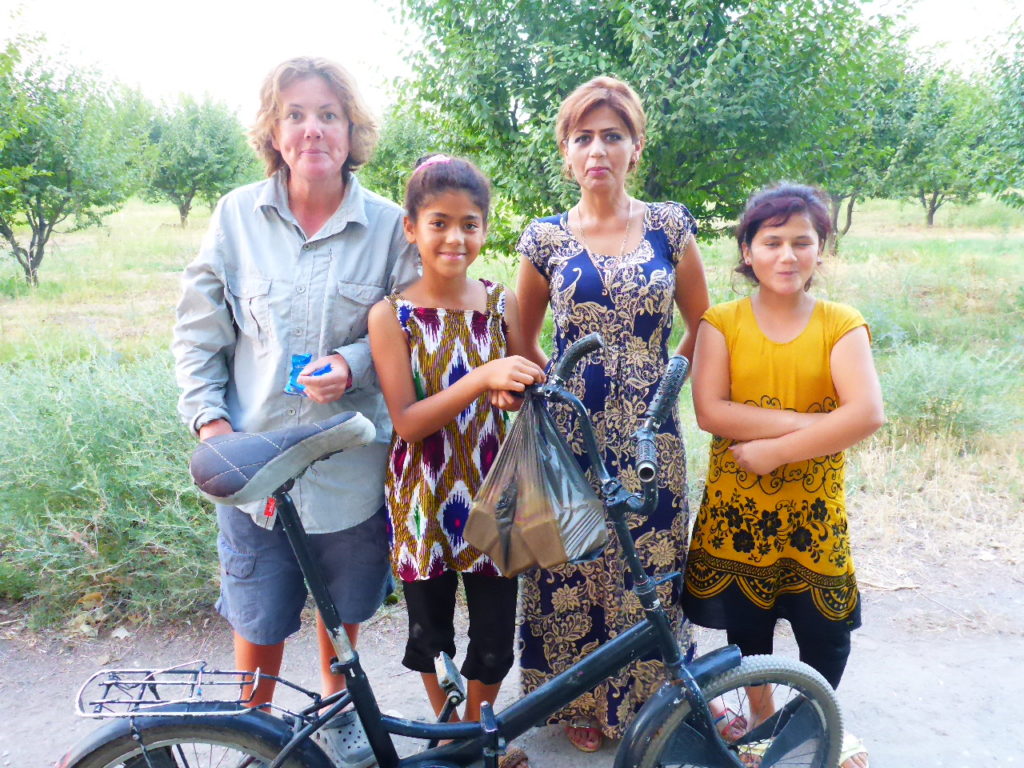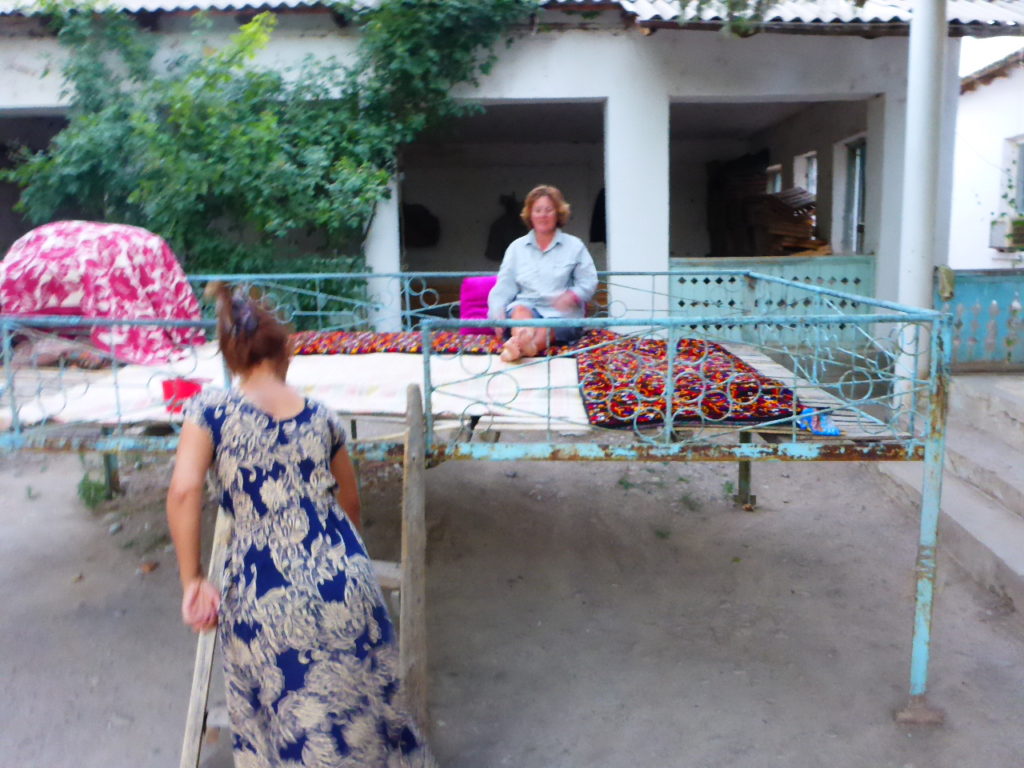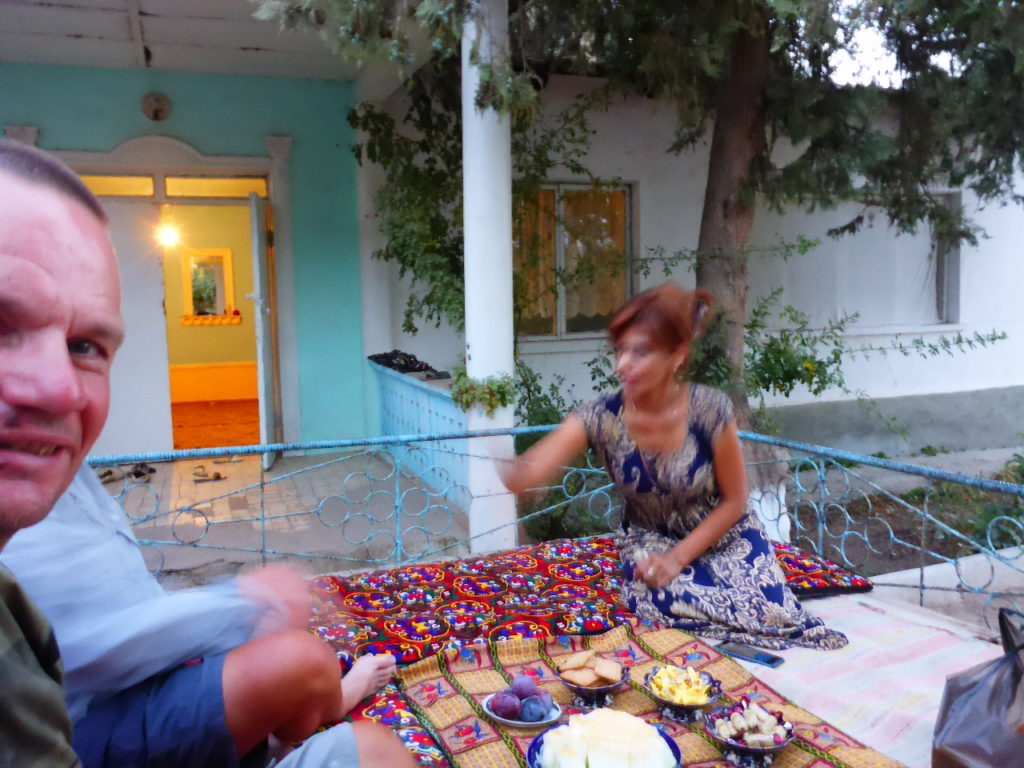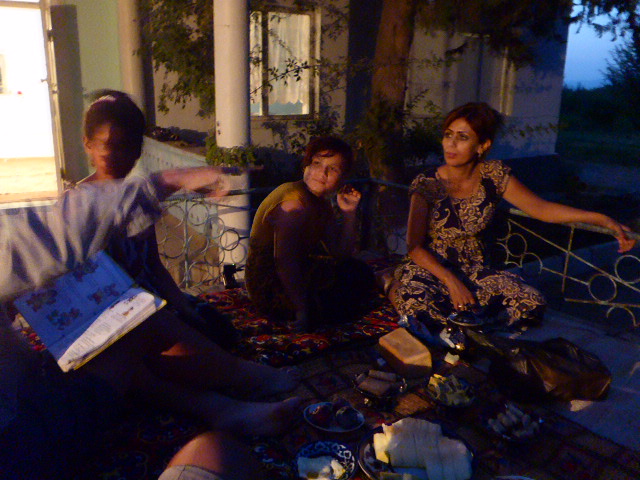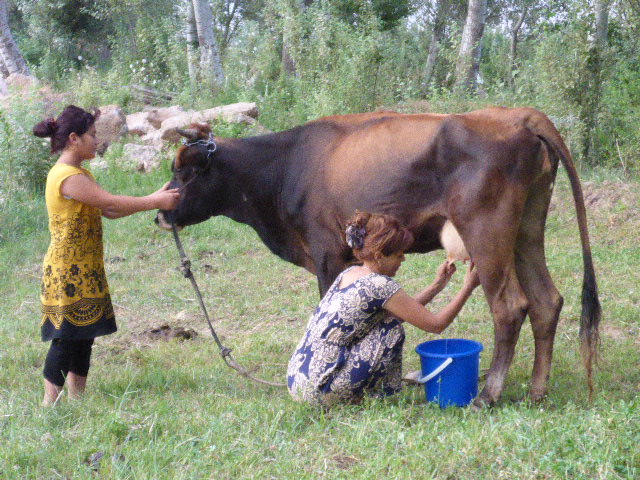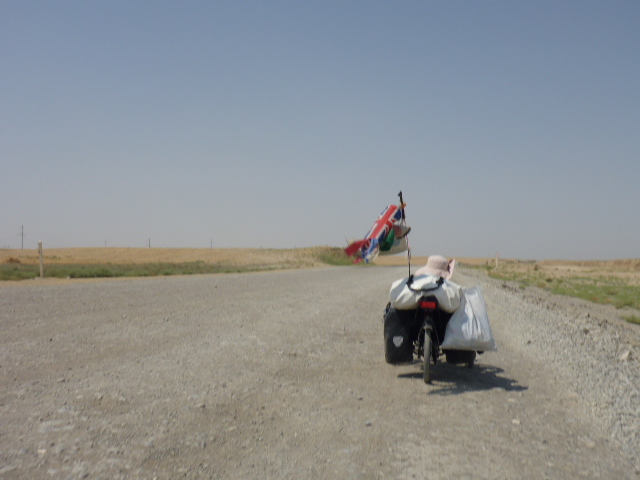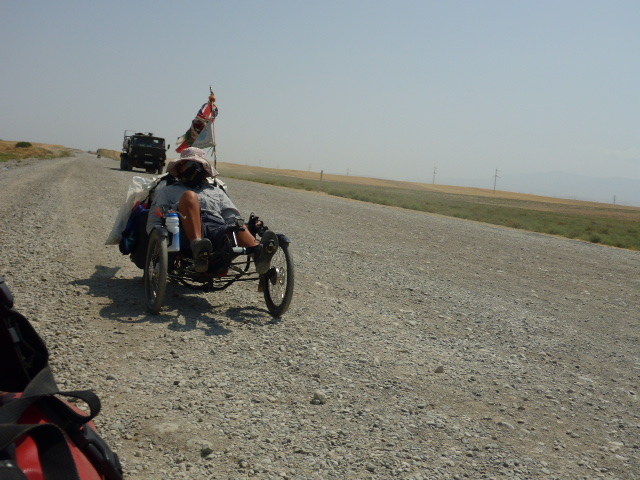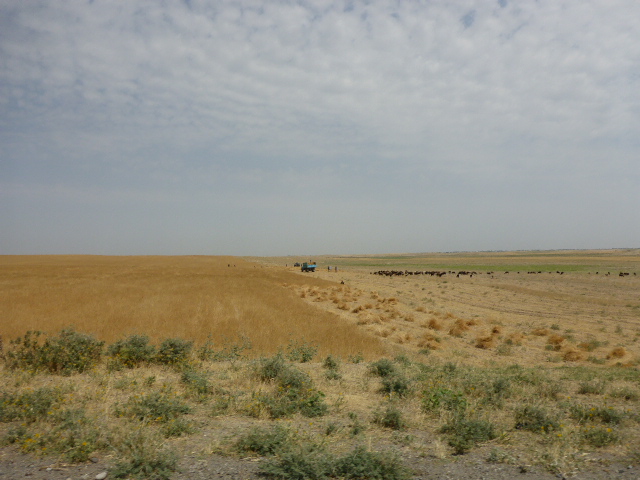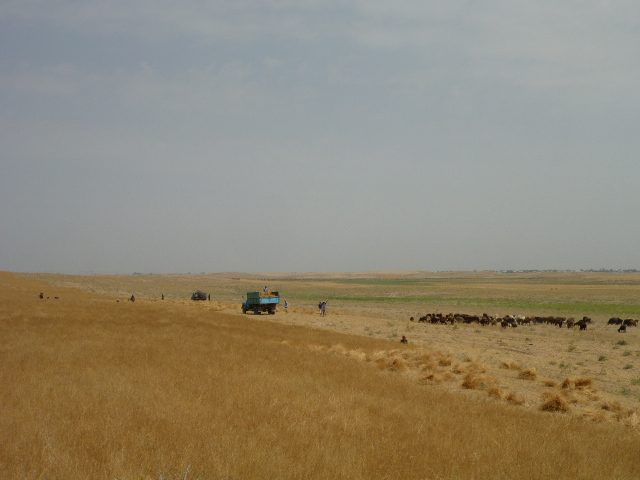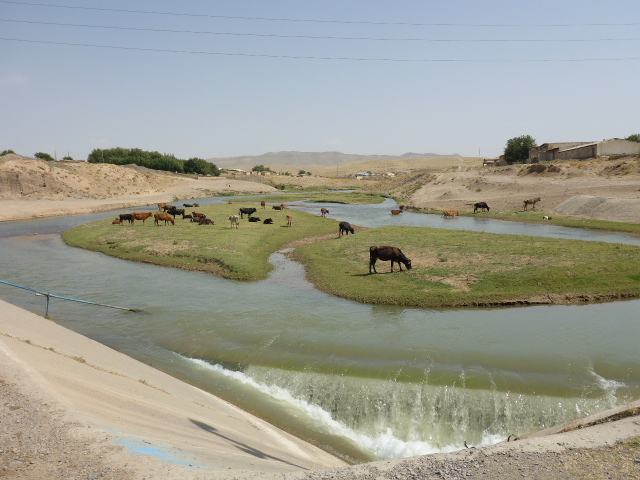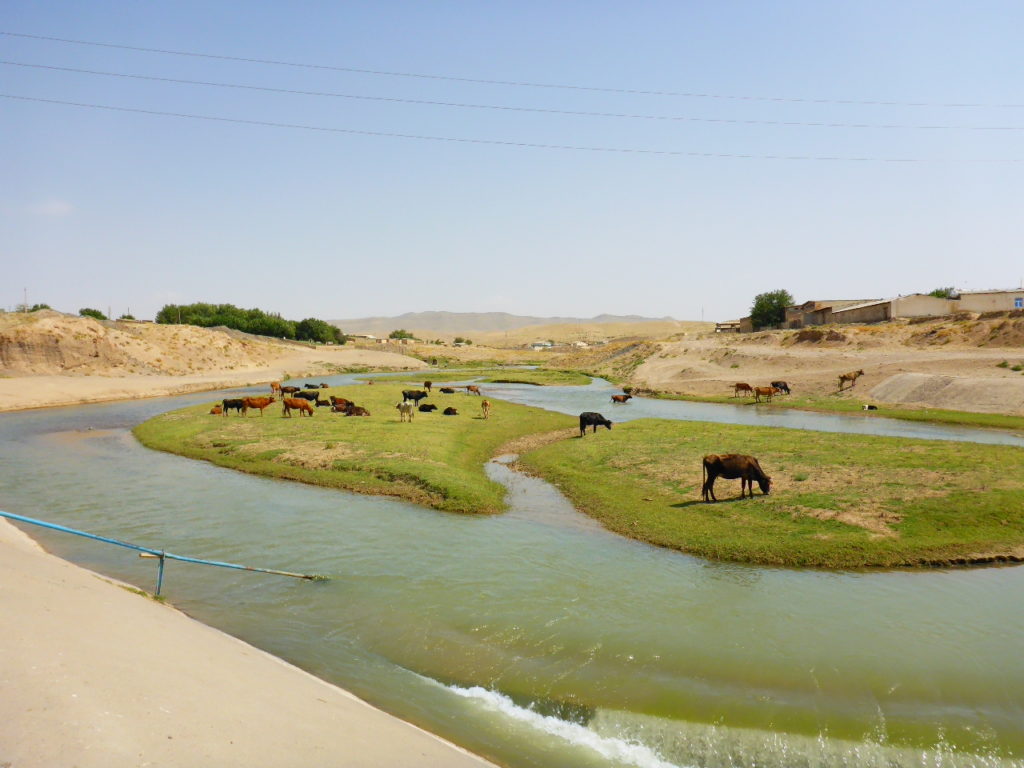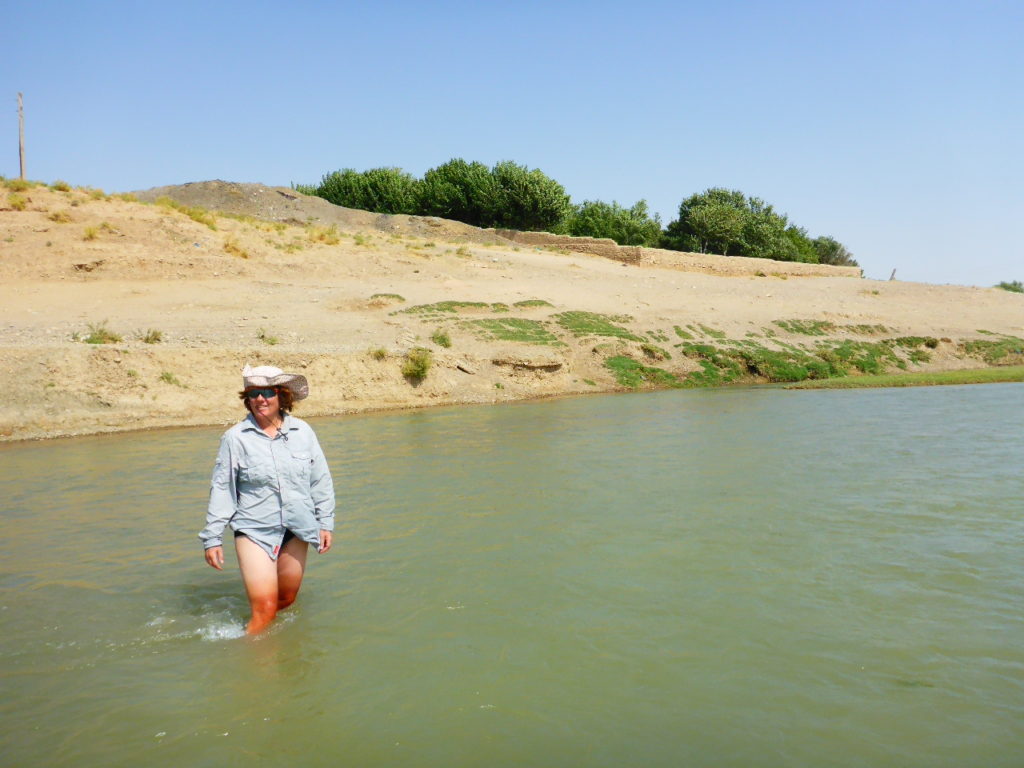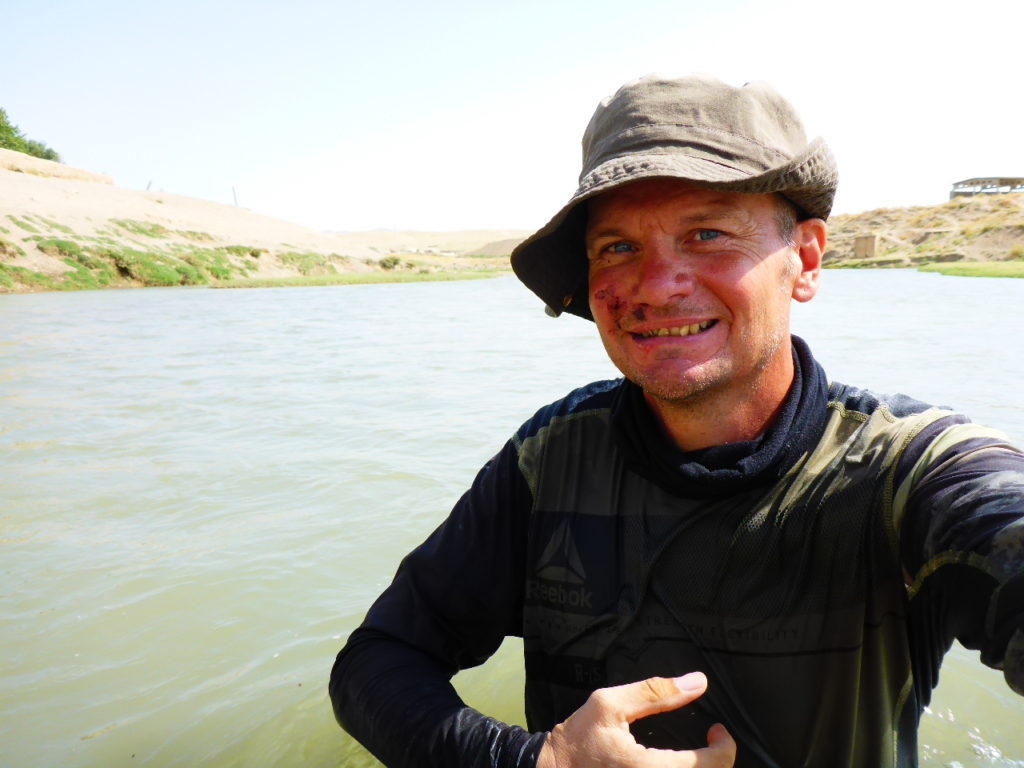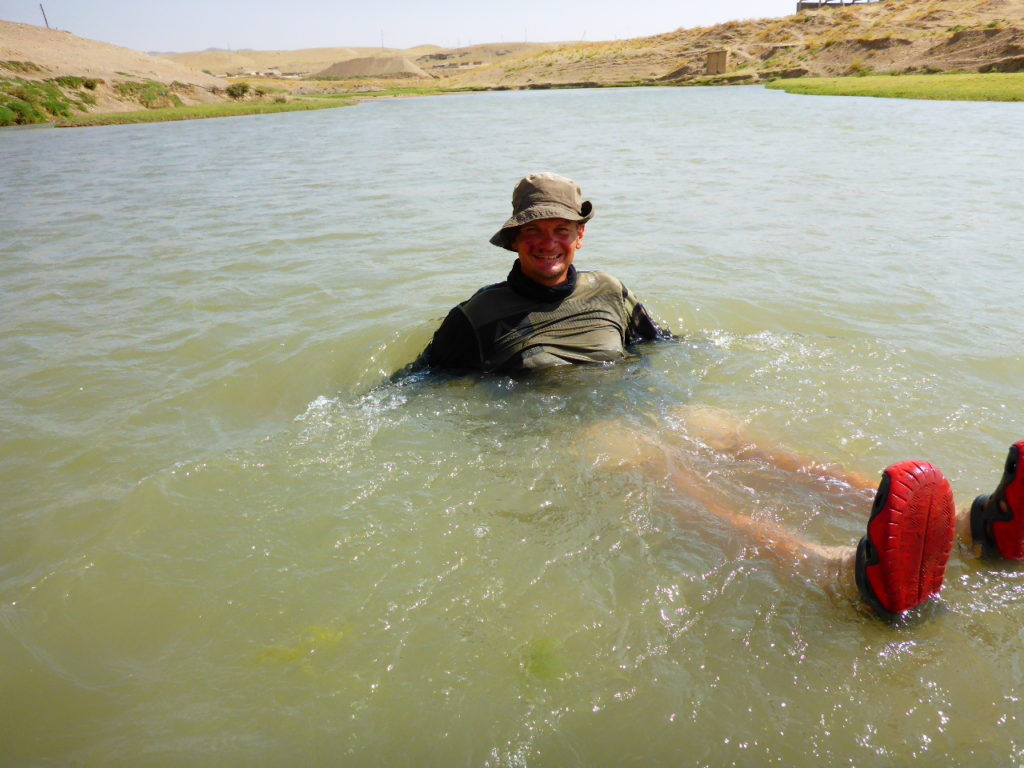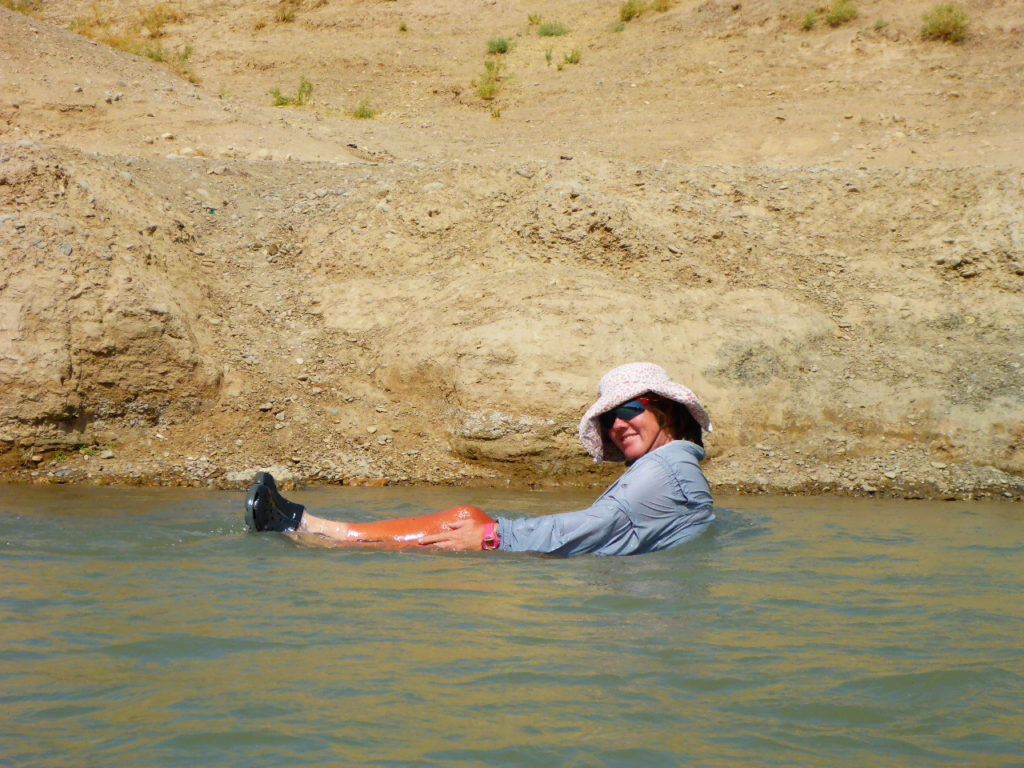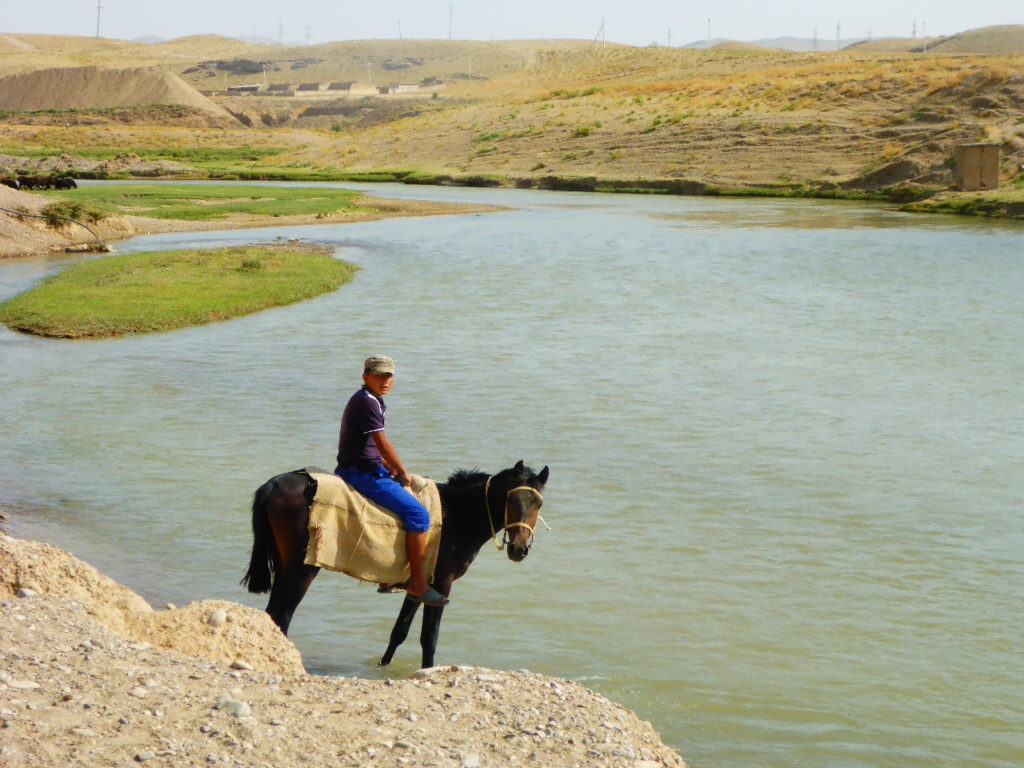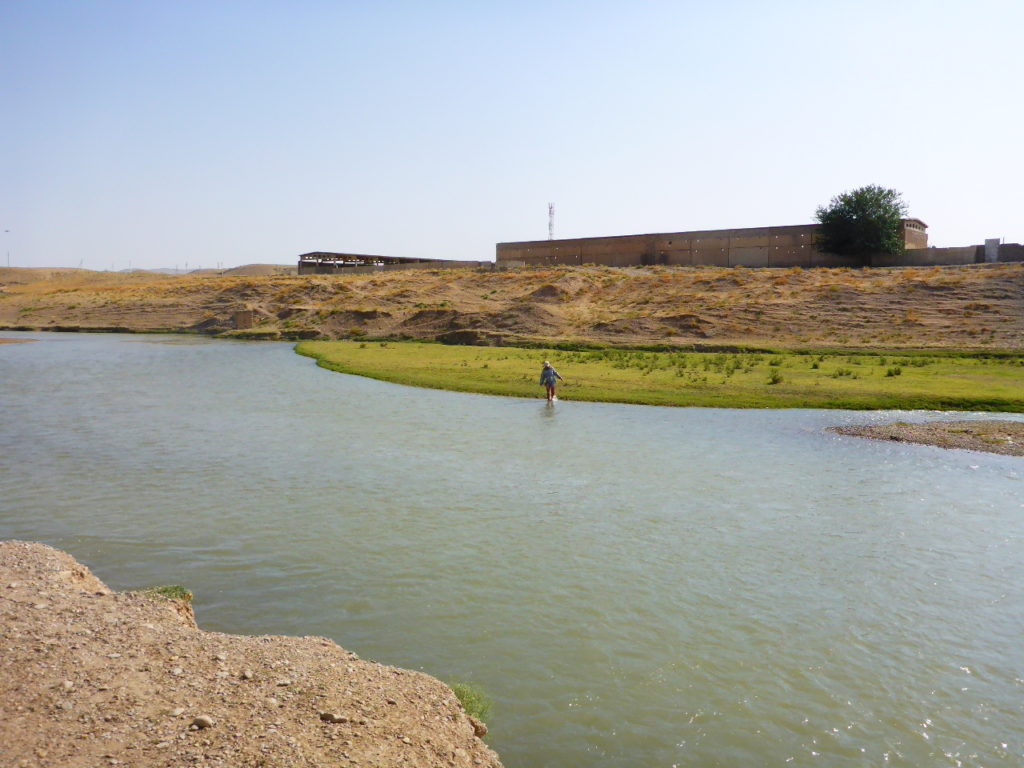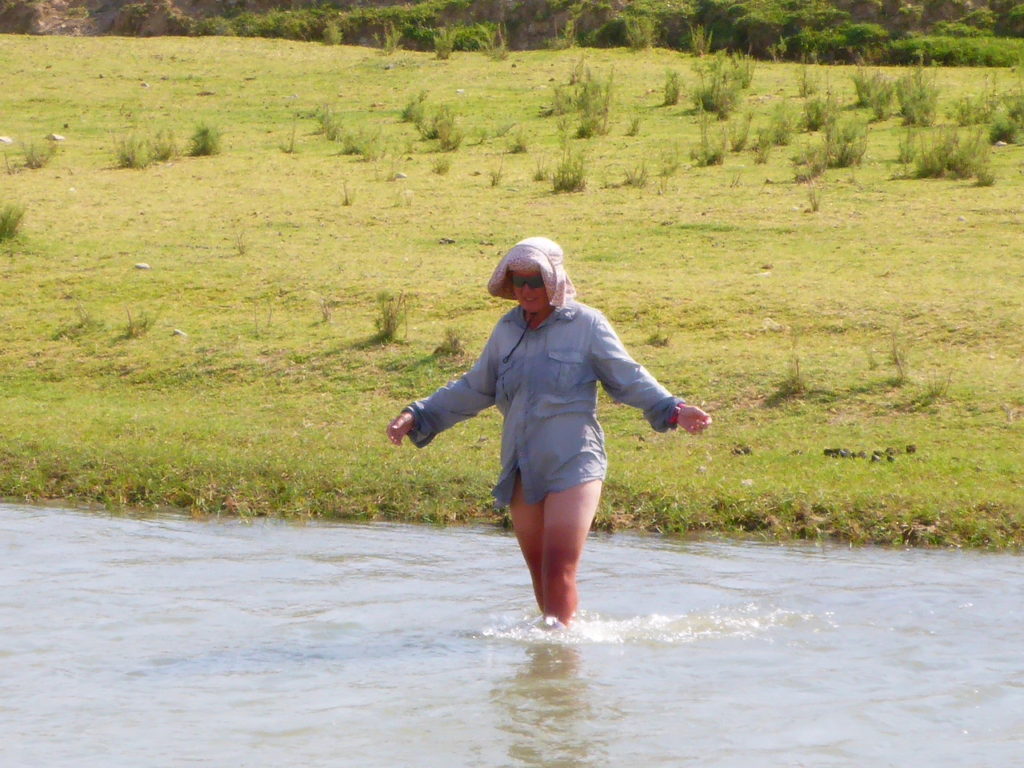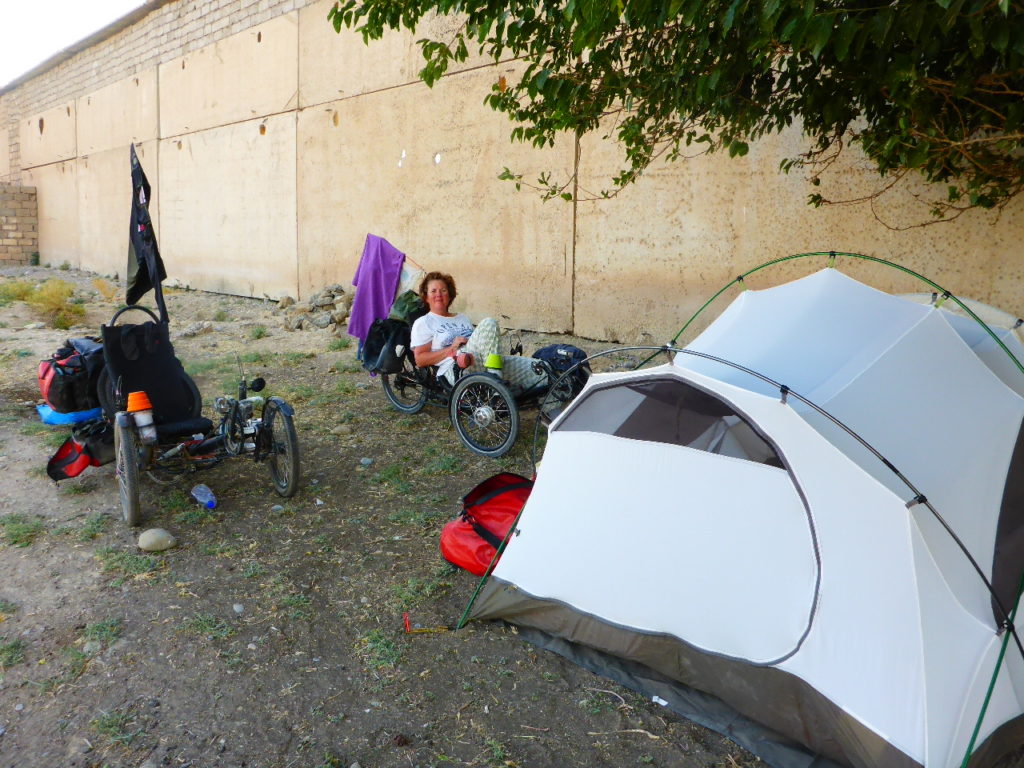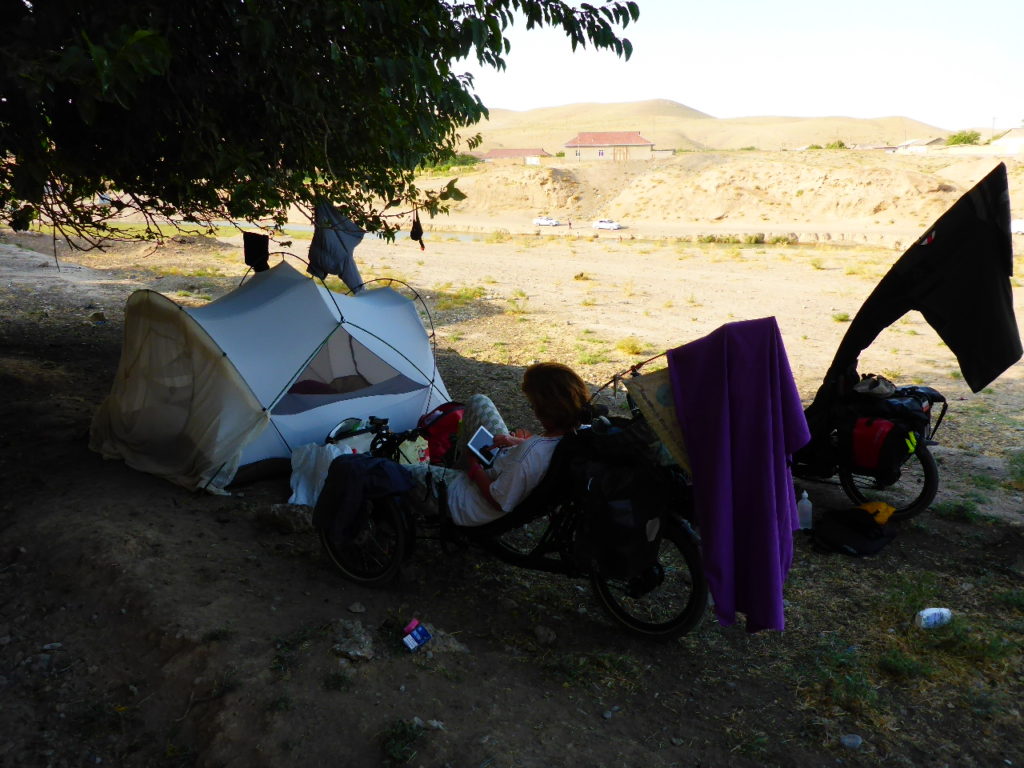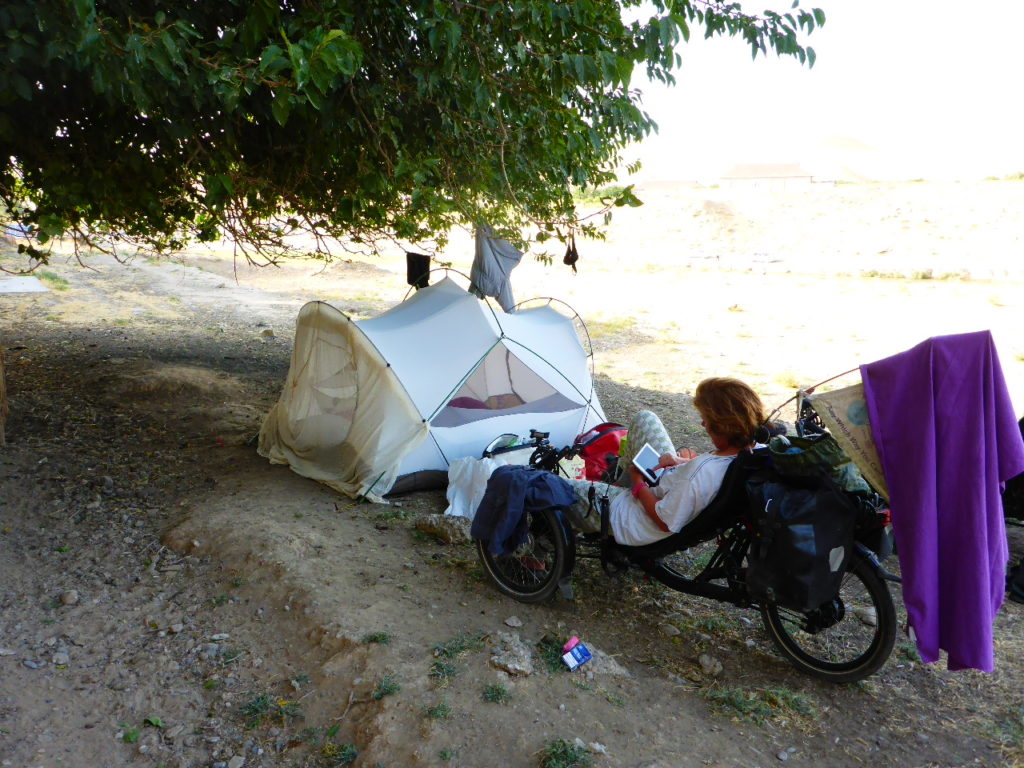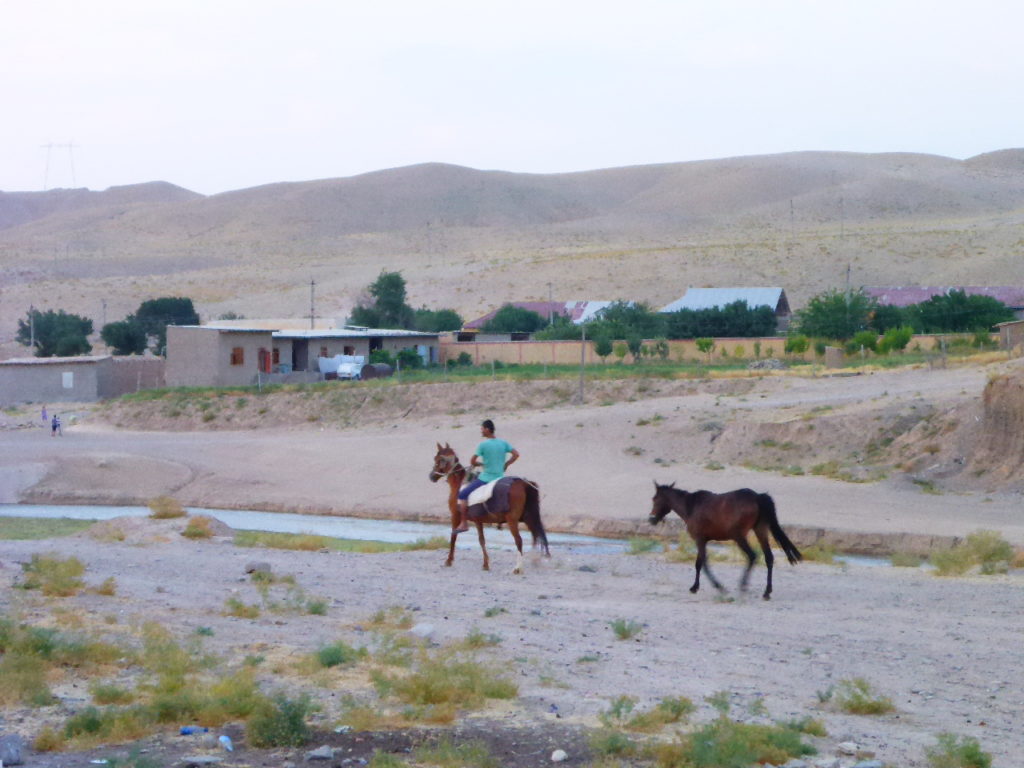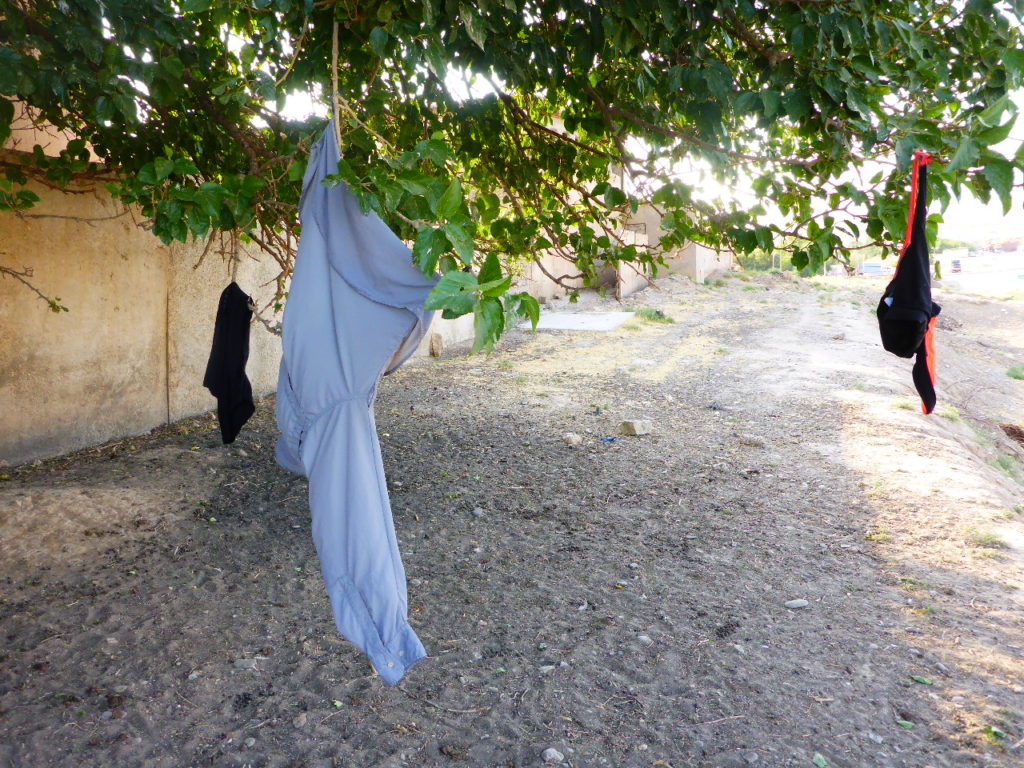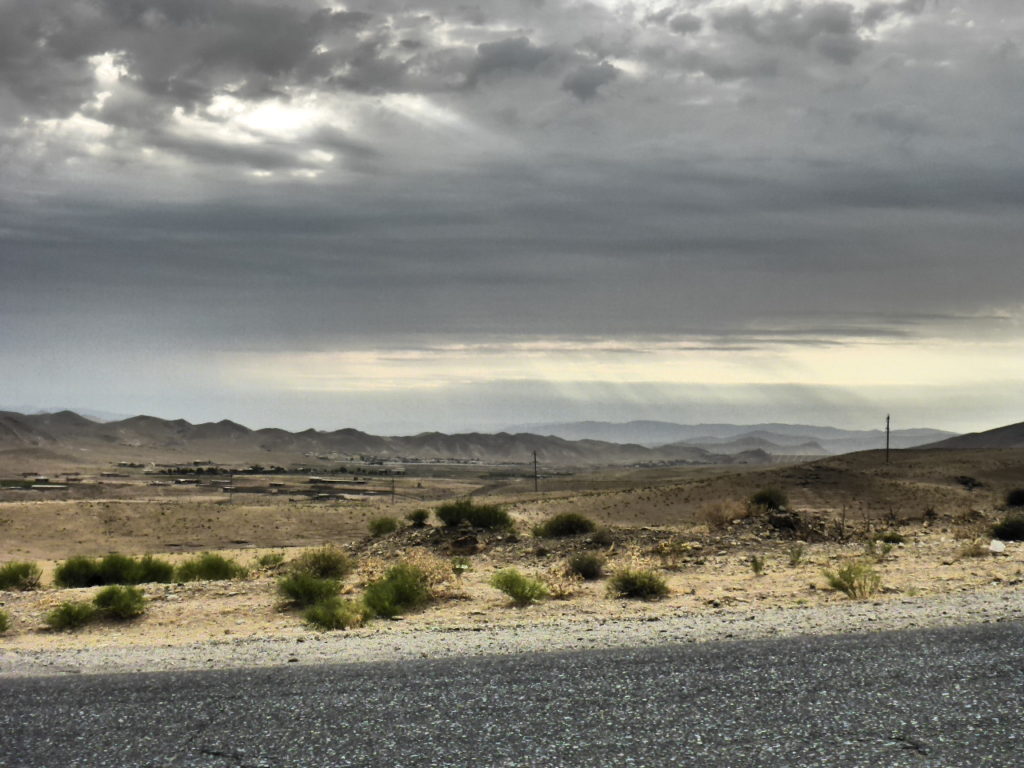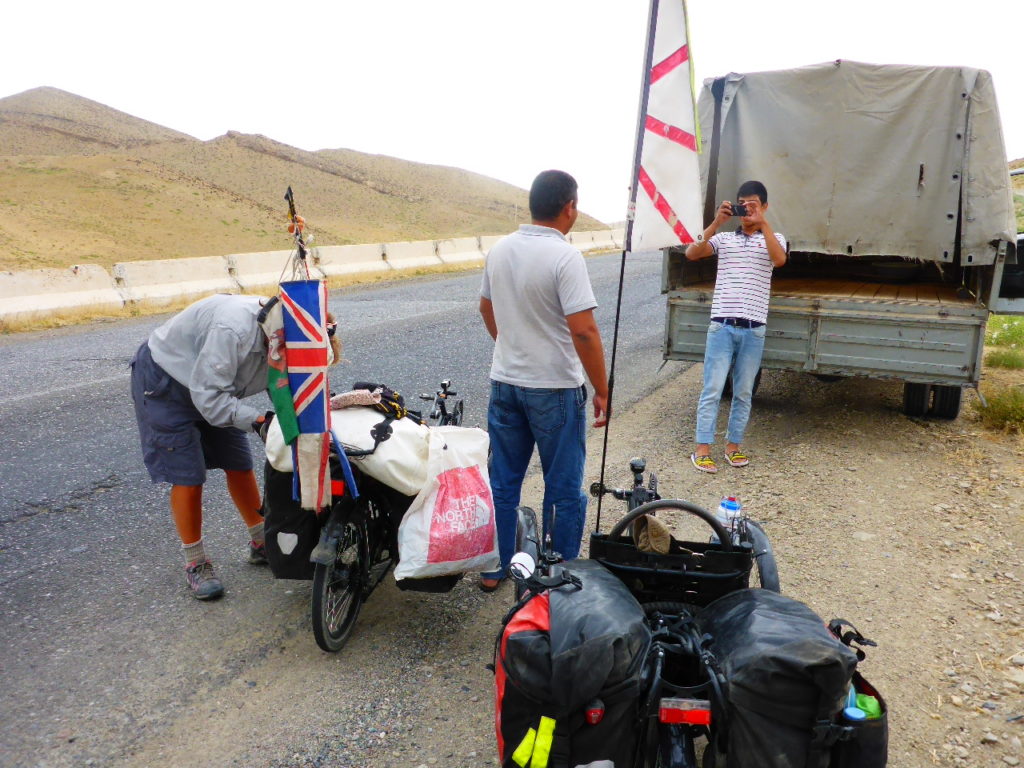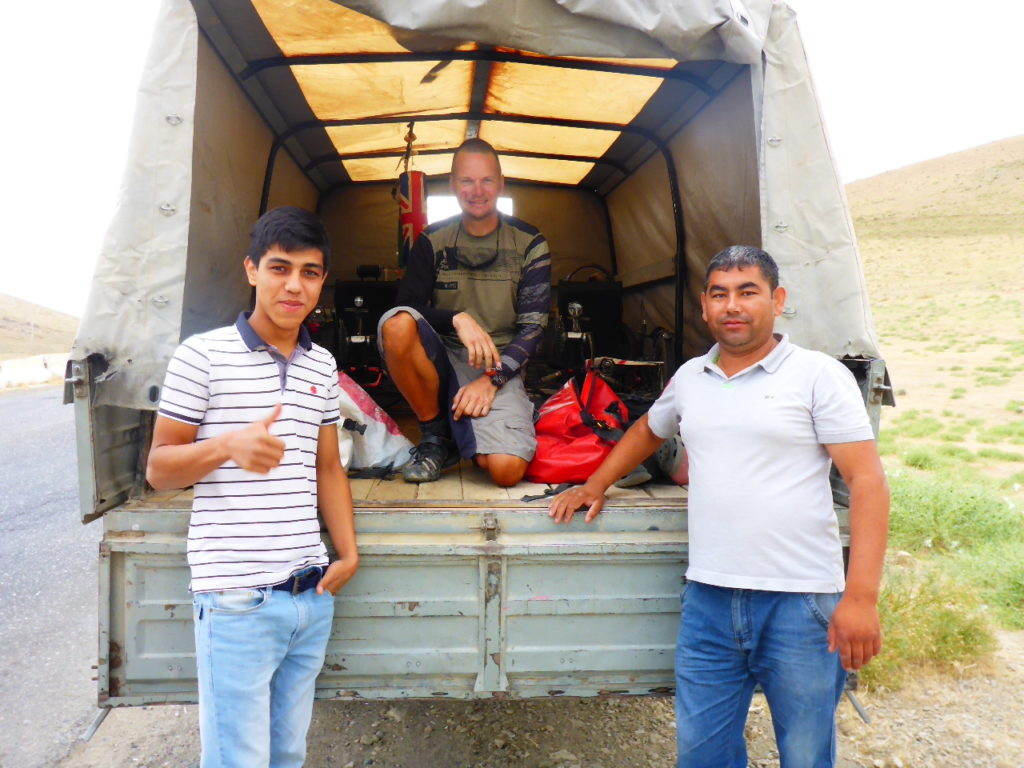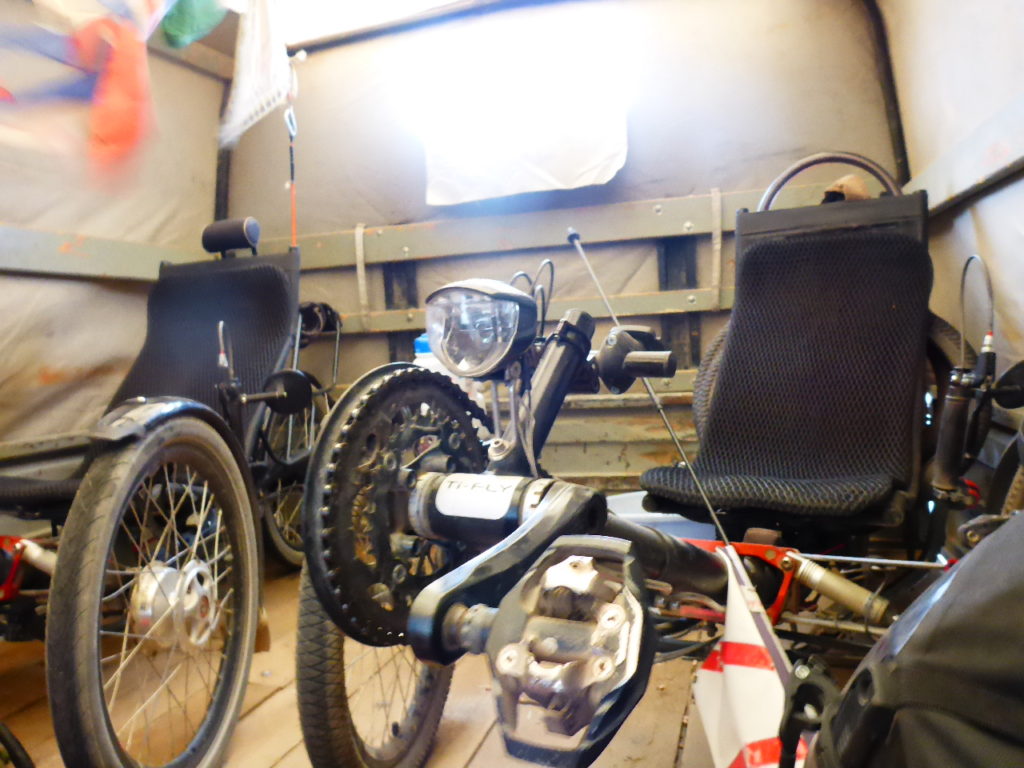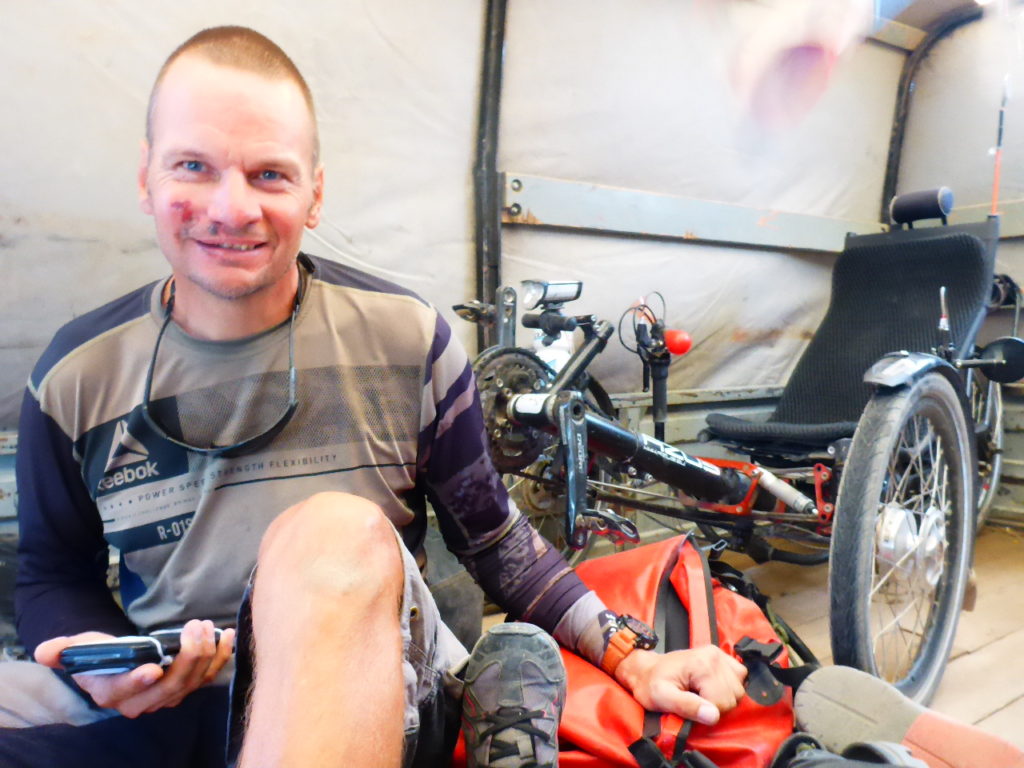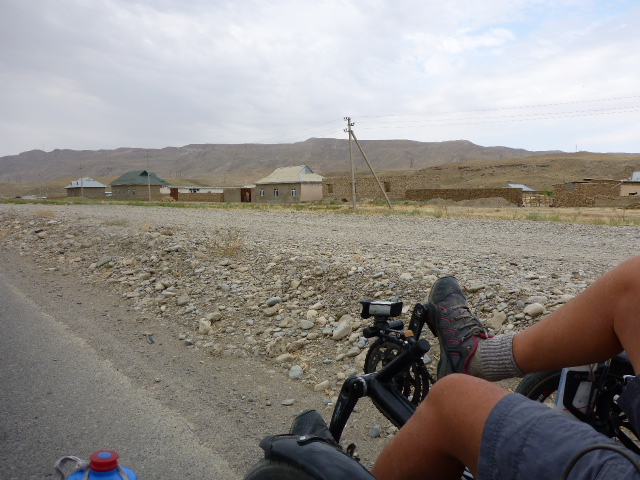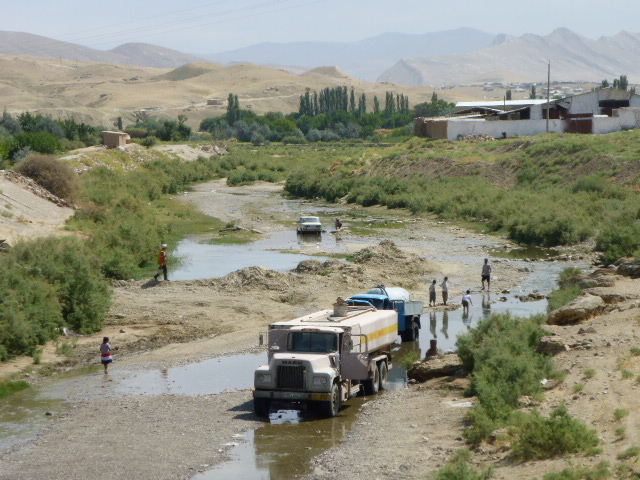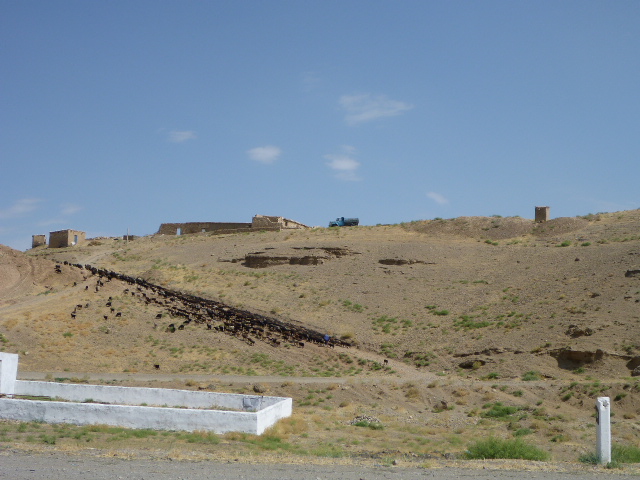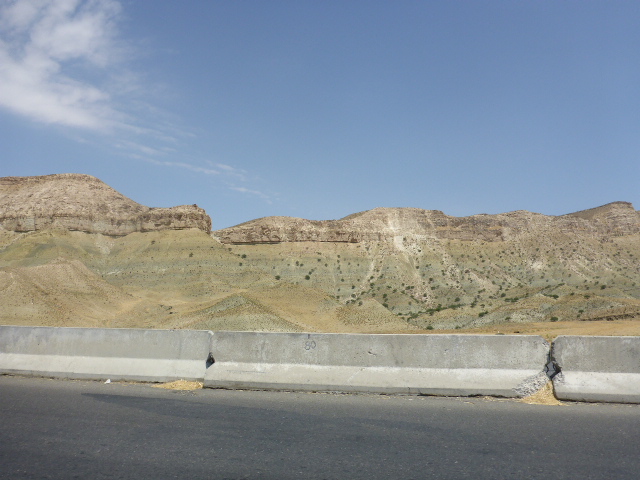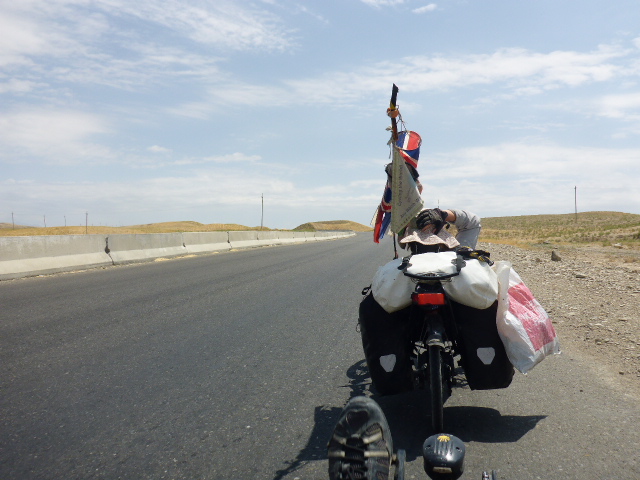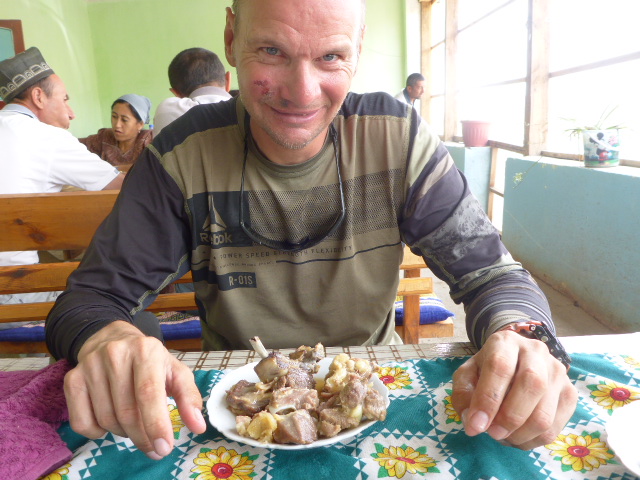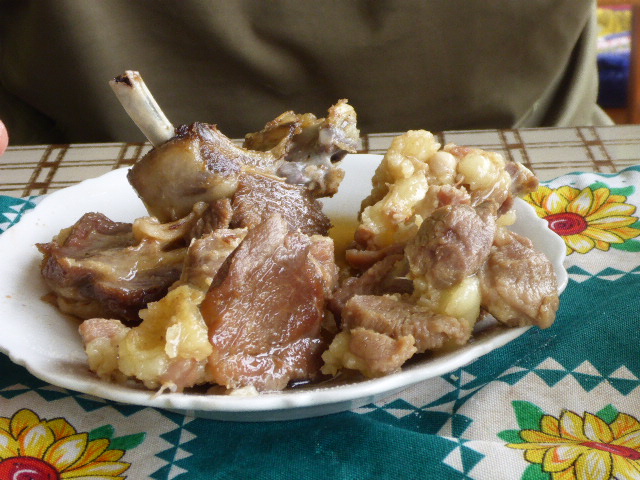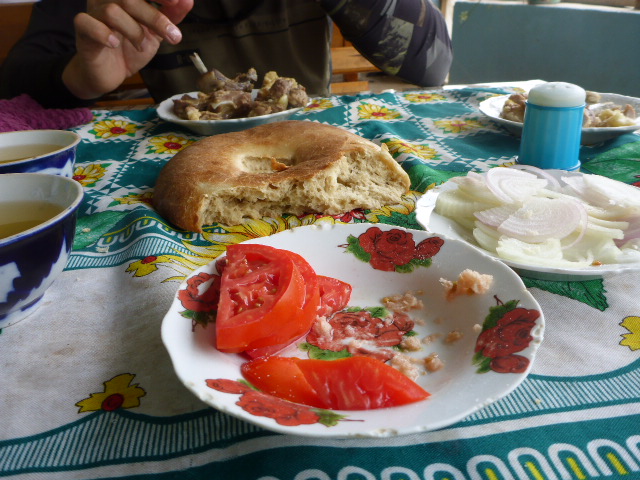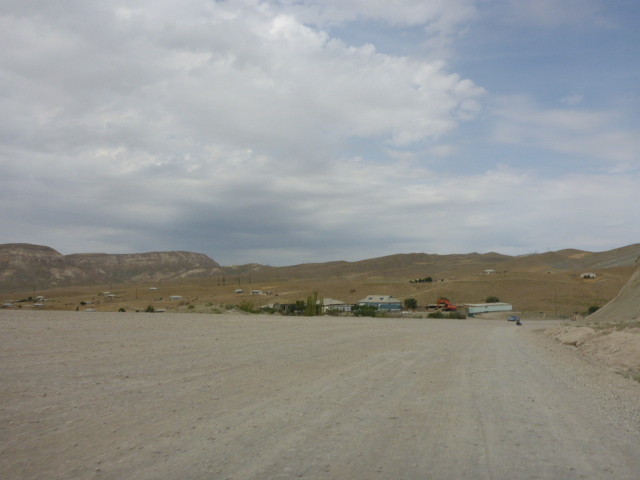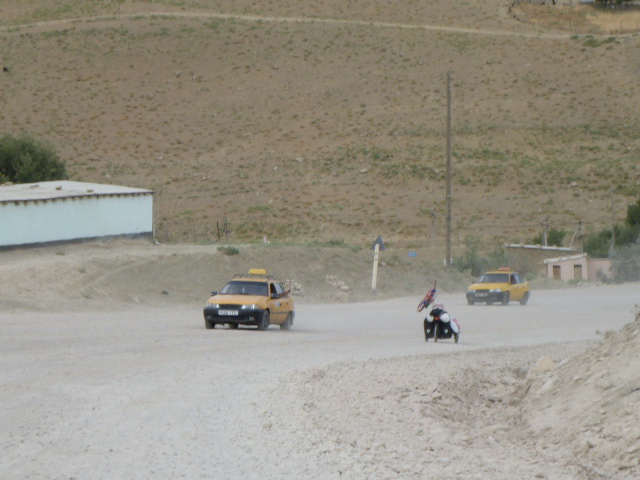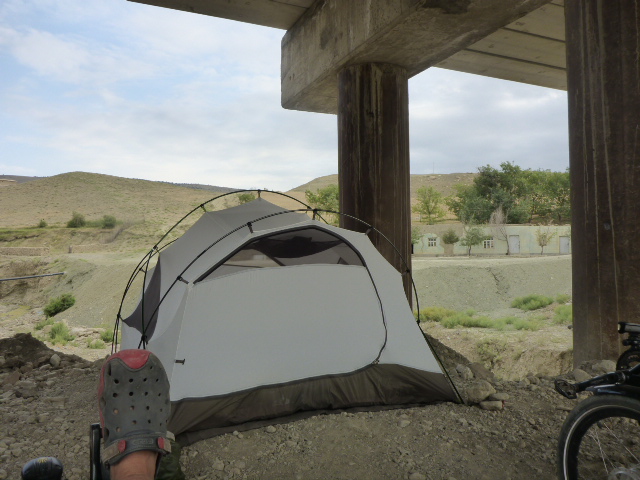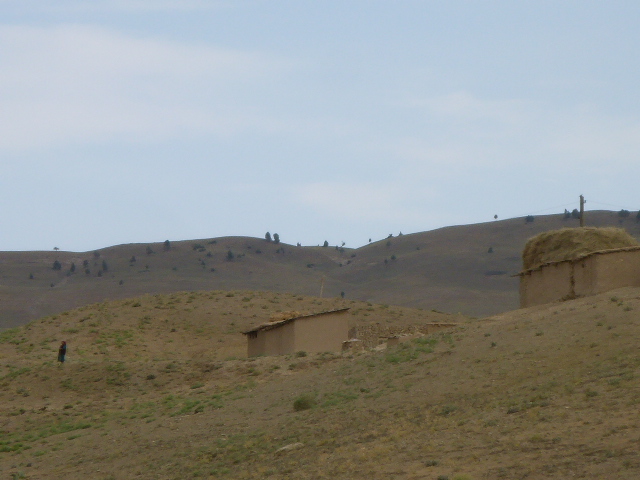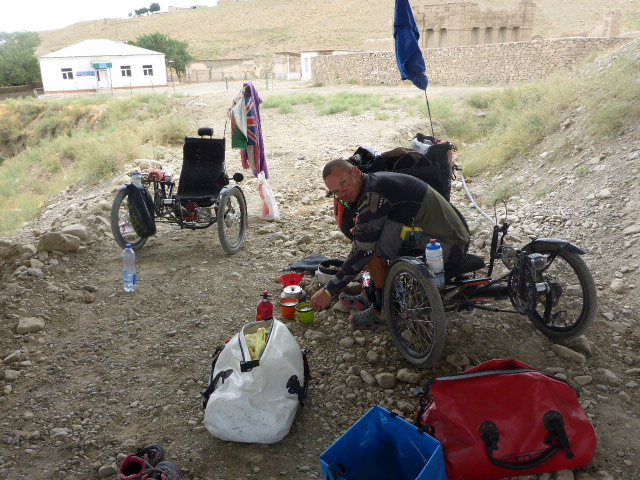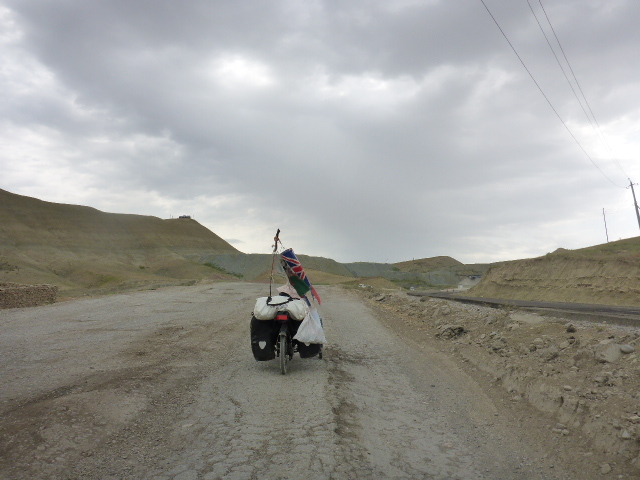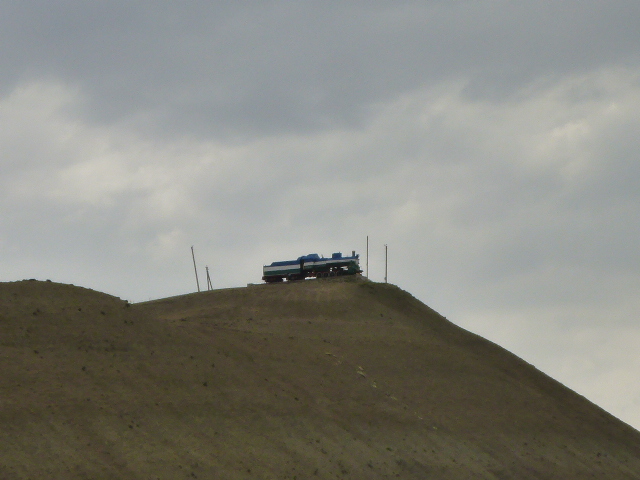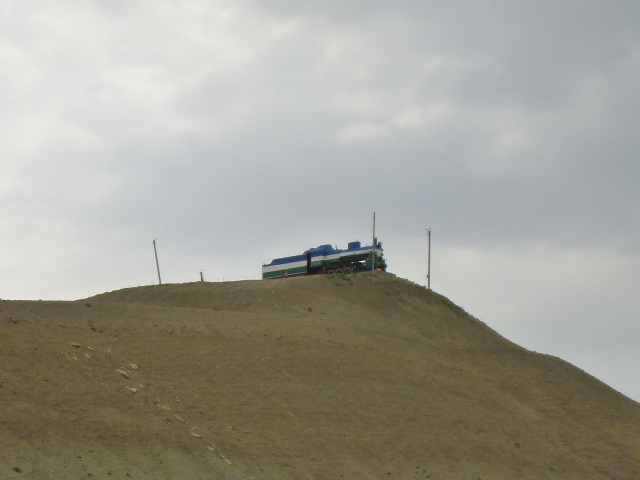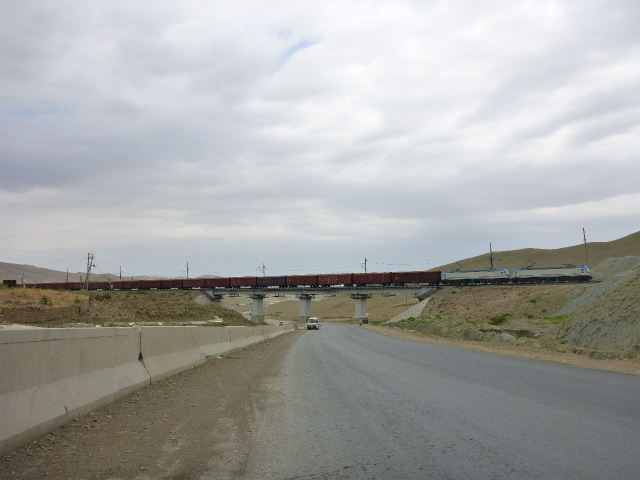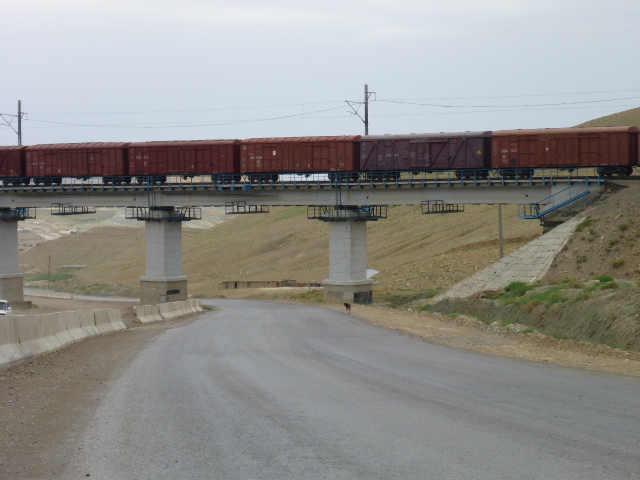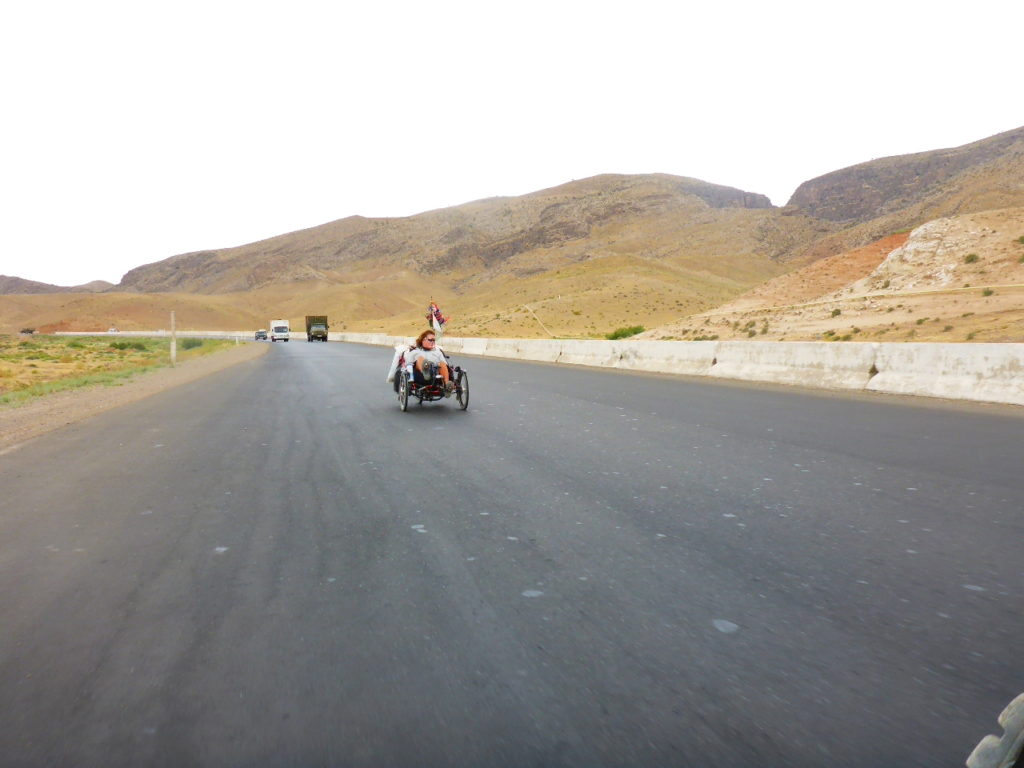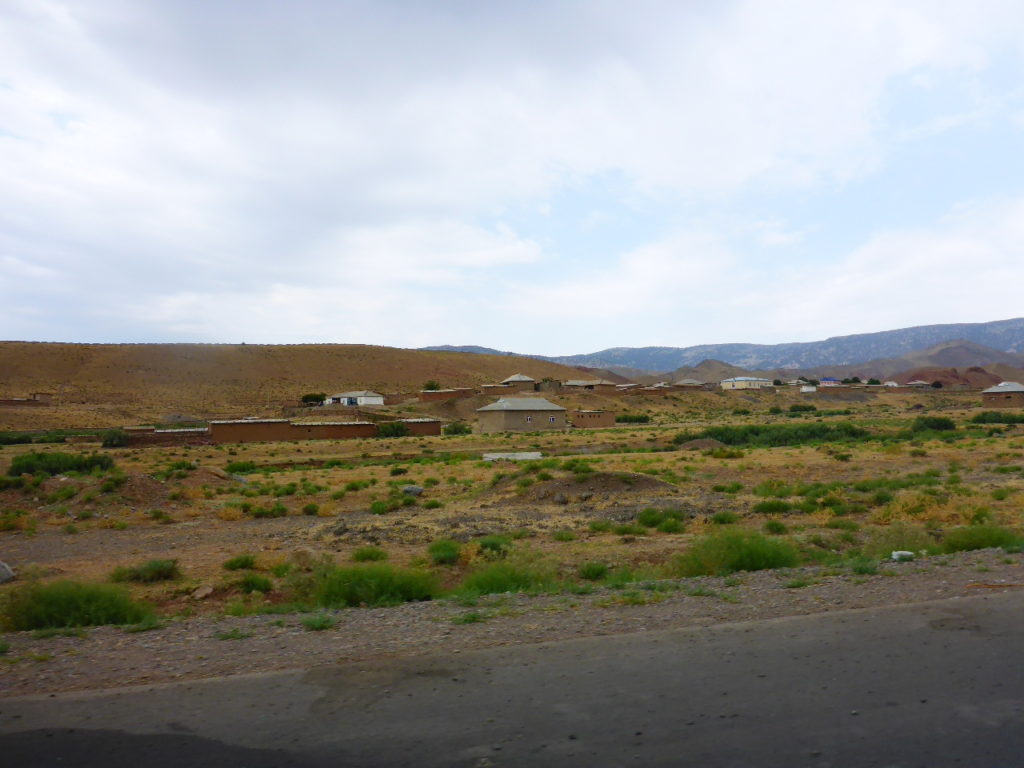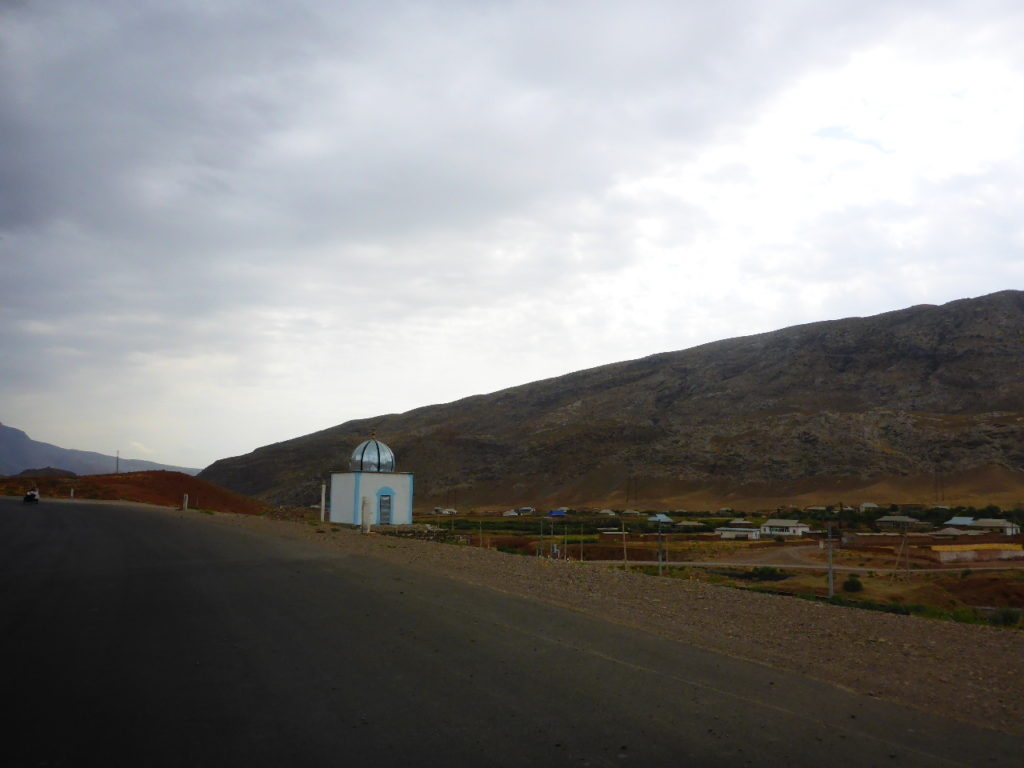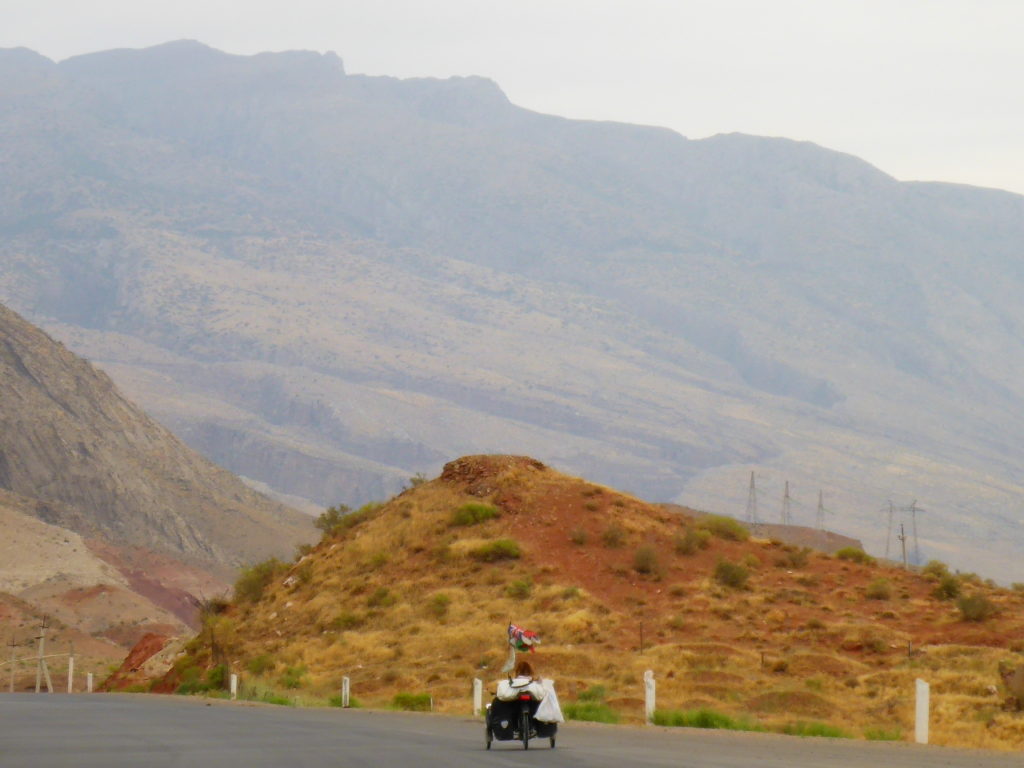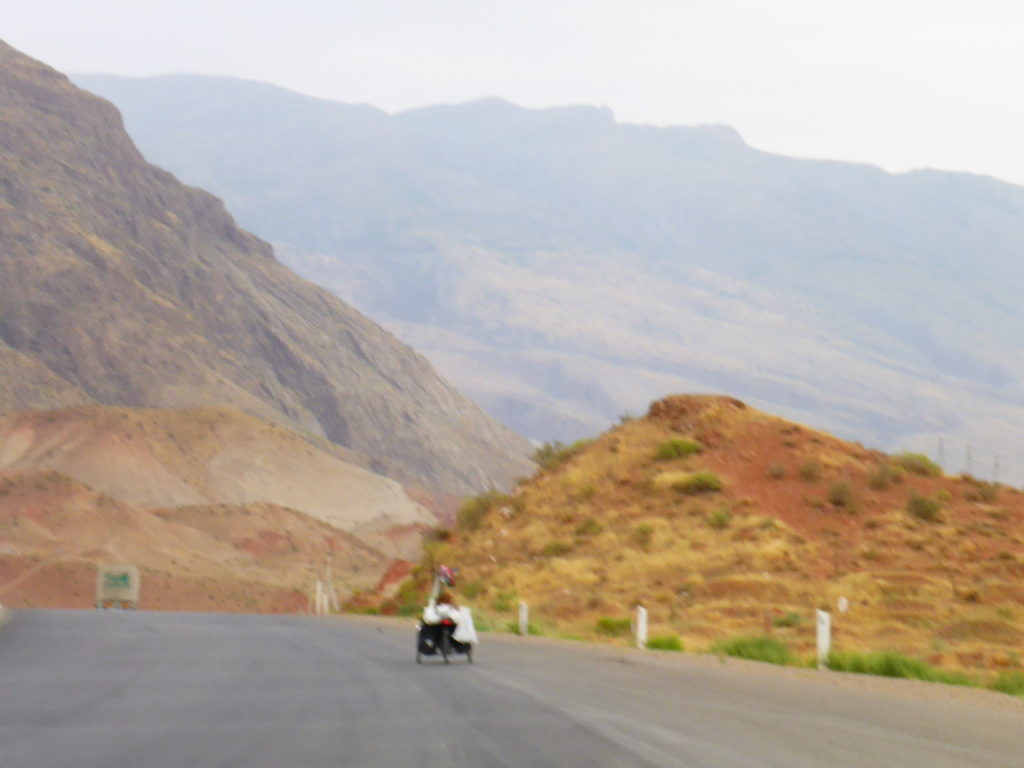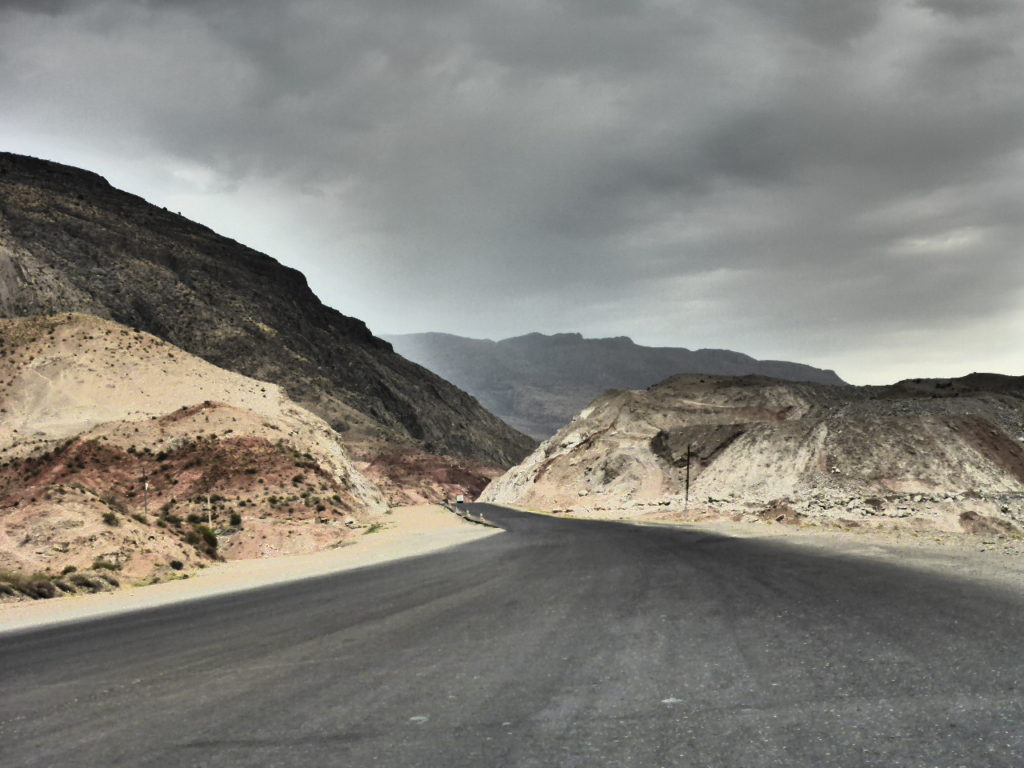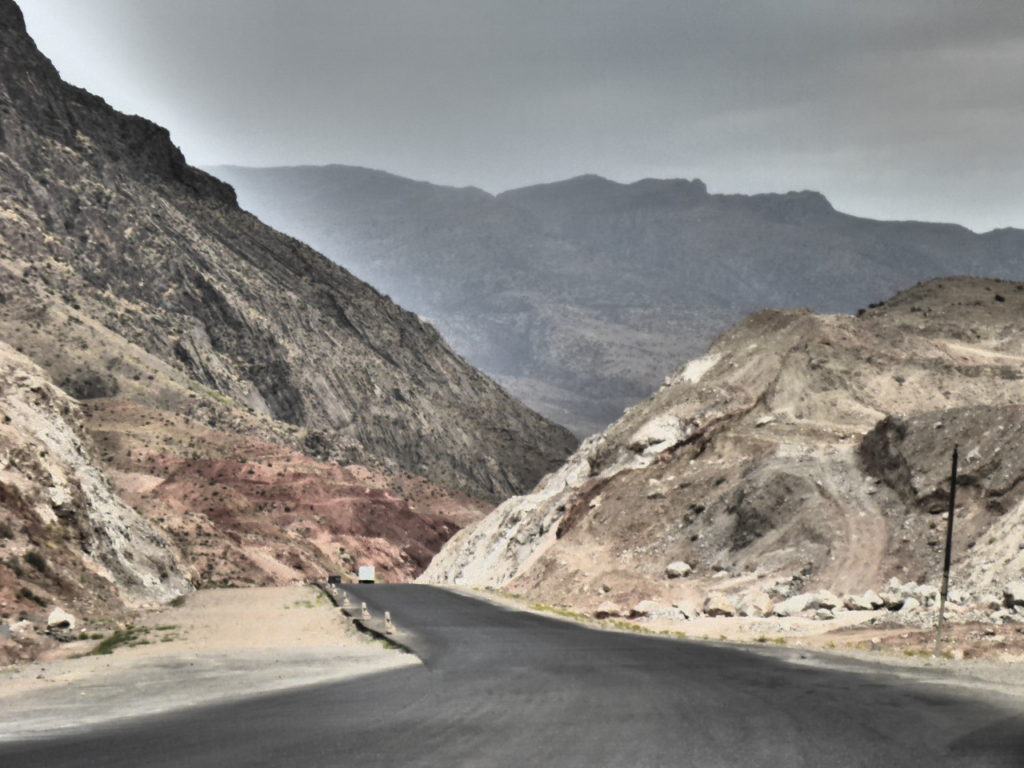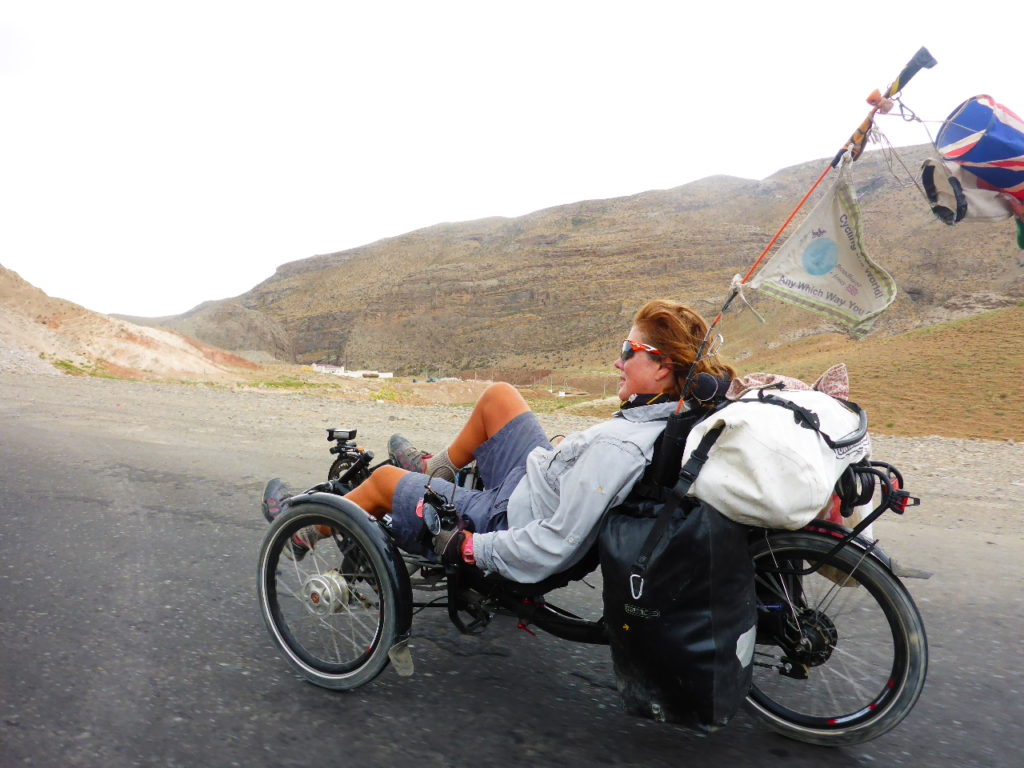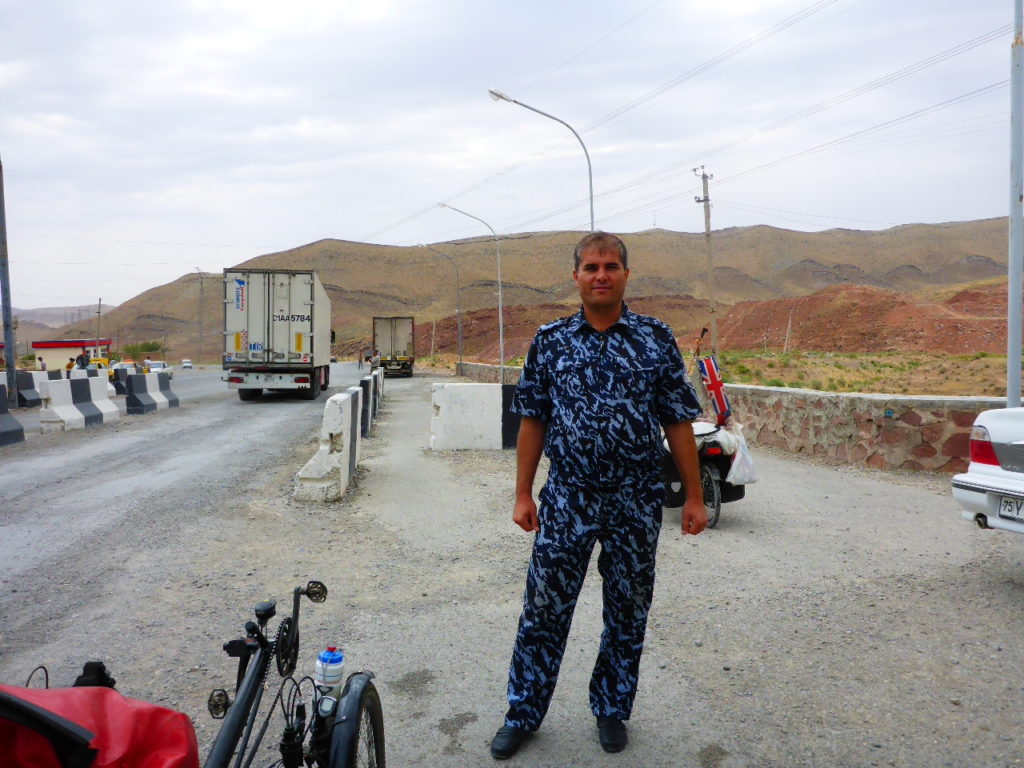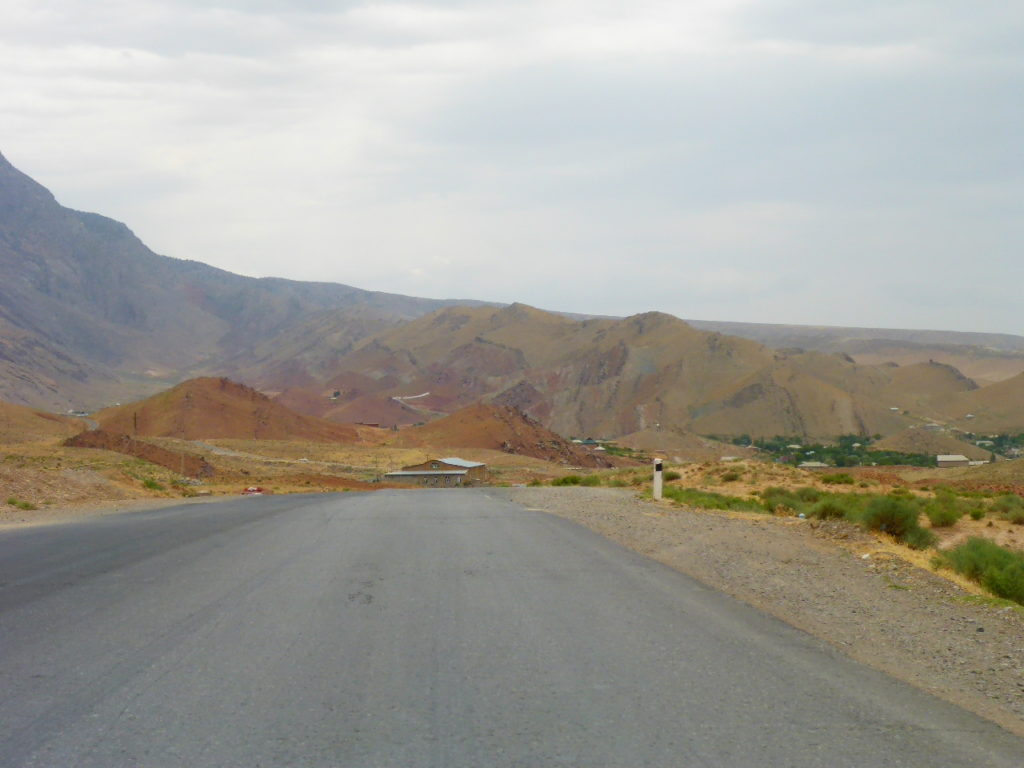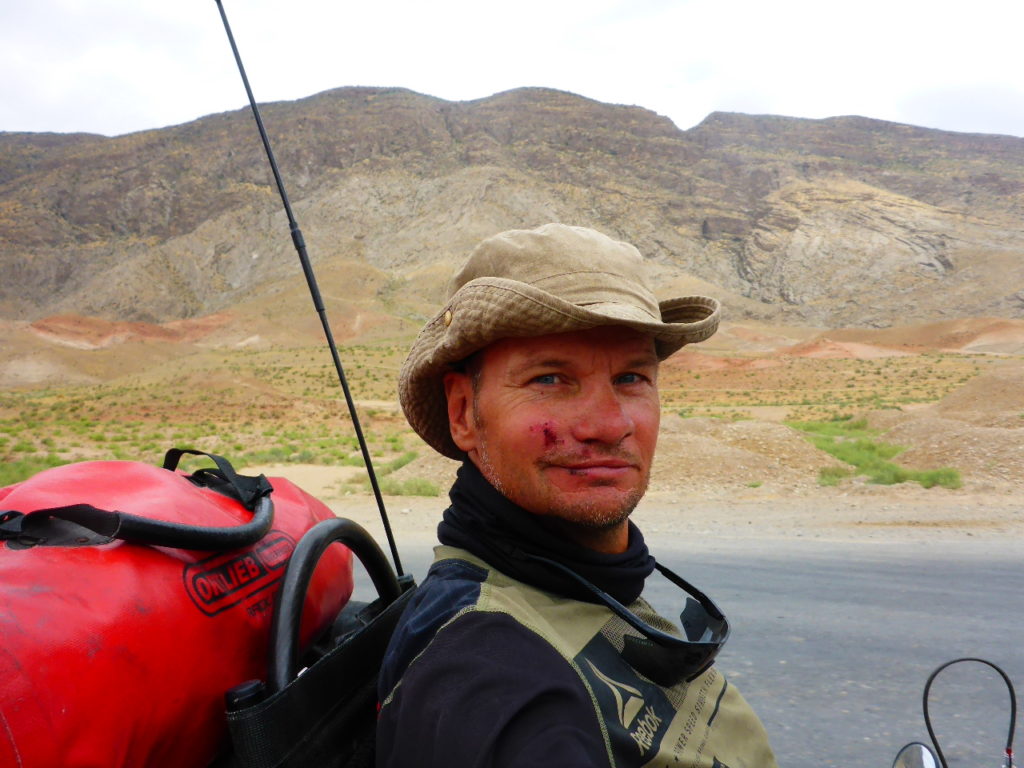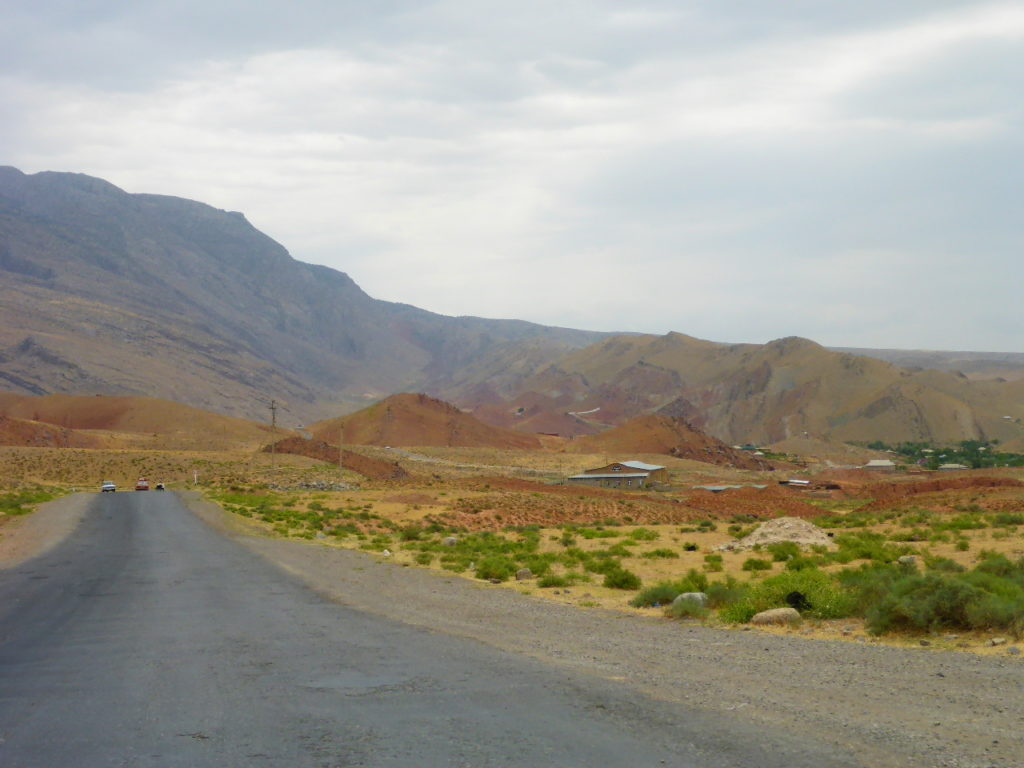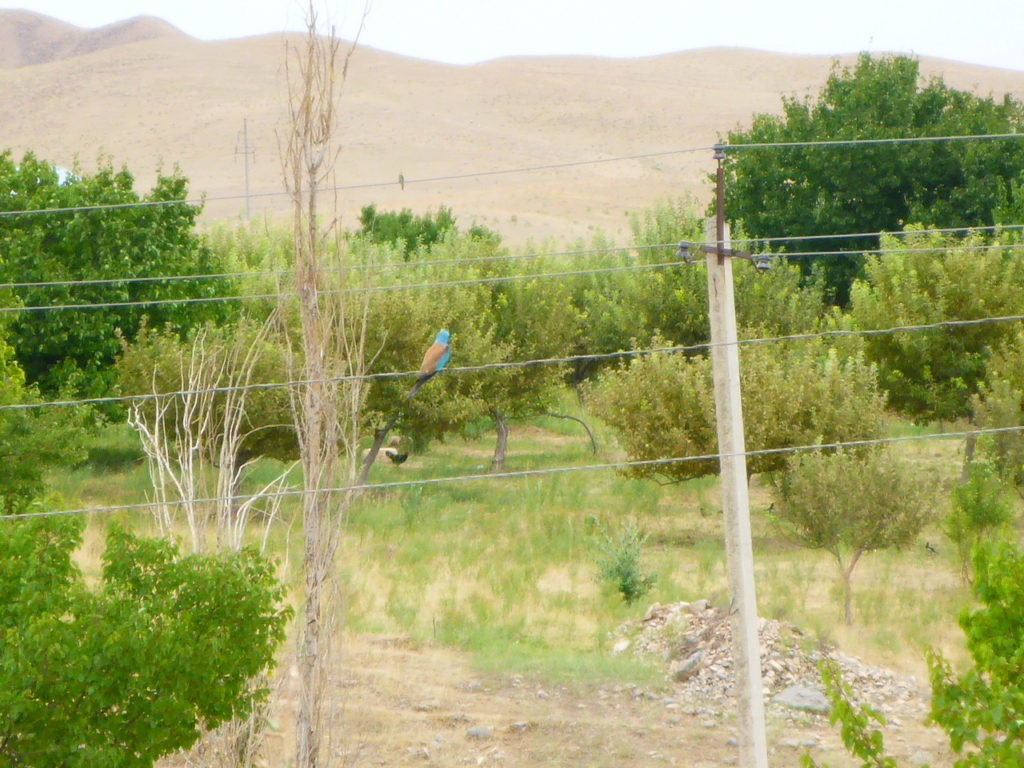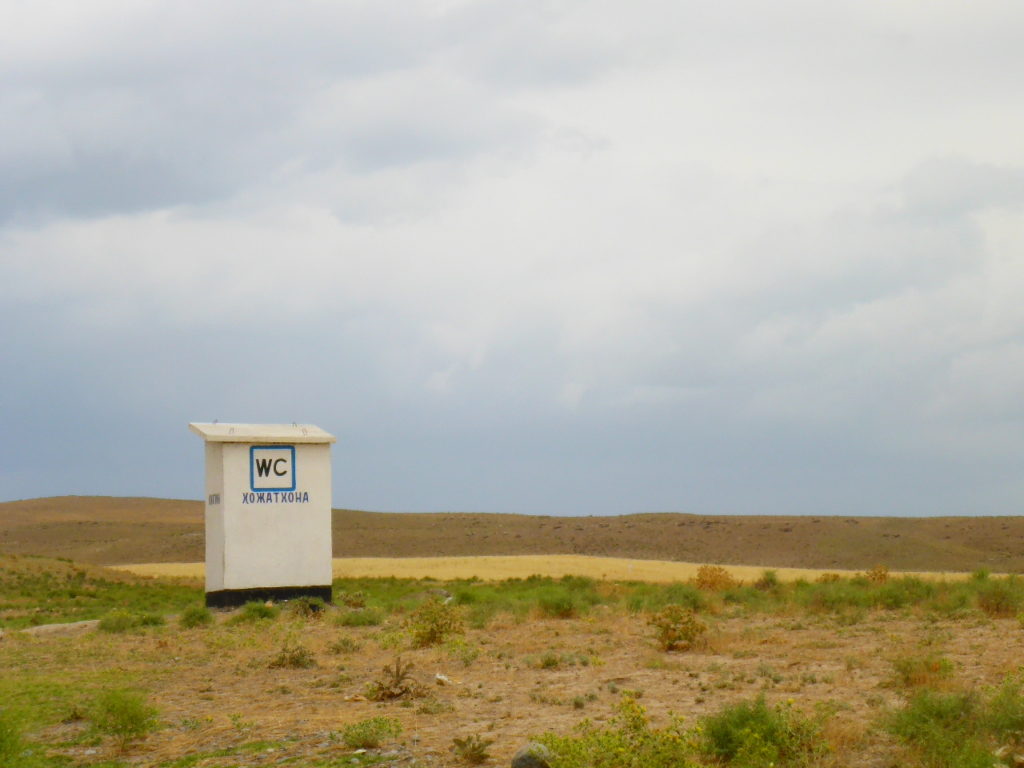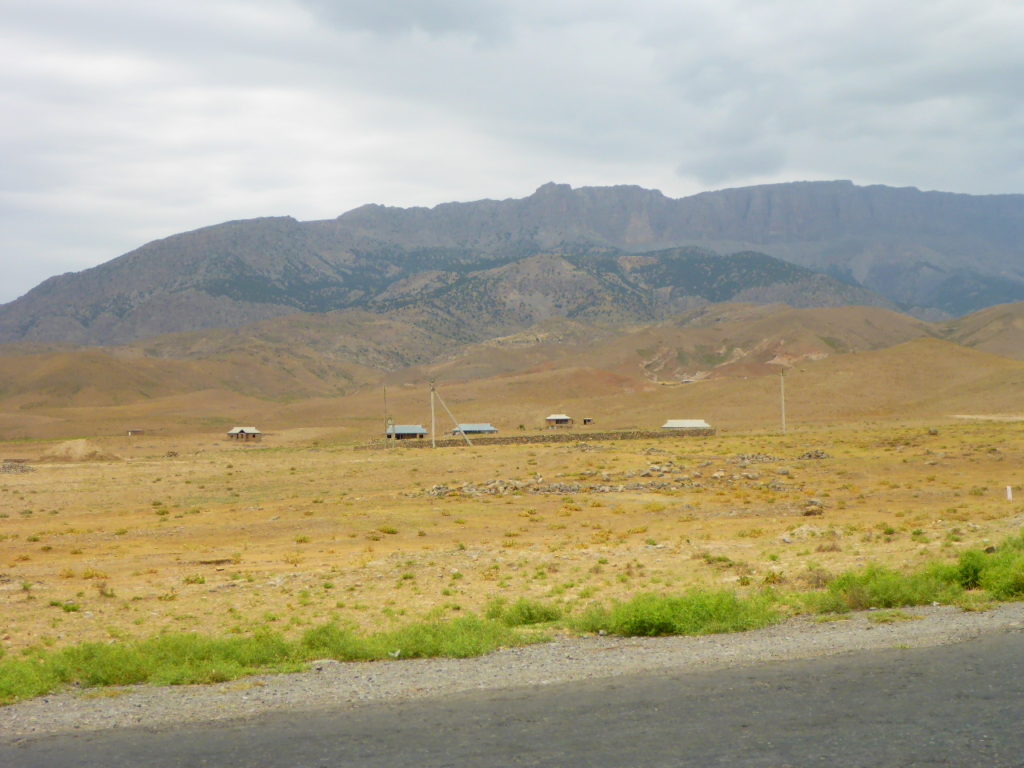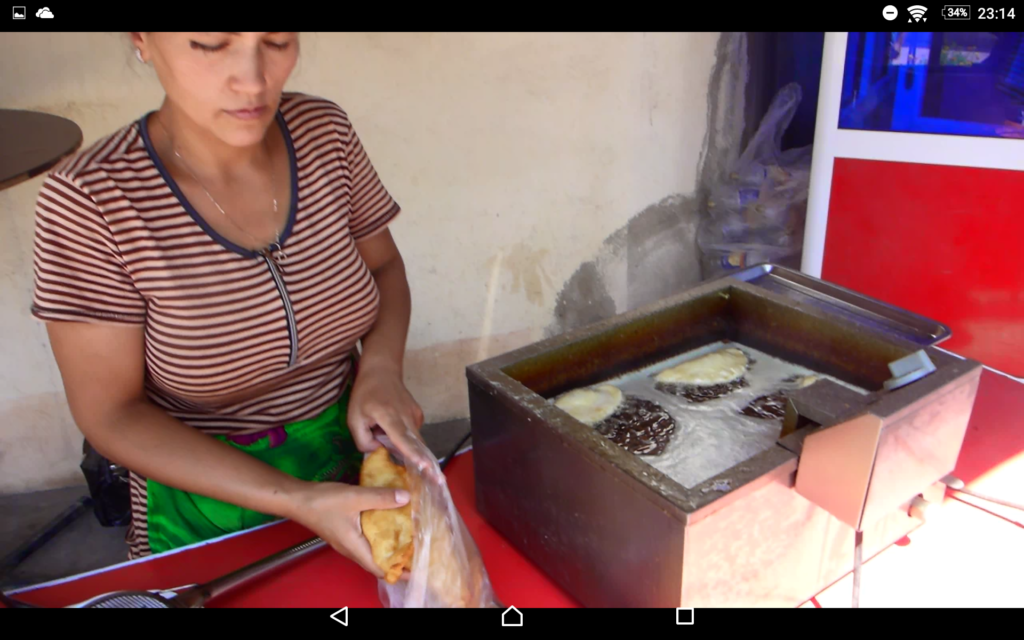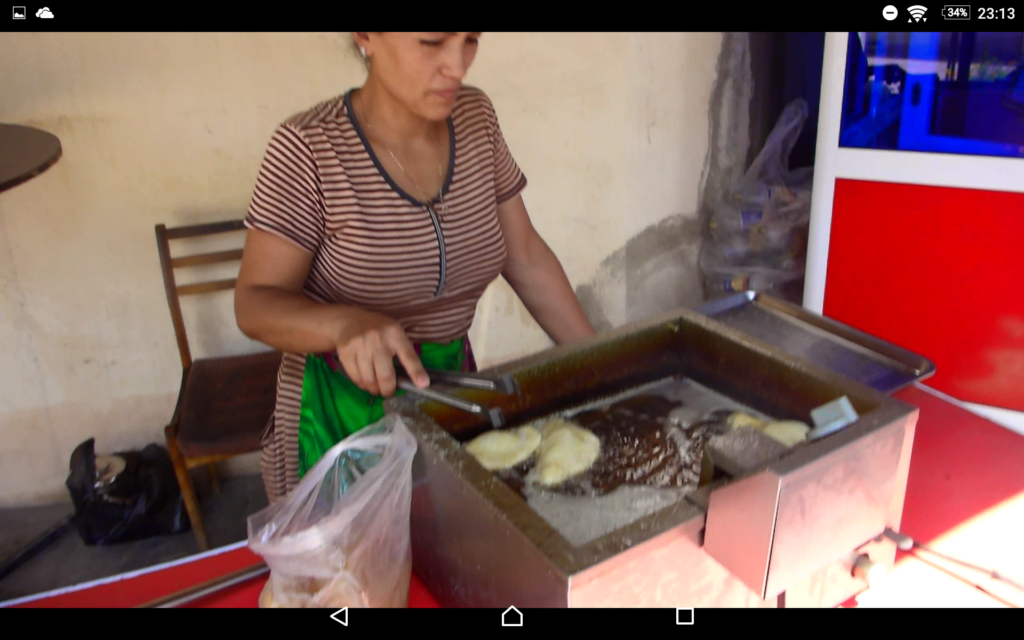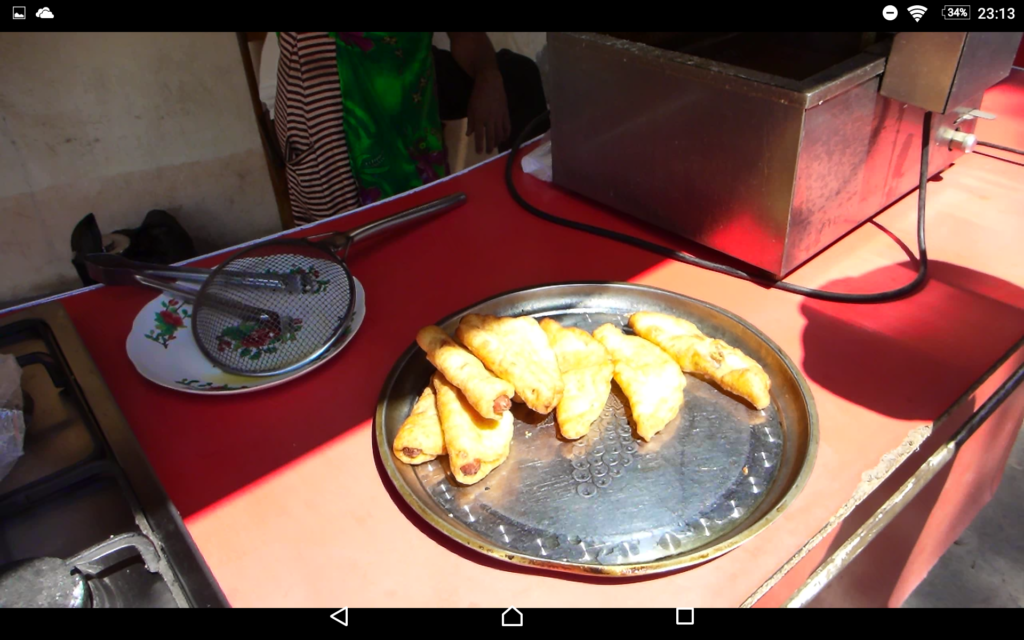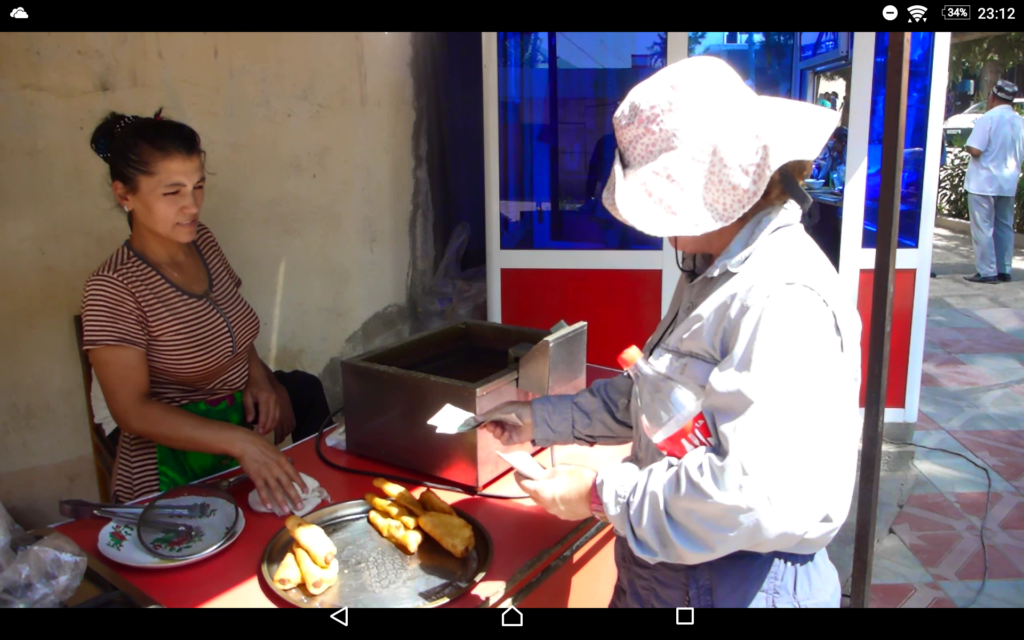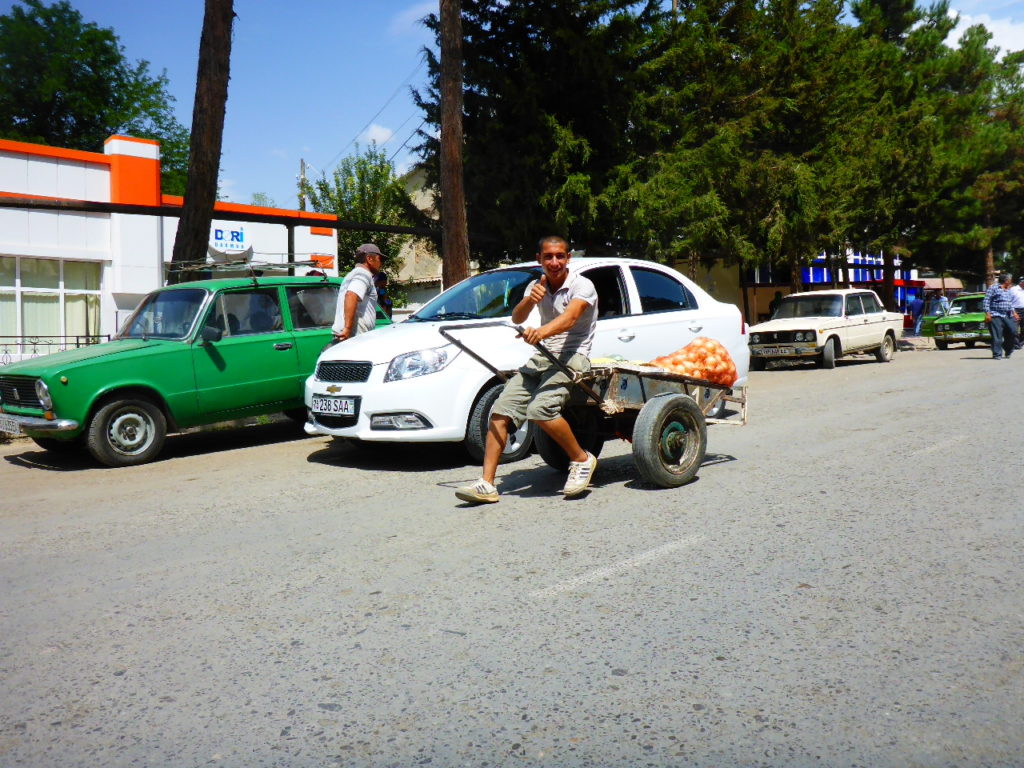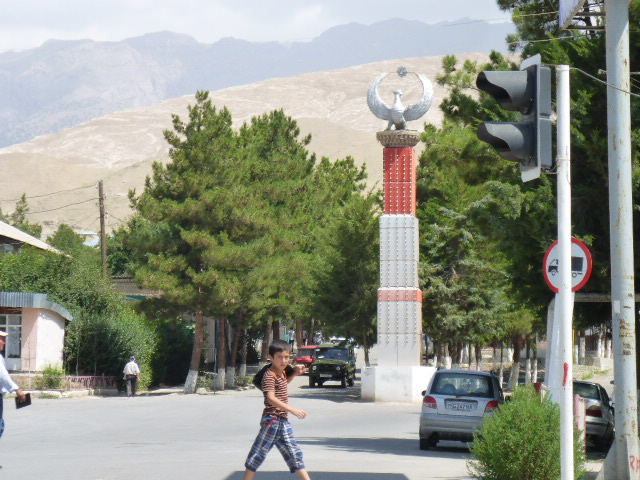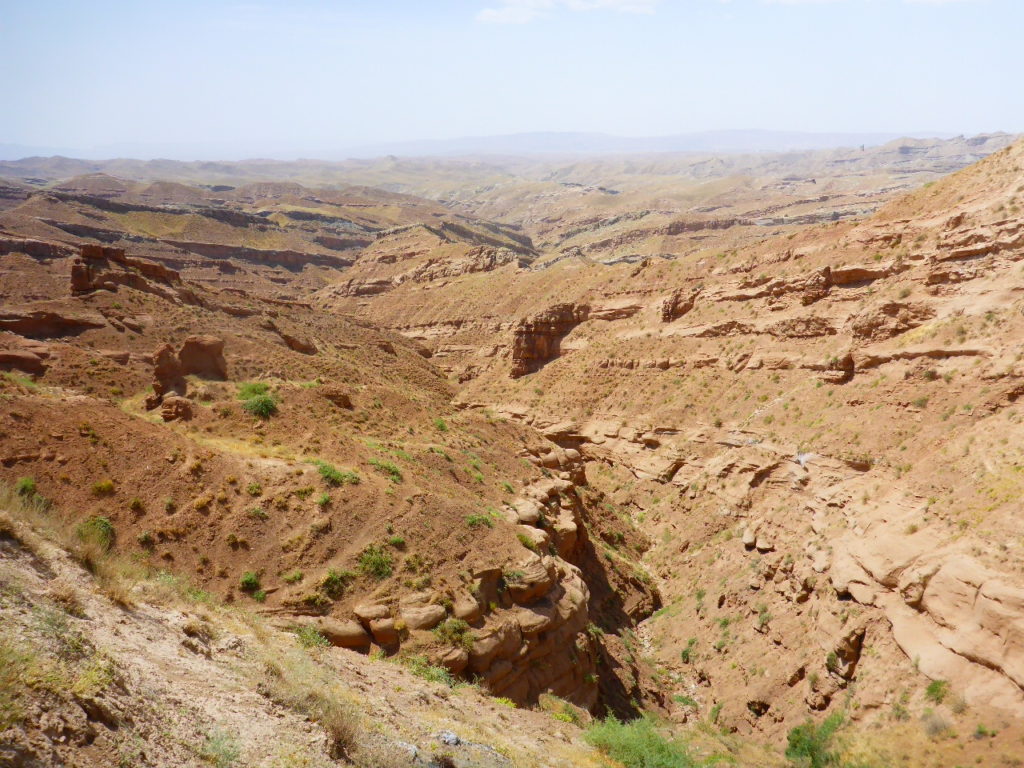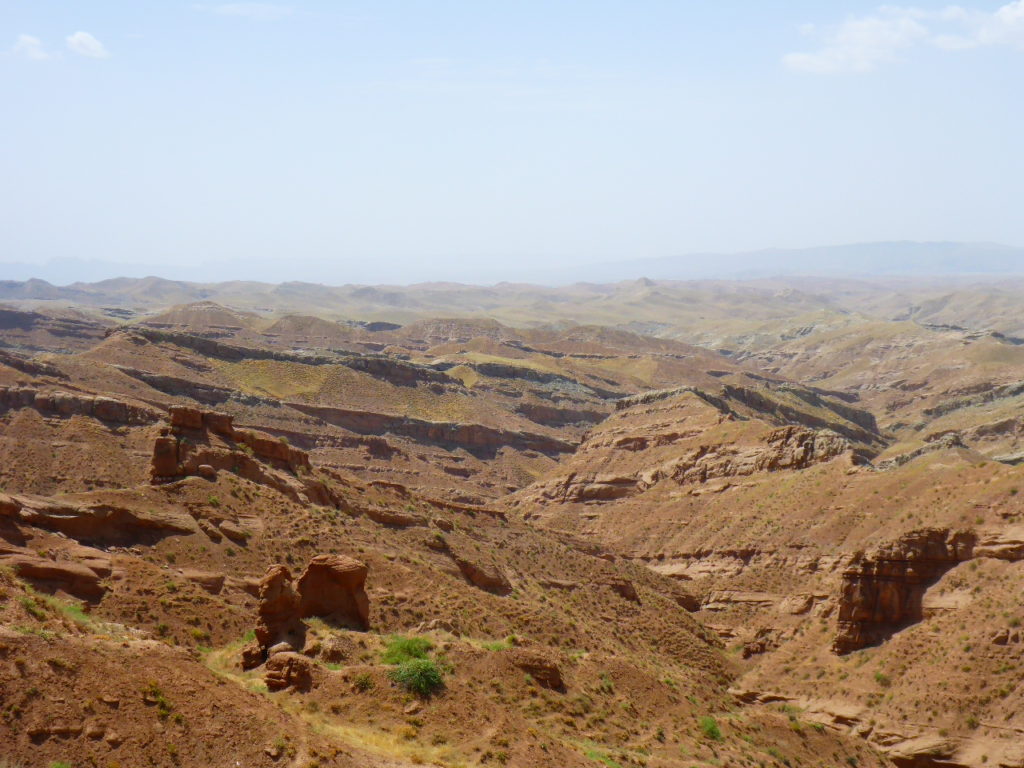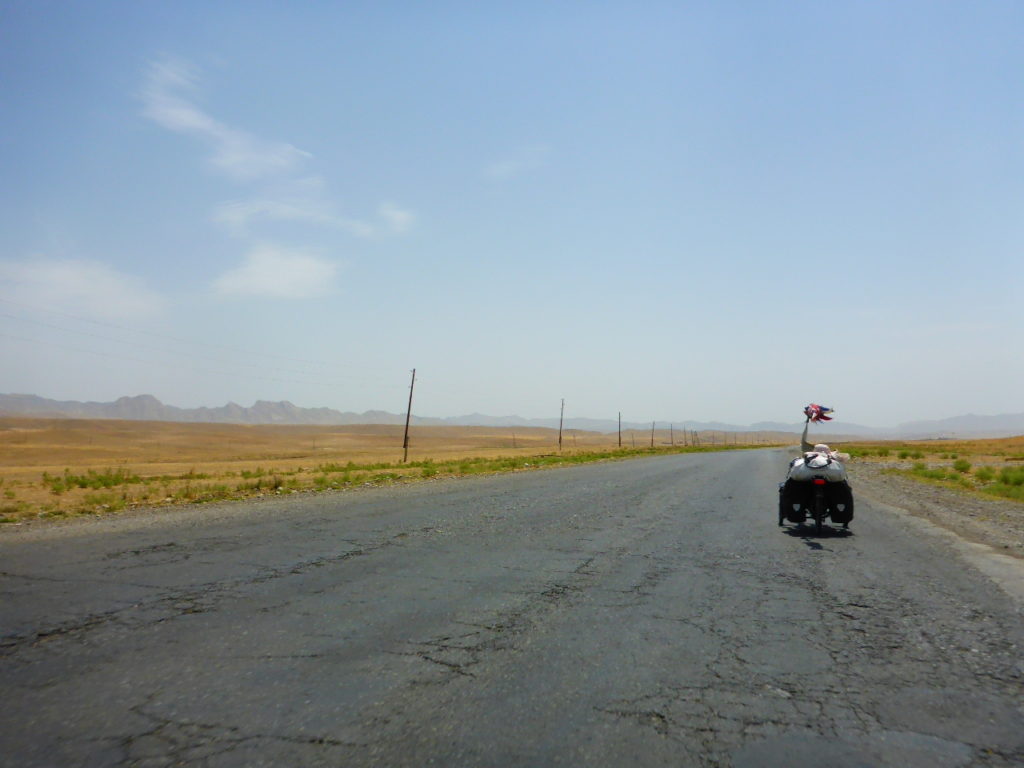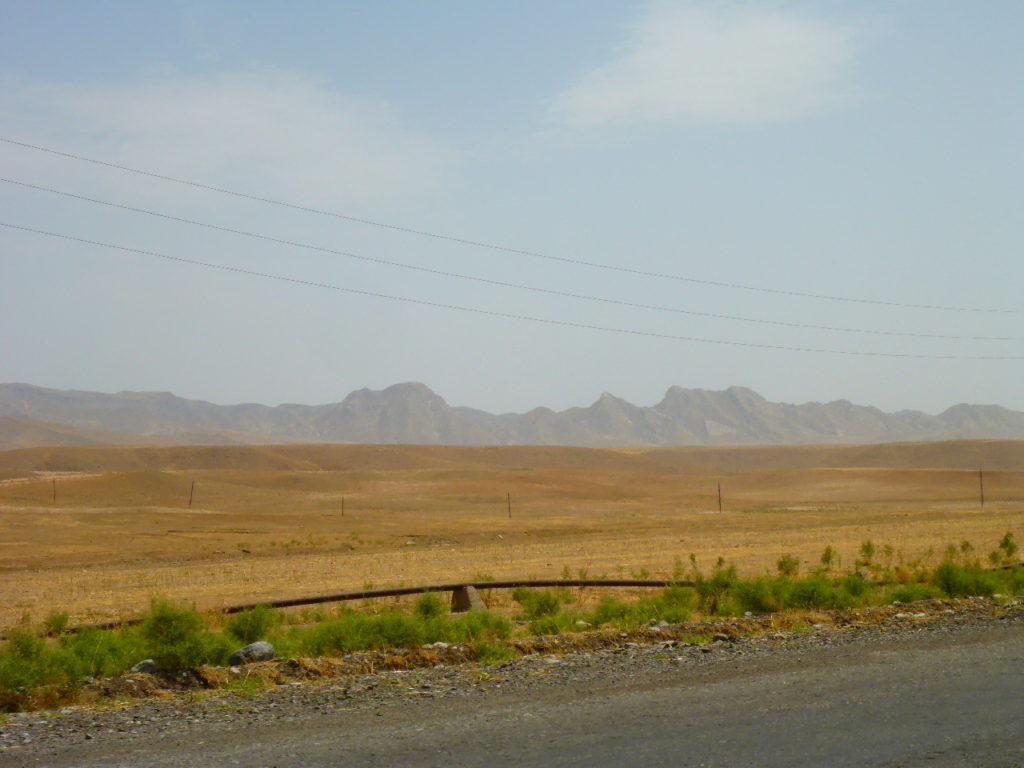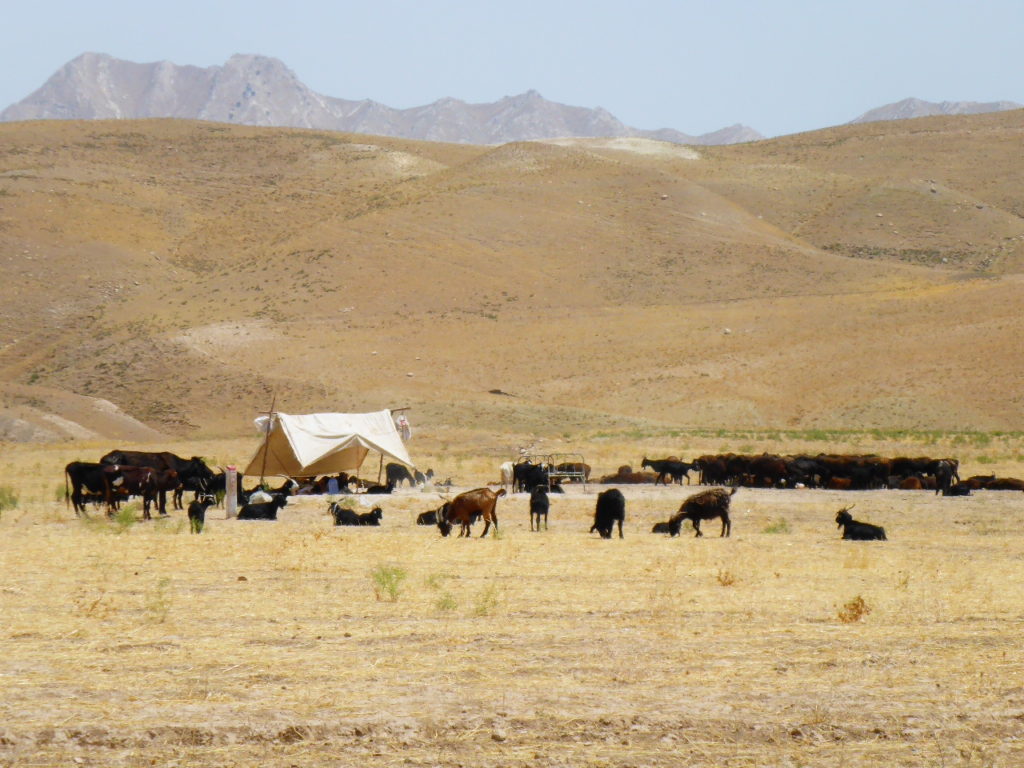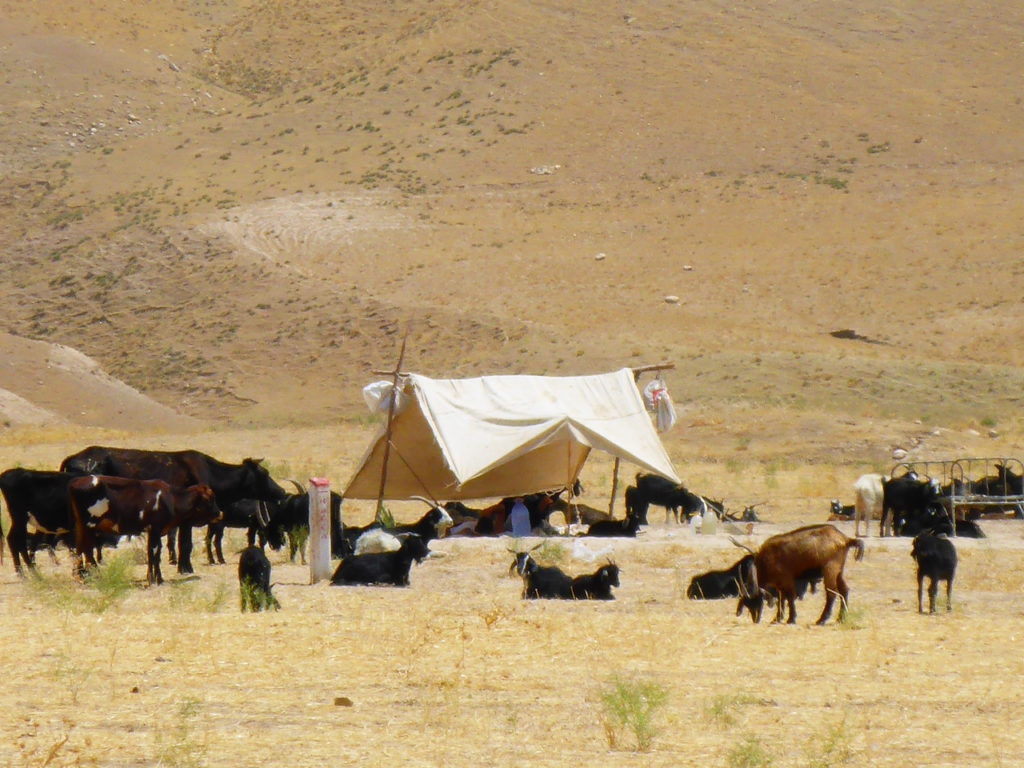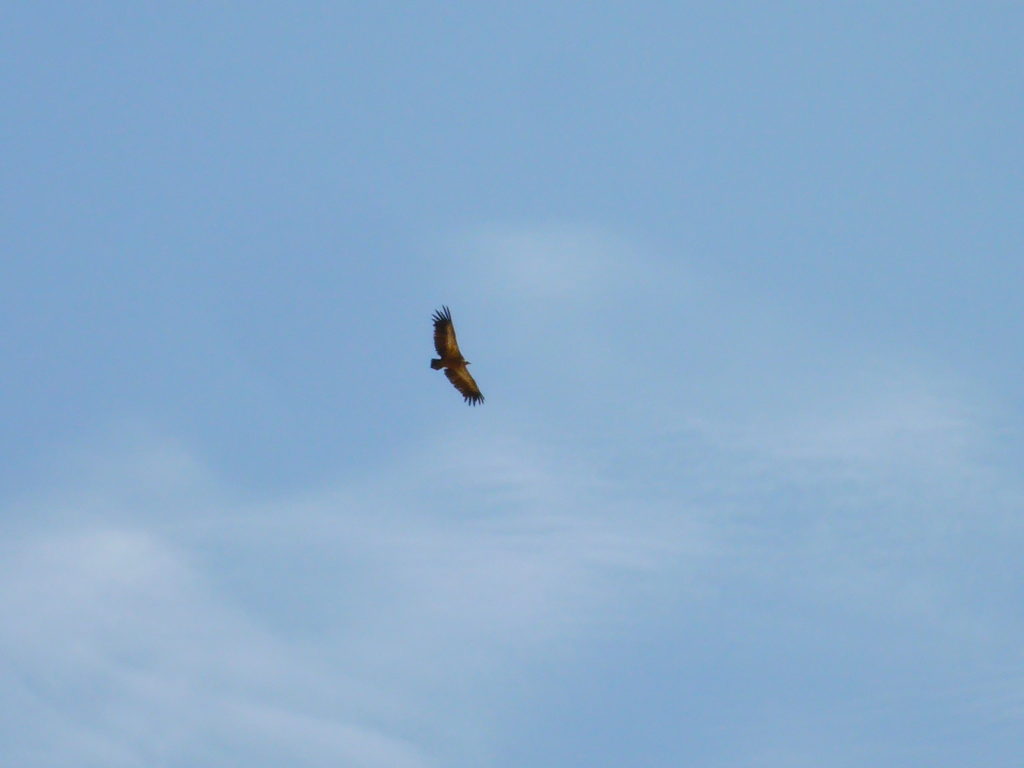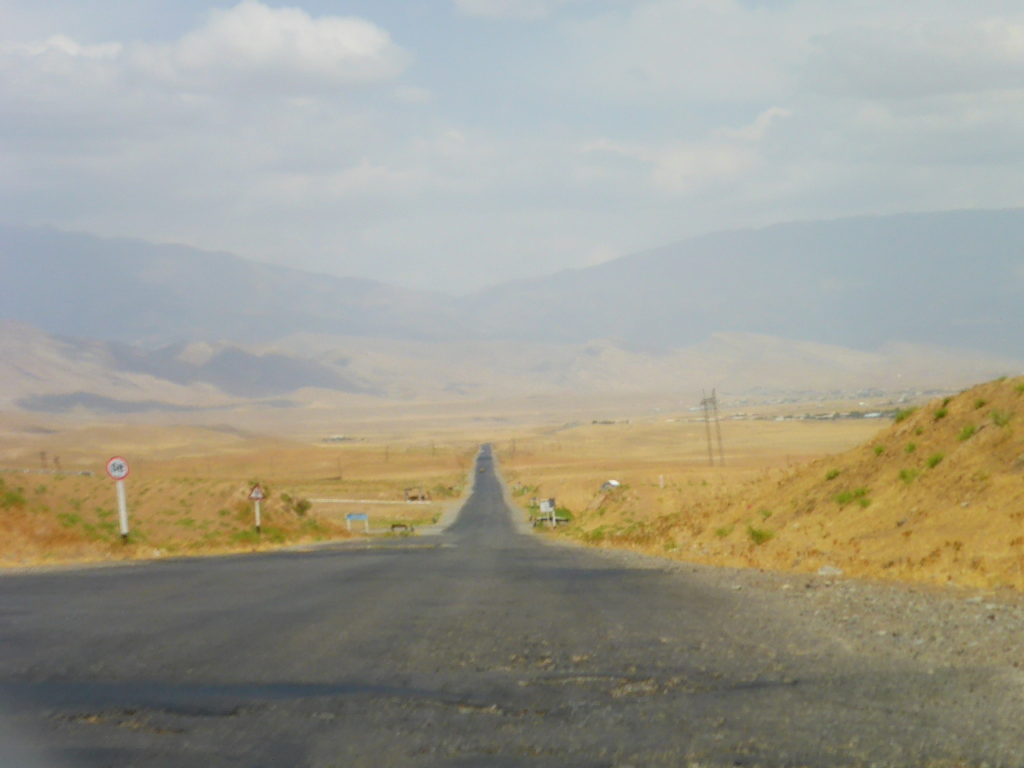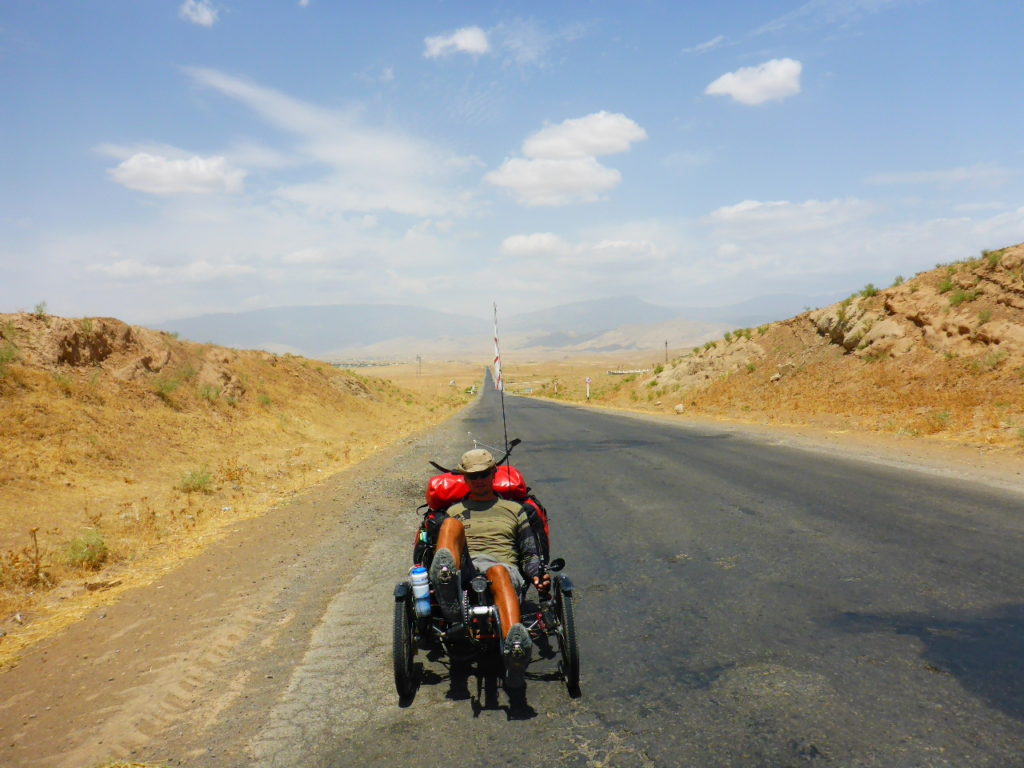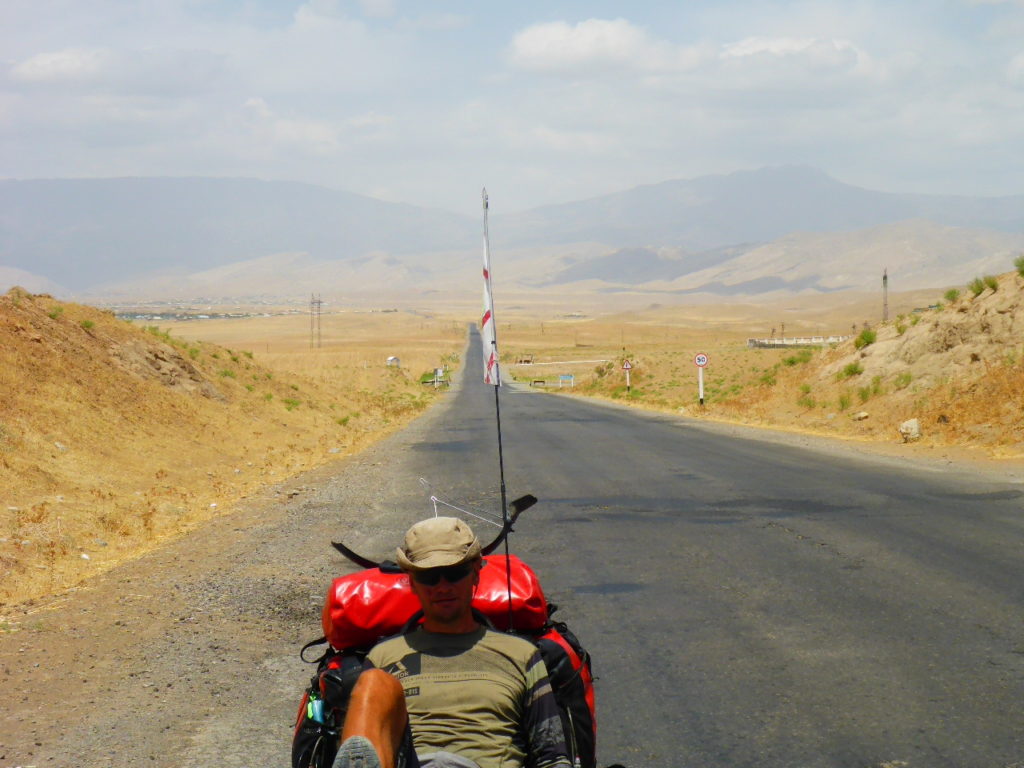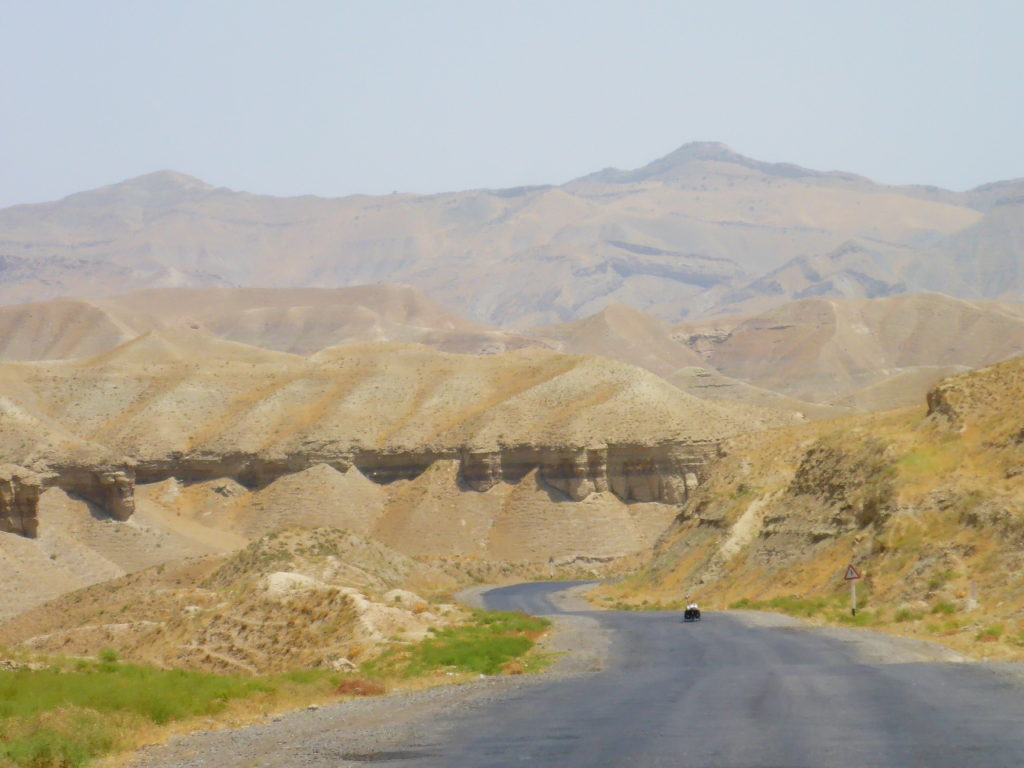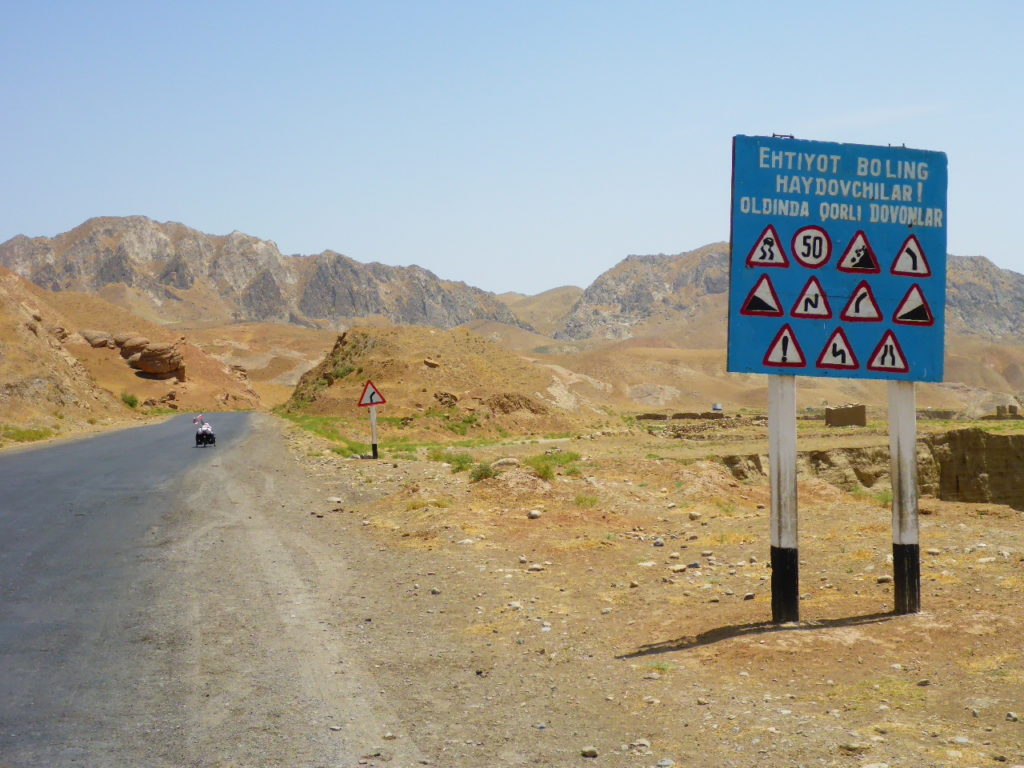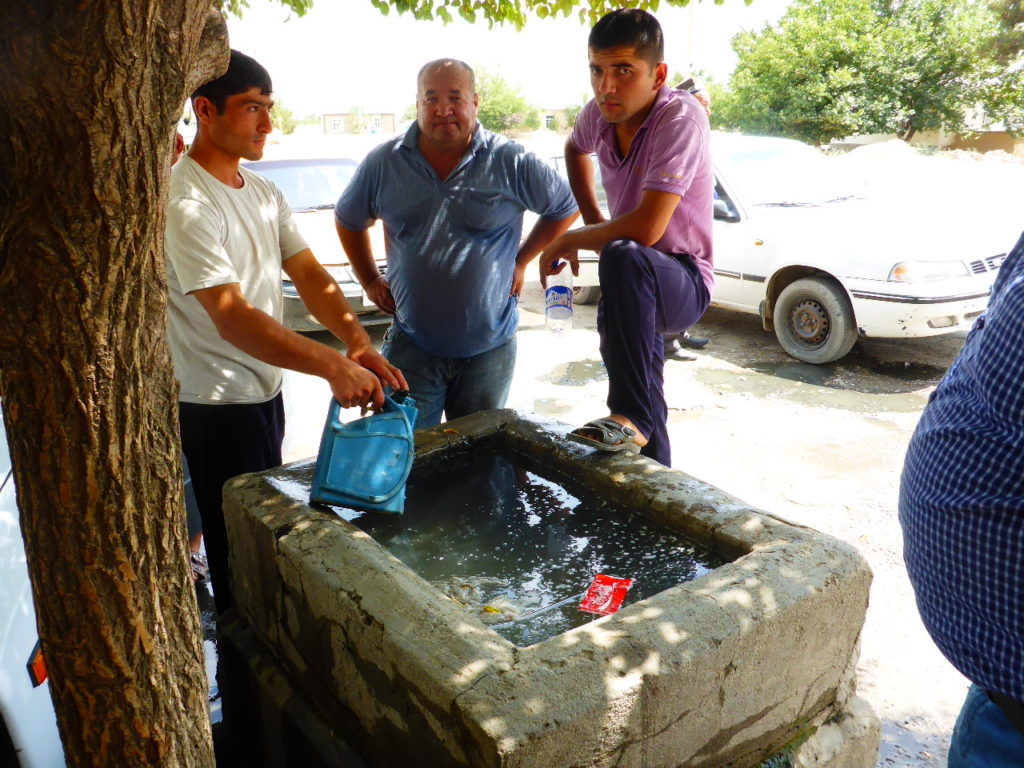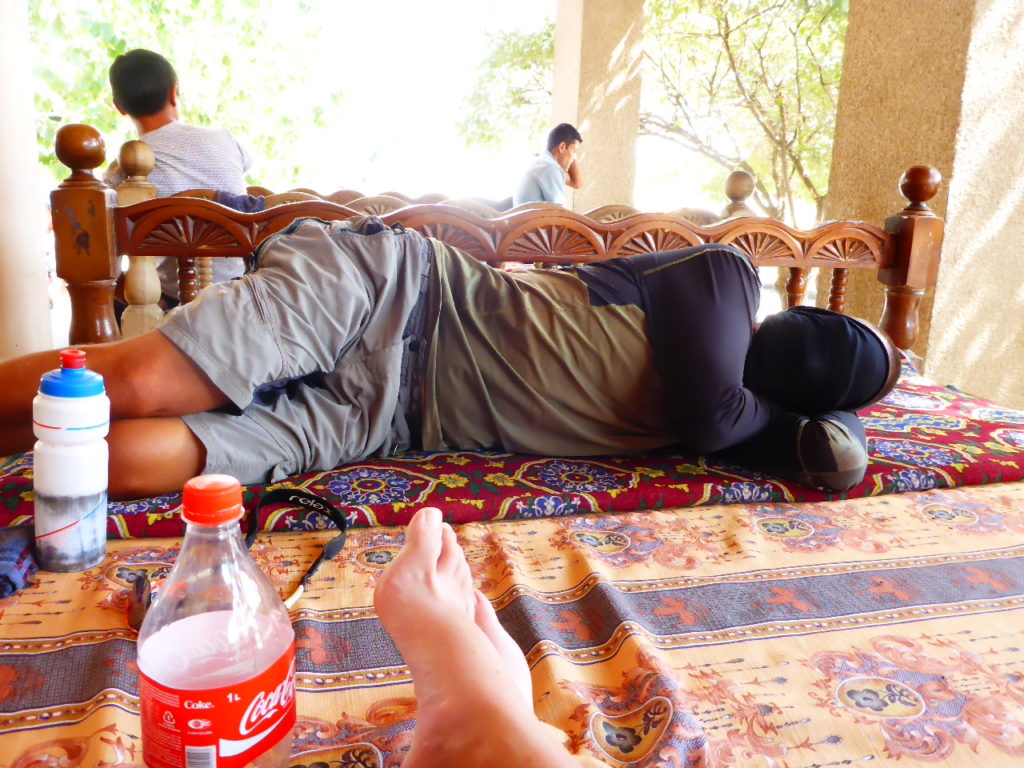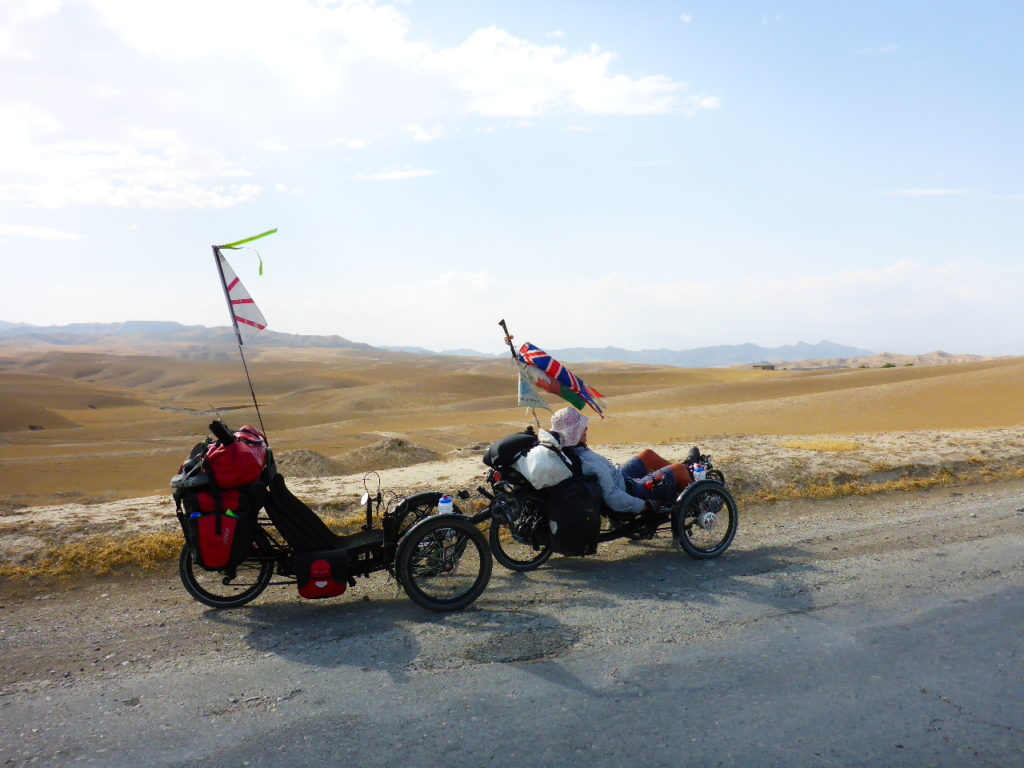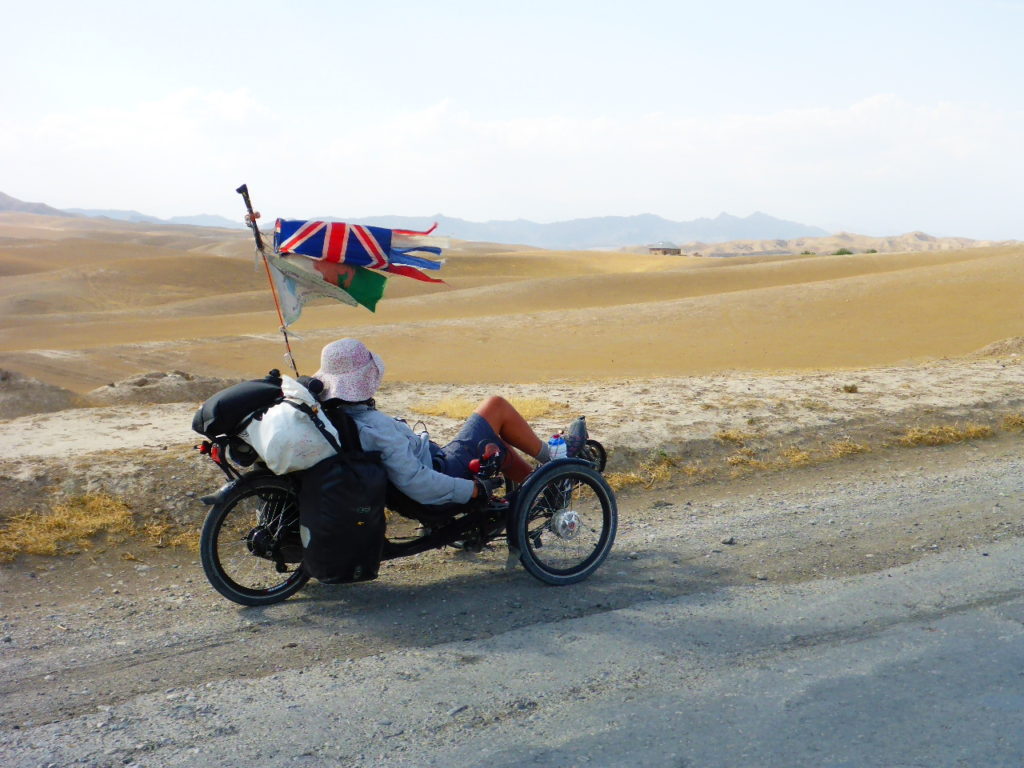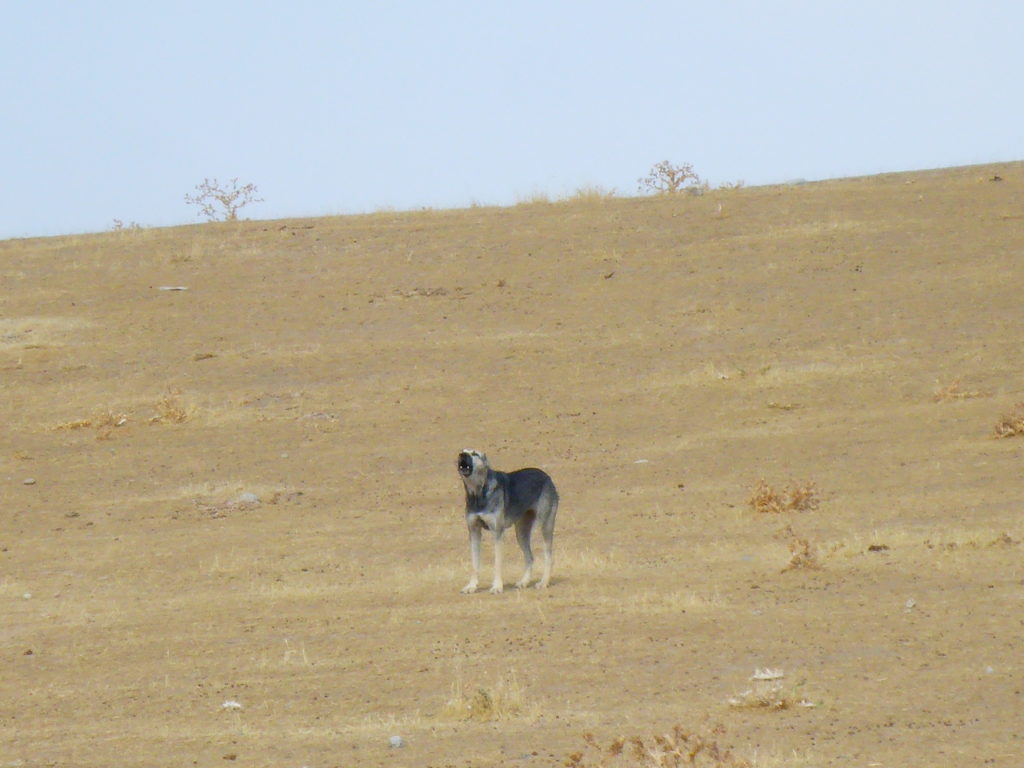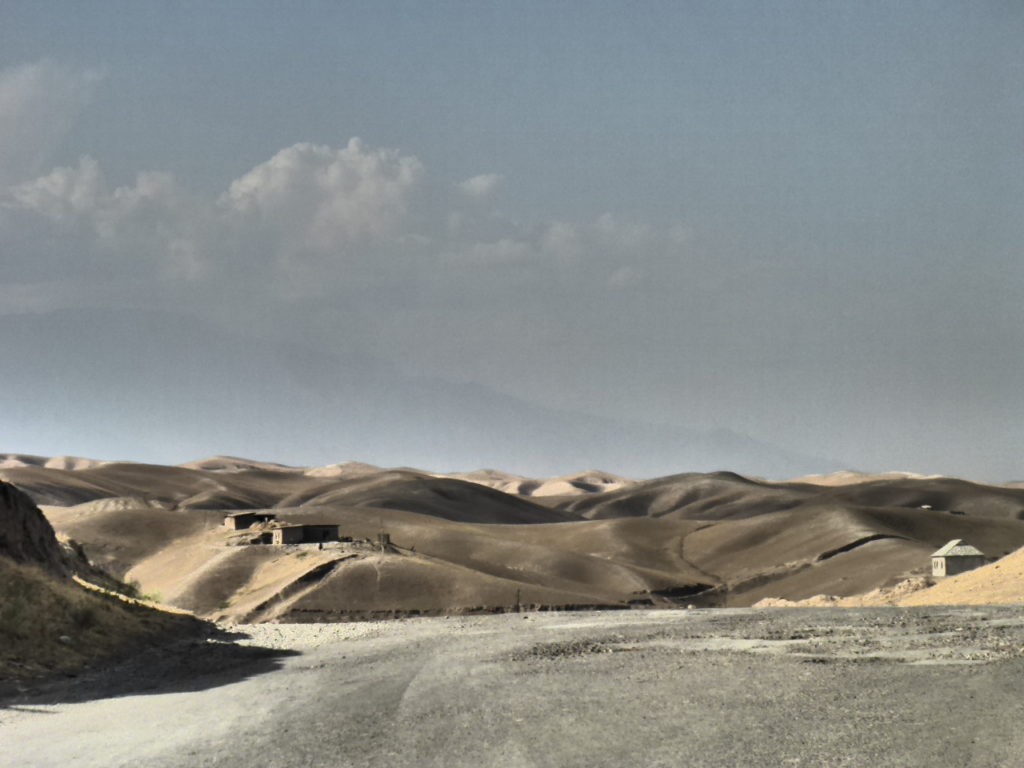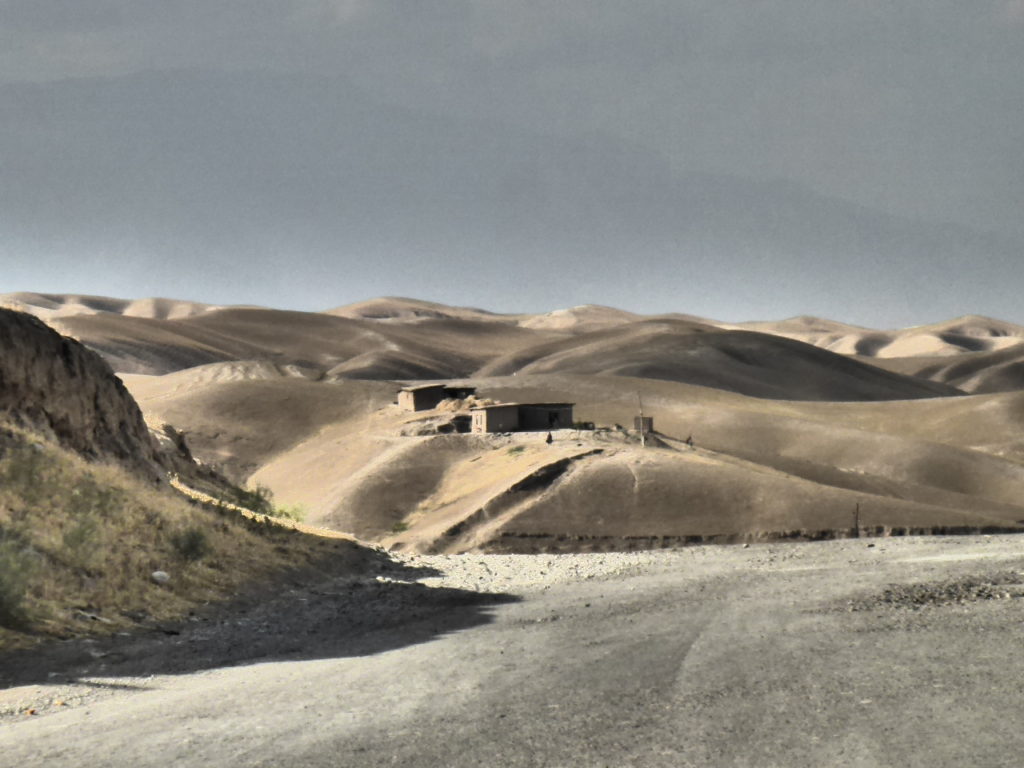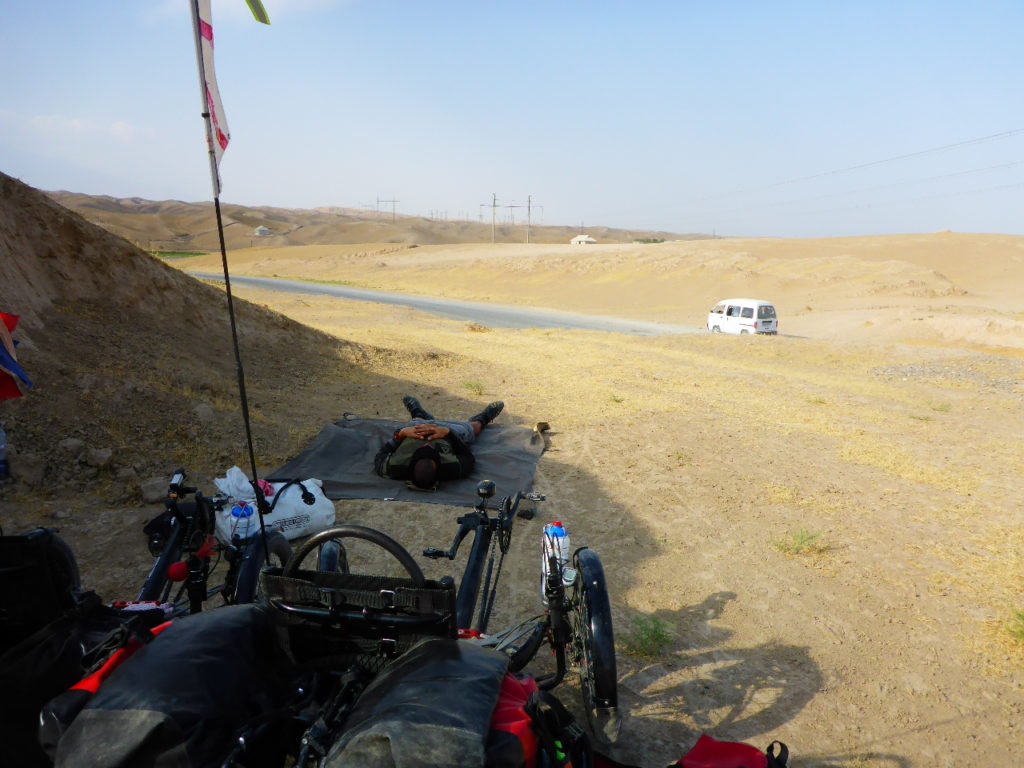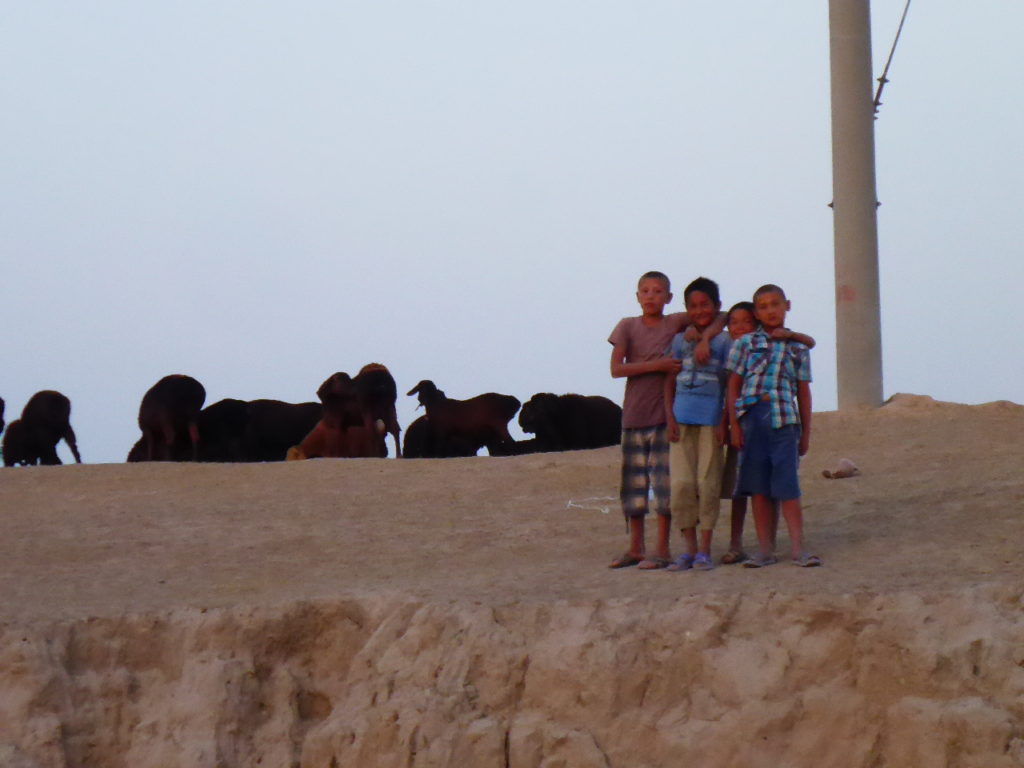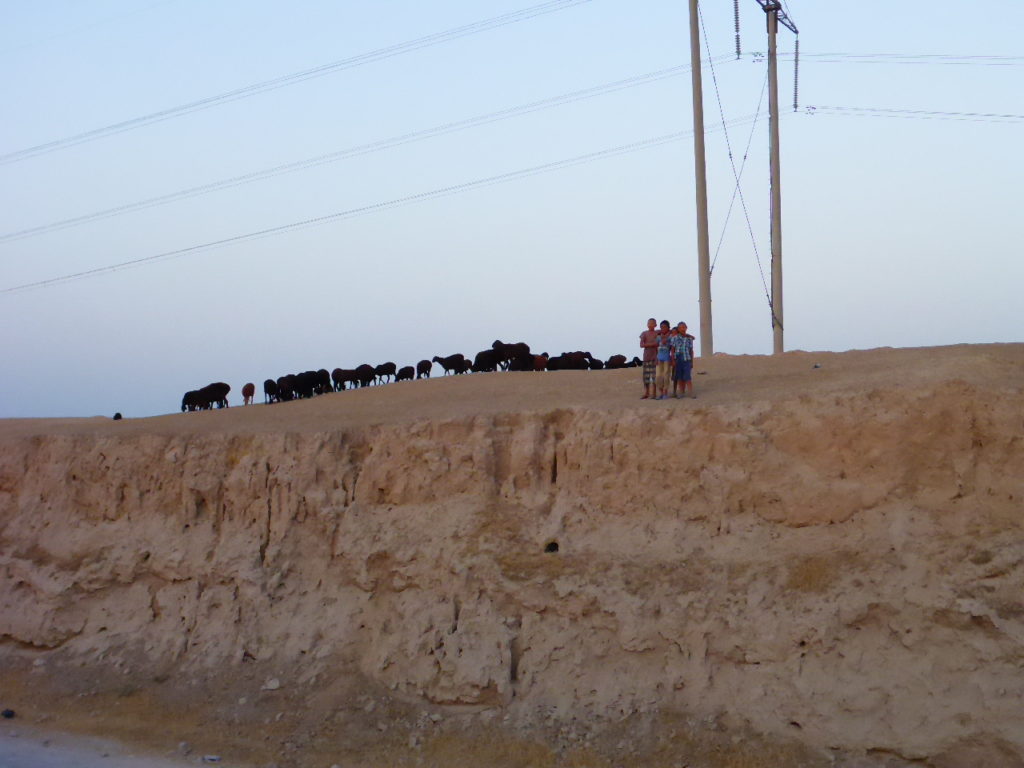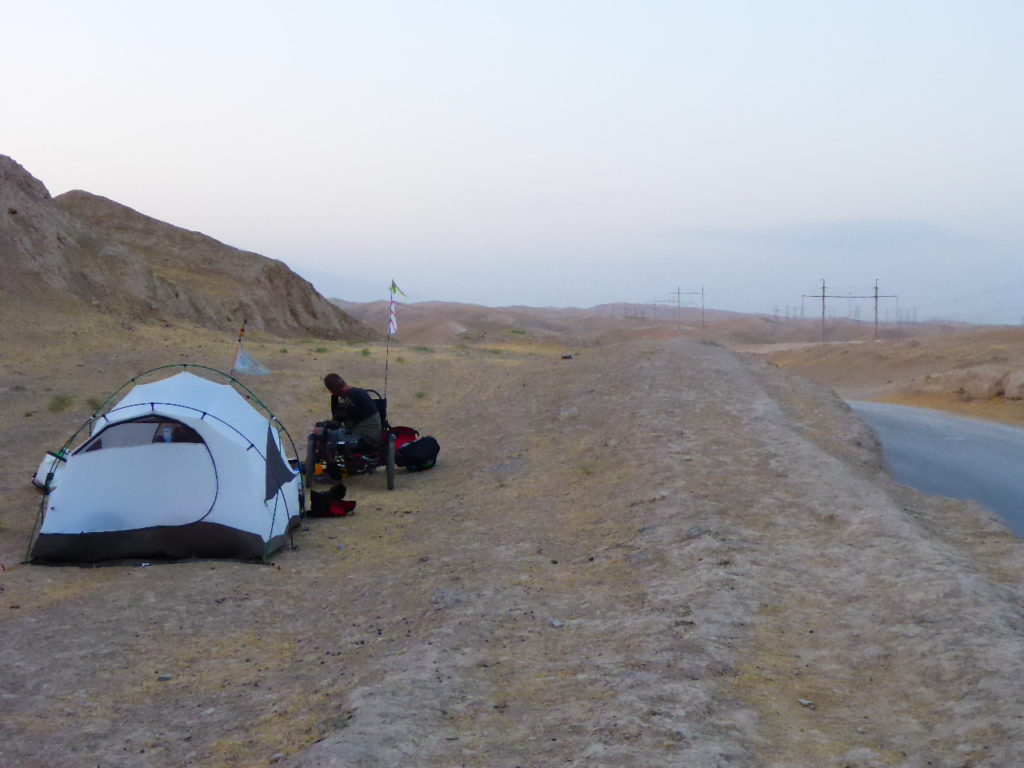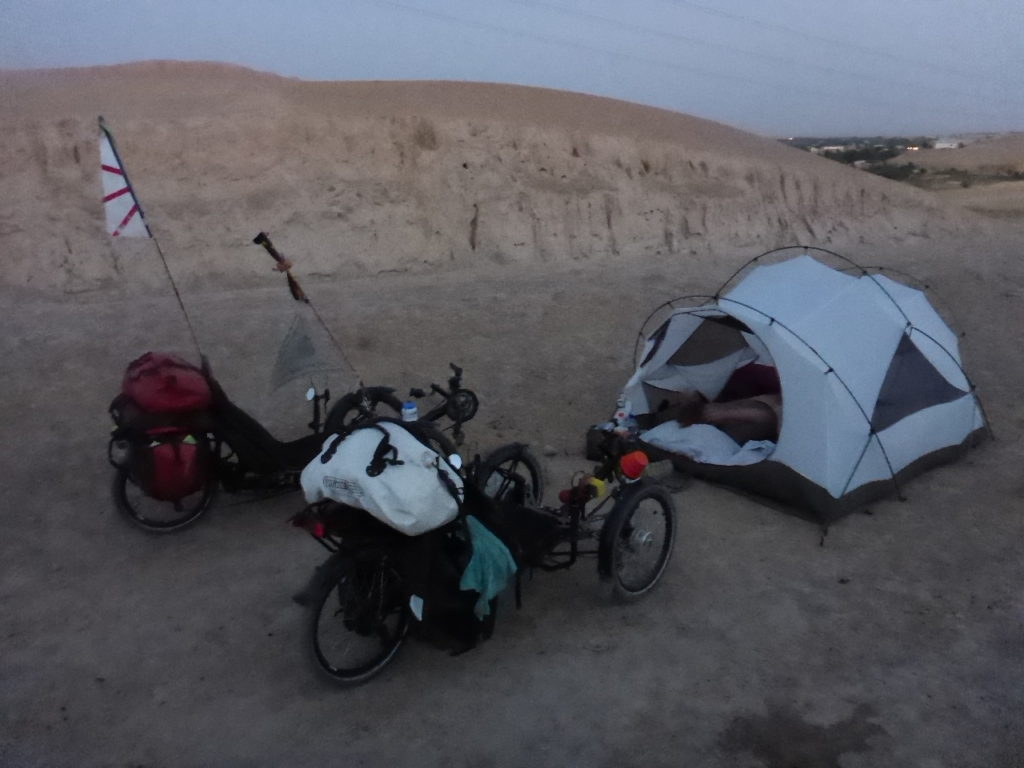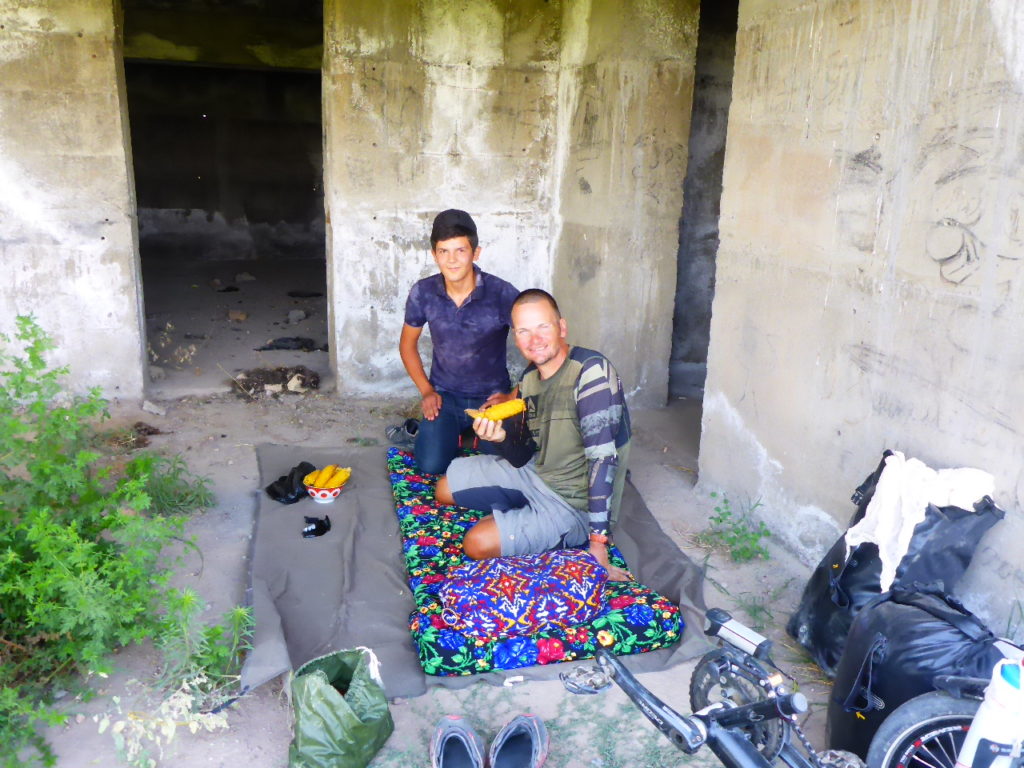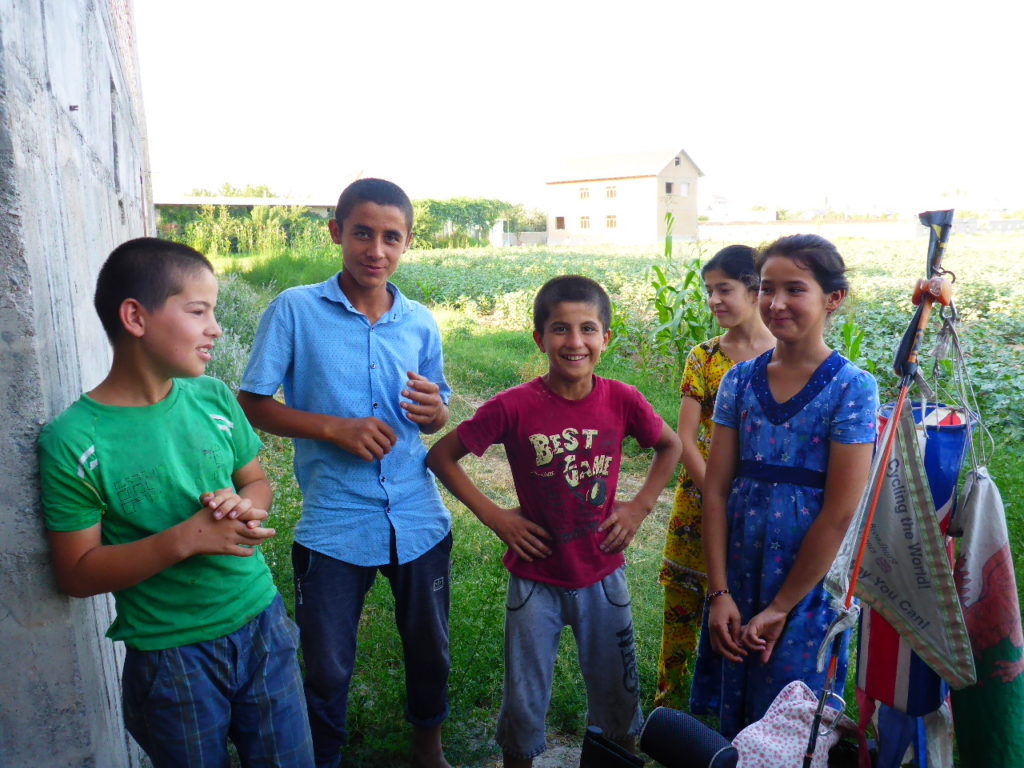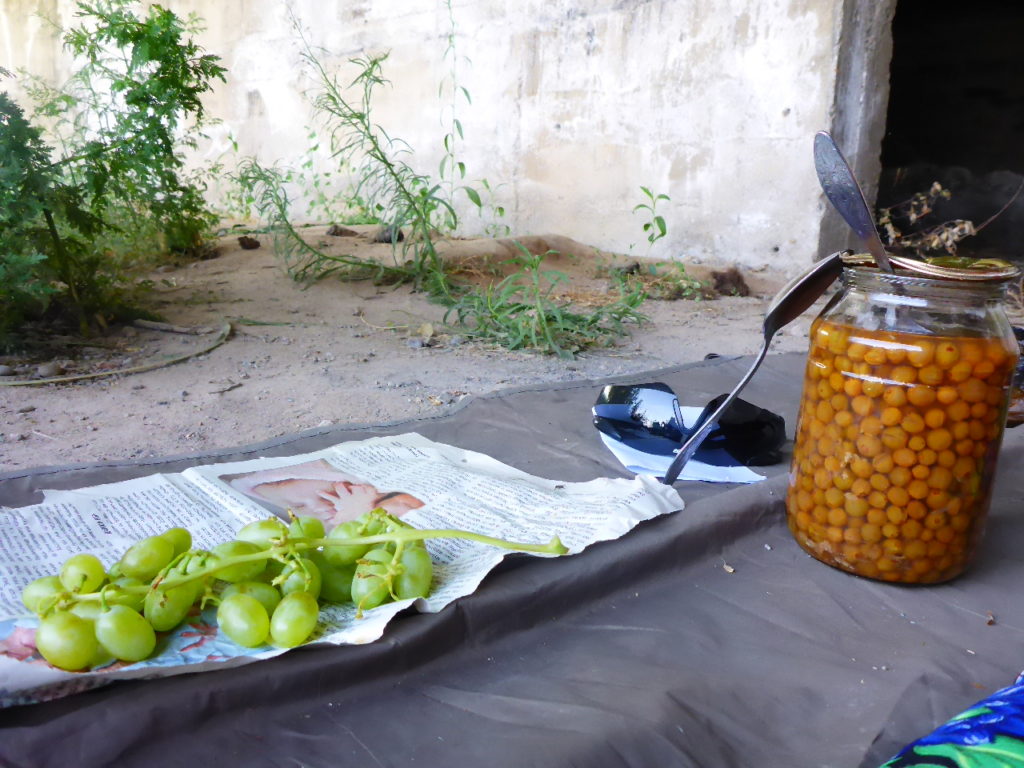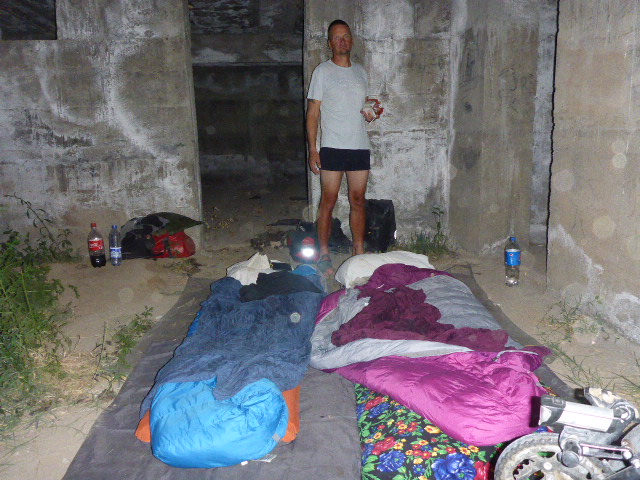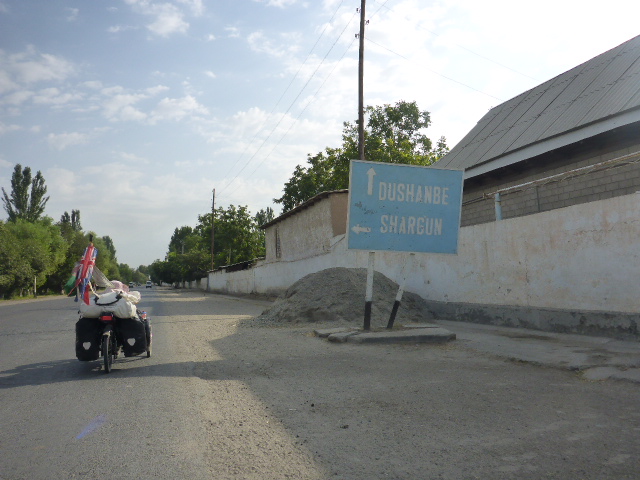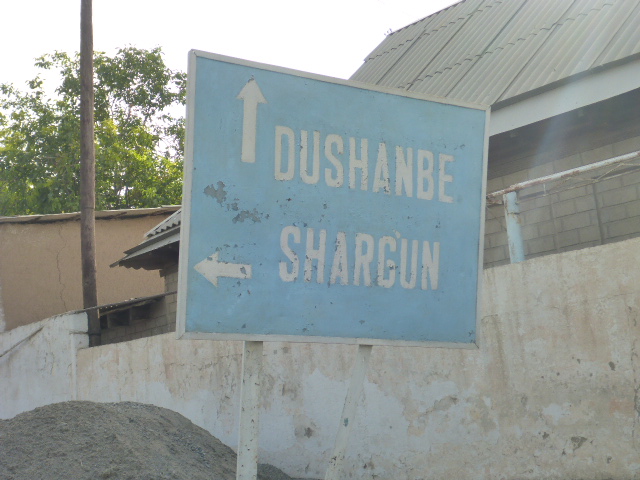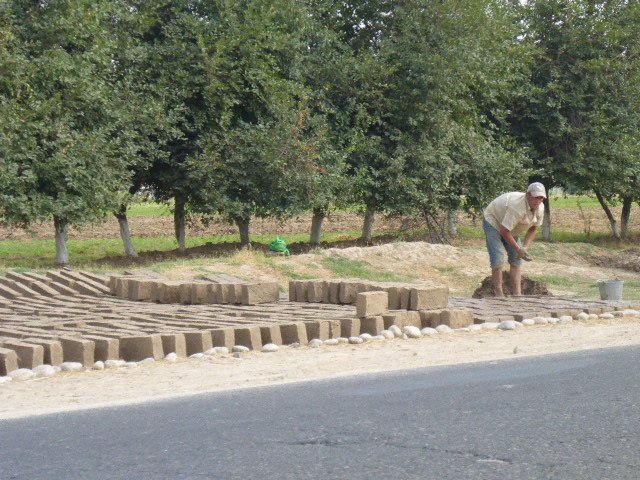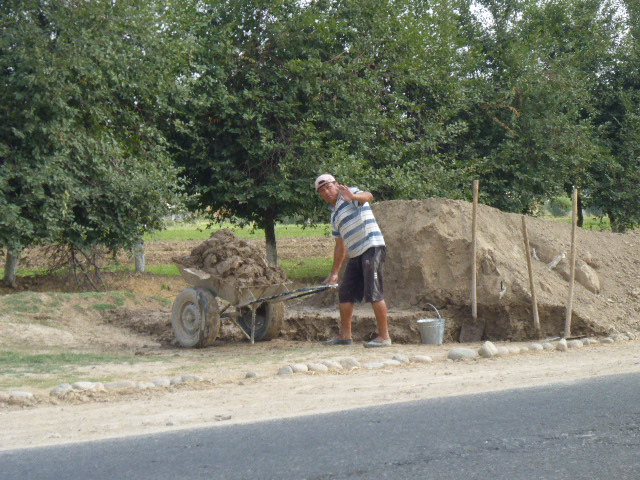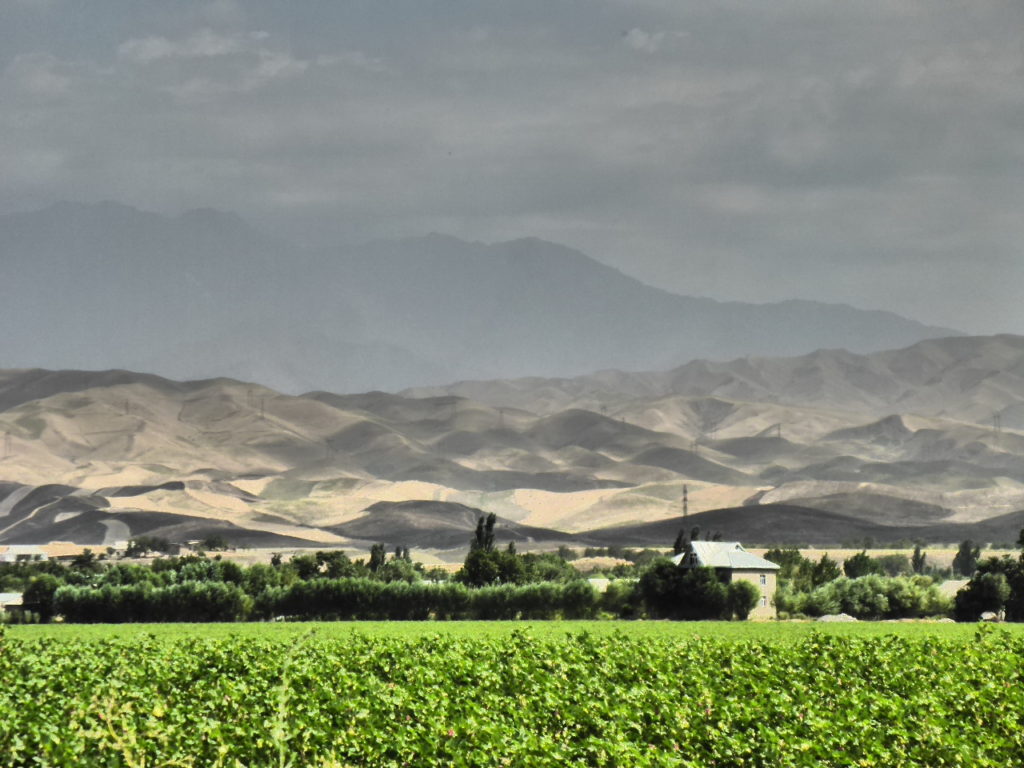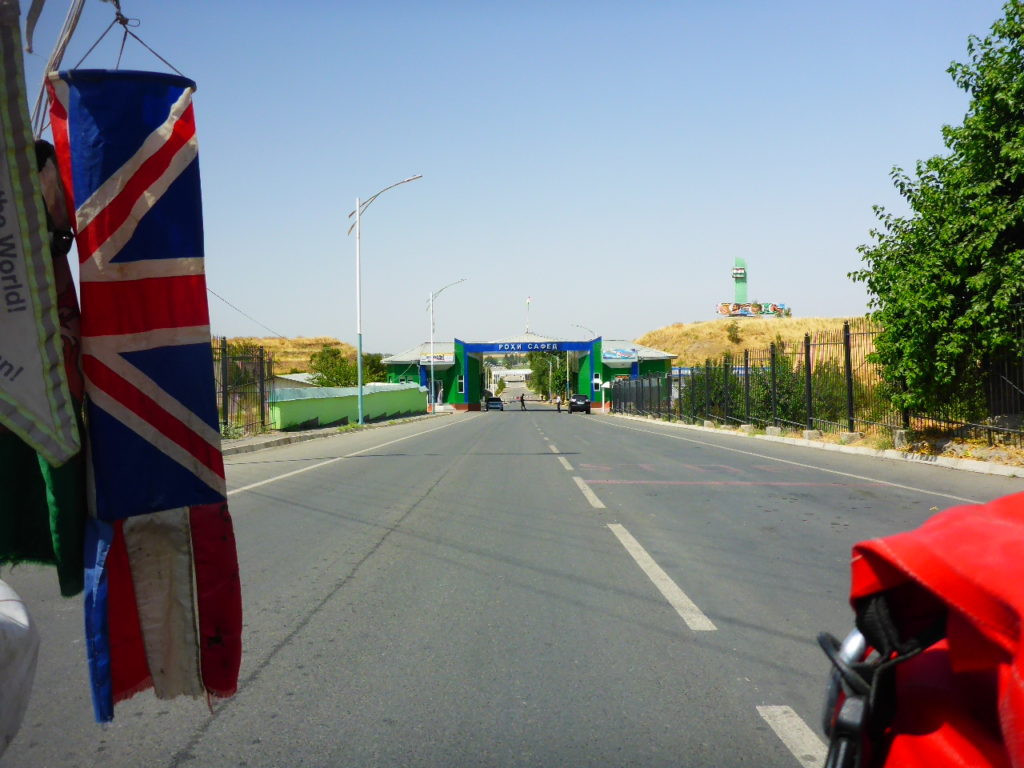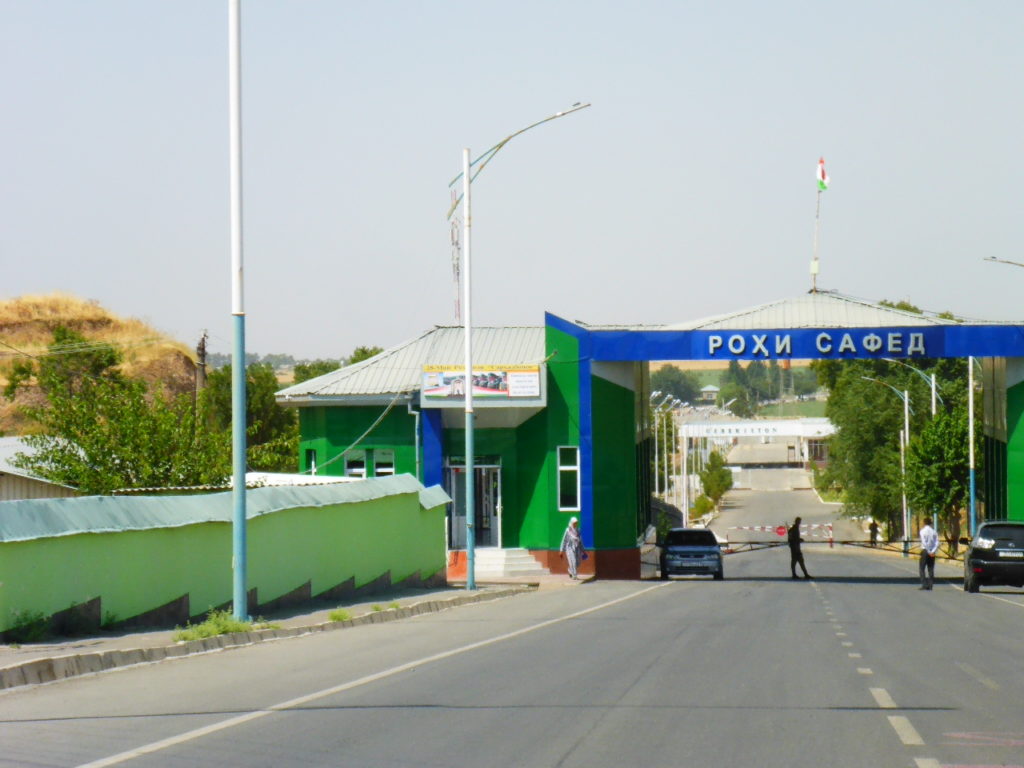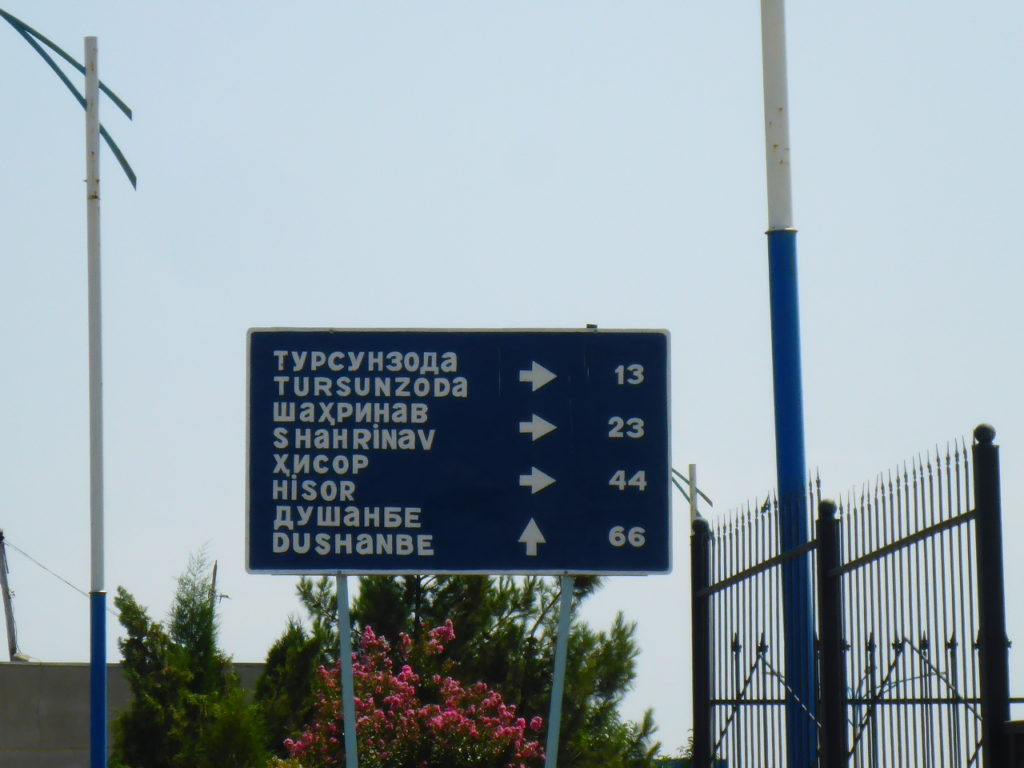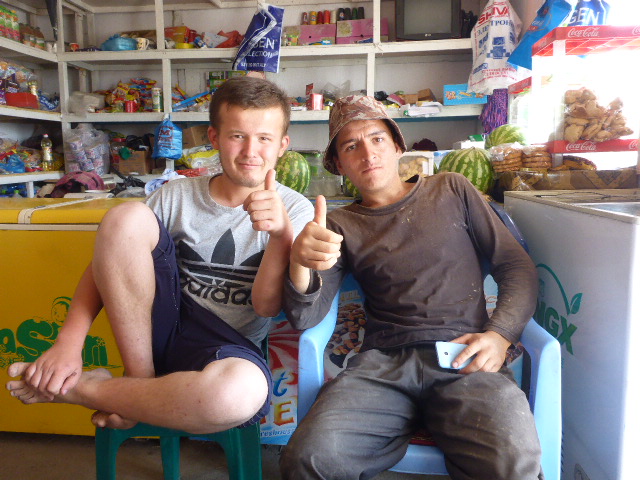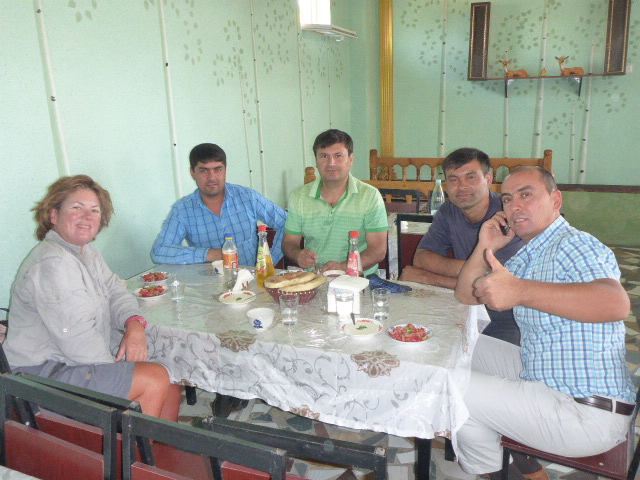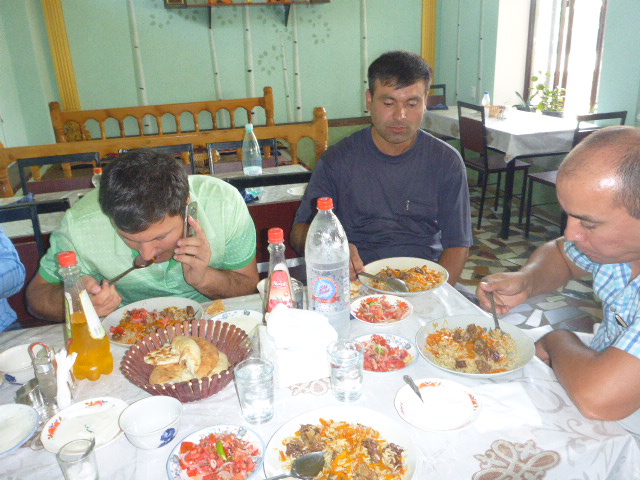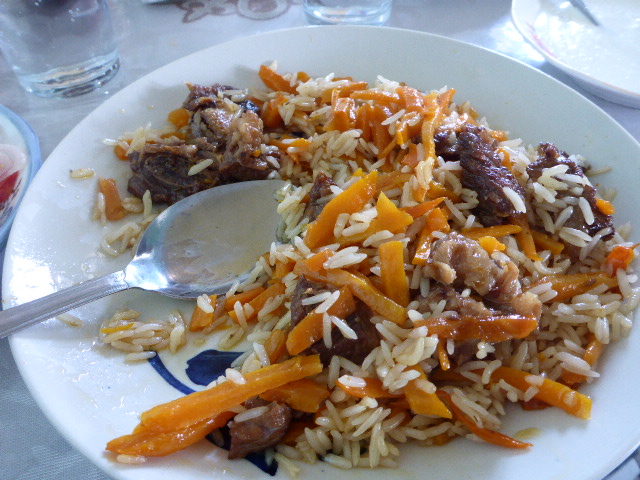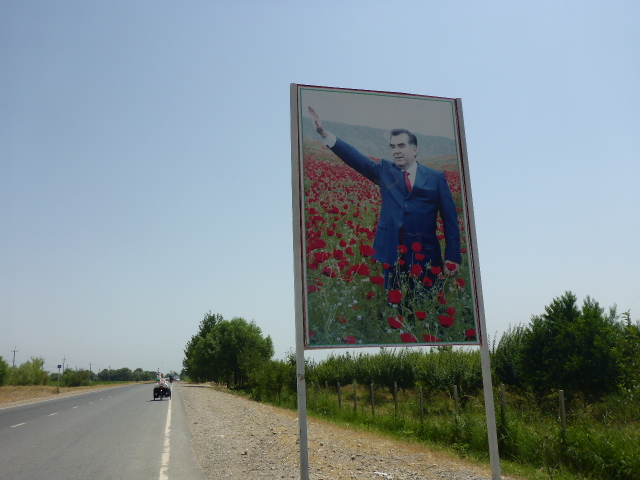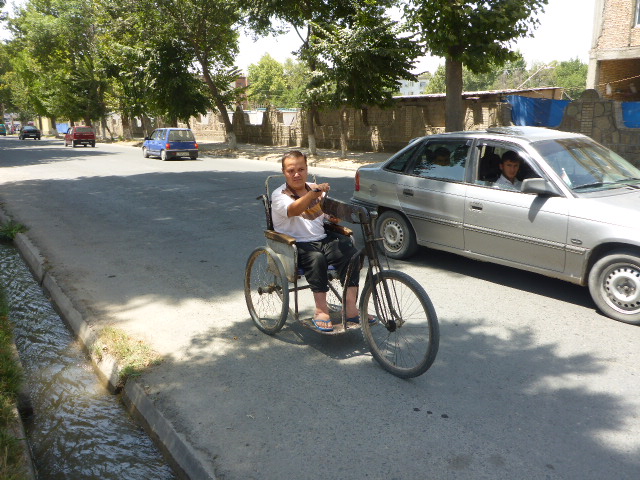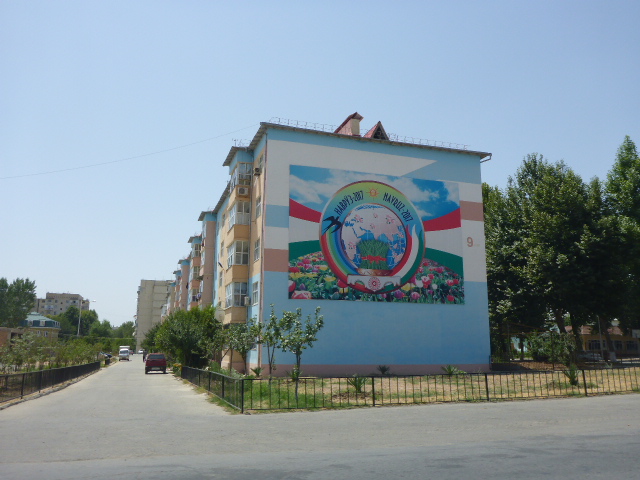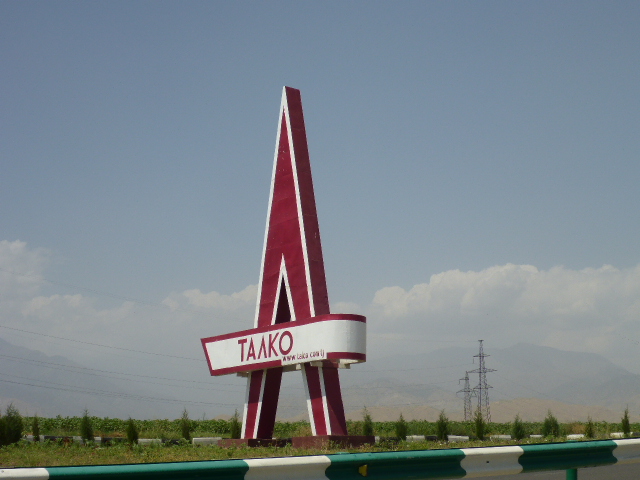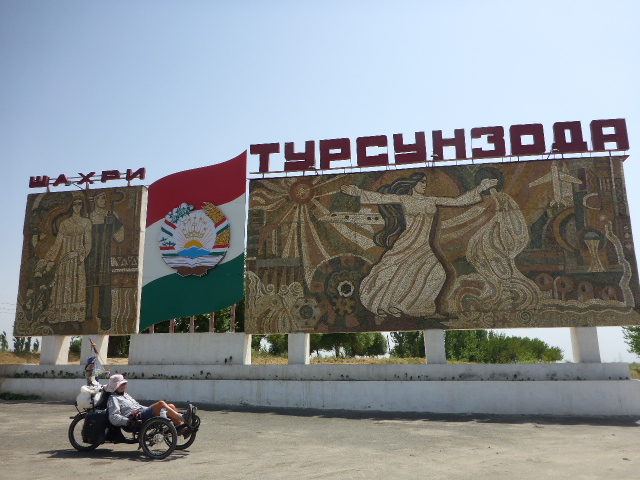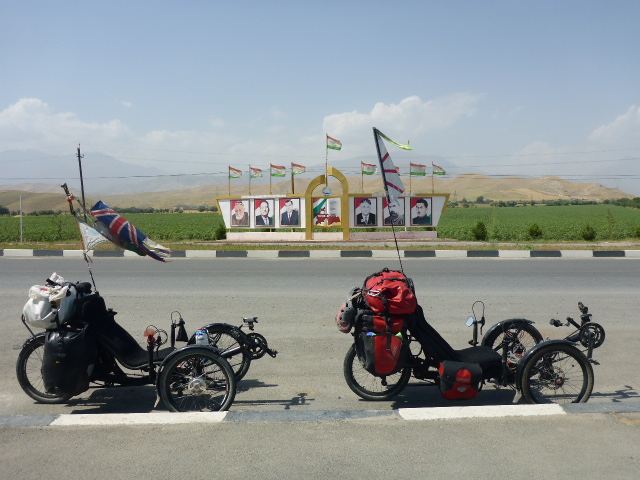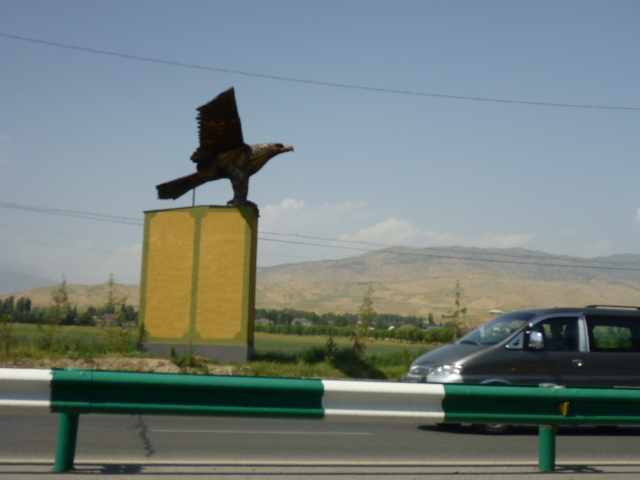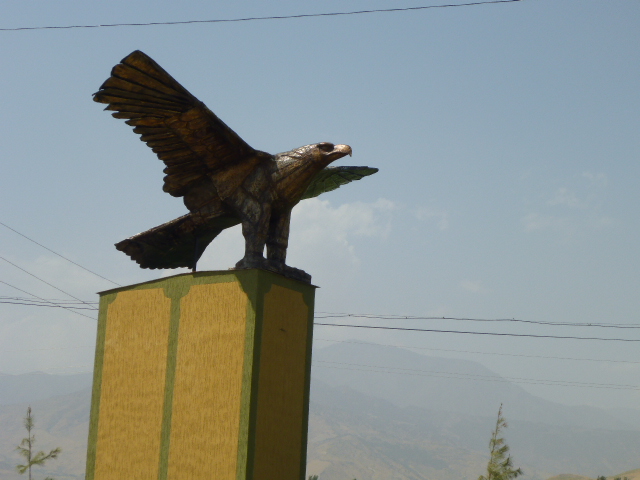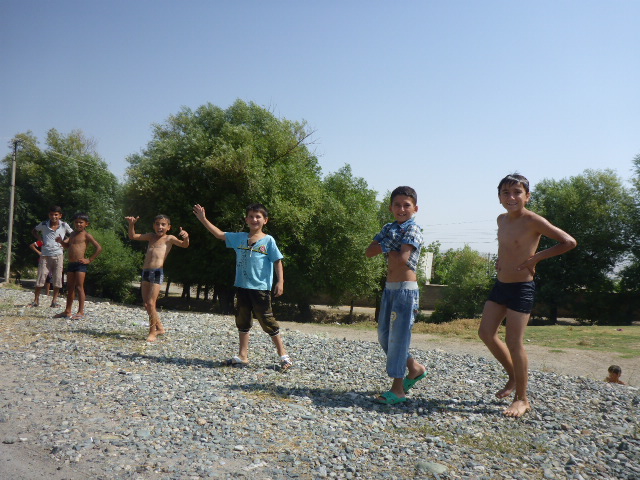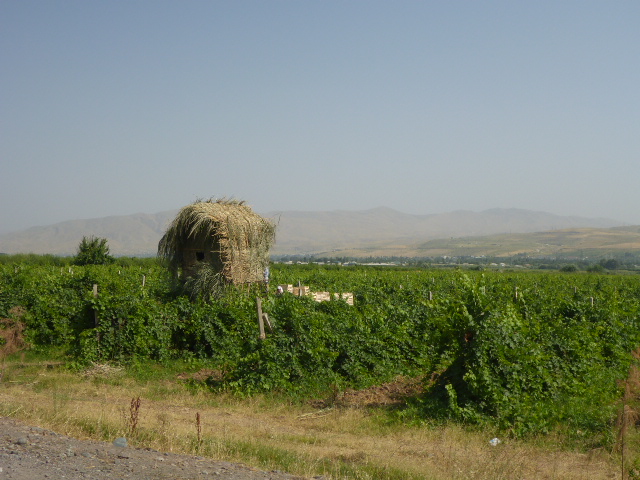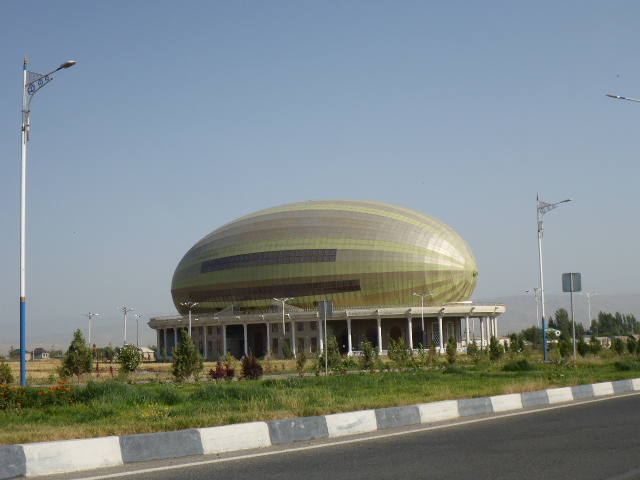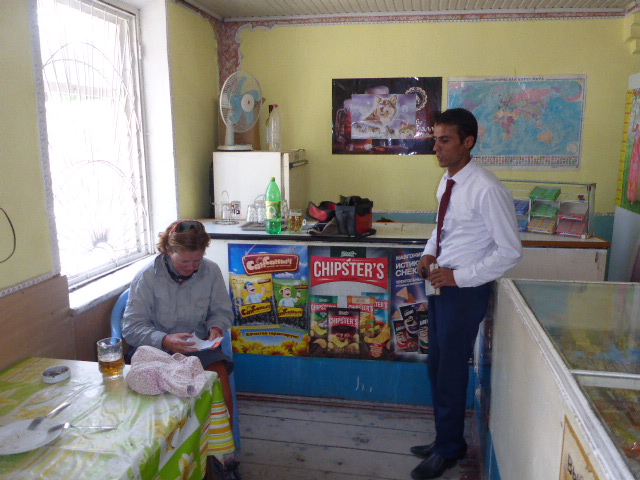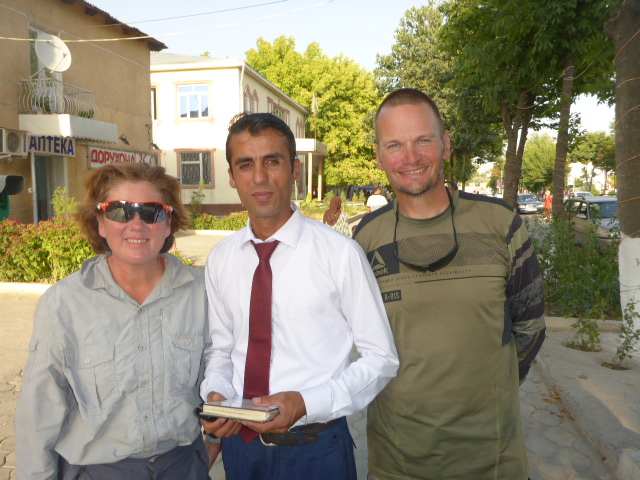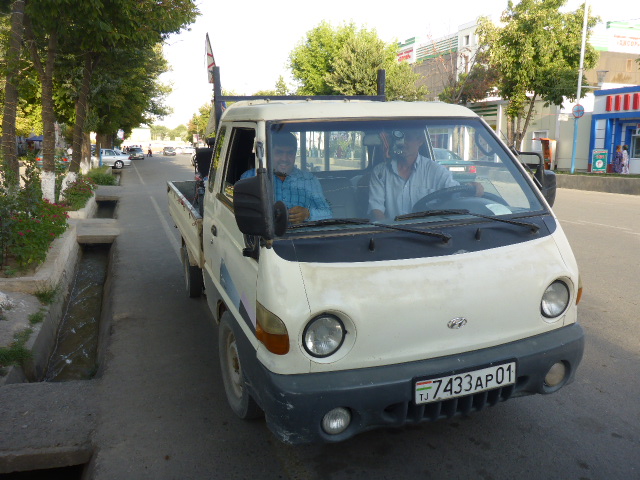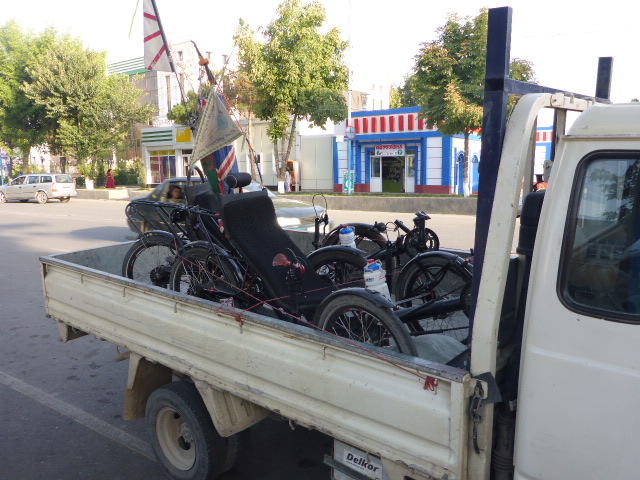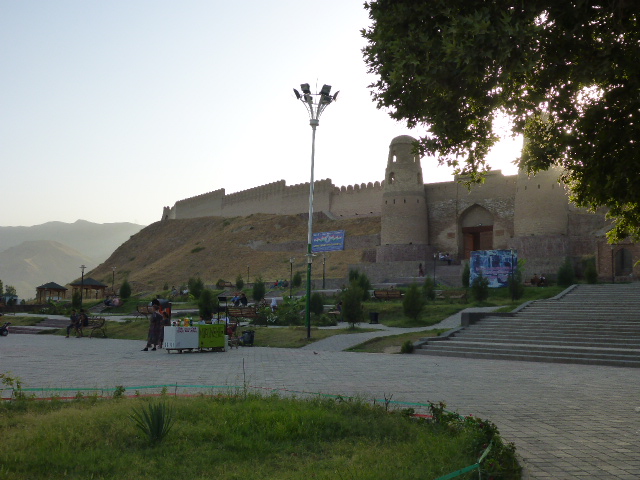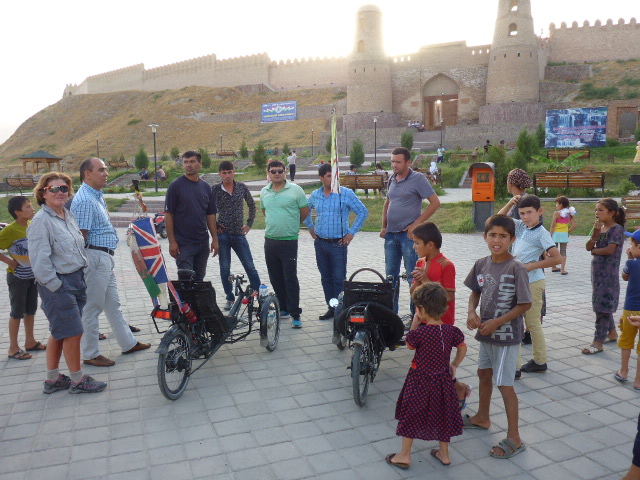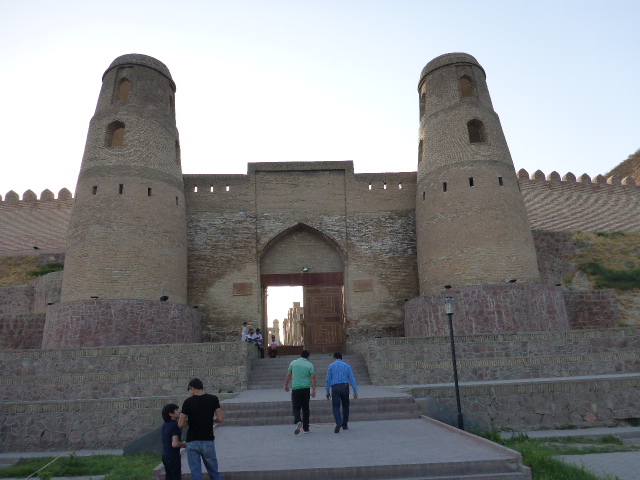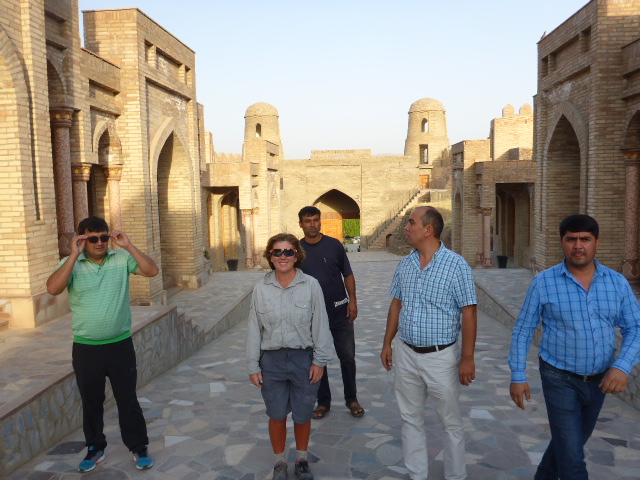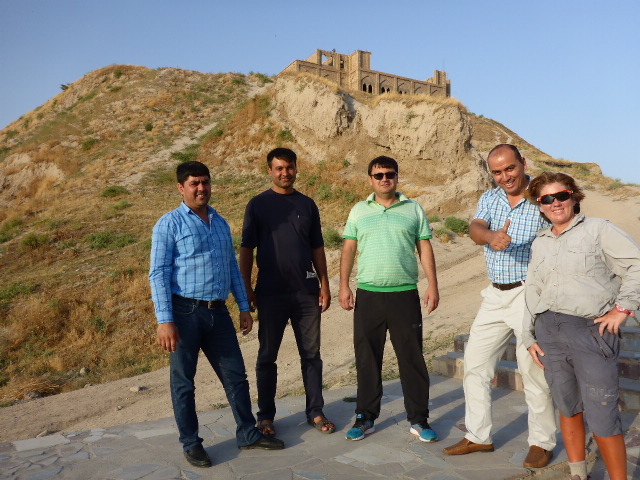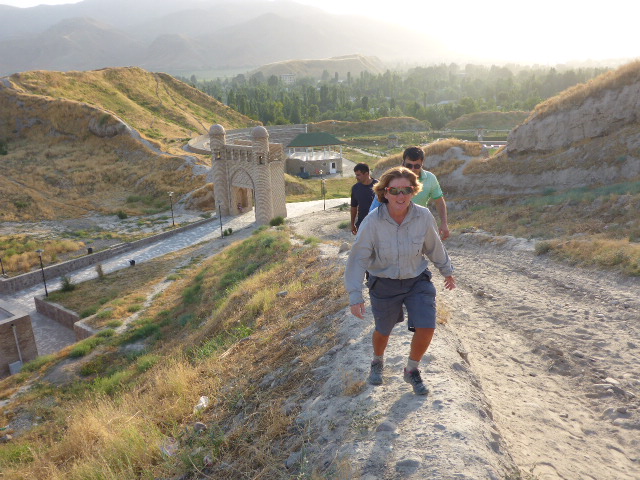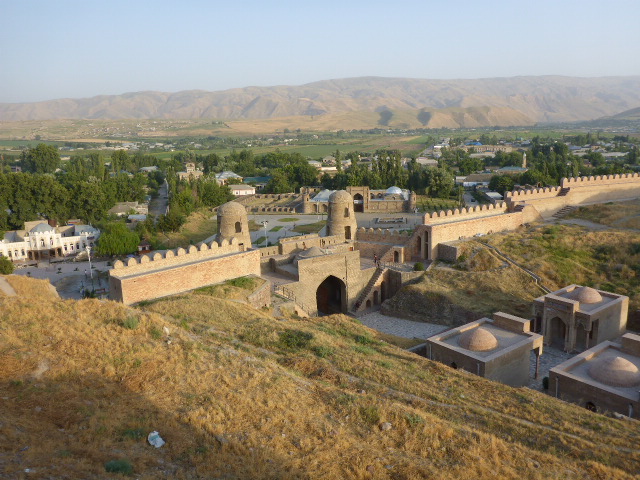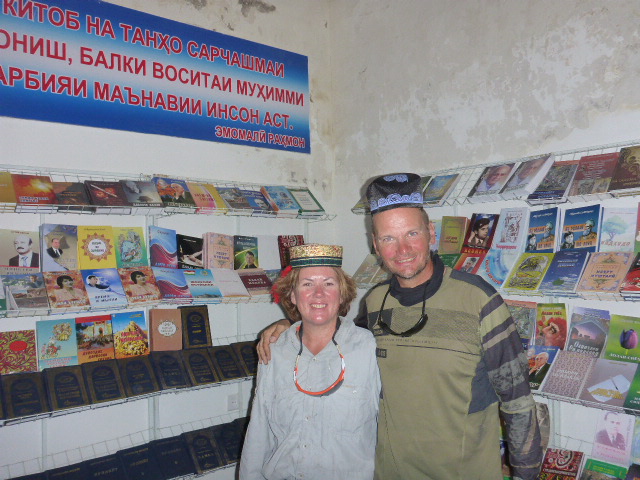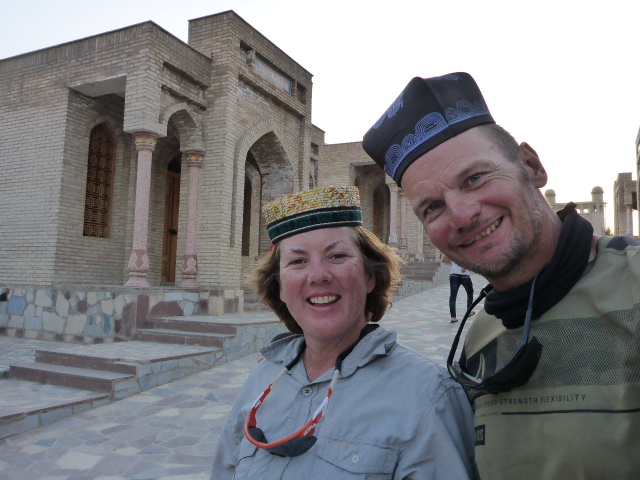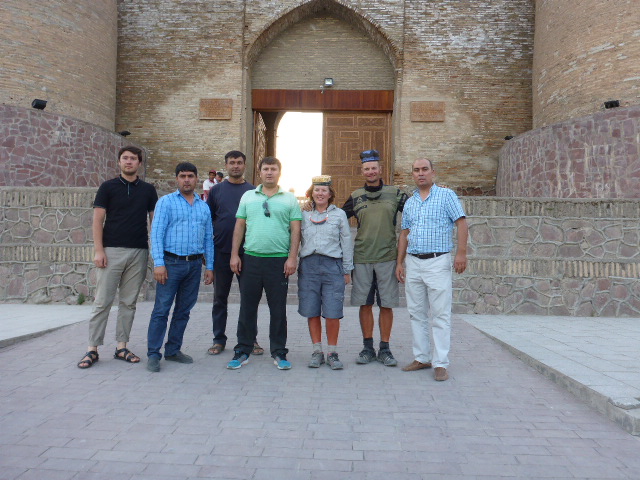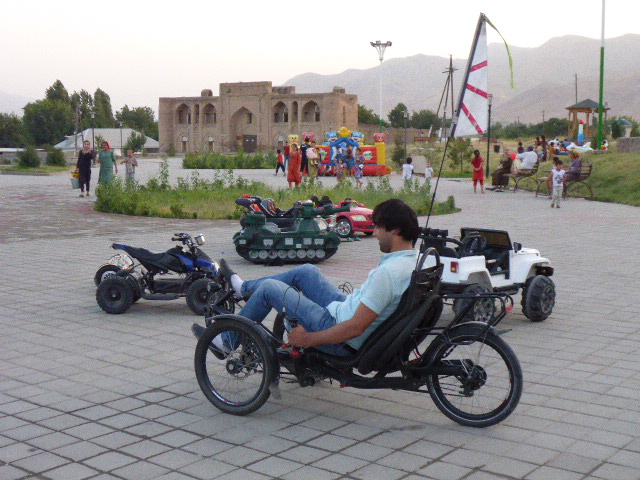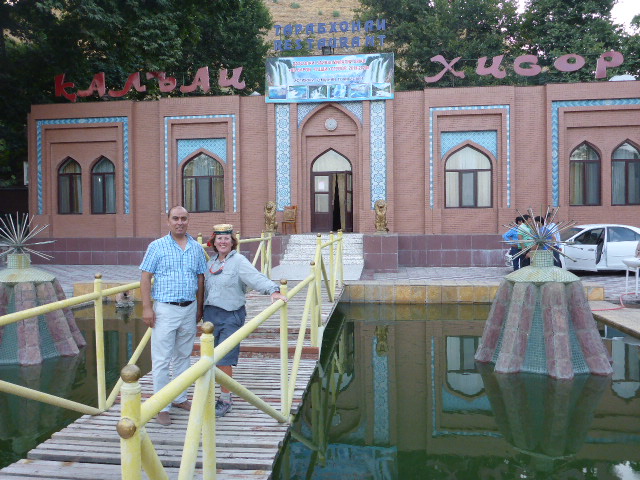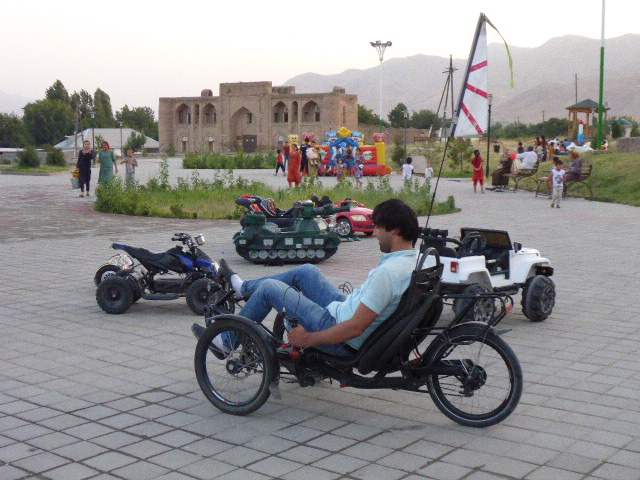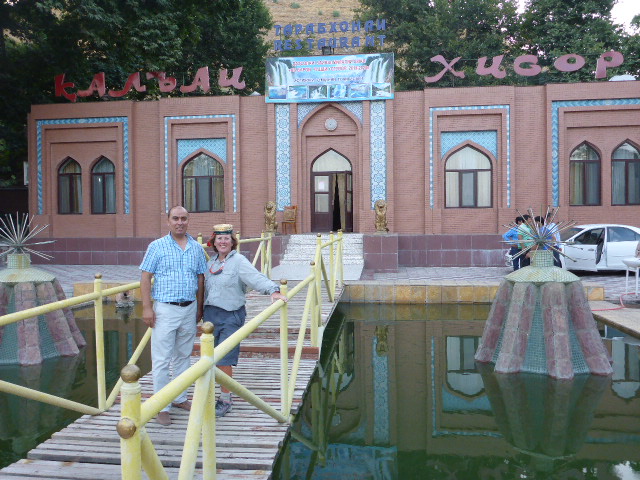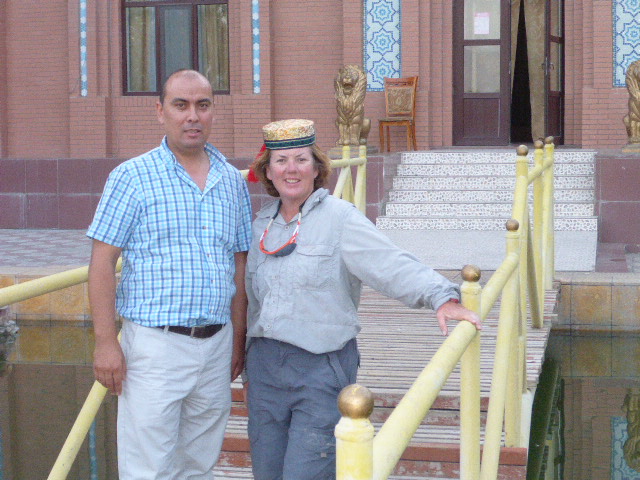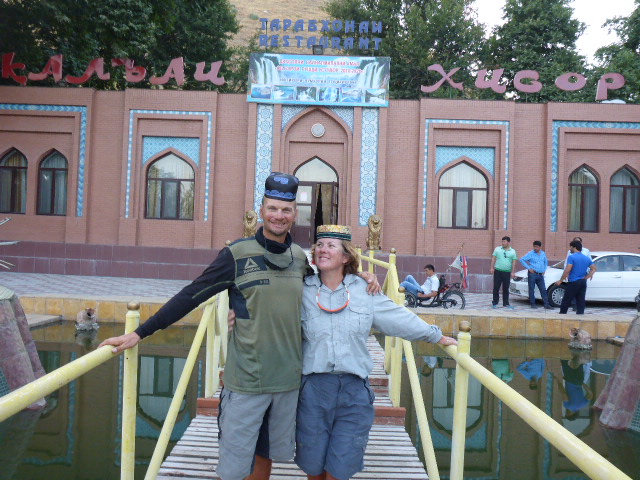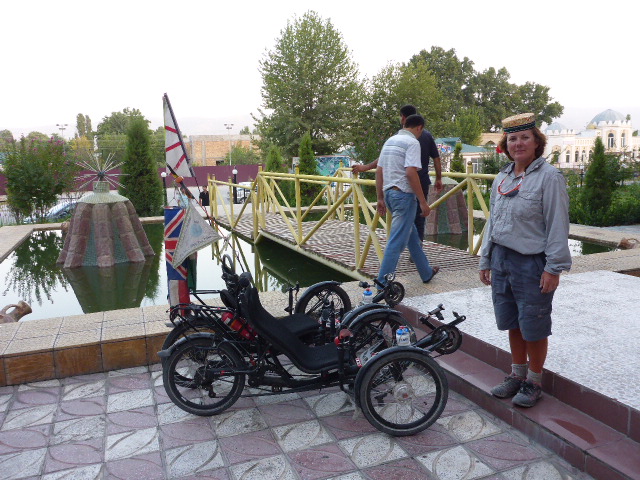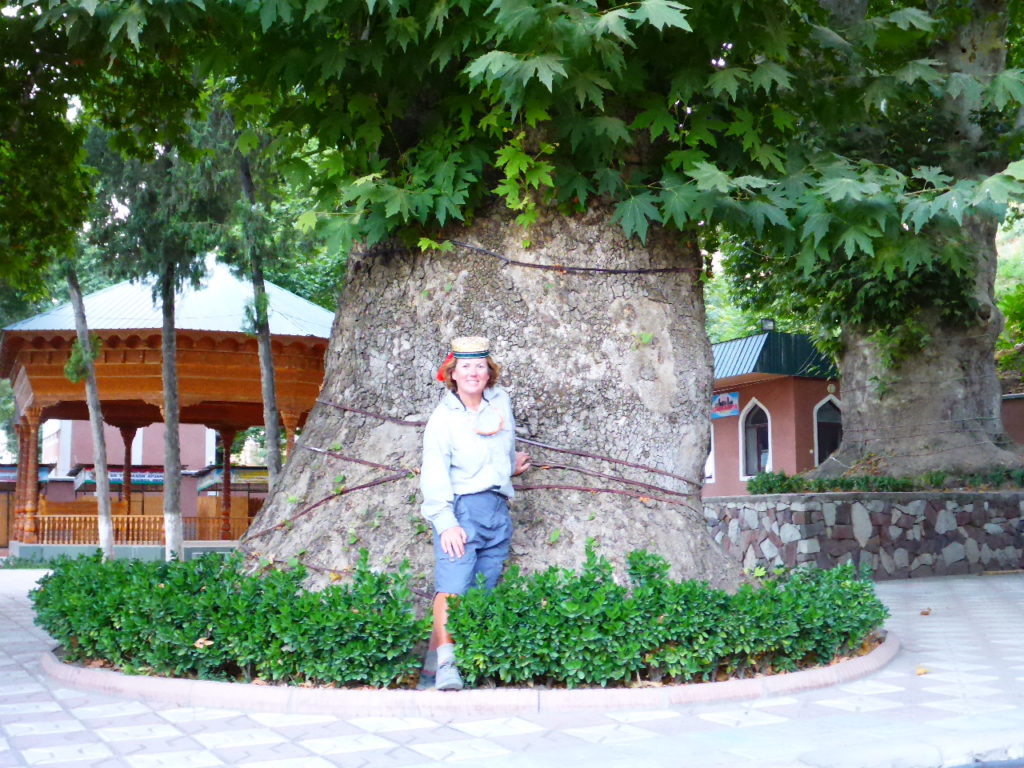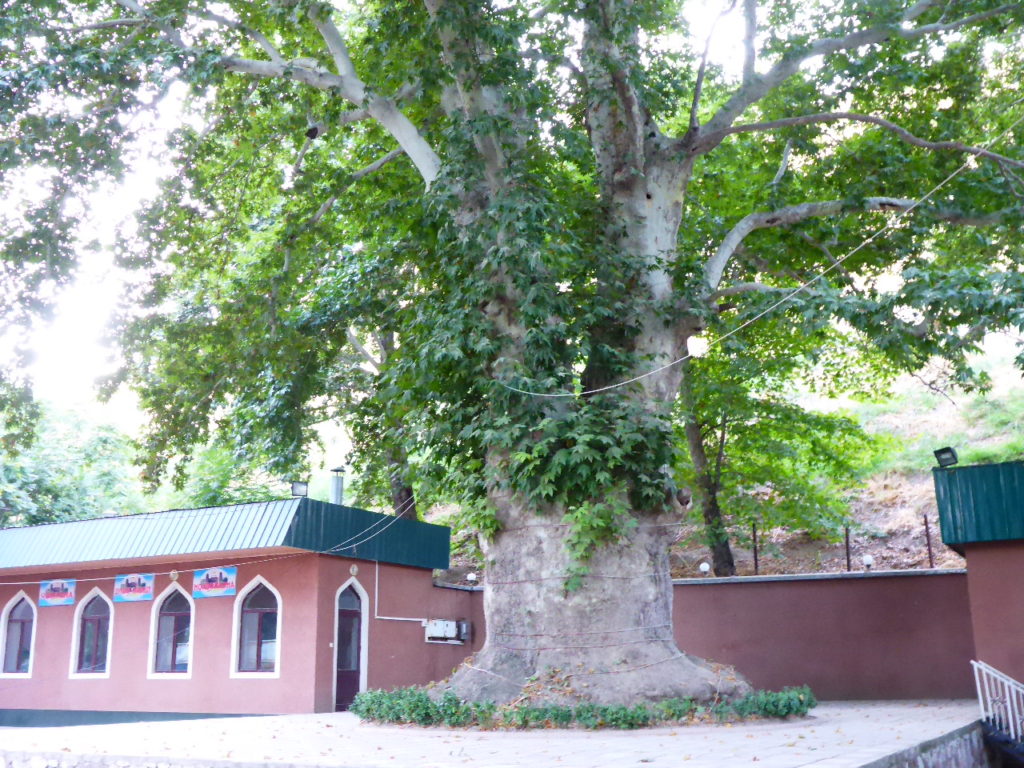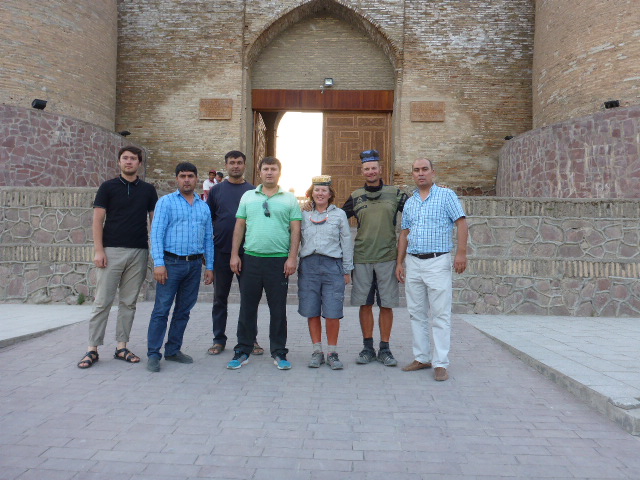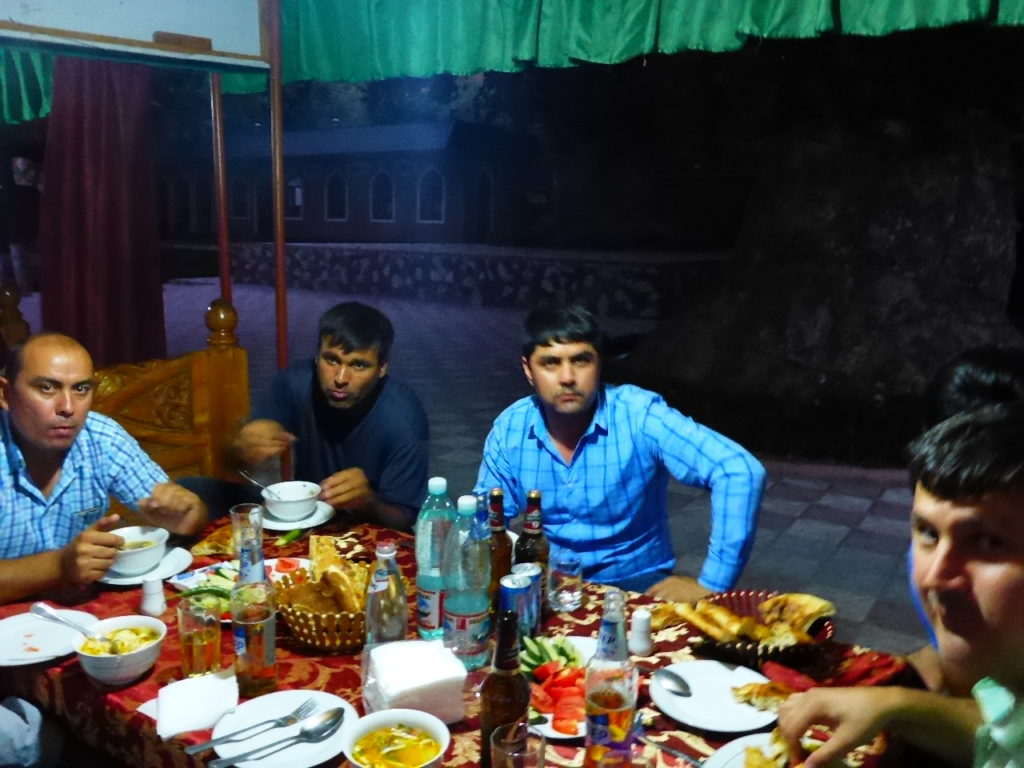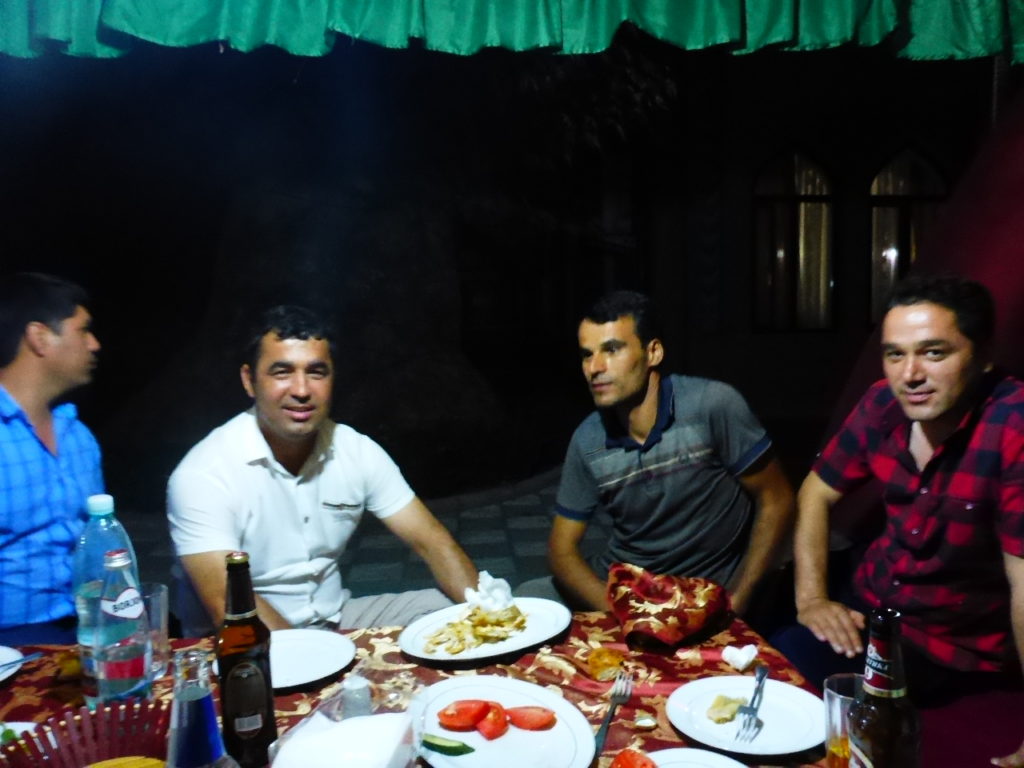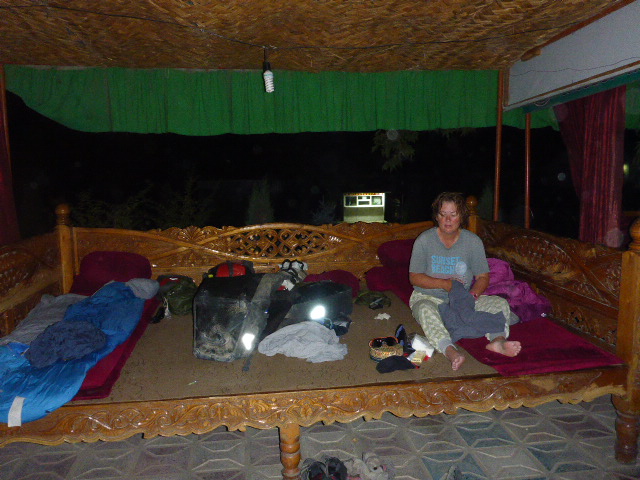Wednesday 21st June – Nukus to Chilpyk (Bashnya Molchaniya)
Distance: 54.99 km
Total Distance: 14089.97 km
This morning my Va-va-vroom just ain’t there. I feel absolutely shattered and I desperately want to sleep but breakfast calls. We’ve already decided where we’re camping tonight and it’s only 50km so after breakfast we hit the Number 1 (actually the only one according to Trip Advisor ) venue of Nukus.
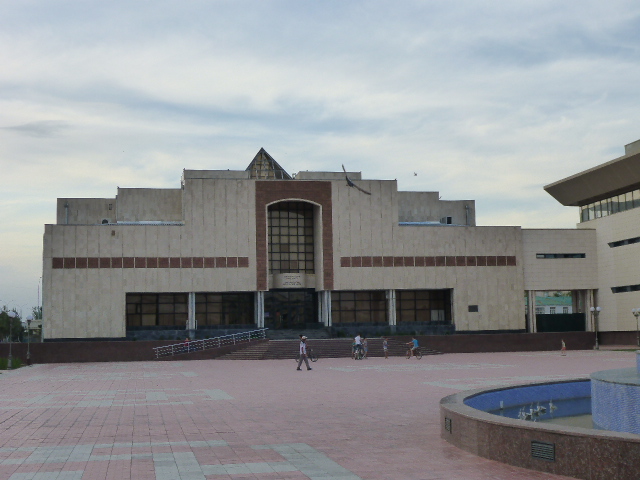
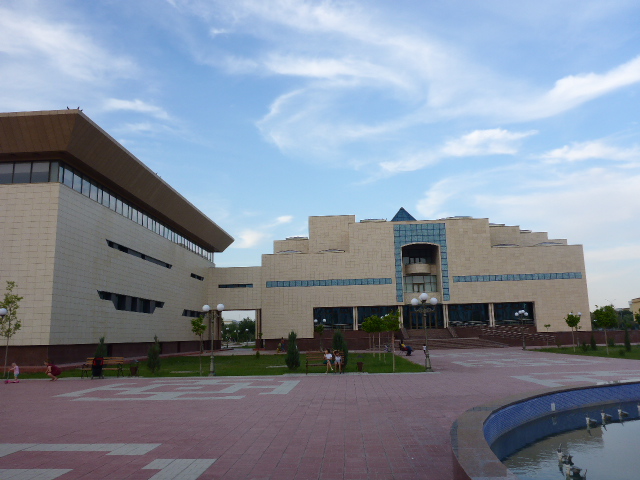
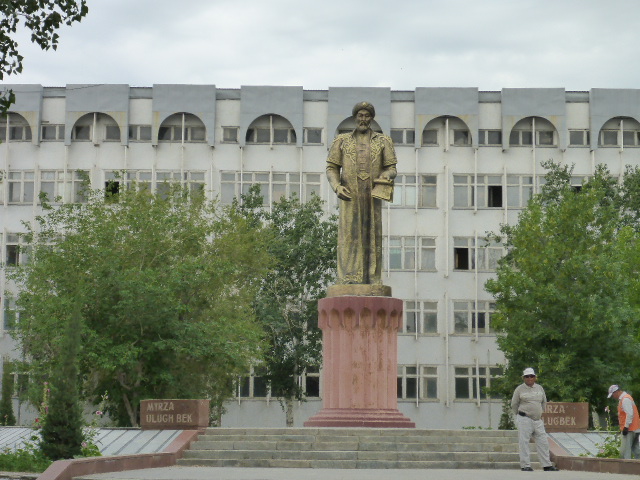
Few Museums in the Republic of Uzbekistan can boast of such a unique collection of paintings by Russian artists as The Karakalpakstan State Museum of Art named after I.V. Savitsky (“Savitsky Museum”). According to experts and the world press, this collection is the best art collection in the Asian region and has the world’s second-largest collection of Russian avant-garde.
We don’t usually ‘do’ museums and now I remember why – we’re suitably underwhelmed but what do we know about art??? Then having packed up we head out of Nukus just in time to catch a thunderstorm with lots of lightning but very little rain.
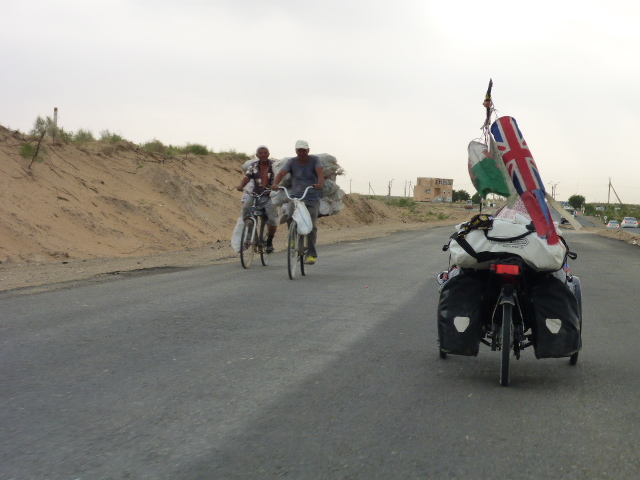
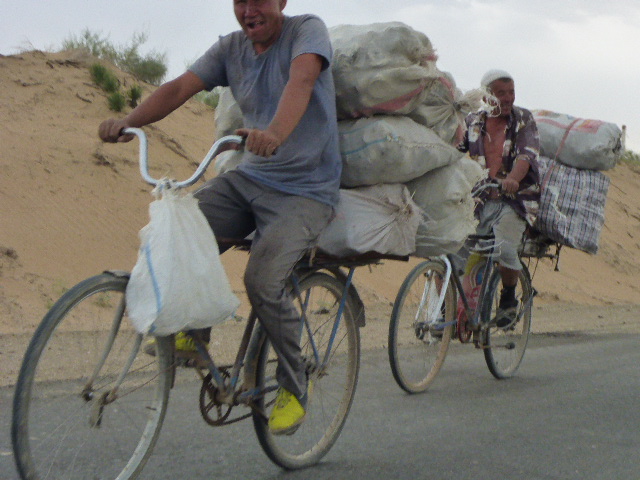
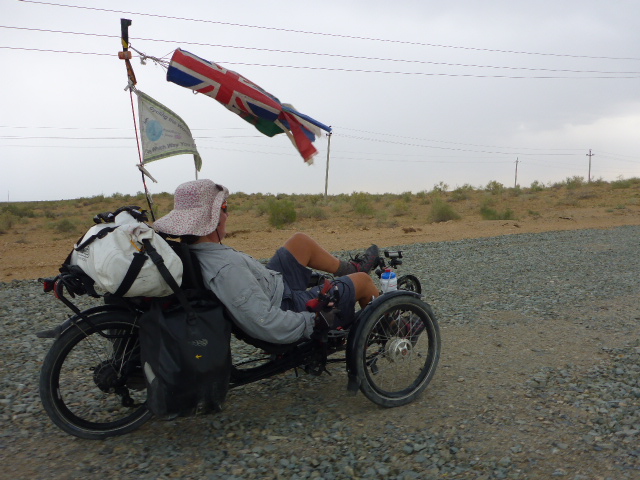
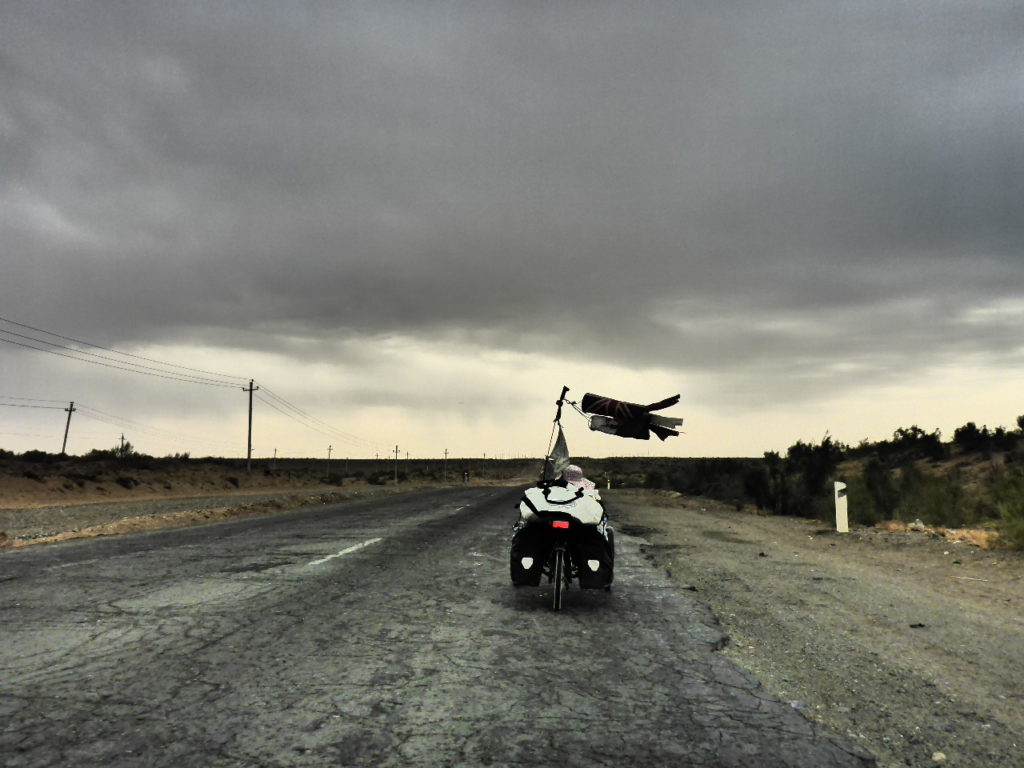
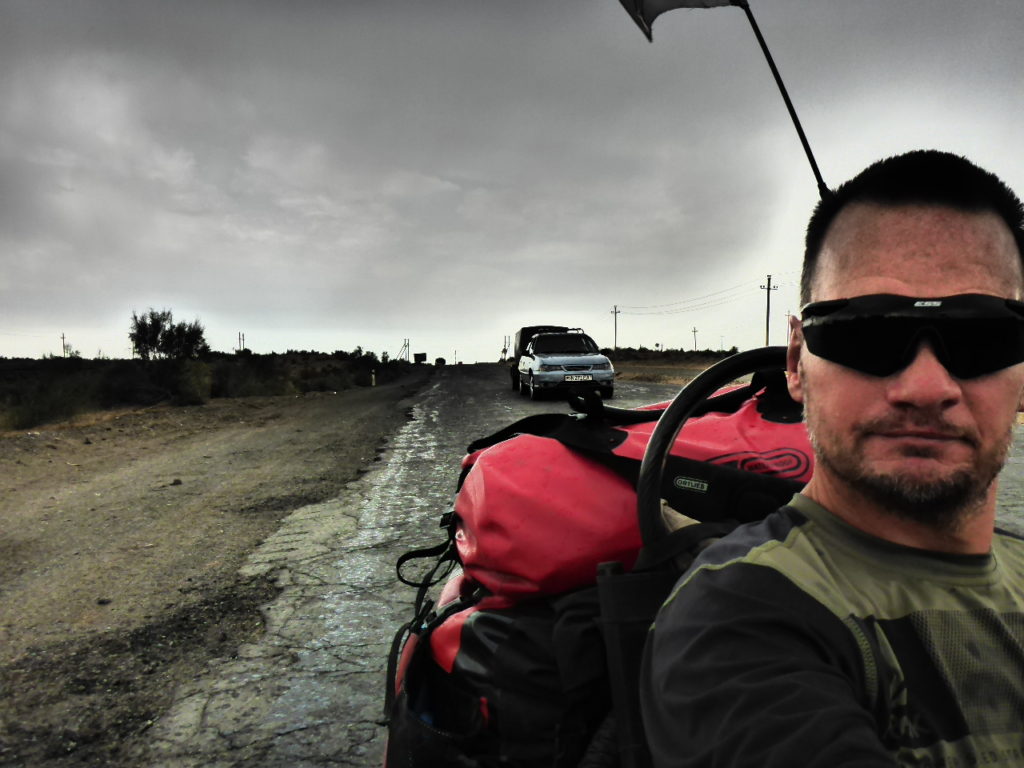
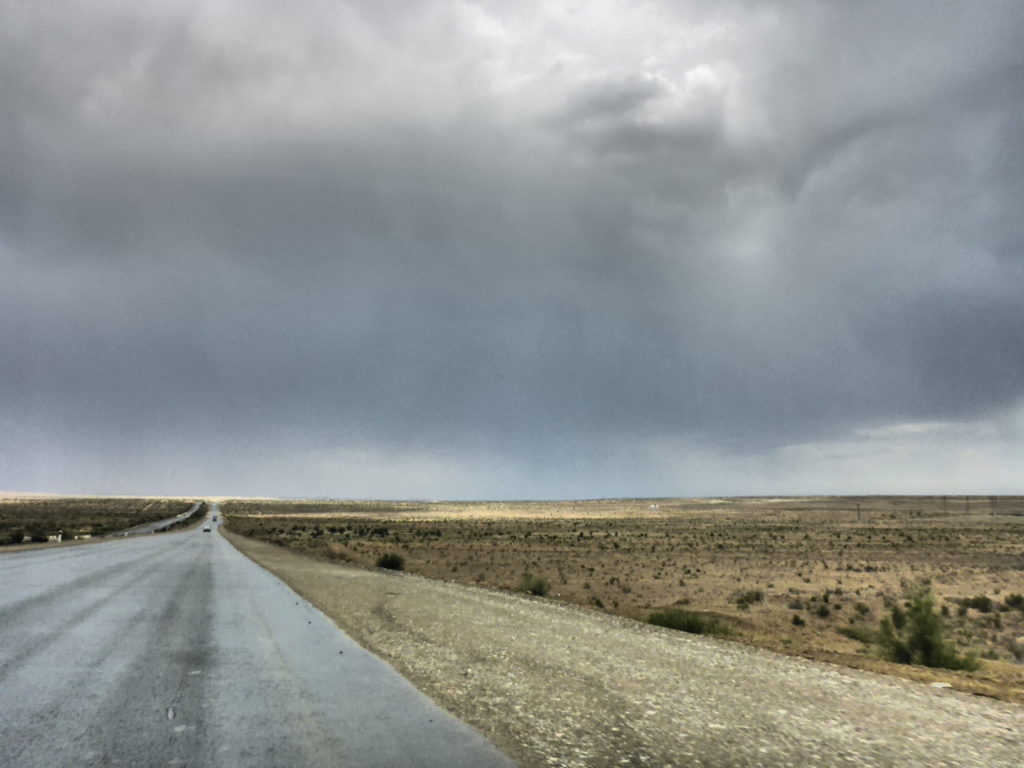
We cycle through the desert and it’s as interesting as our Kazakh desert experience – so not at all interesting but it warms up nicely to 42.7 deg C. We’re obviously not as appealing to the Uzbeks as no one pulls us over for photo shoots although we are photographed by passing cars and one in particular drives alongside me taking pictures and then nearly runs me off the road when he’s done. Finally we spot our destination but we need food and water. We push on for another couple of kilometers, there’s a shop there, we’ve been told (the first since we left Nukus). But it’s not a shop it’s a restaurant. There’s loud music and a group eating and dancing. I’m too tired for this. Fortunately the proprietor agrees to sell us some provisions from her stores and we try and escape but first we dragged onto the dance floor.
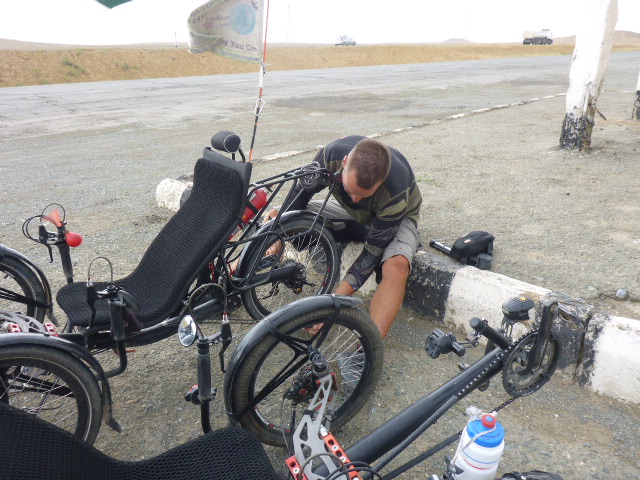
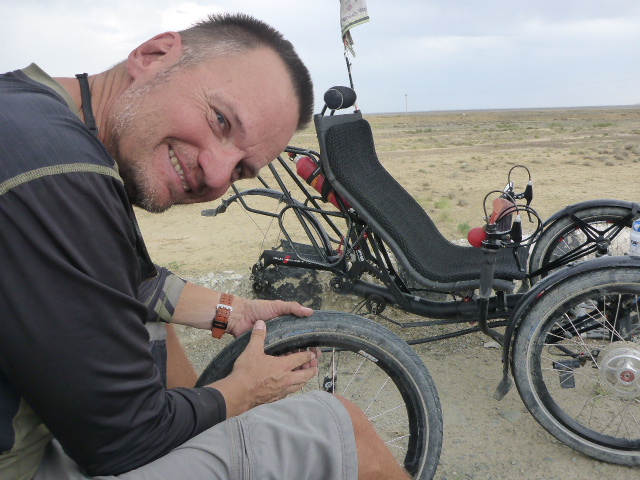
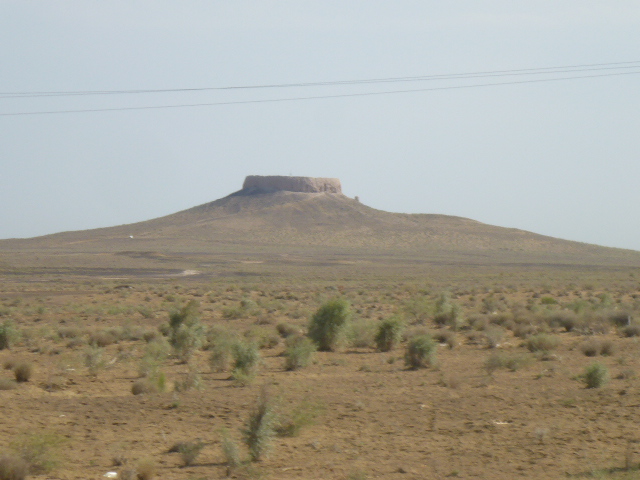
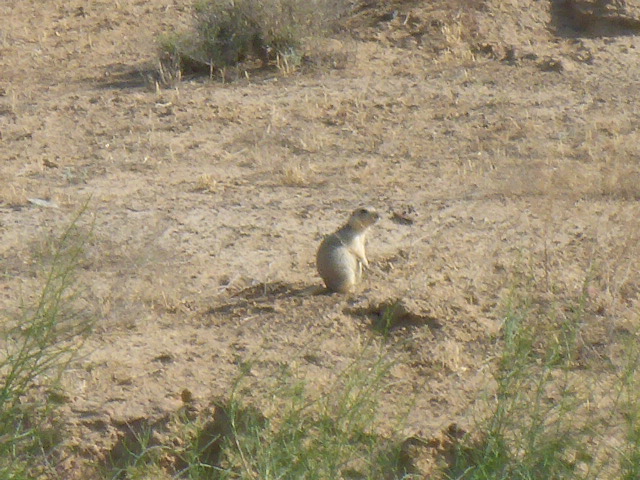
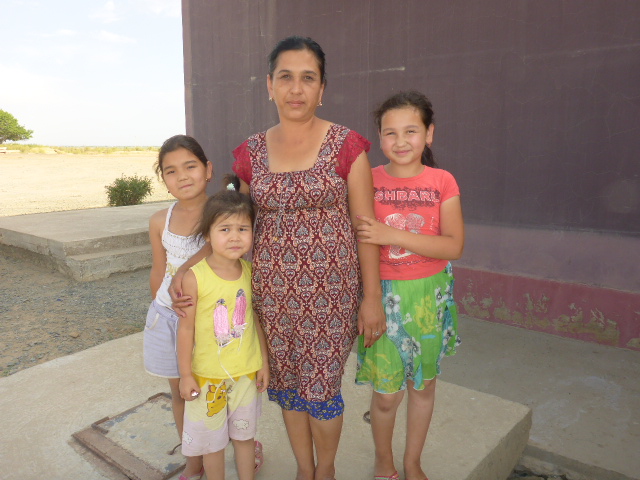
So we join in and they absolutely love that we’re dancing with them and then we leave and they all come out to take photos. All done and we take a track back to our ‘campsite’. It’s beneath the Tower of Silence.
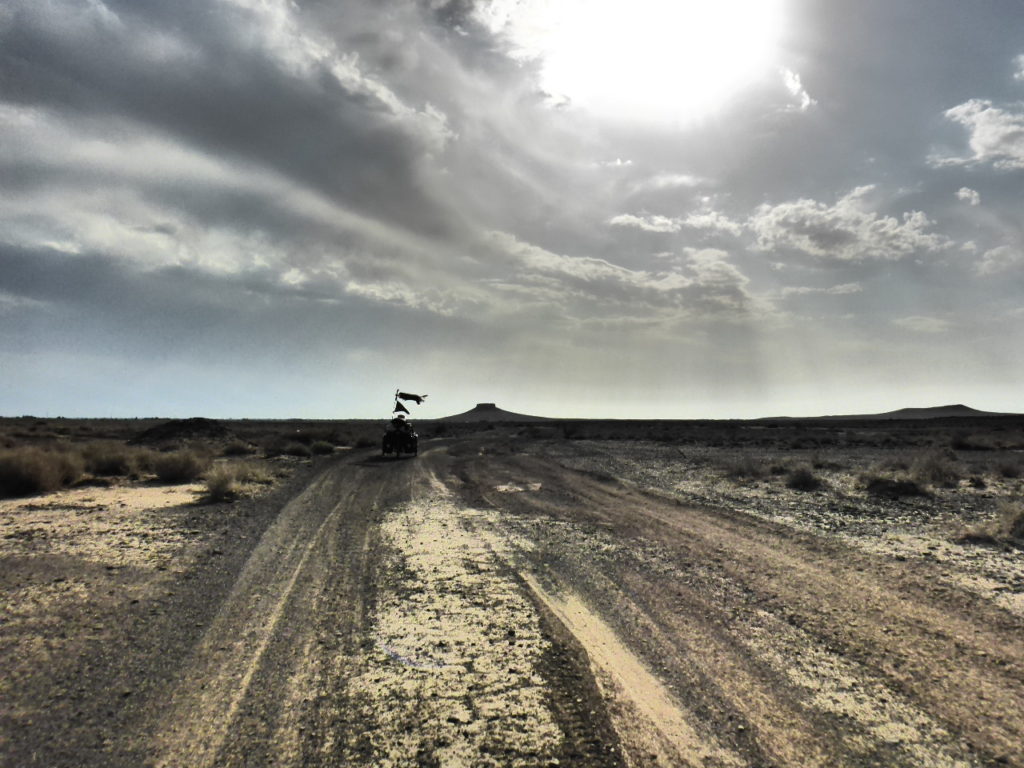
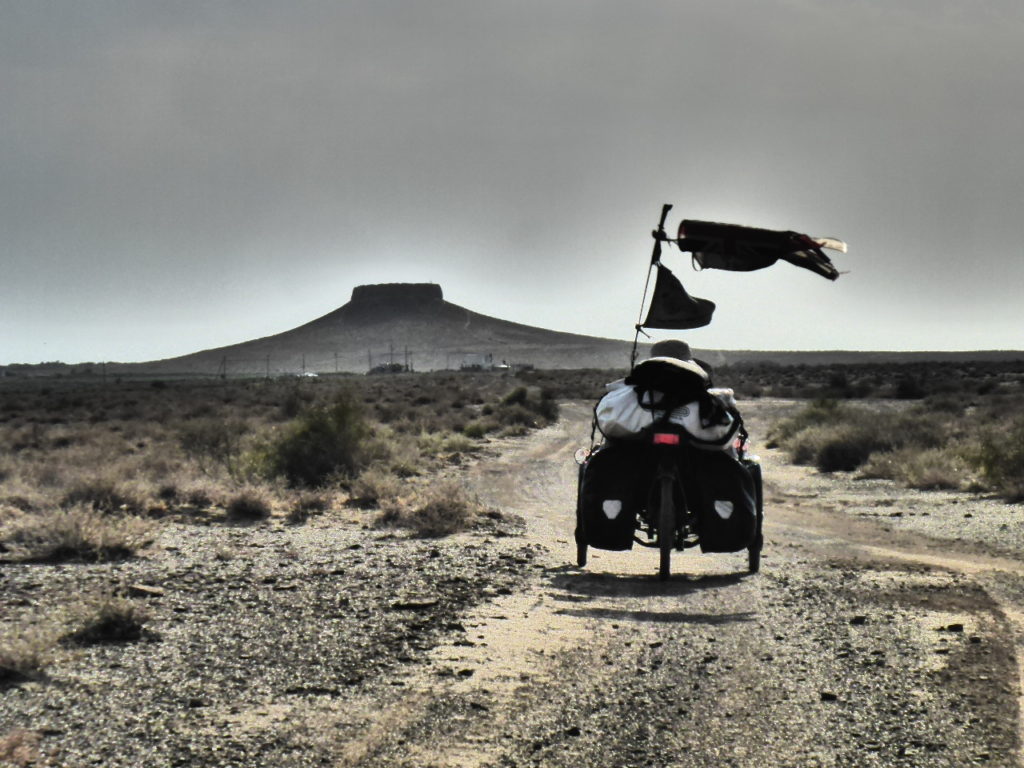
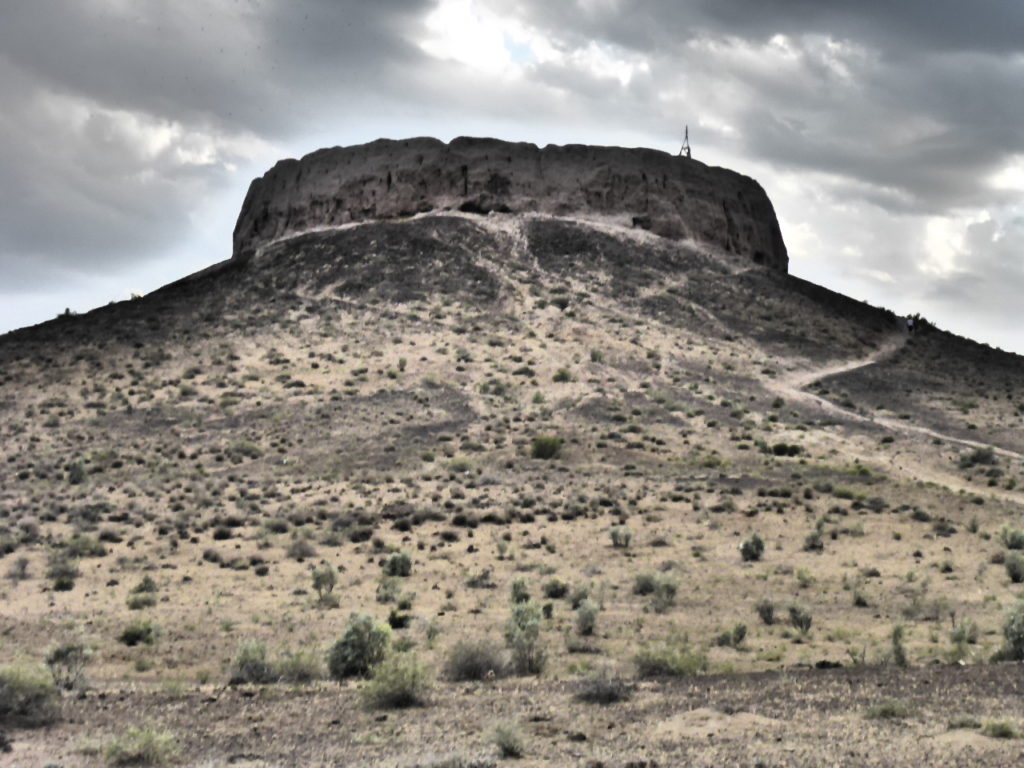
Zoroastrian Burial Practices are of special interest. Bodies were placed on high hills or man-made summits and exposed to scavengers who soon stripped the bones clean. The bones were then preserved in containers known as ossuaries. A high place where the bodies were laid out was known as a Tower of Silence. One such Tower of Silence is located on the right bank of the Amu Darya River northeast of Khiva.
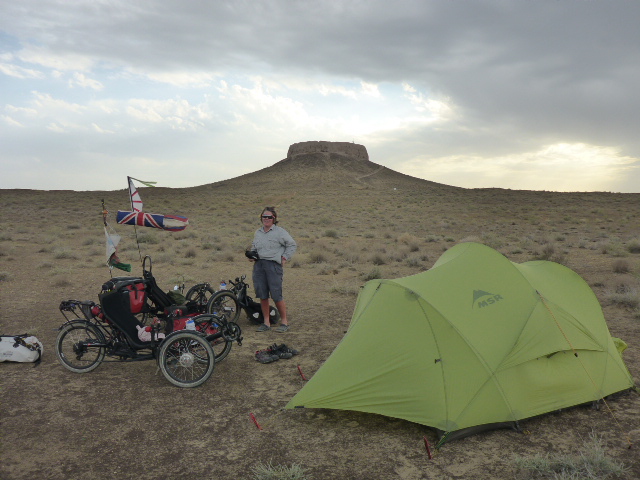
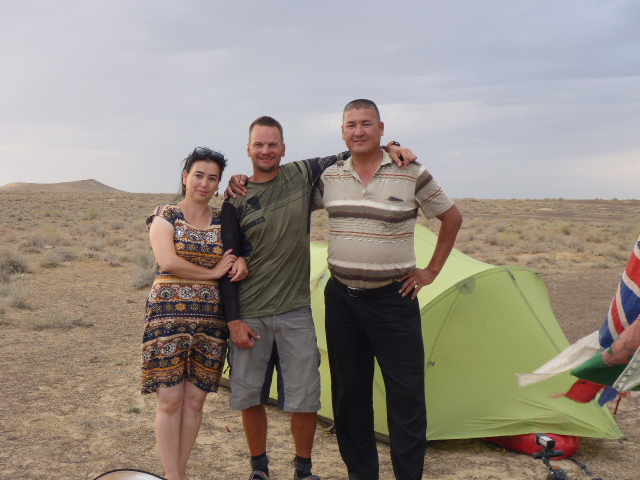
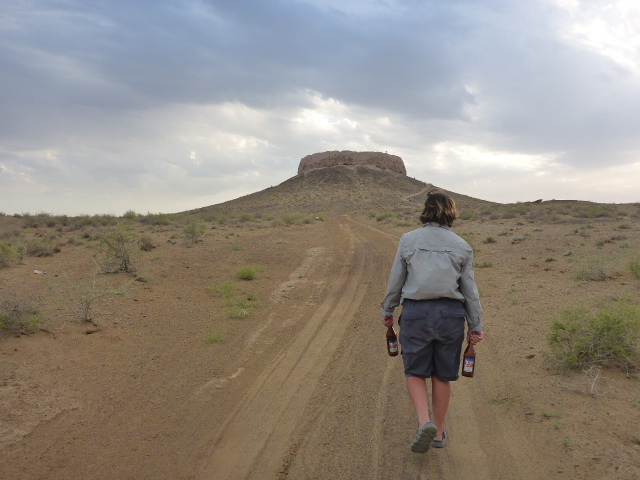
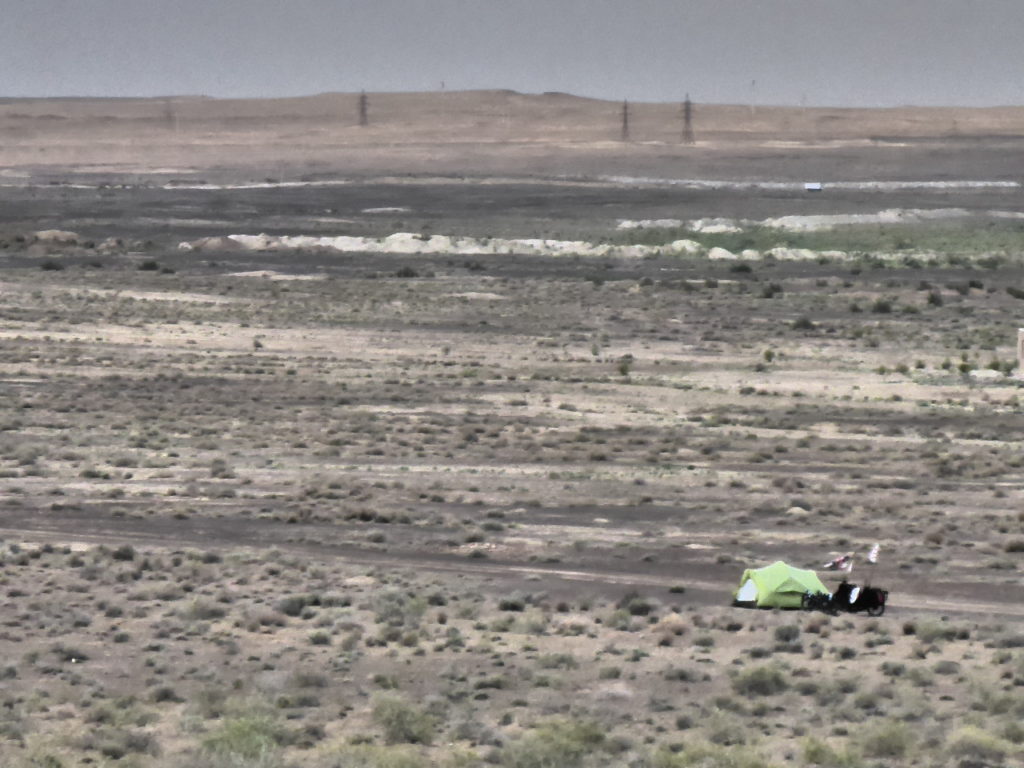
We find a spot below the Tower and set up camp. Pasta for dinner and then a walk up to the Tower to investigate. As we’re sitting within the Tower walls enjoying a beer as the sun sets, a large group of children arrives. They’re all wearing the same Karate club T-shirts and pull a kata stance for a photo.
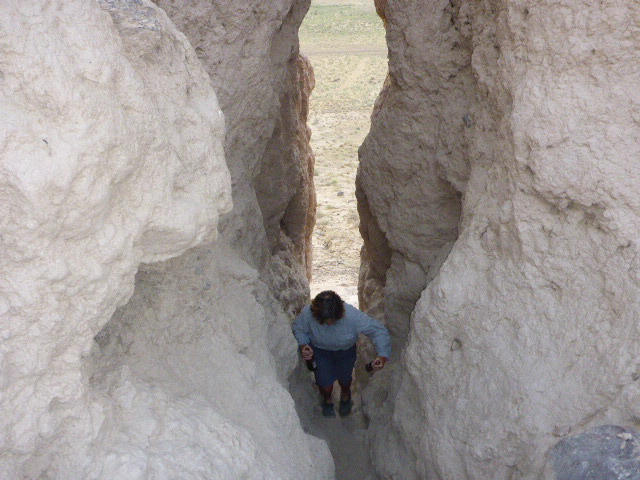
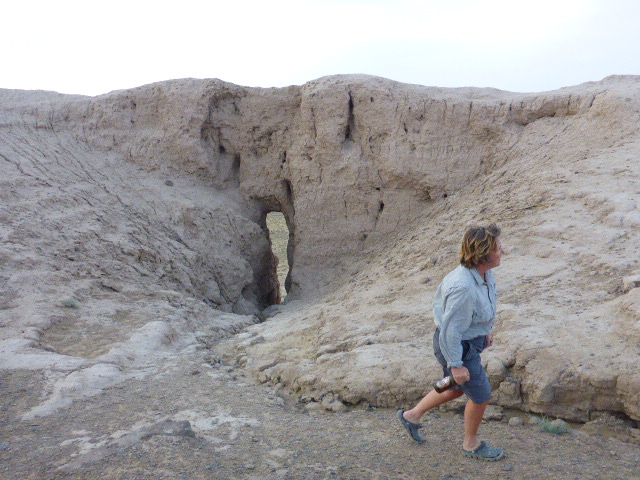
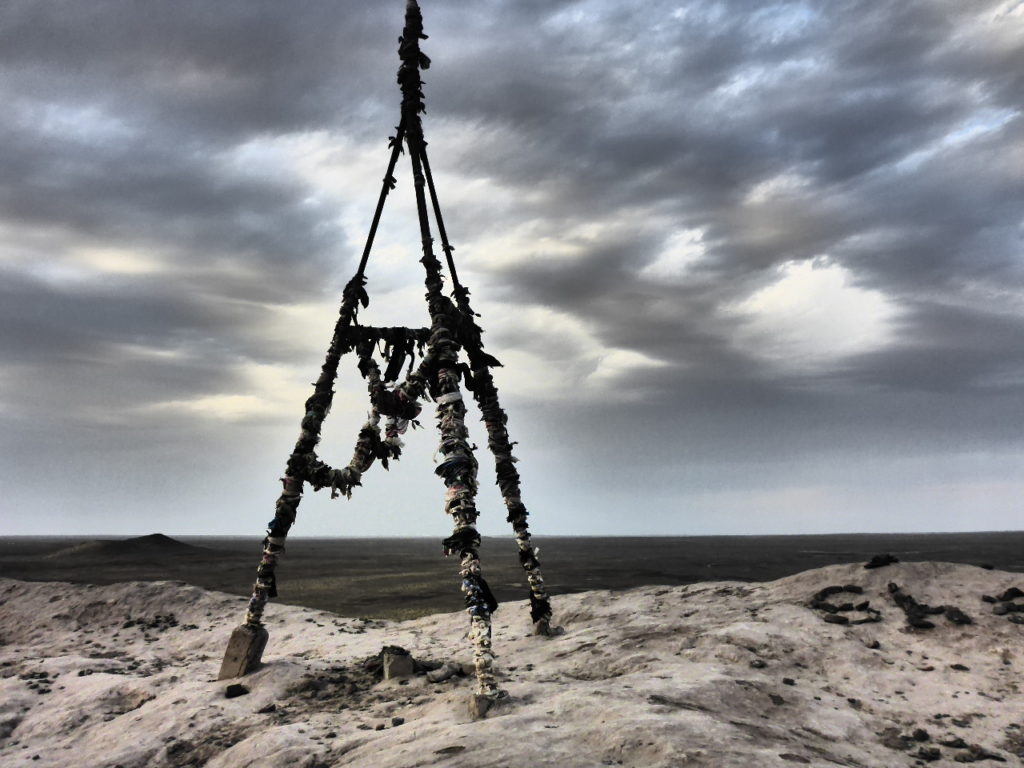
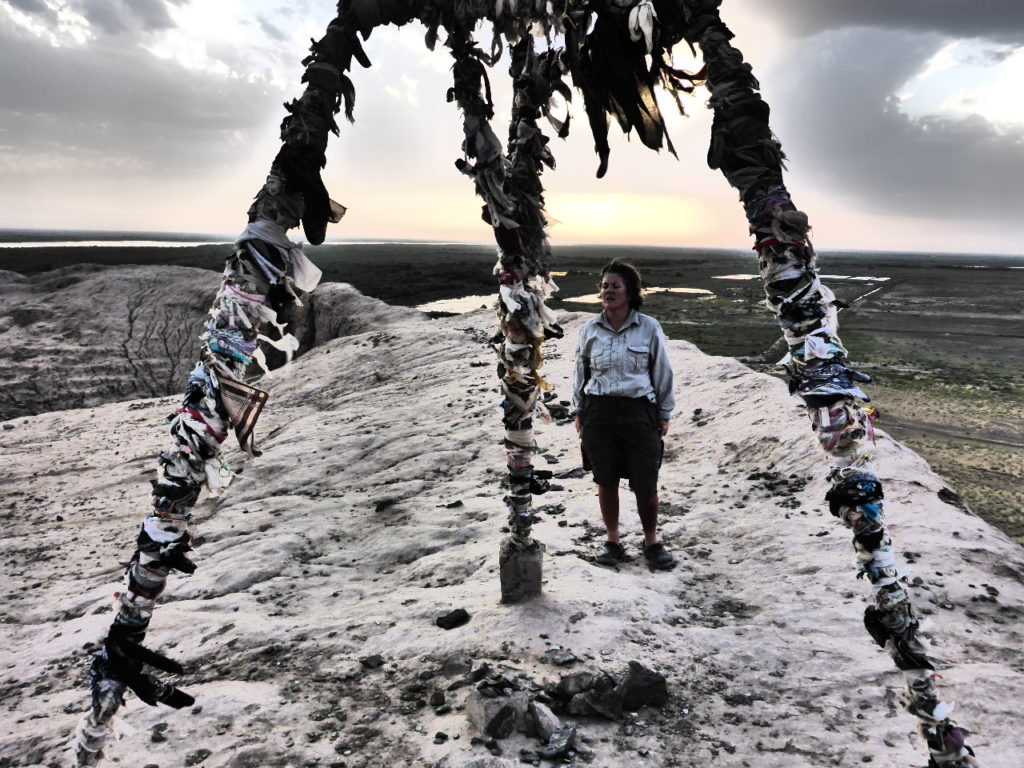

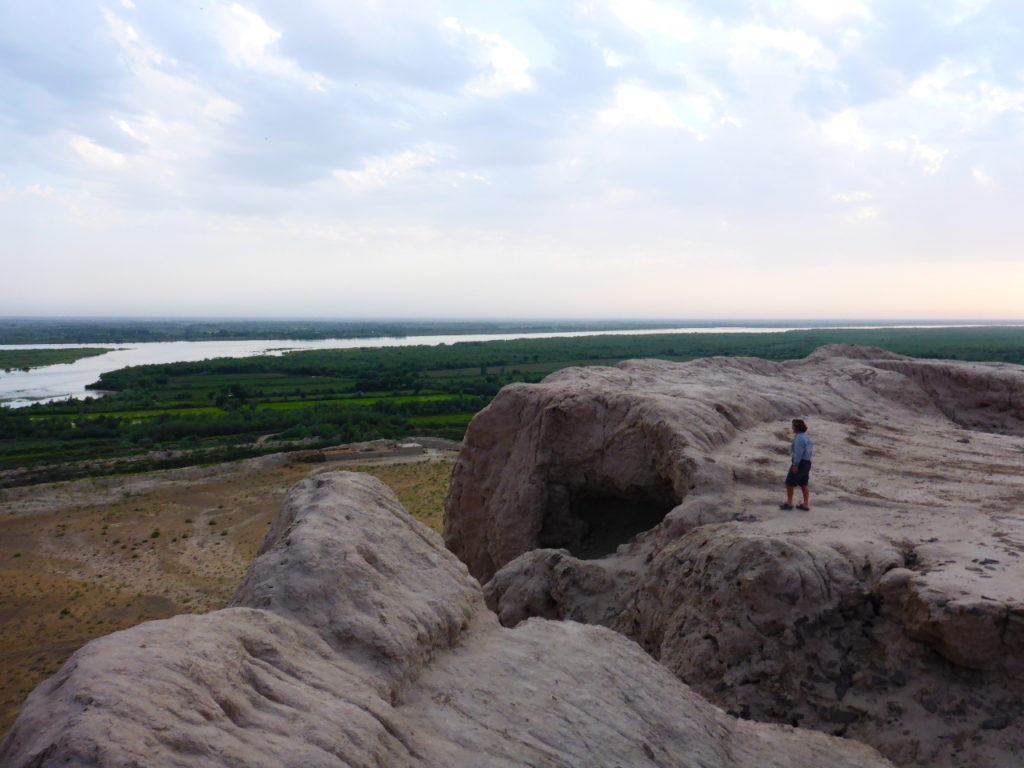
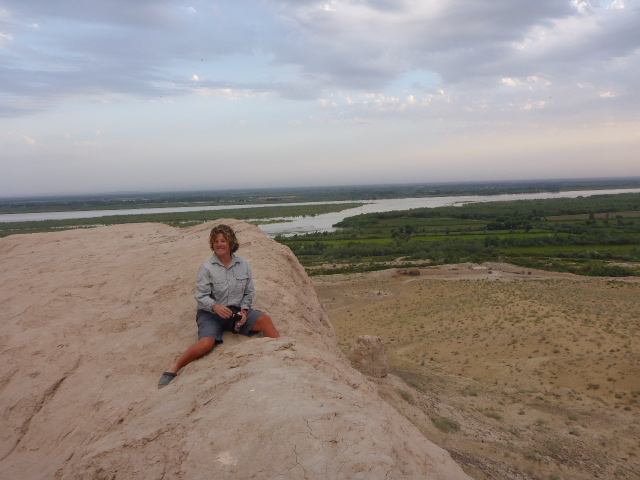
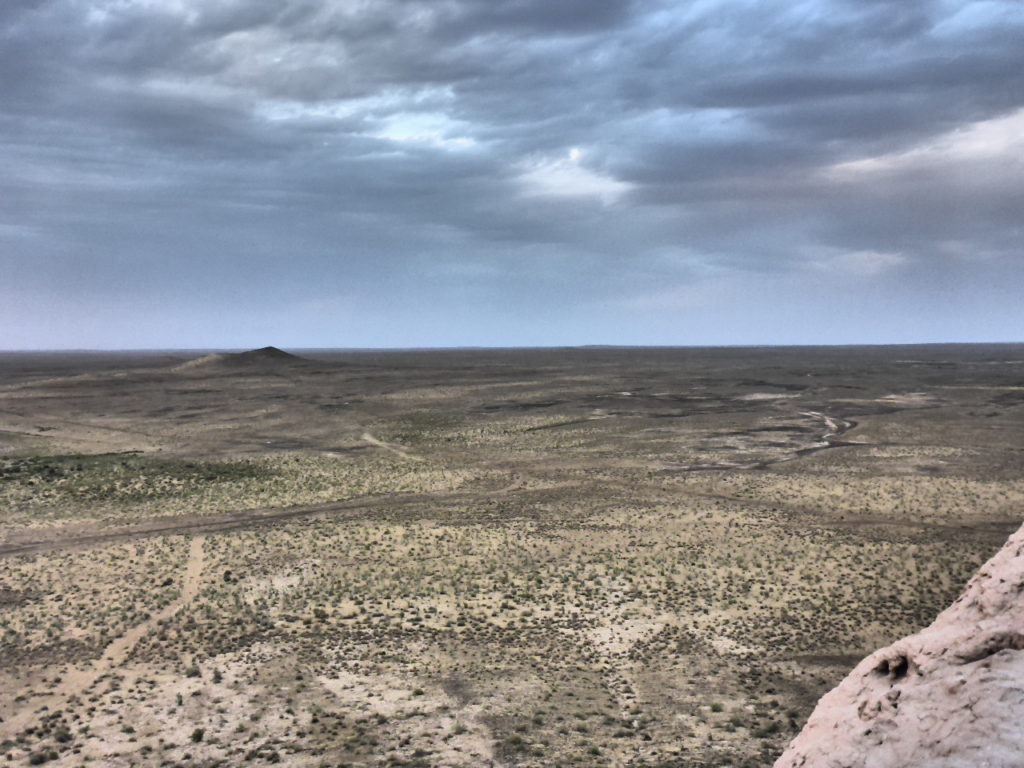
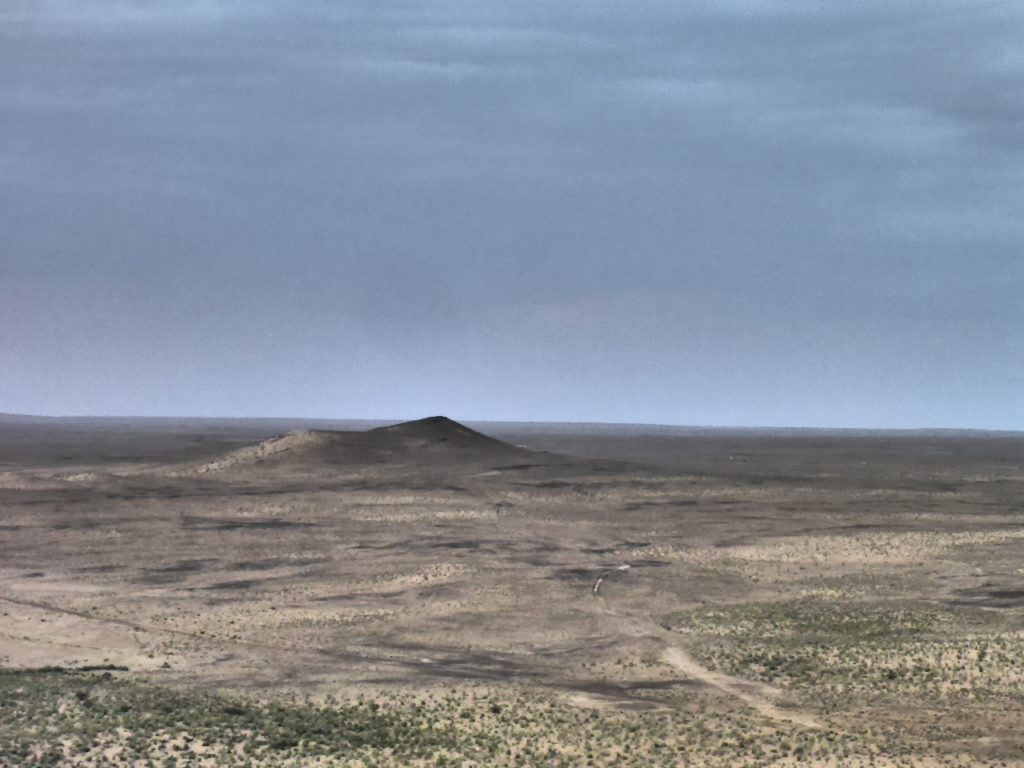
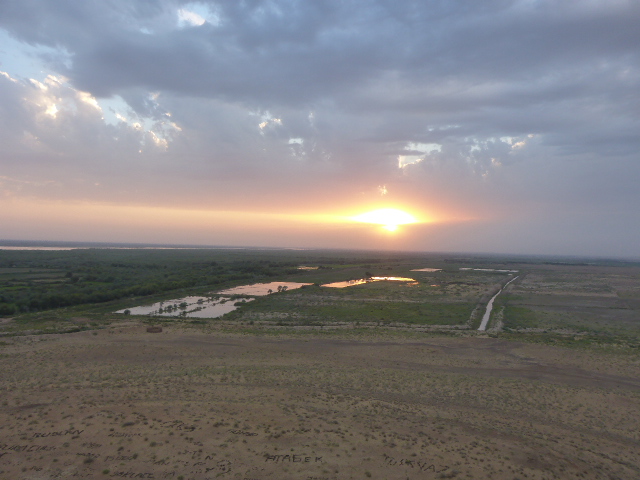
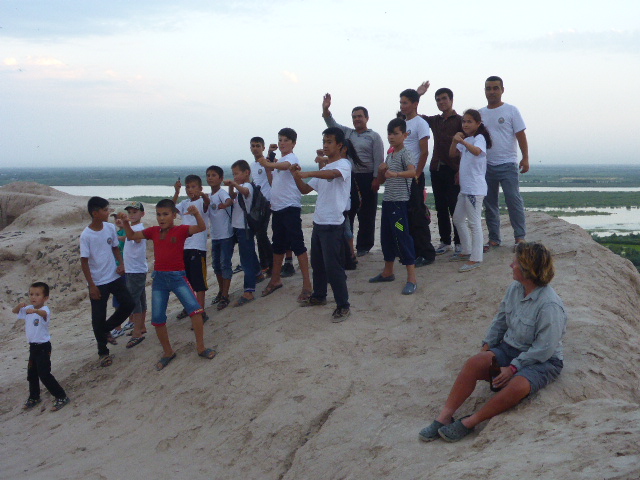
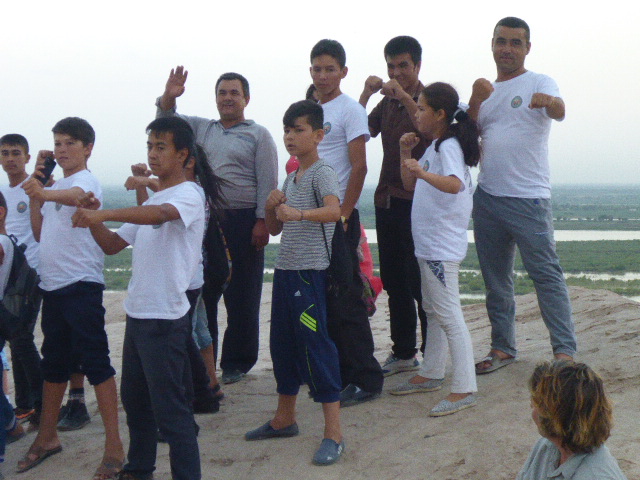
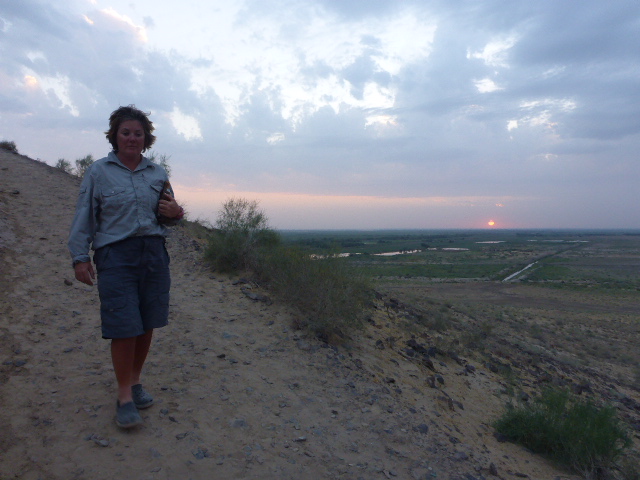
Then we head downhill debating the temperature – it’s 8pm and still a sweltering 33 deg C. We have our ritual bucket wash and realise we’re in a mosquito zone, there’s lots of standing water nearby – bad camping site selection.
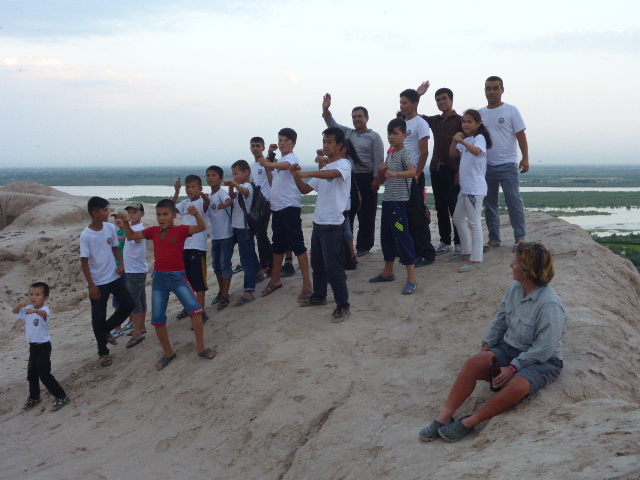
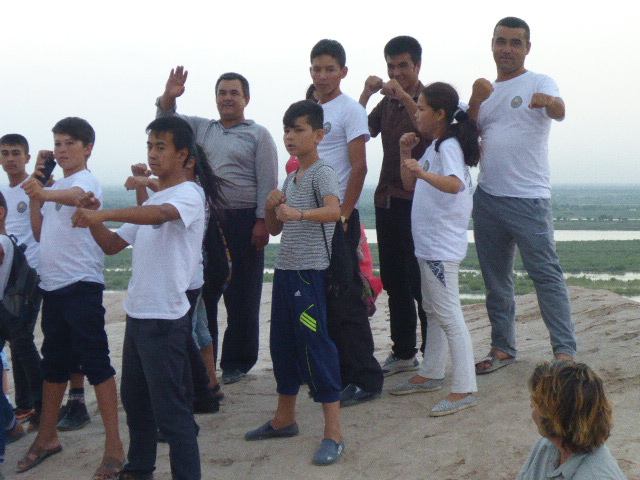
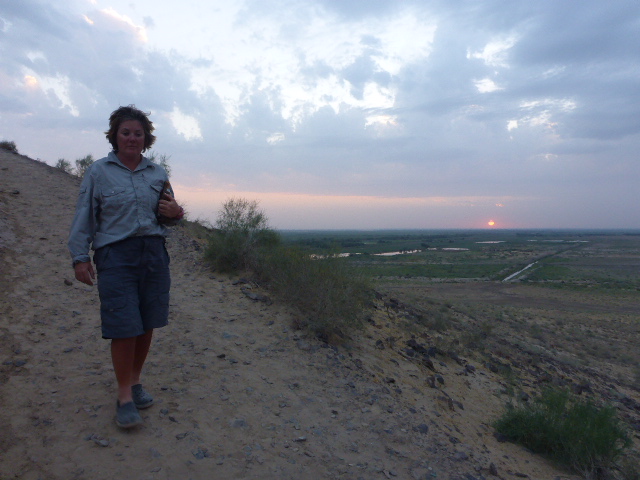
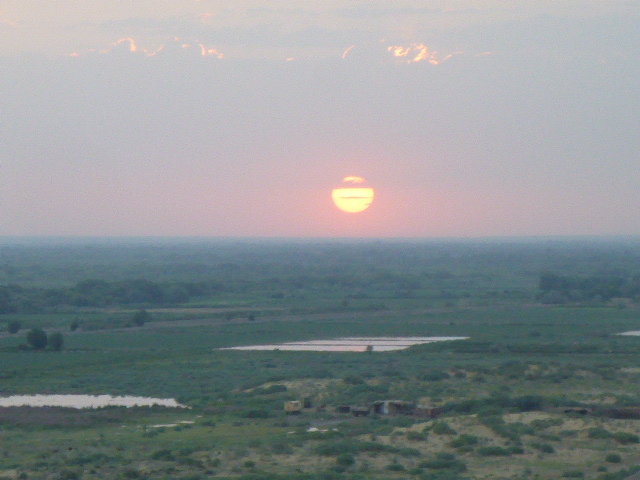
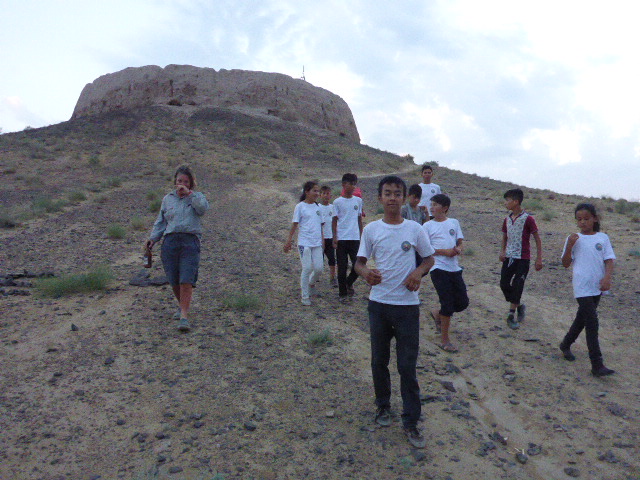
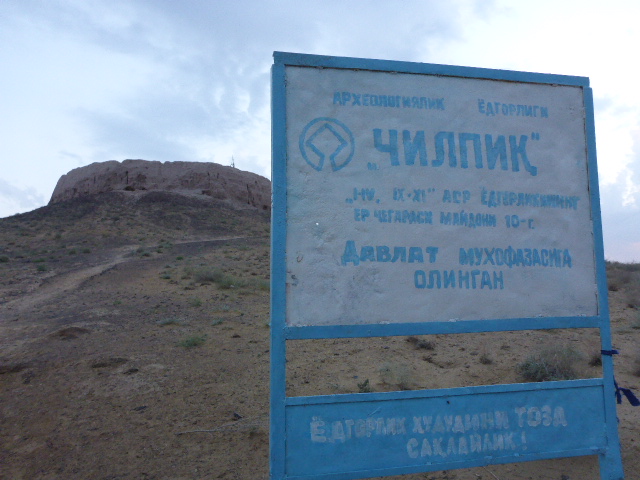
We retire to bed and zip ourselves in to keep the mozzies out. By midnight the temperature in the tent drives me outside. I’ll get bitten but at least I won’t be dripping with sweat. Finally we agree, inner sleeping pod and fly unzipped and Doom coil burning just inside. Daz is worried we’ll set ourselves and the tent on fire, but seriously that couldn’t be any hotter than the temperature inside the tent with the inner sleeping pod zipped up.
Thursday 22nd June – Chilpyk (Bashnya Molchaniya) to Gulen
Distance: 74.70 km
Total Distance: 14164.17 km
Not surprisingly we’re awake by 7am. Without shade it soon gets hot in the tent. We check the temperature at breakfast and it’s already 31deg C. We head off and once off the sandy track and back on the main road we make good progress to Beshtom and stop to replen our water and have a drink.
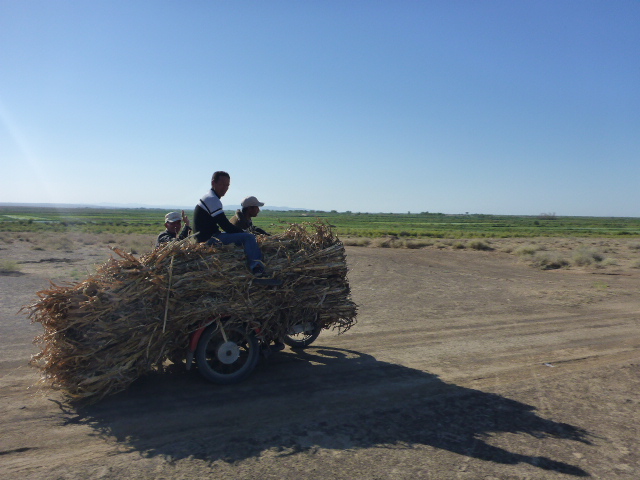
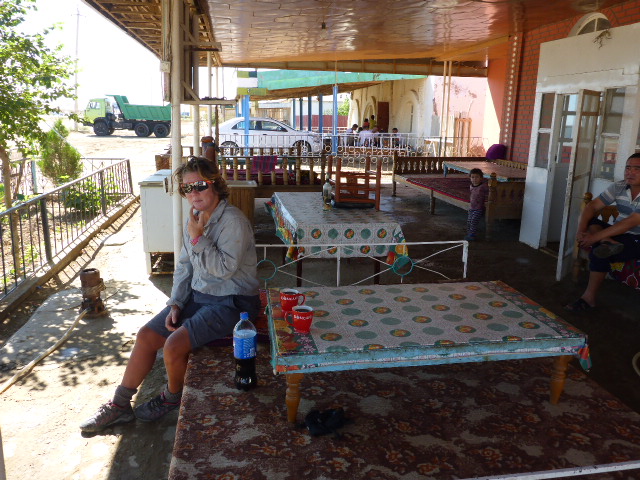
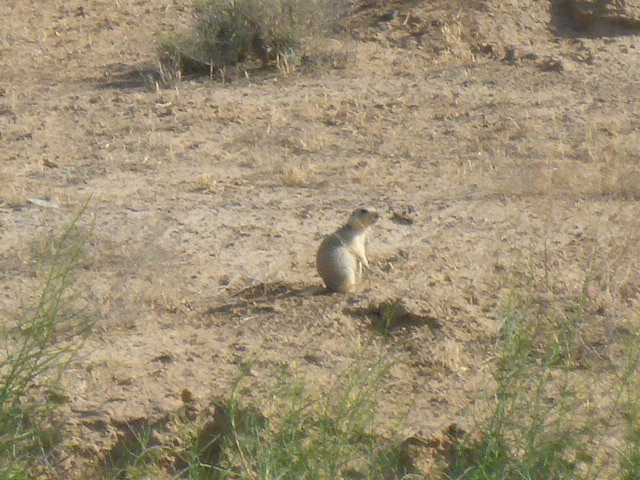
Then we turn off the main road, A380, onto the backroad. Kezim (our driver to the Aral Sea) told us not to take the backroad because of its terrible condition ; gravel, potholes etc but Beth and Max went this way. It’s not long until we cross the huge river, Amudaryo, on a rather ramshackle pontoon bridge.
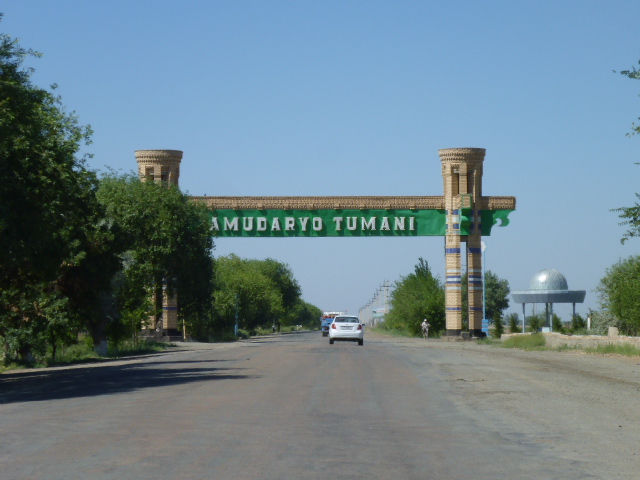
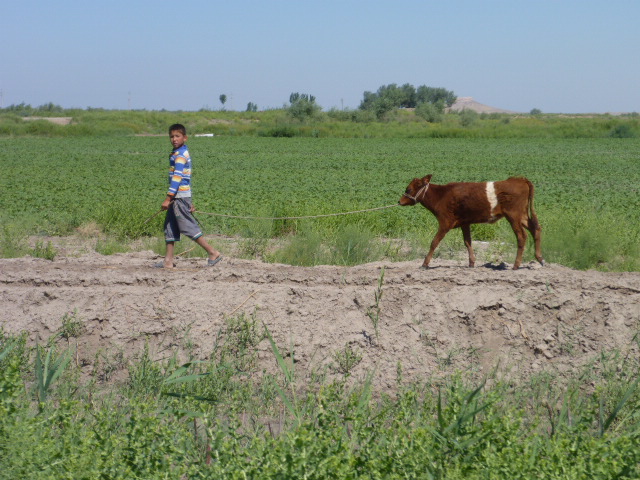
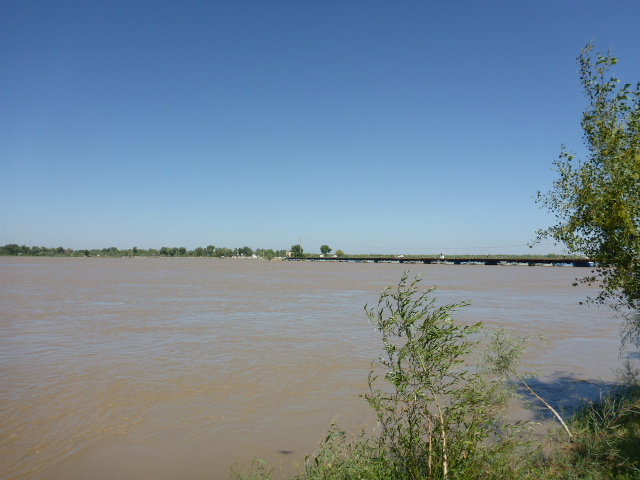
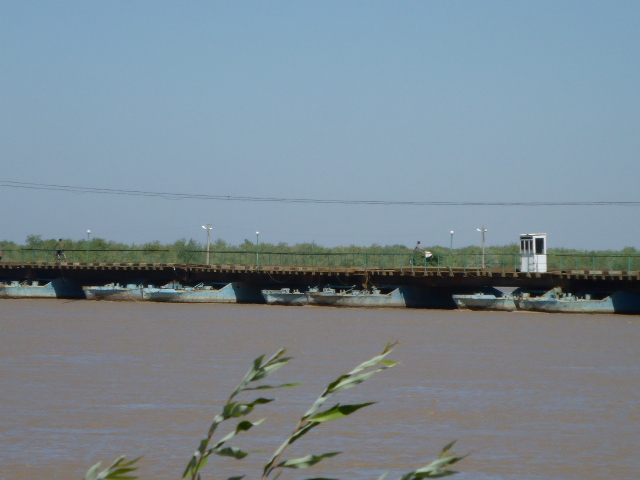
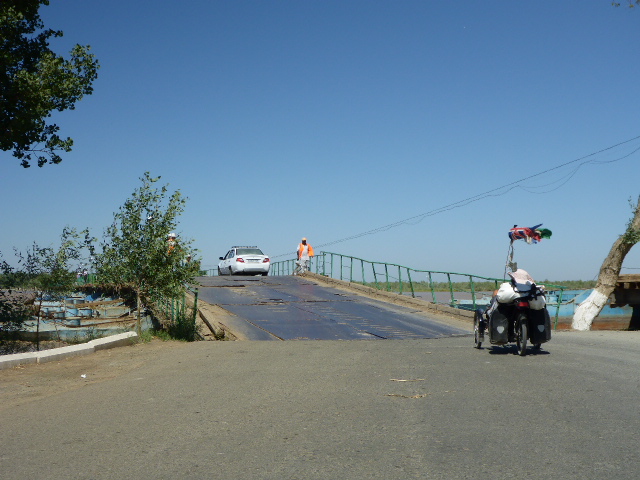
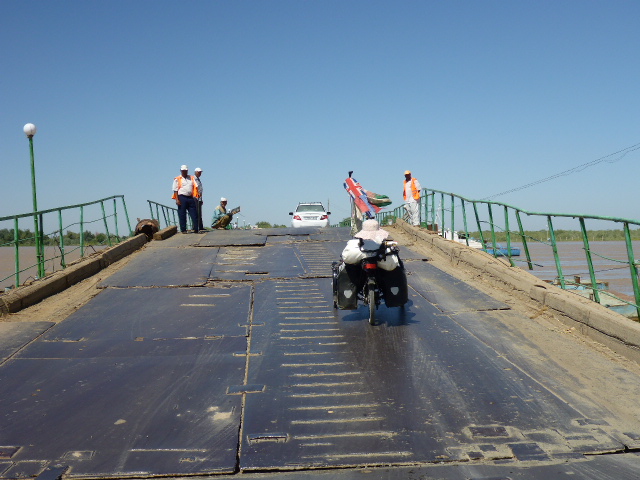
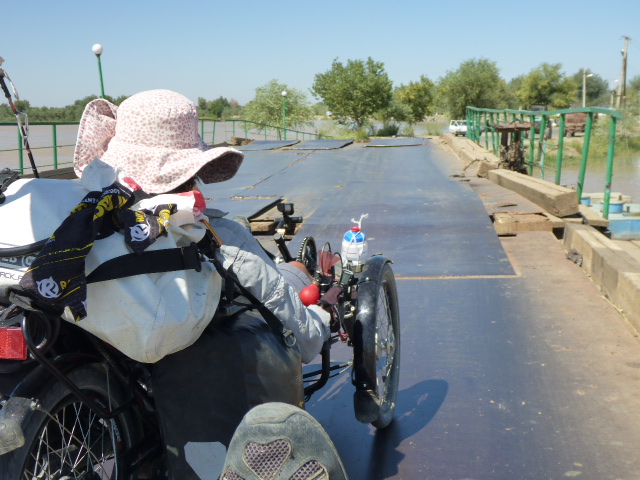
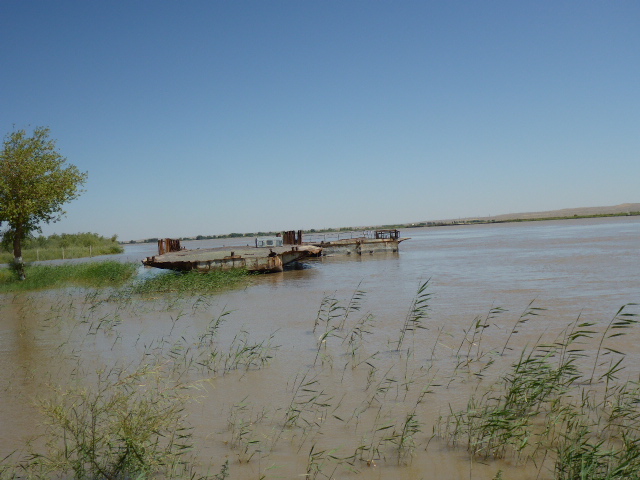
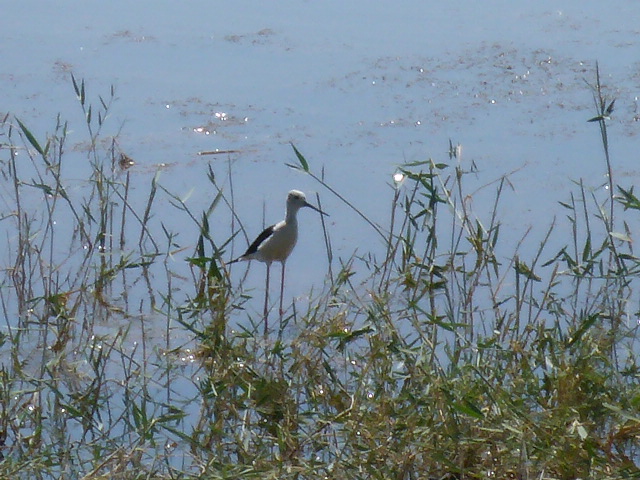
Then at Mangit we stop for lunch; samosas for me and Borak (meat dumplings in a broth) for Daz. And a pot of tea each. After lunch there’s still 40km to our destination but we’re blessed because there’s not a head wind, instead sometimes a tailwind and sometimes from the side. We’re stopped at a checkpoint for a passport check. The condition of this road is pretty good, only a couple of bad stretches and it’s far more interesting than yesterday’s ride with several villages en route and people busy working in the fields.
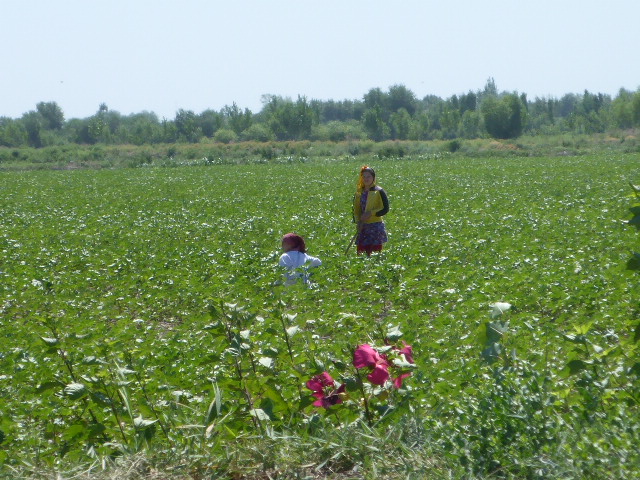
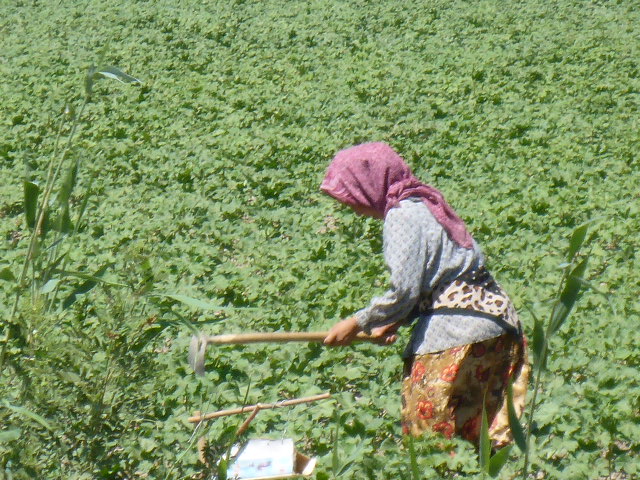
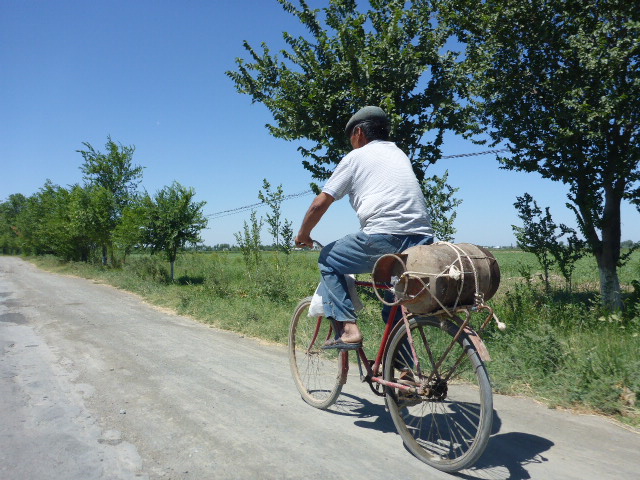
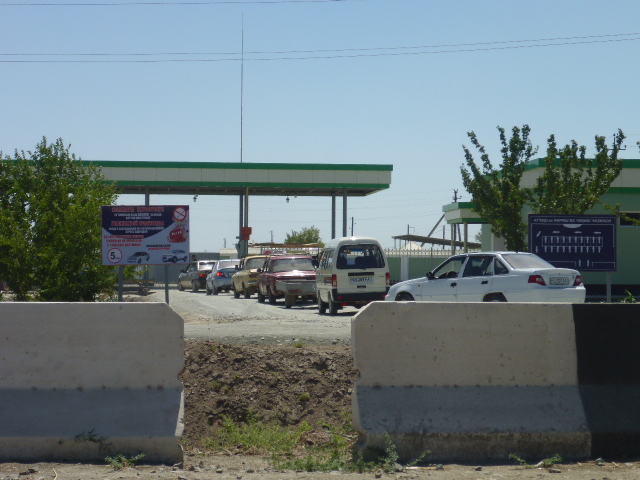
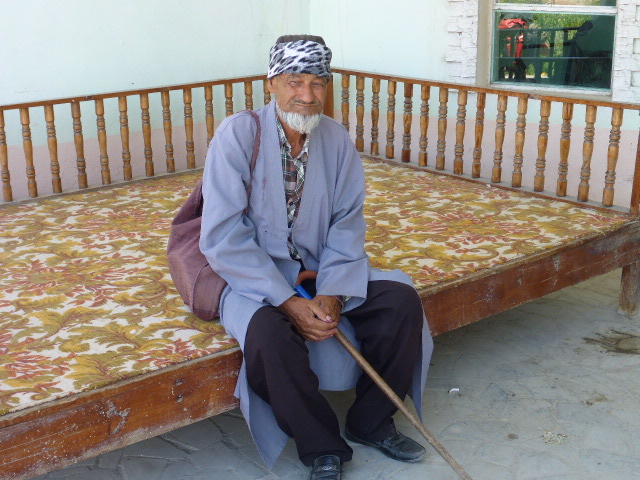
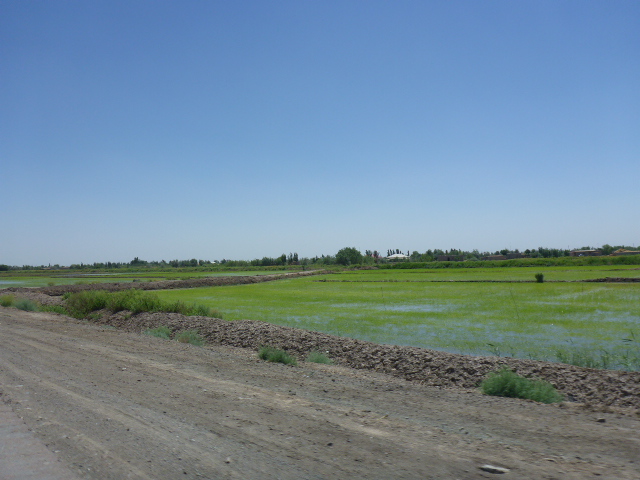
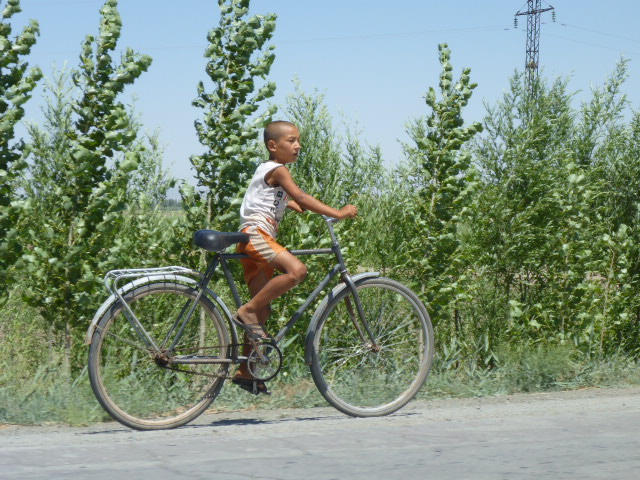
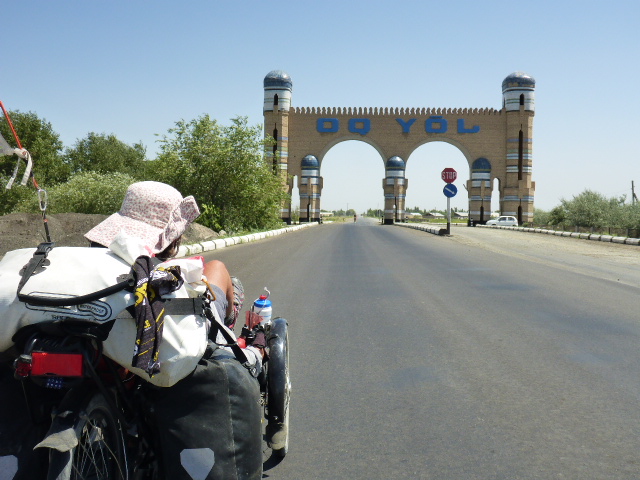
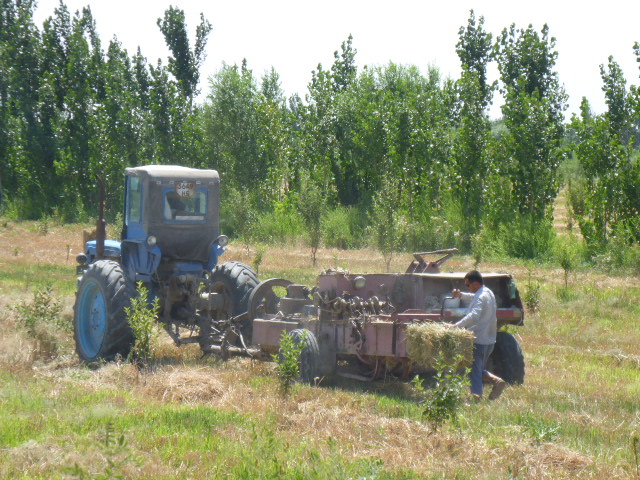
At Gulen we stop for our provisions; no milk. Oh dear no cups of tea (we have 2 at breakfast and often 2 in the evening) but also no porridge for breakfast (hurrah!). OK now we’re ready to set up camp but we can’t find a decent spot.
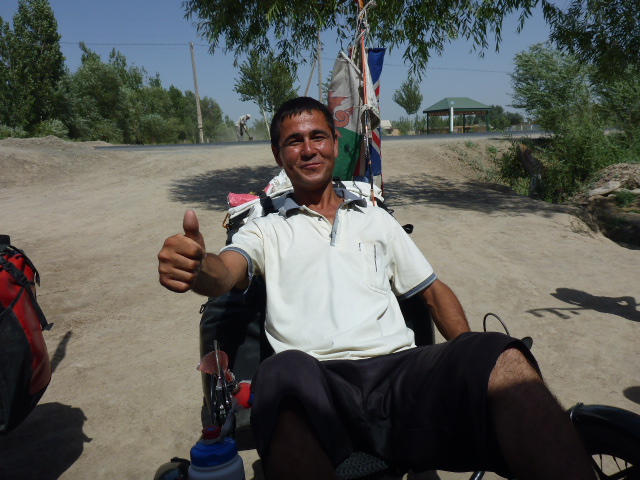
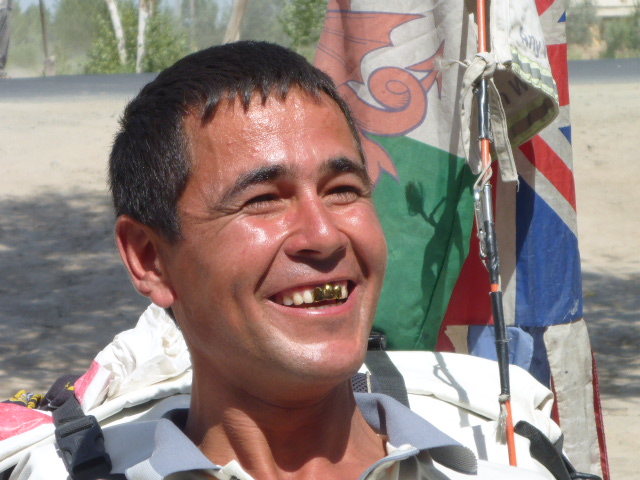
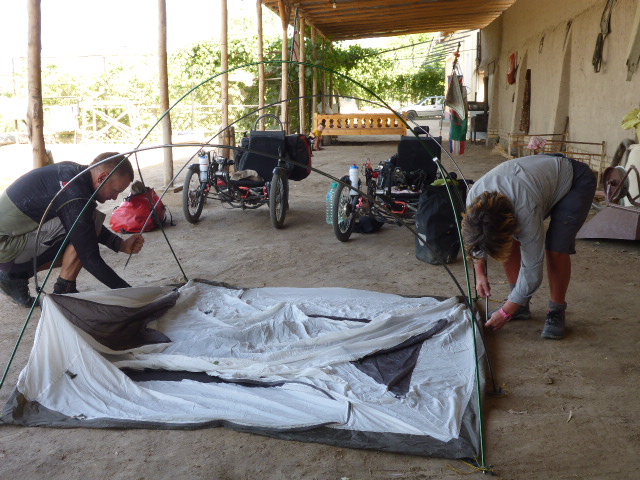
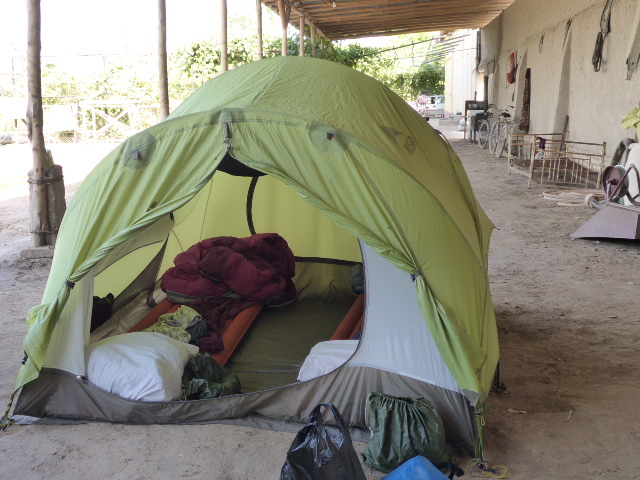
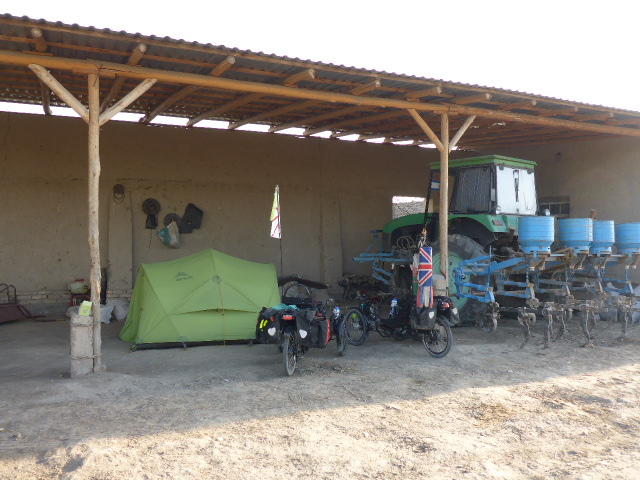
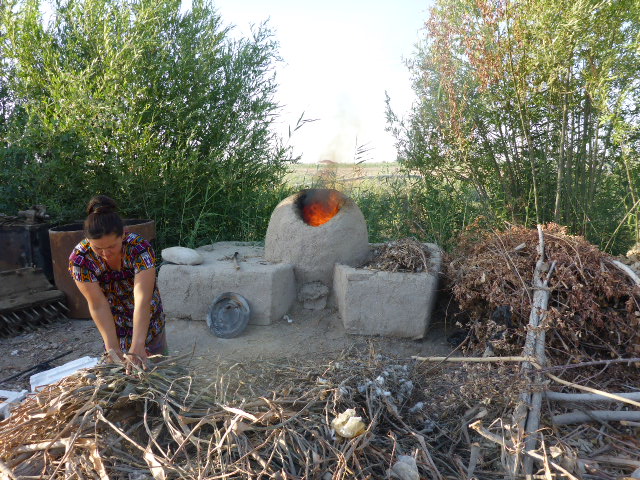
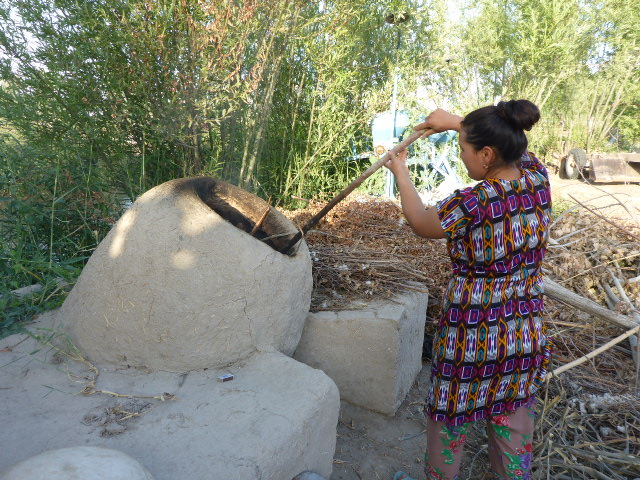
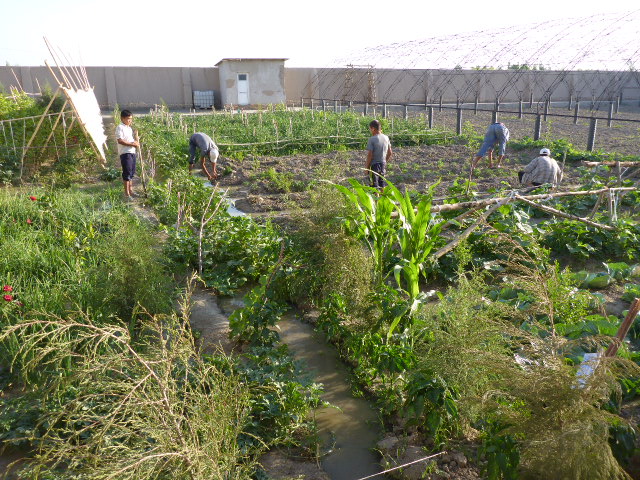
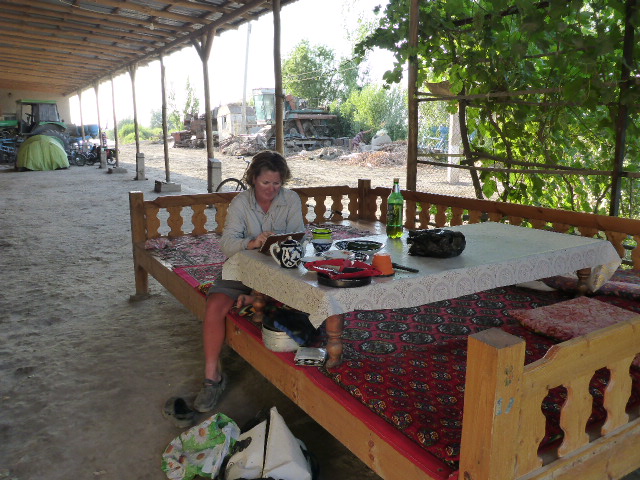
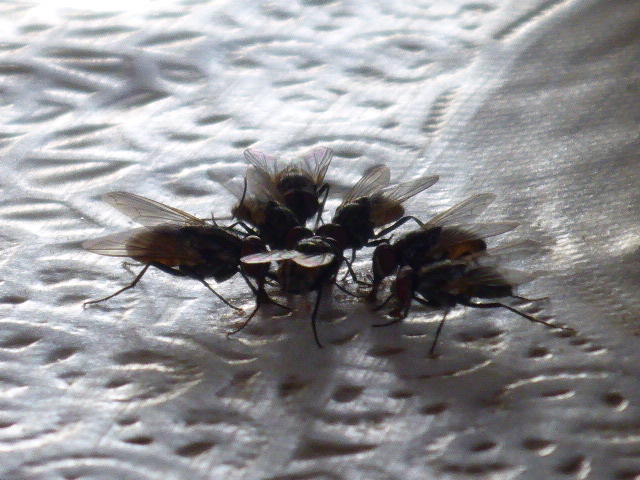
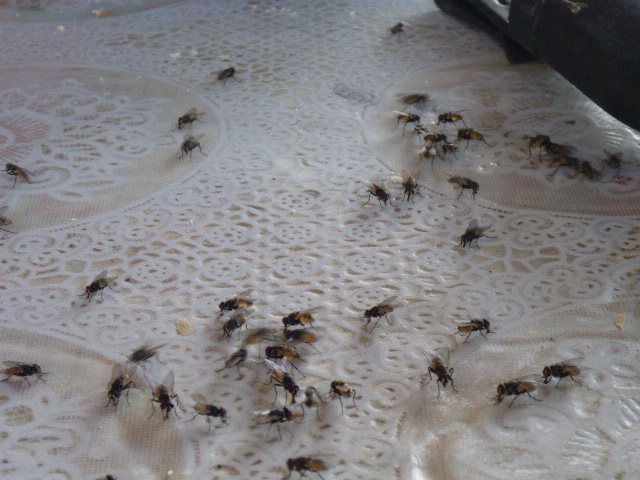
Just a few flies!
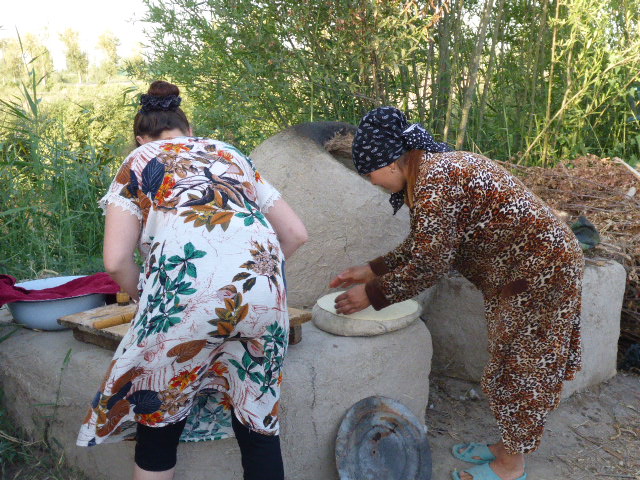
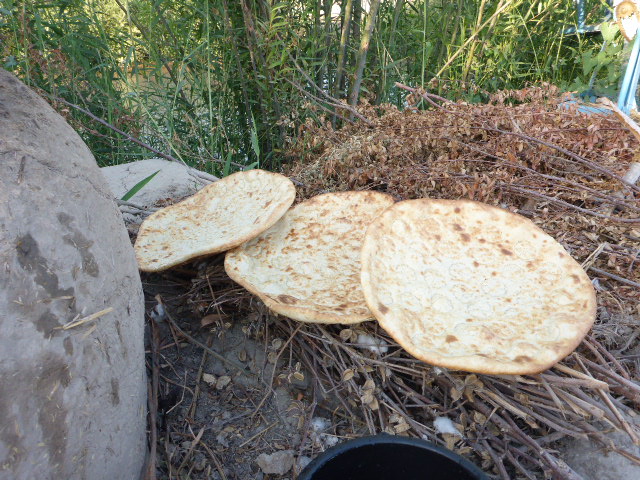
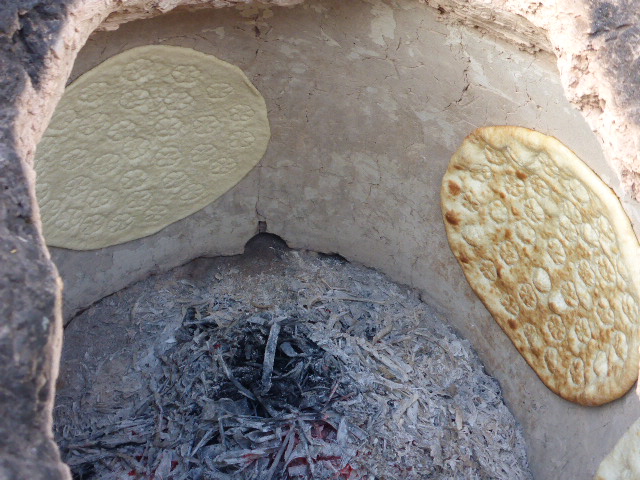
Baking flatbreads
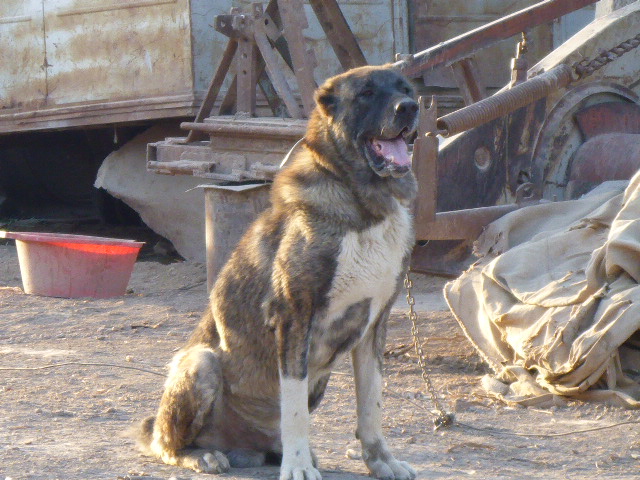
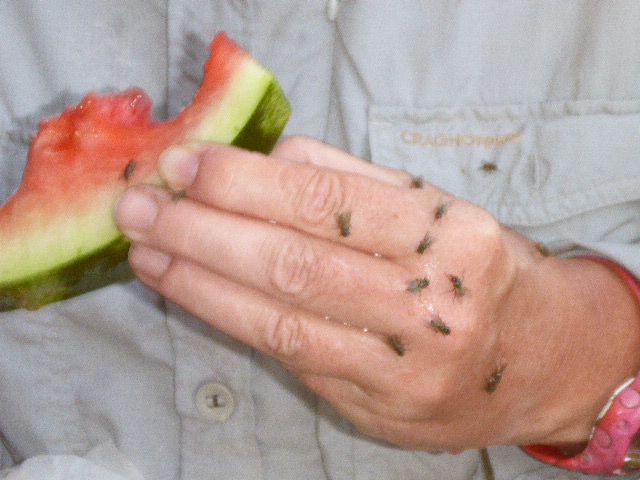
Finally someone takes pity on us and allows us to use his farmyard. The flies are horrendous but at least there’s a real toilet and a shaded area for our tent. And they let us use a seating area/table to prepare our dinner. They also bring çay, cucumber and a plate of melon and let us watch their bread baking.
Friday 23rd June – Gulen to Khiva
Distance: 56.60 km
Total Distance: 14220.77 km
Wow another night without much sleep. We seem to cope quite well cycling in the heat but unfortunately the uncomfortable, hot nights are taking their toll. We’re both into serious sleep deprivation especially Daz who can ratchet up a good 12 hours each night but since leaving Beyneu he’s had a fraction of that!
Scrambled eggs for breakfast and then back on the road. We soon see numerous flooded paddie fields with groups of women planting the young rice plants. I decide we should ‘assist’. Ha ha – I’m sure we’re more a hindrance but everyone is keen to help and take photos and are very excited by our presence .
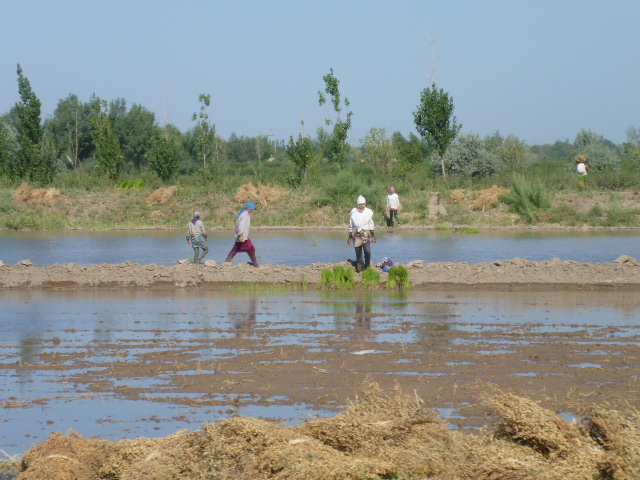
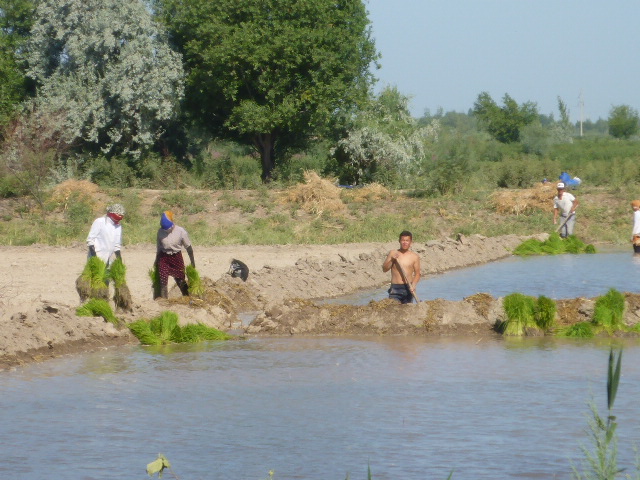
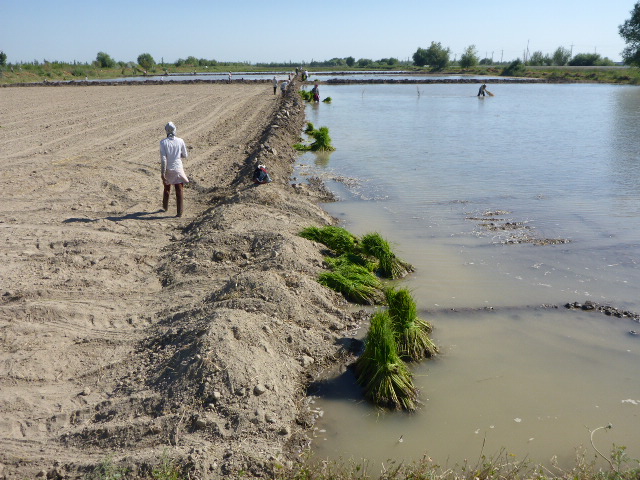
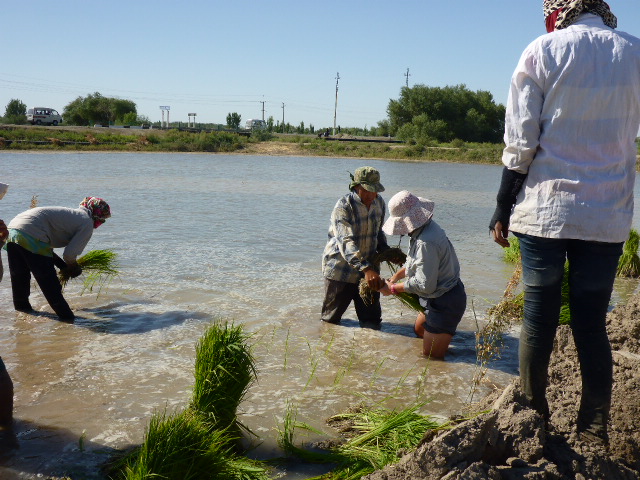
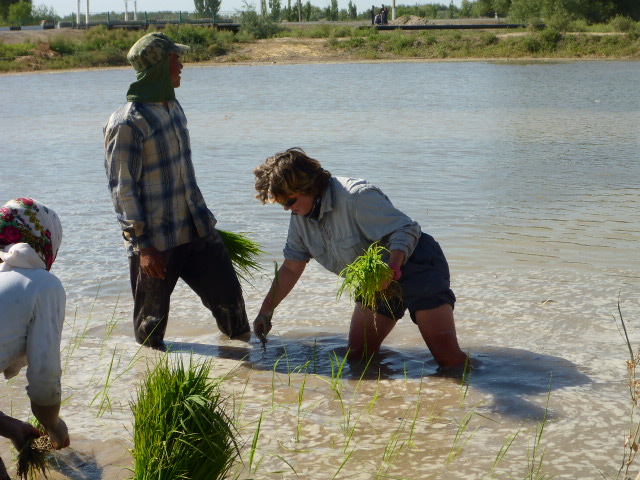
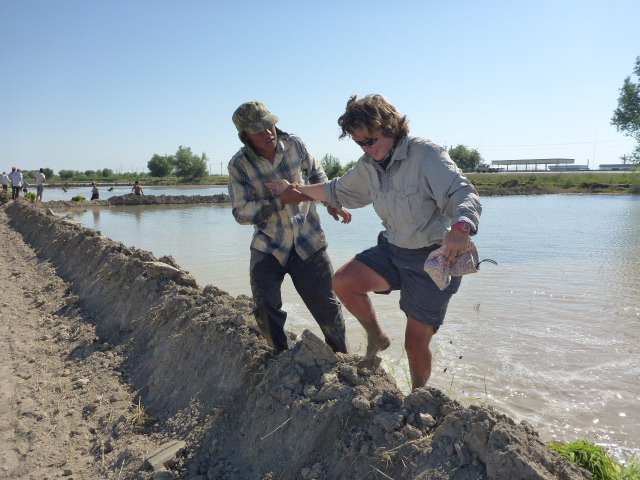
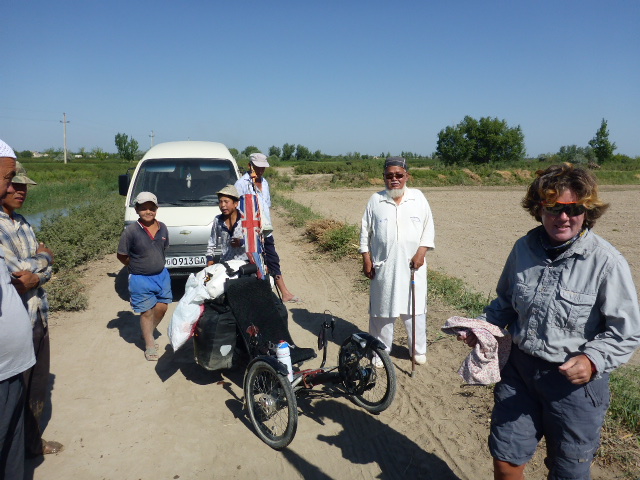
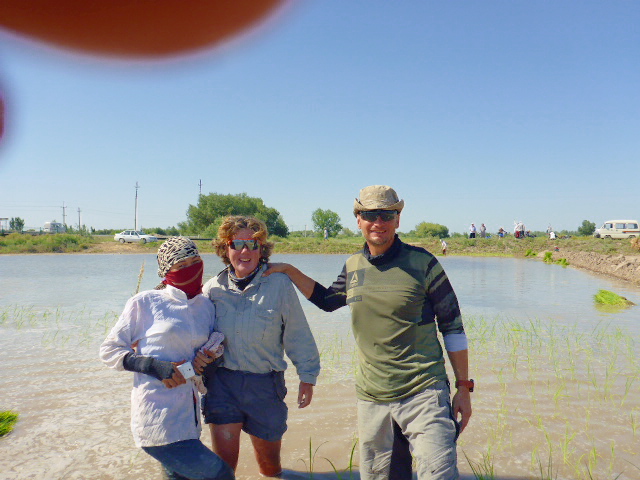
I struggle into the field, bunch of rice plants clutched in my sweaty mitt. OMG it’s so much deeper than I expected and I’m sinking in the thick mud. I plant my allocation but I’m a clumsy, stumbling buffoon compared to the women who seem quick and agile even in the thick mud. I’m offered more rice plants but we politely decline and after a photo session head on. The road is terrible for long stretches; huge potholes everywhere, impossible to weave around with 3 wheels. Crossing a river we see 2 men fishing but there’s 8 rods out. We stop to investigate but their catch is secured in a keep net down in the river. We watch for awhile and I’m rewarded by a sighting of 2 kingfishers flying over the water.
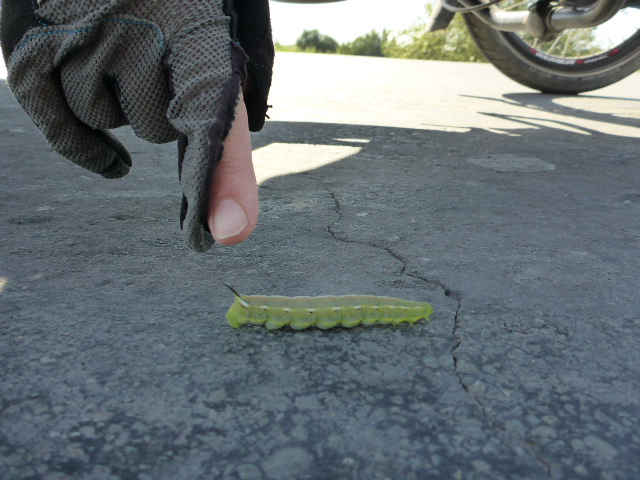
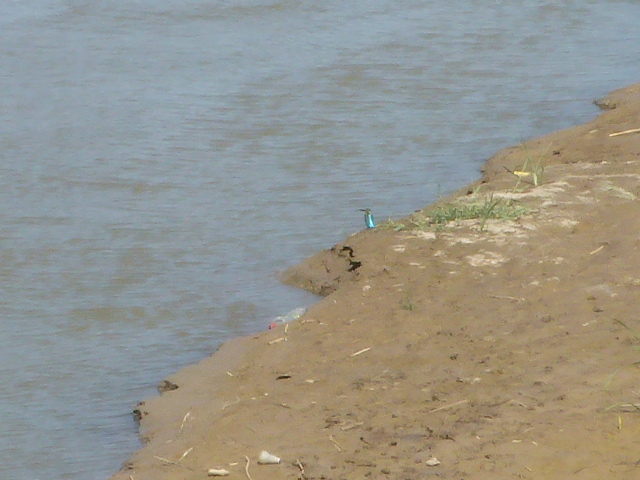
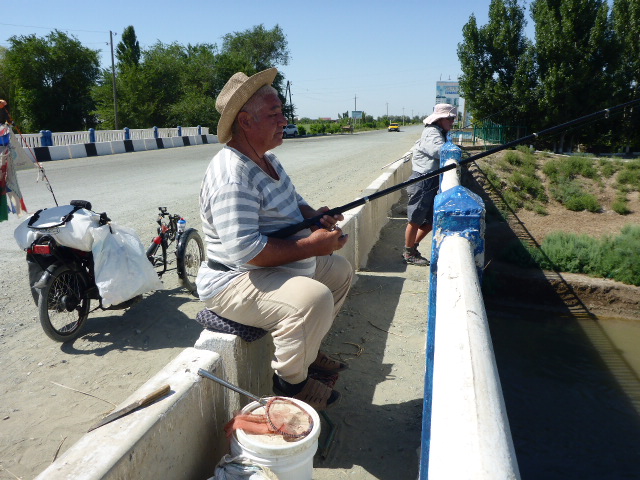
We push on and the rest of the day is really a teeth gritting experience. We’re tired and we just want sleep. Our tendency is to dawdle but today, as yesterday, I try and push the pace a little. There’s no point being out in this heat longer than necessary. In Uzbekistan people want to speak to us and photograph our trikes but they do it whilst driving alongside us. A little dangerous perhaps but at least we don’t need to keep stopping. We stop at a shop for a cold drink and the lady brings us chairs (the bench we’re on is dirty apparently) and glasses. At our next stop the lady proprietor is a retired English teacher and she’s very happy to meet us. We have more drinks but she doesn’t allow us to pay. This is definitely a farming area. Rice fields being planted; wheat being harvested; bailing with baling machines that should be in a museum and trailers of straw bales.
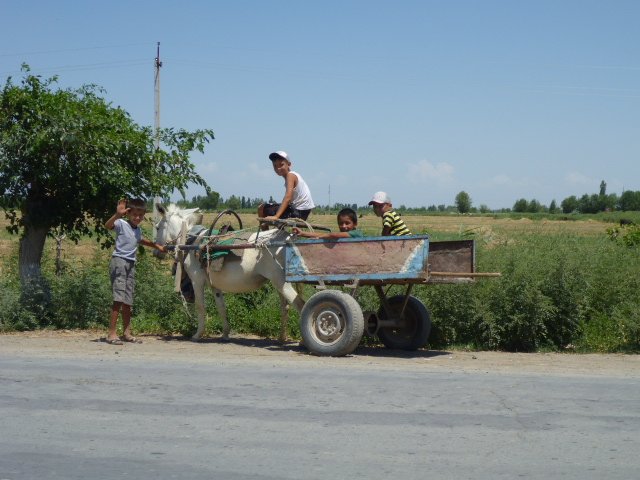
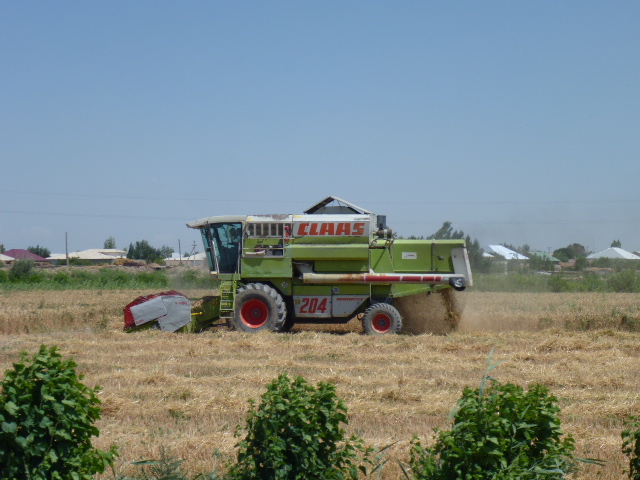
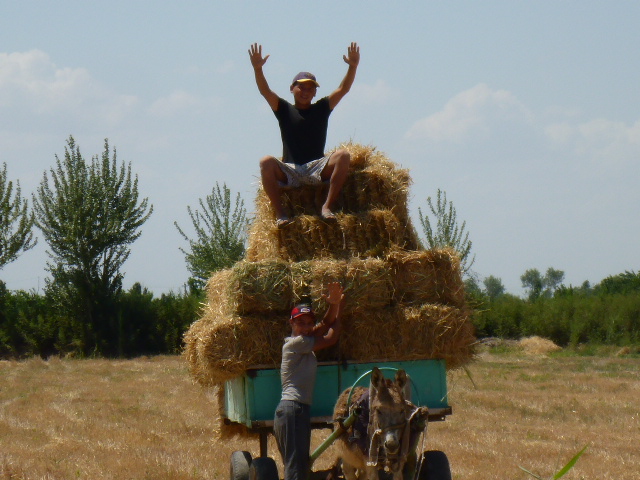
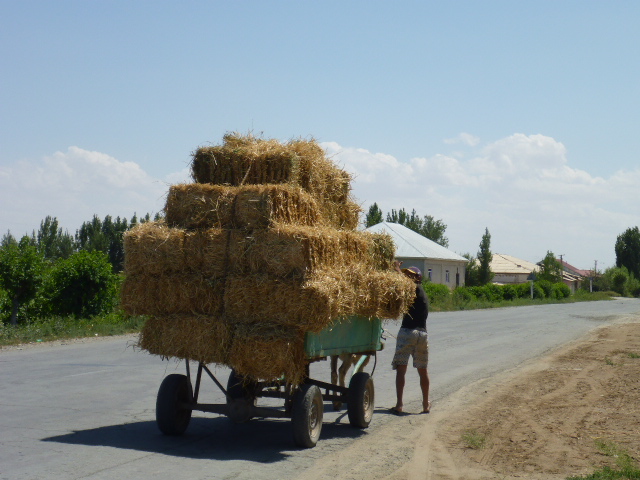
The donkey and cart are numerous, their only method of transport. Finally we arrive in Khiva.
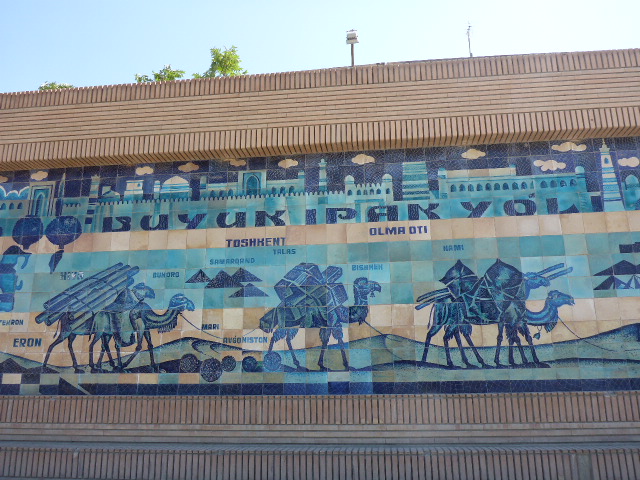
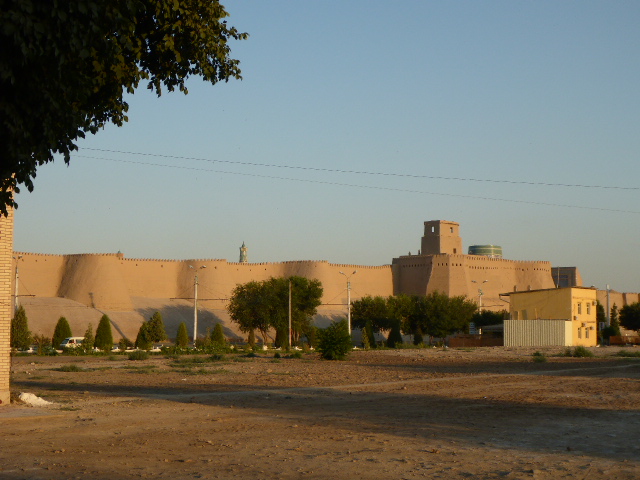
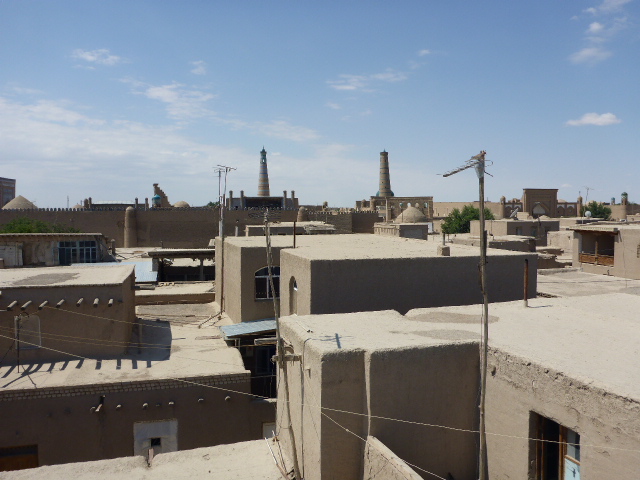
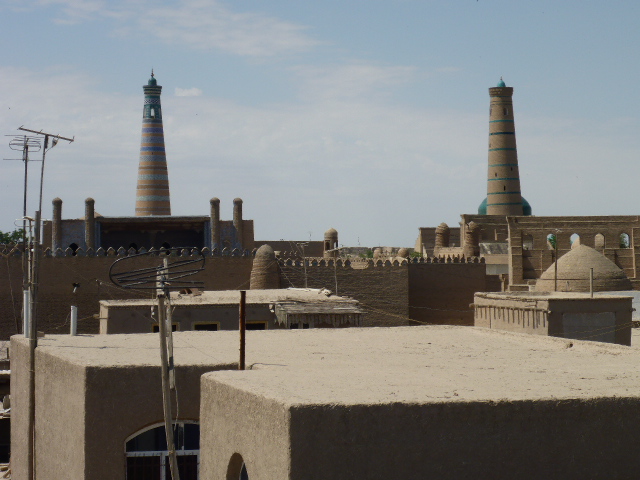
Saturday 24th June
Khiva
Distance: 0 km
Total Distance: 14220.77 km
Roaming through the centuries in Khiva, Uzbekistan. Hazel Plush – travel writer – the Guardian.
Halfway up Juma minaret, I knew I’d made a grave mistake. It had seemed such a good idea to climb the spire – the highest point in Khiva – to get a wide-angle view of the city. What better way to take in the star of the Silk Road, Uzbekistan’s Unesco-listed treasure, than from the tower of its 10th-century mosque?
But I was no match for the spiral staircase. It corkscrewed up in the dark, its steps no deeper than a toehold and little wider than my aching thighs. Outside, Khiva sizzled in the midday sun, as magnificent as ever in its two millennia of history – but alone inside the shaft of its loftiest point, I was having a meltdown. I scrambled up, grabbing blindly at the wooden stairs with sweaty hands, humming a wild tune – trying, and failing, to quell the rise of claustrophobia. Eventually, the staircase opened up into a pool of light: at last! But after the panic of the climb, the summit was overwhelming, a panorama too wide, too bright and far too high to take in.
I should have marvelled at the jade dome of the mausoleum below, a voluptuous, vibrant jewel among the mud burial mounds. I should have spotted the bands of turquoise and gold tilework on nearby Kalta Minar minaret, the patterns sparkling under the cloudless sky. But instead, on the viewing platform no bigger than a dining table for four, I sweated and swore – and beat a hasty, shaky retreat.
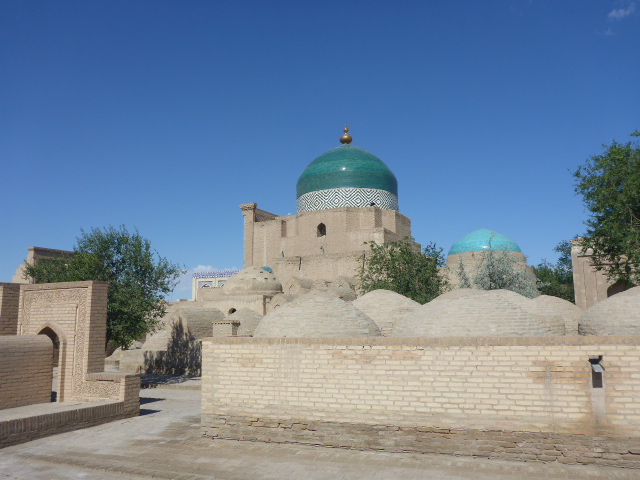
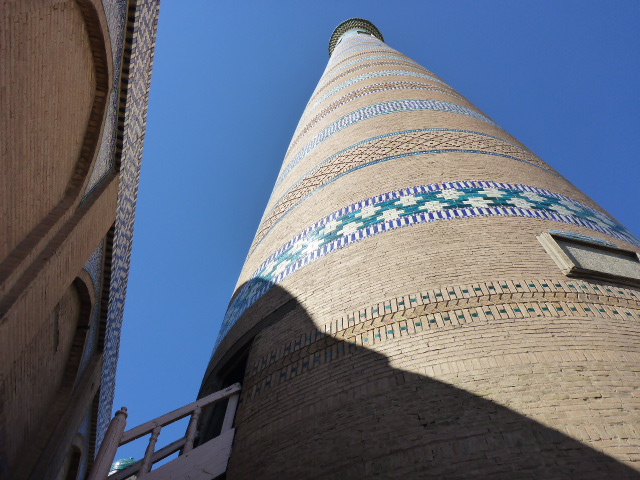
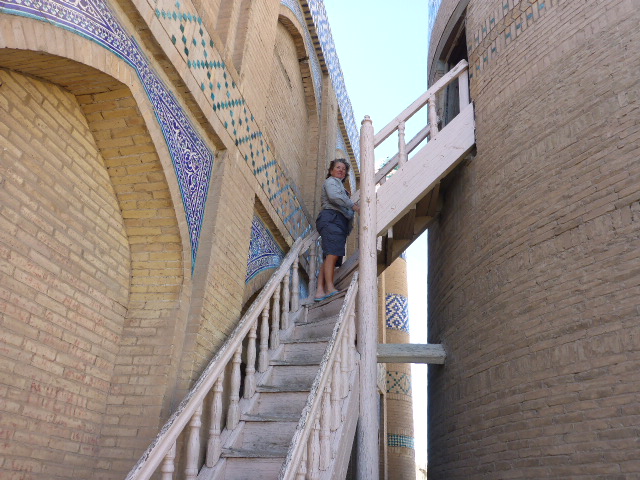
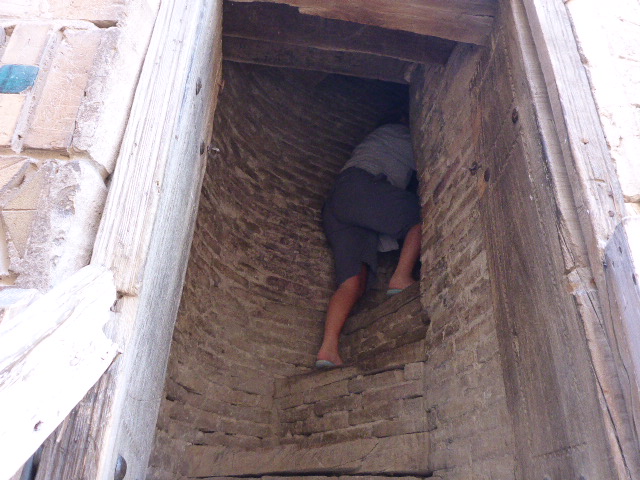
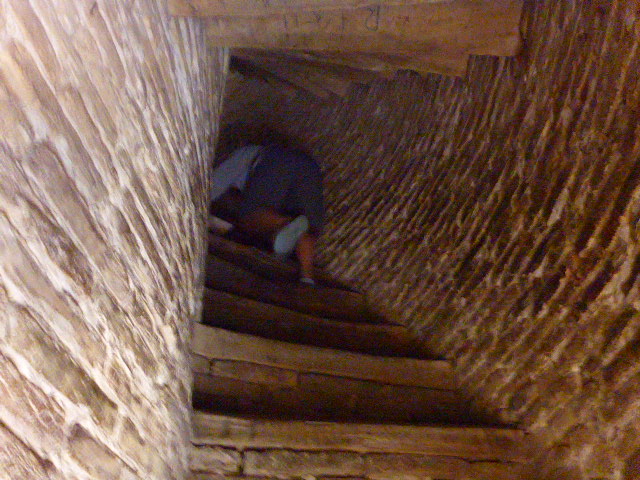
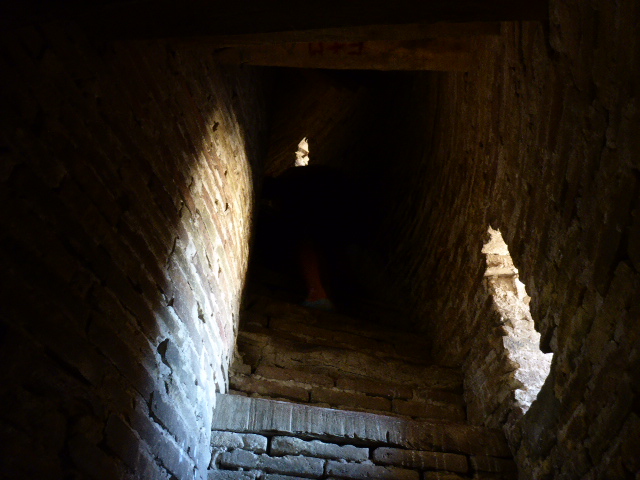
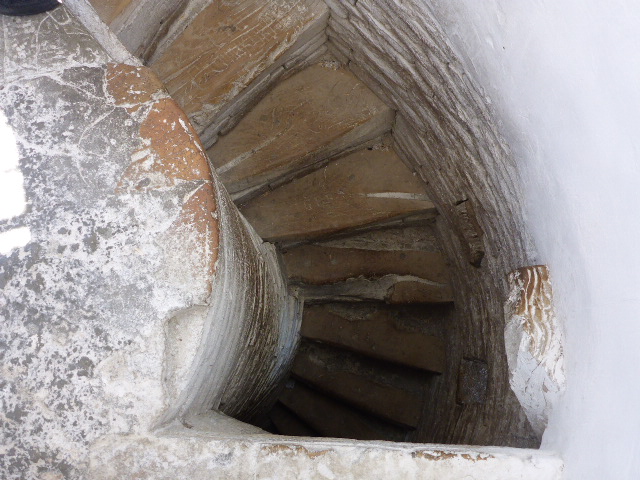
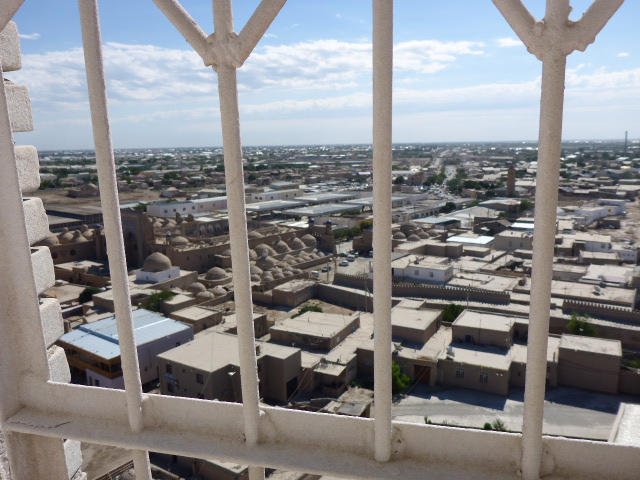
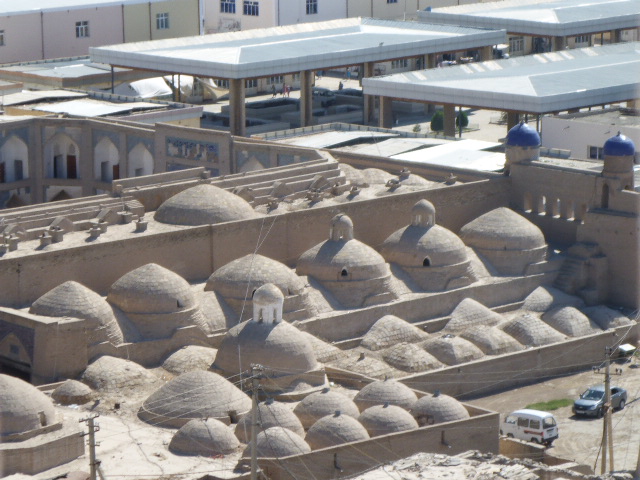
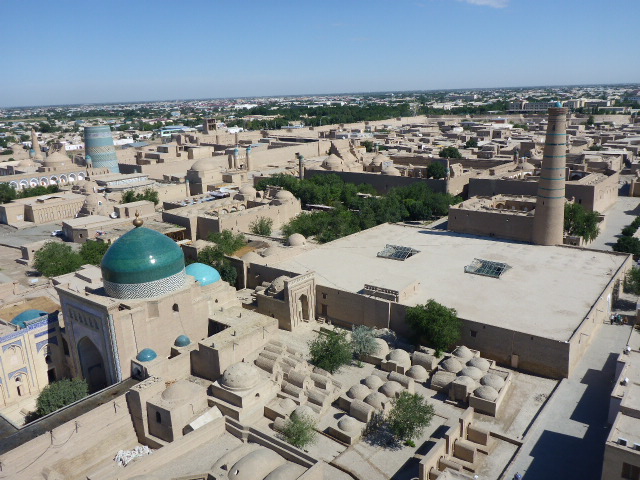
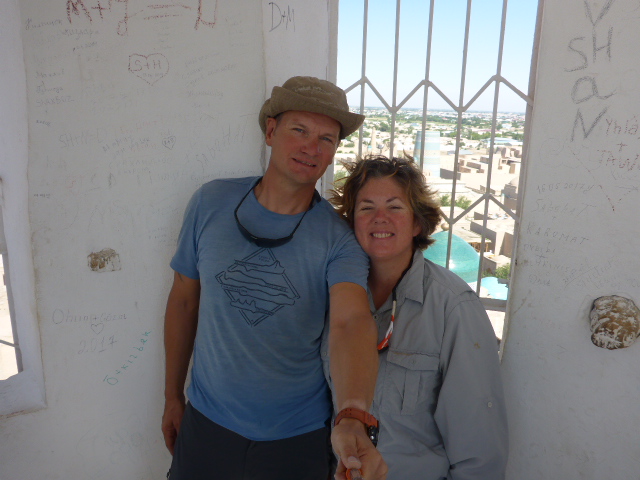
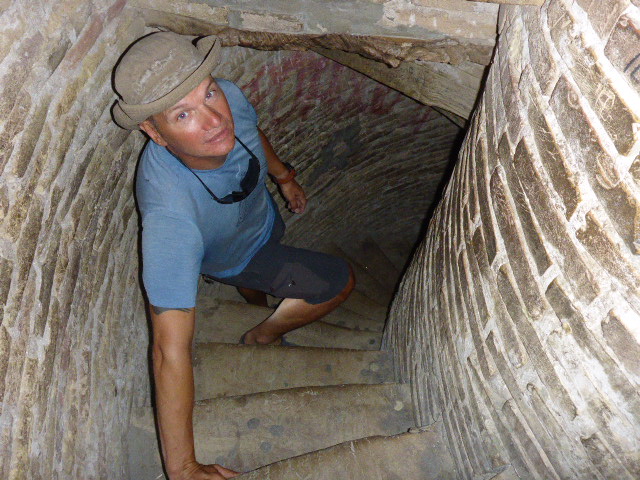
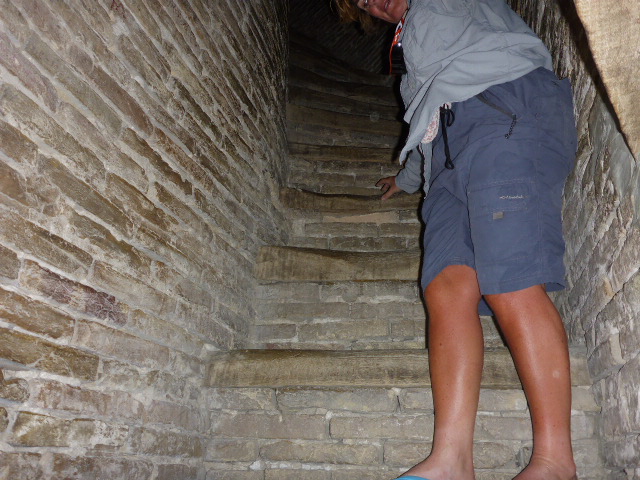
It wasn’t an auspicious start. I had come to wander around the city; to soak up its sights on an otherwise whistlestop tour of Uzbekistan. But now, with trembling legs, I could only slump in the shade of a mulberry tree.
At the minaret’s base, a group of Uzbek tourists bartered lyrically with a leathery-faced hawker; a carved wooden Quran stand was their quarry. It looked nice, not like typical souvenir tat. He shuffled up and flashed me a wonky grin. “Tablecloth? Carpets?” I shook my head. Maybe later – if my knees would allow. Shopping isn’t just a sideshow in Khiva: it forms its very foundations. The city was a vital Silk Road stop-off where the sale of camels, carpets, coffee and concubines shaped capitalism as we know it. As the famous trade route between China and Europe flourished, Uzbekistan became hot property: between 2BC and the 1300s it was seized by Arab invaders, captured by Mongolian warlord Genghis Khan, then finally overthrown by Amir Timur – whose empire stretched from Iraq to India.
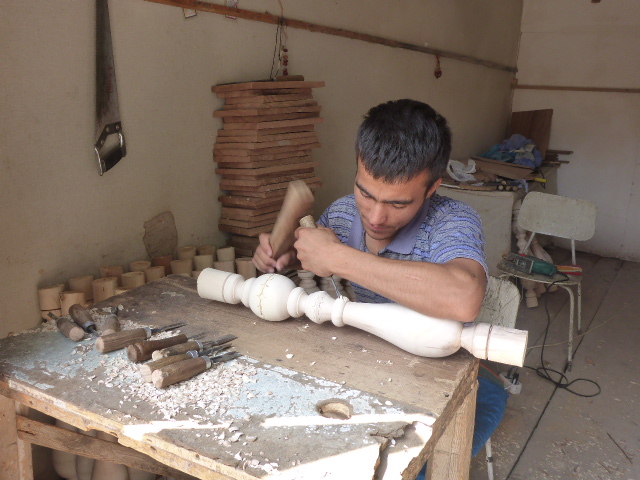
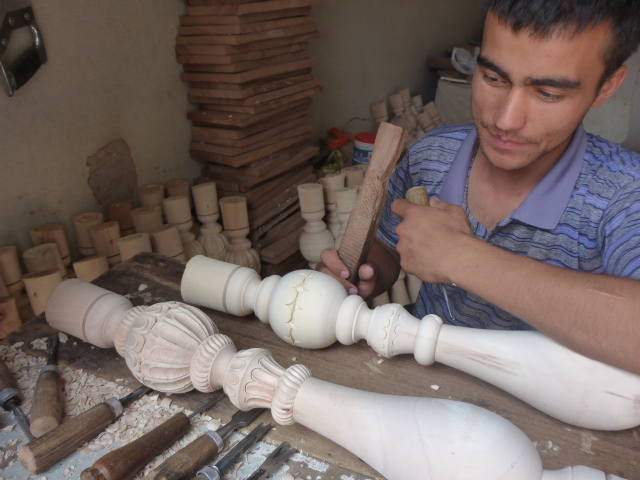
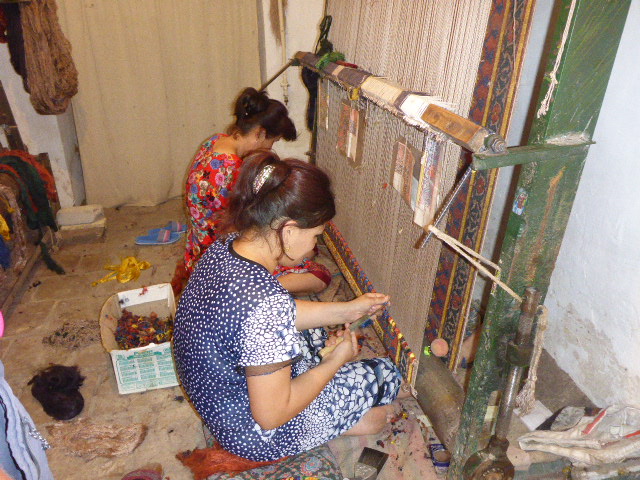
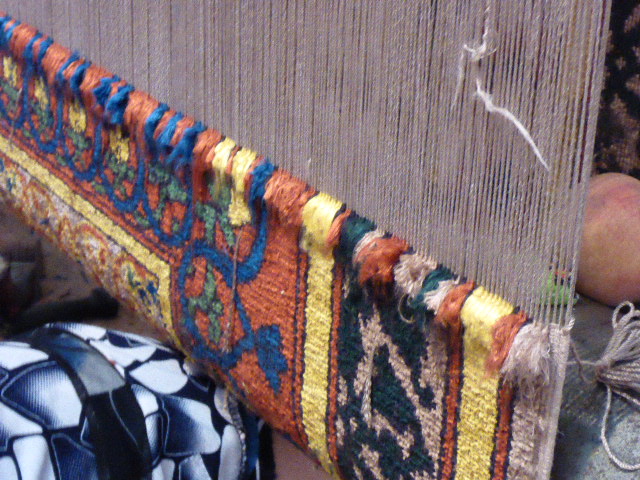
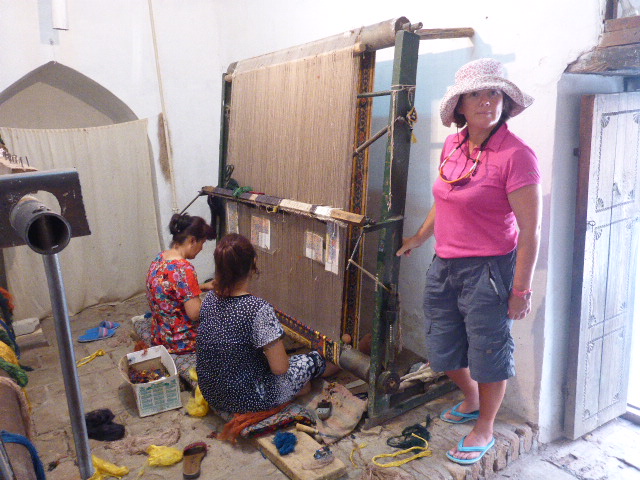
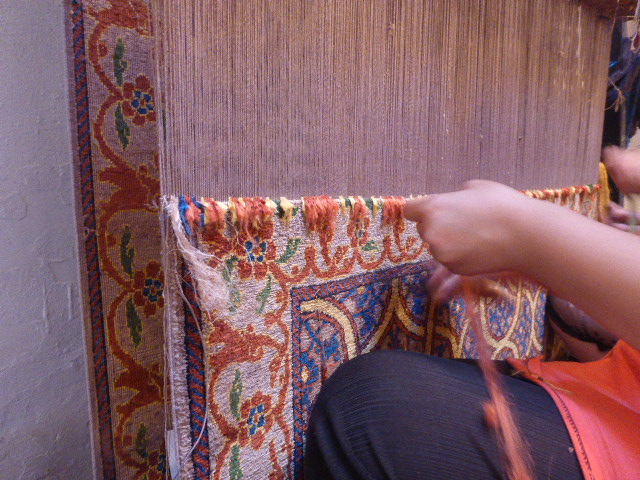
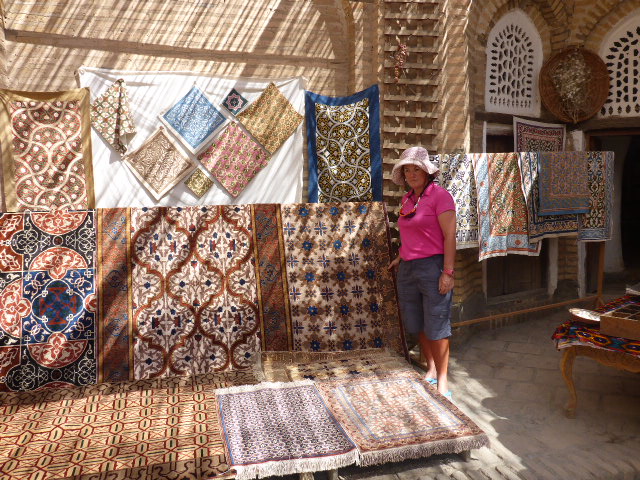
“Khiva has been destroyed and rebuilt seven times,” my guide Inez explained later over bowls of steaming kuk-choy – green tea. We were reclining in Mirzaboshi teahouse, in typical Uzbek style, on a kind of table-bed – propped up on piles of colourful cushions with our teapot perched on a platform at the centre. Welcome respite after the morning’s misadventures.
“Now, the city is protected. 3,000 people live within its walls, but you can’t buy property here – land has to be passed down through families.” Inez, without such an ancestral claim, must live outside the city walls. Does she mind? “No – it’s better. I have my garden. I can decorate. Here, you need permission from Unesco.”
For all its might, Khiva is actually quite a small city, and easily walkable (leg injuries not withstanding) – but its centre is a warren. Inez and I ambled through the narrow streets under the shade of umbrellas, pausing in dusty entranceways to admire the smooth, swirling patterns etched into wooden doors.
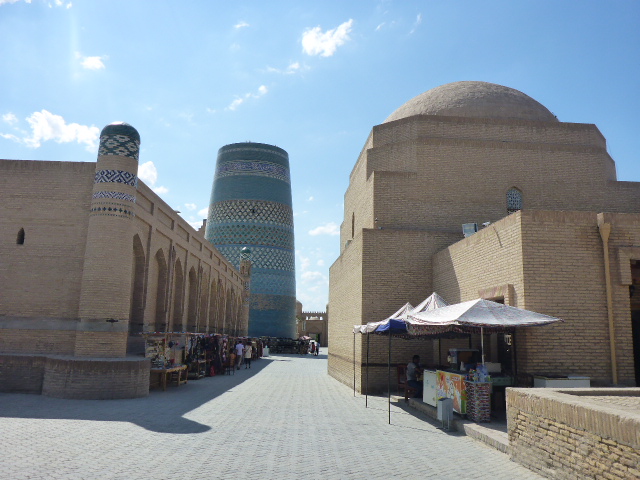
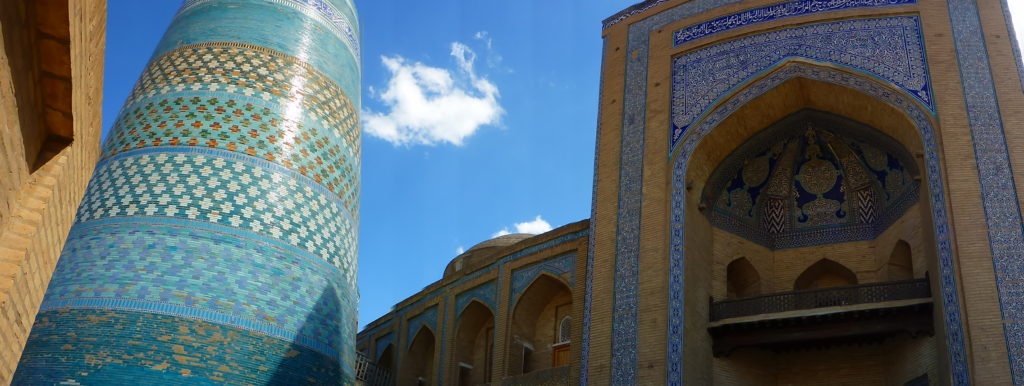

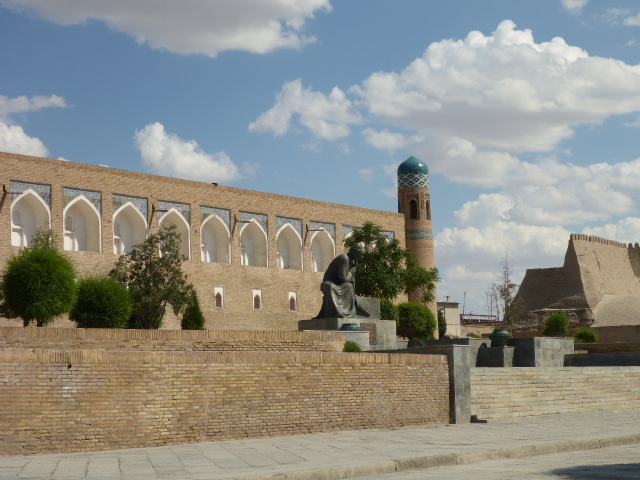
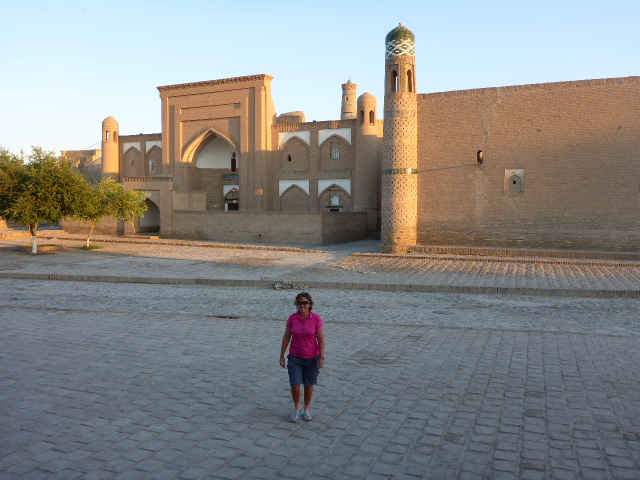
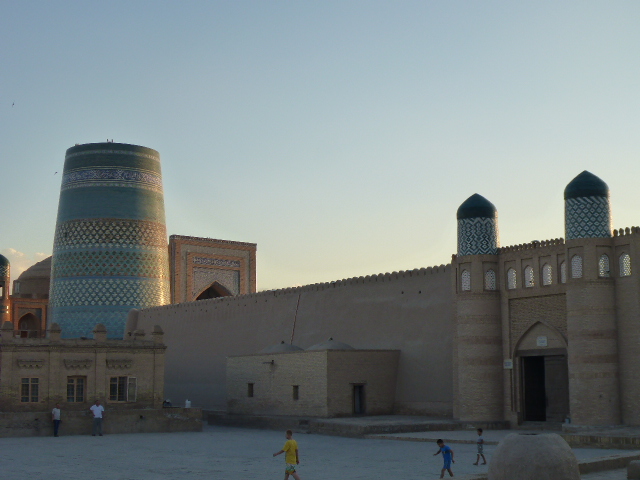
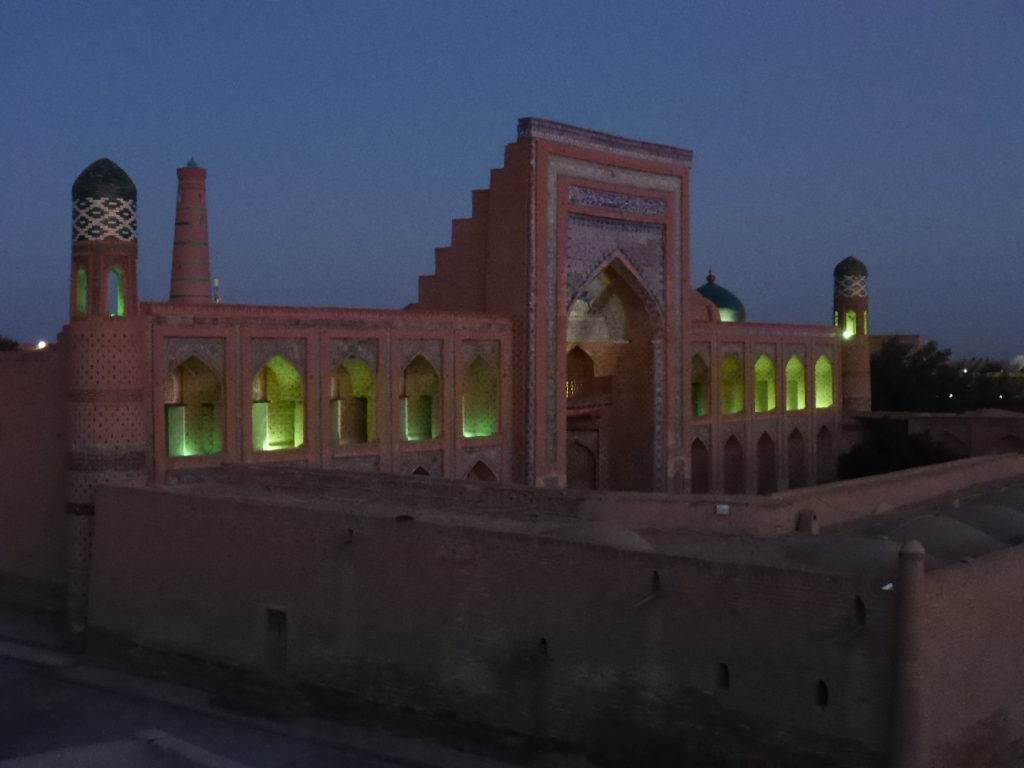
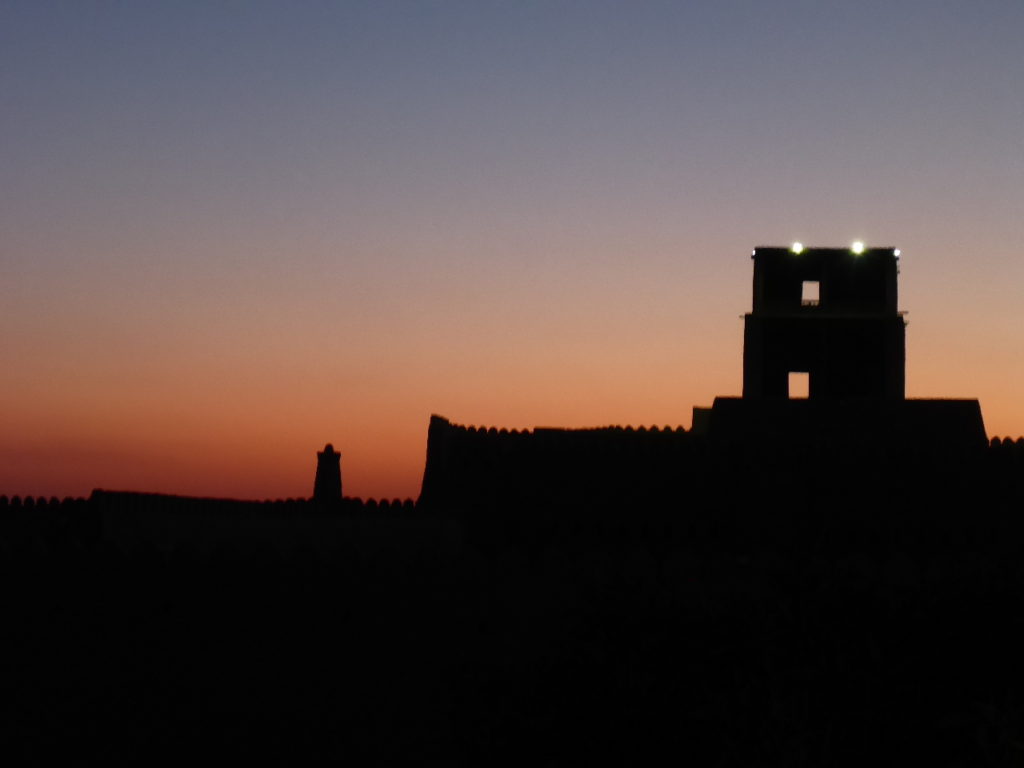
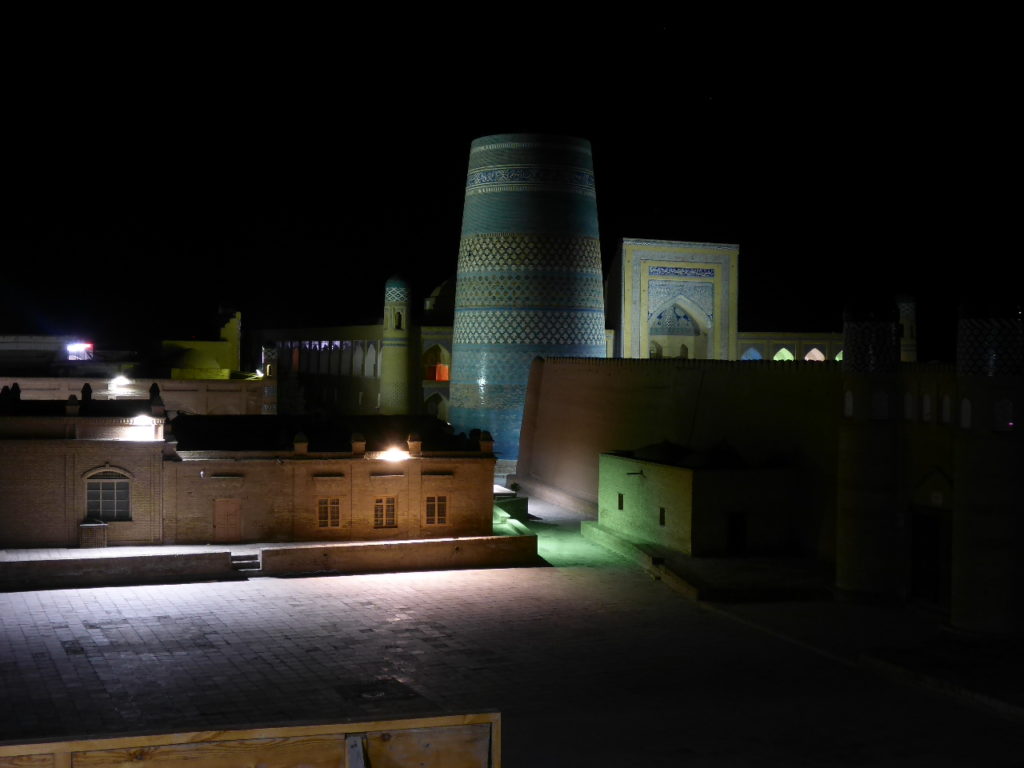
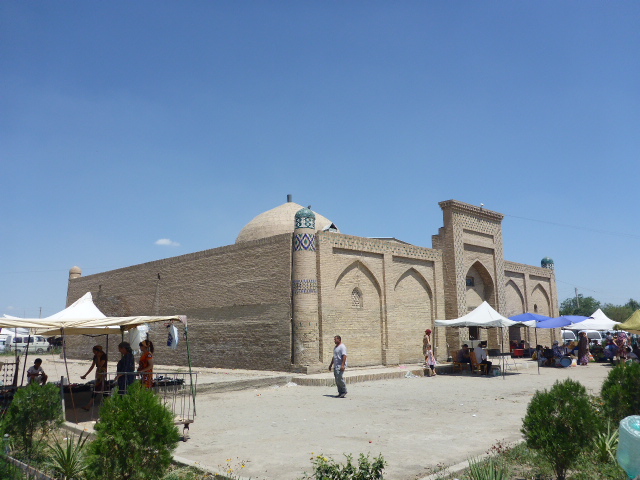
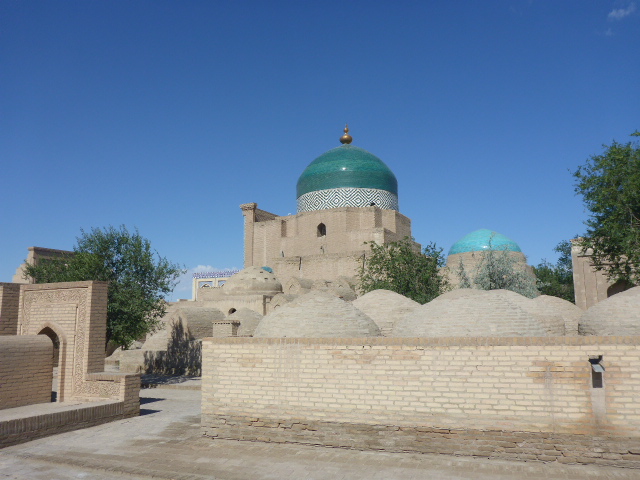
The entire city has a muted colour palette, but what it lacks in diversity it compensates for wildly with vibrancy and depth. Rich navy, bruised indigo, and the kind of turquoise that’s usually reserved for swimming pools and Caribbean coves – those are the blues that sing out from almost every surface, thanks to ceramic tiles embedded in the buildings’ outer walls like jewels. It’s a sumptuous foil for the unwavering ochre of mud bricks.
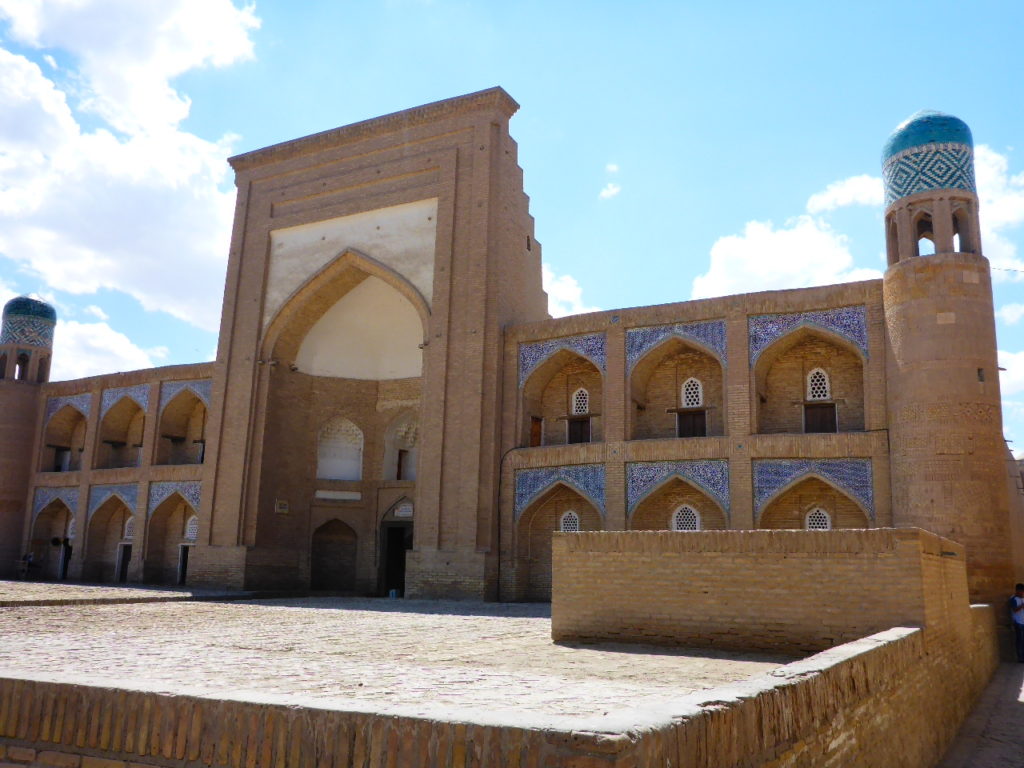
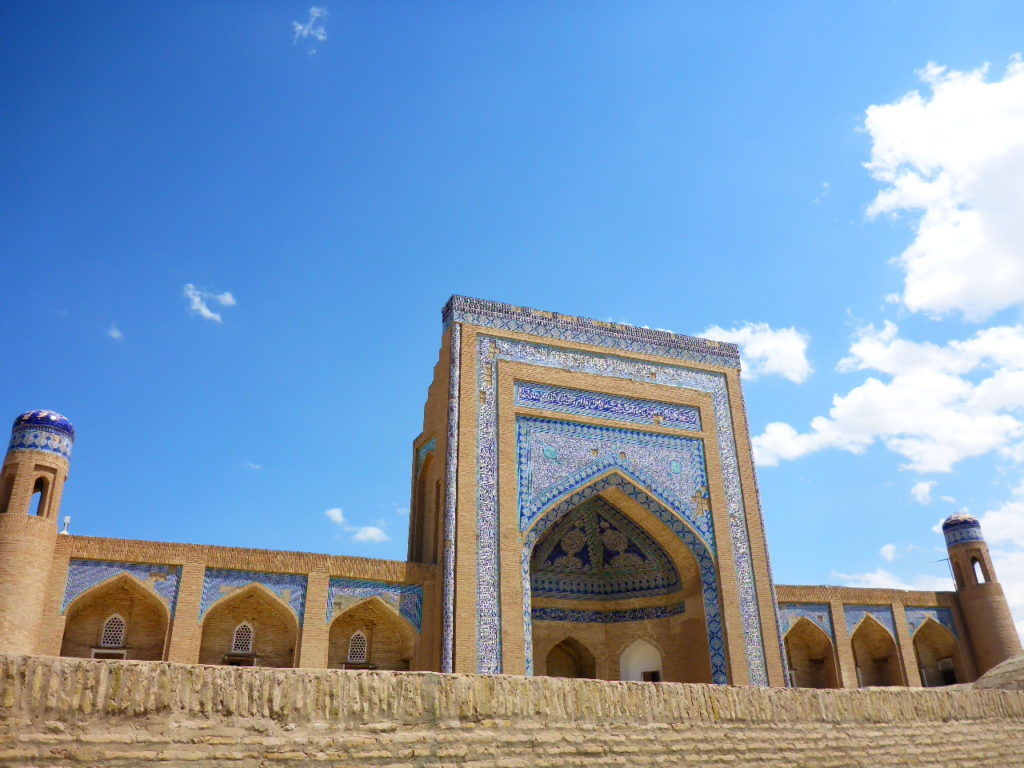
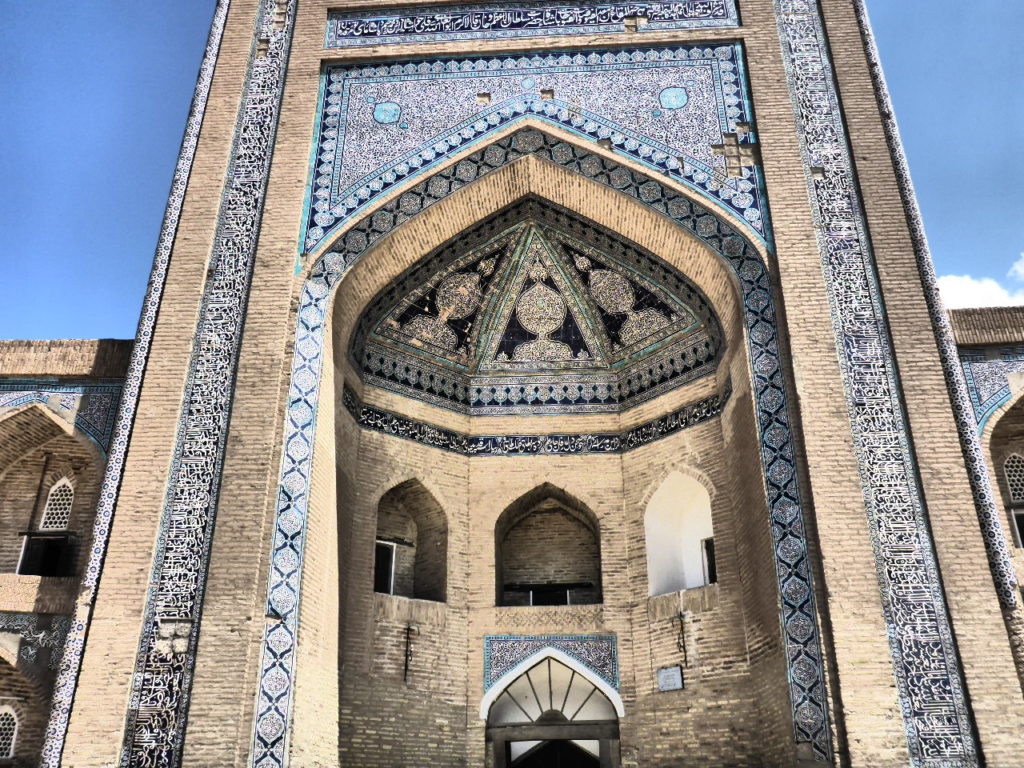
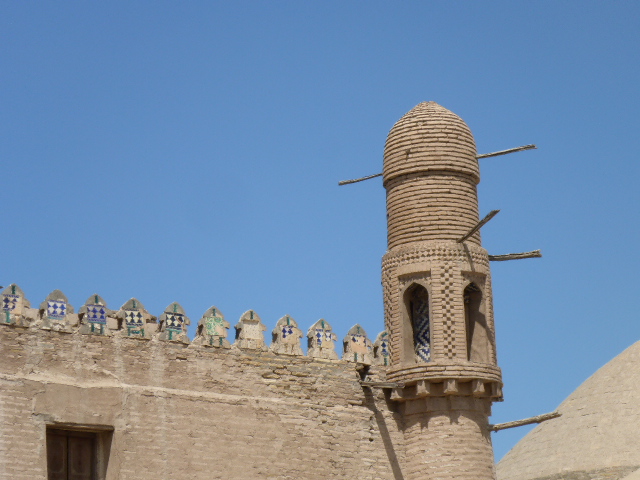
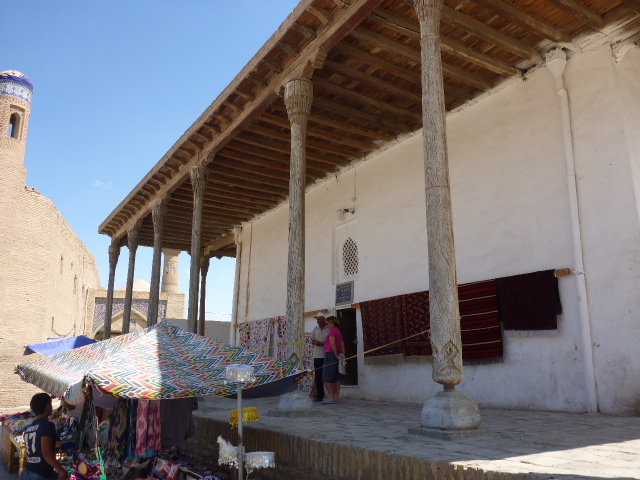
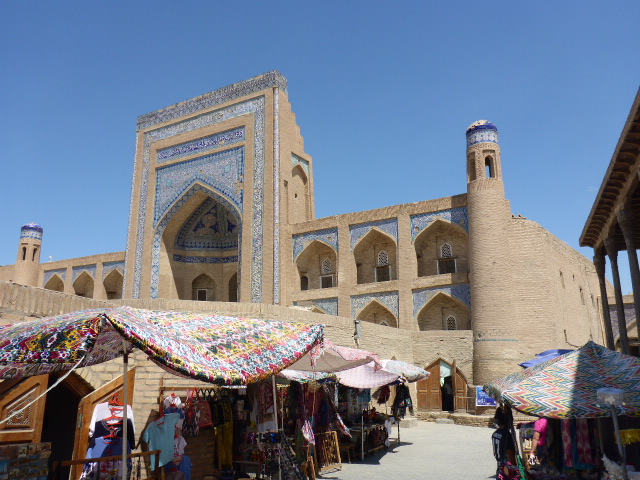
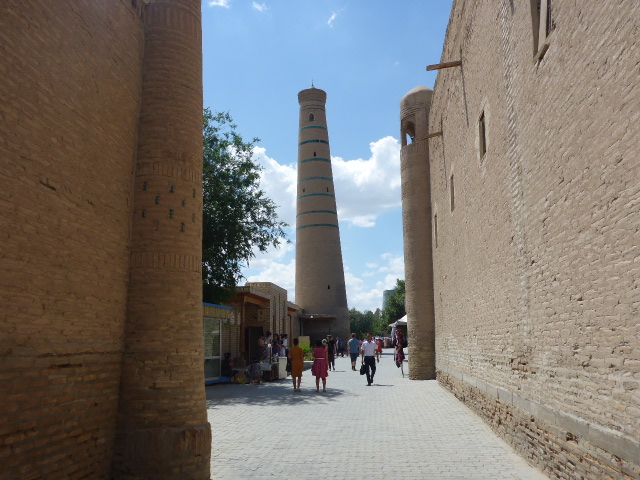
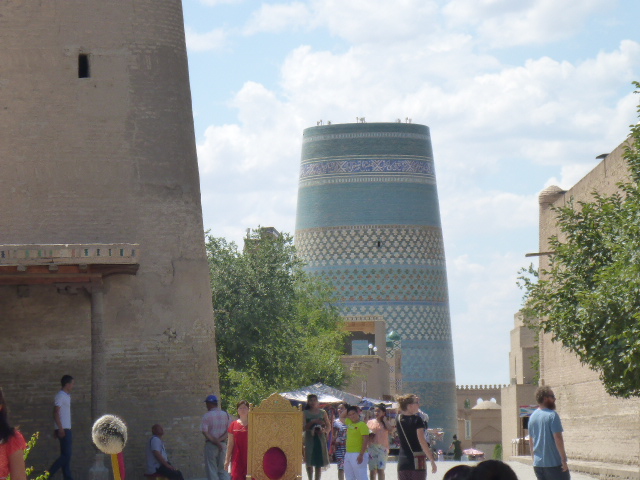
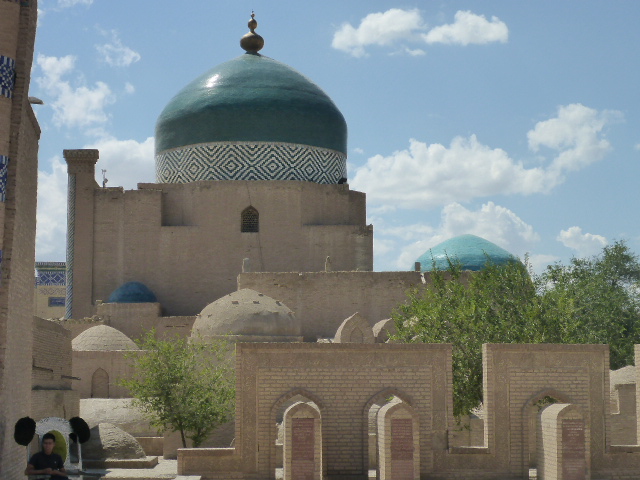
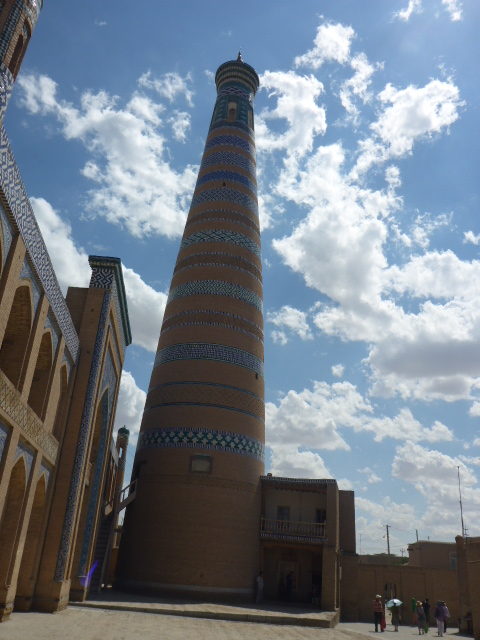

Khiva’s local visitors far outnumber its western ones – and the crowds from Uzbekistan and neighbouring ’Stans were a jolly, high-spirited bunch. “Urushmoq!” they cried as they clashed plastic souvenir swords, reenacting the battles of their forefathers. “War!”
In the arched entrance of Pahlavan Mahmud Mausoleum, I encountered my first Uzbek bride and groom, sweating in a tuxedo and full-blown white meringue dress – train, tiara and all. “They all come here for wedding photos,” said Inez, with a bemused grin. For her own wedding, she’d run off to the mountains for a quiet ceremony – no glossy photocalls, no fuss, and no big white dress.
The older ladies sported rows of gold teeth: ‘It’s a savings plan for the future,’ said Inez, flashing three of her own golden dentures
With two photographers and a gaggle of relatives in tow, the couple moved through the open-air mausoleum, pausing and posing demurely. A loving kiss beneath a mosaic archway; a shy cuddle in the flowerbed. I wondered what Pahlavan Mahmud – the 13th-century wrestler, poet and philanthropist for whom this palatial catacomb was built – would make of it all.
In the shade of a wooden portico, they drew sacred water from a tiny well. “It’s horribly salty,” chuckled Inez as they clinked cloudy wine glasses and swigged it down with a grimace.
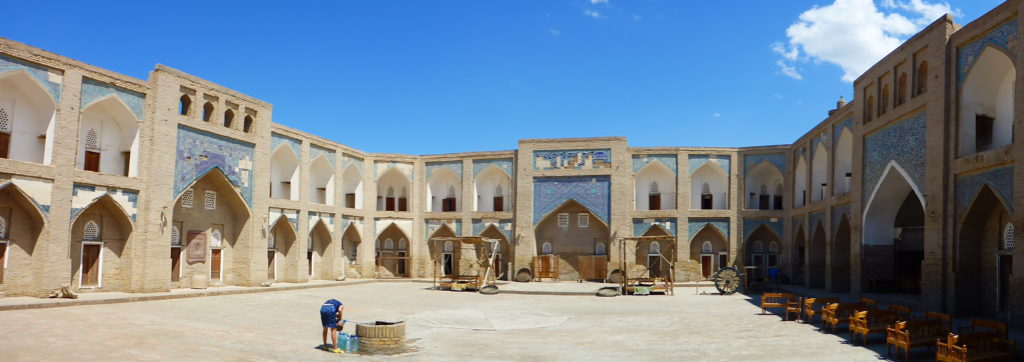
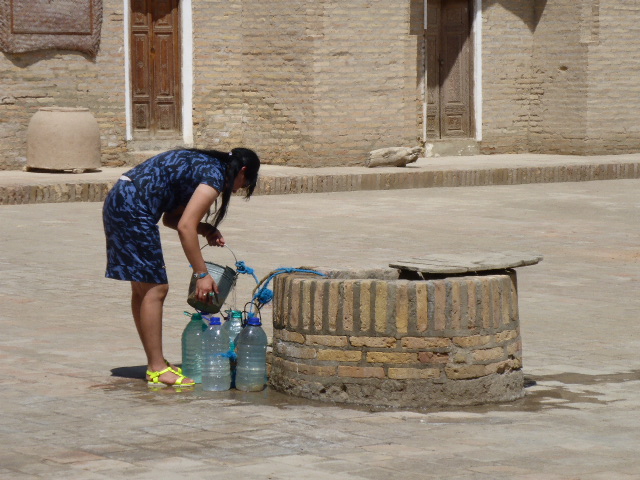
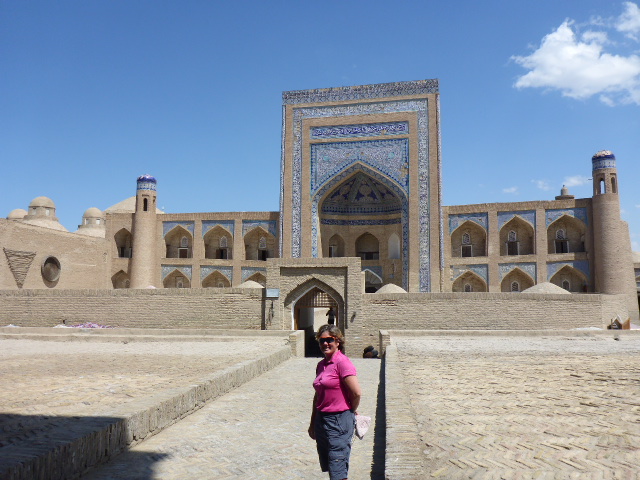
We took off our shoes and slipped into the mausoleum’s dark mosque, relishing the cooler air. As my eyes adjusted to the gloom, yet more of the city’s shades of blue unfurled: floral motifs snaked up the walls and up into the lustrous dome, their blooms intertwined with golden stars and squares. The full effect was hypnotic, but up-close I could see every brushstroke.
Inez led me to Matyoqub Matyoqubov, a softly-spoken artist who sells hand-painted ceramic tiles in his tiny workshop close to Kalta Minar. “They have been crafted by the same families for hundreds of years,” he whispered as I held a weighty square in my palm, glazed and shiny on one side and rough on the other. “This was made by the great-great-grandsons of the men who created Khiva’s original tilework.” Its twisting patterns crept across the clay like cerulean ivy.
Outside, silken suzanis – needleworks – billowed in the hot breeze like an exotic washing line. “Haggle hard,” advised Inez as I cooed over them, goaded on by a gaggle of Uzbek women. With their help, I negotiated the price of a hand-stitched cushion cover down to $15 – a little over the odds, perhaps, but a small price to pay for the jolly banter of this band of ladies, swathed in bright dresses and sequined headscarves.
In her mid-forties, Inez is part of a generation that has seen incredible change. Her parents grew up in Soviet Uzbekistan, part of the Soviet Republic. In the 1920s, when the Silk Road glory had long faded – eclipsed by sea transportation and European empires – Uzbekistan had turned to the USSR for strength and stability.
It was a freedom of sorts: the population suddenly had access to secular education and travel, and as the USSR prospered so did Uzbekistan.
In the 1960s, that prosperity was ploughed into a widespread restoration of the country’s Silk Road sites. Although communist ideology forbade religious iconography, the Soviets respected the artistic and scientific legacy of the Arab and Mongolian conquerors. The mosques were repaired; the mausoleums rebuilt; the madrasahs – religious schools – were raised from the dust.
After independence in 1991, work continued – and now, like a Hollywood movie star, the country’s main attractions are eternally fresh-faced.
But independence wasn’t embraced by everyone. “Life became hard,” said Inez with a frown. “People were used to receiving the same wage, having help – but suddenly they could earn more money and have private businesses.” Was it difficult to adapt? “Yes. Young people know what to do, but old people like my parents struggle. Now, young people move to Tashkent, or abroad – it is a shame.”
At 5.30pm sharp, the shops shut and the tourists departed; and the 3,000 Khivans, presumably, went home for dinner. So did Inez: back to her husband, to their house outside the city walls. I was alone, and free to explore as I pleased.
Khiva could be dismissed as a living museum: too polished and preserved to be authentic. No wrinkles. But there’s magic in it still. Even though I hadn’t been brave enough to soak up that minaret panorama, down here the alchemy unfurled before my eyes. As the sun dipped, clouds of swallows soared, filling the reddening sky with life. I inhaled the sweet scent of the departing day and strolled on, throbbing legs long forgotten – roaming through the centuries in this deftly-preserved slice of Central Asia.
Sunday 25th June
Khiva
Distance: 0 km
Total Distance: 14220.77 km
So over 2 days we’ve shopped in the Bazaar;
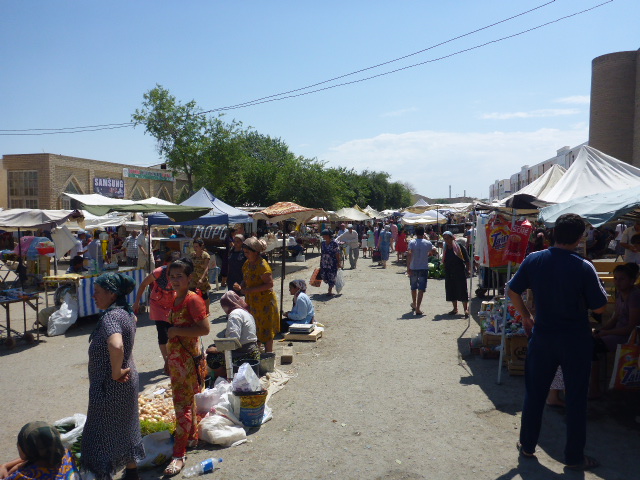
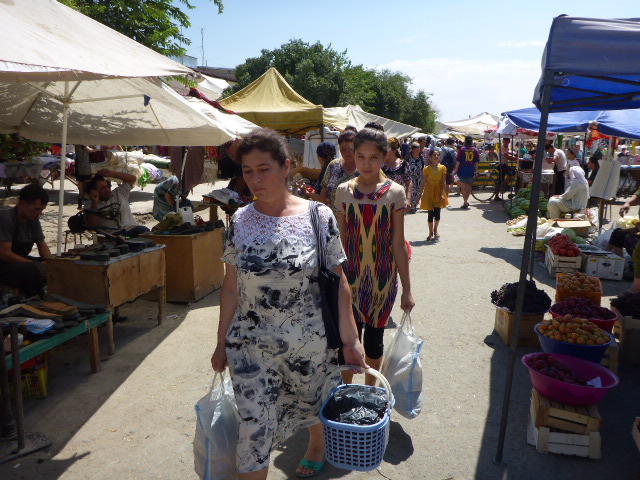
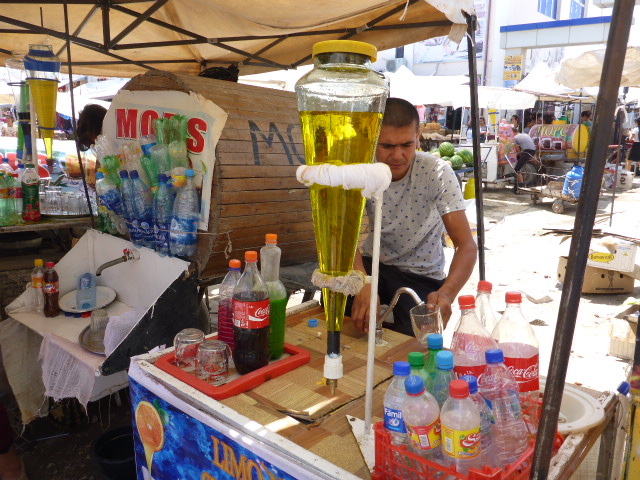
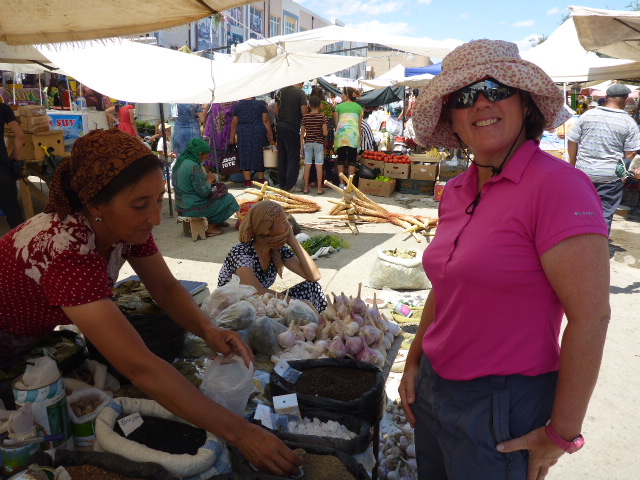
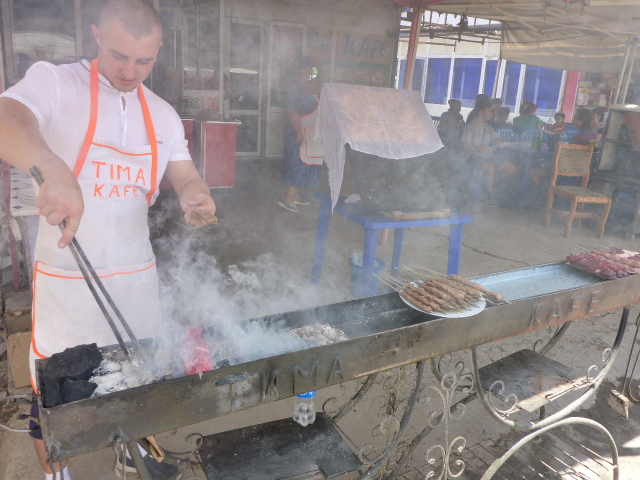
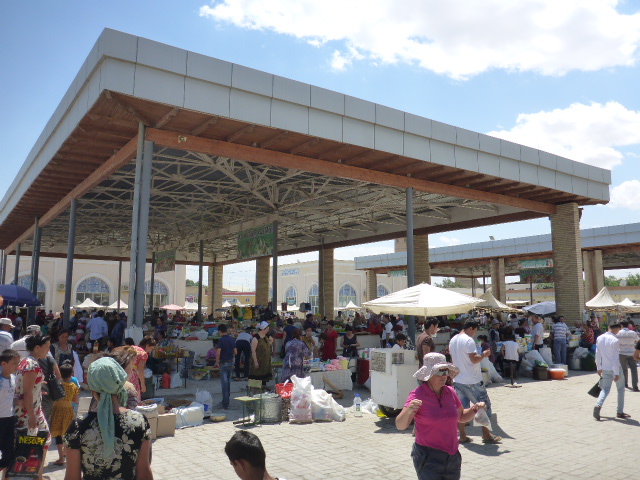
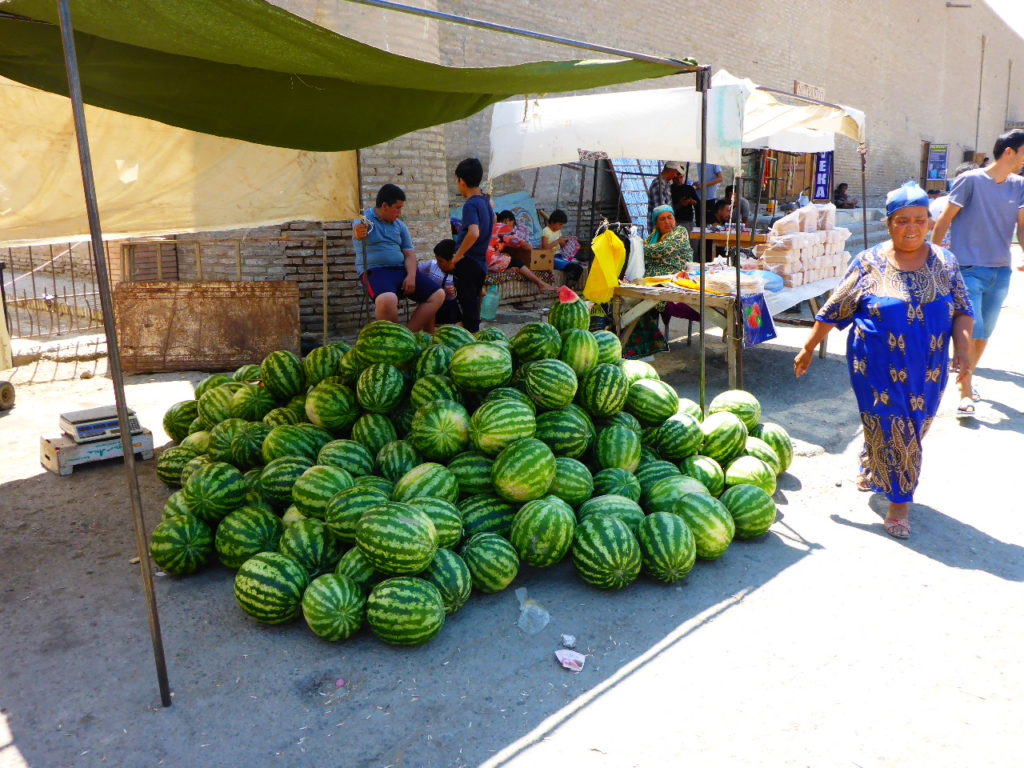
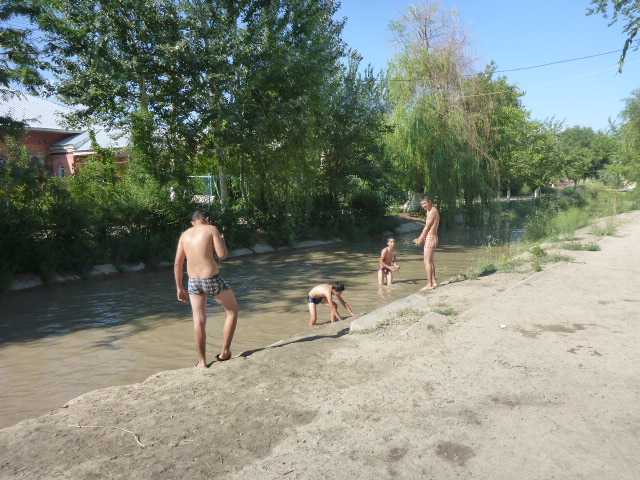
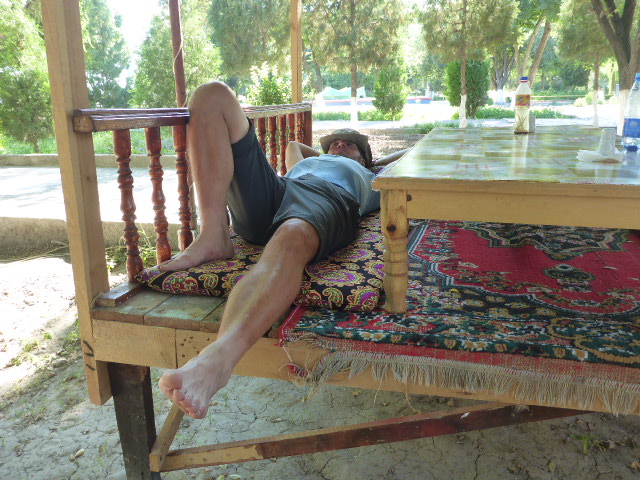
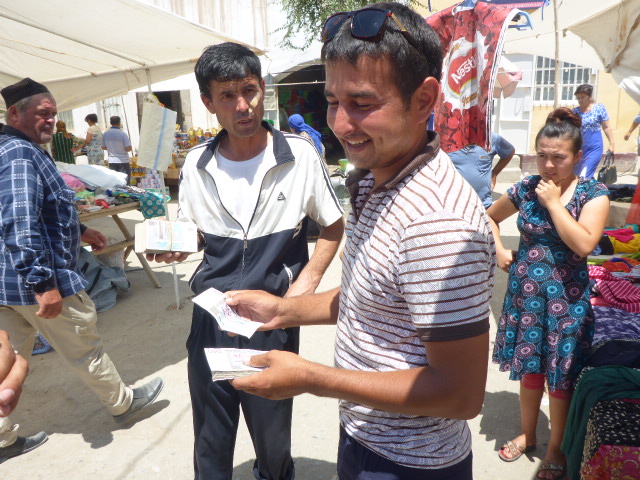
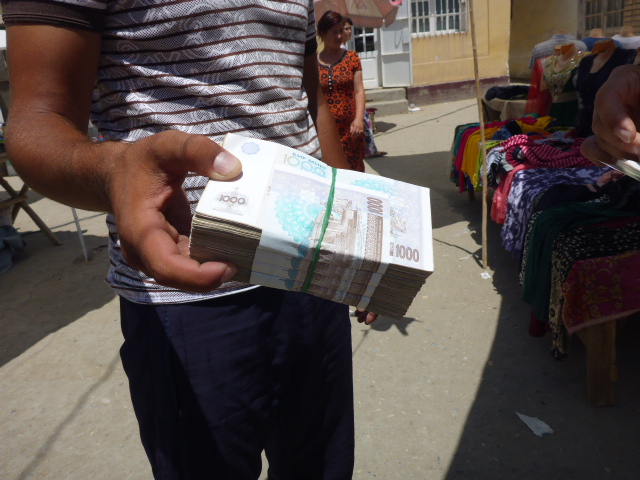
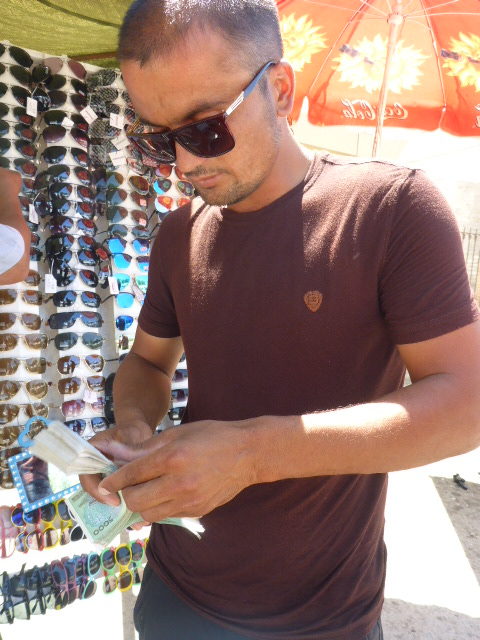
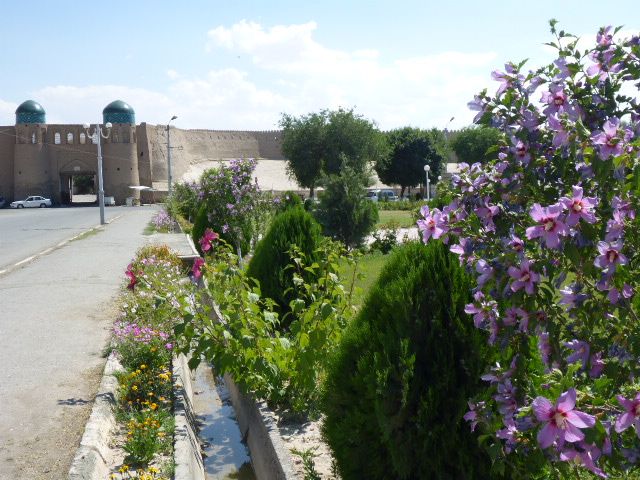
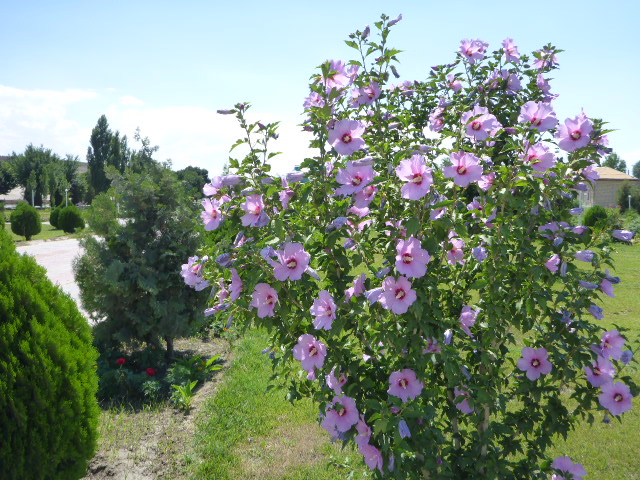
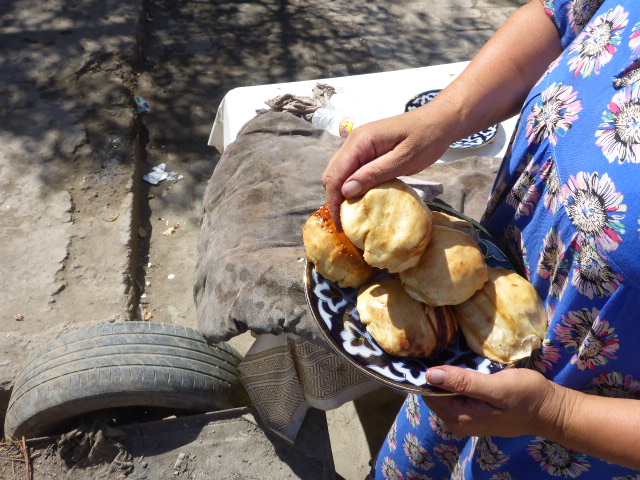
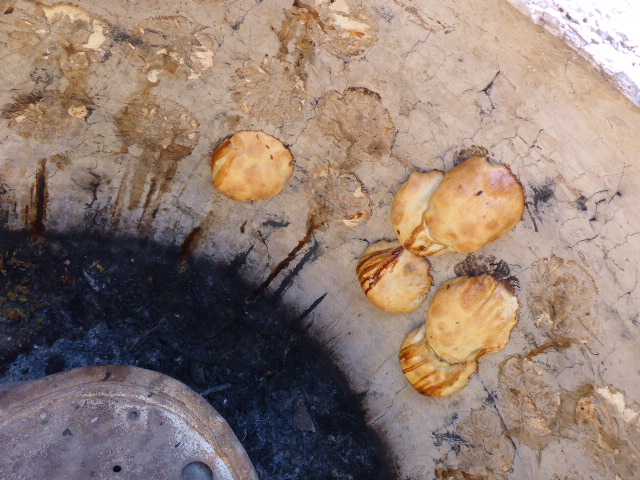
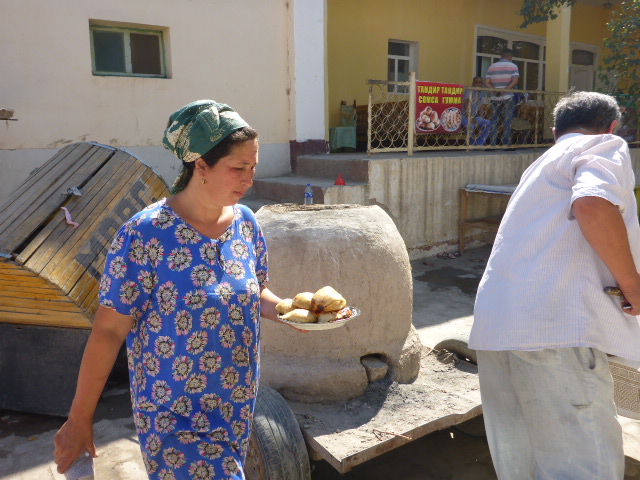
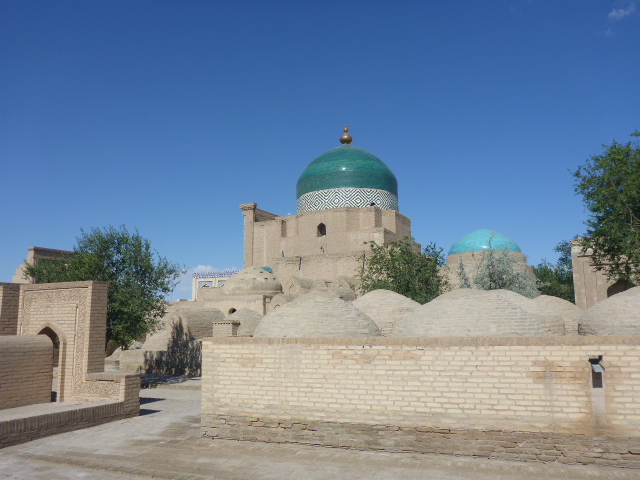
enjoyed the sights of Khiva; wandered the numerous alleys of the Old Town; met Magda, Coco and Perry (cyclists from our Caspian Sea crossing) and chatted to various other travellers including a lovely couple, Dave and Shannon, on their way from Australia to Reading (UK).
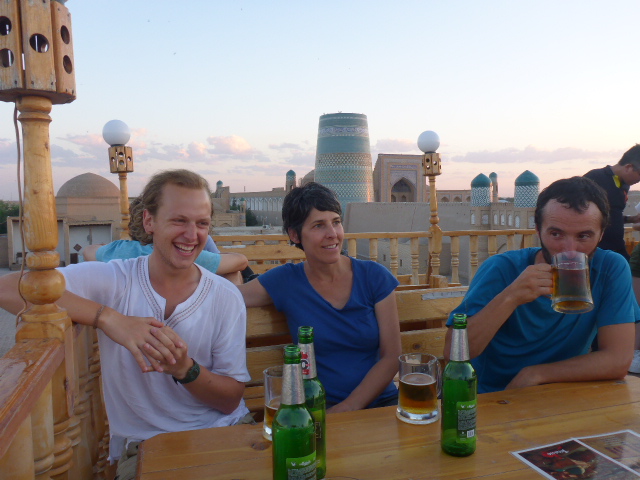
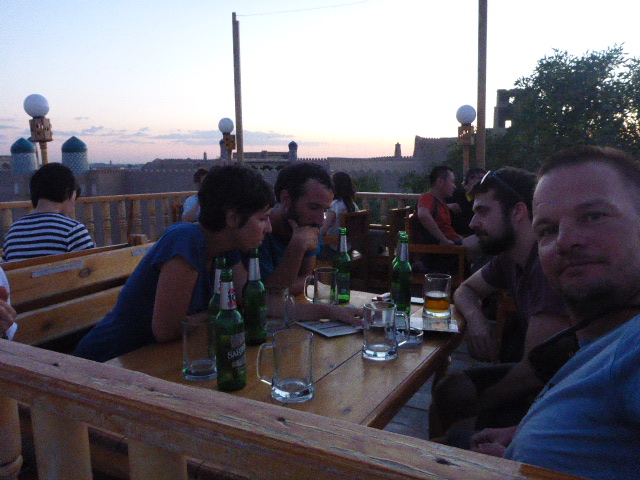
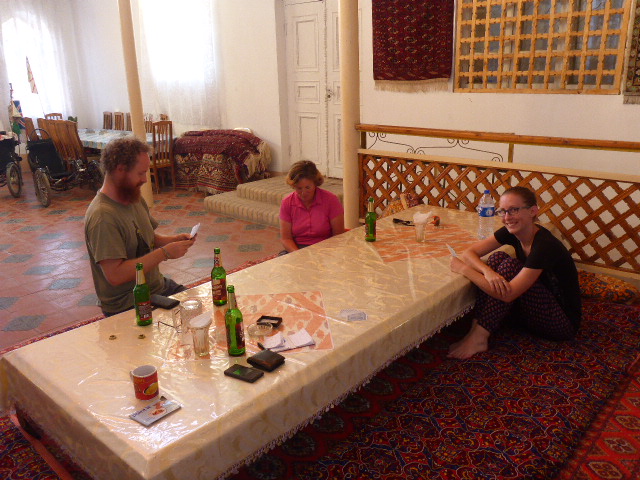
We’ve done our admin; struggled with atrociously poor WiFi and even sought the only 2 geocaches in Khiva and finally got rid of our last trackable which we’ve had for months.
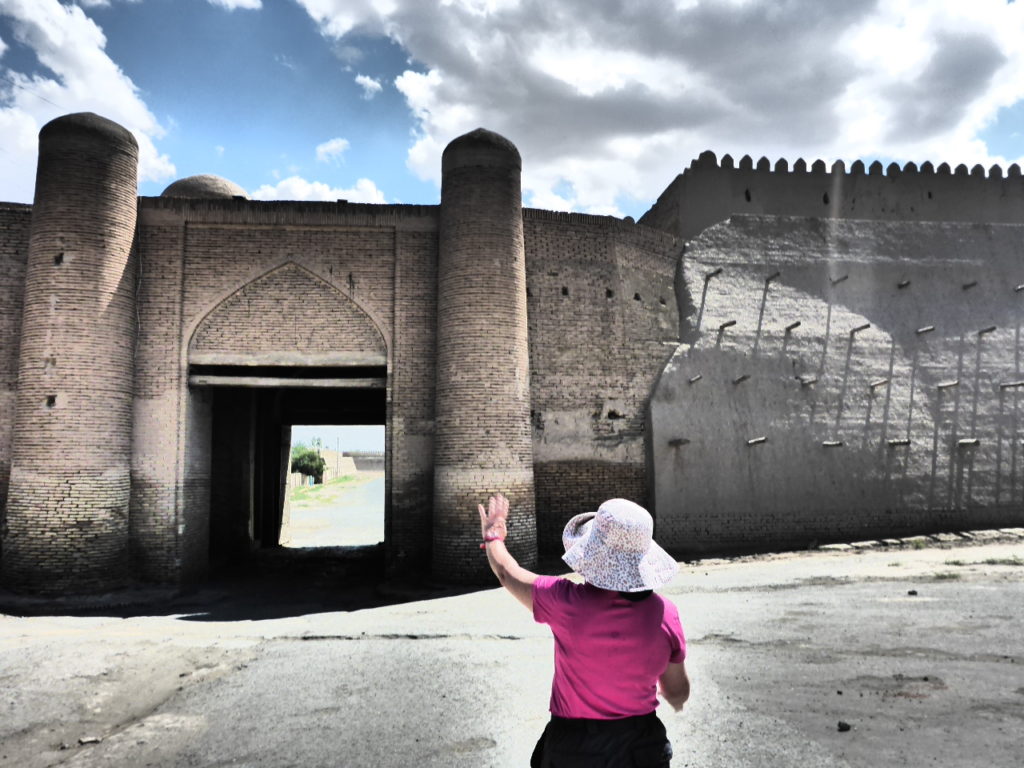
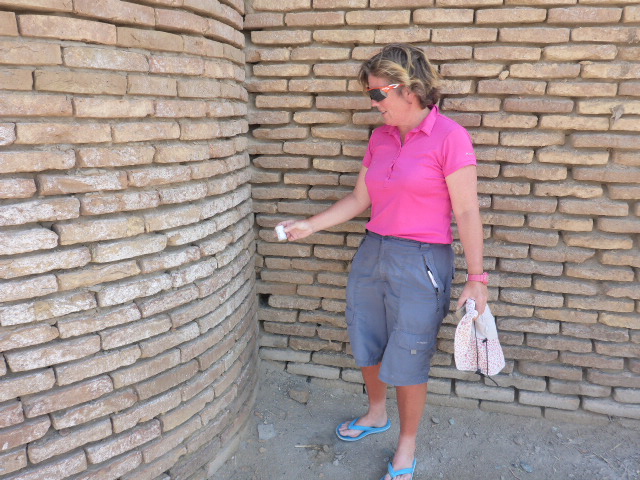
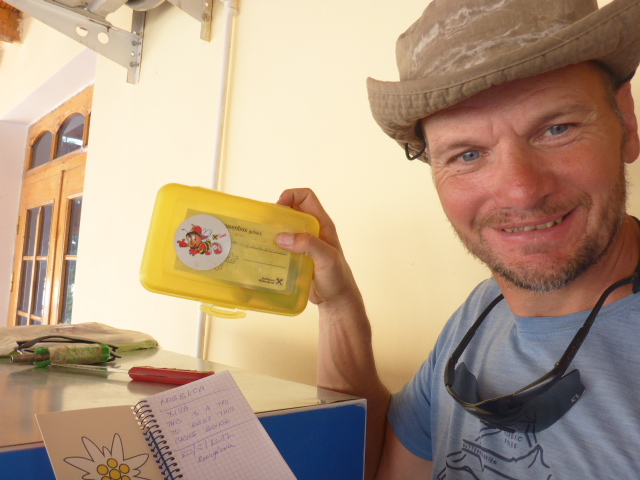
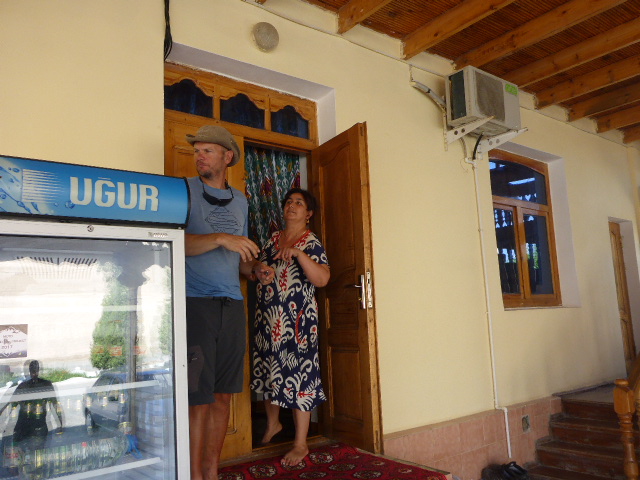
We’ve also watched the carpet weavers making silk carpets. 2 ladies, 4 months to produce incredibly beautiful hand woven carpets worth $2500. When I was told months ago to look at the number of knots per square inch I had no idea that every single knot is individually with a kind of crochet needle. We also see woodcarvers making intricate designs on Koran holders, chopping boards, walking sticks and other wooden implements. There’s also numerous hat stalls selling fur hats from fox and lynx or big wool hats not dissimilar to Brian May’s big hair.
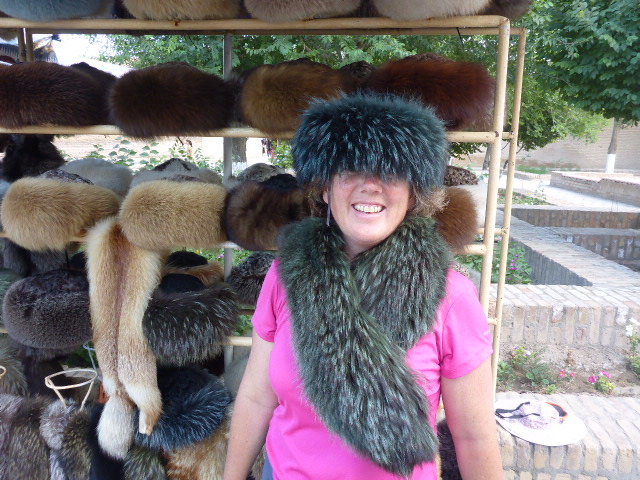
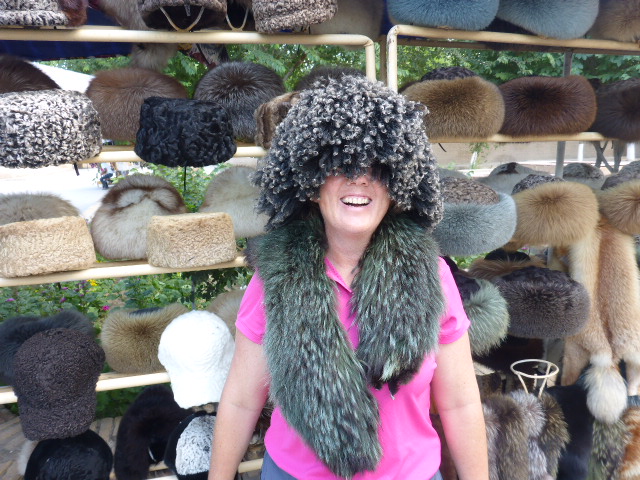
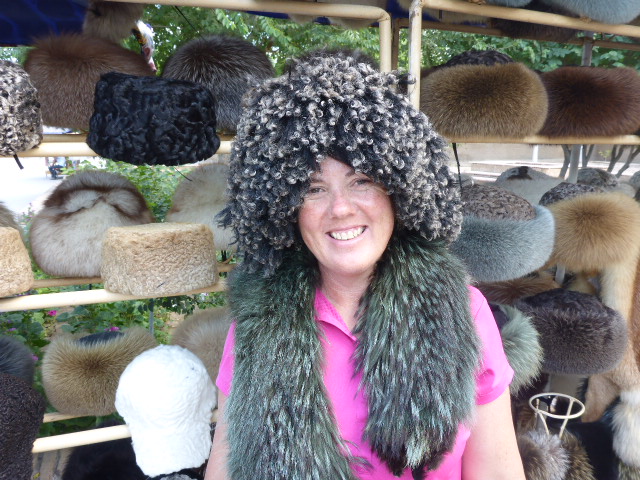
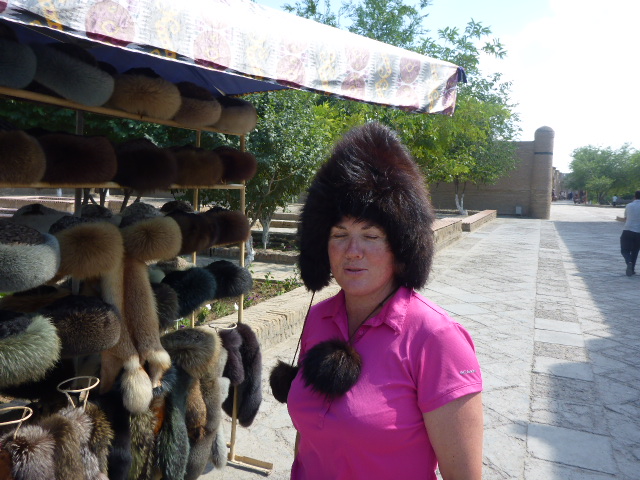
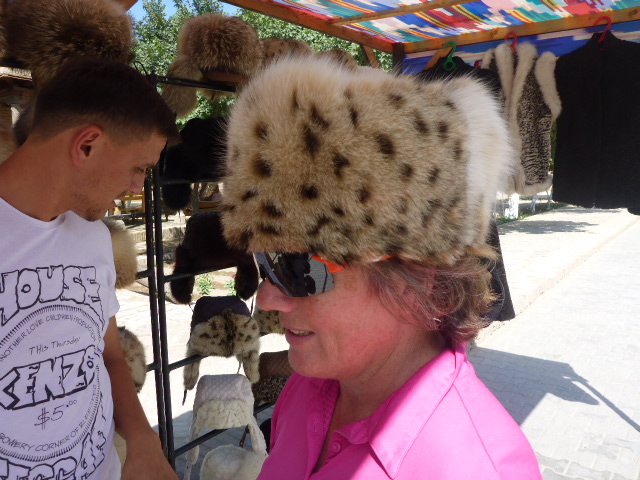
It’s been a beautiful place to visit but tomorrow we go forth to Bukhara via Navoiy.
Monday 26th June – Khiva to Navoiy
Distance: 32.64km
Total Distance: 14253.41 km
We’ve only got a short cycle ride today so we have a last stroll around the old town and decide if it’s good enough for Hazel Plush, it’s good enough for us and climb one of the minarets. The steps are so high I have to go up on all fours, using the step above to pull myself up. There’s no hand rail or bannister. A few photos from this panaroma and back down the steep stairs. Really tough and so I resort to sliding from step to step on my arse; like we did as kids. Then we pack and leave. Just one more stop going out of Khiva; the train ticket office.
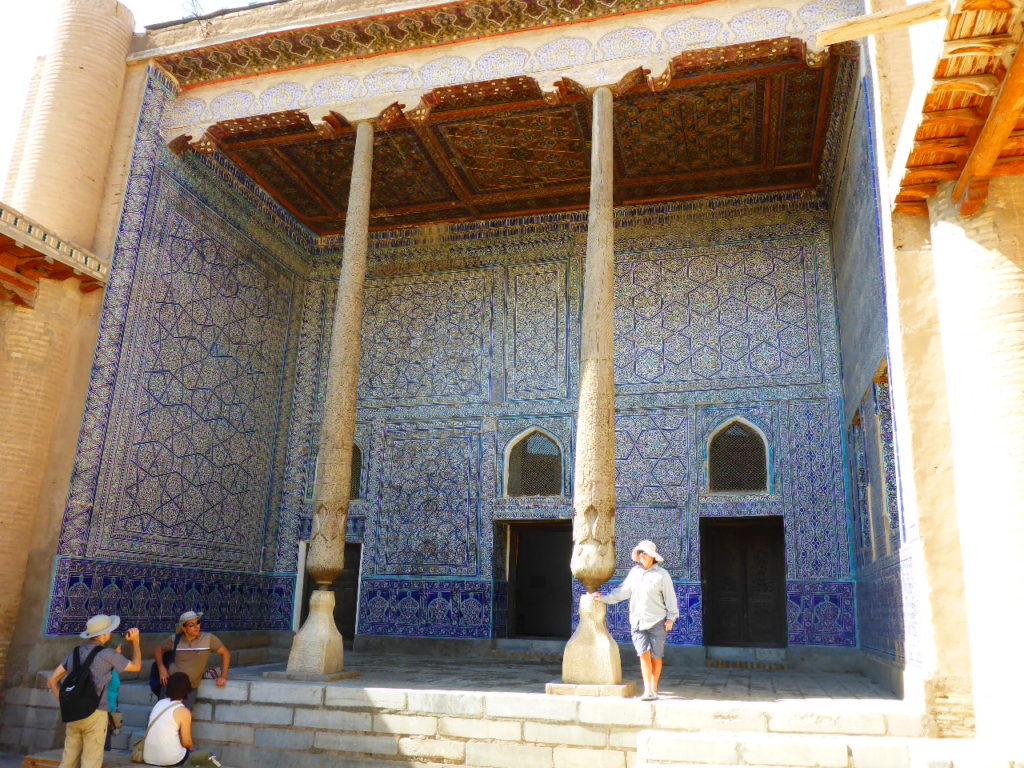
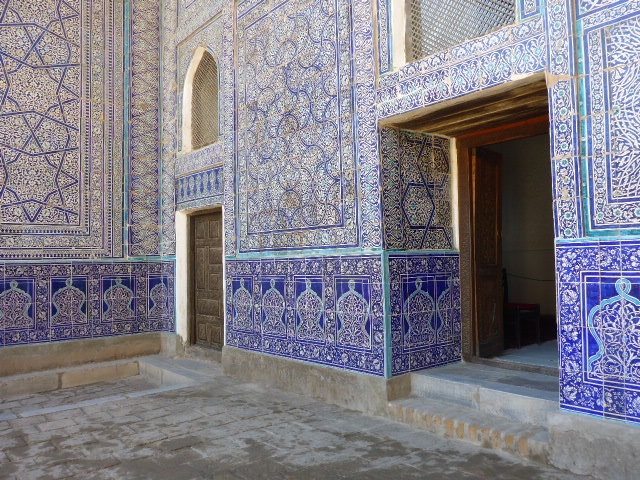
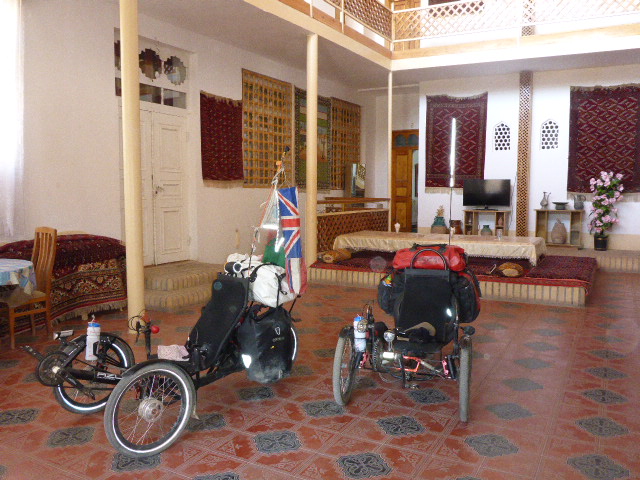
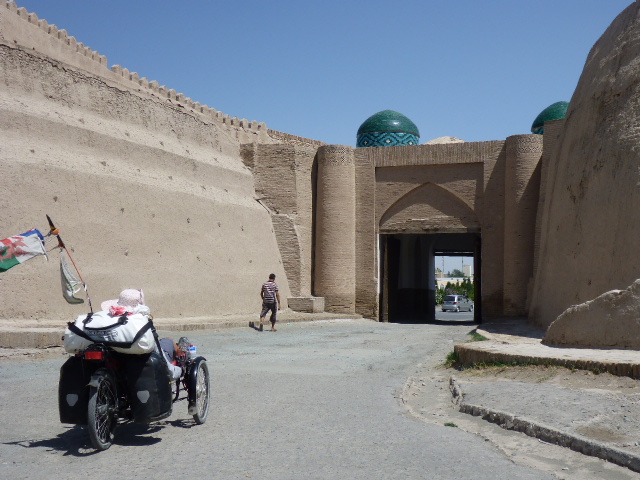
We visited Saturday but she couldn’t sell us tickets because our passports were in our hotel. We told her we’d return the following day. Sunday the office was open, the same ticket seller but no ticket purchase possible because it’s Sunday and they’re shut for ticket sales. We ask if she’s open Monday, what time etc. She says ‘yes, open, 10-5’ but in fact it’s completely closed today with padlocks still on the door. Arghhhhh so annoying. It’s more reassurance for us if we have the ticket and can see date and time of departure. But it’s not to be so we push on to Urgench. It’s pretty uneventful, well totally uneventful. In fact the most exciting part is when Daz map reads us down the back streets of Urgench to the train station and instead of a level crossing, over the railway line, we have to carry the bags and trikes over half a dozen raised railway tracks.
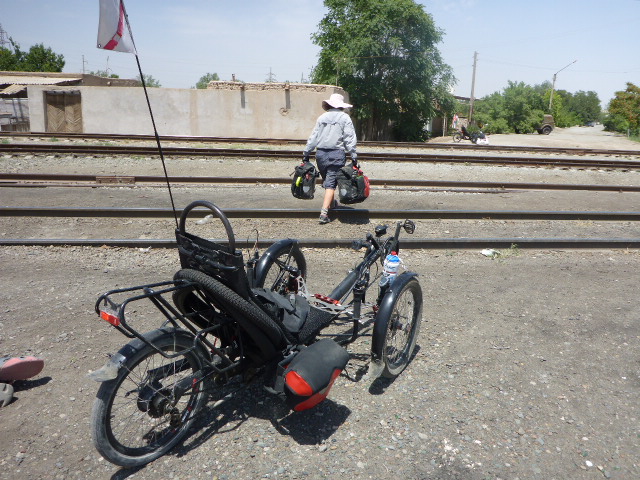
The railway station, as in Nukus, is a smart, well-appointed modern building with many security checks.
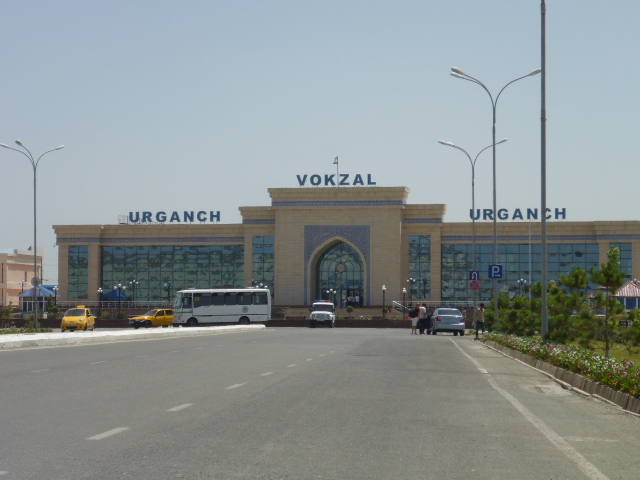
First a document check. Then inside the building an xray scan of all bags. And then a final check with ticket and passport. There’s long queues and people everywhere but that’s because the first train Urgench to Tashkent is due shortly (2.40pm). Daz goes off to buy our tickets (70,000 SOM each) but for the 7pm train. We could get the 2.40pm but it arrives in Navoiy at 1am, our train will arrive at 6am. So we’re hoping the later train will be cooler and more sleep inducing. So with 5 hours to kill we go off to find lunch; it’s kebab, salad and tea. Then we need Internet to finalise some business with the UK. There’s Internet in the station but it’s horrendously slow and then it crashes. Well that’s bloody unfortunate. About 2 hours later, having checked periodically, there’s a glimmer of a signal and connectivity but our train has just arrived. We have about an hour to load our stuff on before it departs so Daz is chomping at the bit to get sorted whilst I have several emails that demand a response today but every attempt to download the attached documents fails. I scrabble to write my excuses and then rush off to help Daz. He’s already loaded his own trike and bags, aided by a trusty train official, so we just need to get my stuff on.
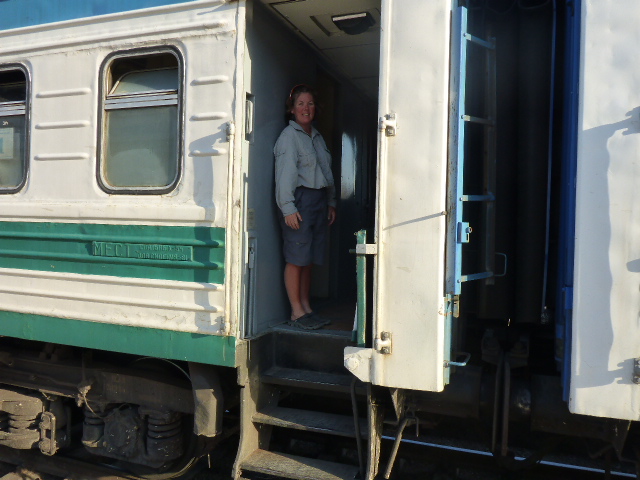
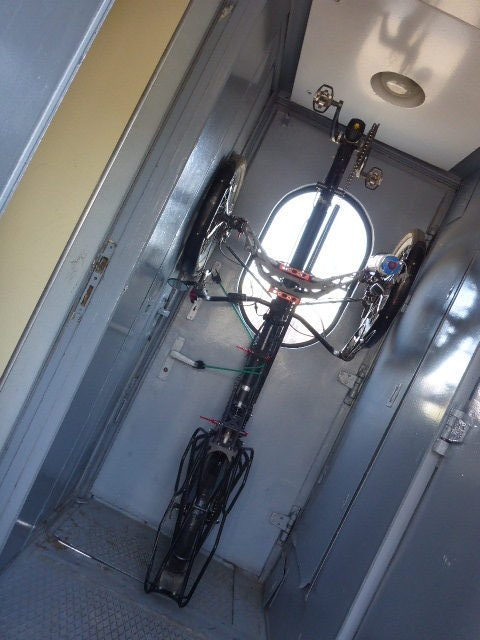
We store the bikes as we did on the last train, on their back end, bungied to a door. On the last train we had a whole compartment to ourselves so plenty of room for our bags. This evening we’re sharing with 2 men and we have the top bunks. Most of the luggage racks are already full so our bags are spread over a considerable area, wherever we can find space to jam them in. At 7.30pm we set off.
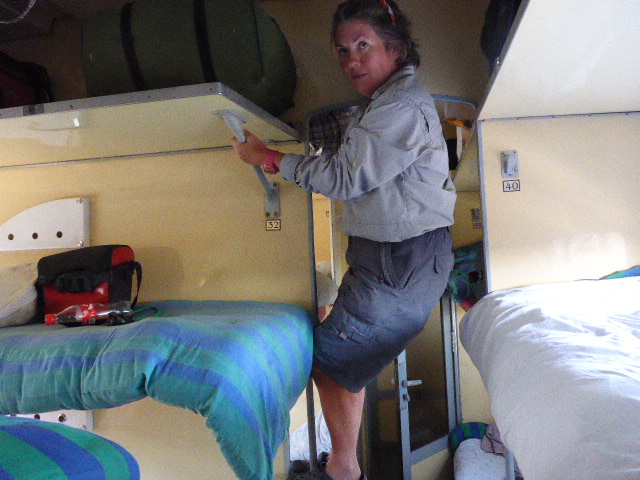
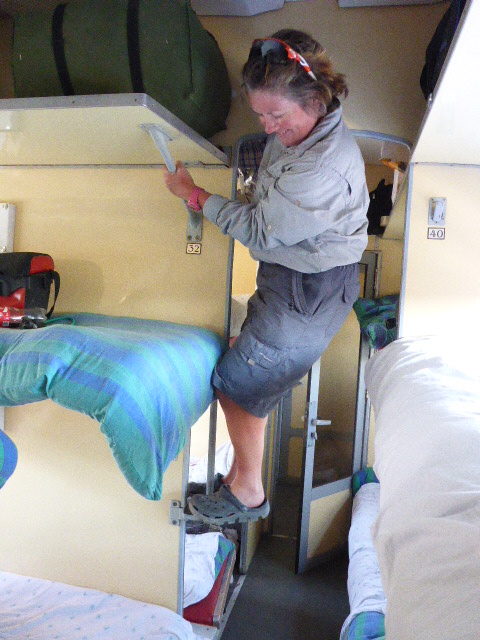
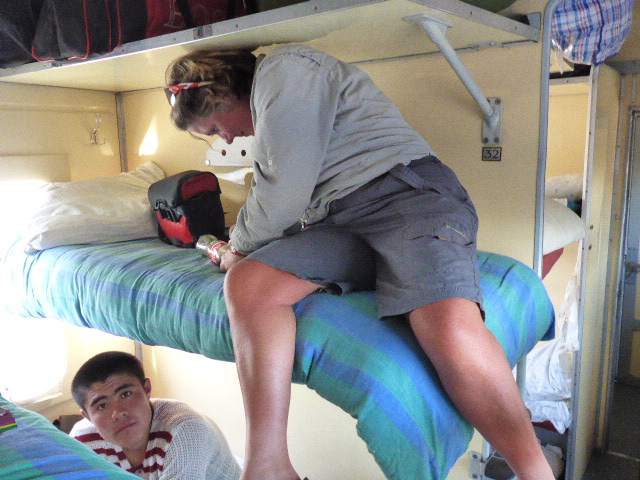
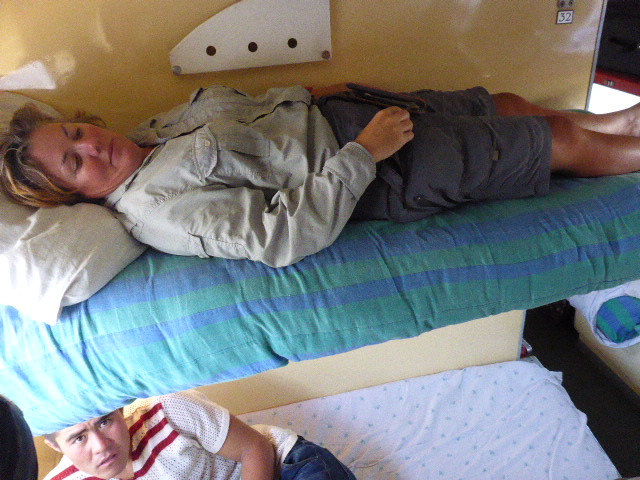
There’s a mattress on our bunk and we’re given a clean sheet and pillowcase in exchange for our tickets and then we sleep or read for the next 11 hours.
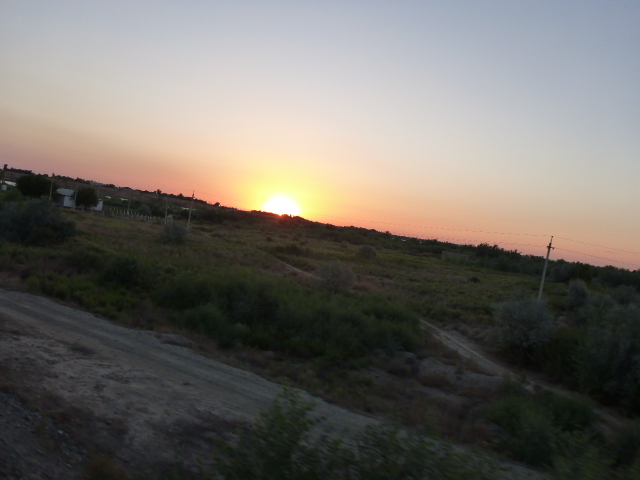
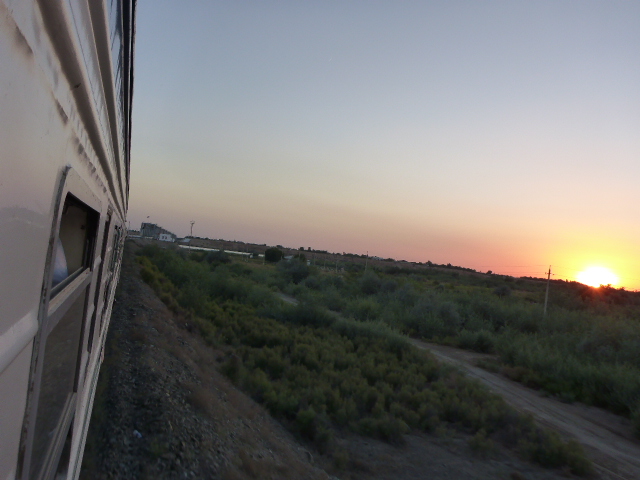
Tuesday 27th June – Navoiy to Qiziltepa
Distance: 59.78km
Total Distance: 14313.19 km
Well surprisingly I slept a lot and I’m shocked when Daz shakes me awake at 6am. Meanwhile he’s barely slept and has been suffering with an upset tummy. We return our sheets in exchange for our tickets; an overnight train journey equals hotel registration. We get our bags down to the end of the carriage and soon get everything unloaded once we stop in Navoiy. It’s only 6.30am so it’s still quiet on the streets.
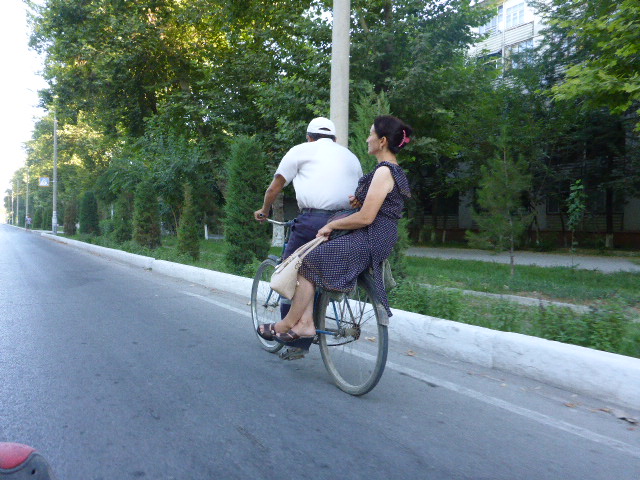
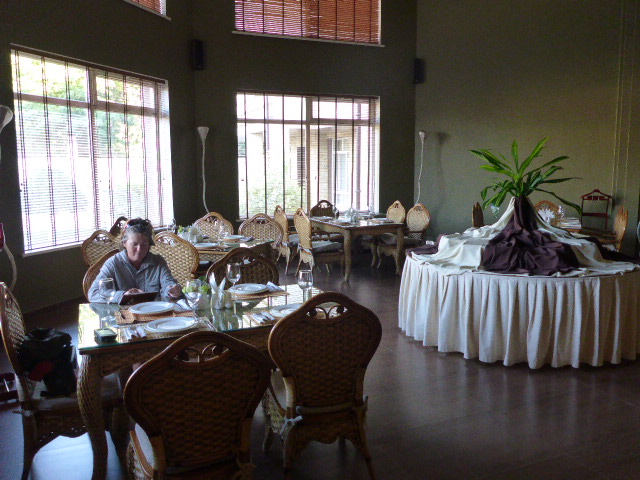
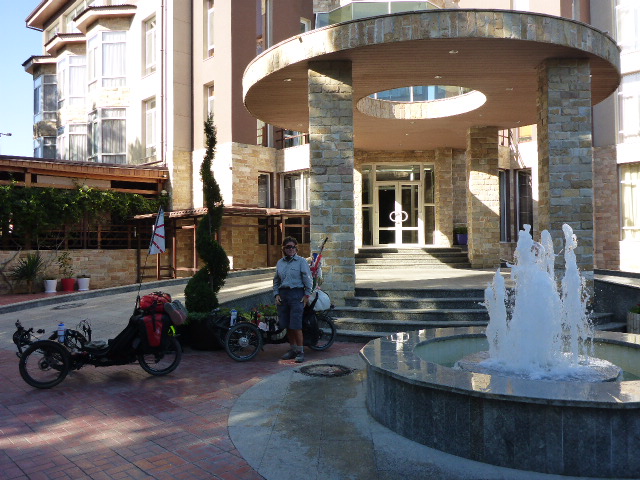
We head to the Hotel Grand. Why? Because it’s breakfast time and because posh hotels equal excellent Internet. They’re more than happy for us to have breakfast and use their Internet but breakfast is 15$ each. Blimey that’s extortionate but if we pay in SOM it’s half that because we’re getting double the official rate on the Black market. And actually we’re only charged half again when we do pay – so 3.50$ for 2 breakfasts, loads of tea and coffee, fried egg on toast and excellent Internet.
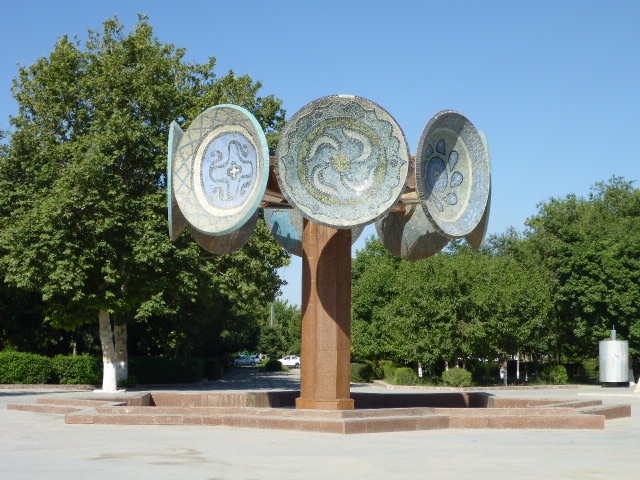
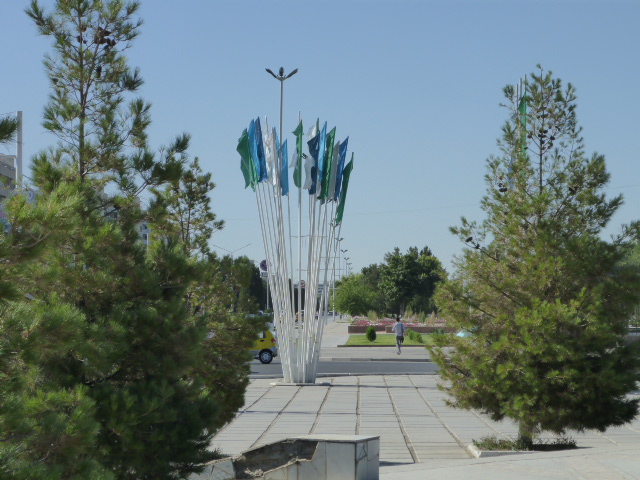
After cycling out of Navoiy it’s the typical hot, flat, featureless terrain we’re becoming so well acquainted with. We stop at the site of a Caravanserais but there’s not much there to hold our interest.
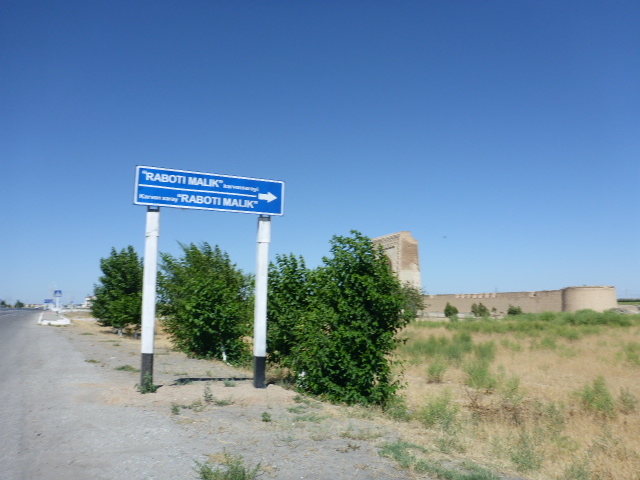
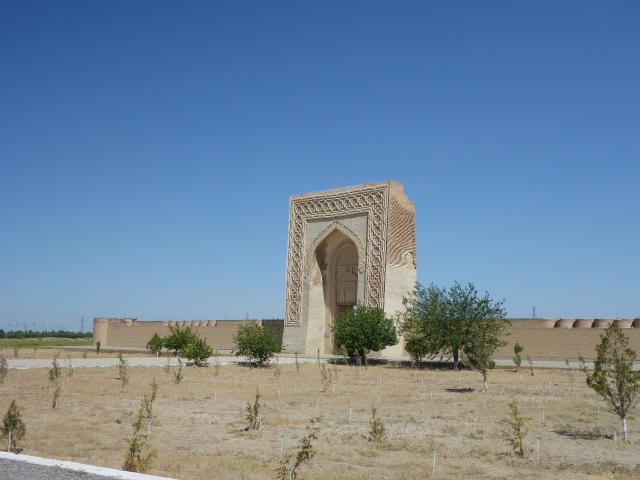
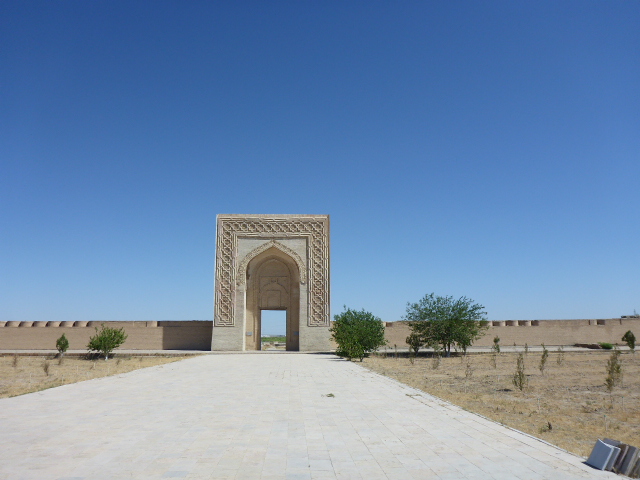
At 60 km we stop for lunch. The only thing he’s serving is ‘samsa’ ; a meat pasty. We’ll have 4 of those then please and çay with milk. But he hasn’t understood our milk request and brings us a big bowl of ayran (salty yoghurt) each. We drank this a lot in Turkey but feel happier if it’s delivered in the sealed yoghurt pots not out of a reused coke bottle. Yup it’s probably not pasteurised and Daz’s upset stomach has continued to bubble and spasm throughout the day, so possibly not the wisest selection. After lunch it’s still early (1pm) and we could push on but I spot a derelict building. Hurrah, shade and a fairly private spot. I set up whilst Daz goes to village for water and provisions.
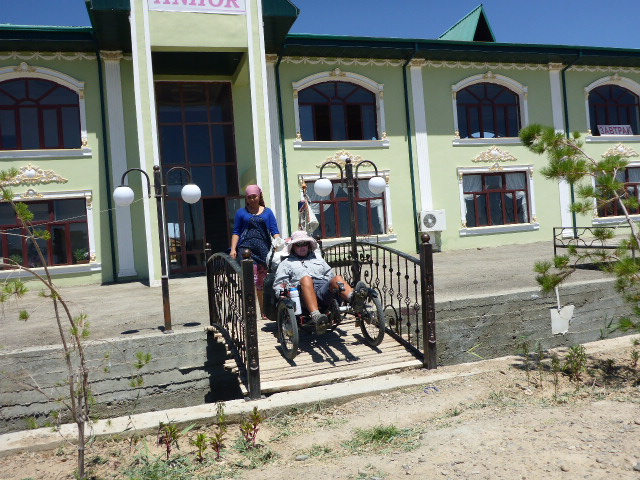
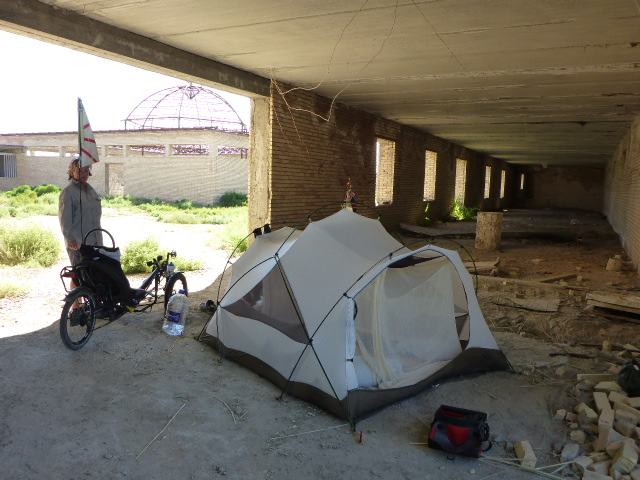
It’s a restful afternoon and an opportunity for Daz to have a nap after his rough night on the train. Well it would be but sadly his cramping / gurgling stomach has worse in store and ‘Delhi belly’ strikes again. Poor Daz.
Wednesday 28th June – Qiziltepa
This morning we’re awake by 7am. Despite all the shade offered by the buildings we still managed to pick a spot hit by the early morning sun. It’s so early we decide to move the tent and enjoy a lazy morning and a relaxed breakfast. I know currently our plans don’t fill our 30 days in Uzbekistan so I suggest a complete rest day. Daz barely ate last night and what he did it eat sent his stomach back into spasms. After considerable discussion we decide to stay put although late morning another tent repositioning is required because we appear to be in the path of a sand blaster. The wind has picked up and there’s sand and grit flying into our tent. So a day of reading and sleeping. There’s no Internet to distract us either. Bliss. At about 6pm Daz cycles into the village for food and water but apart from that it’s very restful. We do have a frequent visitor. He was here yesterday afternoon. He arrives on his donkey, works in the nearby fields before riding home. He seems a little upset by our presence. We’re not sure if he’s offering to share his home or whether he thinks we should be in the nearby guesthouse. Whatever his problem, we stay put.
Thursday 29th June – Qiziltepa to Bukhara
Distance: 63.50 km
Total Distance: 14376.69 km
After considerable napping yesterday I didn’t think we’d sleep last night. But we did. I wake at 5am and we’d planned for this eventuality. So we’re up, packed, one cup of coffee and on the road by 6am. Uzbekistan is a much kinder beast at this hour with the low sun casting beautiful shadows.
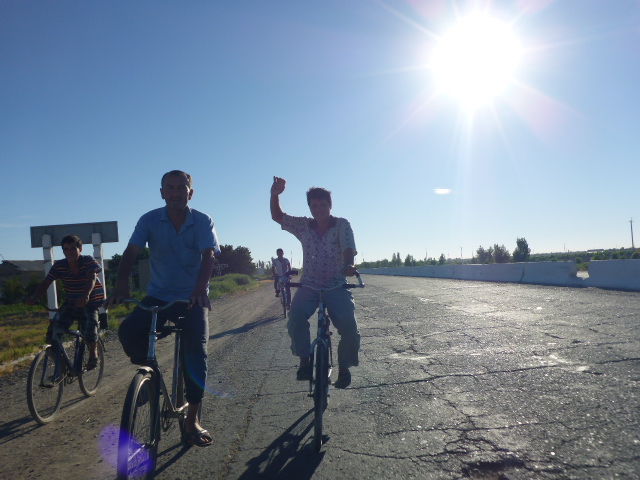
The landscape looks so much prettier without the bleaching ferocity of the midday sun and there are people everywhere manning their roadside stalls. We push hard, enjoying the cooler temperature, and blessed with a tailwind we cover 60km in 3 hours and reach our destination Bukhara.
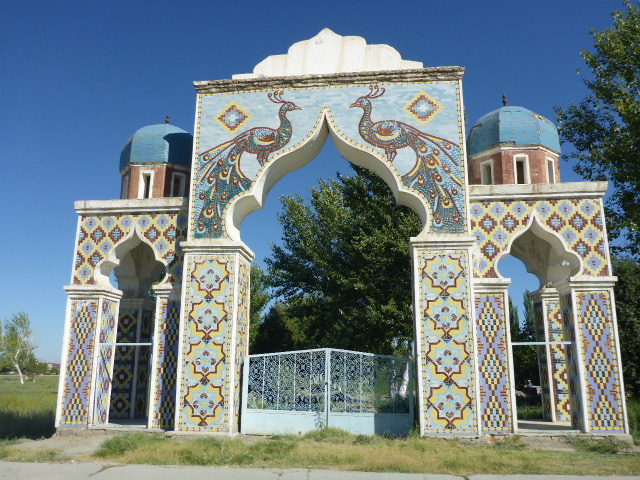
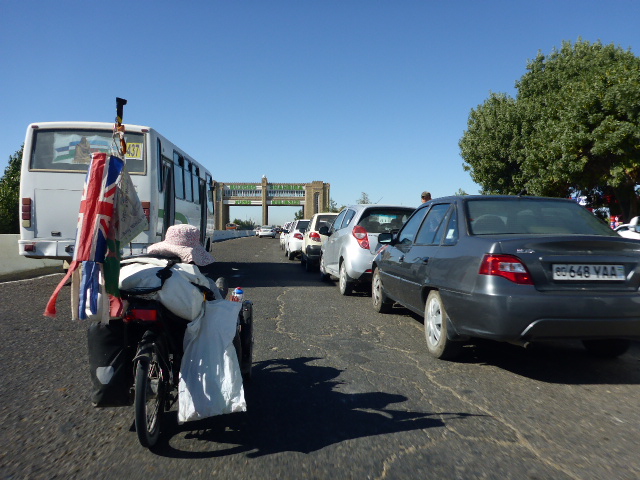
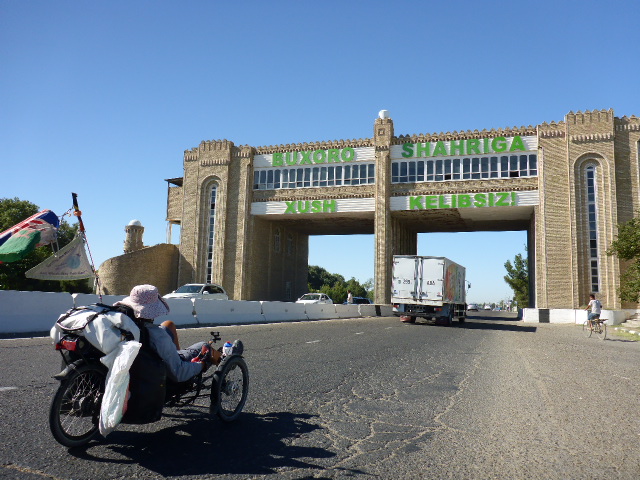
We’re well chuffed, although a little peckish to say the least. First stop a posh hotel. We order a latte (that’s how posh this hotel is – 90$ a night), use their WiFi and find a hotel in our price bracket. $20. Then scrub up and hit the streets for some sightseeing.
Central Asia’s holiest city, situated on the Silk Road, Bukhara has buildings spanning a thousand years of history, and a thoroughly lived-in old centre that hasn’t changed too much in two centuries. It is one of the best places in Central Asia for a glimpse of pre-Russian Turkestan.
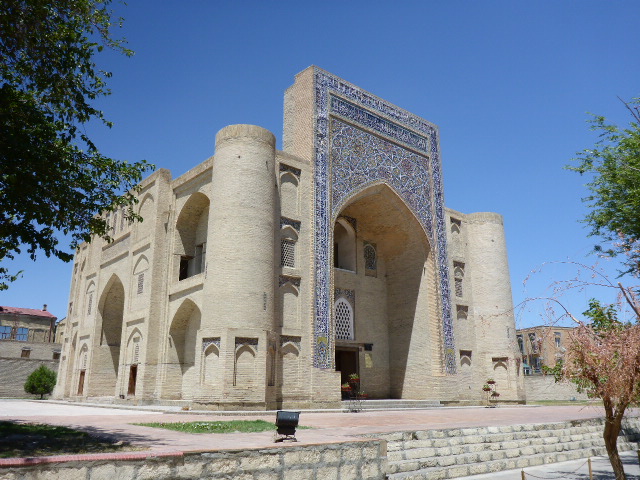

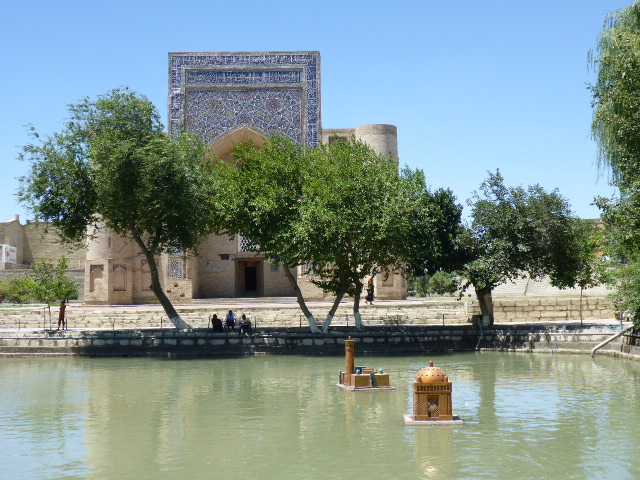
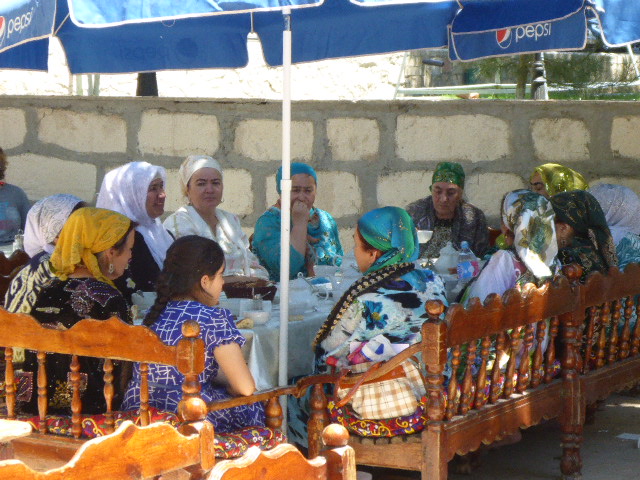

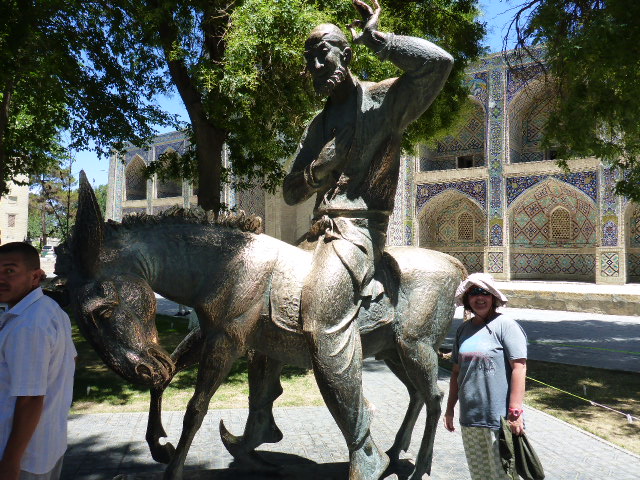
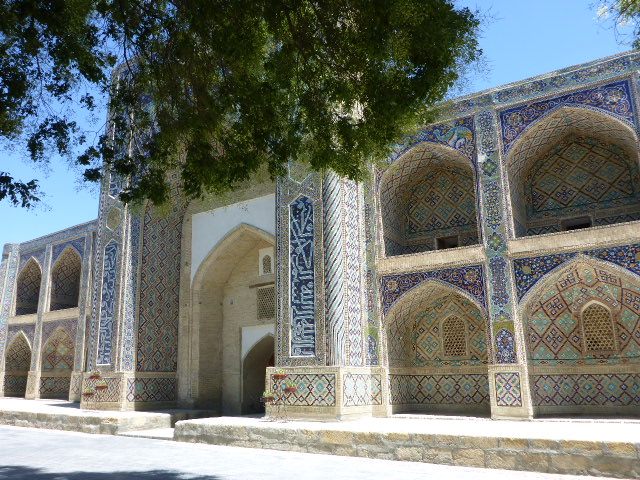
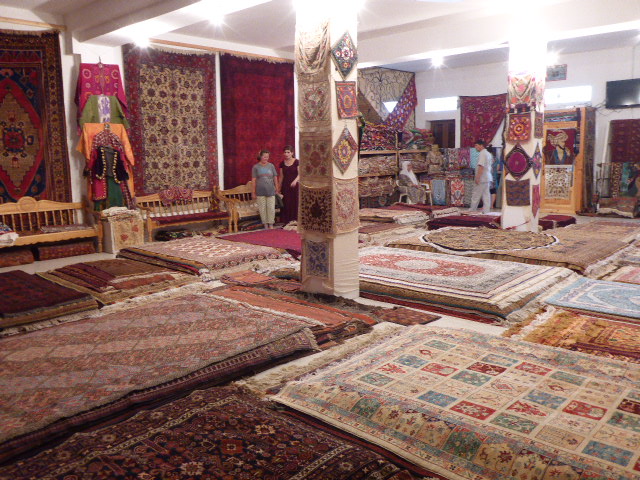
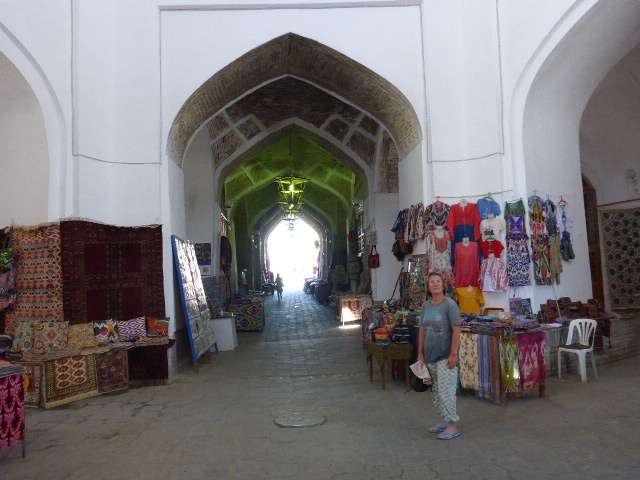
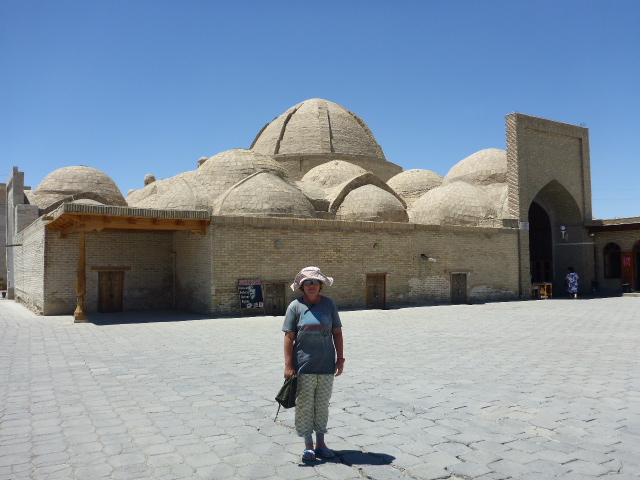
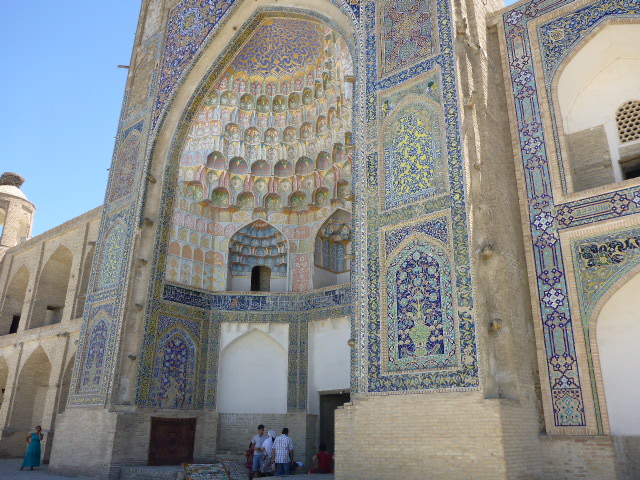
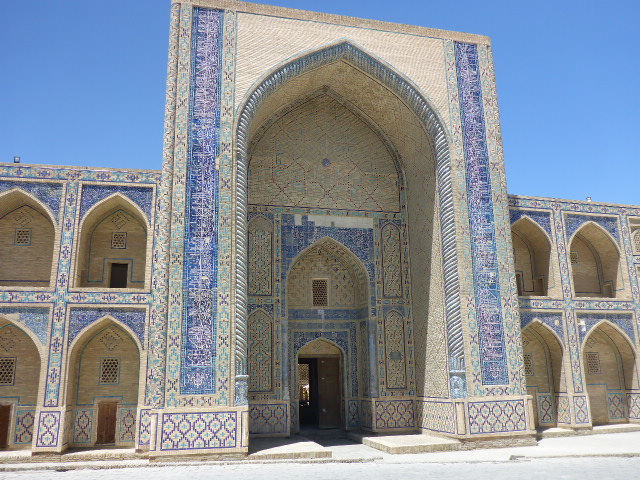
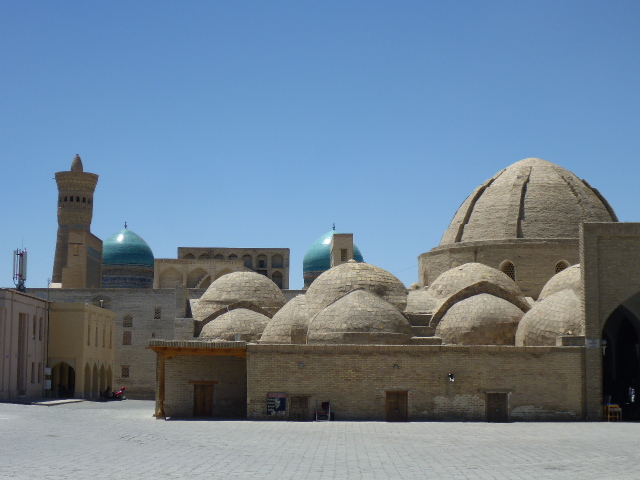
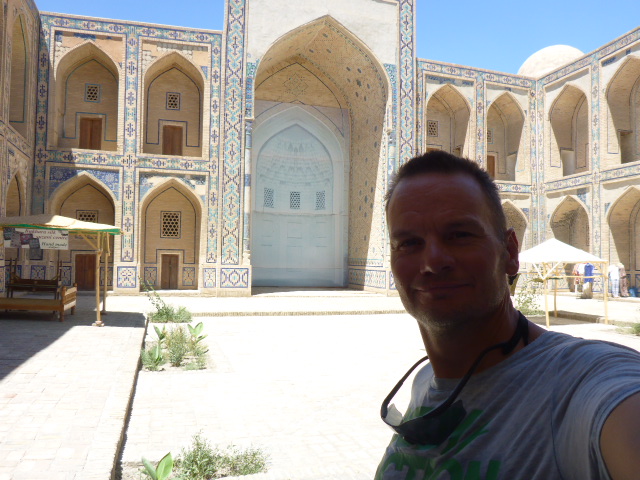
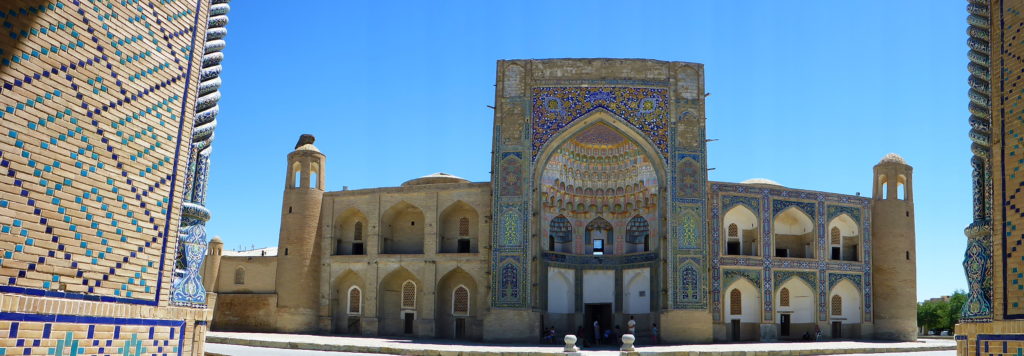
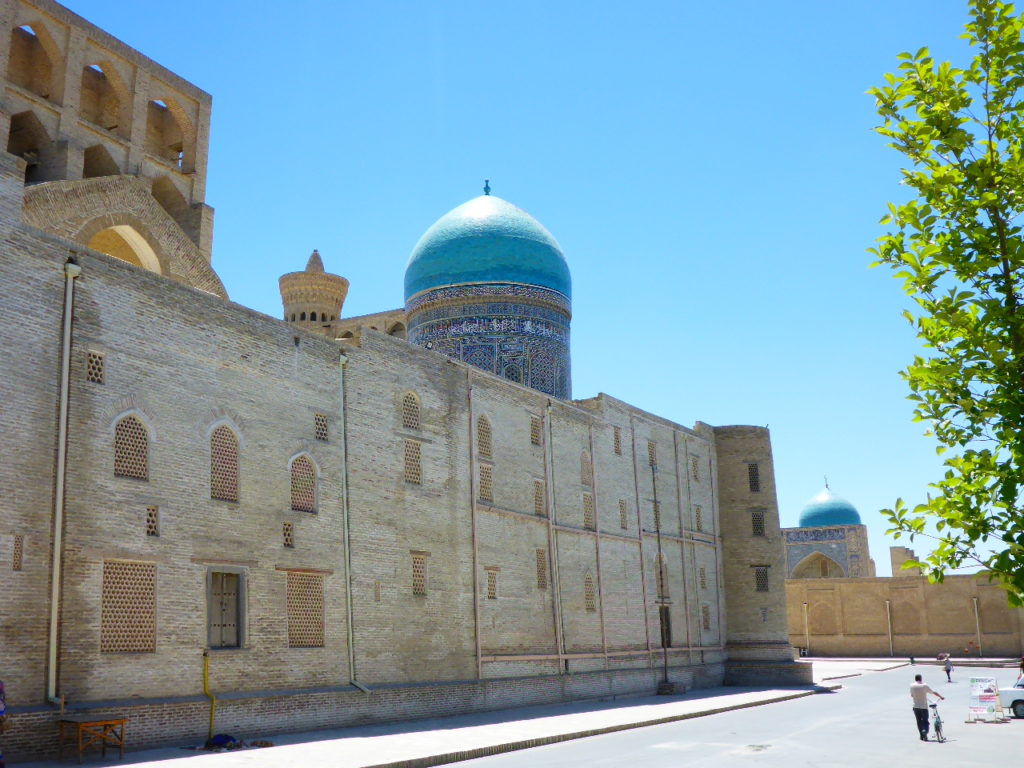
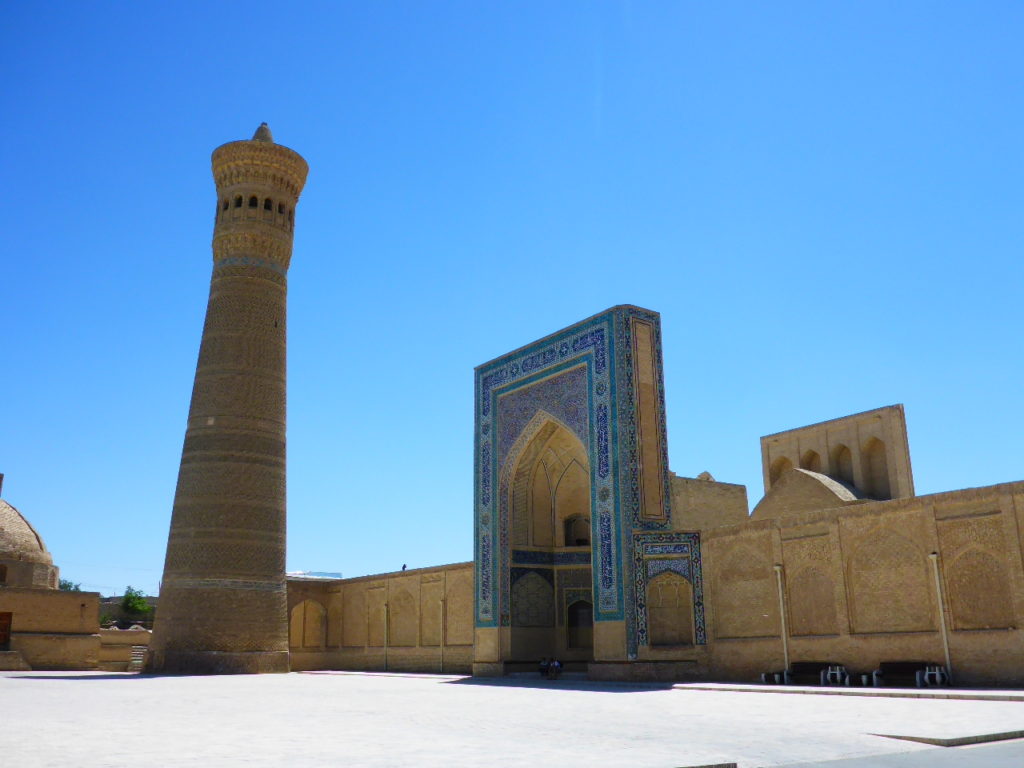

Most of the centre is an architectural preserve, full of madrassas, minarets, a massive royal fortress and the remnants of a once-vast market complex. Government restoration efforts have been more subtle and less indiscriminate than in flashier Samarkand, and the city’s accommodation options are by far the best and most atmospheric in the country.
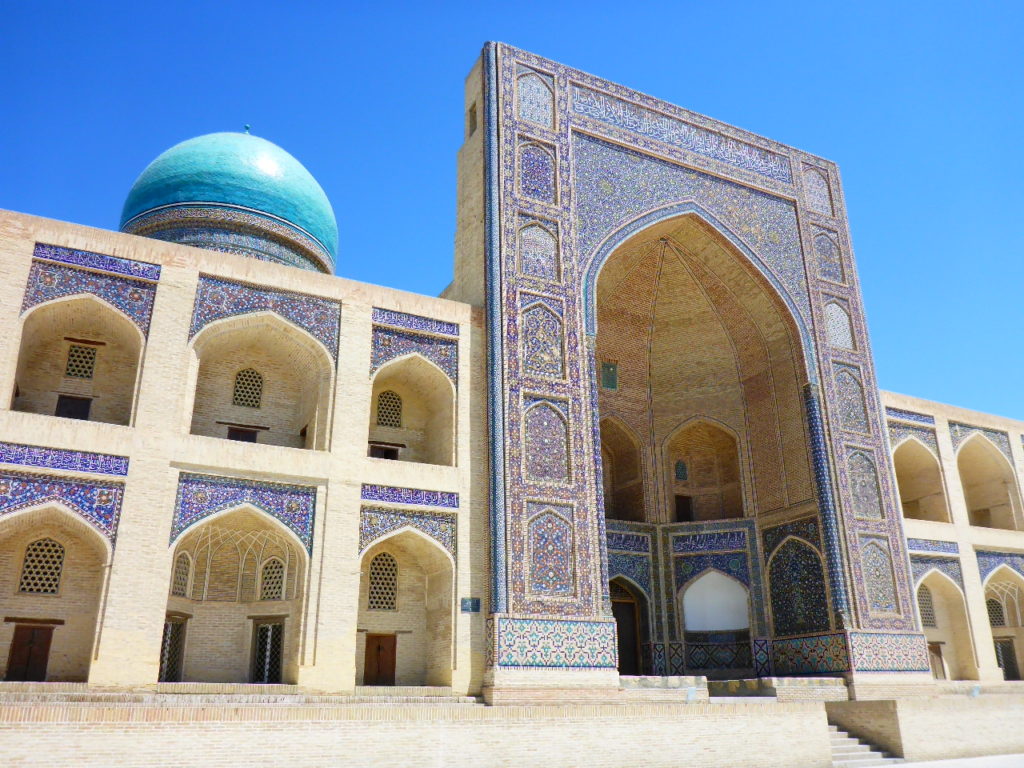
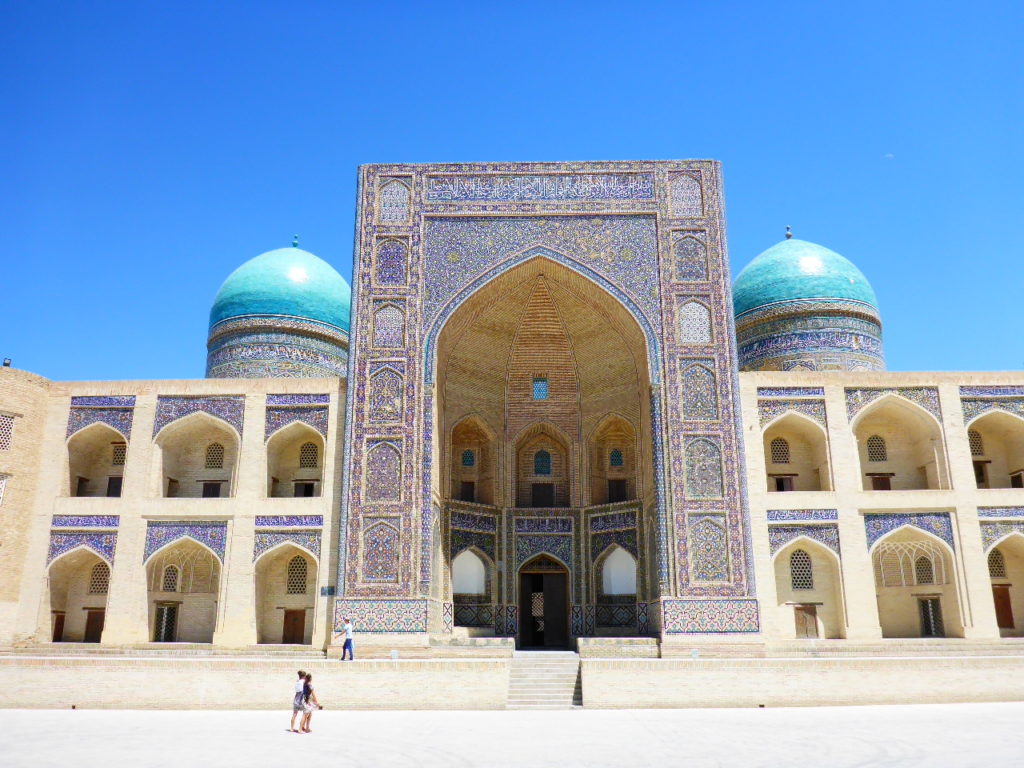
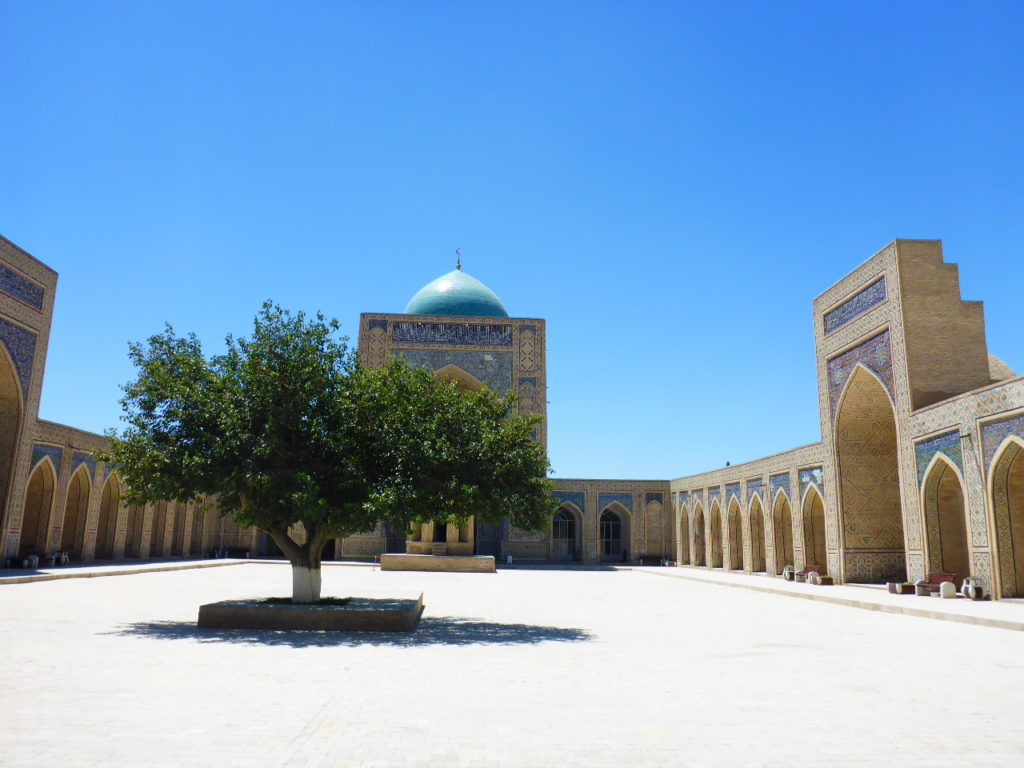
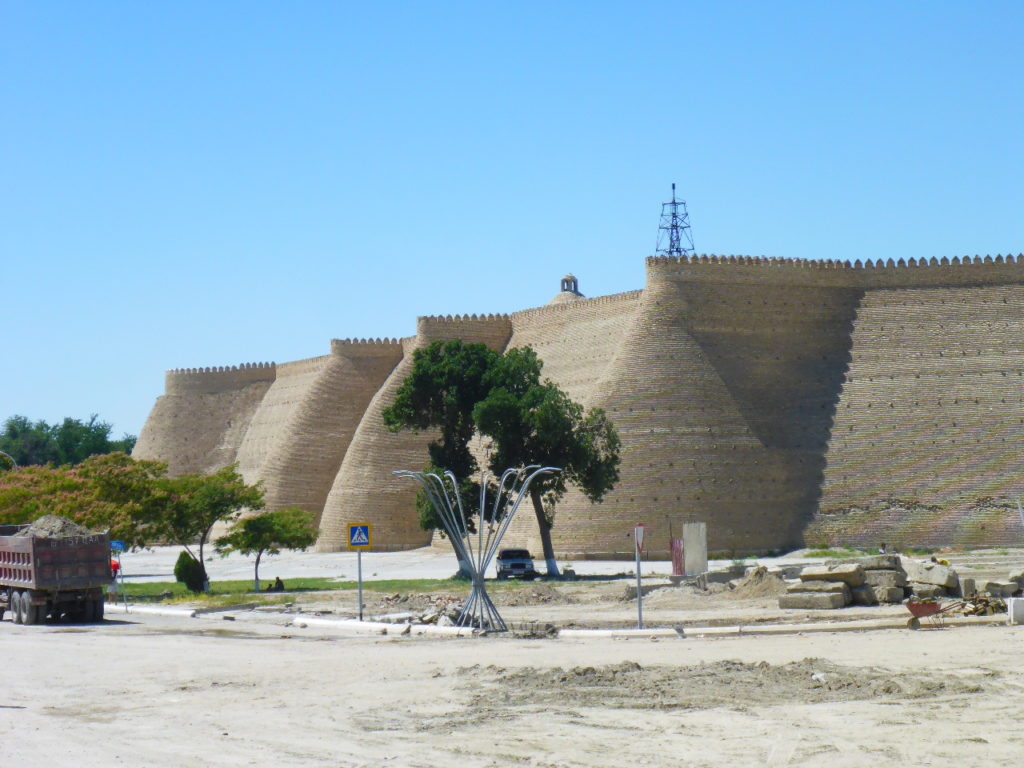

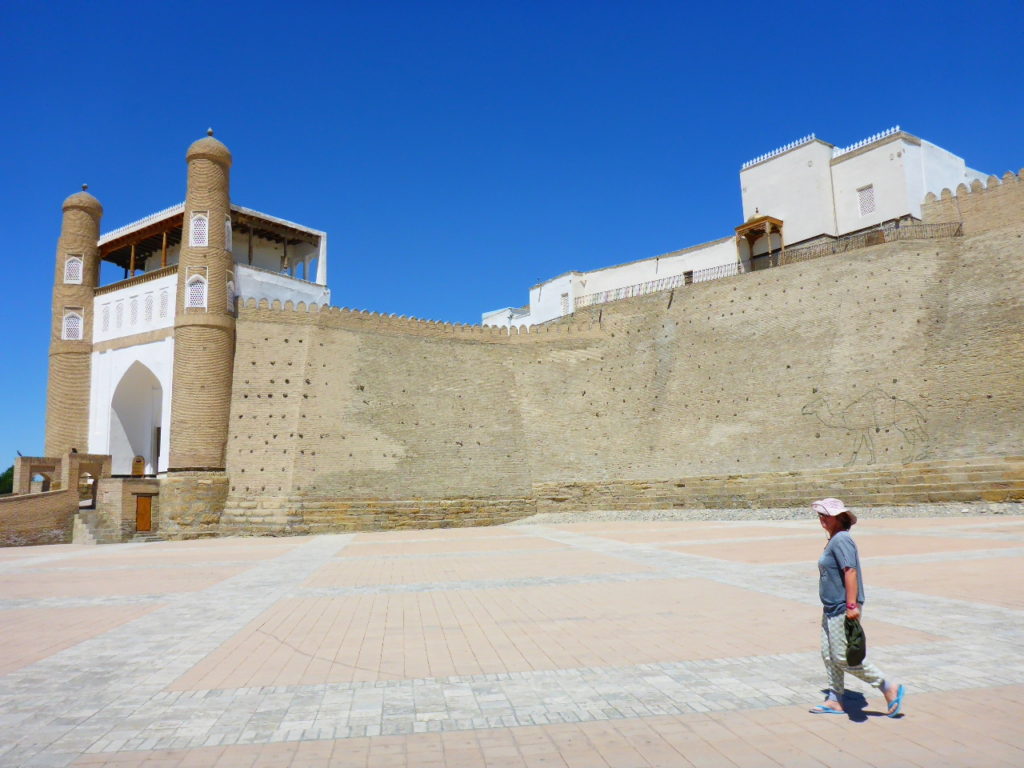
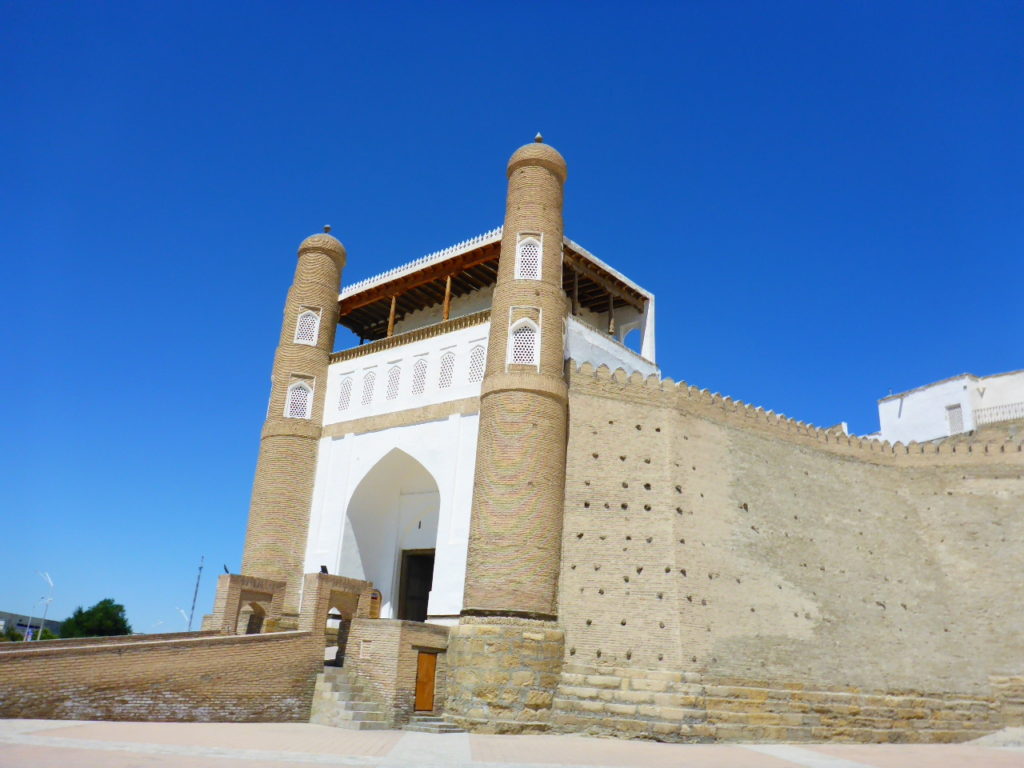
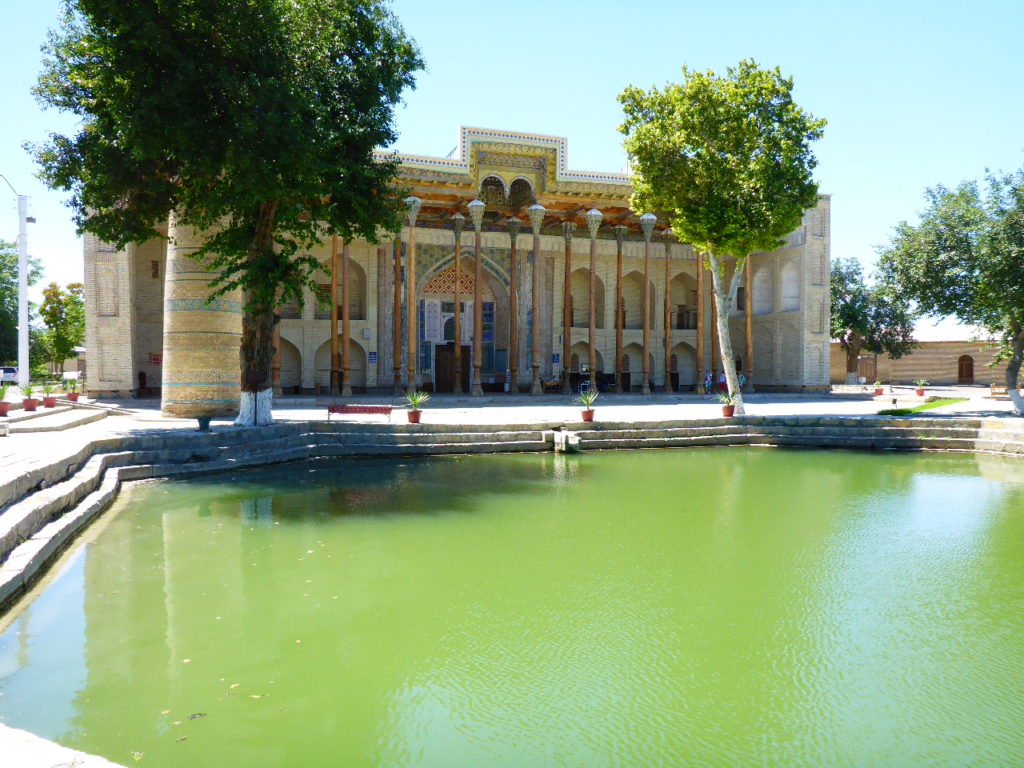
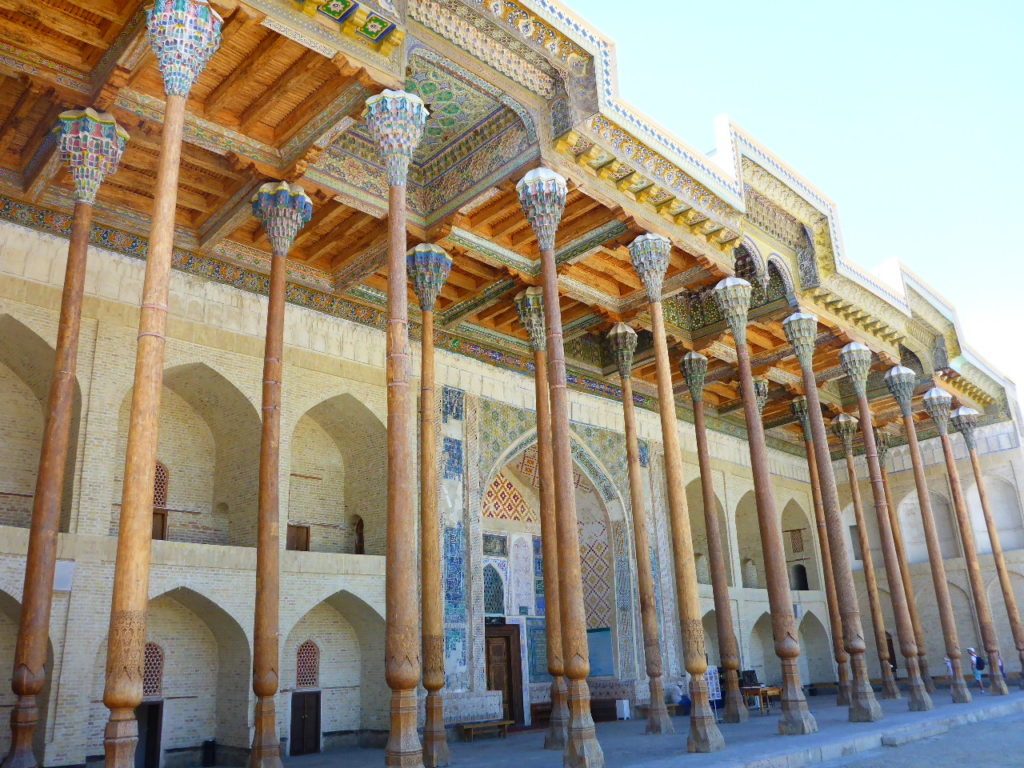
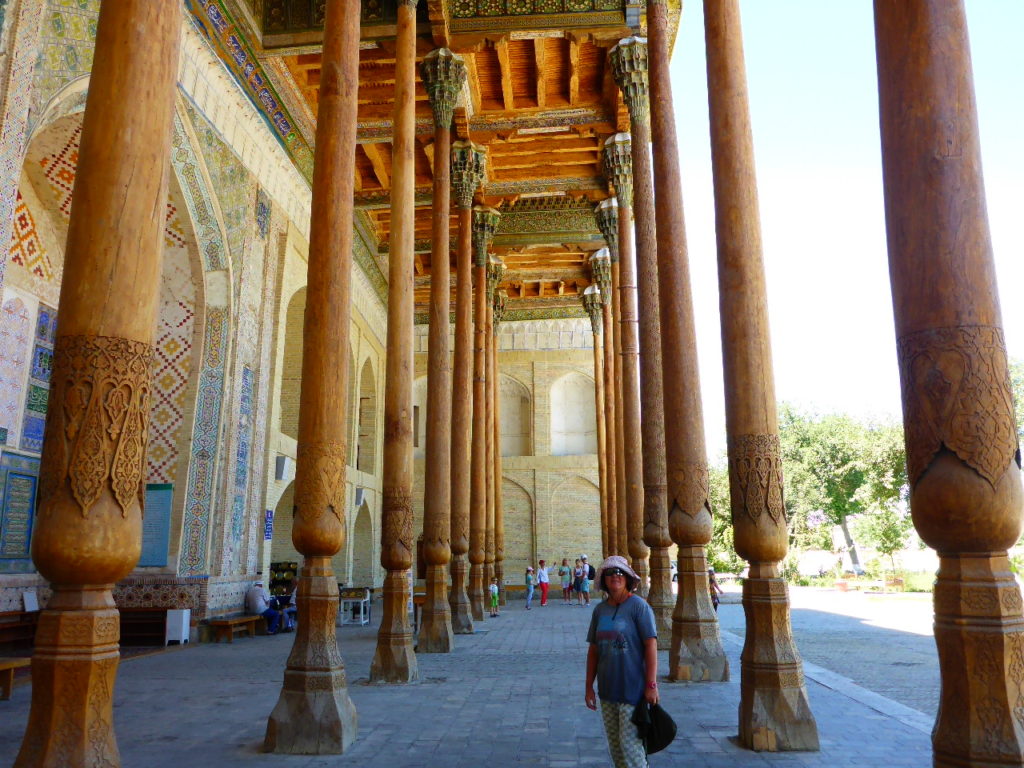
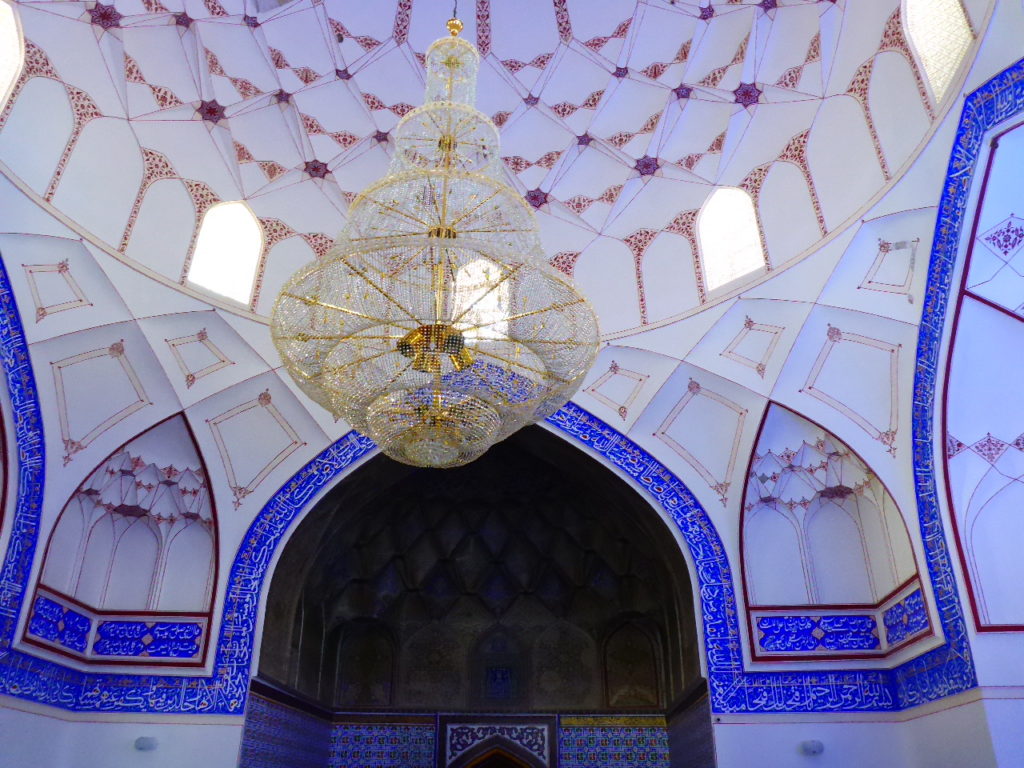
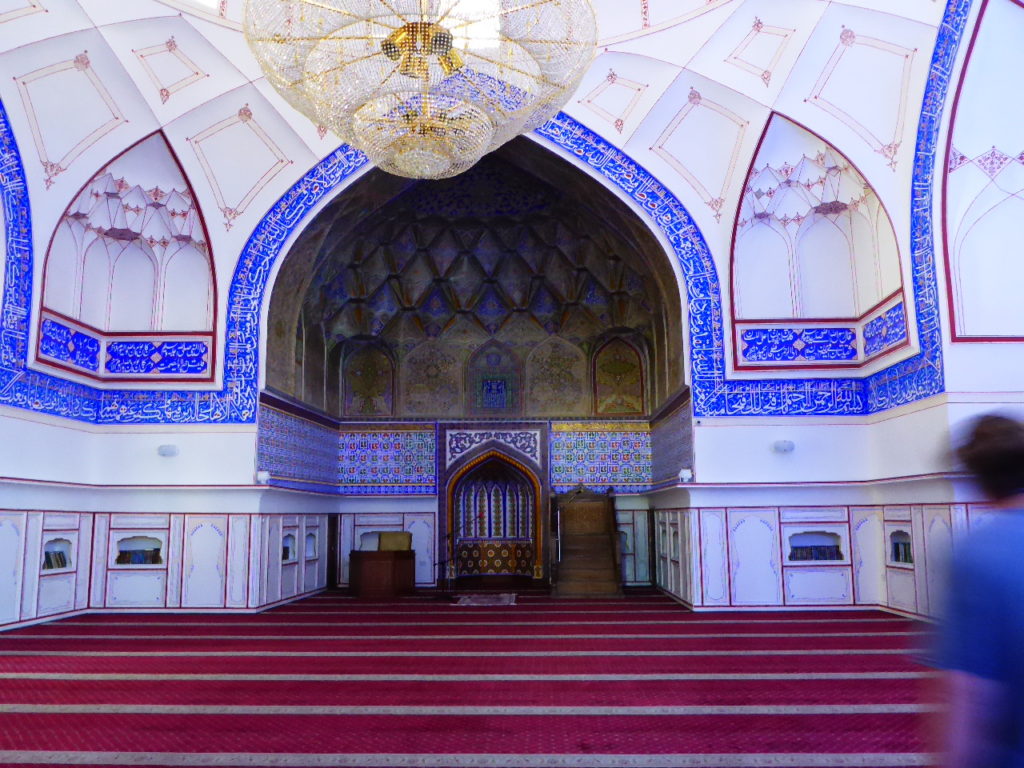
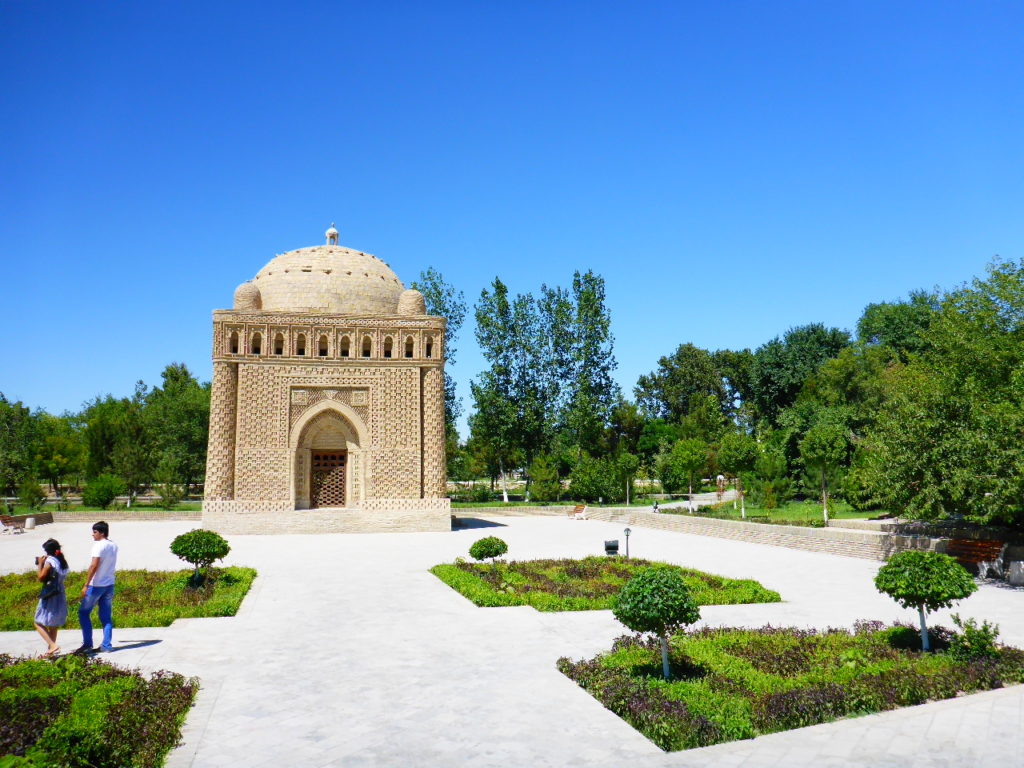
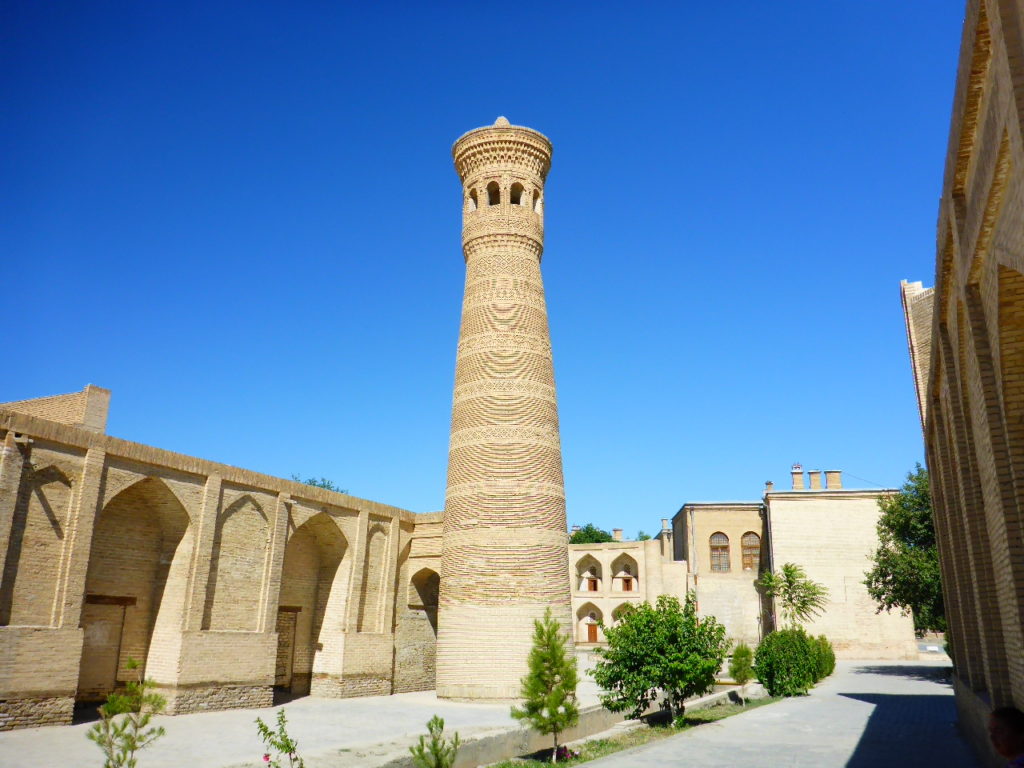
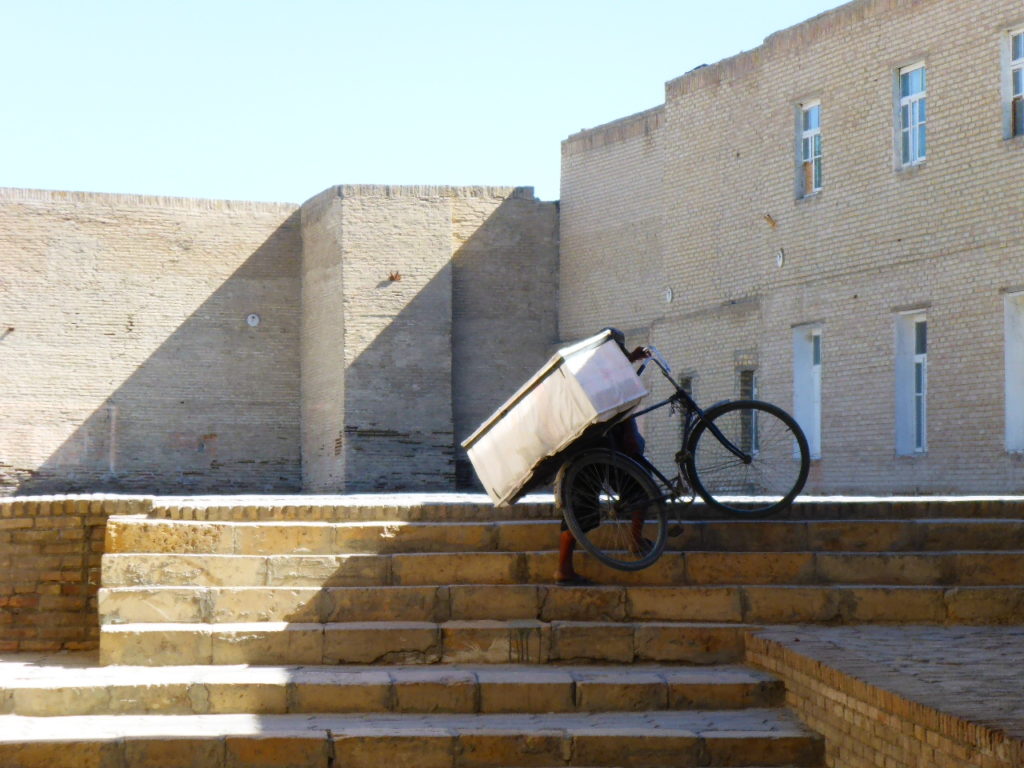
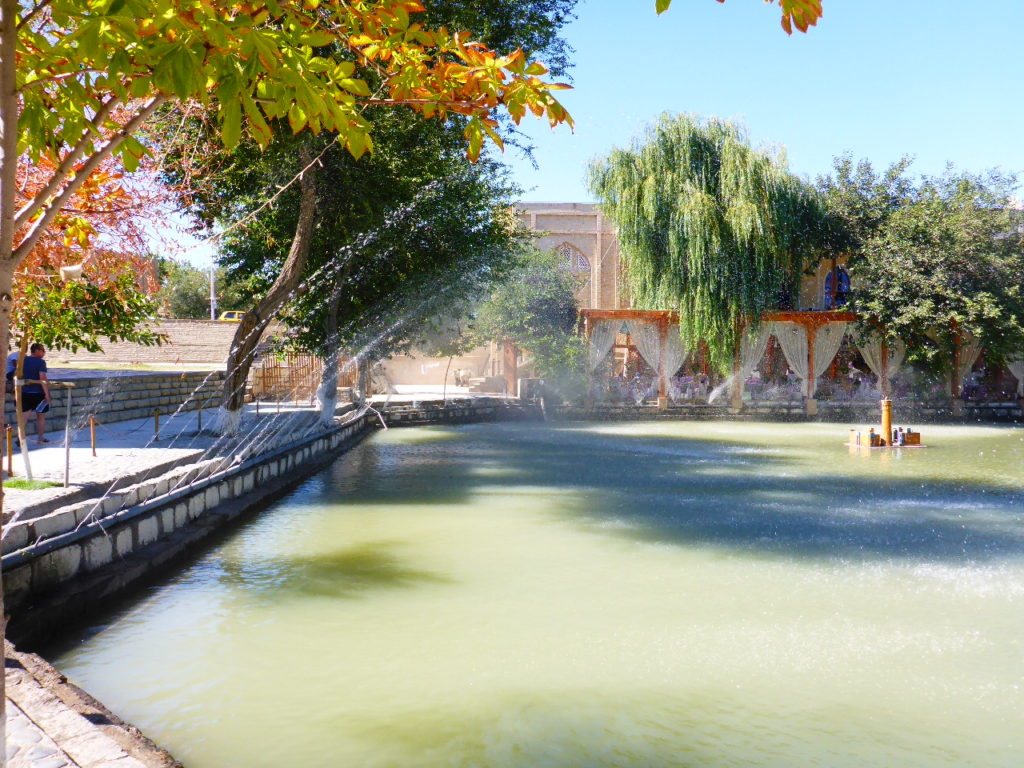
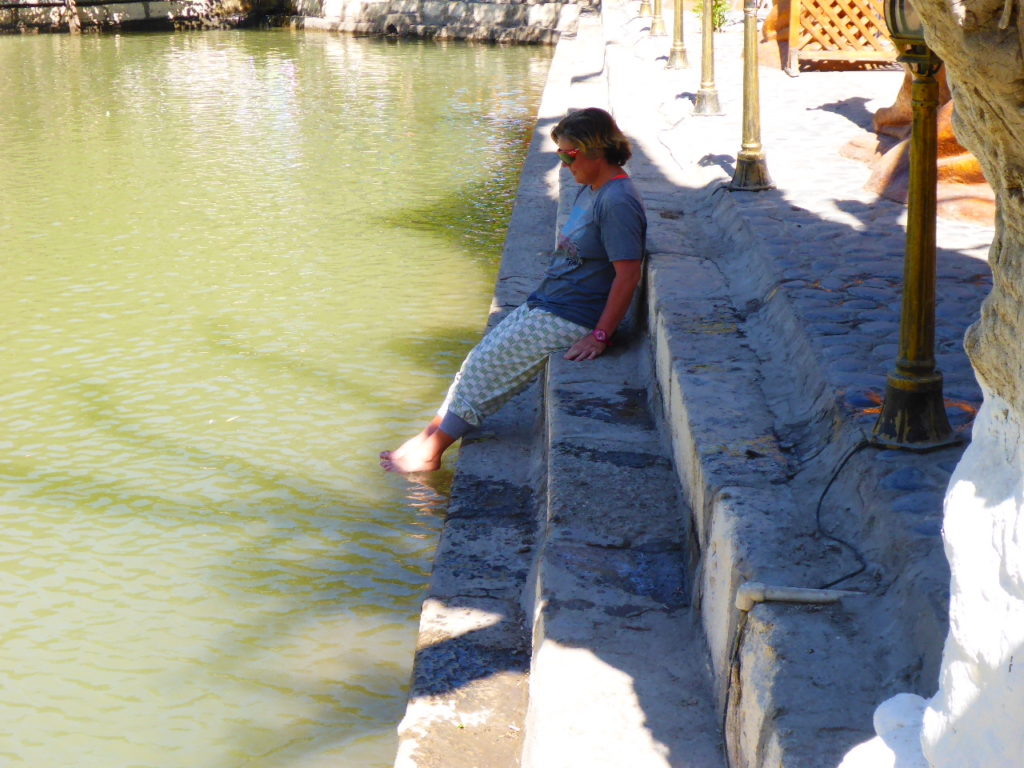
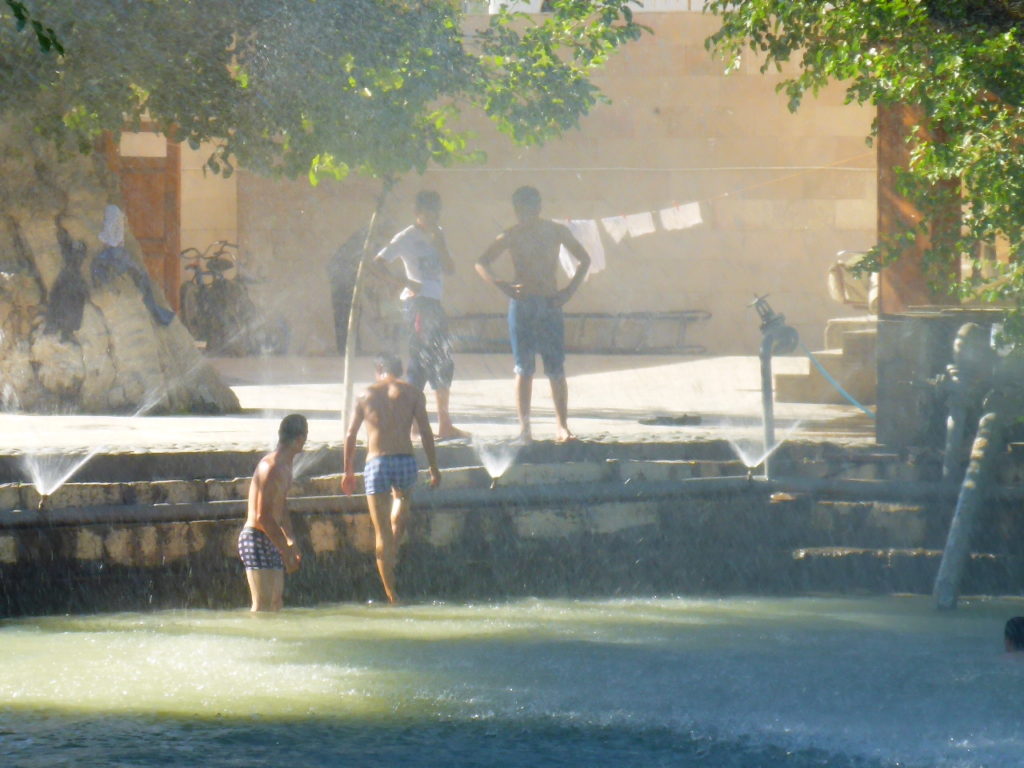
Until a century ago Bukhara was watered by a network of canals and some 200 stone pools where people gathered and gossiped, drank and washed. As the water wasn’t changed often, Bukhara was famous for plagues; the average 19th-century Bukharan is said to have died by the age of 32. The Bolsheviks modernised the system and drained the pools, although it’s most famous, Lyabi-Hauz, remains a cool, mulberry-tree shaded oasis at the heart of the city.
Friday 30th June – Bukhara to Qiziltepa
Distance: 59.61 km
Total Distance: 14436.3 km
A whistle stop tour of Bukhara (definitely worth the effort) yesterday followed by an evening of music, lights and many ladies in fancy dresses promenading around the central square.
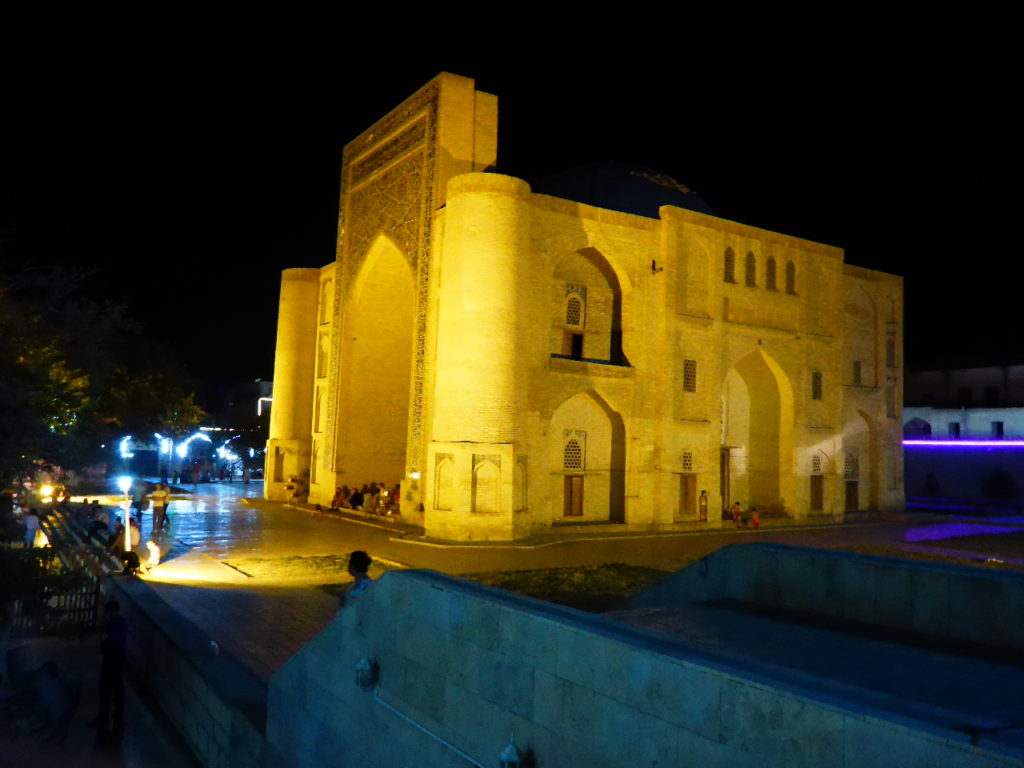
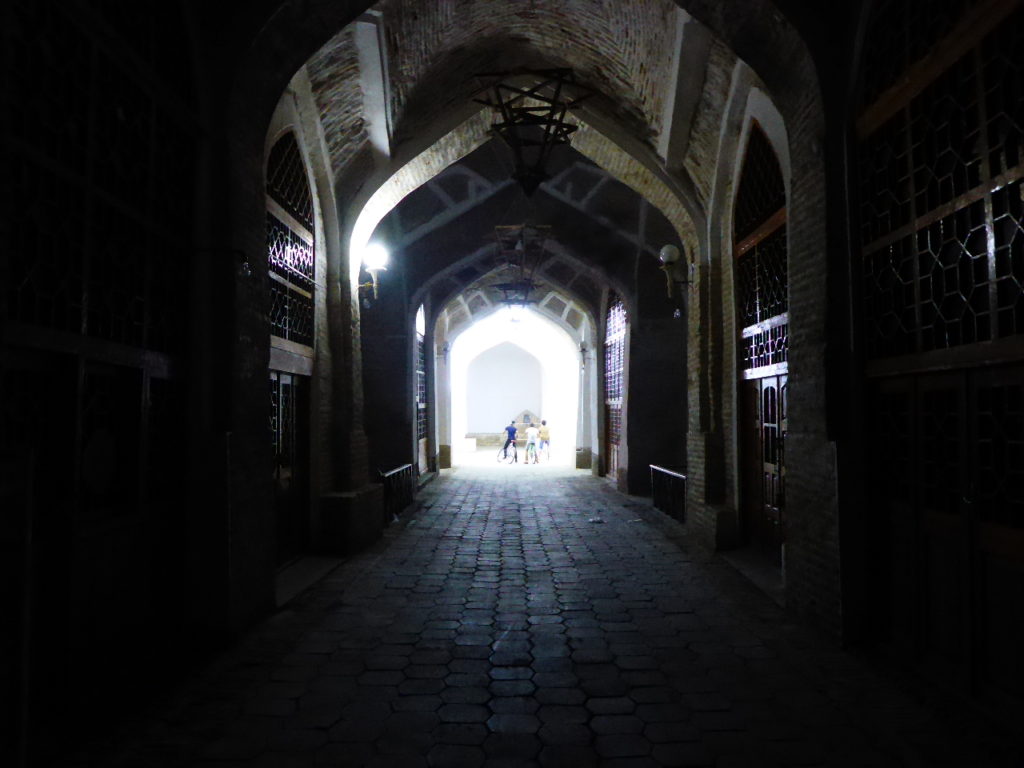
Very pleasant. Today we hit the road again. Cosmic balance dictates that since we cycled in the cool hours of the morning yesterday, today we must leave when it’s really hot. Actually it’s due to a laundry fuck-up. Our stinky clothes should have gone to the laundry fairy yesterday but the laundry fairy didn’t take them until 7am this morning so we have to wait until 12 for their return.
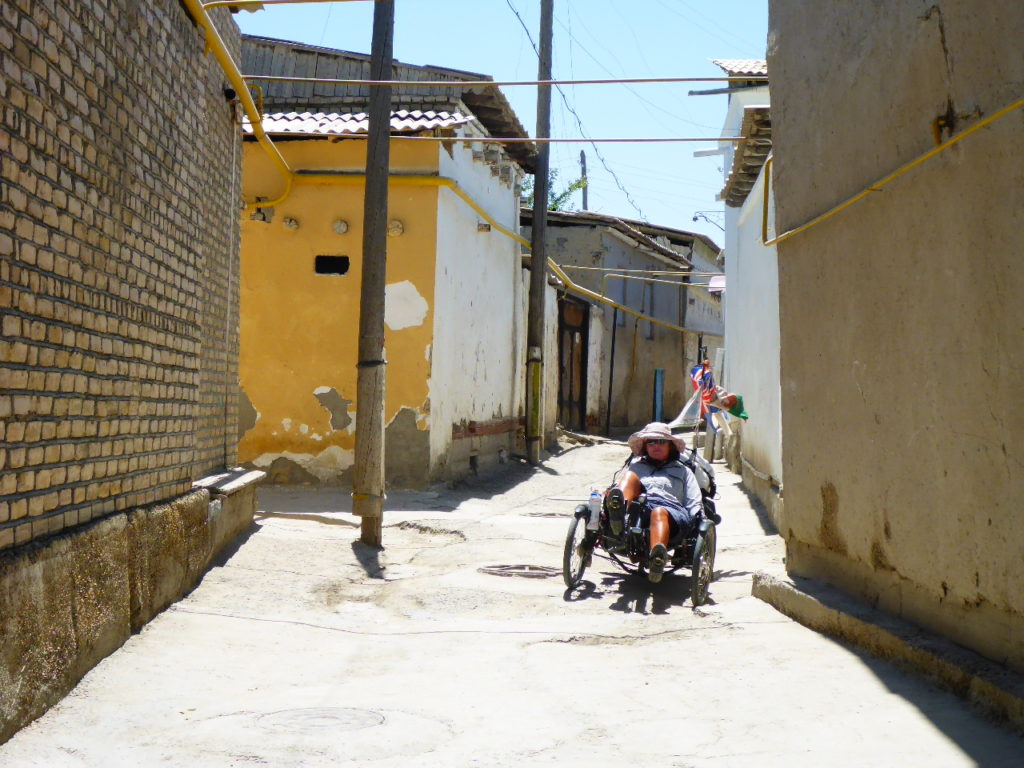
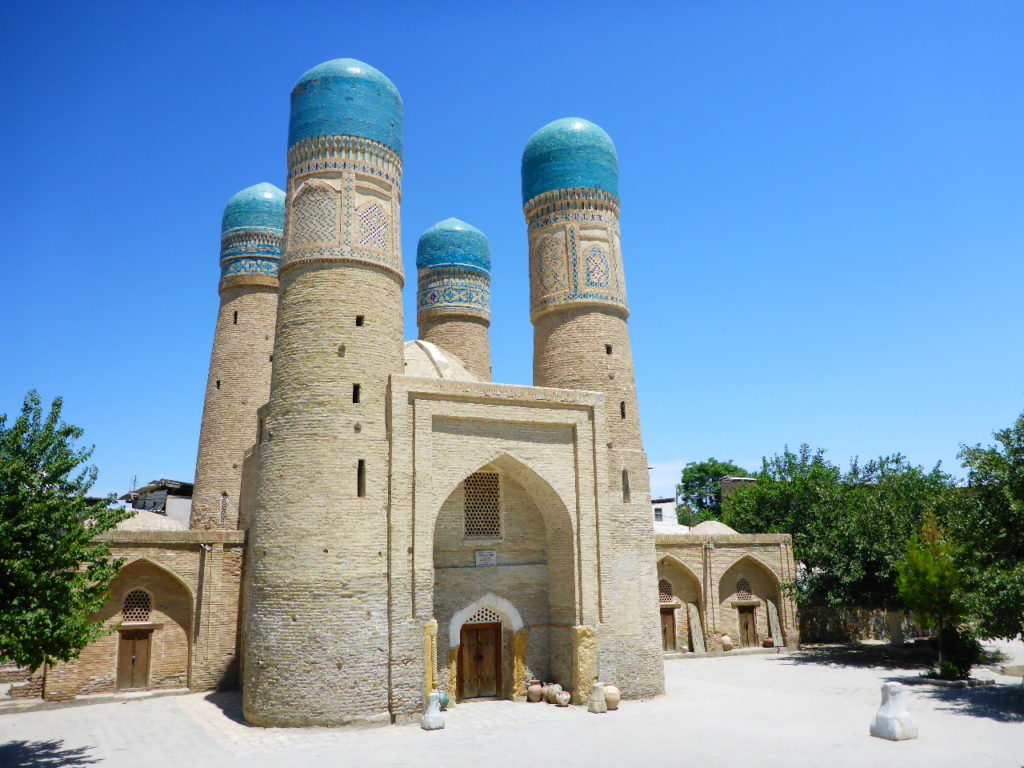
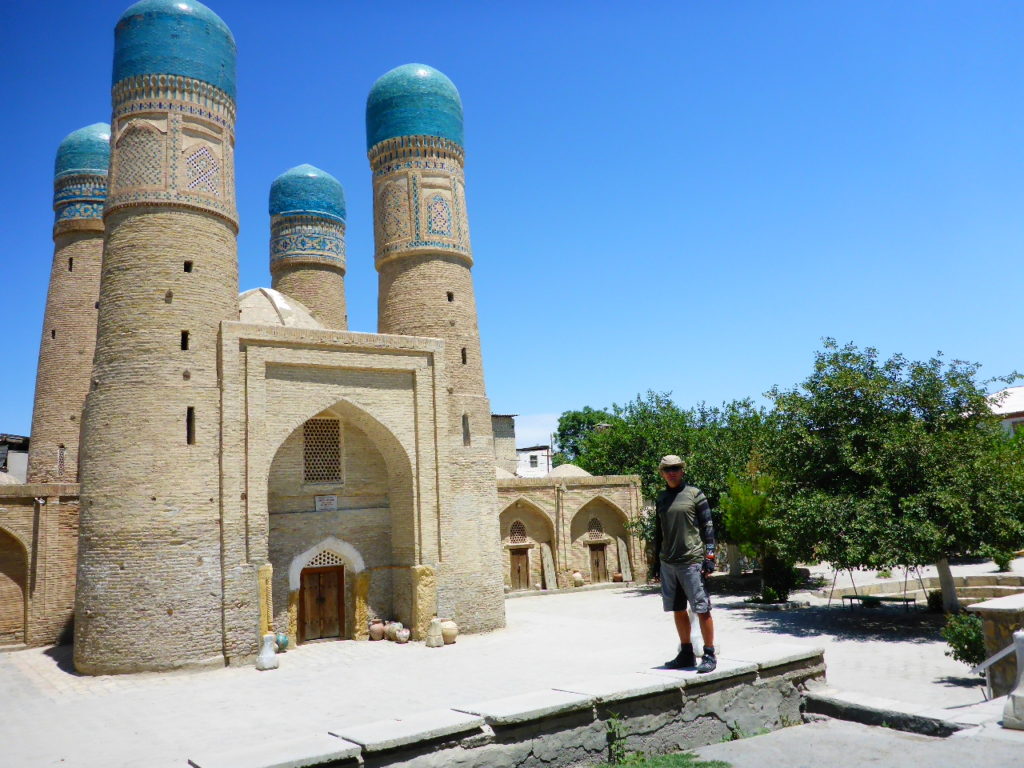
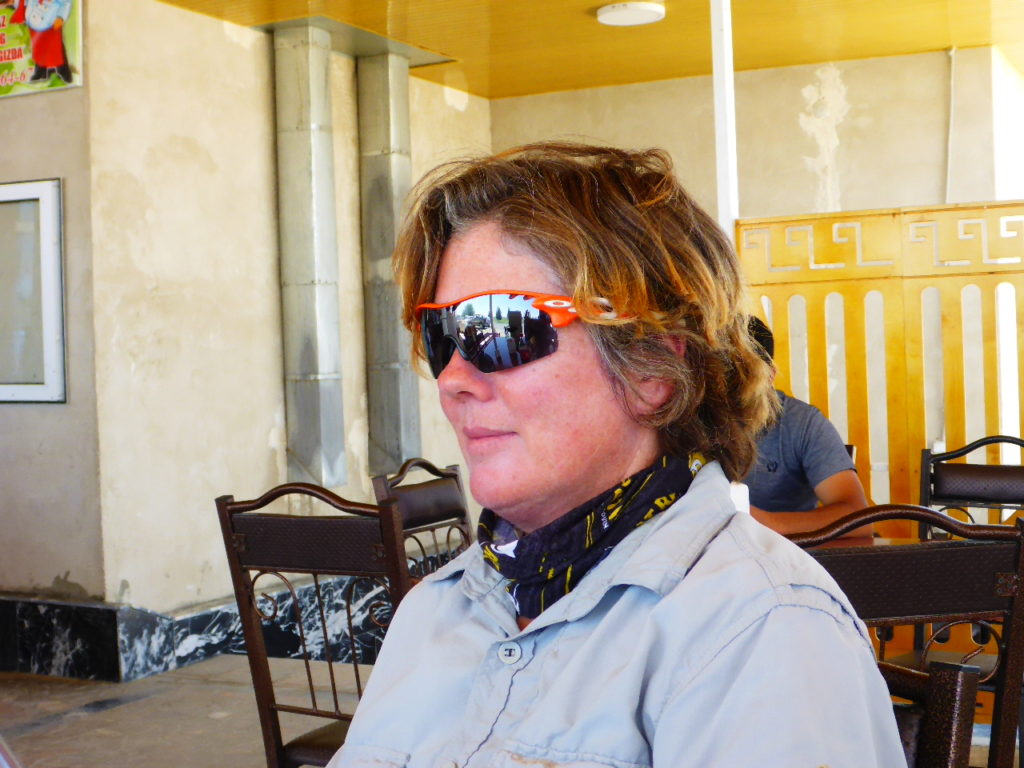
We need to head back to Navoiy but we’ve found a different route. We’re praying the road will be in good condition but the road fairy, like the laundry fairy is against us. The first 20km out of Bukhara is good quality tarmac and then the tarmac ends and we have gravel and potholes and more potholes and to add insult to injury a stiff head wind. At least we have plenty of opportunities to do our ‘bandit’ impressions as we pull our buffs over our nose and mouth in all the dust clouds created by the traffic.
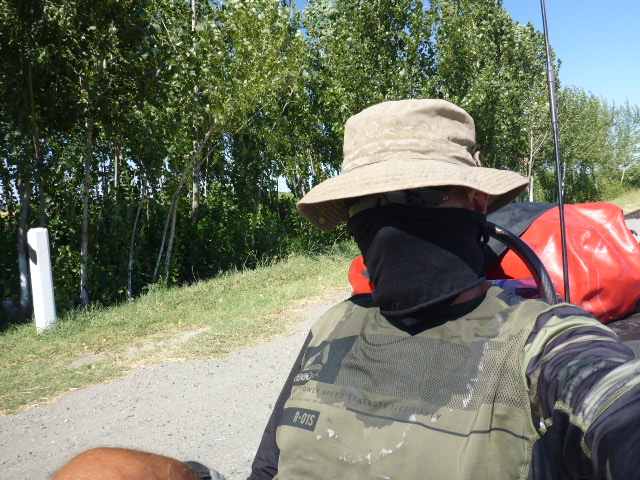
Despite the bad conditions it’s actually a pleasant ride with plenty of people waving, shouting greetings, taking photos and generally enjoying the bizarre spectacle of 2 Brits on trikes; cycling in the midday heat. What’s that saying about mad dogs and English men?????? About 4pm it hits 44.3 deg C.
A strange phenomenon in Uzbekistan is the plethora of petrol stations but strangely most are closed/ abandoned or dysfunctional – who knows which. But where there’s a working petrol station the queues are huge.
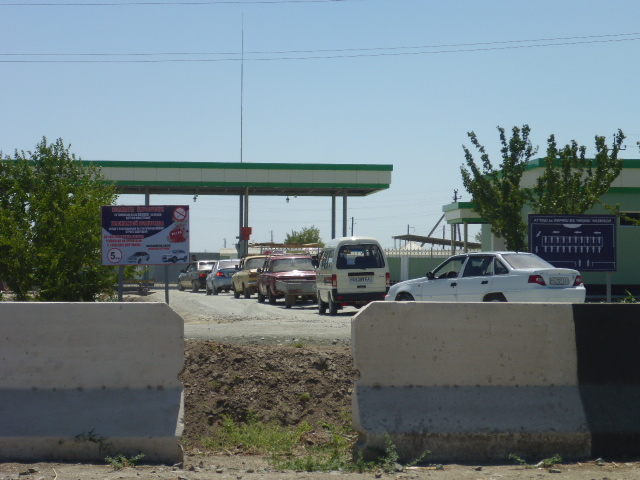
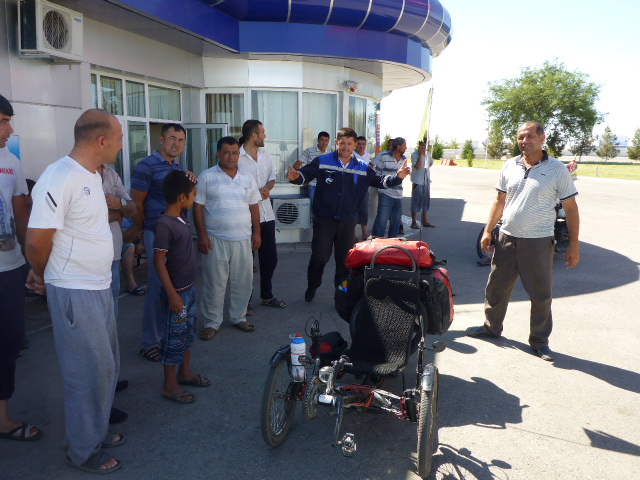
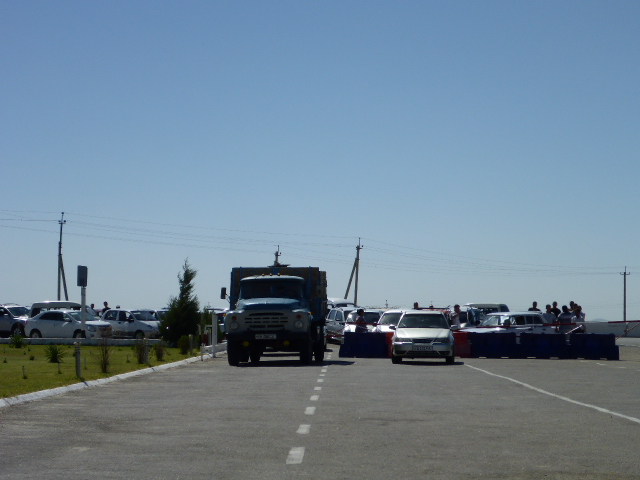
We’re nearing our destination and 2 young lads join us. (Just an aside. Cyclists in Uzbekistan are a common sight. Not leisure cyclists on top of the range racing or mountain bikes but the locals using bikes as their main mode of transport. Often they have their wife side saddle on the back rack, or children on the cross bar, or carrying considerable unwieldy loads, corn etc. In the UK these bikes would be relegated to the local scrapheap. They have bald tyres, buckled wheels, no brakes or gears and issue squeaks, rattles and grating noises. But these guys don’t use the road, they stick to the ‘hard shoulder’ – a mass of thick sand or stones, considerably worse than the horrendous roads!) Anyway these 2 lads are cycling beside us on the hard shoulder and to be honest I’m bored of taking the head wind so I swap with the taller of the lads. 20km later……no I’m kidding.
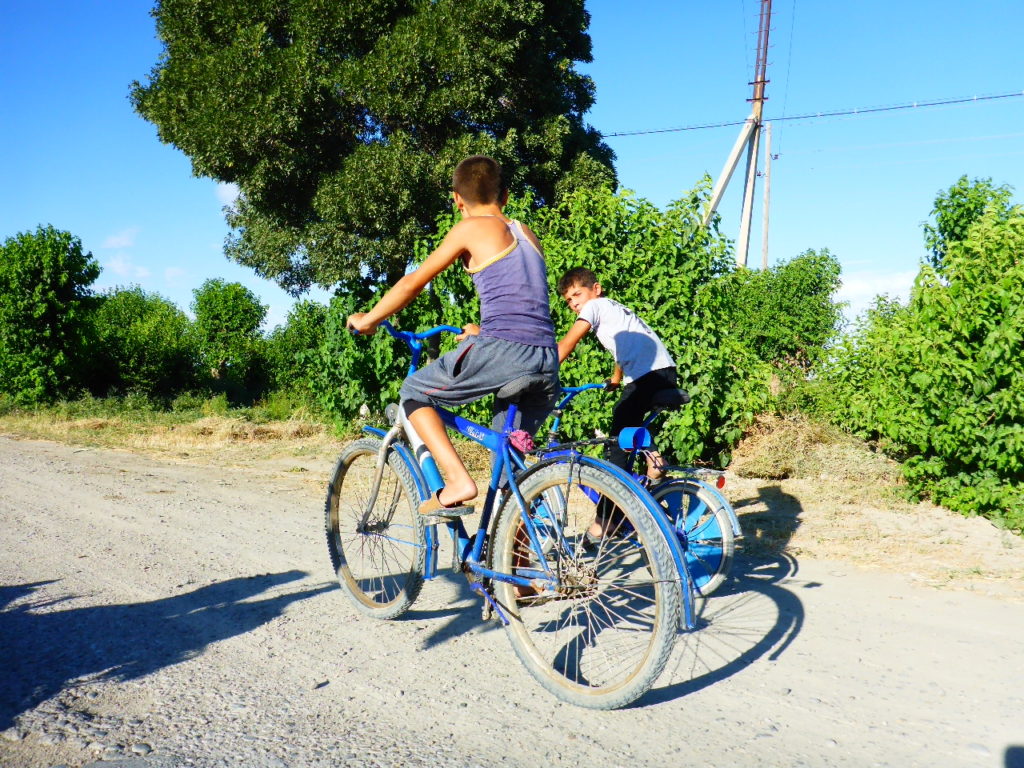
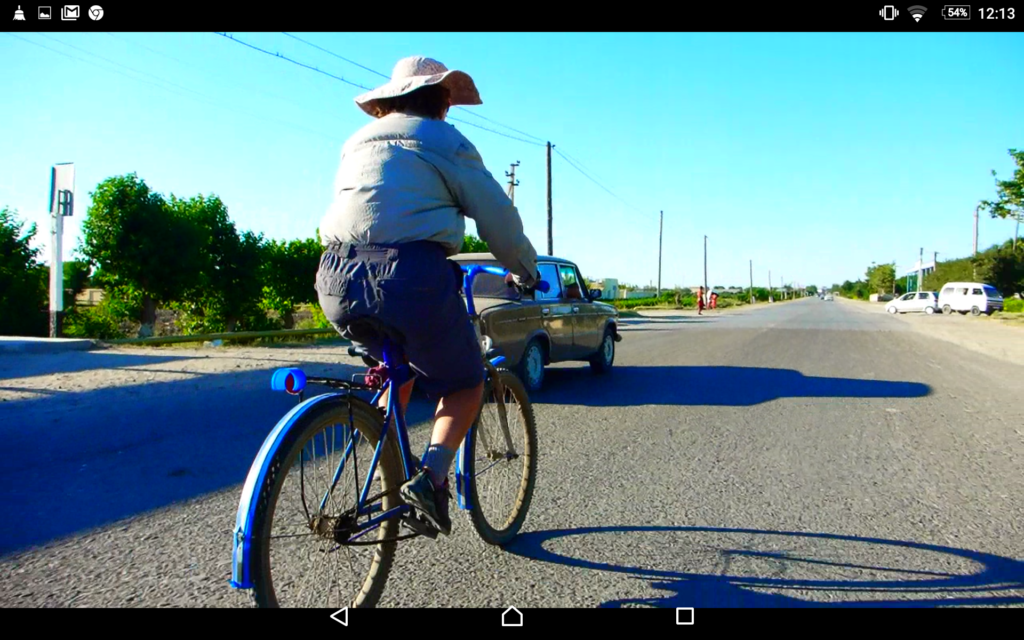
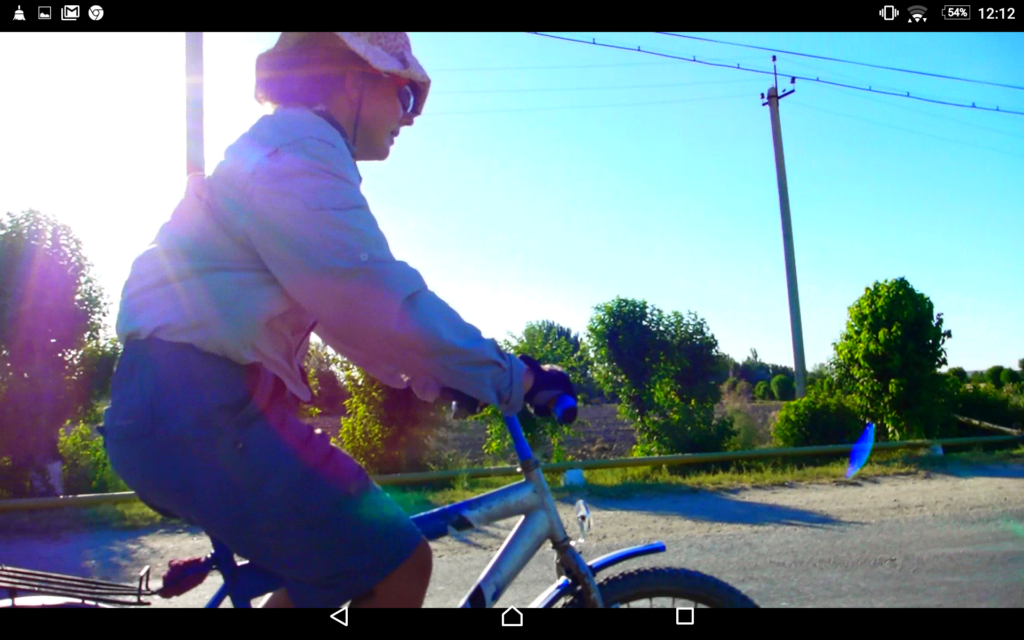
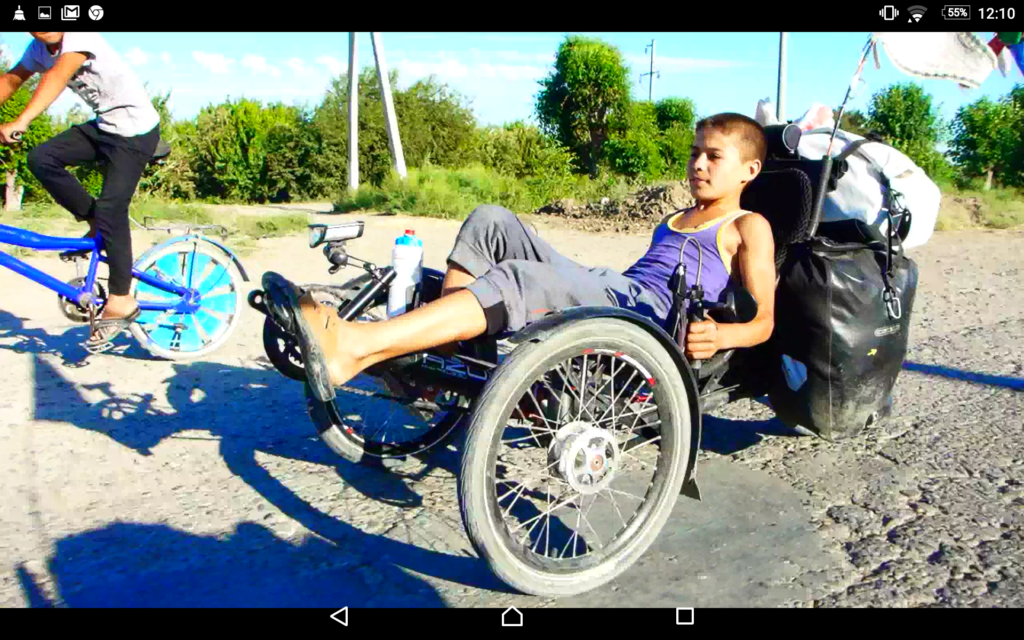
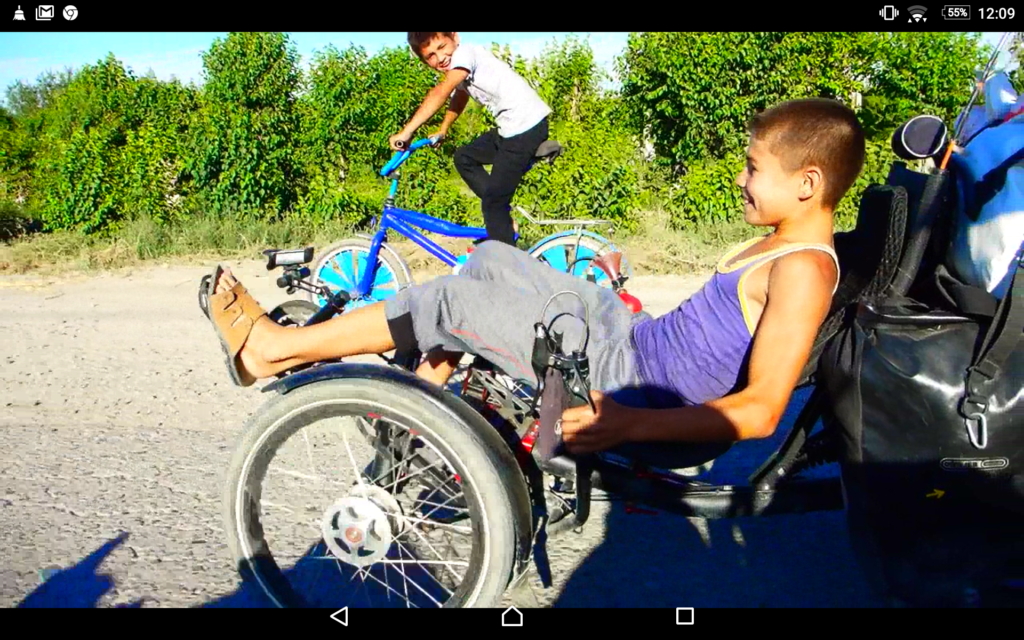
But he did do a couple of kilometers for me and I got to ride his bike with no gears, no brakes and handlebars that slid into a new position if I lent on them too much. Sadly the other lad was just too short even for my trike. An entertaining interlude and not long after we arrive in Qiziltepa and return to our camping spot of 2 nights ago.
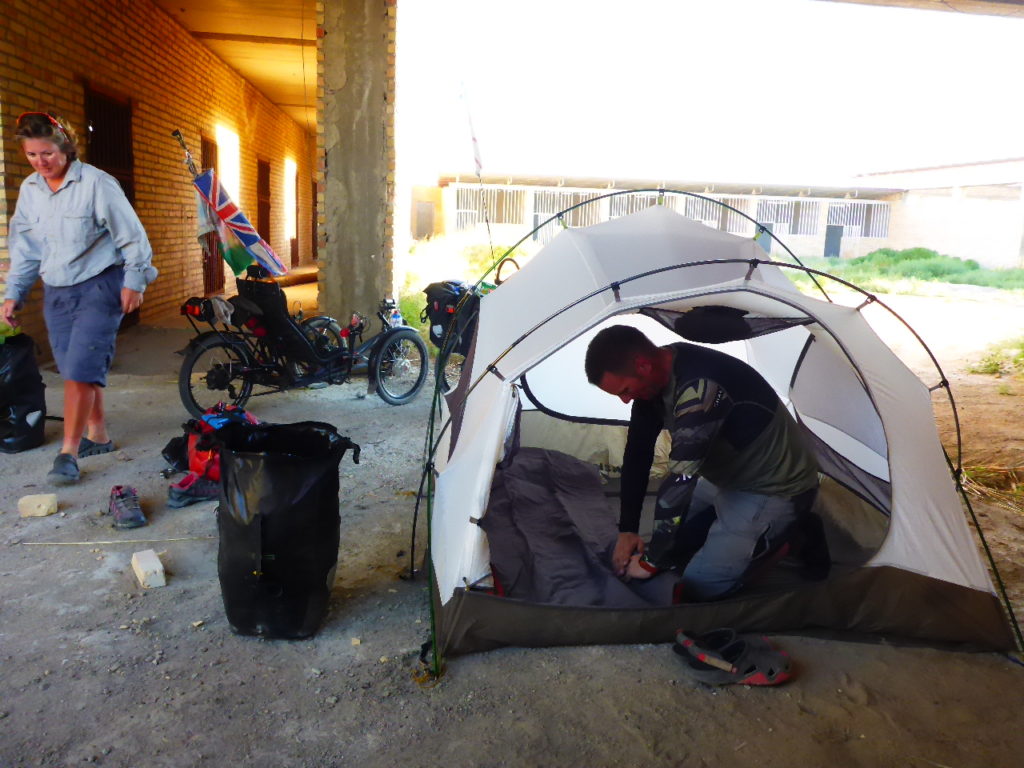
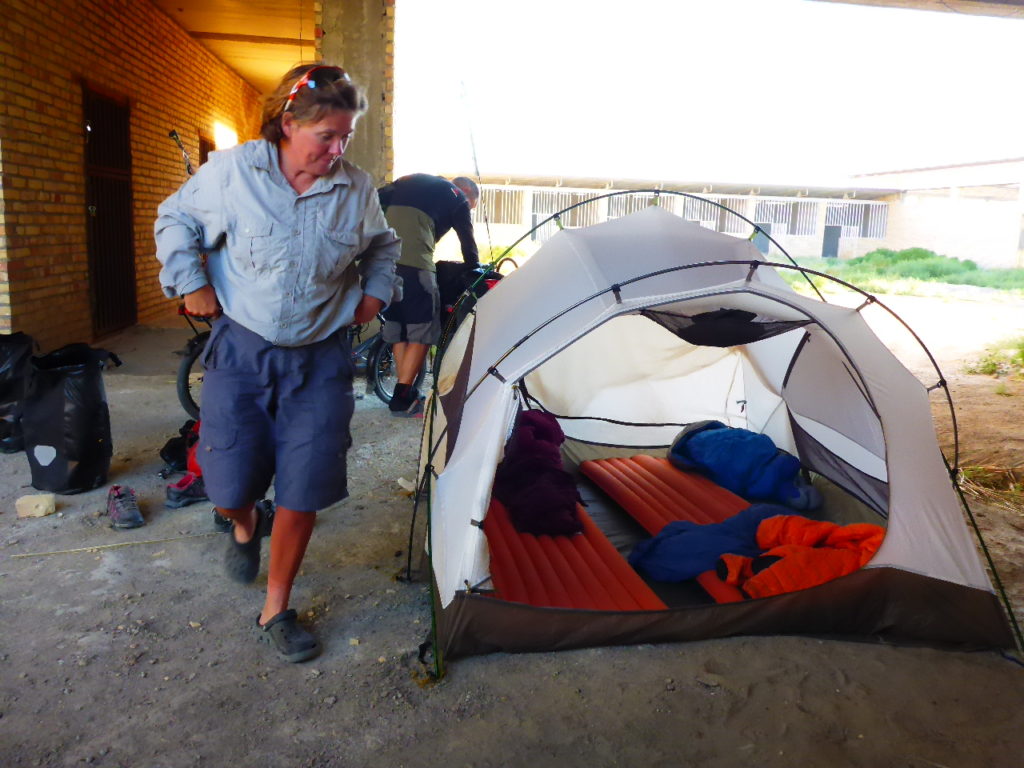
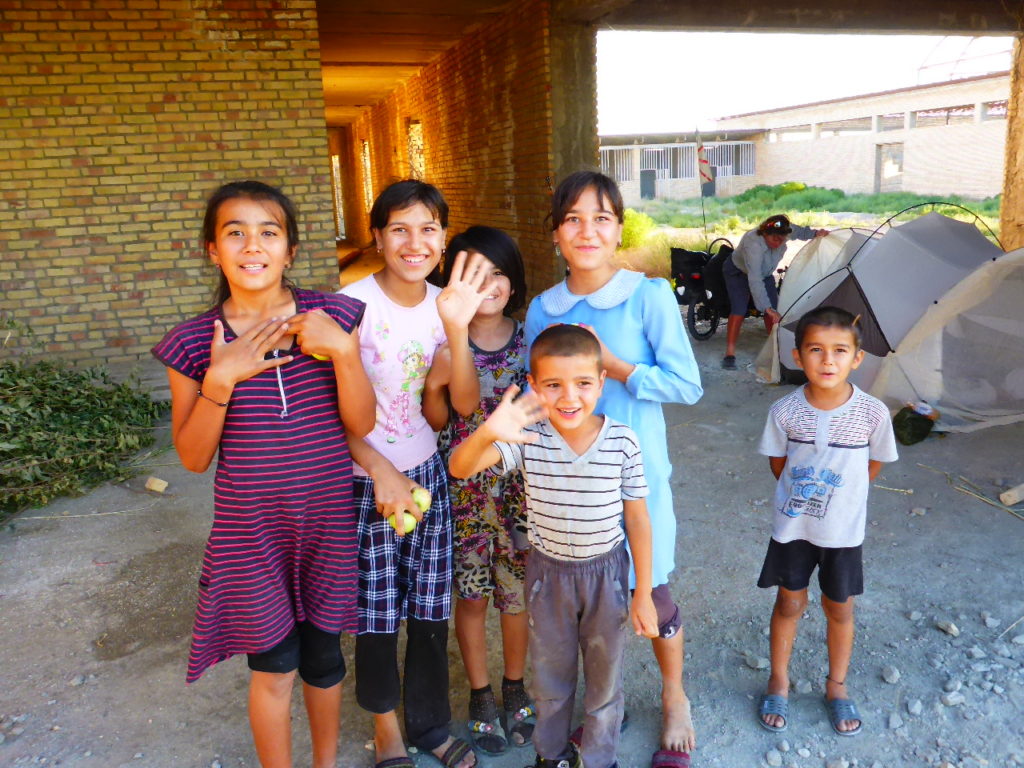
It’s already 7.30pm, so a bite to eat, a cup of tea, a wash and bed.
Saturday 1st July – Qiziltepa to Navoiy
Distance: 61.68 km
Total Distance: 14497.98 km
Today we implement our cunning plan. More cunning than a cunning thing! We start with a 4am reveille. It was at this point the plan almost failed on first contact (with me). OMG what’s that noise? An alarm? But it’s still dark! However, since it was my plan I had little choice than pretend I was game. So up we got, packed, cup of tea, a bite to eat and on the road for 4.45am. Still dark so bike lights required.
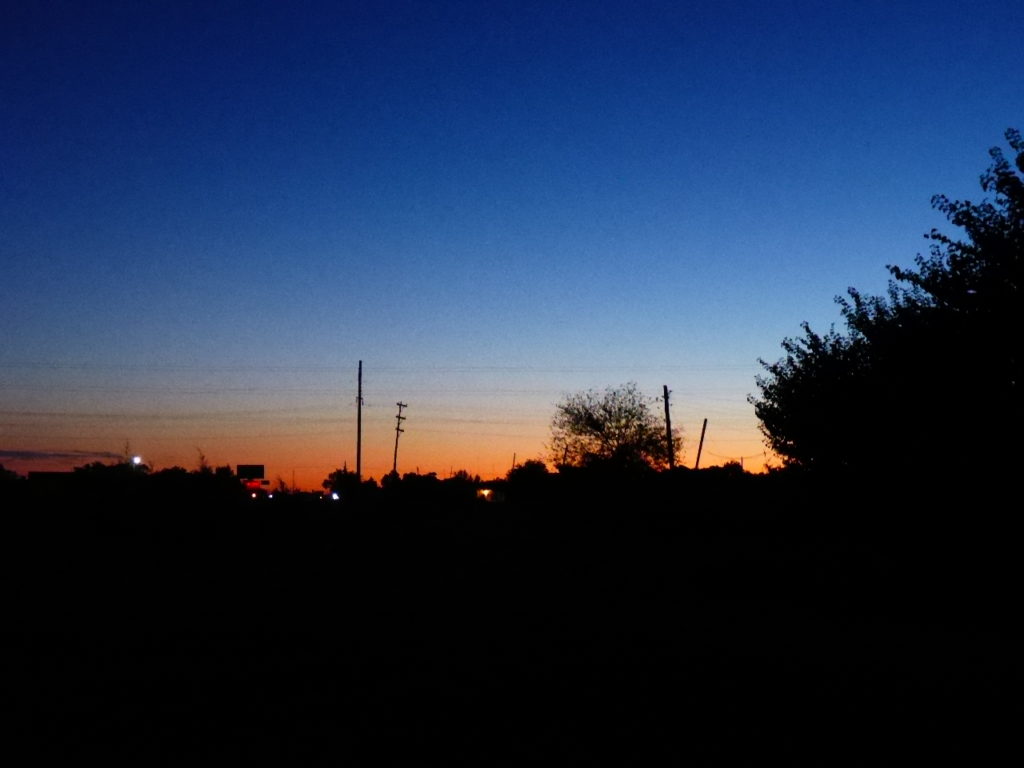
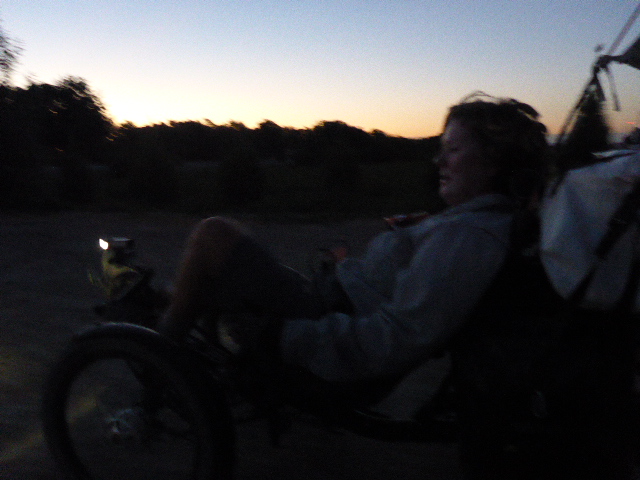
We cycled through the village of Qiziltepa, which even at this hour was already busy. People walking to the market with a sheep or a cow on a twine lead beside them. We stopped on a flyover to watch sunrise, joined by 2 ladies and had a photo session.
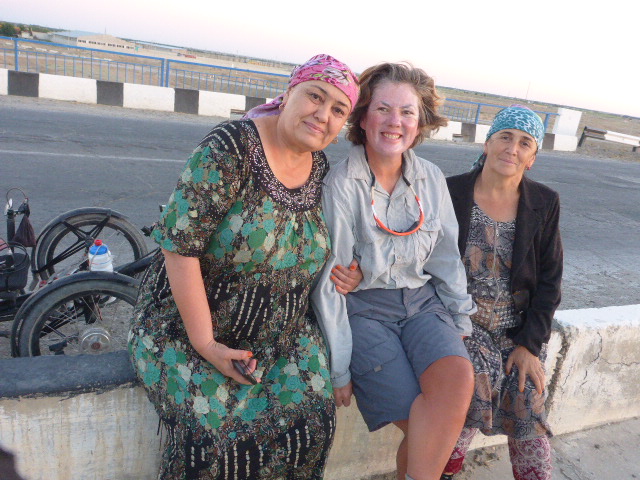
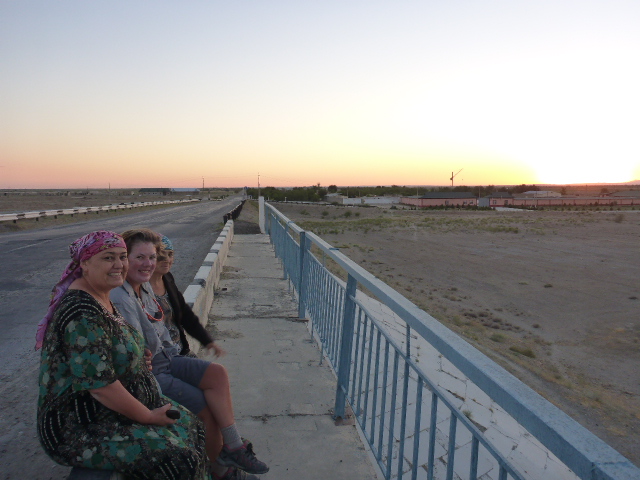
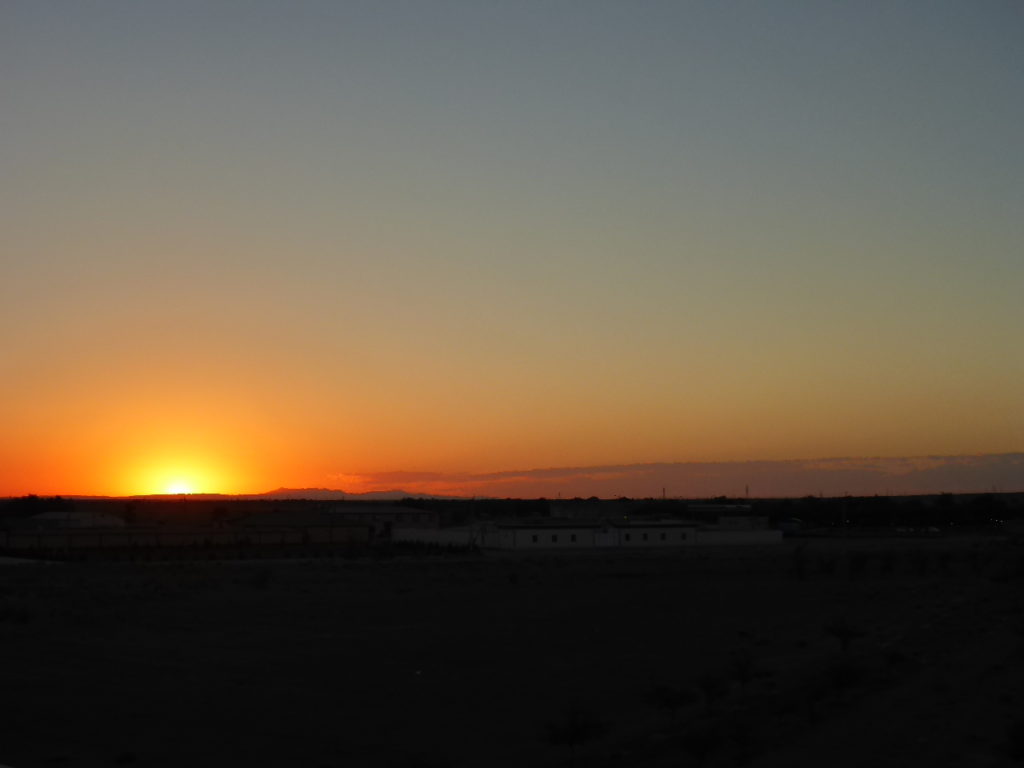
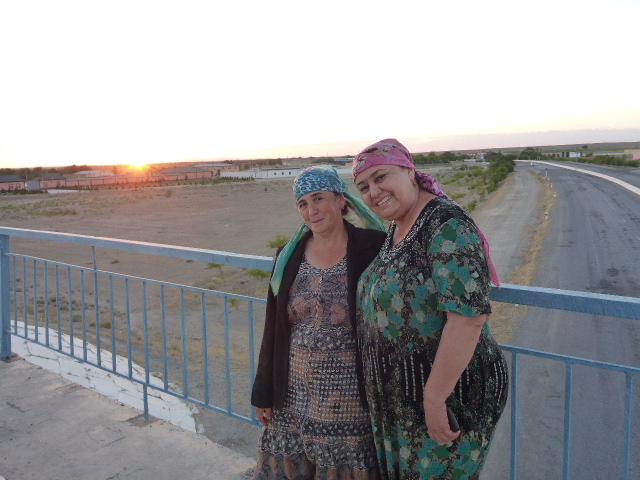
Then we took the back road to Navoiy despite several locals suggesting it was a bad route choice. Bizarrely the road, although marked as a more minor road than yesterday’s, was in far better condition.
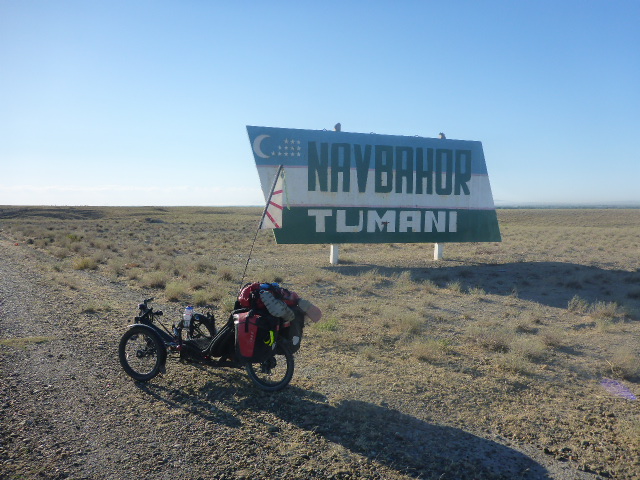
We cycled through several villages and above a river valley so we saw more birds, wildlife, people and greenery than usual. At 8.30am we decided to stop and refuel and conveniently found ourselves in the village of Kanimekh. There was loud music coming from the village hall and people everywhere.
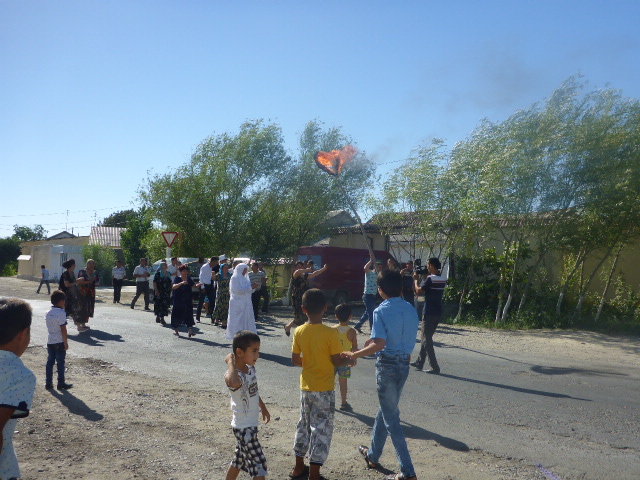
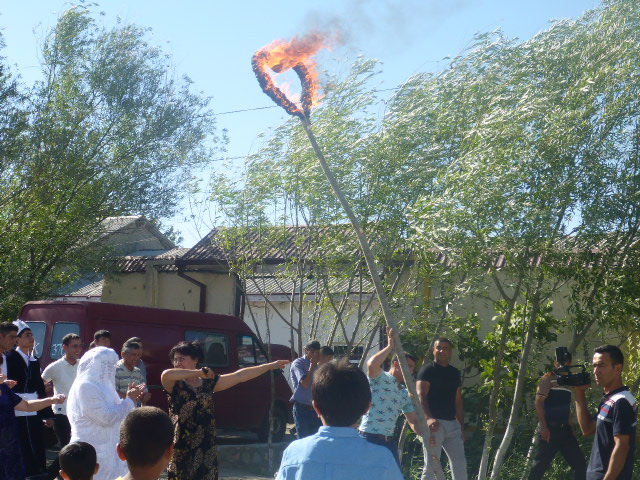
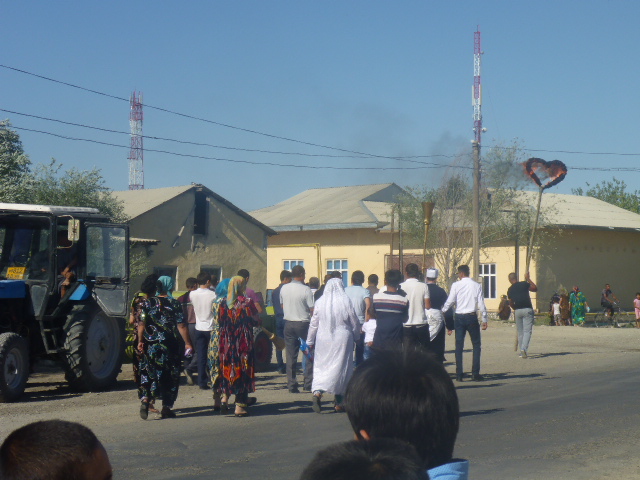
We were dragged inside where some sort of celebration was in progress. What followed was the supermarket sweep equivalent of a party invite. We were dragged to a table and then mountains of food were placed in front of us (plov, salads, meats and cheese, nougart and cakes). And then more and more food. Drinks ; they gave us orangeade, coke, tea and vodka all poured into different glasses and placed amongst the mass of food.
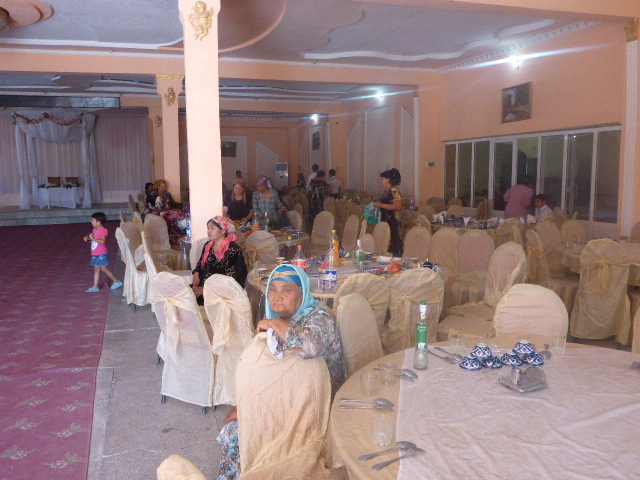
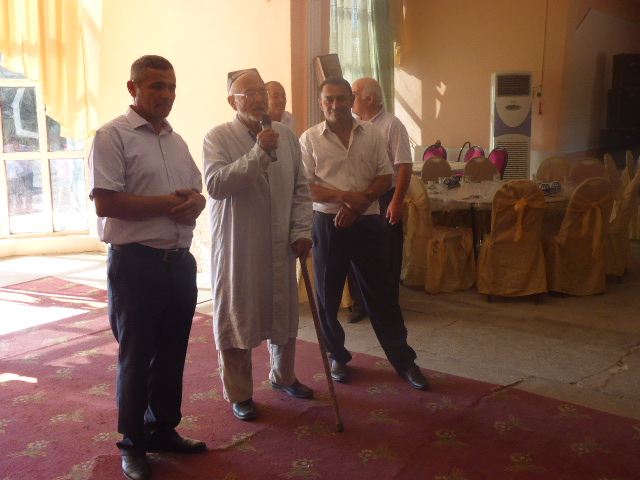
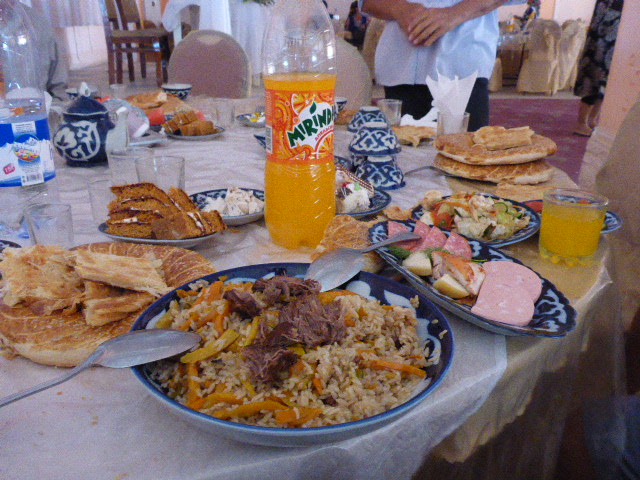
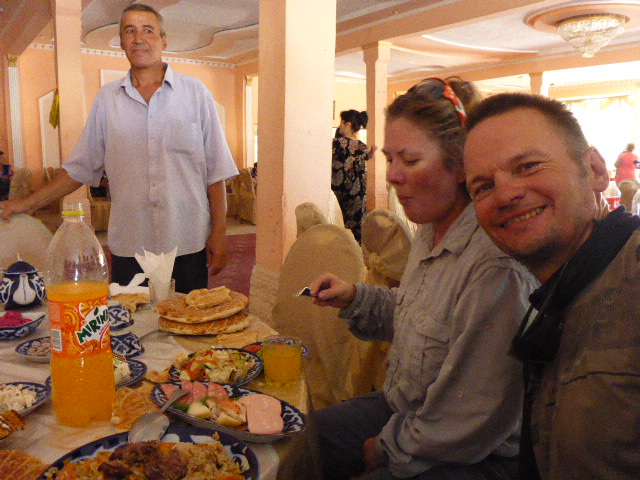
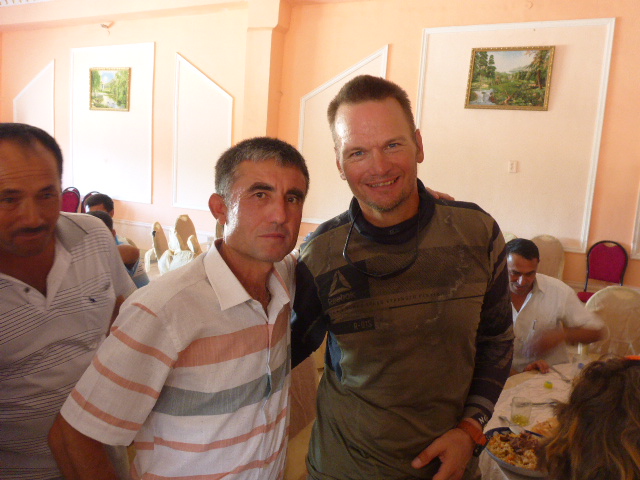
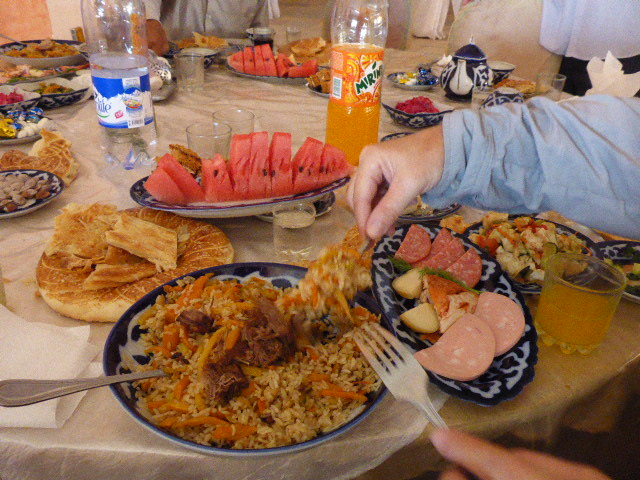
They wanted to talk to us, take photos but wanted us to eat and drink at the same time. Whilst this is going on there’s singing and a large group of men dancing. We try to work out what it’s all about, but just get given one word, “svadba!” I noticed that most of the guests had left and our hosts decided we should leave too. The whole incident probably took less than 15 minutes.
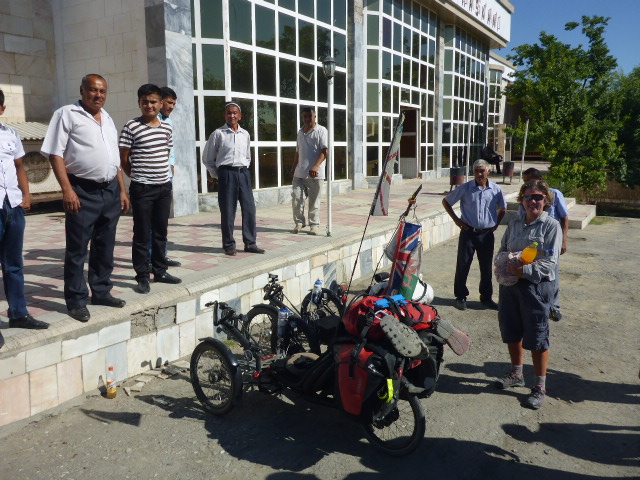
Probably just as well because had we been required to down anymore vodka shots (V large) we’d have been falling off our trikes. Back on the road and we hit our destination, Navoiy.
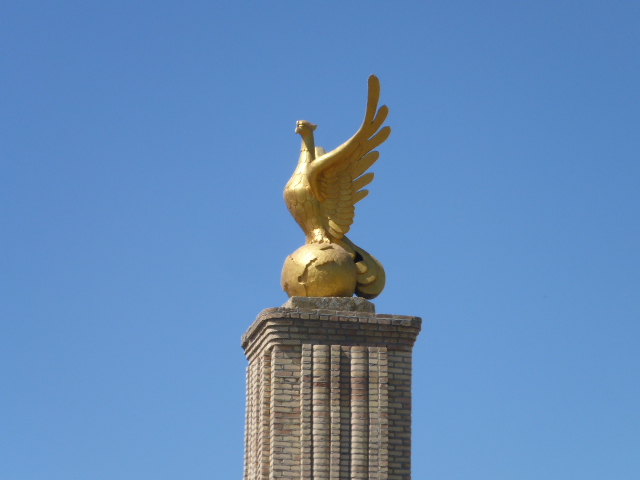
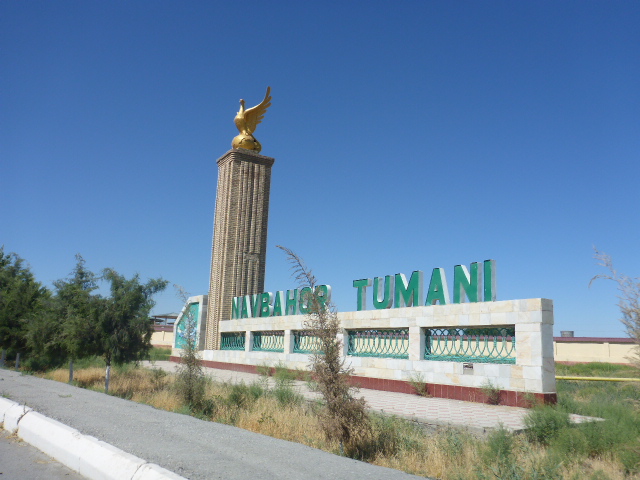
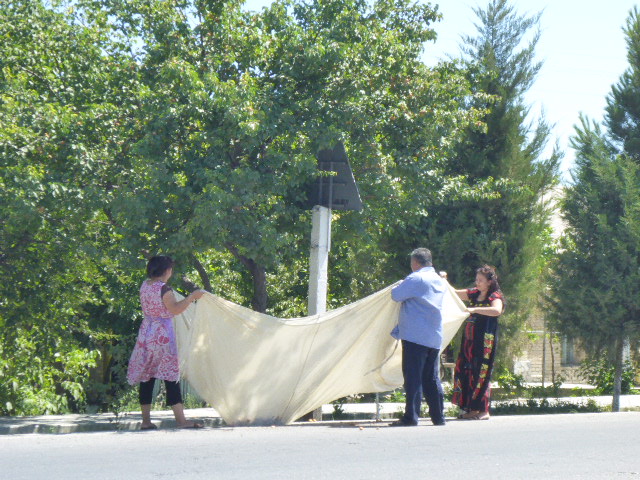
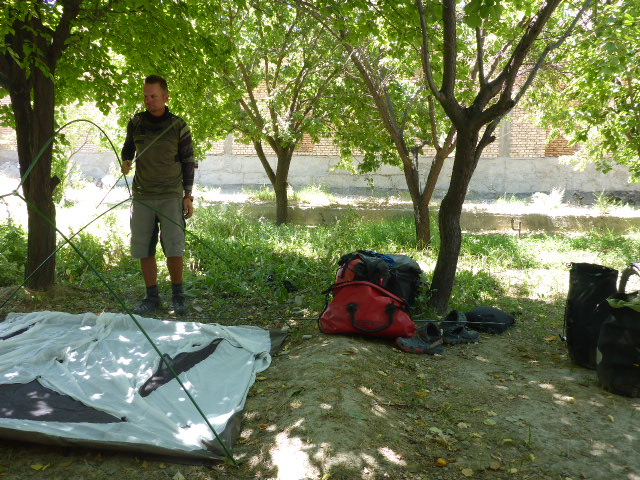
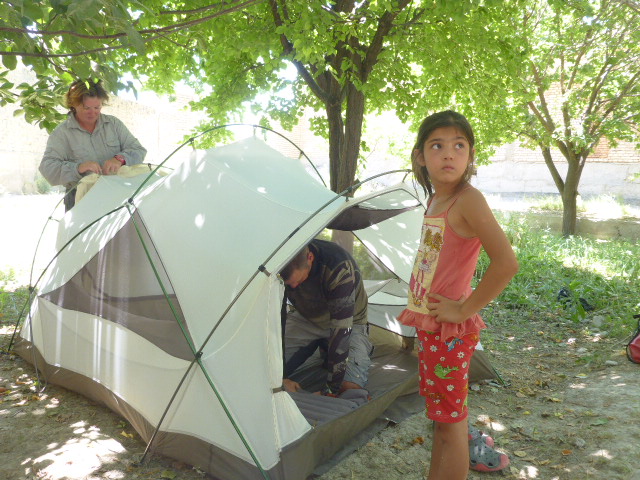
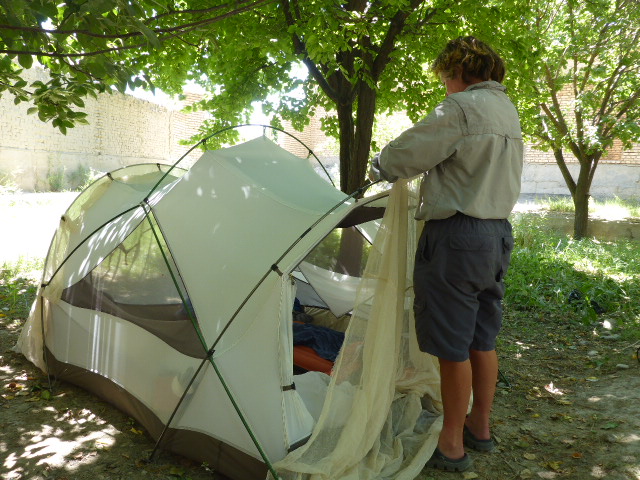
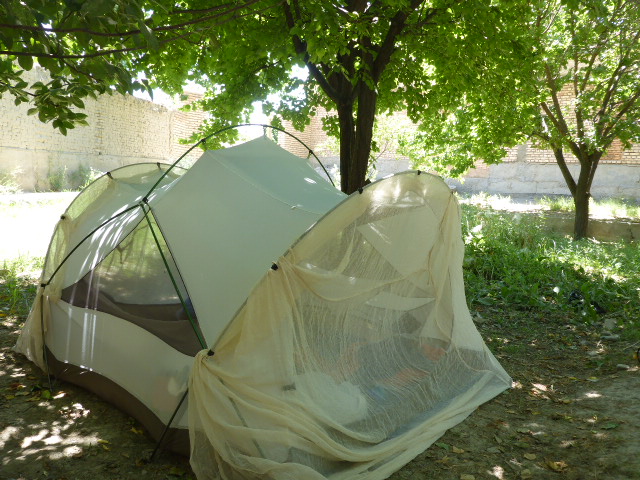
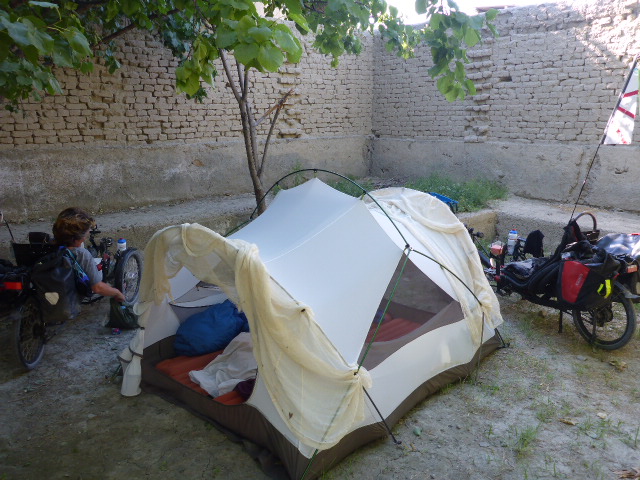
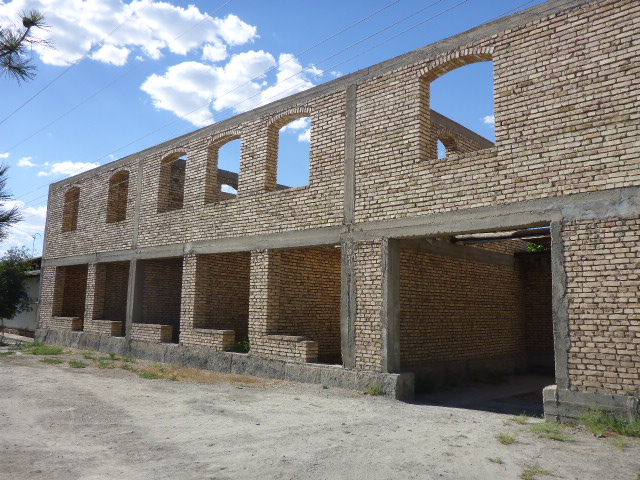
All we need to do now is find a decent camping spot and incredibly we find a superb spot, in an orchard behind some disused buildings. There’s even a water tap so I can fully soap up and then rinse with clean, cold water. Superb.
Sunday 2nd July – Navoiy to Ogtosh
Distance: 55.41 km
Total Distance: 14553.39 km
Yesterday evening we had a visitor who brought us a huge water melon. He sat with us and studied the trikes whilst we ate the melon. Daz was talking, talking, talking so I’d zoned out until I realised from his arrival the guy hadn’t actually spoken a word. Initially I thought he was mute but realised he was deaf too; we watched his young son and daughter catch his attention and then sign with him.
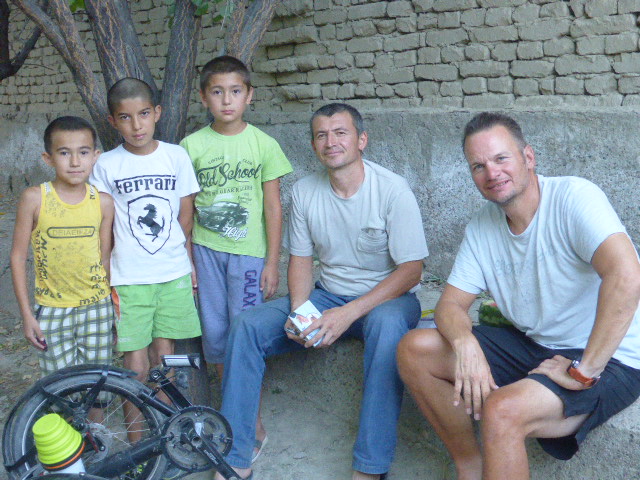
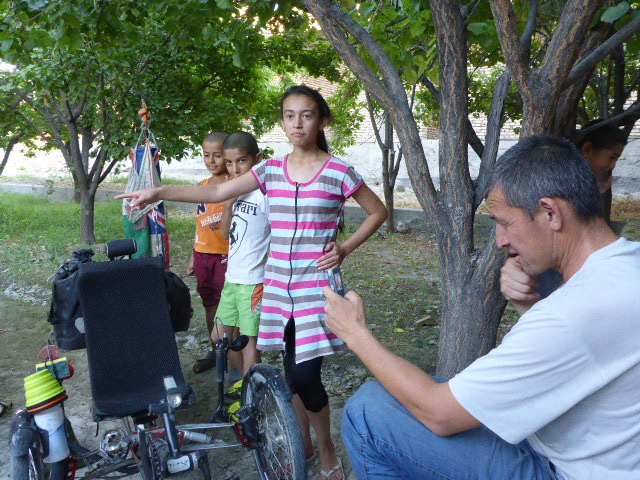
The orchard was relatively cool and shaded and we slept well until the 4am alarm. Both of us could have happily snoozed a few hours away but instead, like well disciplined ex soldiers, up we get. By 5.45am we’re back on the main road today and it’s a little dull. Even in the cool temperatures I keep falling into a zombie like state (yup you jokers, no different to my normal state!).
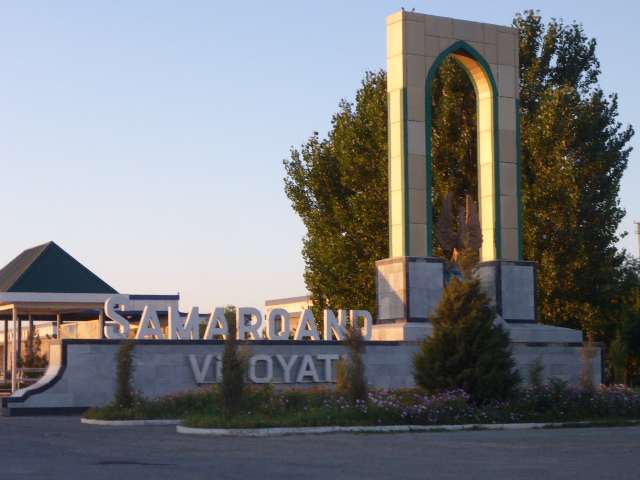
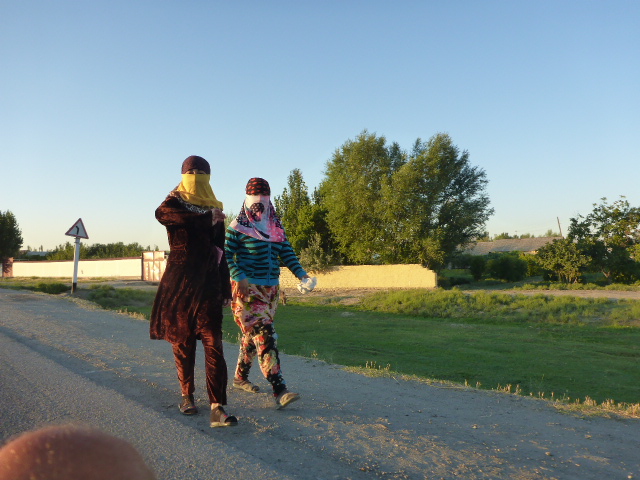
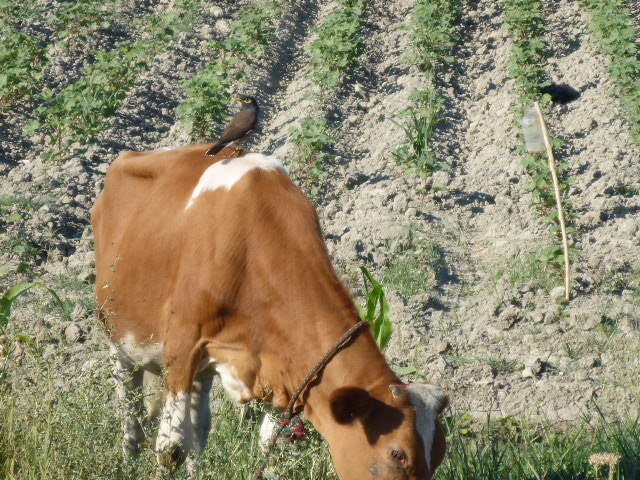
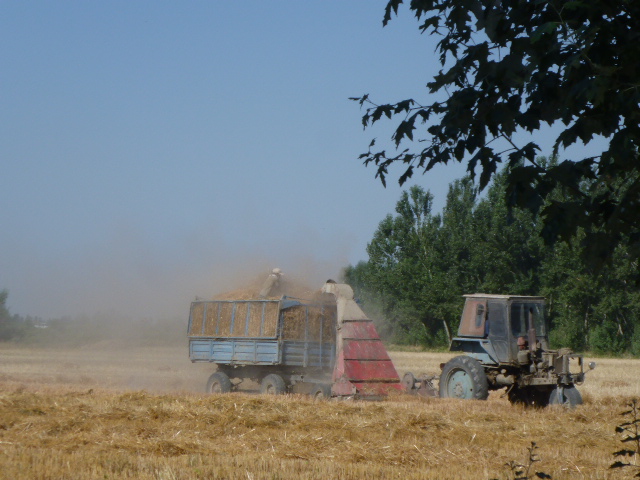
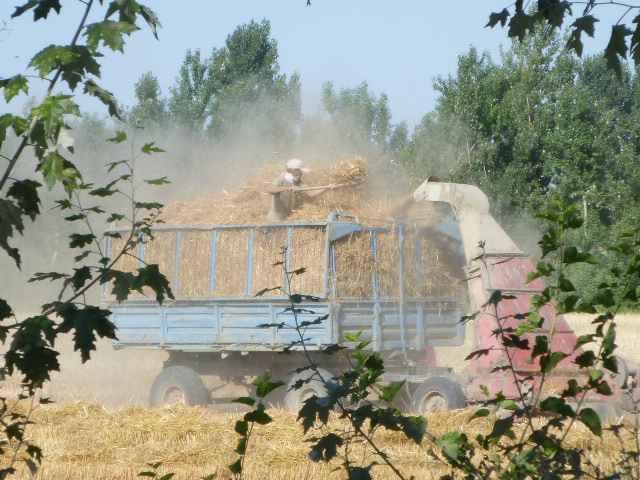
We stop for a cuppa and samsa and then hit the last leg. We’re only going as far as Ogtosh. With only 4km to go we see a slow moving crane coming up behind and as it passes we grab on. Well Daz grabs its rear bumper and I grab Daz’s pannier handles. So a nice finish to the day. In Ogtosh we find a covered area to camp (unfortunately it’s rather public so the bucket bath is probably out and weeing might be problematic but finding decent shaded areas is so rare that we daren’t reject it). We visit the Bazaar for icecream and savoury doughnuts and just enjoy the mass of humanity these places attract.

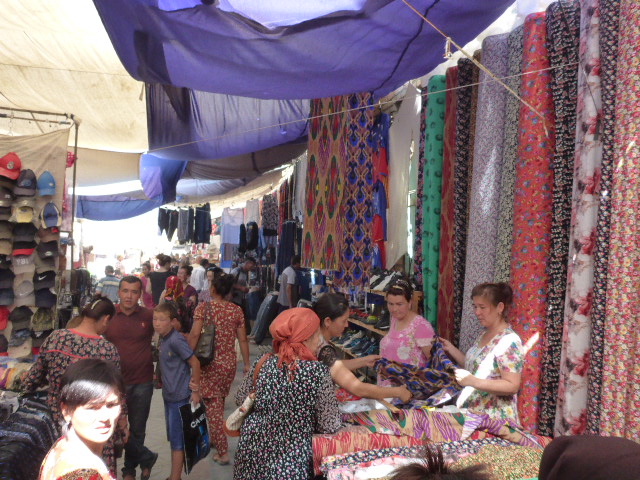
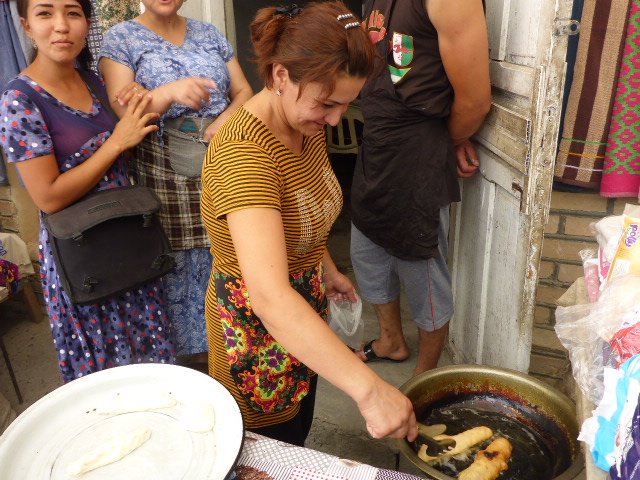
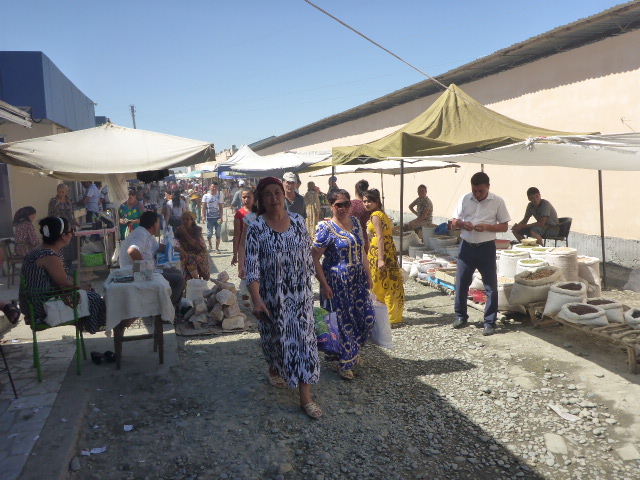
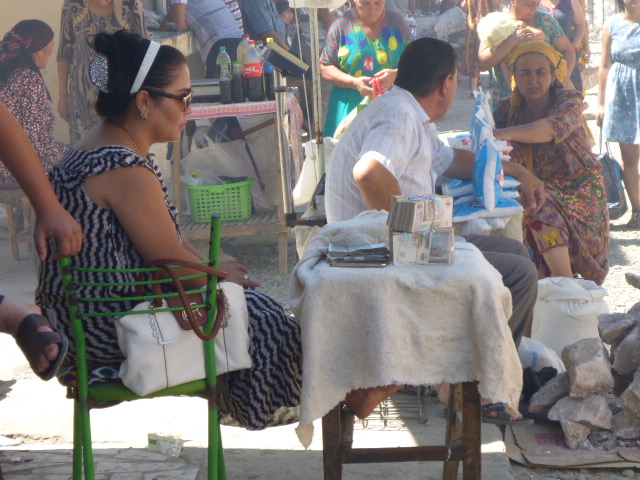
There’s a whole alley of money sellers which is odd because usually they’re a bit furtive, always looking over their shoulder. Shopping done and it’s time to set up camp.
All done and it’s only 1130am. If you’re wondering about the unusual schedule, there’s a couple of controlling factors:
- Our Uzbekistan visa runs until 17th July but our Tajikistan doesn’t start until 17th July (we originally thought we’d easily spend 30 days in Uzbekistan.
- We’re making a detour from Samarkand to Tashkent primarily added to the schedule when we discovered the only dependable method to get a parcel in the ‘Stans is to have it sent to a British Embassy. Our POC at the British Embassy in Tashkent doesn’t return from leave until 7th July.
- We don’t want to spend long periods in Samarkand or Tashkent because the hotel bill becomes quite high. So basically we’re just taking it easy; cycling in the cool and reading and resting for the remainder. We’re being a bit naughty because technically we should be in a hotel tonight; we’re supposed to register every 3rd night but we’re going to push it to the 5th night. If we’re imprisoned or fined it’s totally my fault because ‘goody two shoes Broadhurst’ is completely against such behaviour!!!
By mid afternoon the crowds have gone and we have the place to ourselves, mostly.
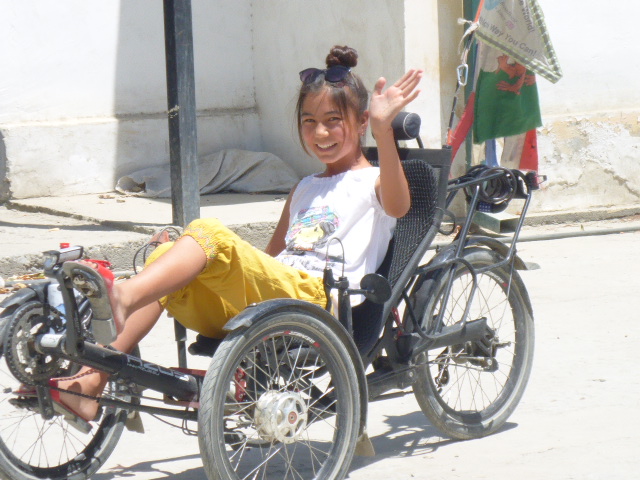
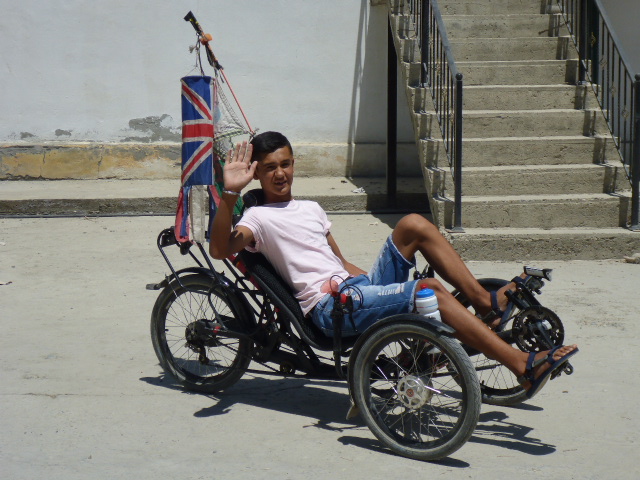
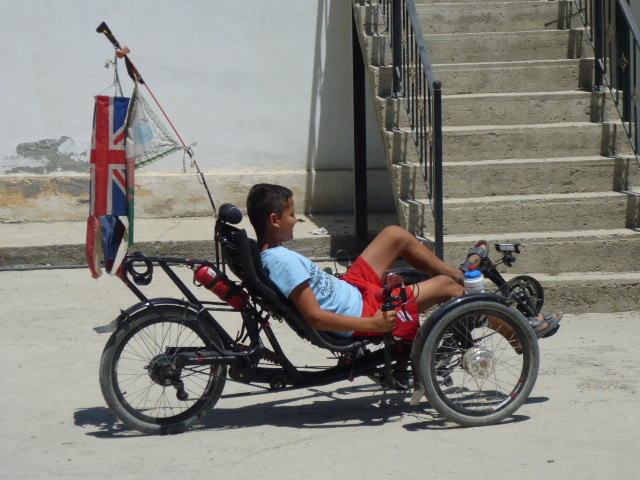
A family with 2 lovely children who visited earlier and tested my trike, return late afternoon with a beautiful handrawn picture, a photo, and a huge dish of homemade ‘plov’.

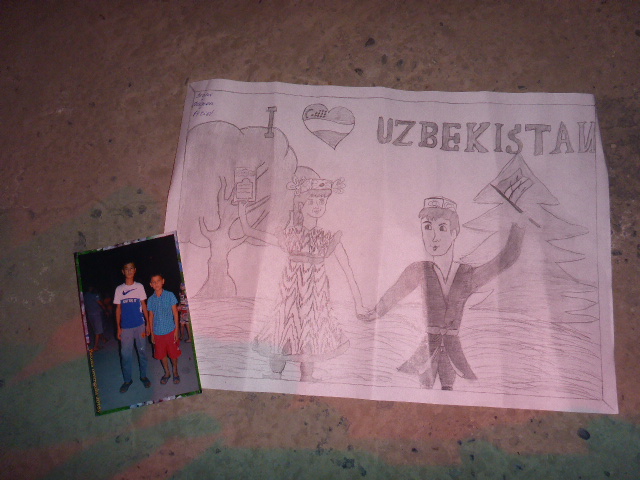
It’s delicious although I’m ambushed by the whole chilli and whole raw garlic which nearly blow my head off – usually the chillis are completely innocuous over here and as for the garlic; well it didn’t look like garlic, it didn’t have the texture of garlic (it looked both in texture and size more like a large cube of radish), but it certainly smelt and tasted like hot garlic!
Monday 3rd July – Ogtosh to Gozalkent
Distance: 64.12 km
Total Distance: 14617.51 km
Today the 4am wake up is truly unwelcome but we grit our teeth and go forth into the lovely cool pre dawn of Uzbekistan. We know by 10am it’ll be more like cycling into Dante’s inferno. But for now we enjoy the chilly breeze. The first 26km are a doddle, we’re still on the main road and make good speed. We pass numerous people on their way to work; a group of women walking on the hard shoulder each with a hoe in hand. They’ll soon be weeding some huge cotton field.
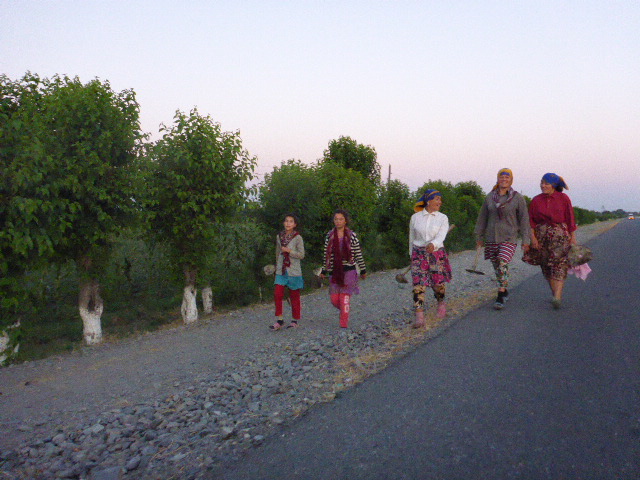
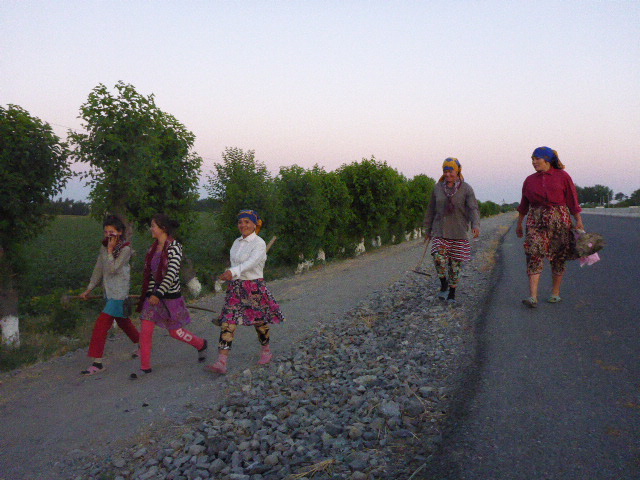
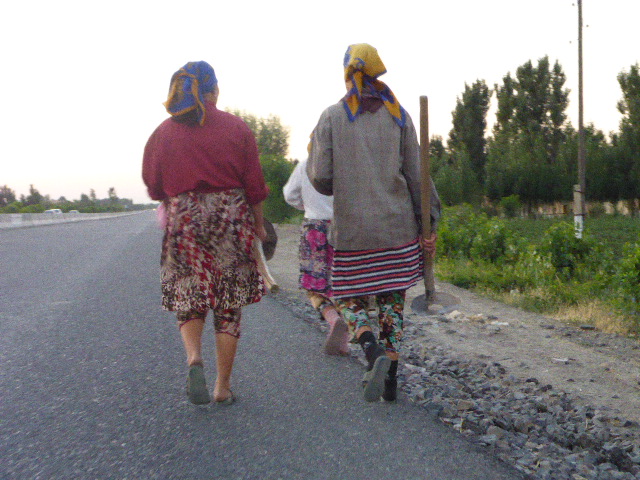
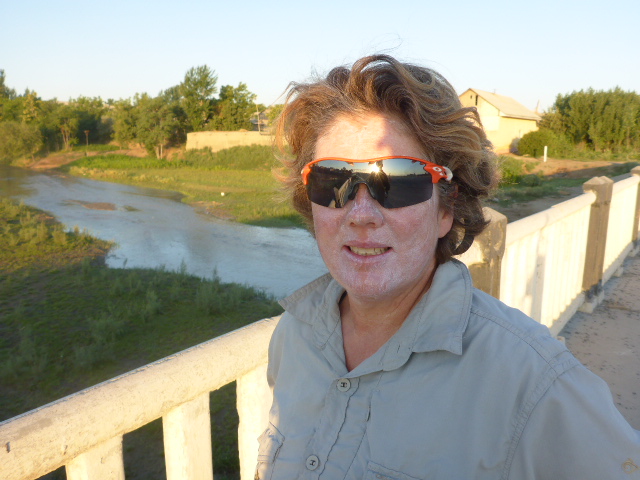
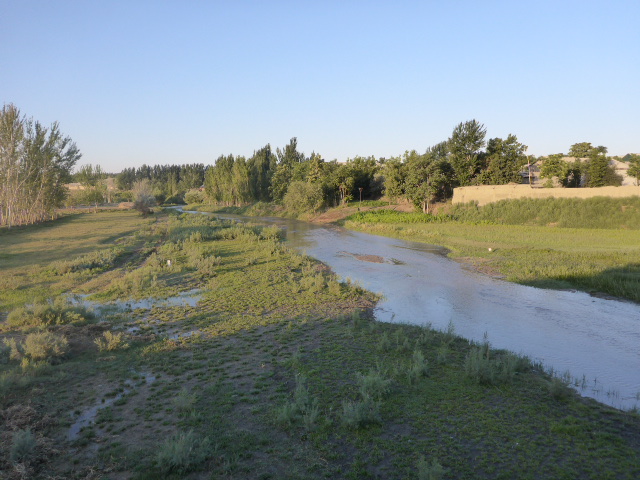
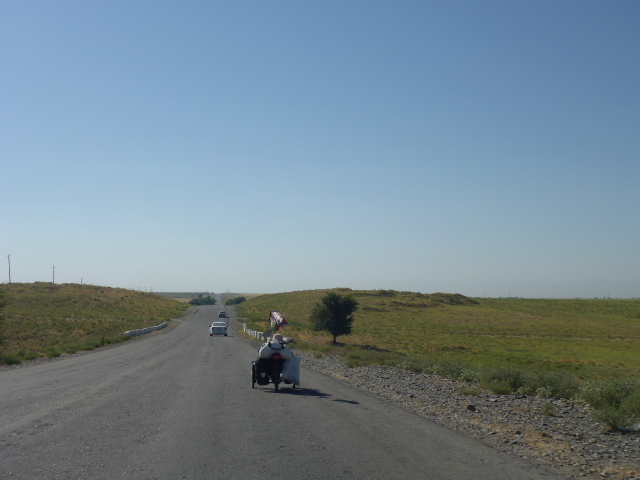
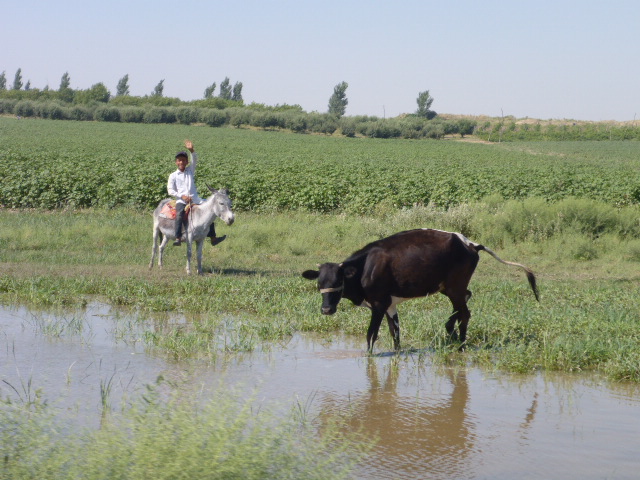
Then we turn off the main road and now the road surface deteriorates, we have a strong headwind and there’s hills. We haven’t done any hills for weeks, well it feels like weeks. Our progress slows. We try to push on but by 45km we’re suffering, me more than Daz. Luckily we spot a restaurant. We go in and they give us a table in a wattle and daub lean-to. It’s lovely and cool. We order some food and then relax at our table, and sleep.
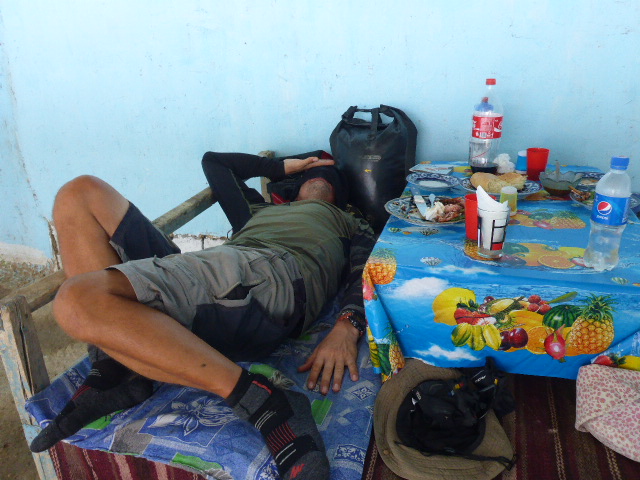
And then our barbecued chicken arrives with hot sauce, salad and bread. It’s delicious! But TBH I think I could have eaten my own socks and enjoyed the experience!
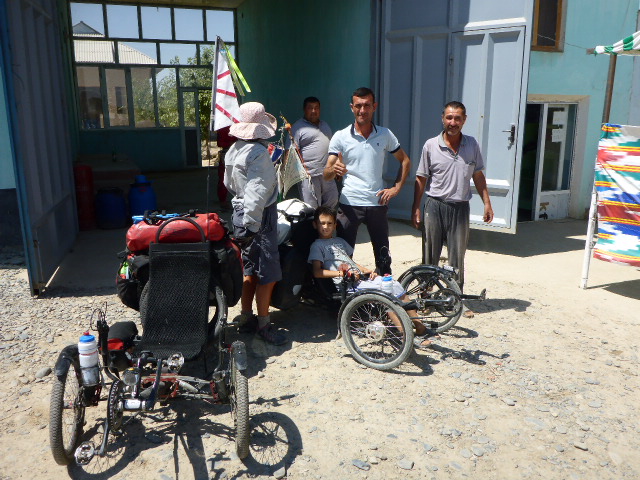
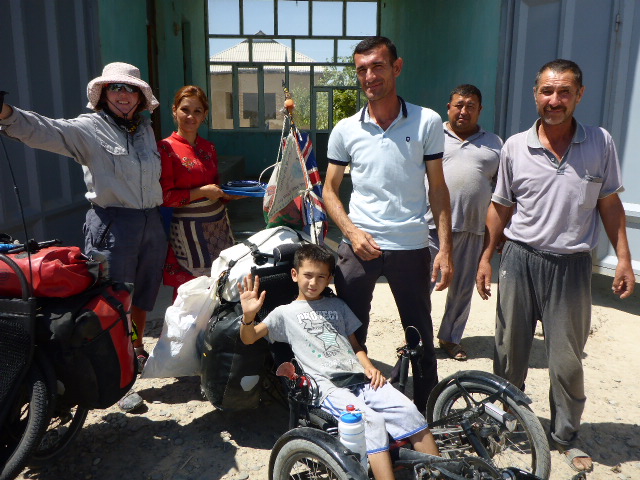
Refreshed and refortified we decide to just push on to the next main town. It’s nearly 11am and it’s already 37 deg C. It’s only 14km but it’s tough so when we arrive we treat ourselves to ice-cream. Whilst we’re eating our ice cream the village looney sits next to Daz and talks and sings to him incessantly. Kindred spirits perhaps? Poor Daz, he’s shattered too but too polite to ignore the ‘window licker’. Ice cream finished, water reservoir filled and we’re heading out of the town looking for a camp spot. There’s a number of empty abandoned buildings on the other side of the road and on investigation, we find a perfect spot.
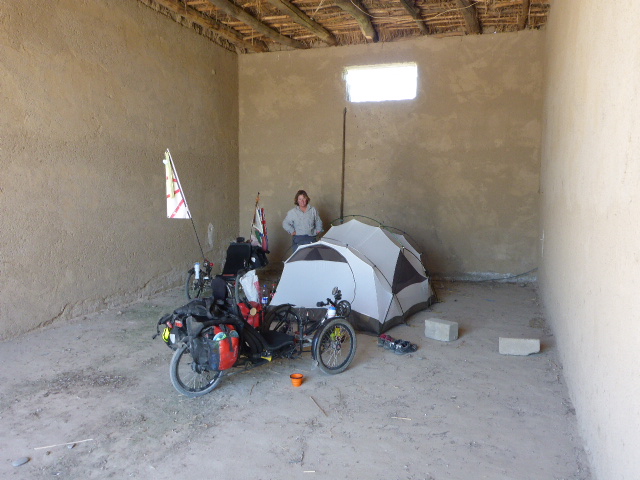
I think it’s a disused workshop/ garage.
Tuesday 4th July – Gozalkent to Samarkand
Distance: 34.18 km
Total Distance: 14656.56 km
Another early morning start, but we only have to do 35km to get to Samarkand and then a few days rest. Last night we had a few villagers come to ogle the ‘weird visitors’ in the village. At least the bakery next door gave us free bread and refilled our water reservoir. By 9pm Daz was fast asleep after wallowing in the heat all afternoon and I wasn’t far behind. This morning I woke before the strident rings of the alarm could shock me awake, a small positive, I just hope the 4 am wake up doesn’t become too ingrained in my system!
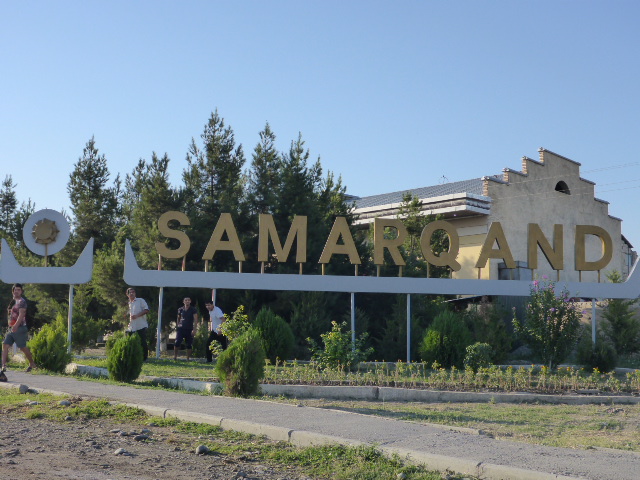
We reach Samarkand without incident and after a bit of meandering find a hotel. This is primarily to use their internet to find a cheap accommodation option, but after an initial offer of US$45 per night they offer us a deal at US$30. Rather than trawl around the city for a better deal we agree. They even have a swimming pool, sure the trikes will love that! We decide to delay sightseeing, it’s 1pm and hot, hot, hot. We grab a quick bite to eat then retire for the rest of the day. The sights can wait until the evening when it’s cooler!
Wednesday 5th July
Samarkand
We travel not for trafficking alone,
By hotter winds our fiery hearts are fanned.
For lust of knowing what should not be known
We take the Golden Road to Samarkand.
These final lines of James Elroy Flecker’s 1913 poem The Golden Journey to Samarkand evoke the romance of Uzbekistan’s most glorious city. No name is so evocative of the Silk Road as Samarkand. For most people it has the mythical resonance of Atlantis, fixed in the Western popular imagination by poets and playwrights of bygone eras, few of whom saw the city in the flesh.
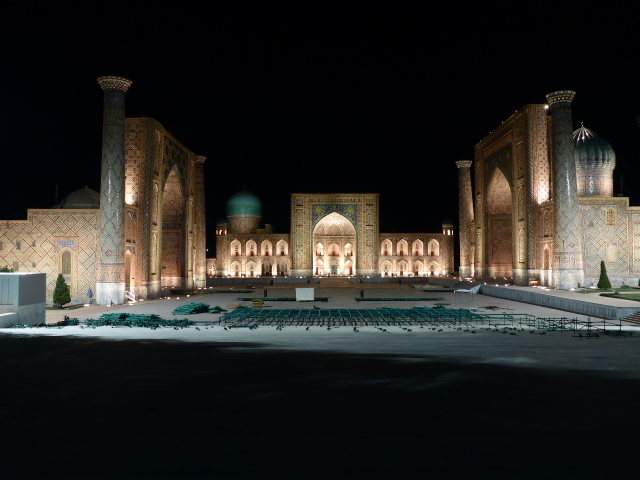

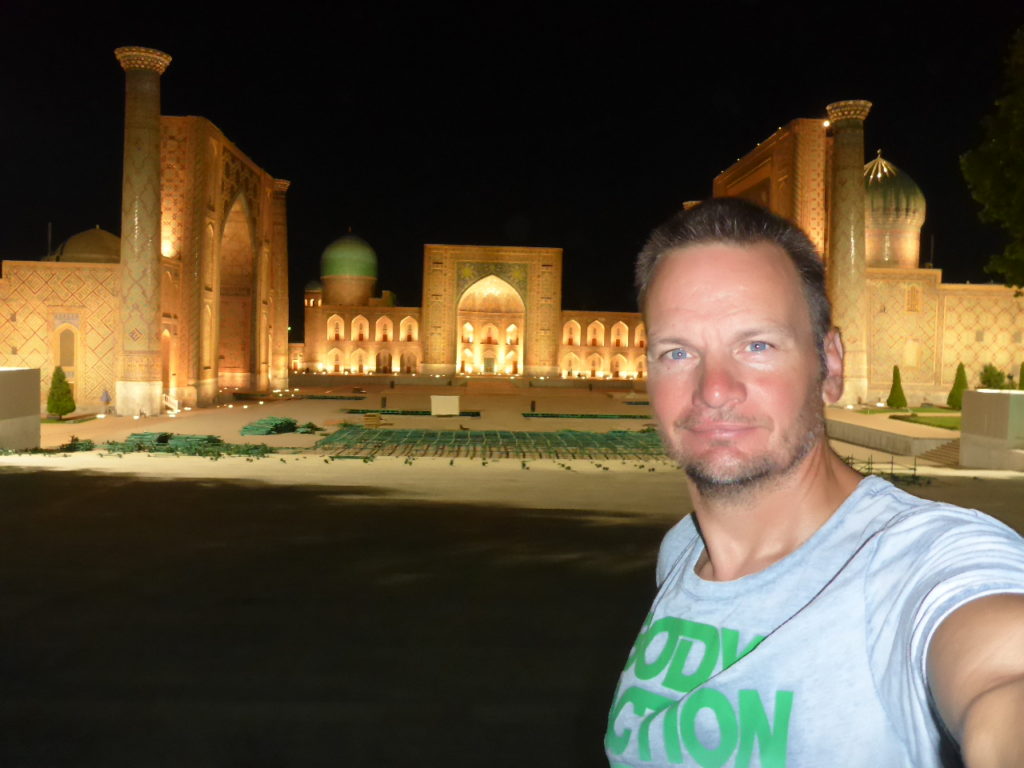
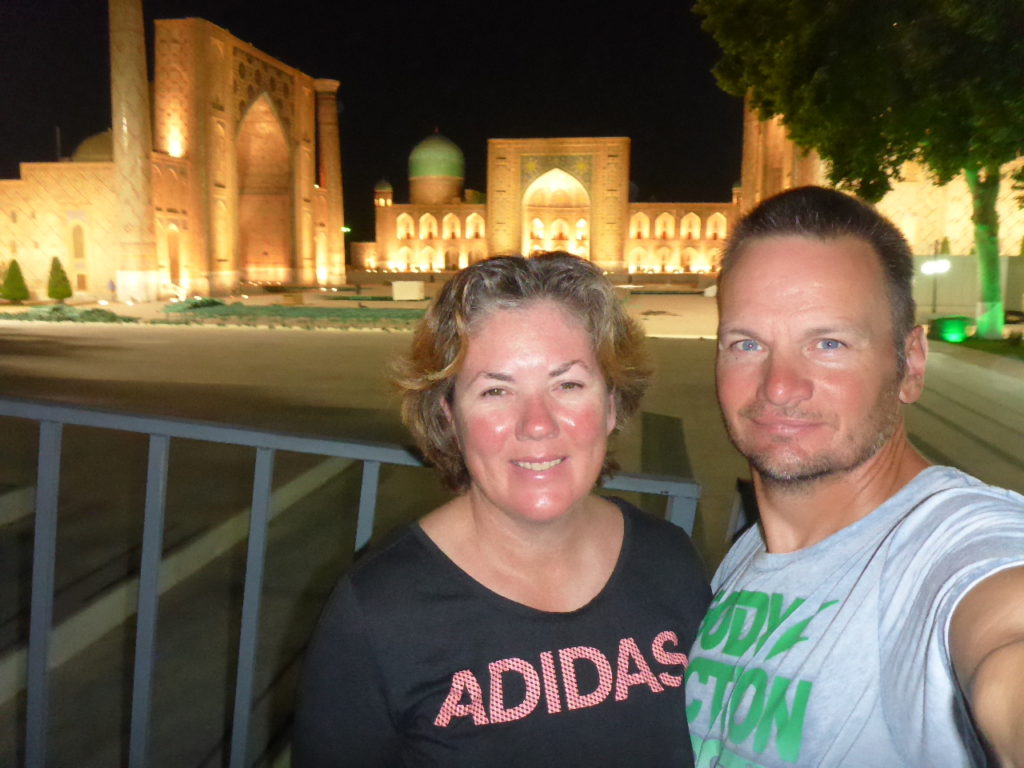
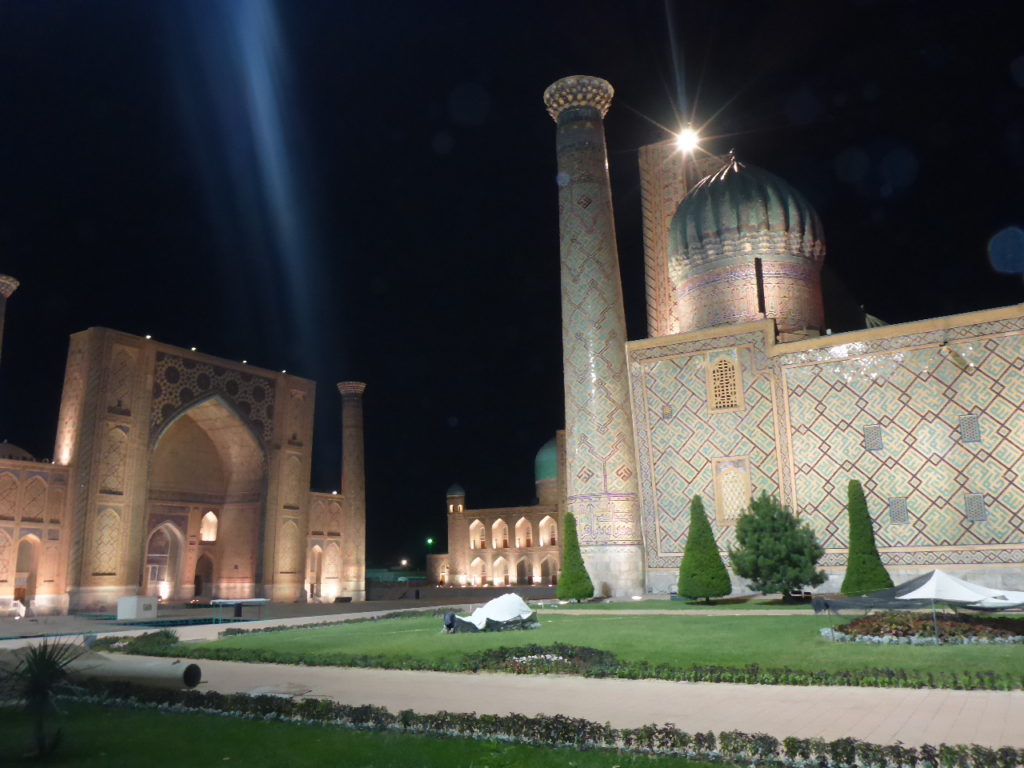
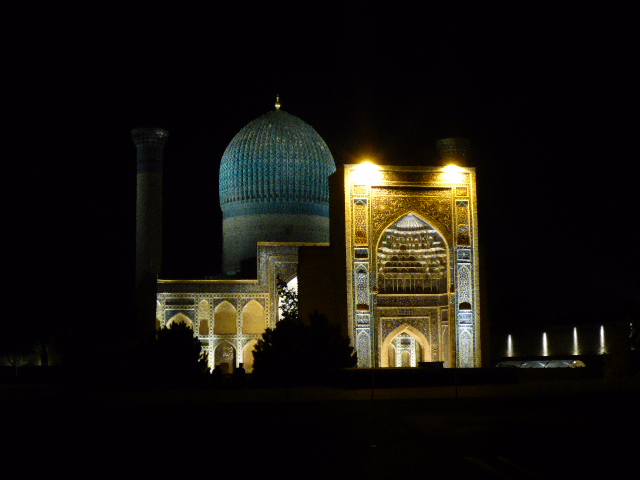
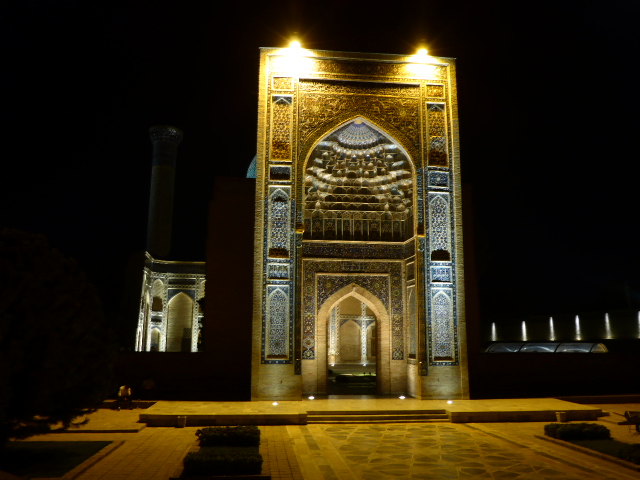
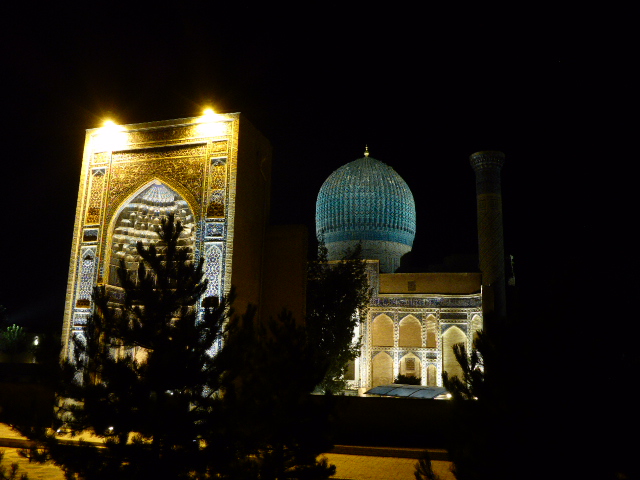
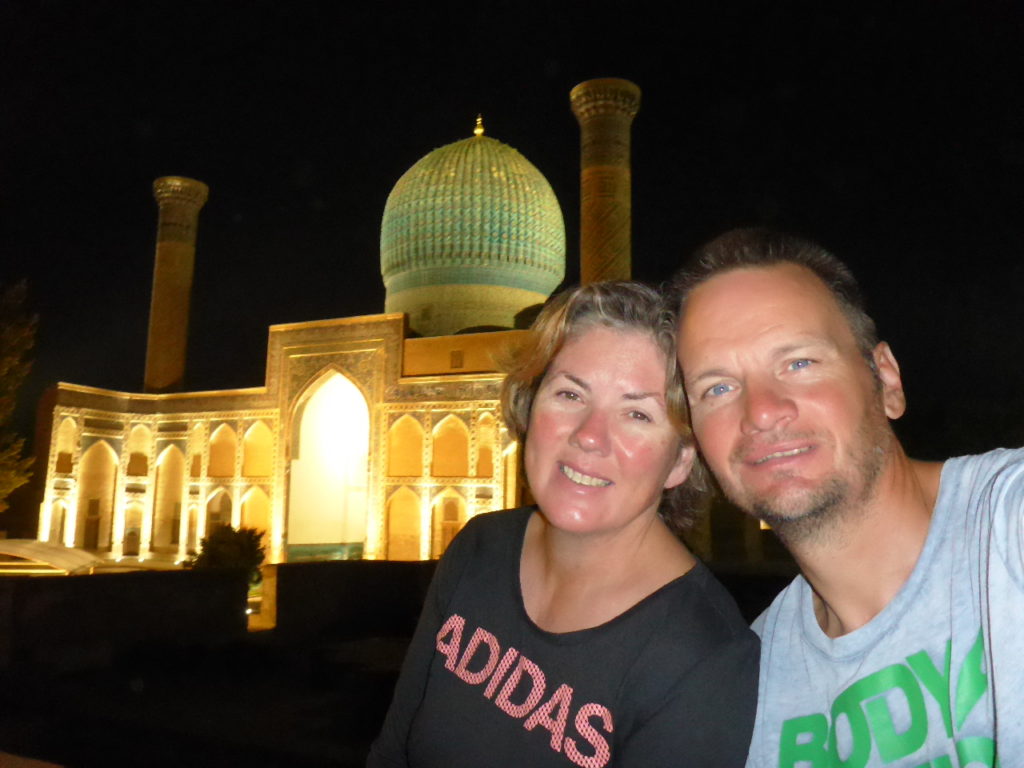
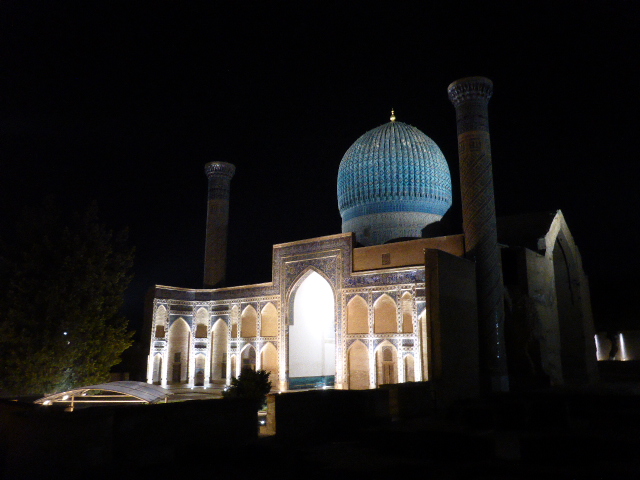
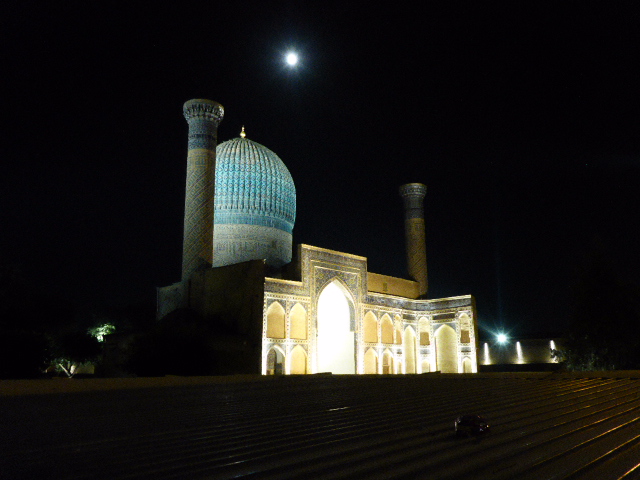
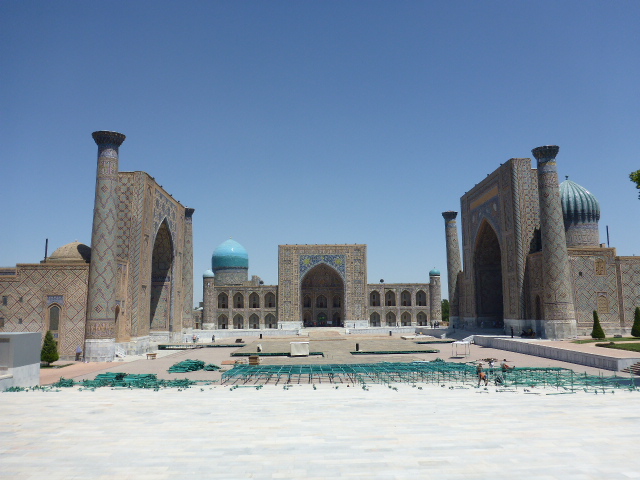
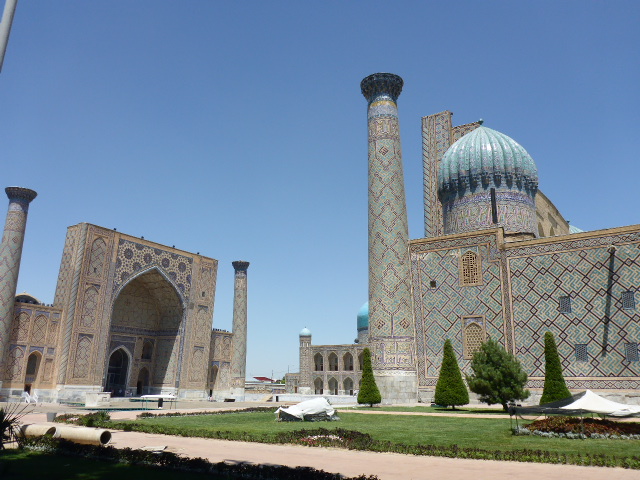
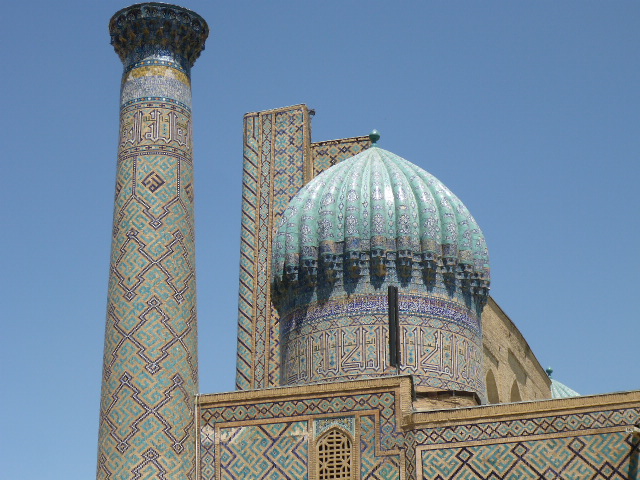
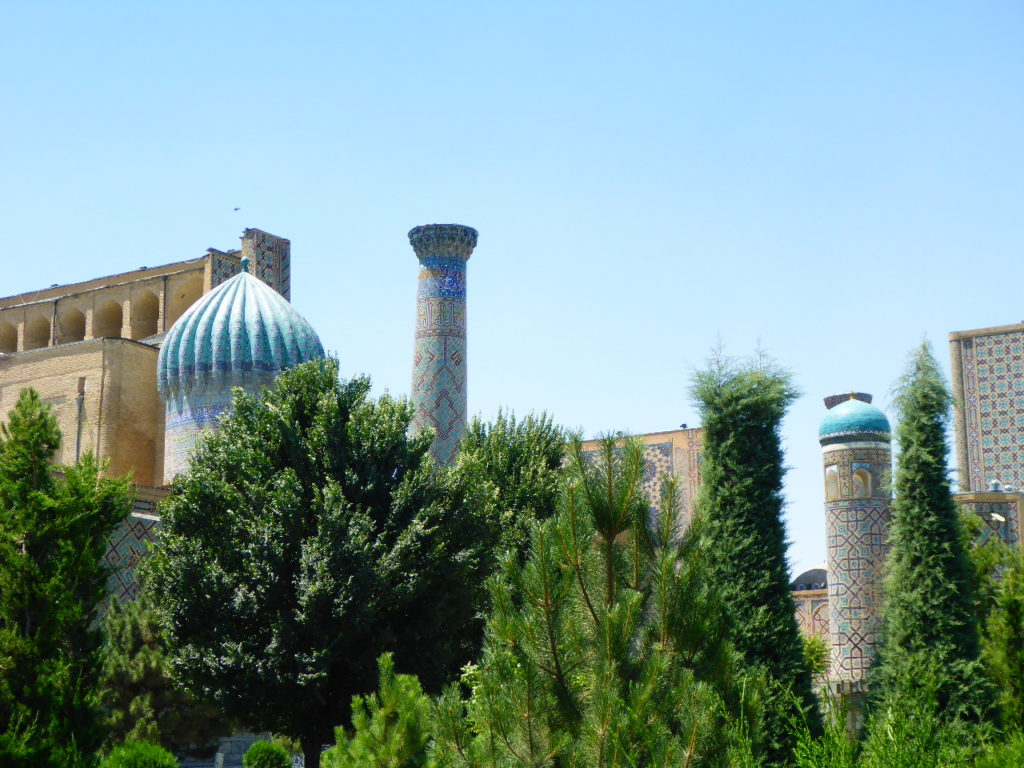
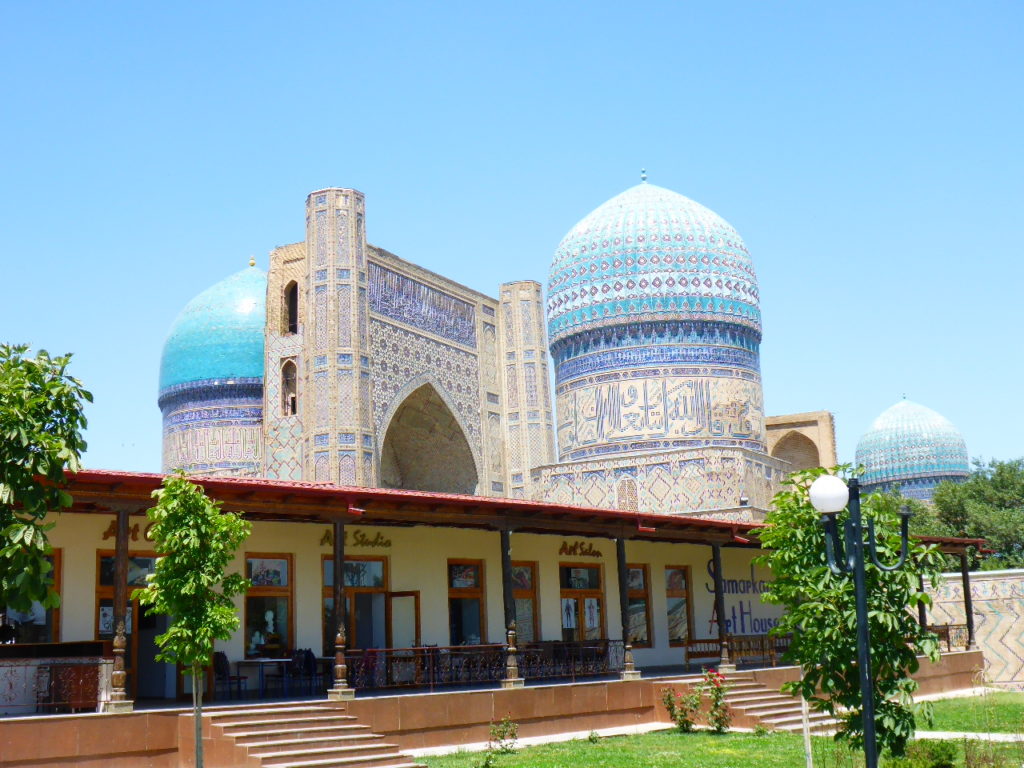
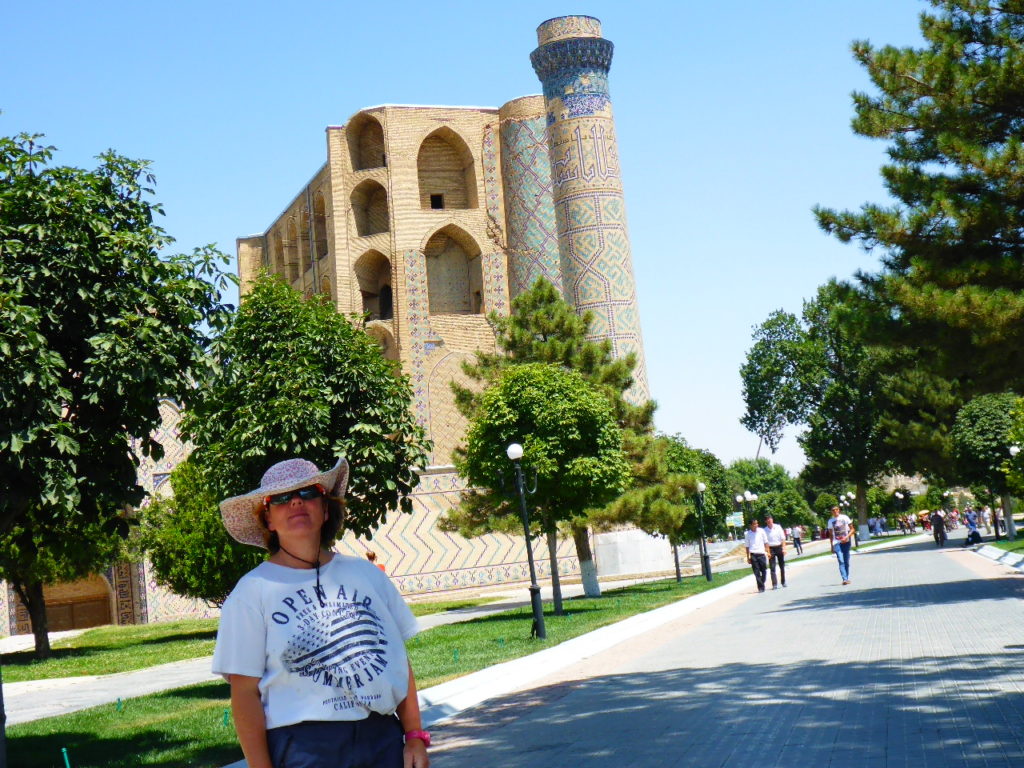
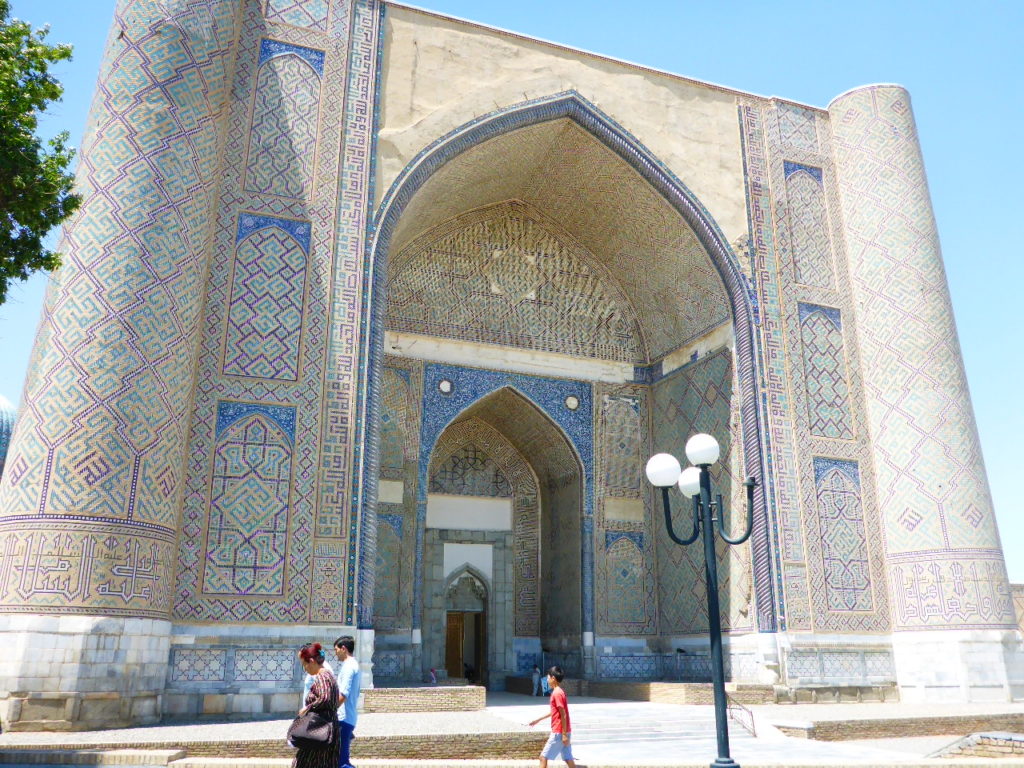
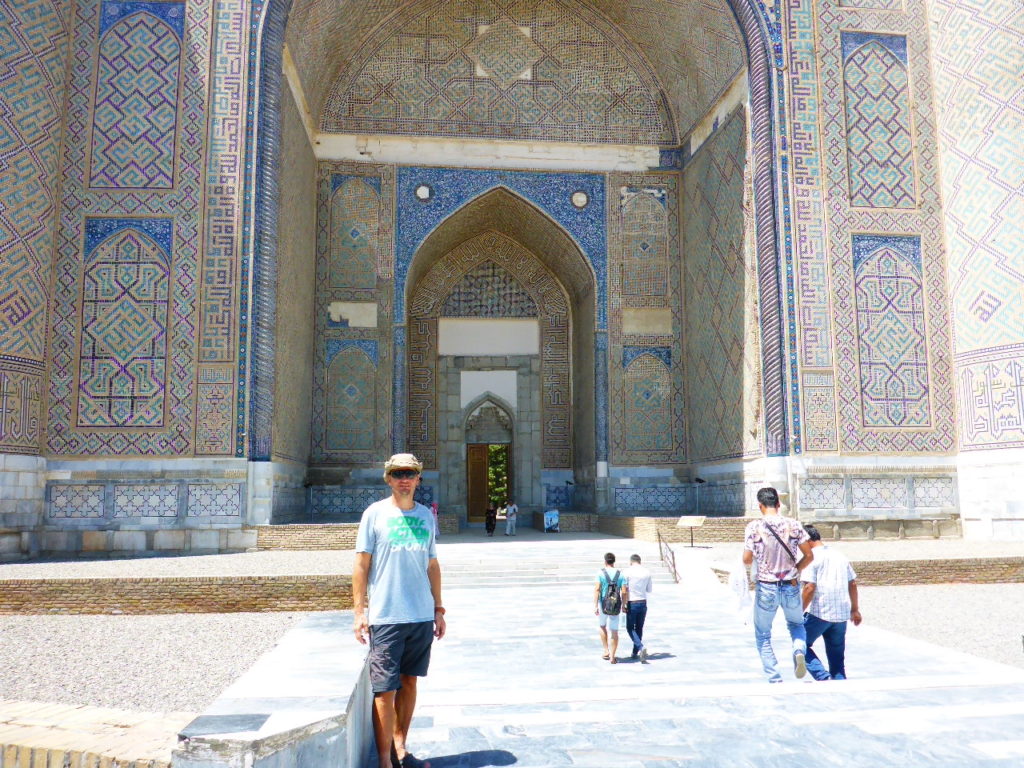
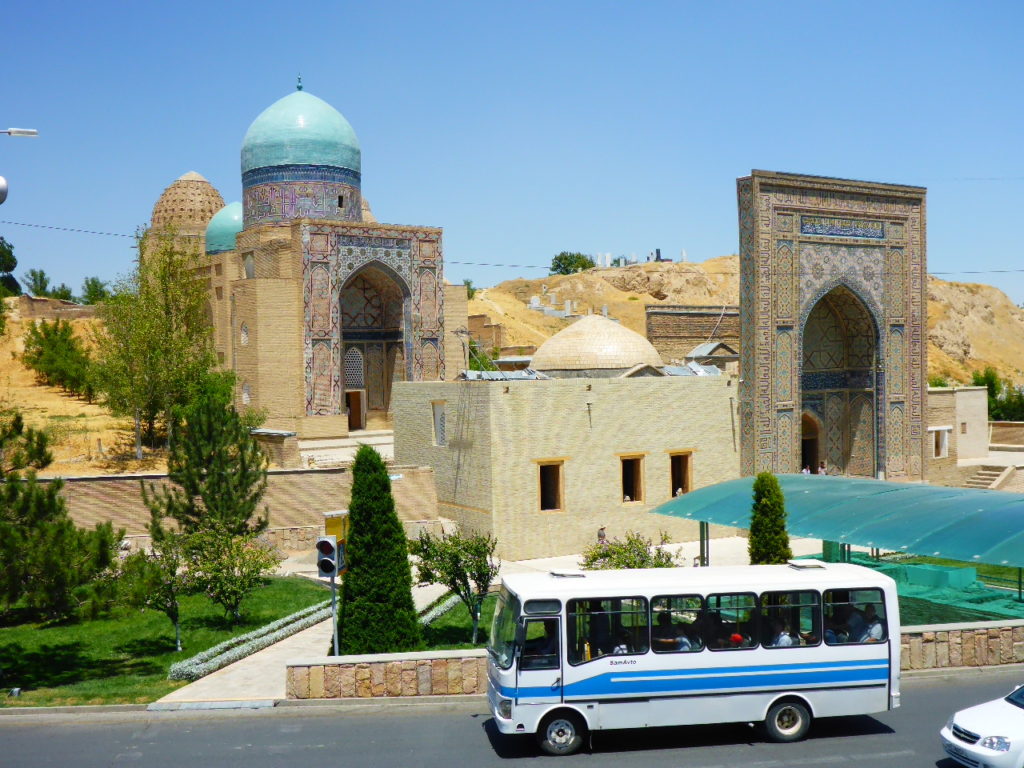
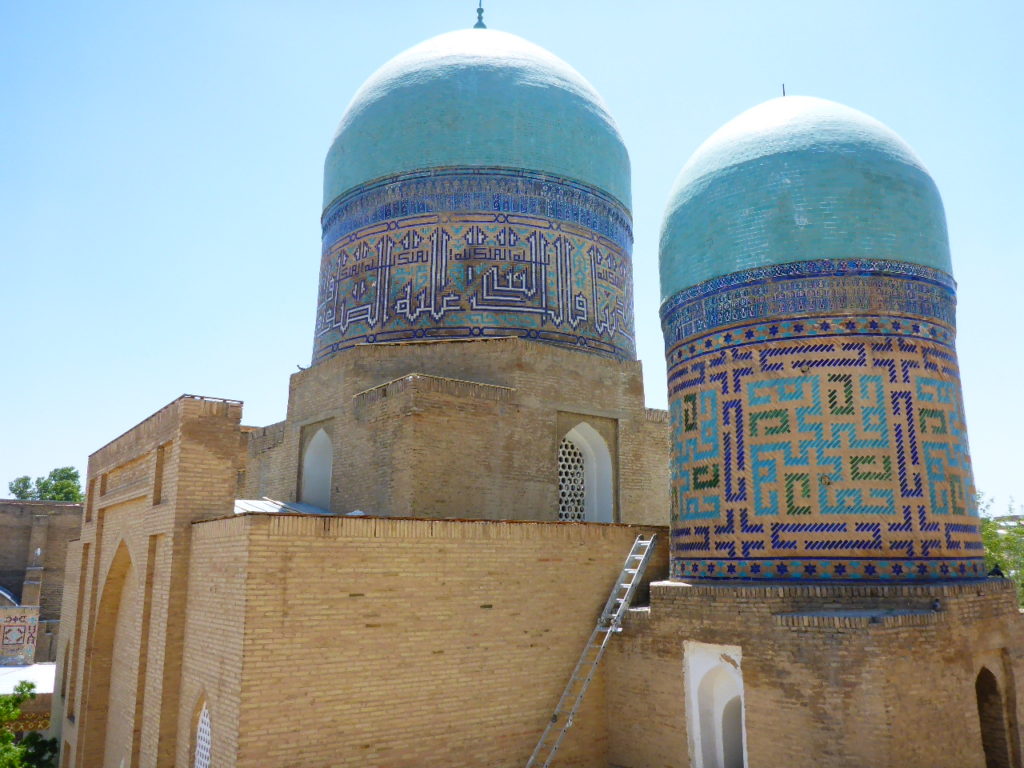
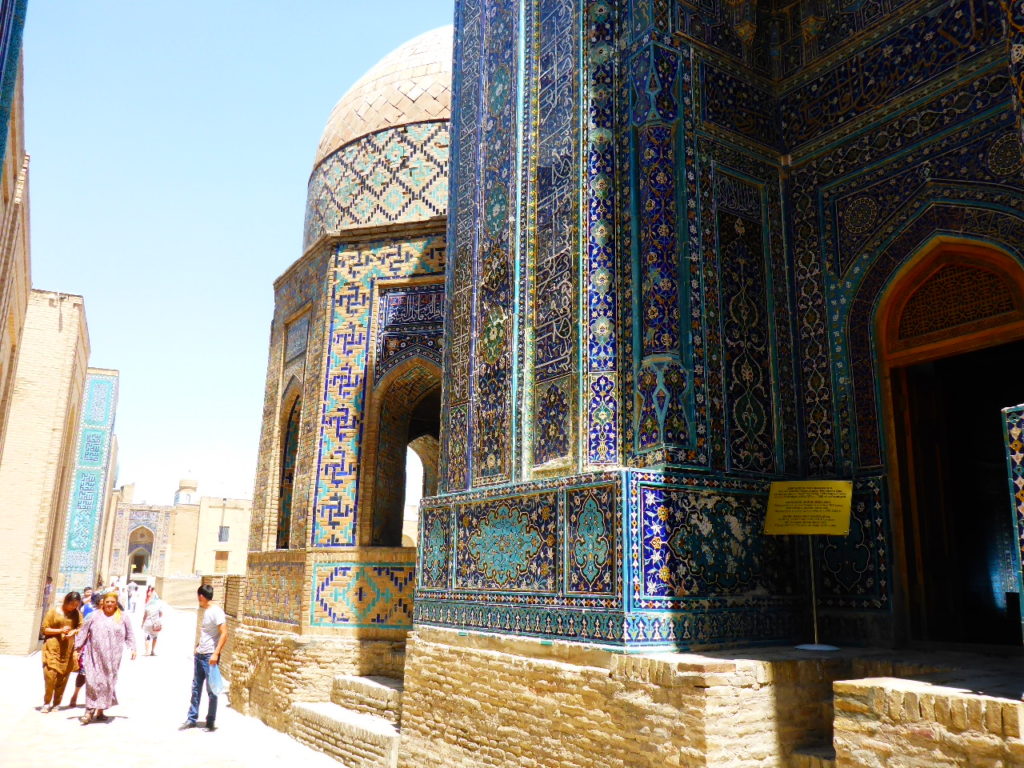
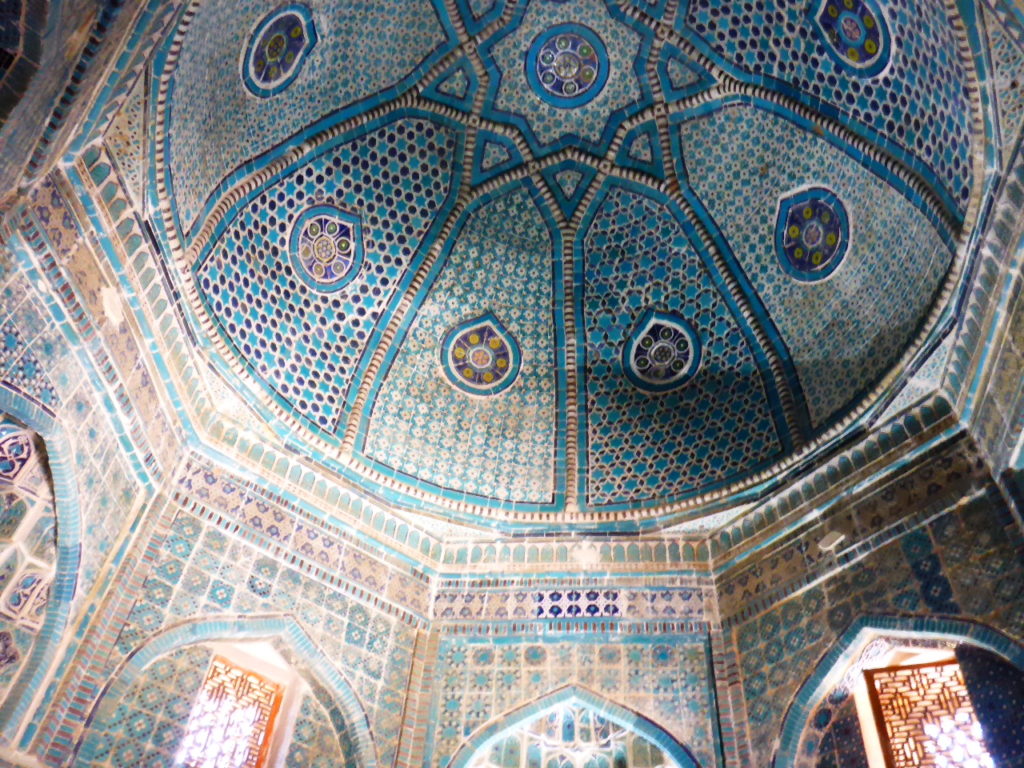
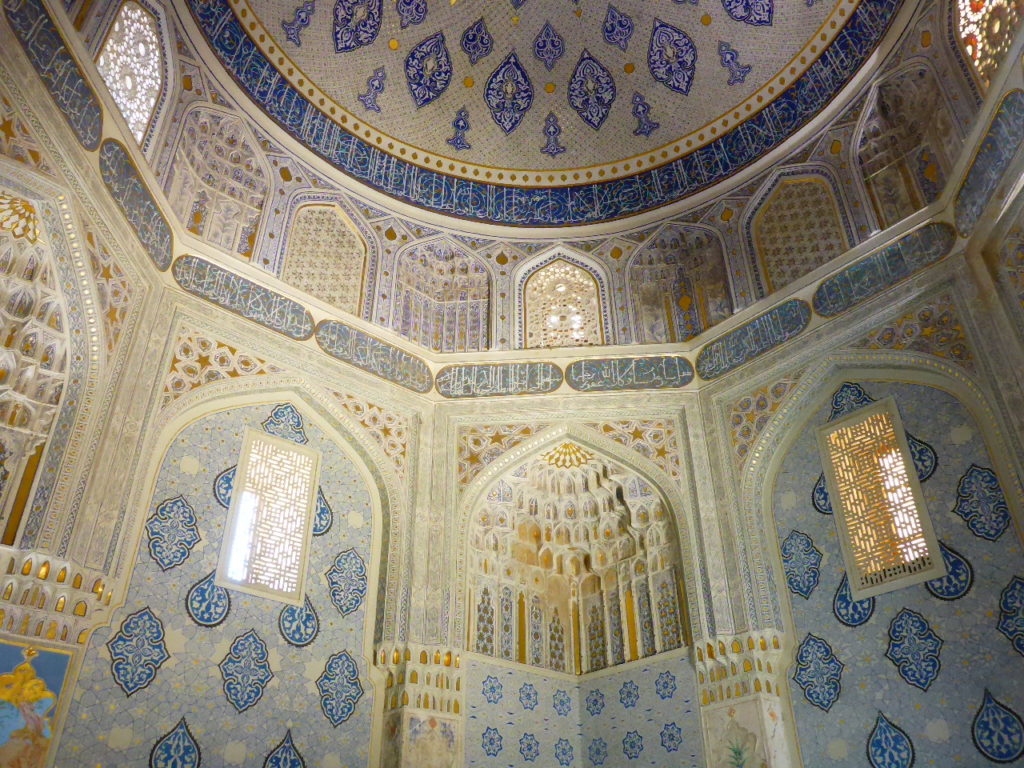
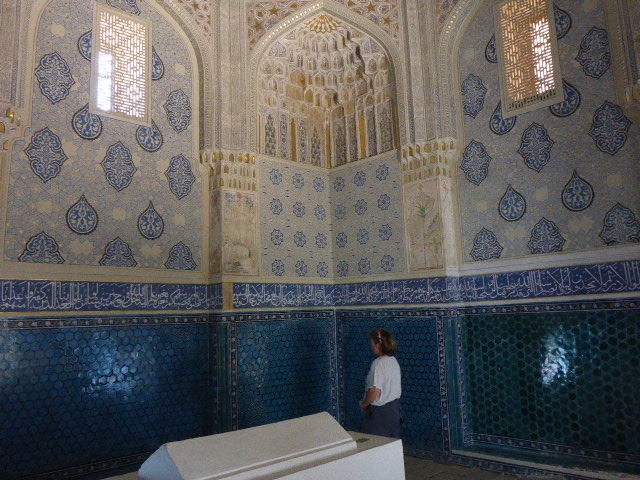
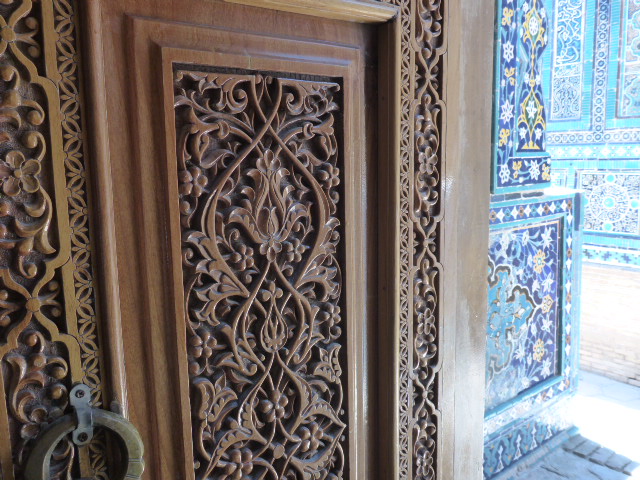
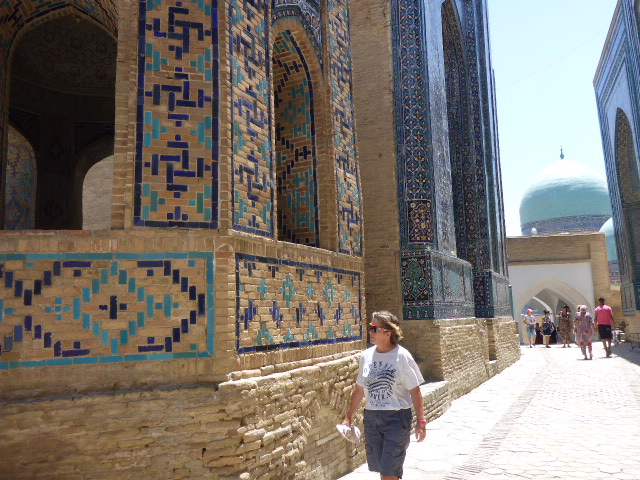
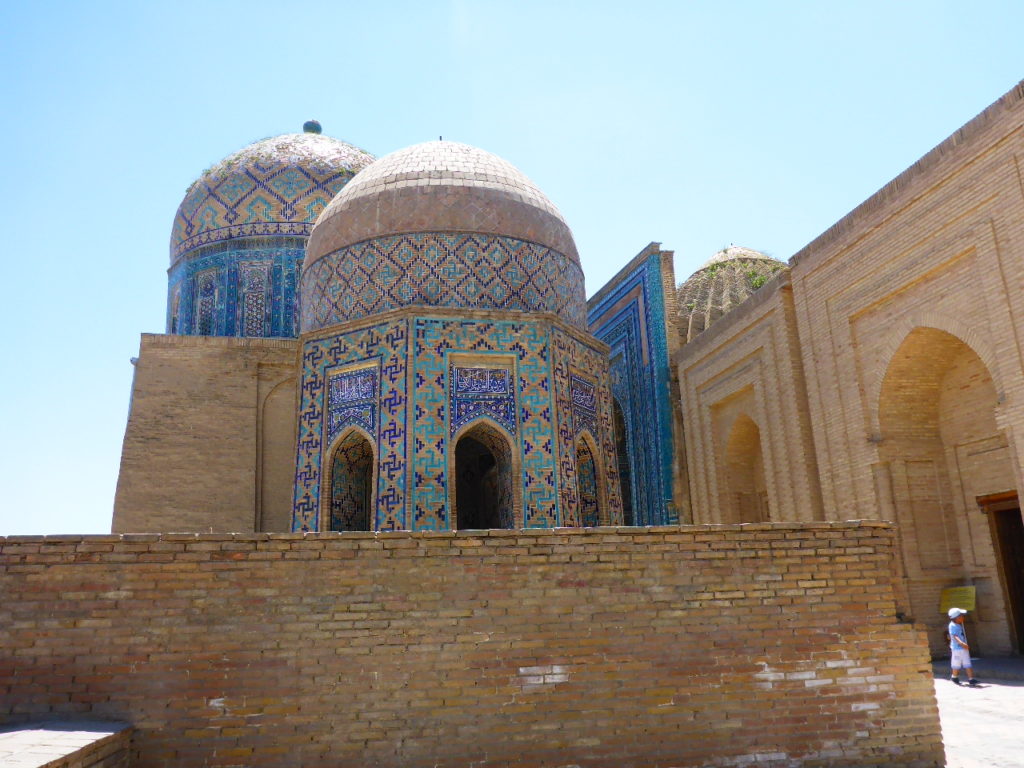
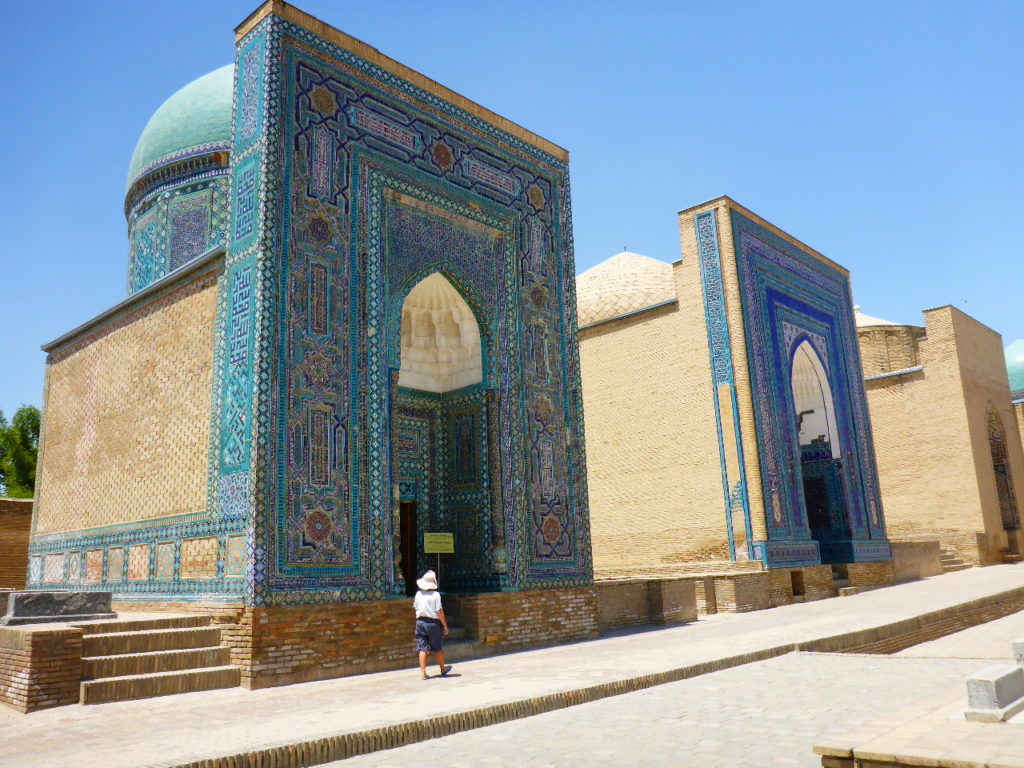
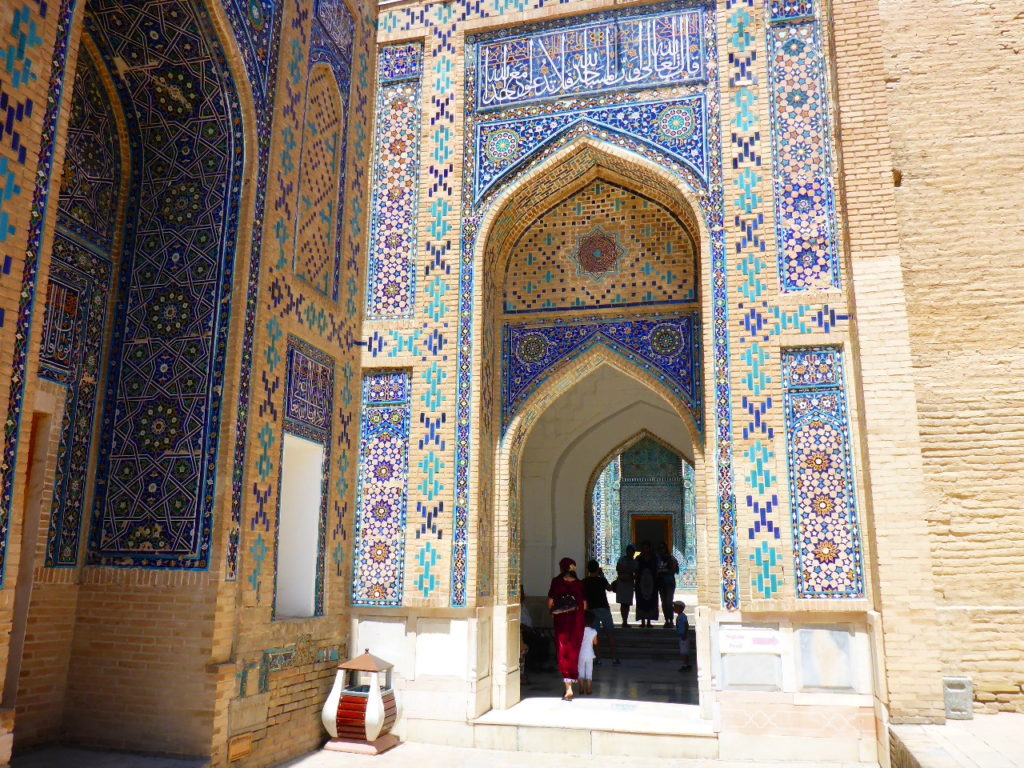
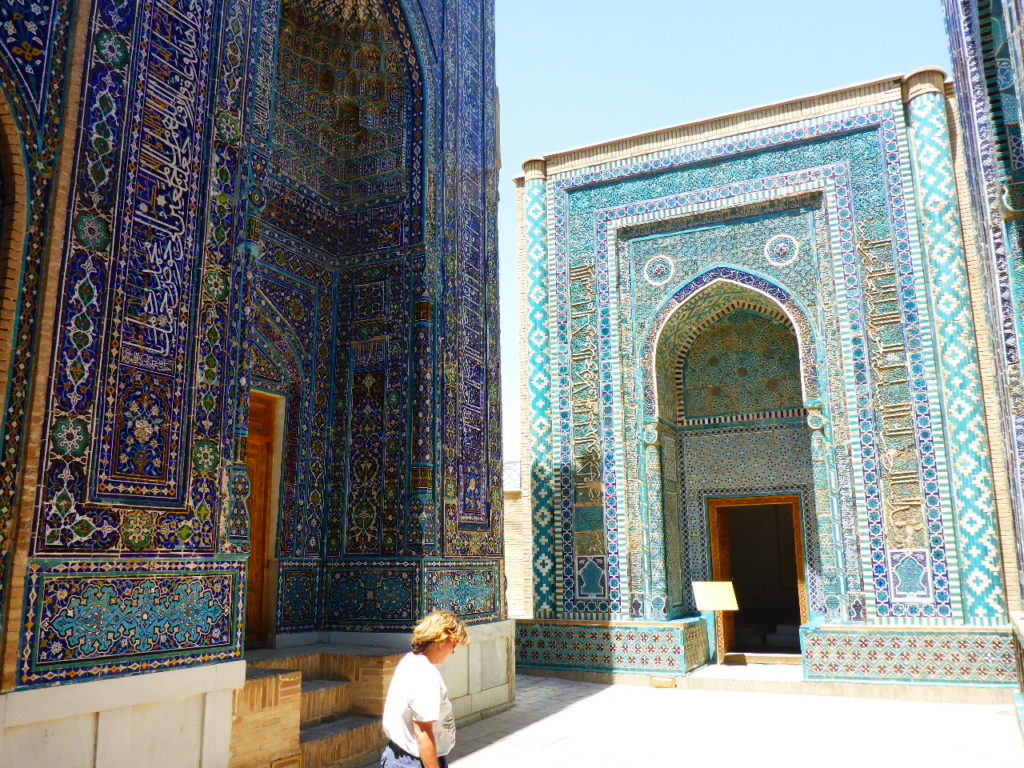
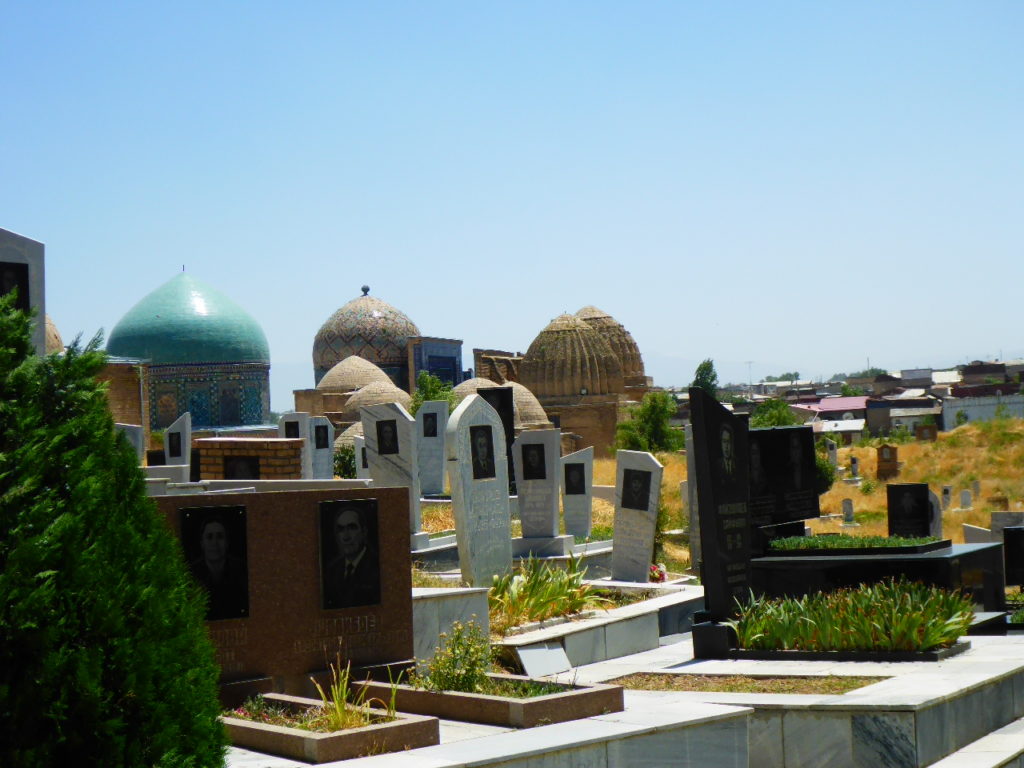
On the ground the sublime, larger-than-life monuments of Timur, the technicolour bazaar and the city’s long, rich history indeed work some kind of magic. Surrounding these islands of majesty, modern Samarkand sprawls across acres of Soviet-built buildings, parks and broad avenues used by buzzing Daewoo taxis.
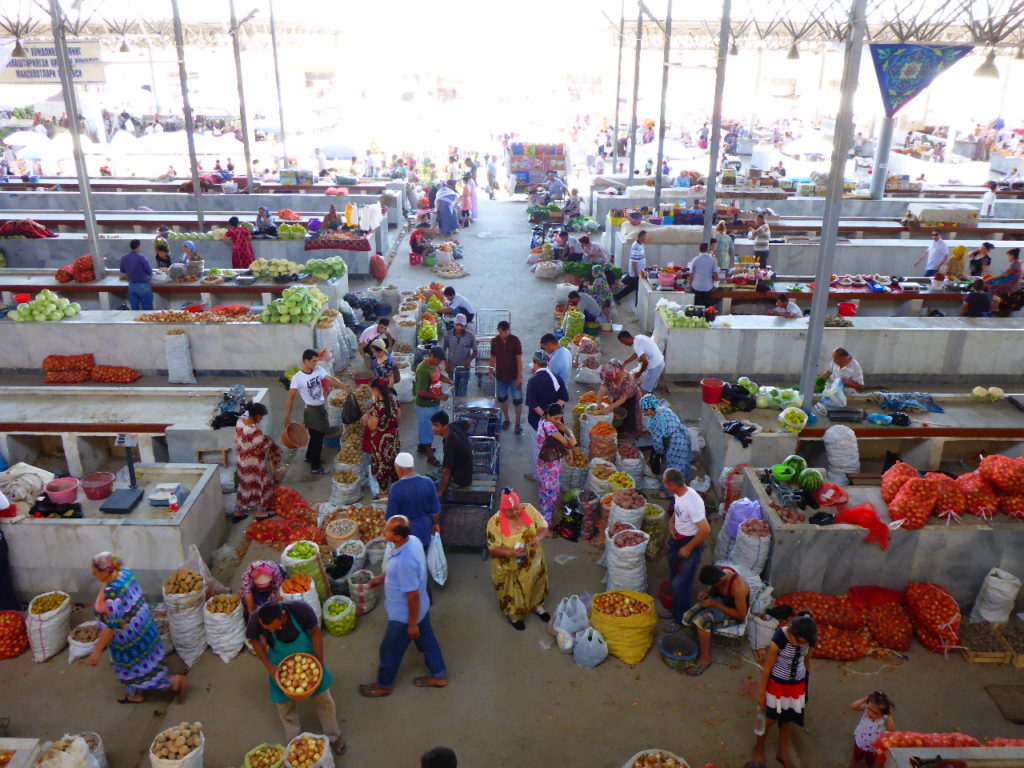
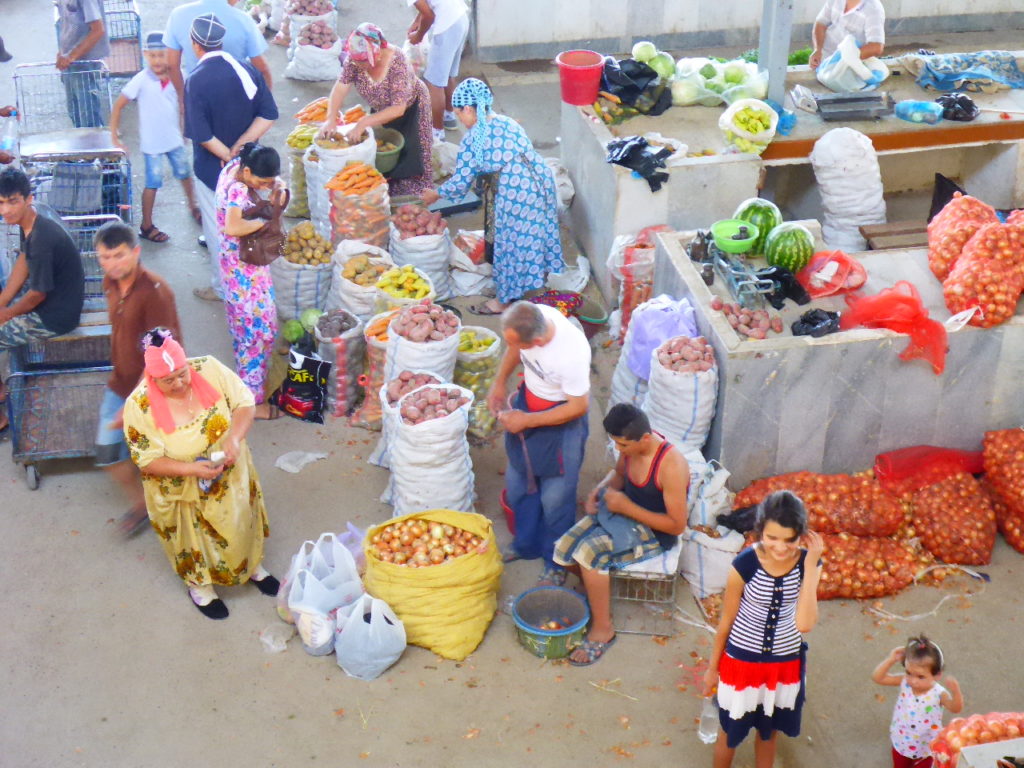
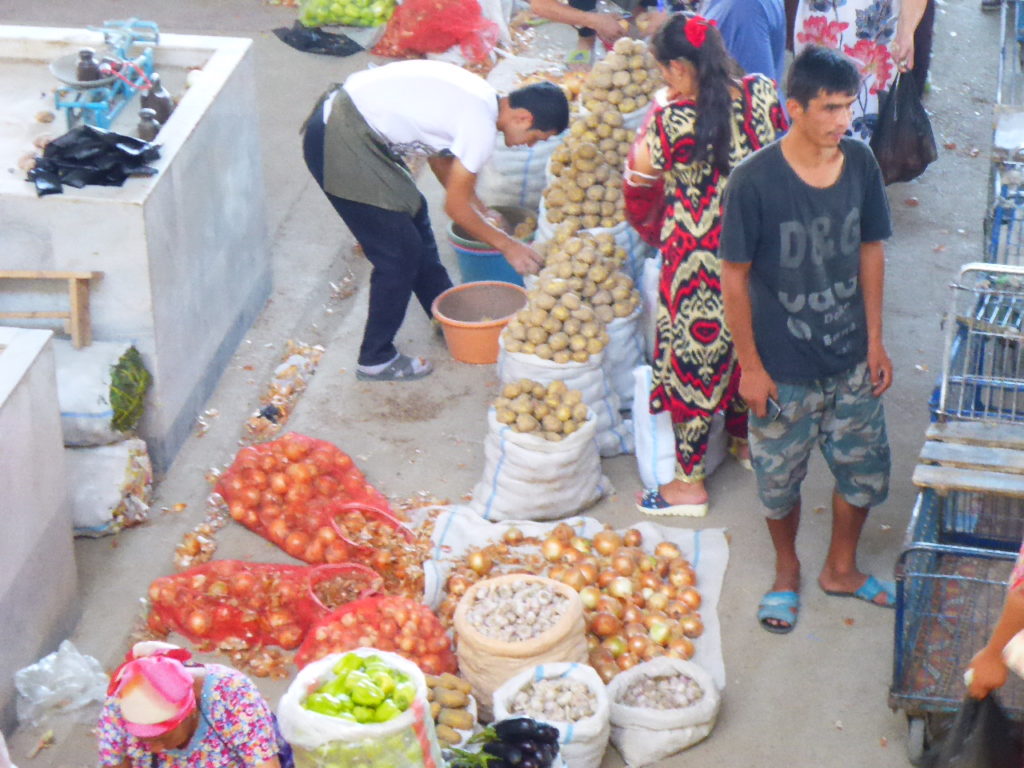
Thursday 6th July
Samarkand
More sightseeing but mainly amongst the newer sections of Samarkand. We even find the Old Soviet department store, GUM, which is now full of stall holders selling electronics, souvenirs and some very gaudy tat!
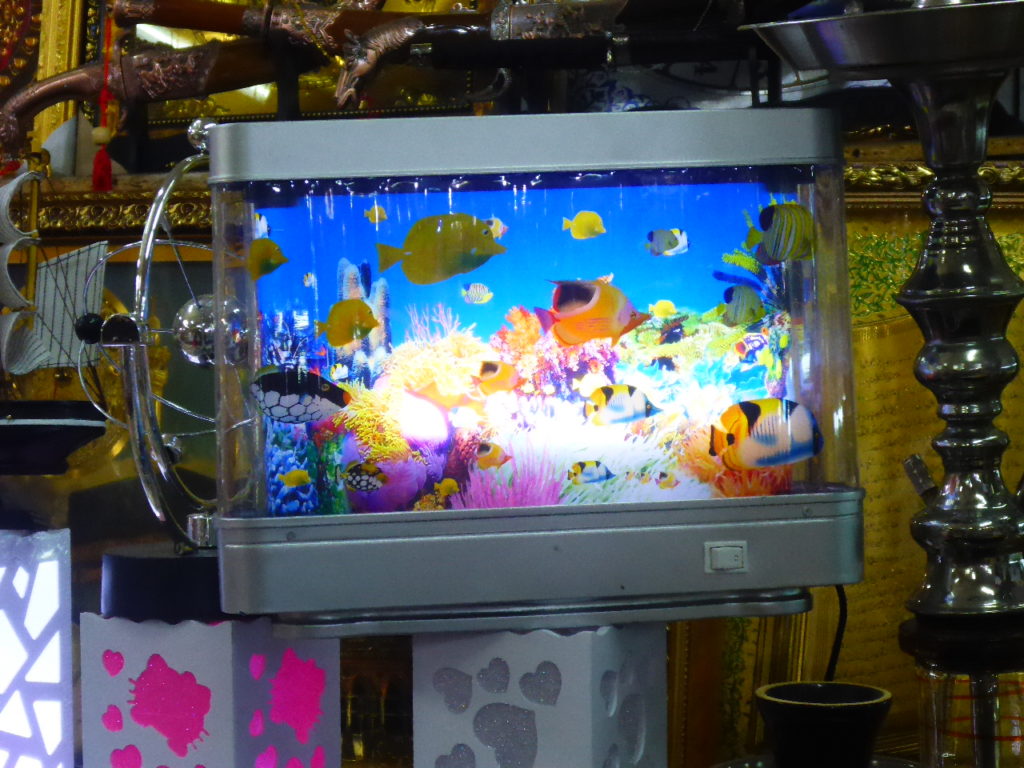
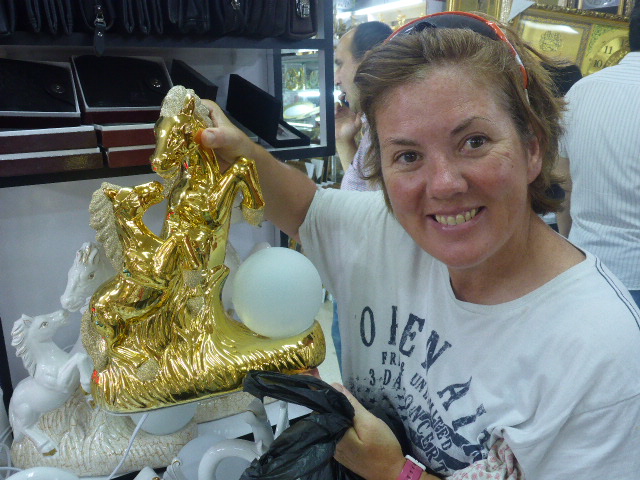
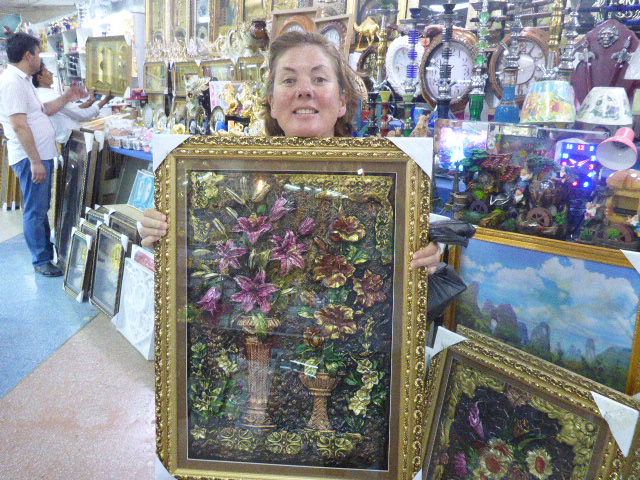
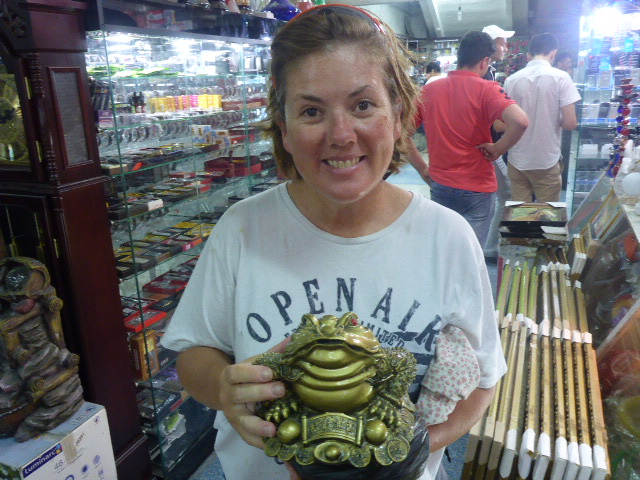
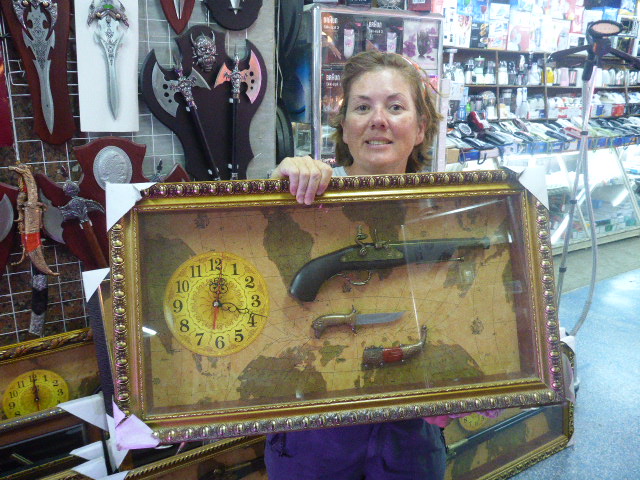
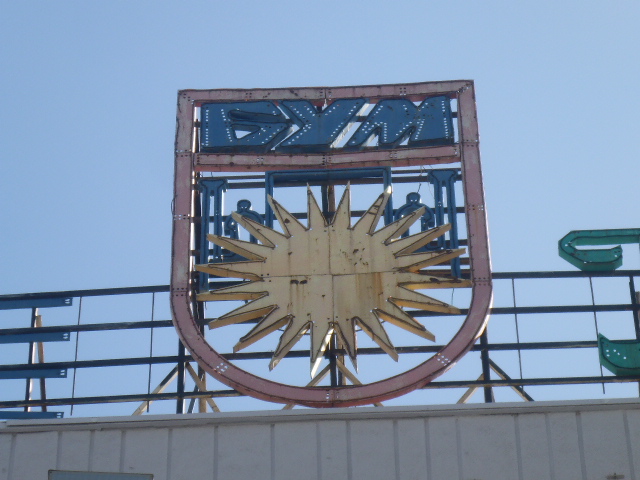
GUM an abbreviation of Russian: Glávnyj Universáĺnyj Magazín, literally “Main Universal Store”) is the name of the main department store in many cities of the former Soviet Union. Operated as a model retail enterprise for consumers throughout the Soviet Union regardless of class, gender, and ethnicity. GUM’s stores were used to further Bolshevik goals of rebuilding private enterprise along socialist lines and “democratizing consumption for workers and peasants nationwide”. In the end, GUM’s efforts to build communism through consumerism were unsuccessful and arguably “only succeeded in alienating consumers from state stores and instituting a culture of complaint and entitlement! “
We also visit the Observatory of Ulugbek, the astronomical miracle of medieval Uzbekistan.
Among historical monuments of Samarkand the observatory takes pride of place, constructed by Ulugbek in 1428-1429 on one of the hills of Samarkand.
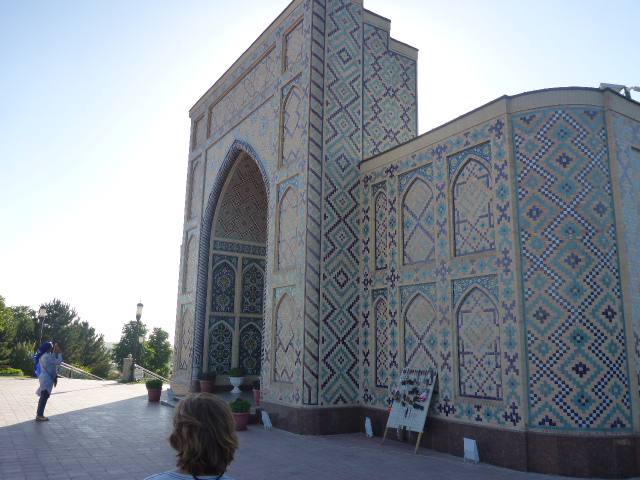
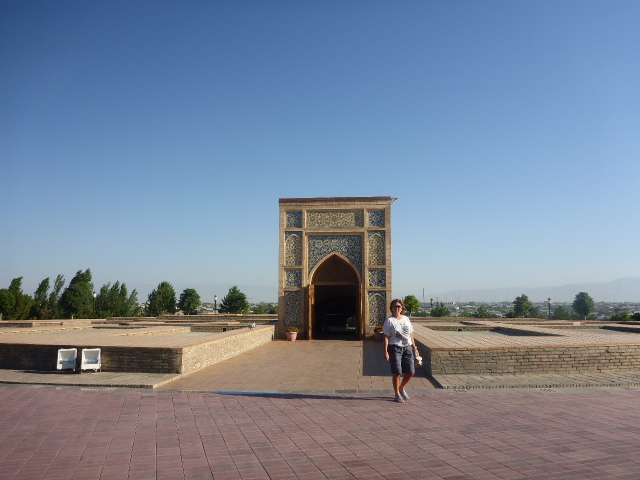
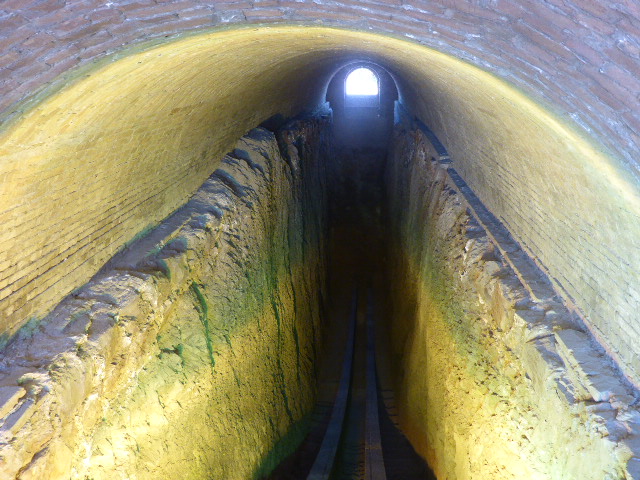
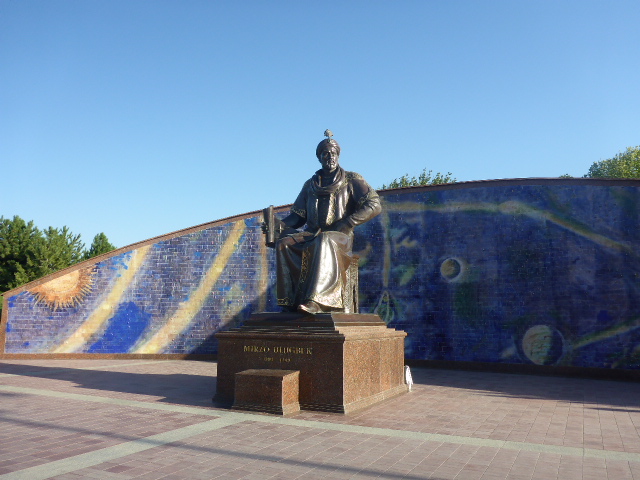
It was a round, three-storied tower covered with beautiful glazed tiles ; 46 meters in diameter, 30 meters in height. Inside was a huge quadrant 40 m in radius which was used for the observation of the Sun, Moon and other celestial bodies. The Samarkand observatory became famous for the edition of the “Ulugbeg Zidj”, containing a theoretical introduction and charts describing 1,018 stars.
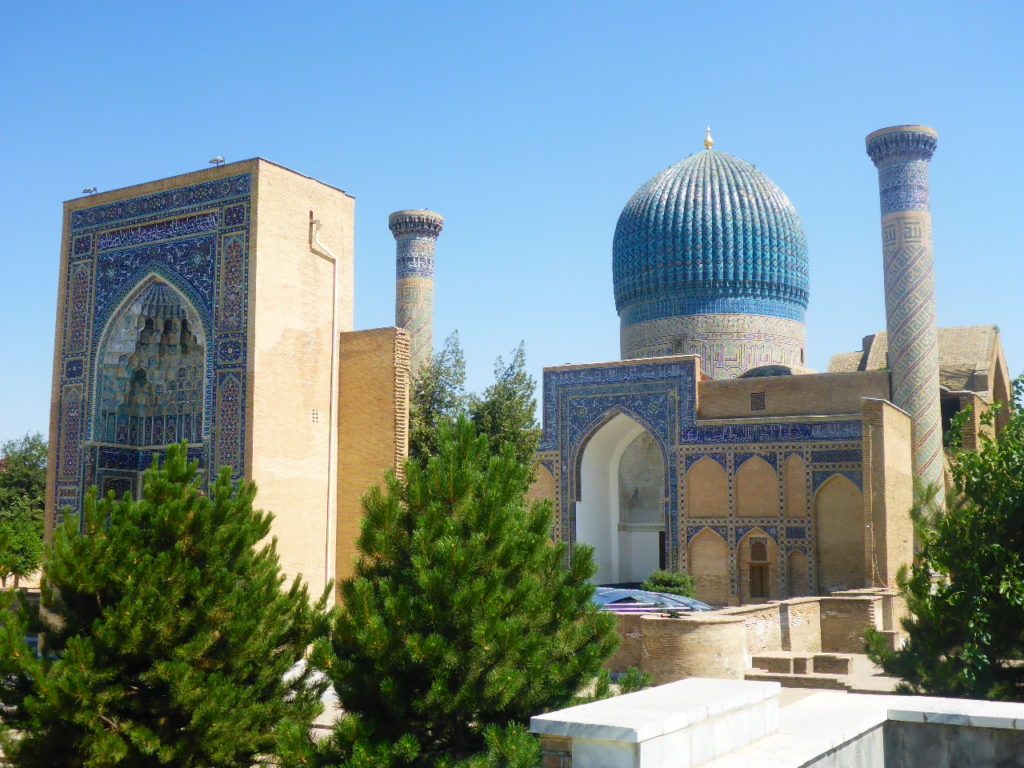
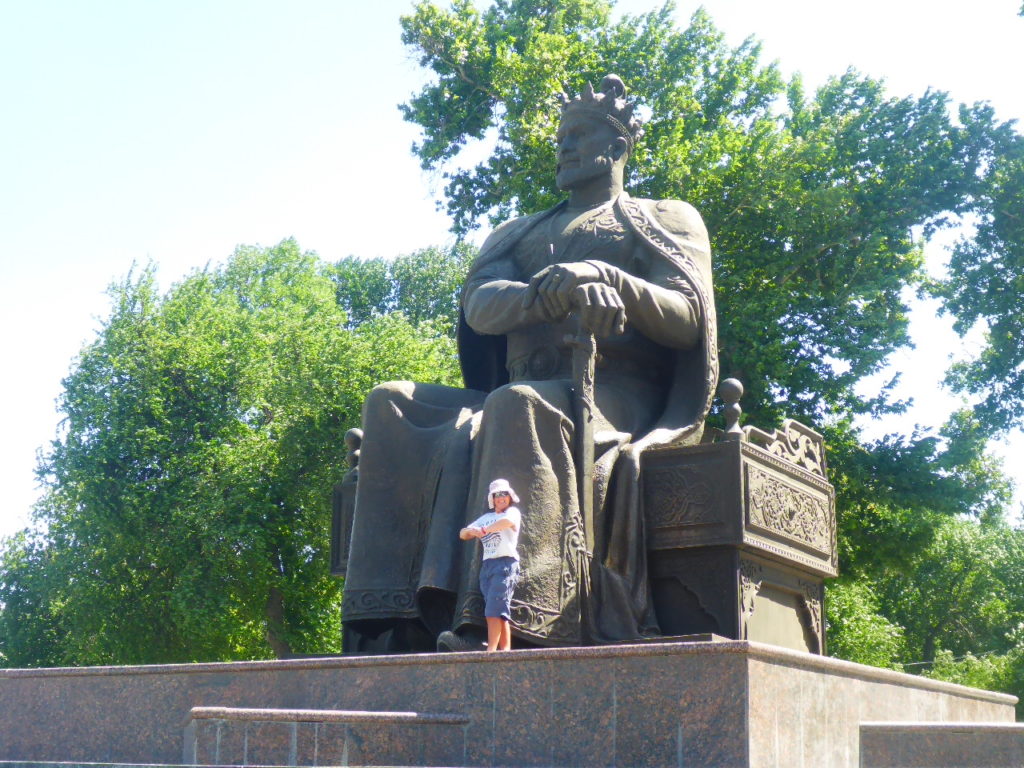
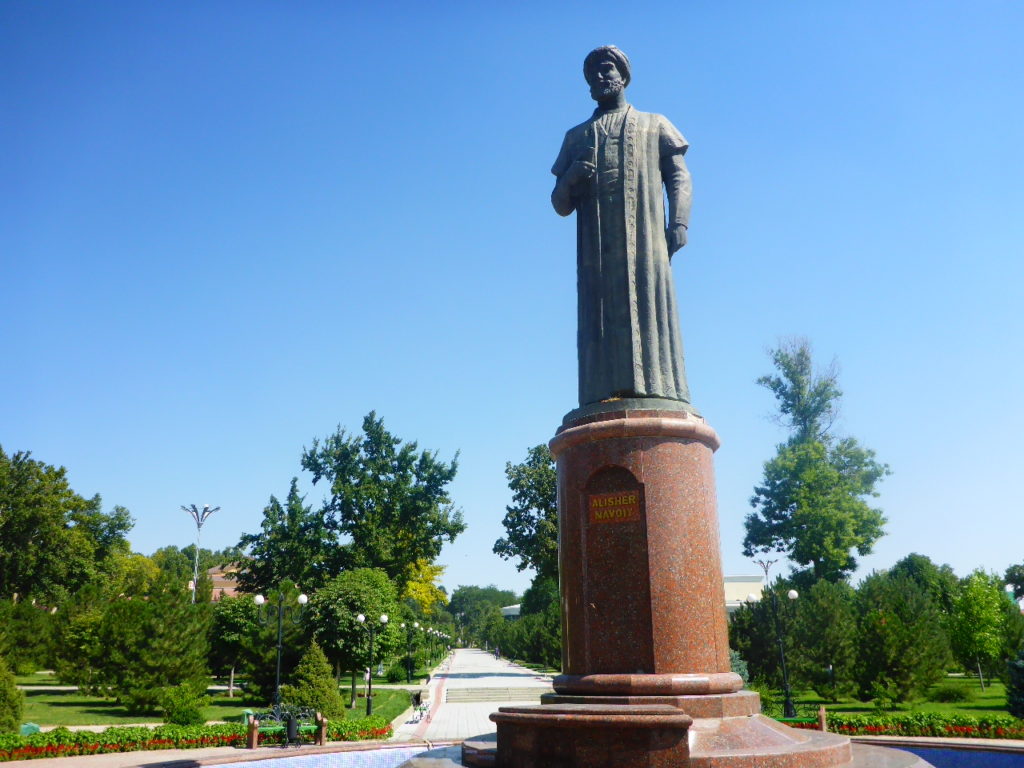
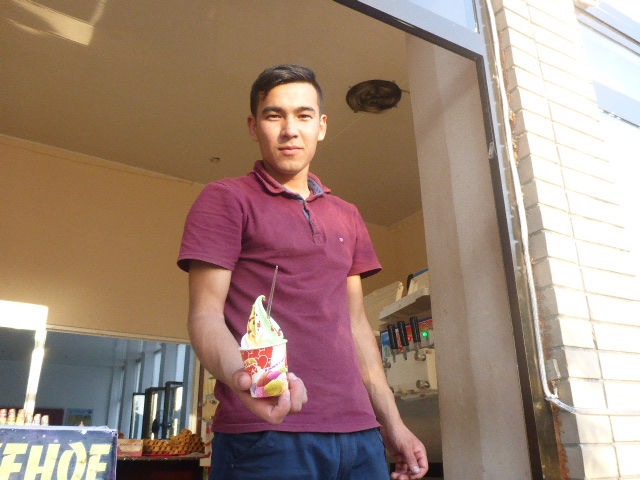
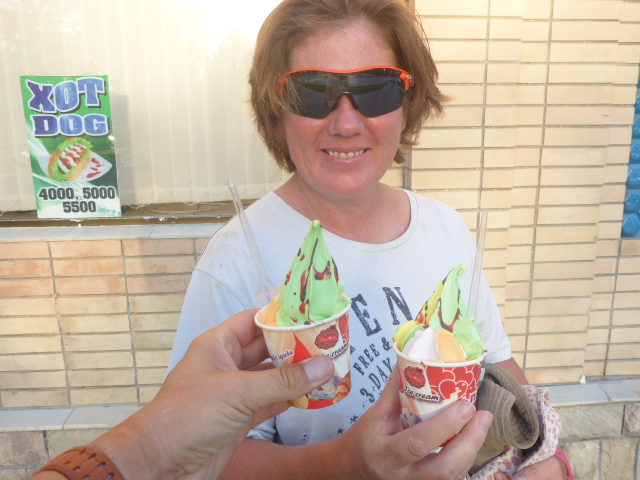
Later we see a wedding celebration in progress. Incredibly elaborate affairs. Nikokh-Tui, wedding, is the most solemn and large Uzbek ceremony. Traditionally Uzbek people celebrate weddings very richly and cheerfully with peculiar splendor and abundance of guests. Immediate and remote relatives, neighbors, friends and co-workers are invited to this wedding ceremony.
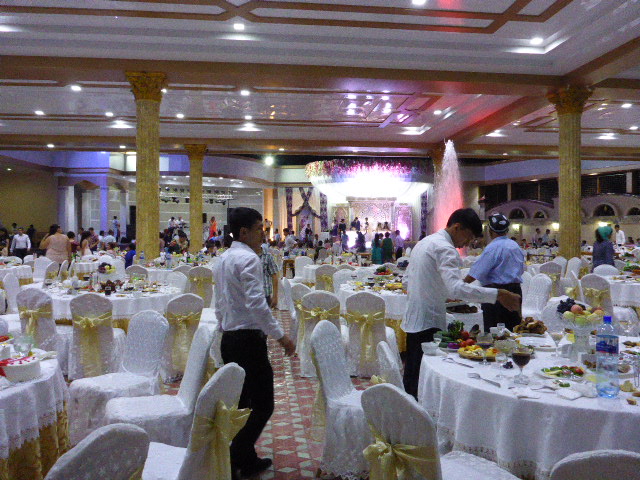
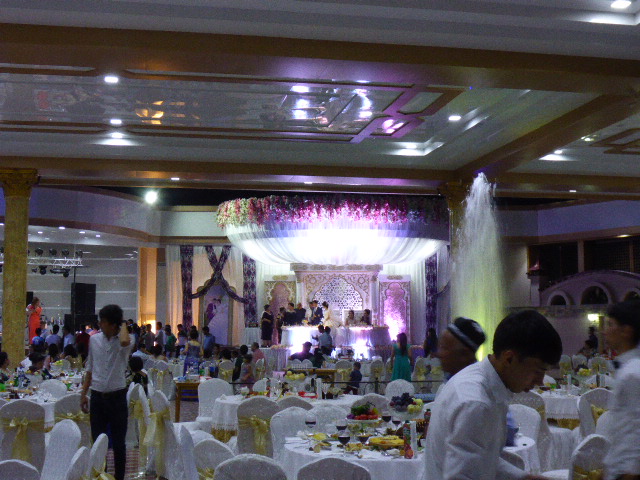
Friday 7th July
Samarkand to Tashkent by train.
Happy birthday to me!! Sadly not a day of treats and pampering, but a train trip to Tashkent. We were going to catch a bus but the hotel proprietor says it’s just as cheap to get a taxi. In Uzbekistan there are lots of yellow taxis but if you stick your hand out any passing car will pull over and if going in the right direction, and for a little money will take you. They will also stop to pick up other passengers who may be going the same way!
At the train station we inexplicably get waved through the VIP section, considering we are in shorts, t-shirts and crocs it must be because we look like rich folk slumming it! Again after some consternation we find the right platform and then wait. And wait. British Rail standards!
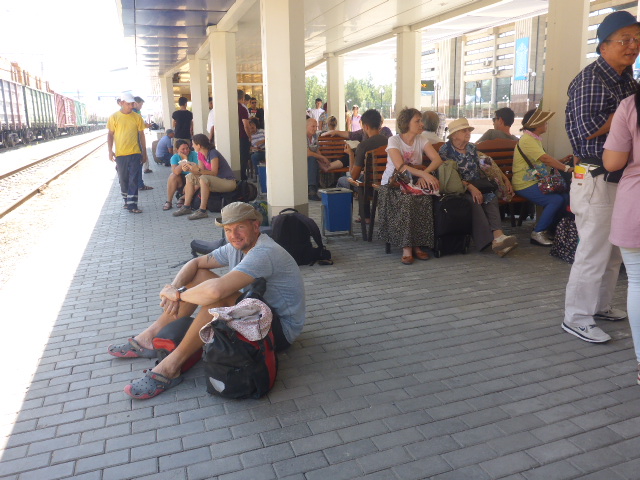
Eventually the train finally arrives, 40 minutes late. We find our carriage and plonk ourselves down, only to be rudely moved on. We’re in the wrong seats. What follows is 4 hours of sweating discomfort. There is air-conditioning but not sufficient to cool the carriage even with all the blinds down. It’s a murky twilight filled with hot, irritated passengers. It’s such a relief when we pull into Tashkent. We extract ourselves from the oven and rush into the hot, baking air outside.
We had planned to stay in a hotel in Tashkent, but Andy, the Defence Attache, comes to our rescue and offers to put us up at his place. He has just returned from leave and his family are still away. So he has spare room and it’s another beautiful British Embassy pad – thank you Andy, thank you FCO.
Andy’s house
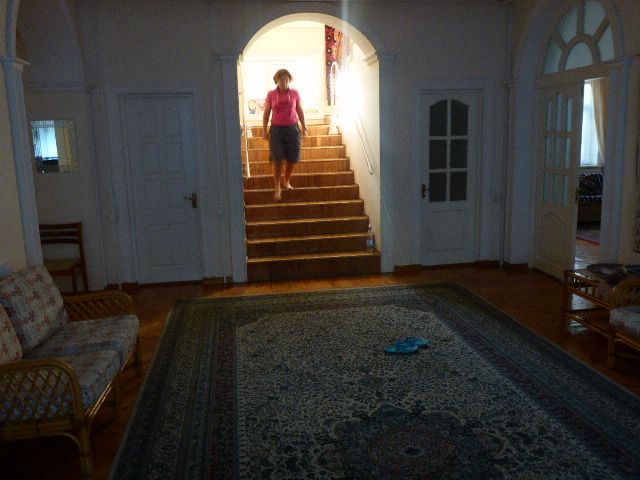
Andy has to go back to work so we’re left to our own devices! Look what we’ve found – a TV with UK channels and a Star Trek movie. So we sit on a sofa, mesmerised by the moving pictures unable to do more than grunt at each other. God I miss TV! Andy returns from work and has bad news. The parcels that have had 3 weeks to get here, ain’t here. Fxxk, Fxxk, Fxxk! Bad news. We need a plan B. This evening Andy is hosting a training team from 1 Rifles, Chepstow who have been training the Uzbek Army and we’re invited. Whopppeee. We go out to a lovely restaurant fashioned into a castle.
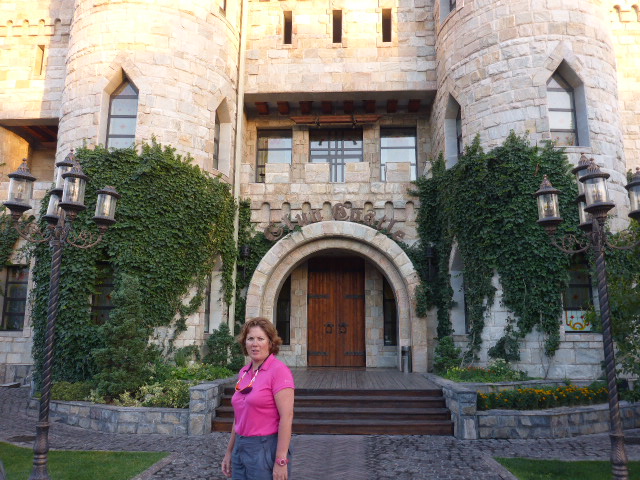
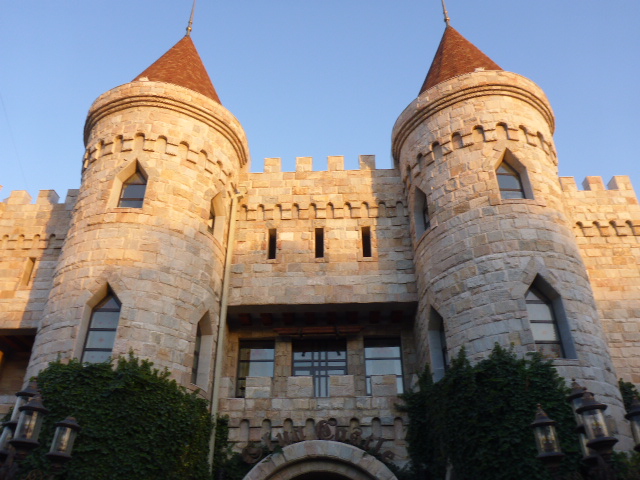
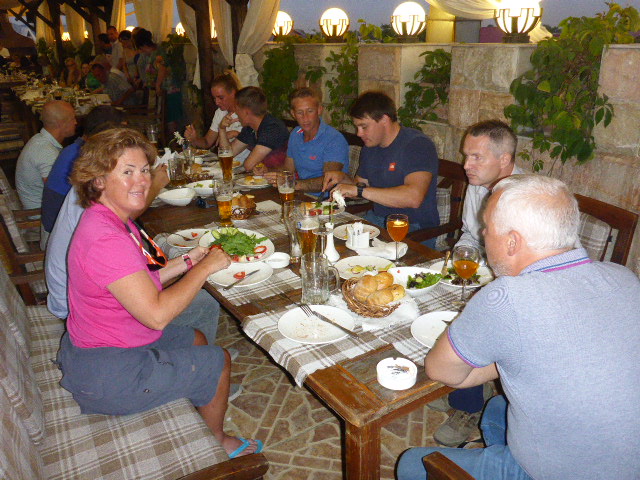
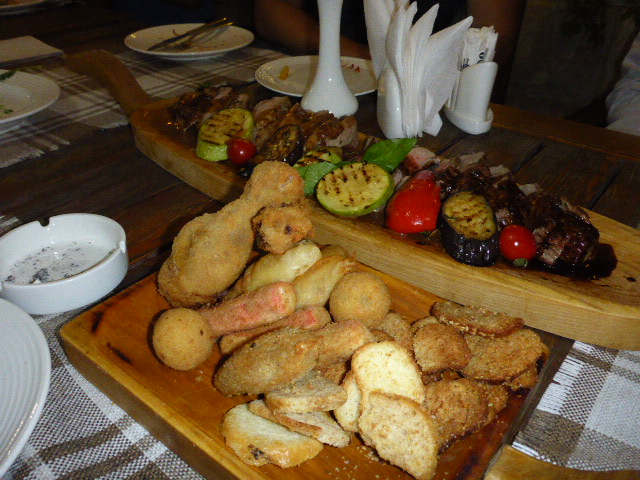
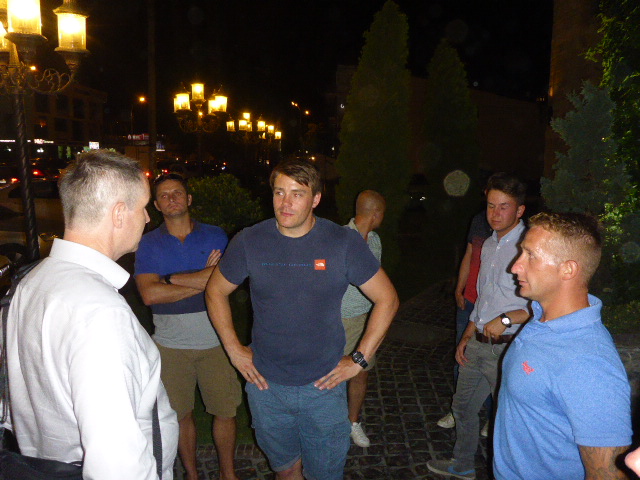
The food’s great, lovely setting and great company; it’s interesting being with 8 young soldiers. I know it’s several years since we left and many more since we were juniors but the tales they tell paint a depressing picture of Army life in 2017!
Saturday 8th July
Sightseeing in Tashkent
We spend the day seeing the sights of Tashkent – The Capital of Uzbekistan.
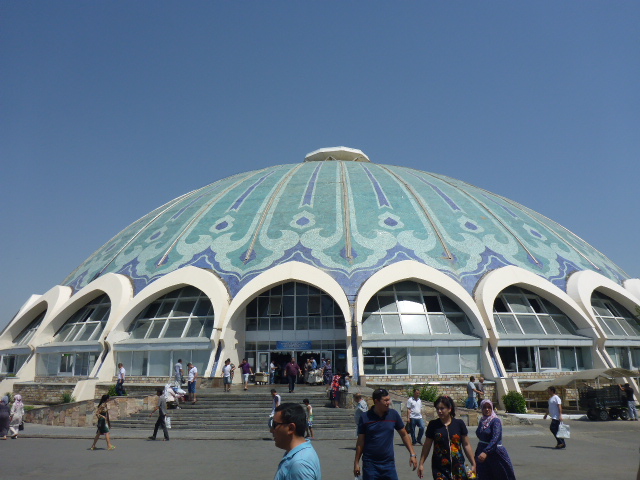
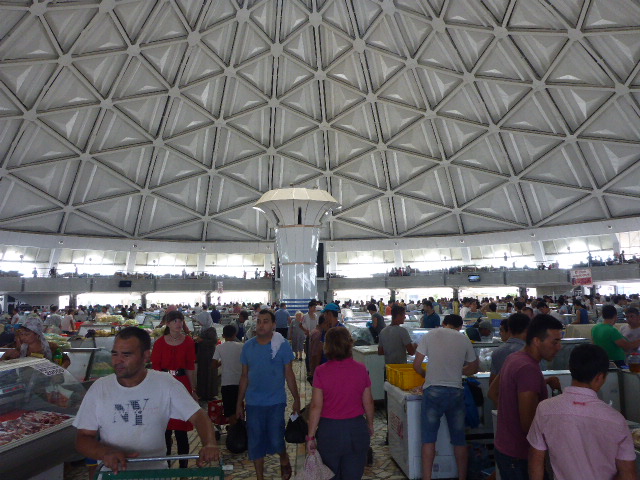
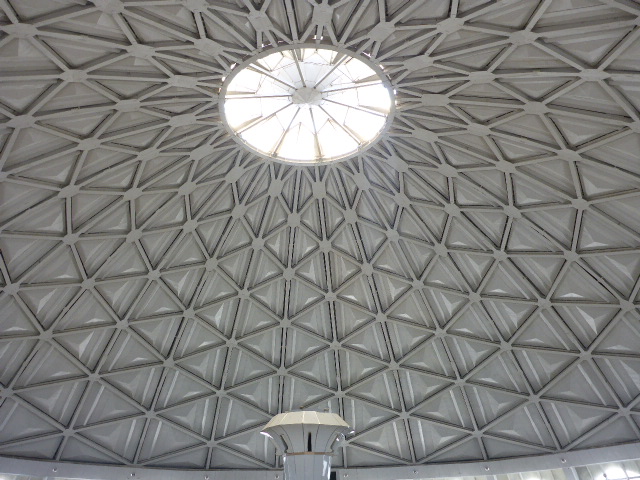
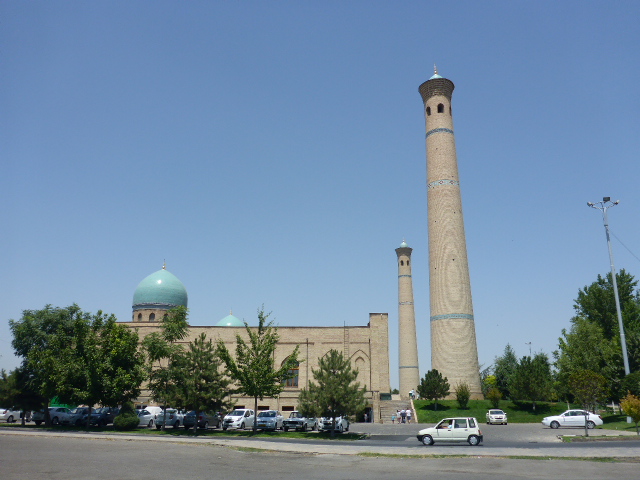
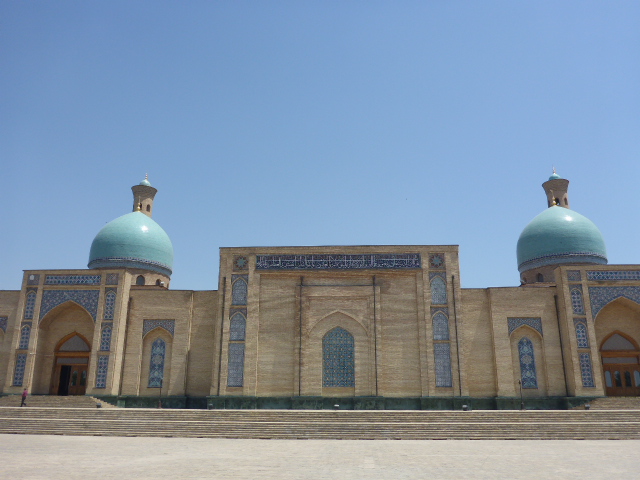
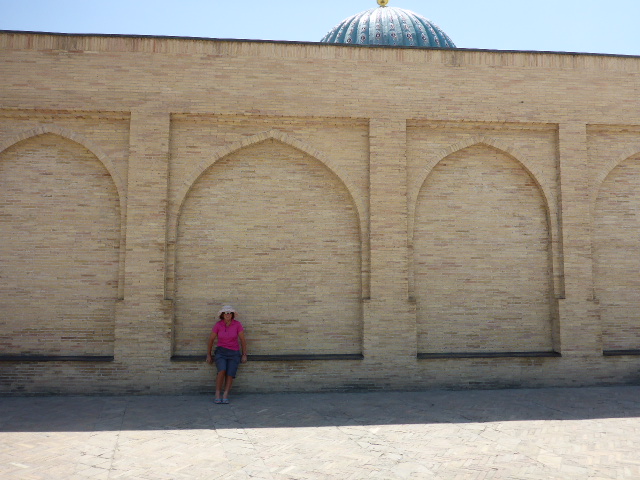
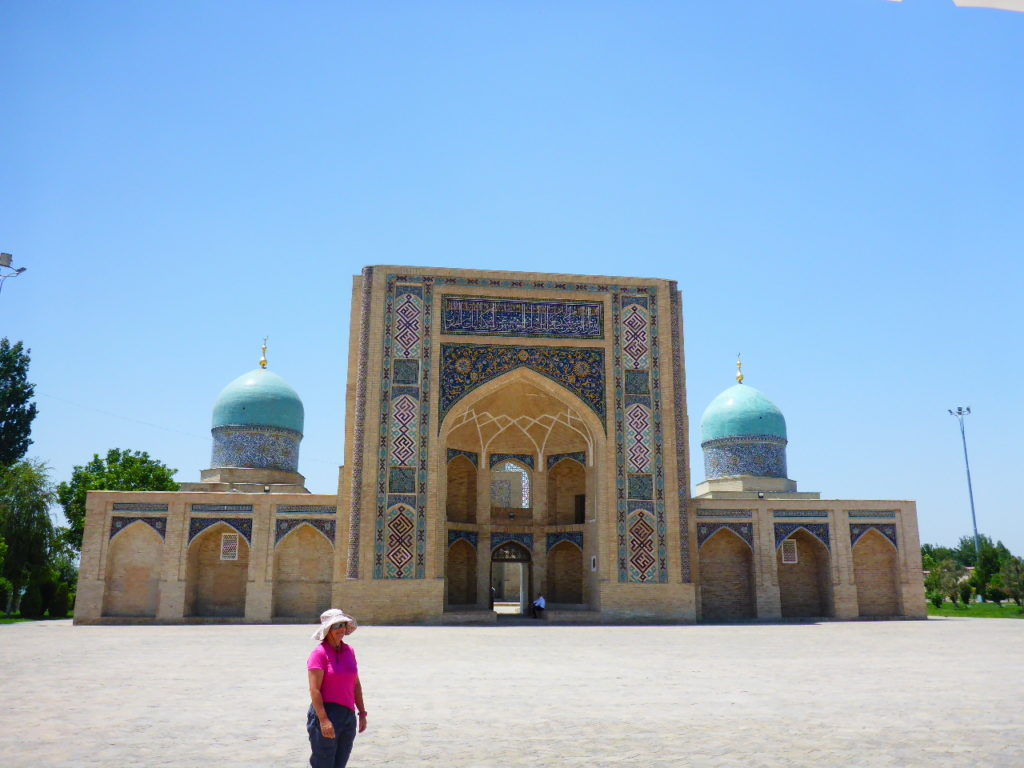
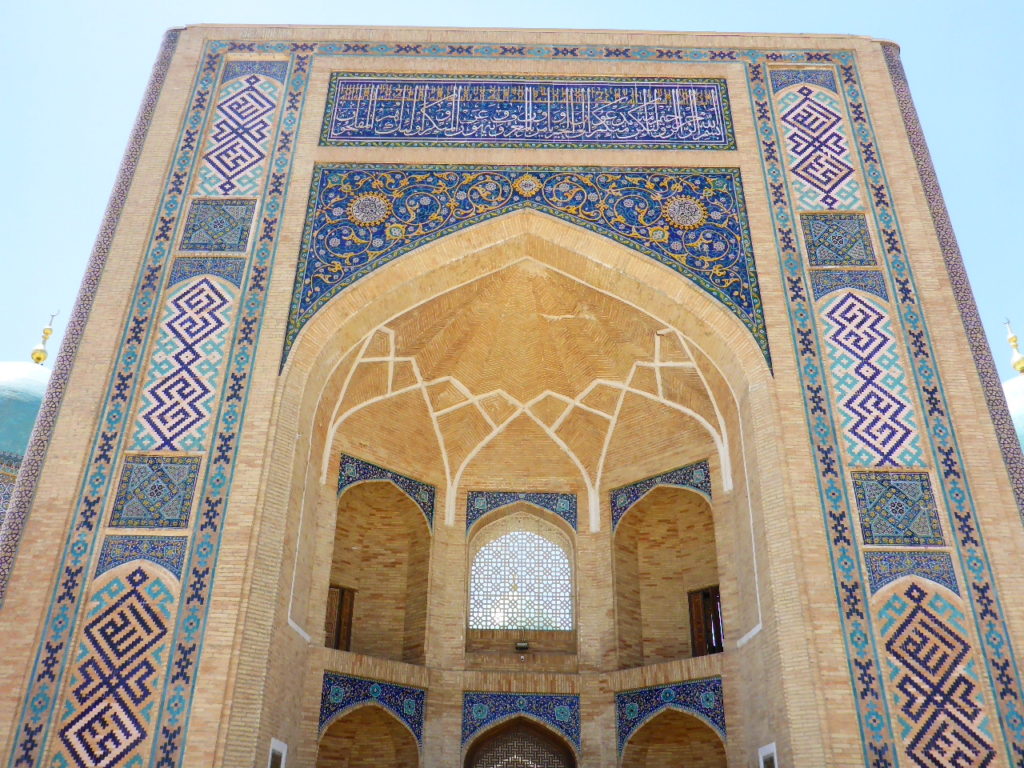
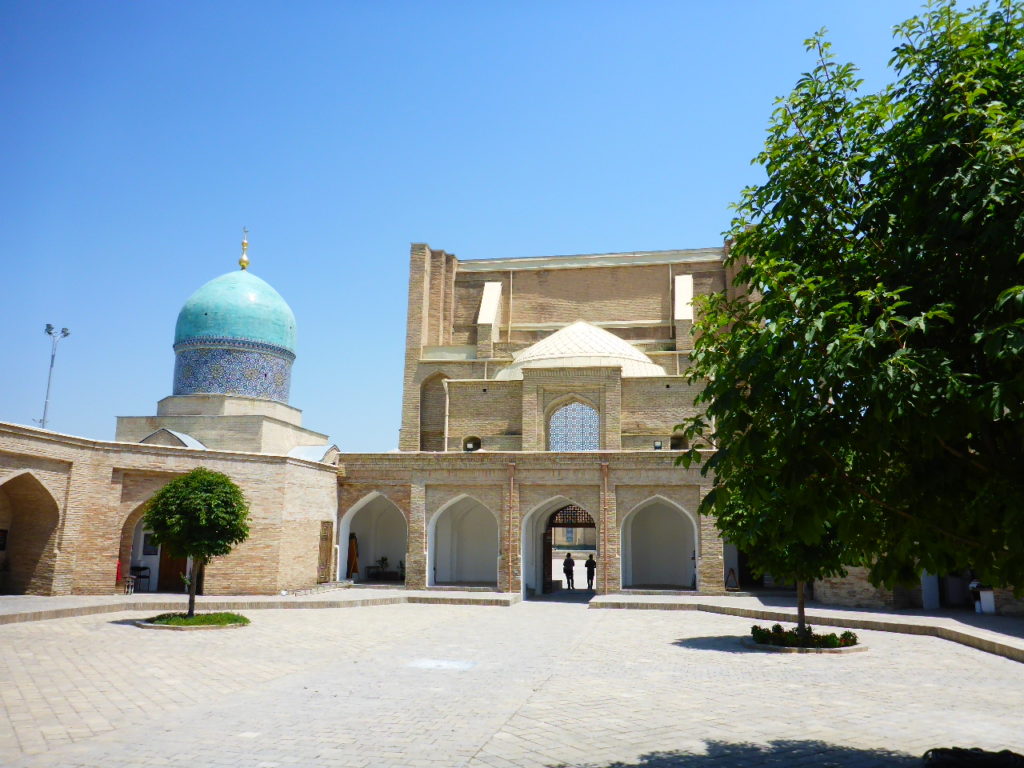
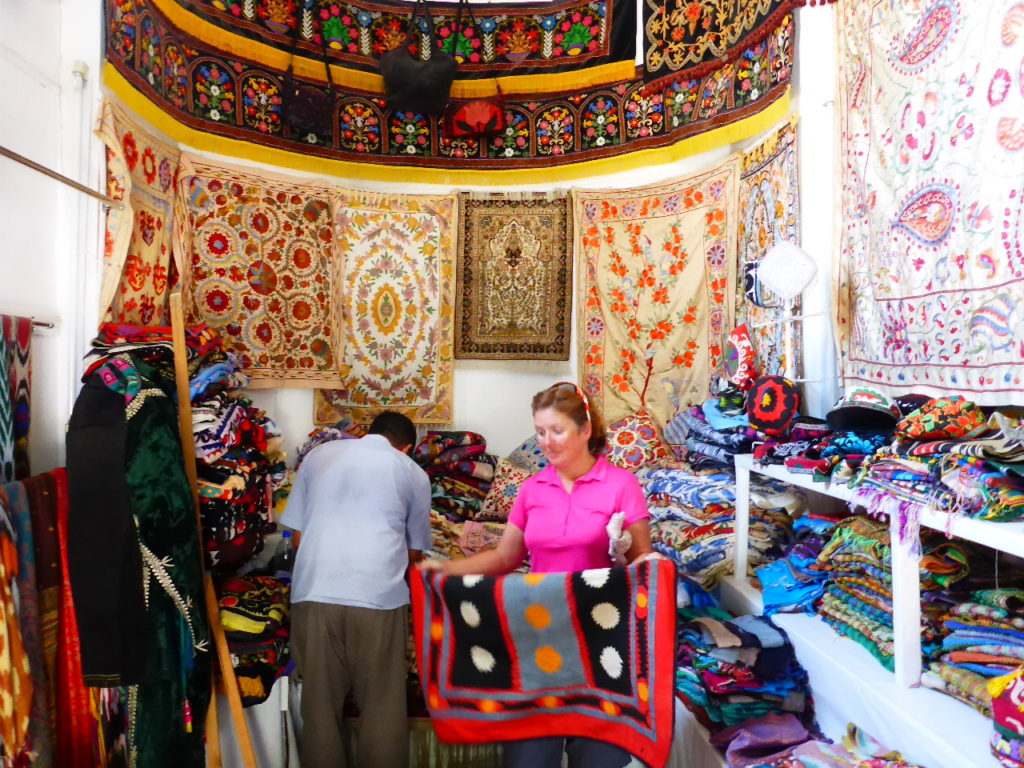
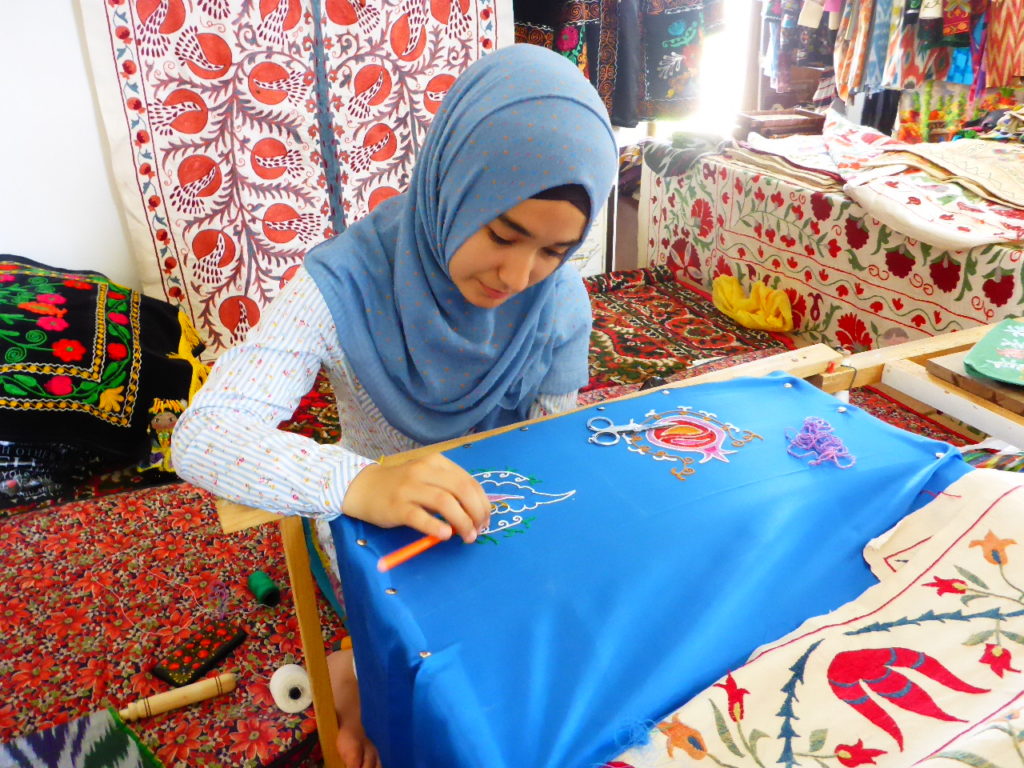
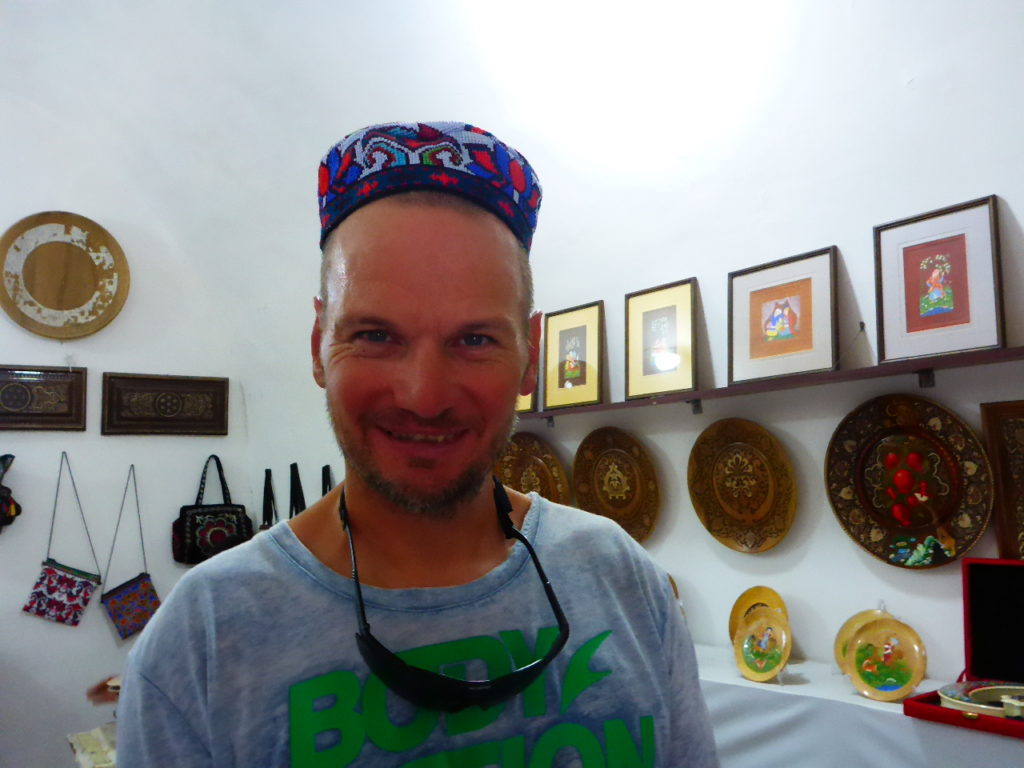
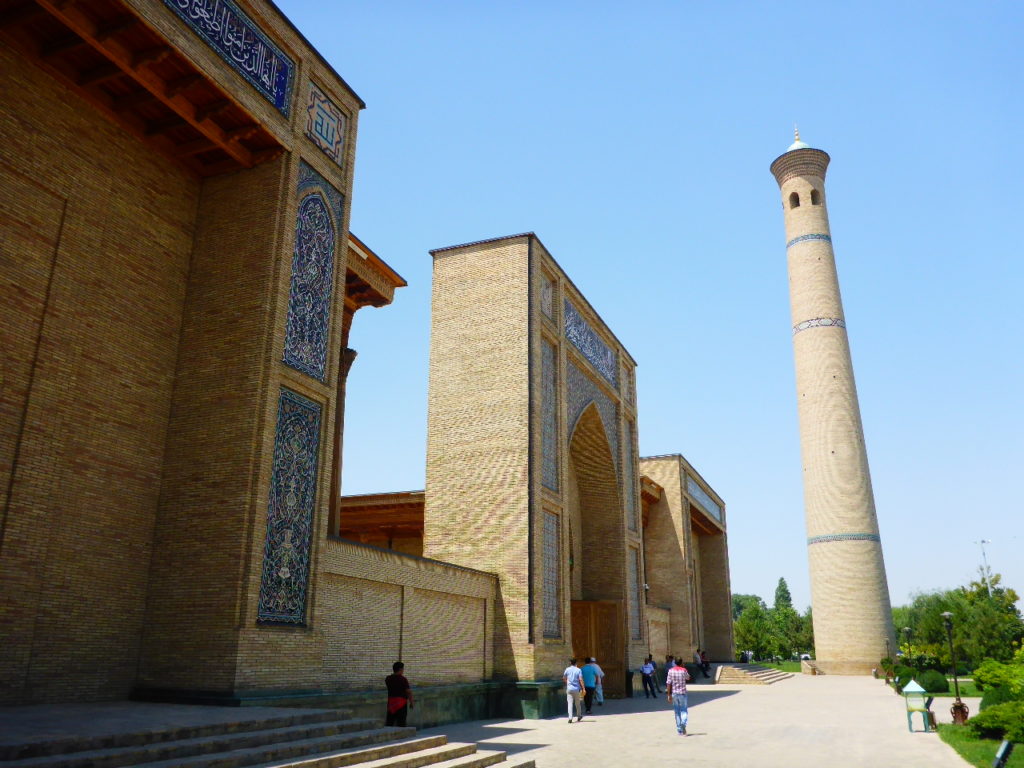
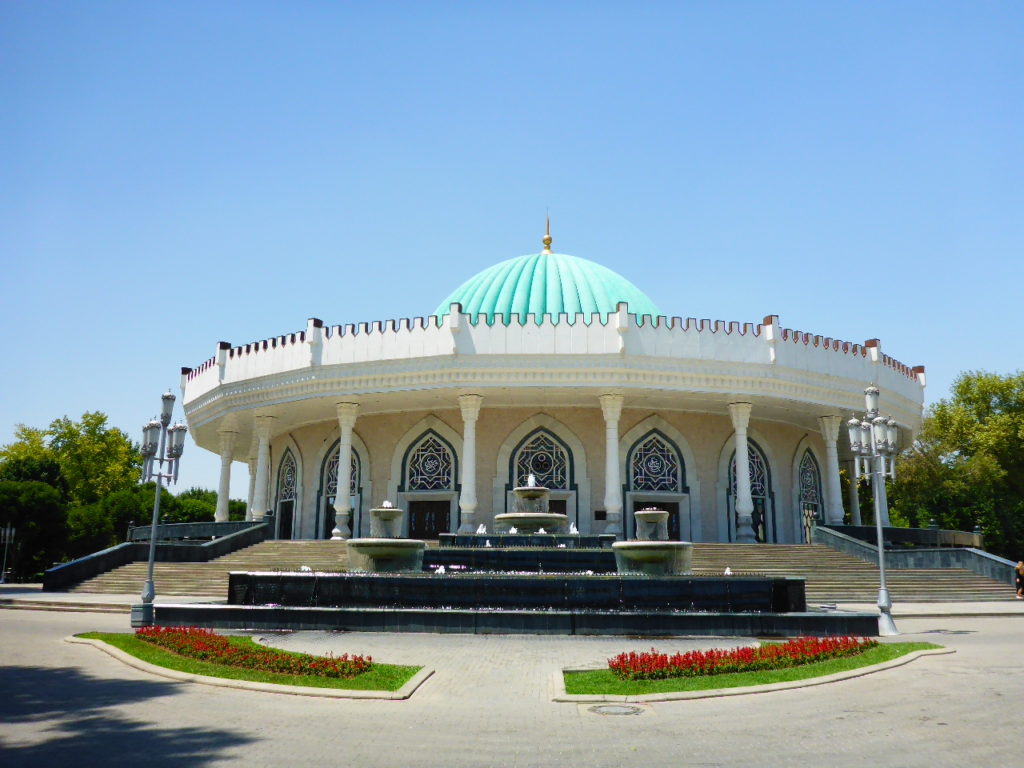
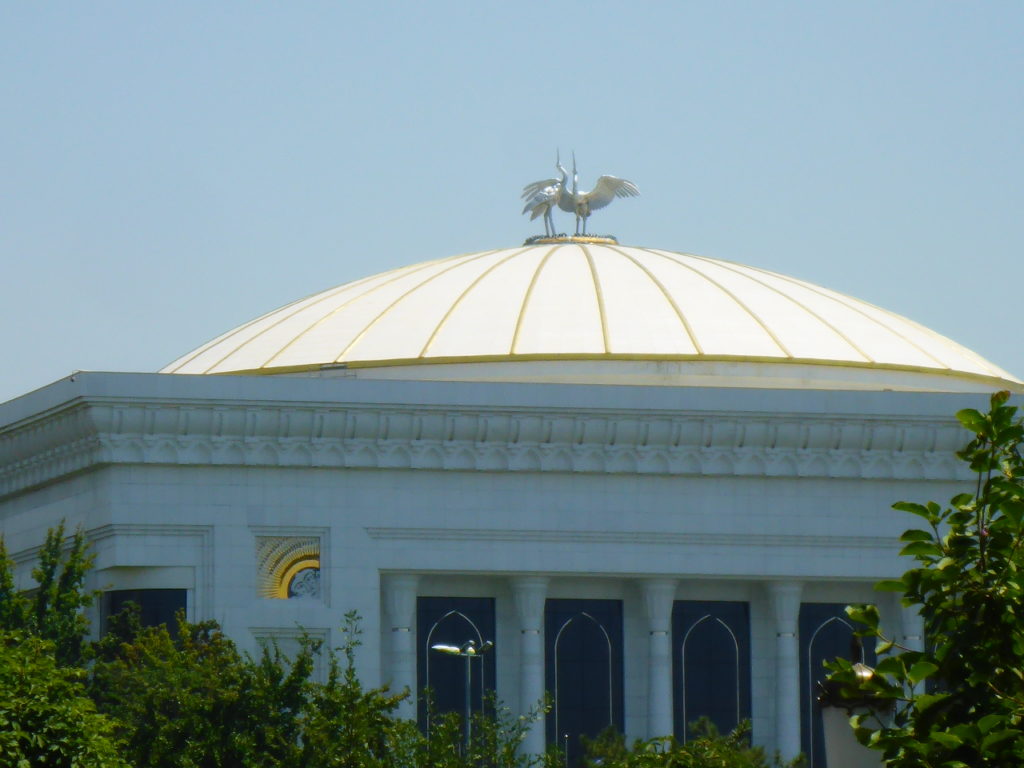
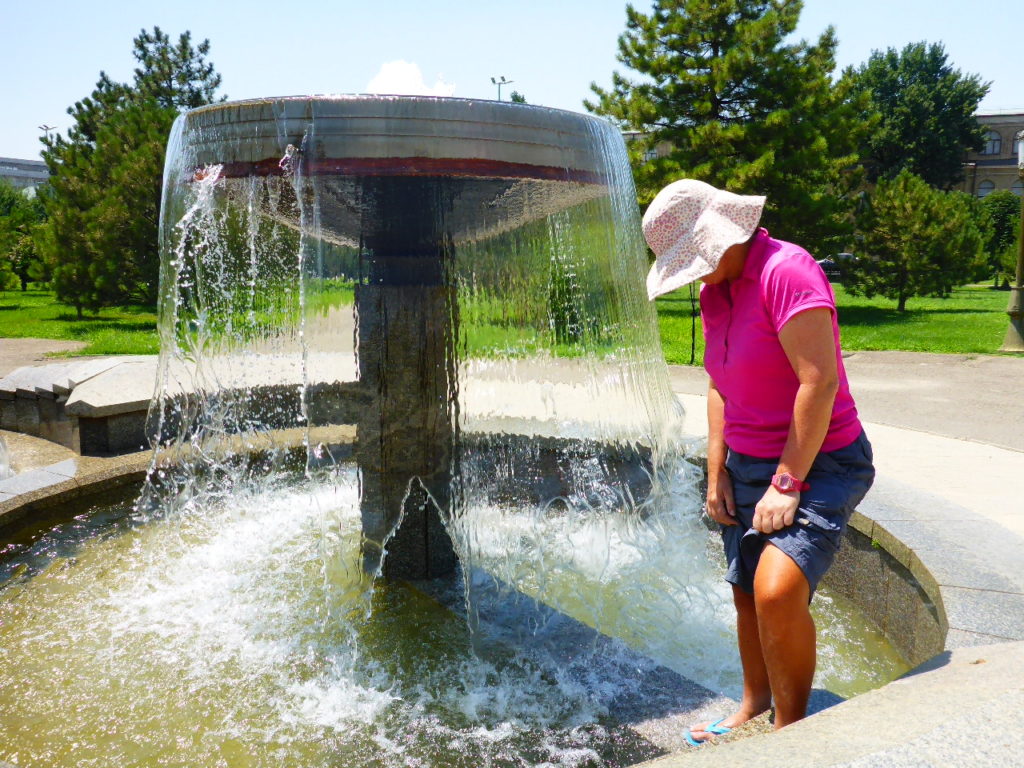
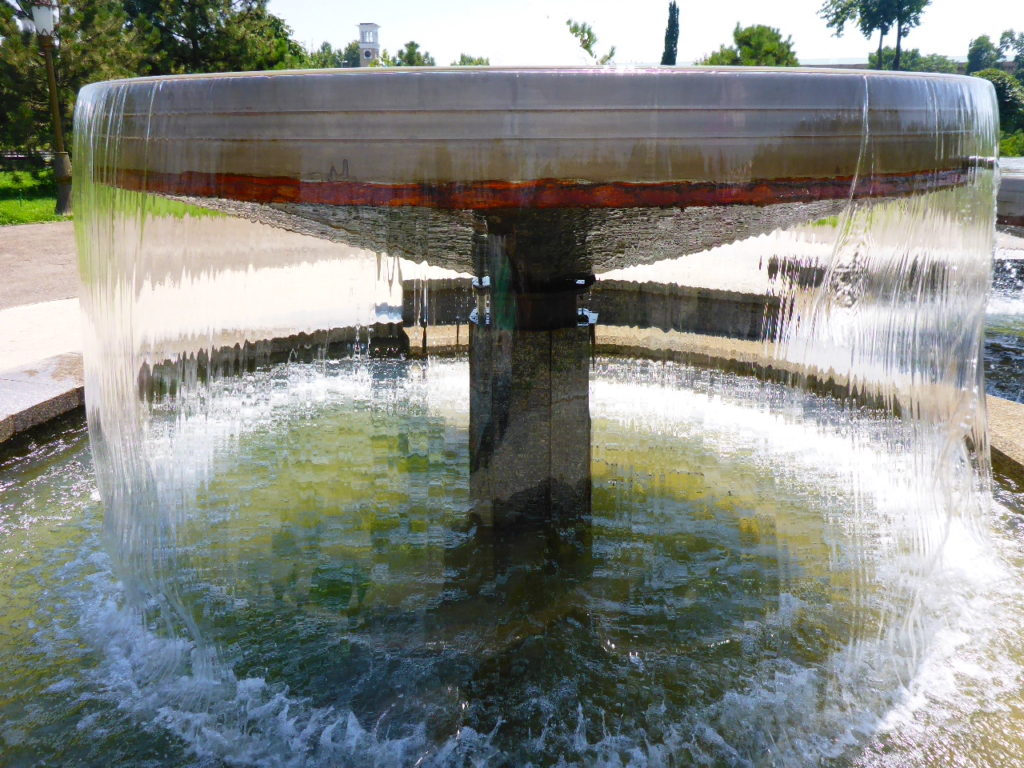
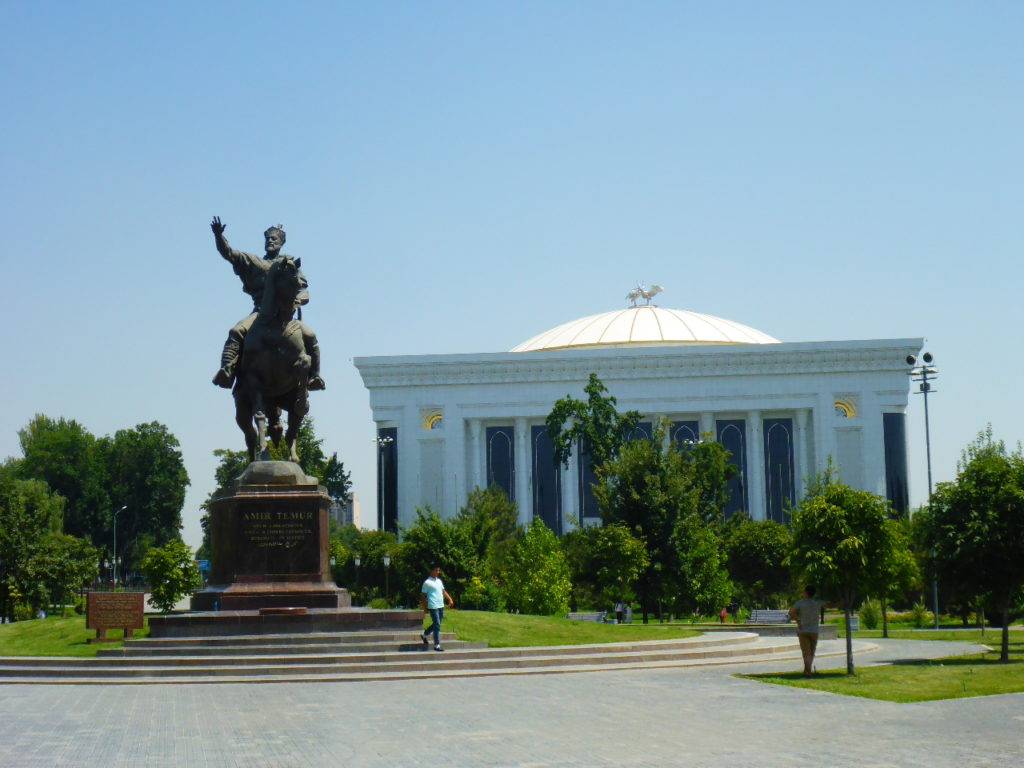
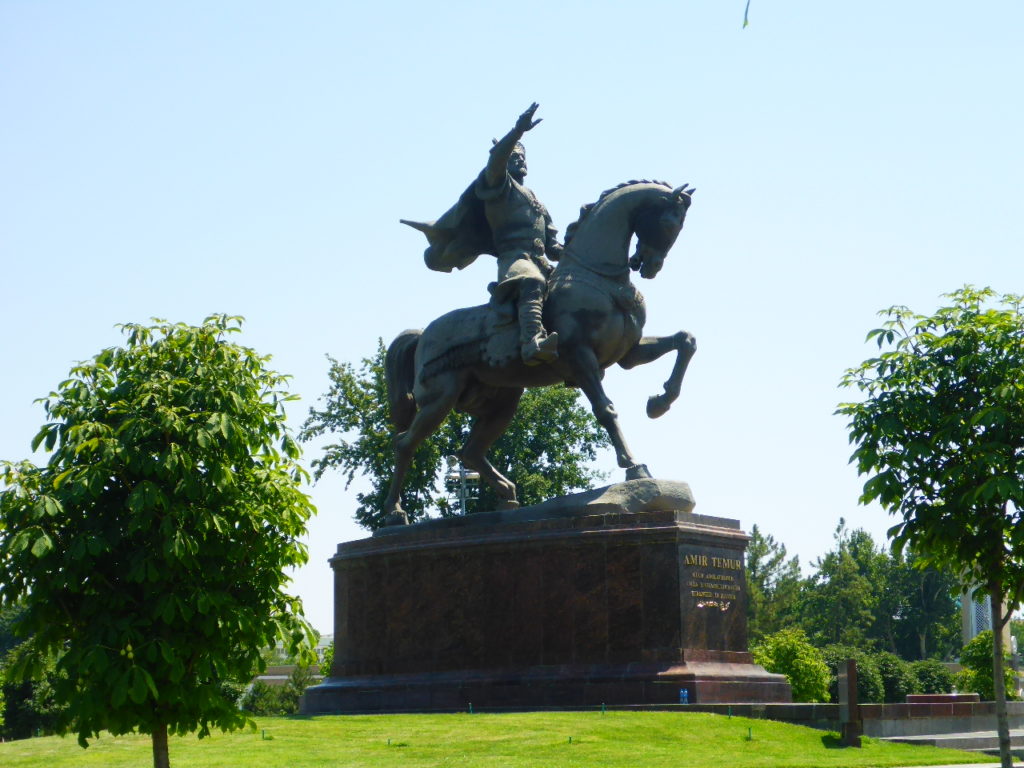
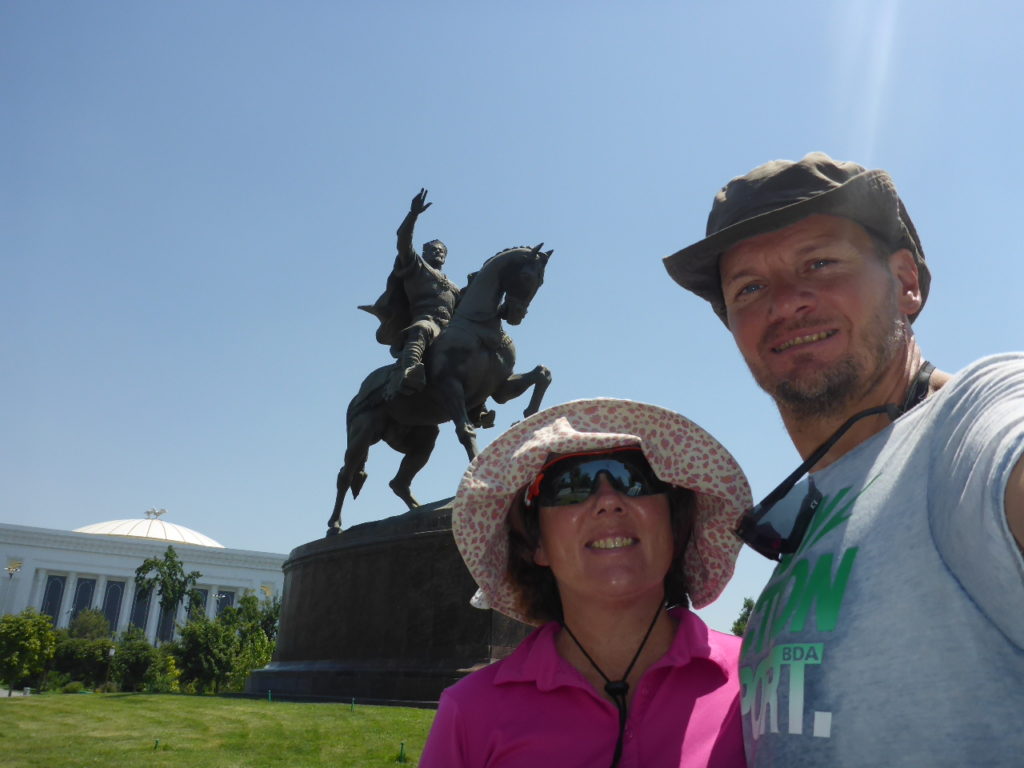
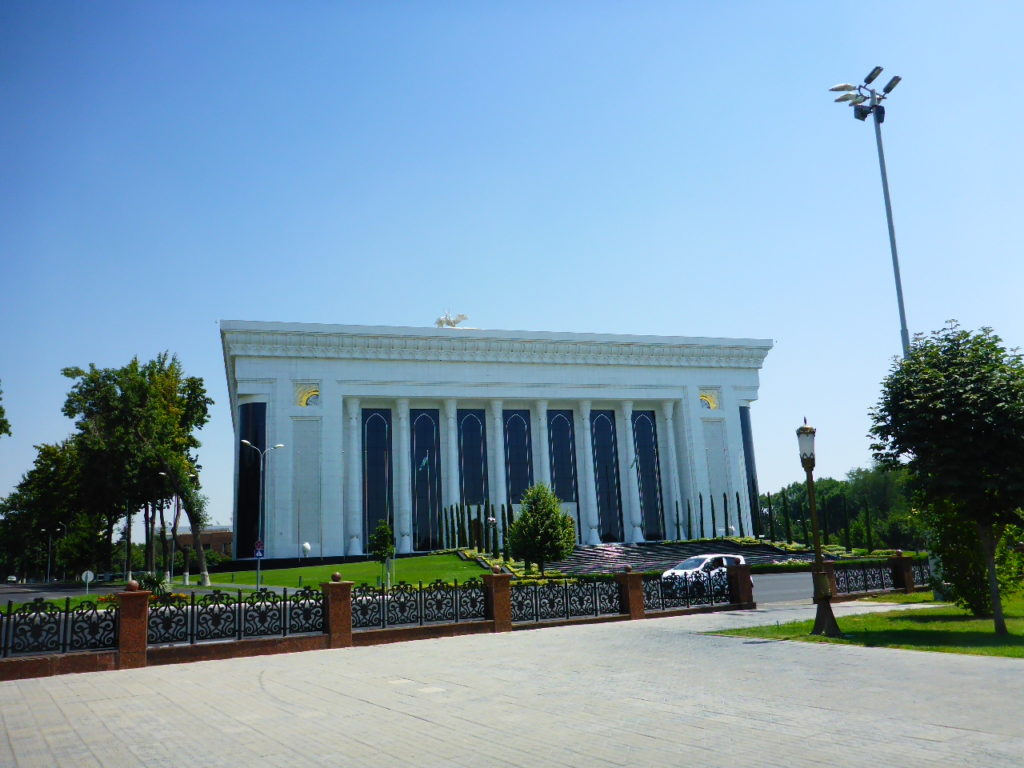
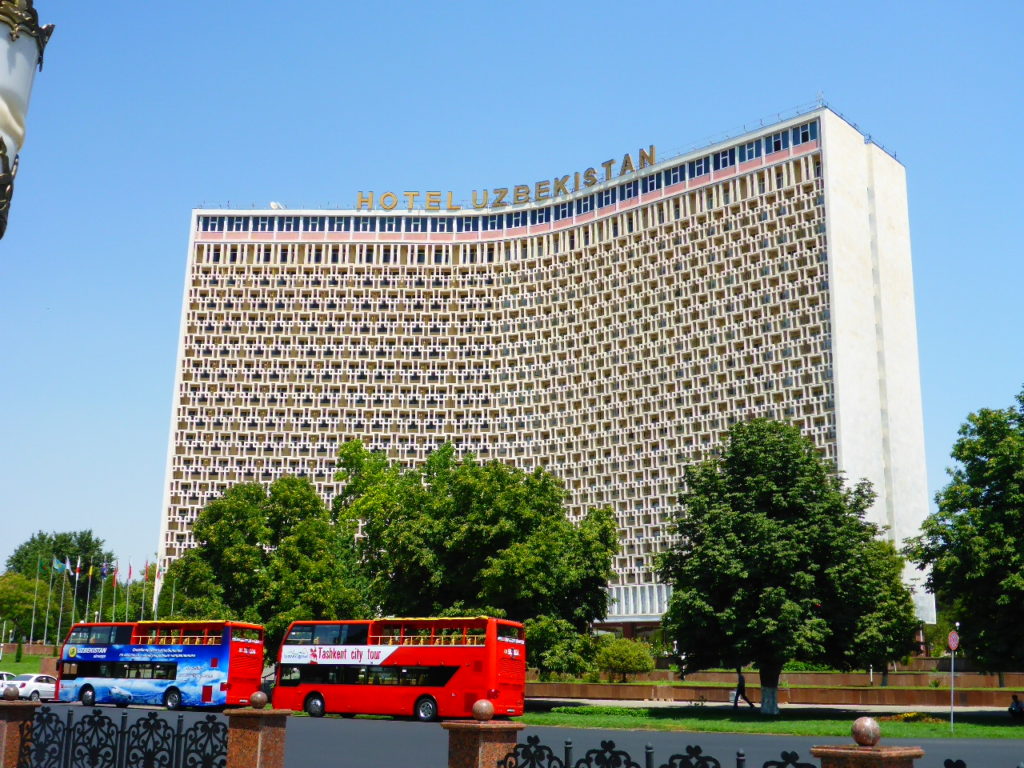
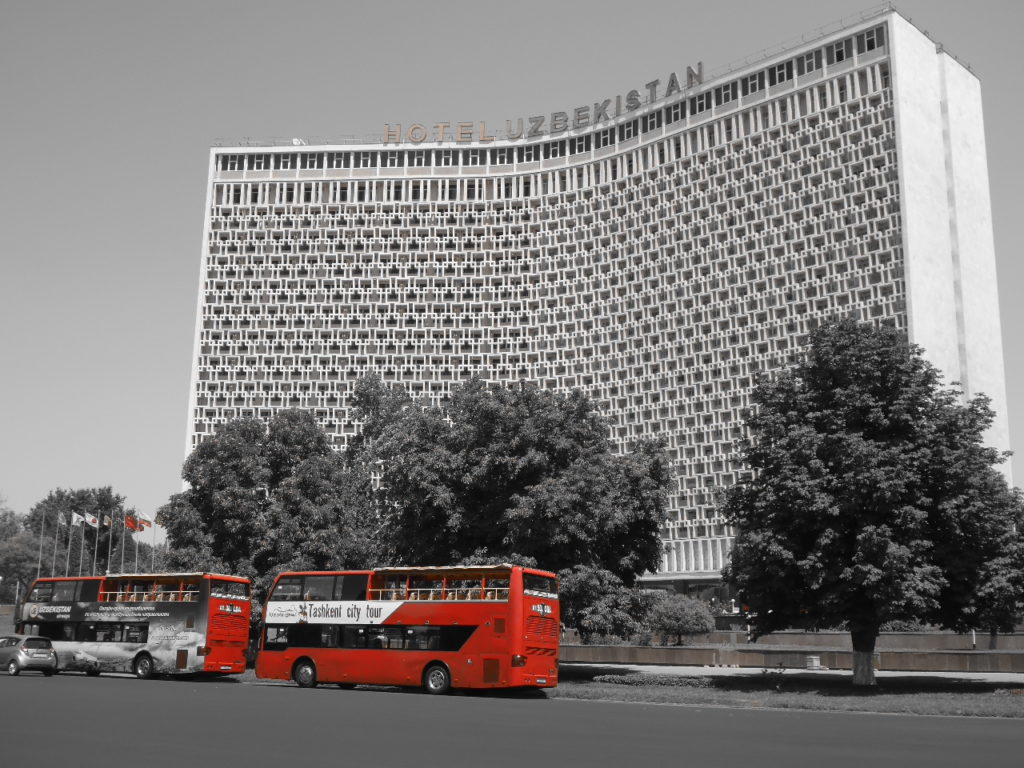
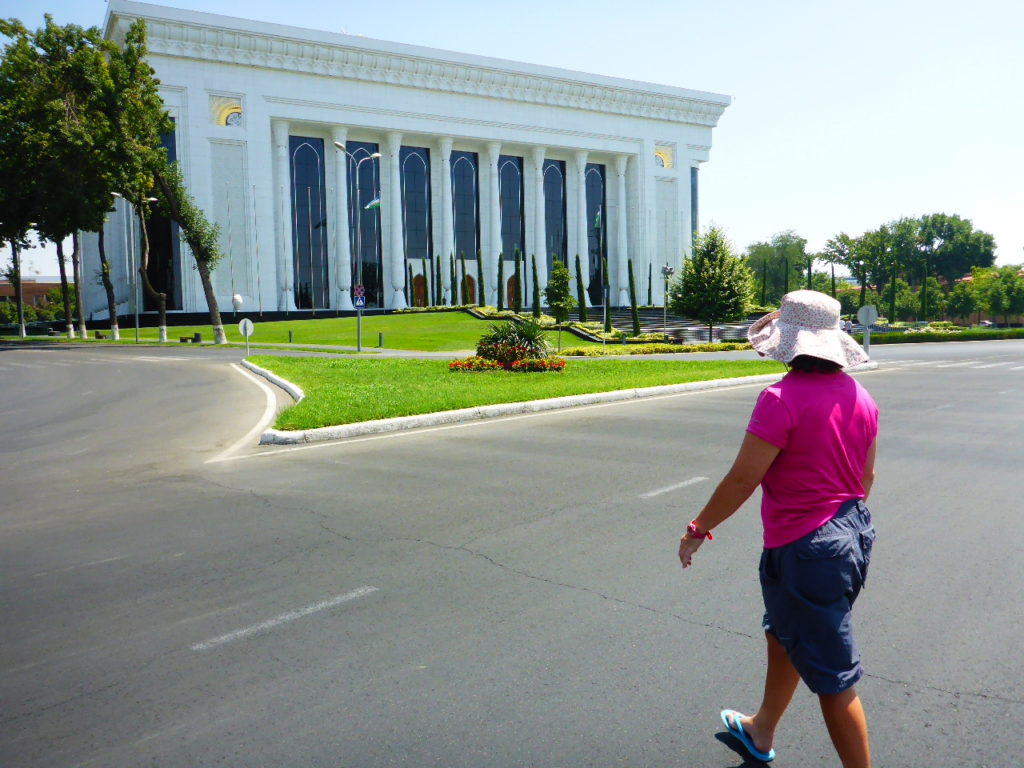
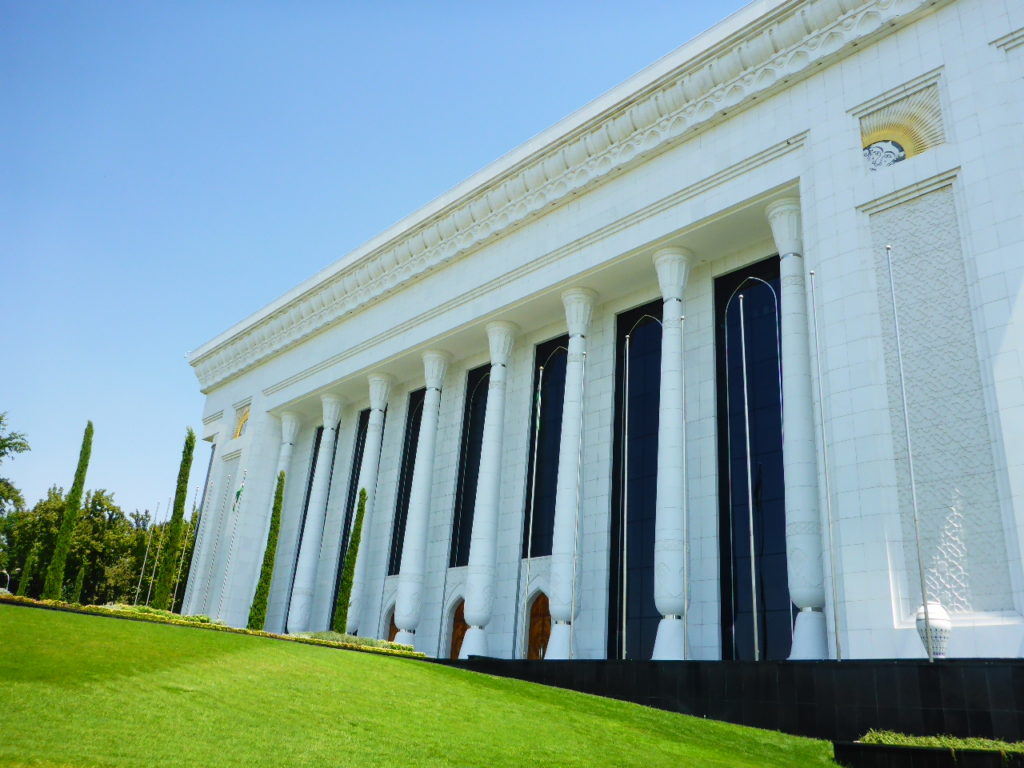
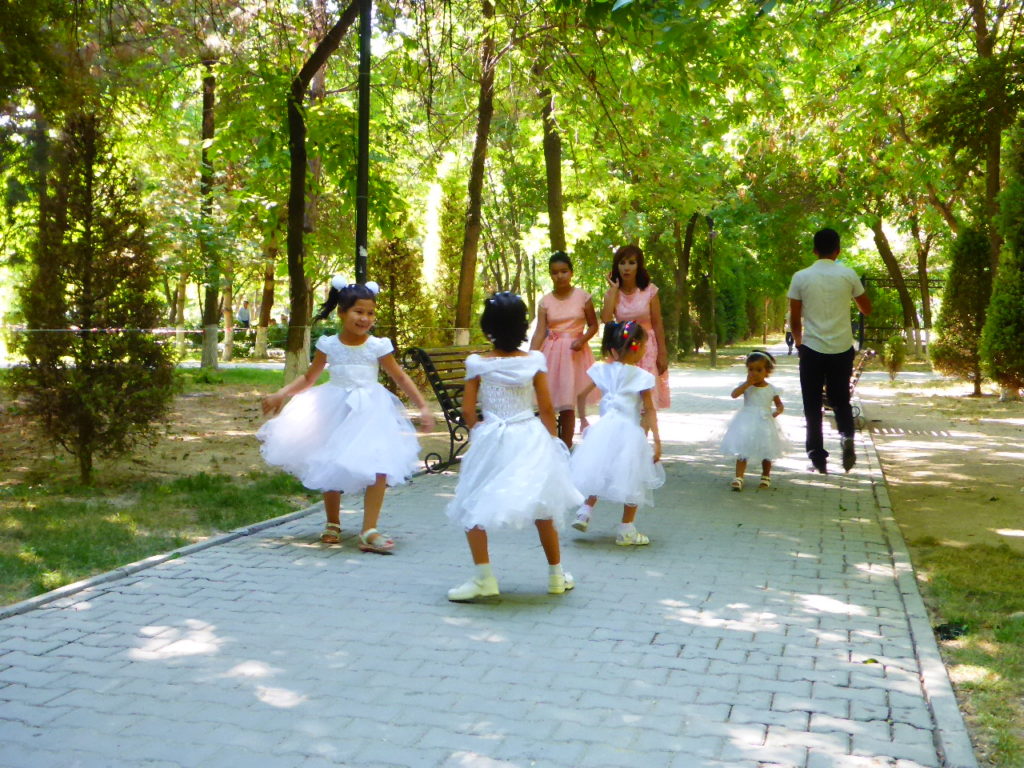
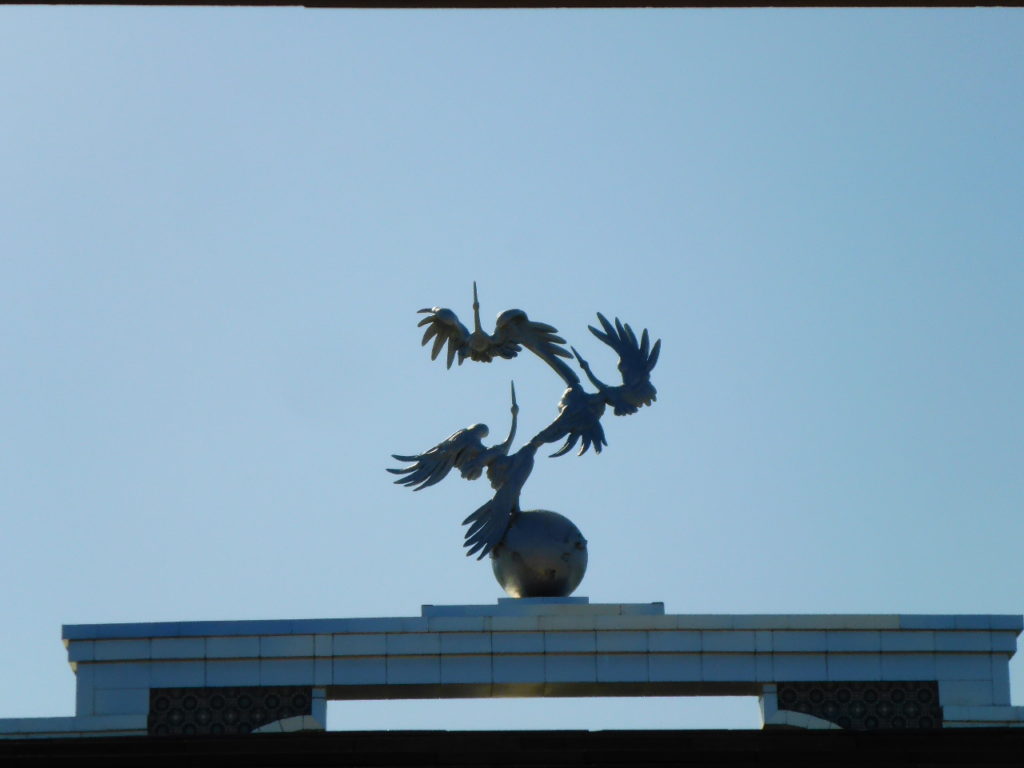
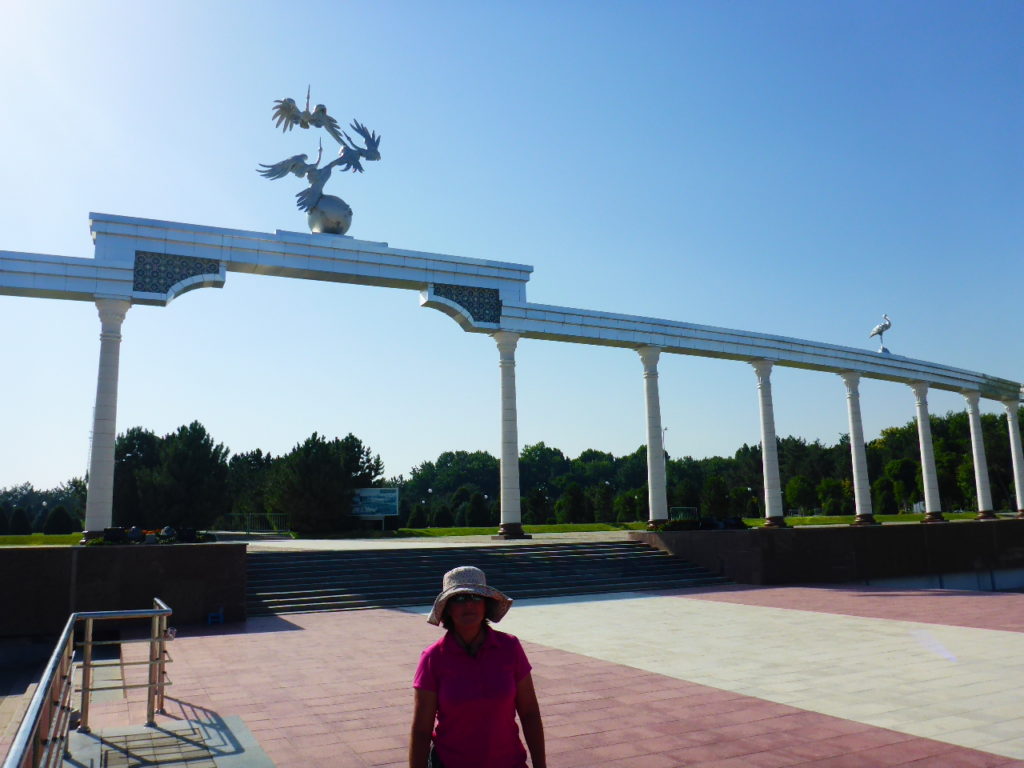
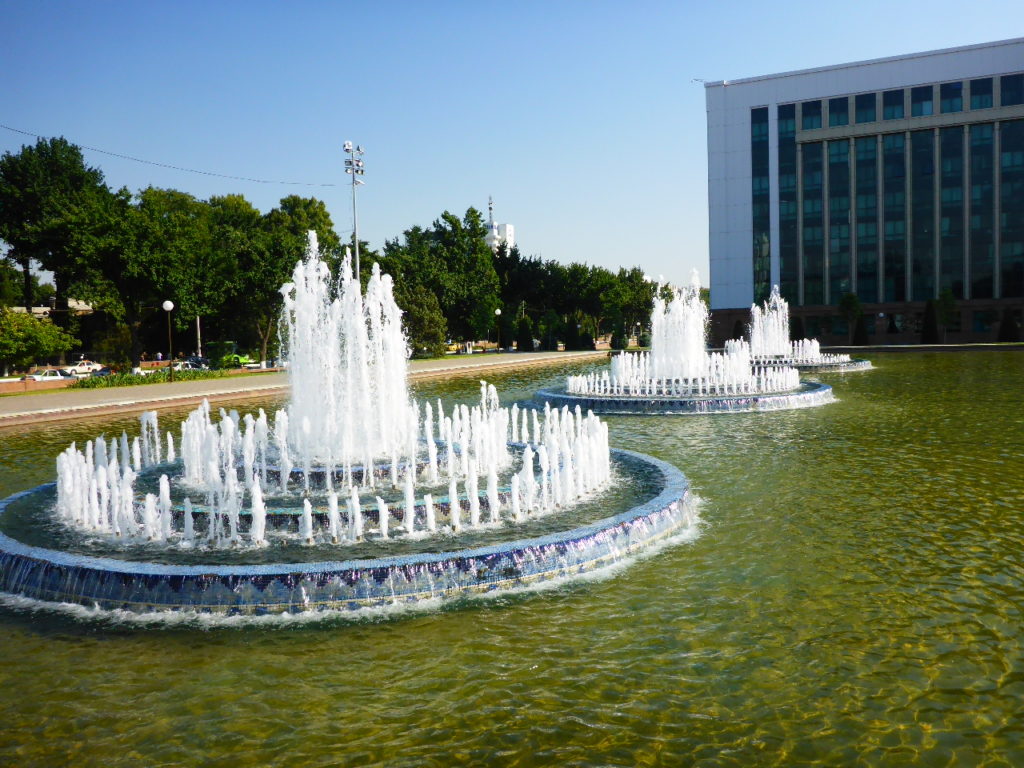
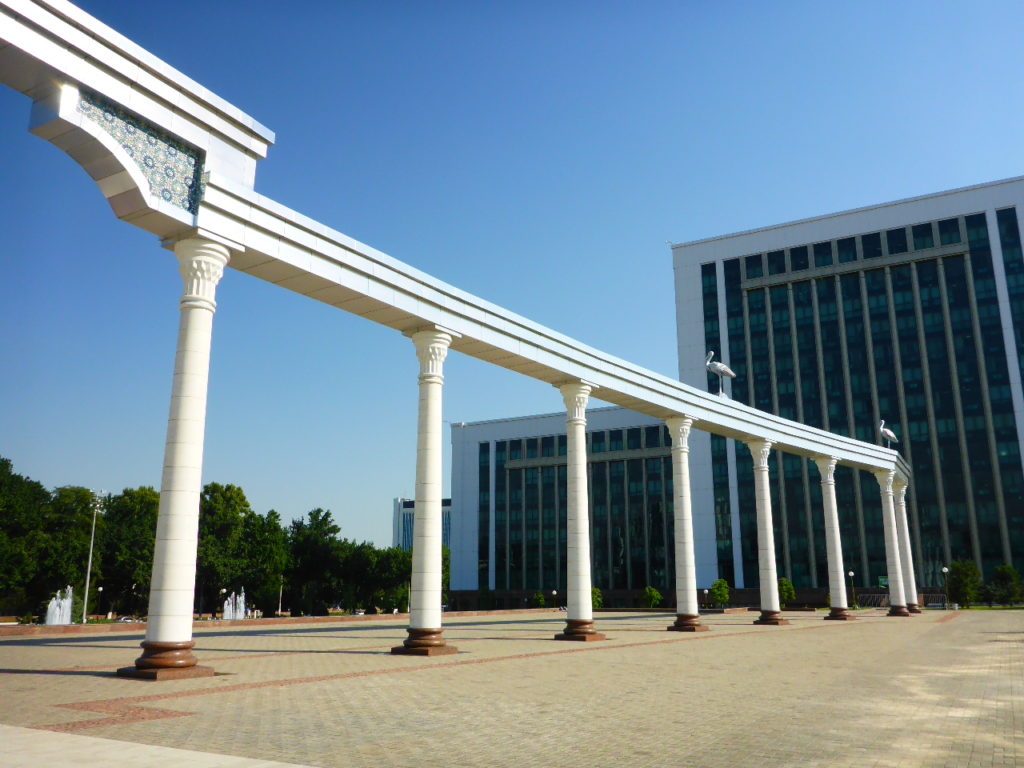
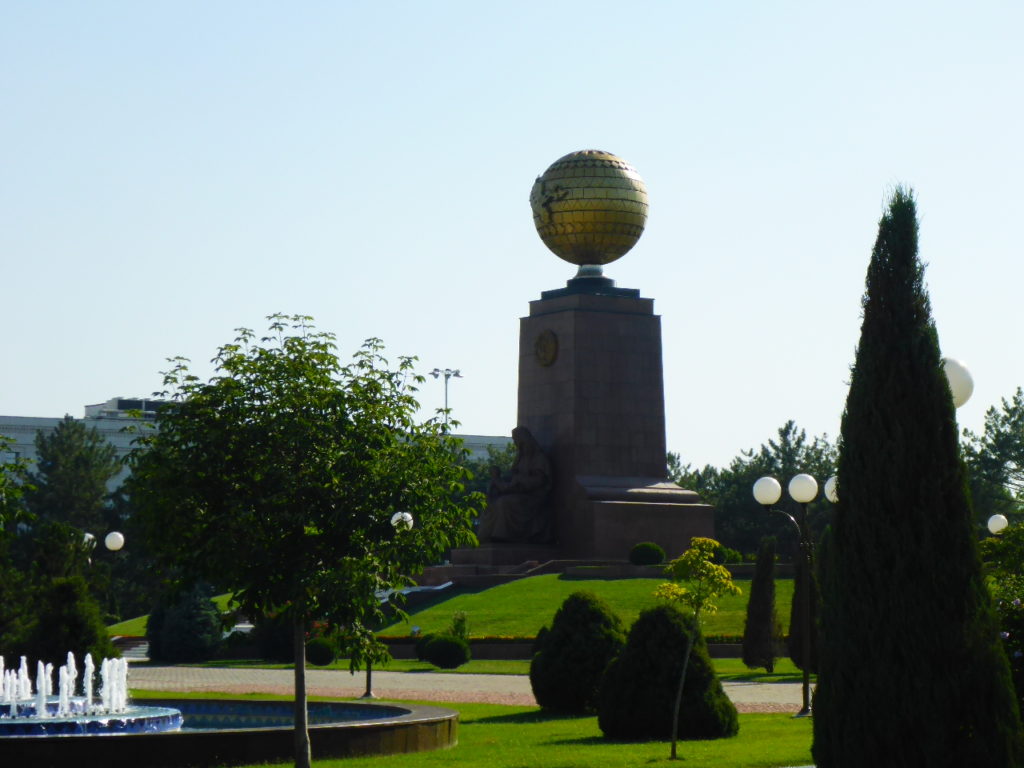
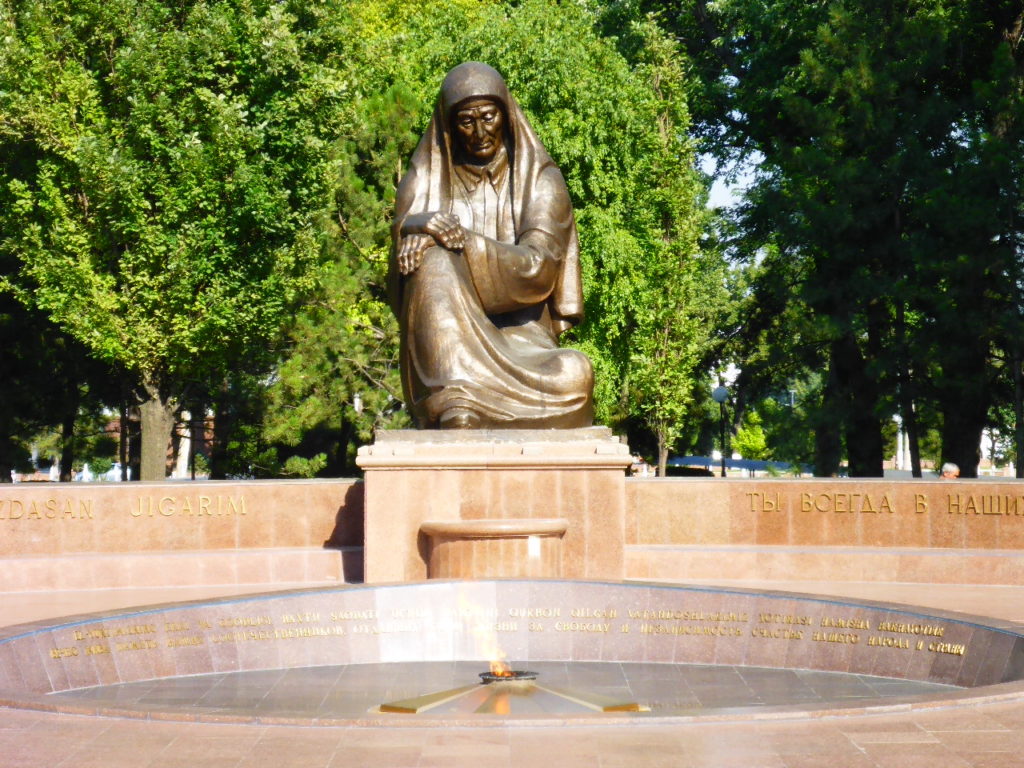
The main city of Uzbekistan is a huge metropolis with a population of over 3 million people. The city is lined with a grid of straight and wide streets and avenues, decorated with emerald green parks, gardens, fountains imbued with crystal strands… The city is a real embodiment of the modern elegance that is inherent in many world capitals. At the same time it remains an oriental city. Tashkent has its own unique flavor. It combines medieval buildings as if descended from the pages of old oriental tales, elegant European architecture from the period of the Turkestan governor-generalship, standard concrete “boxes” of the Soviet era and, finally, glittering skyscrapers of glass and concrete (modern business centers and banks). Actually this makes Tashkent sound far more interesting than it actually is and after Samarkand, Bukhara and Khiva it’s really rather disappointing but its Metro is fab!
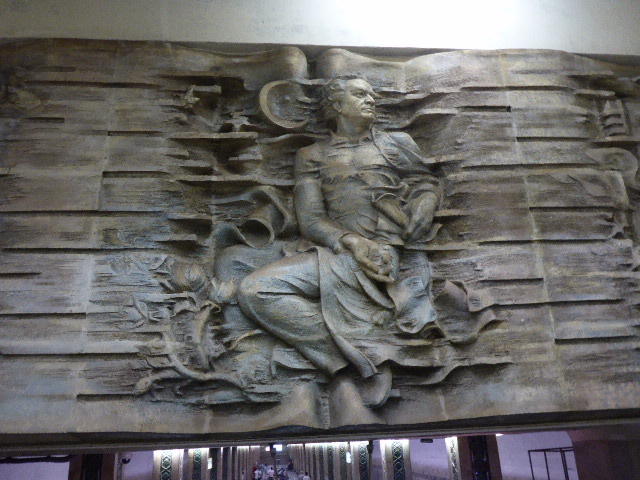
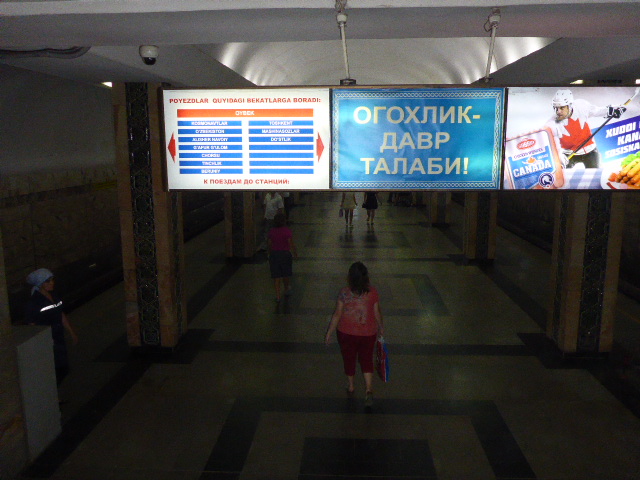
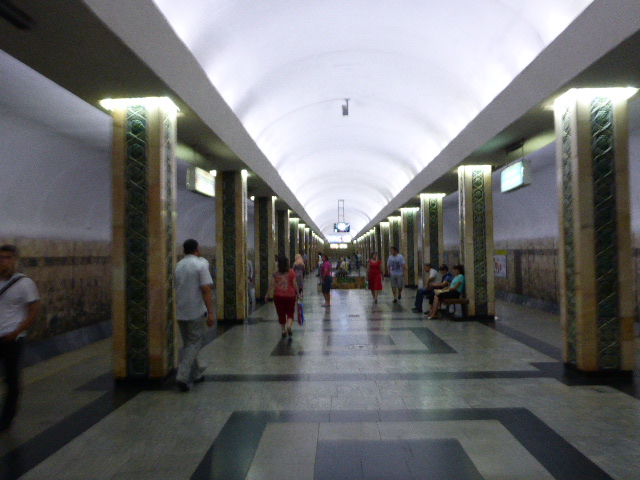
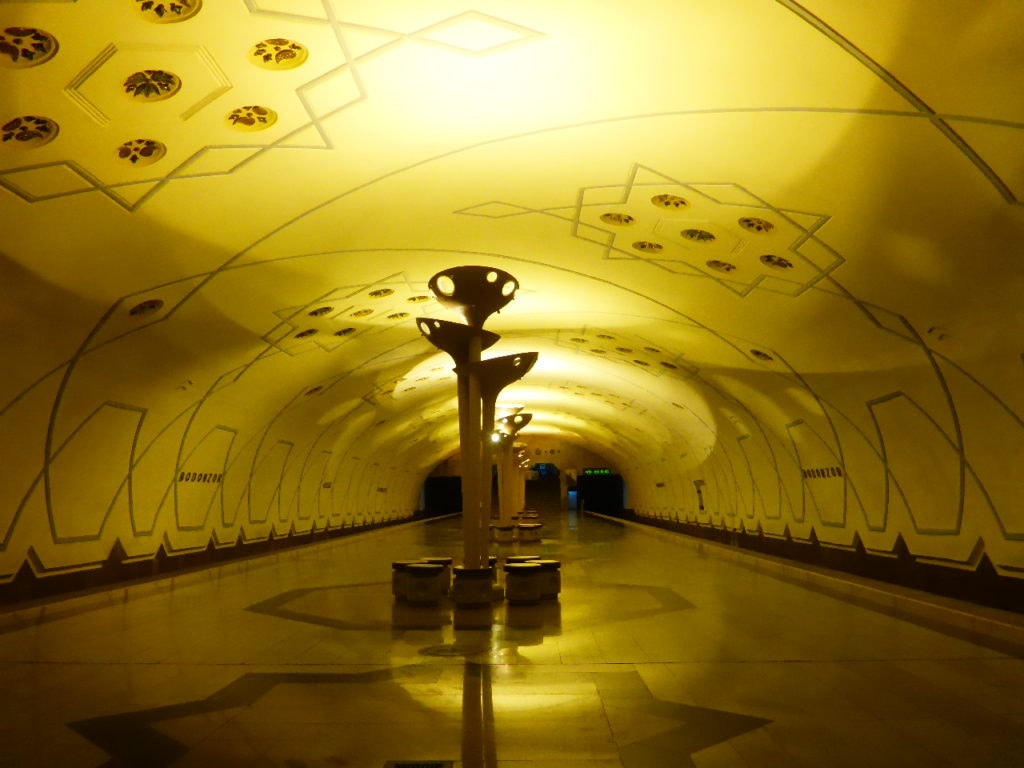
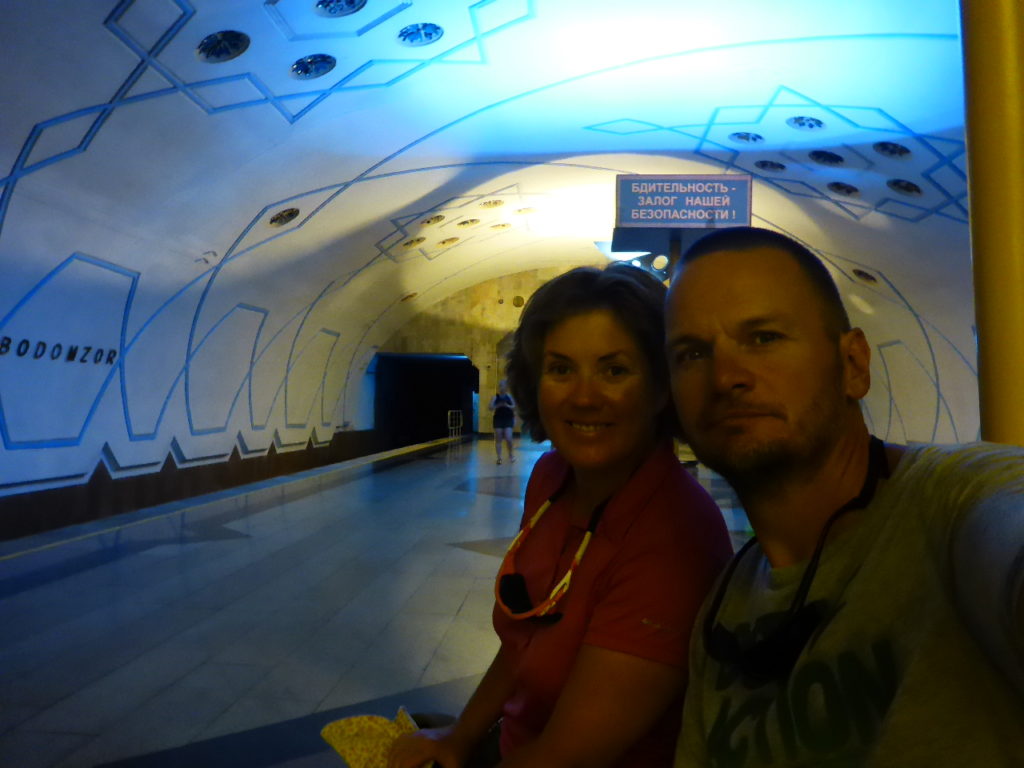
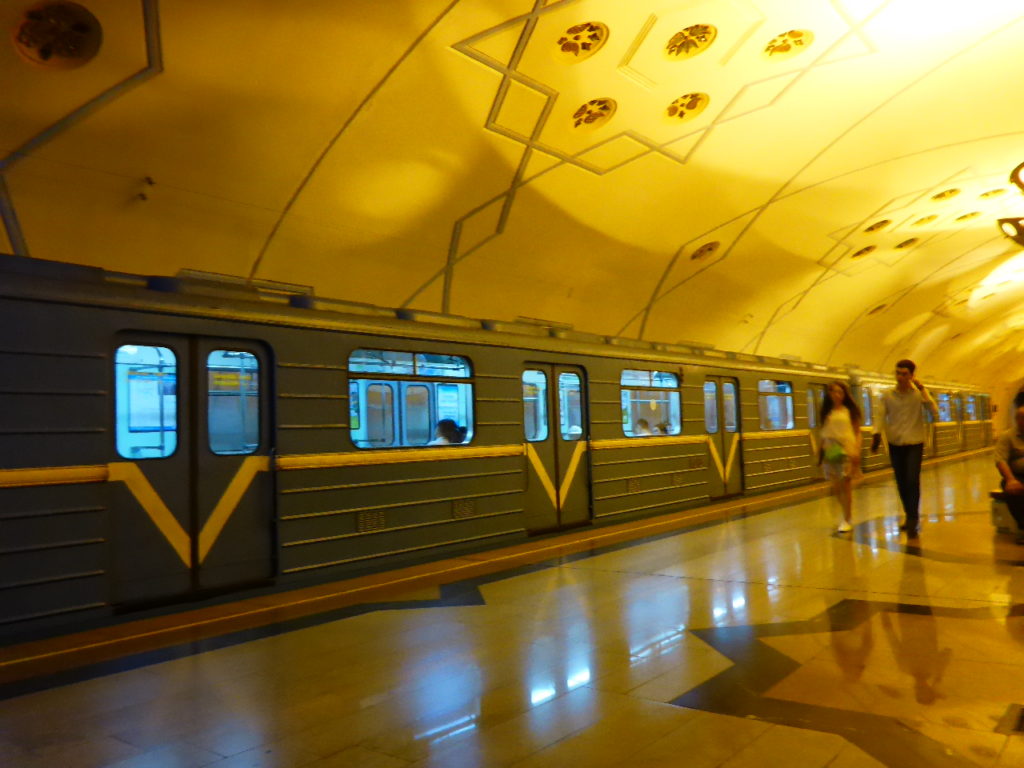
Having strolled through the Bazaar, I think we are nearly ‘bazaared out’, we wander along one of the cities canals, watching locals swimming and jumping off road bridges to the rapid brown waters below.
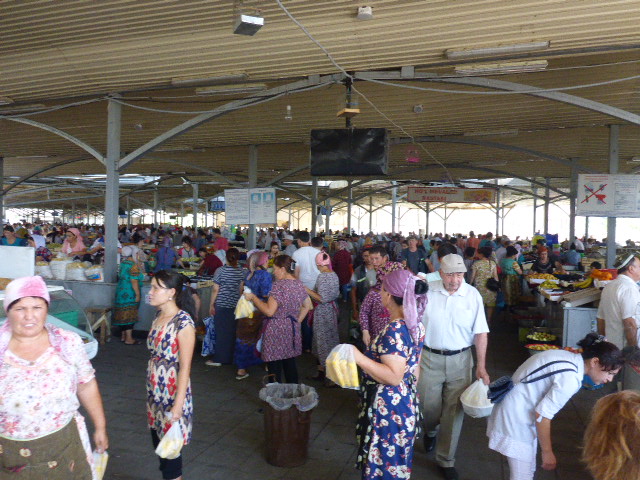
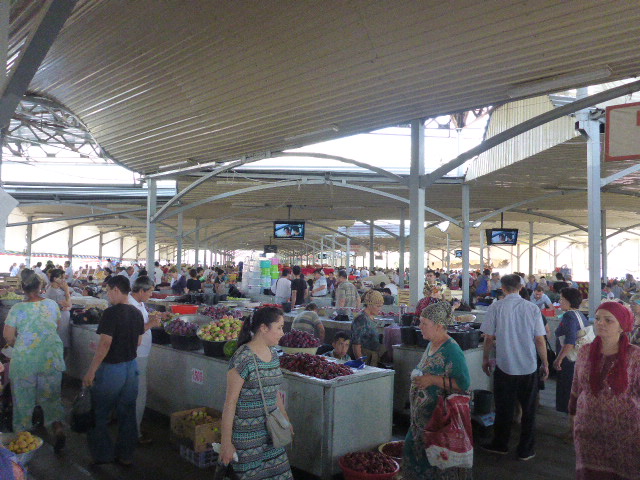
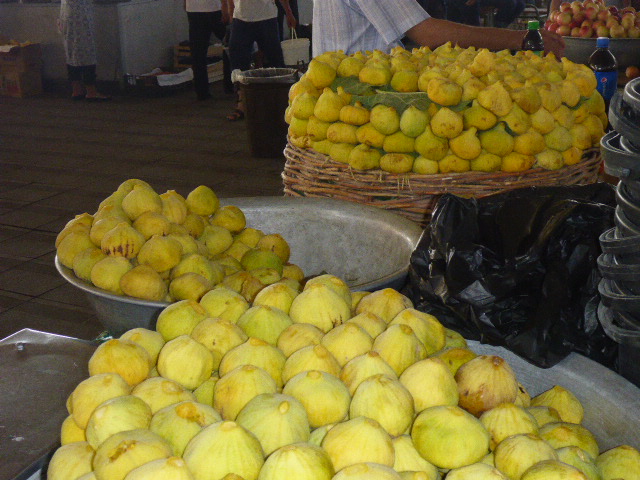
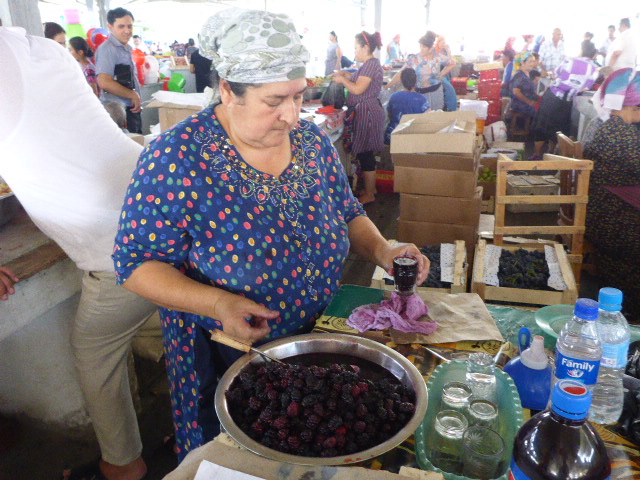
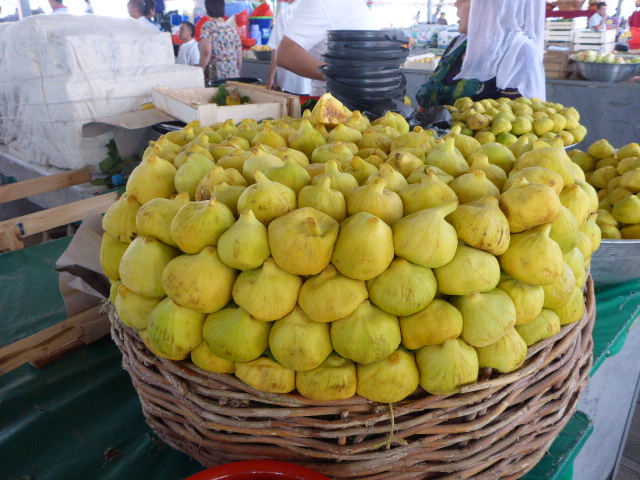
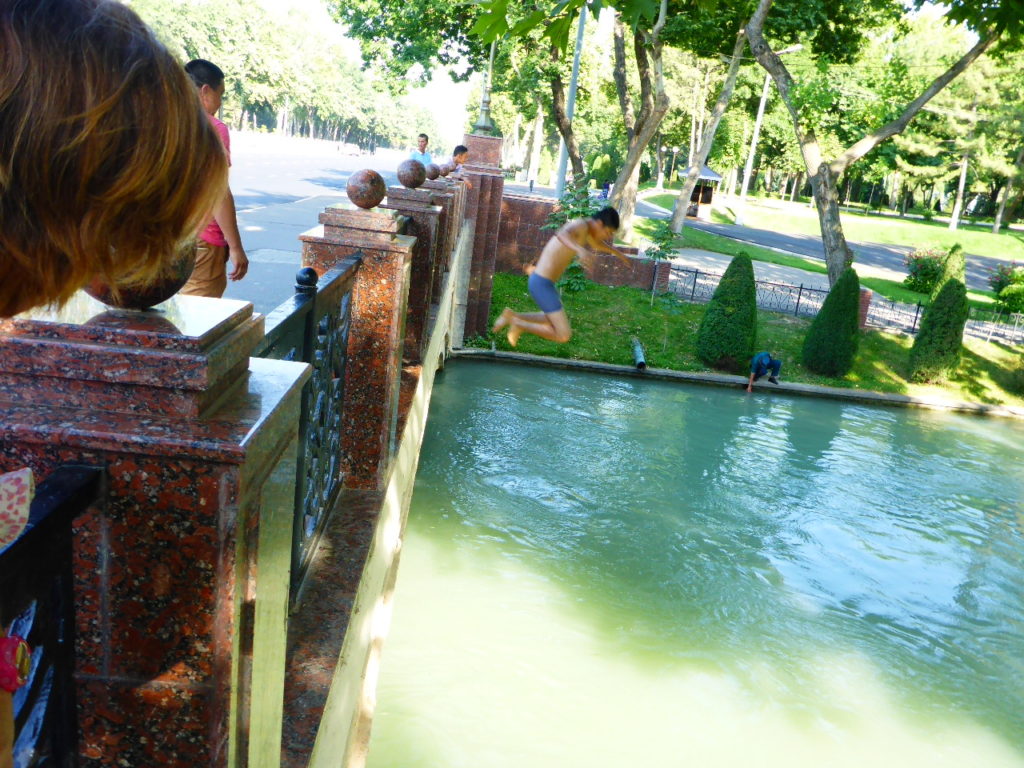
Along the way we wander through a Japanese garden where several wedding couples are having their pictures taken. Weddings are big business here and the photography sessions lengthy. Most weddings are ‘arranged’ ; the girls are still very young (19s, 20s) and invariably end in divorce where there’s no legal requirement for the husband to pay child support.
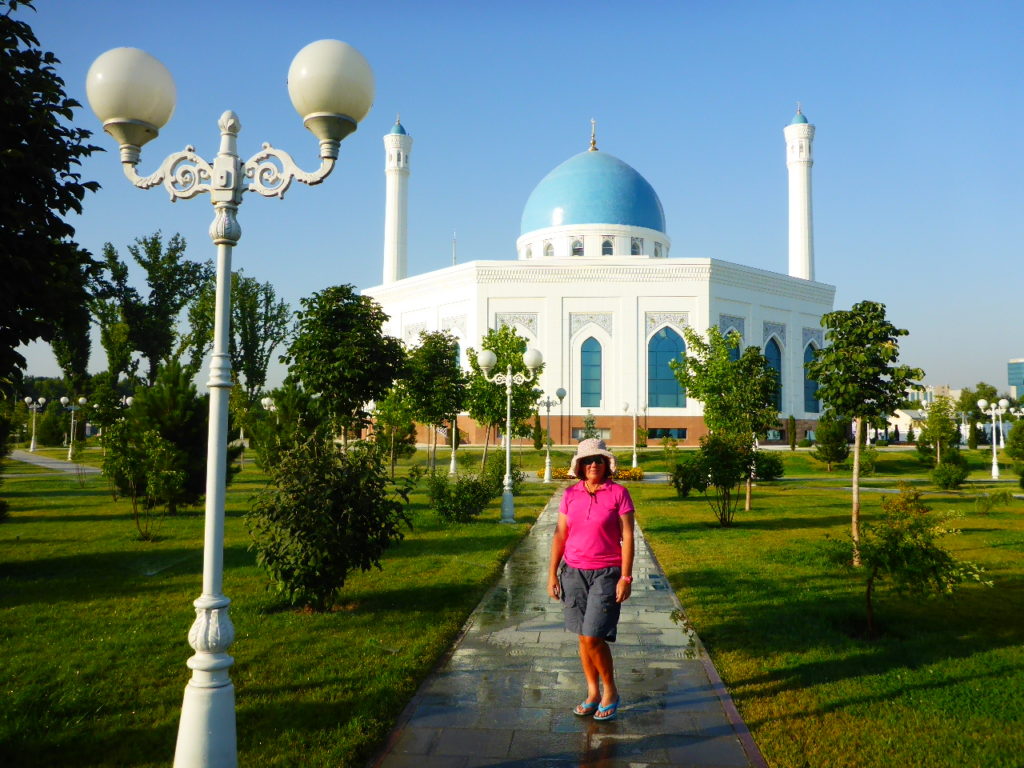
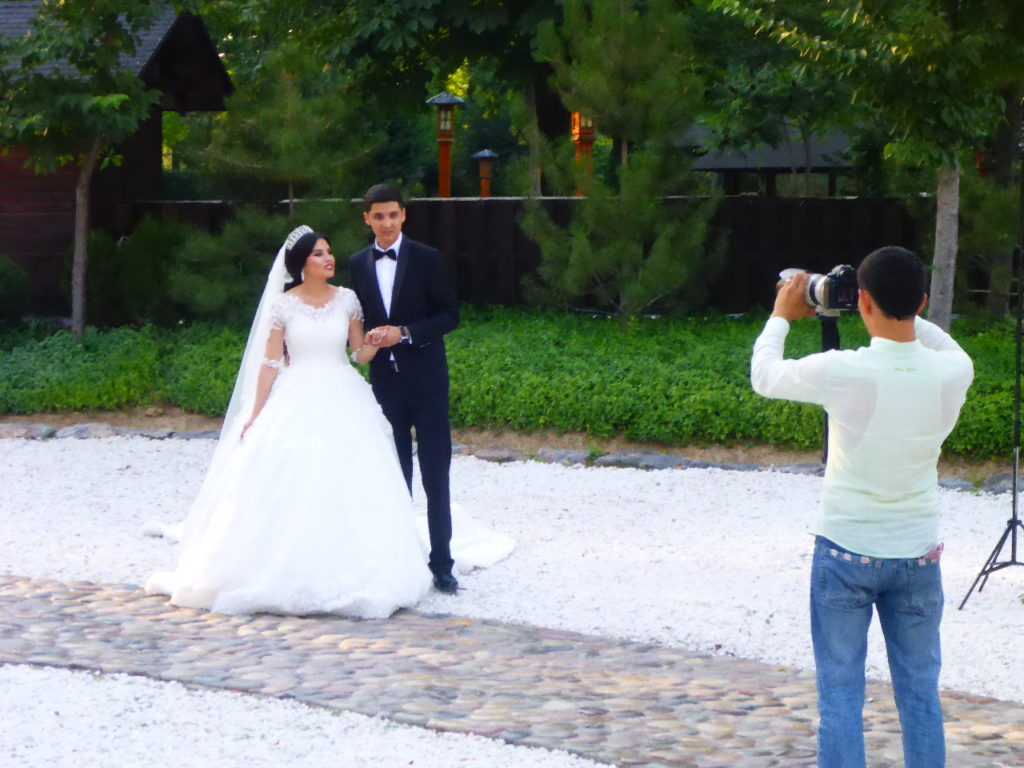
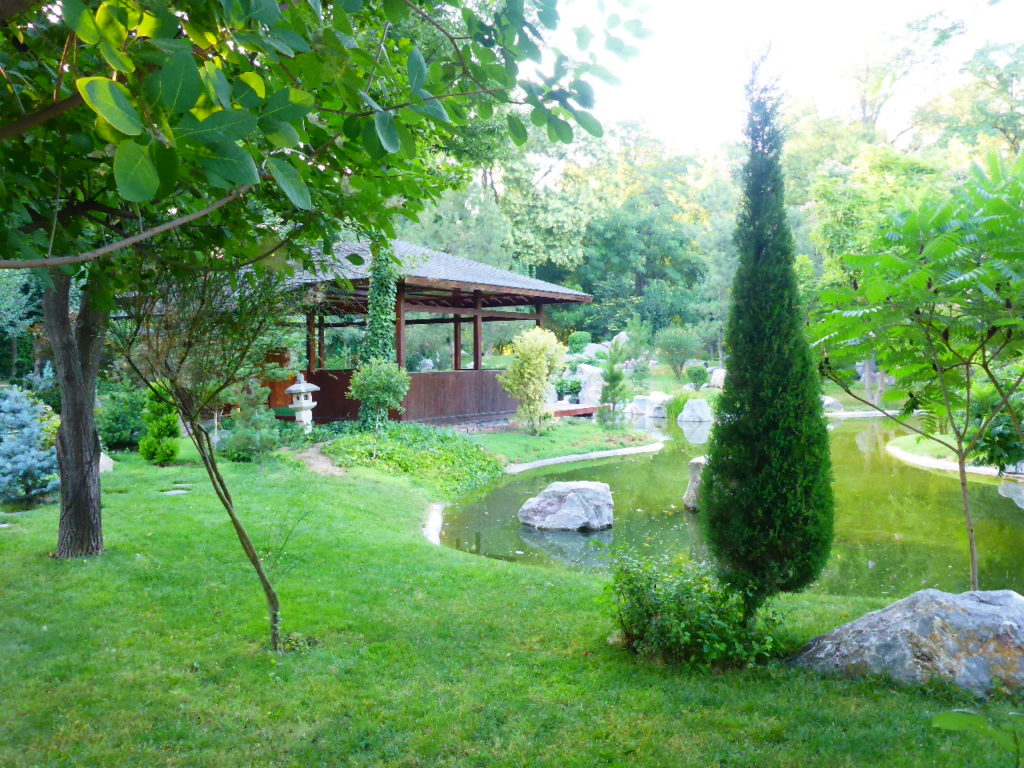
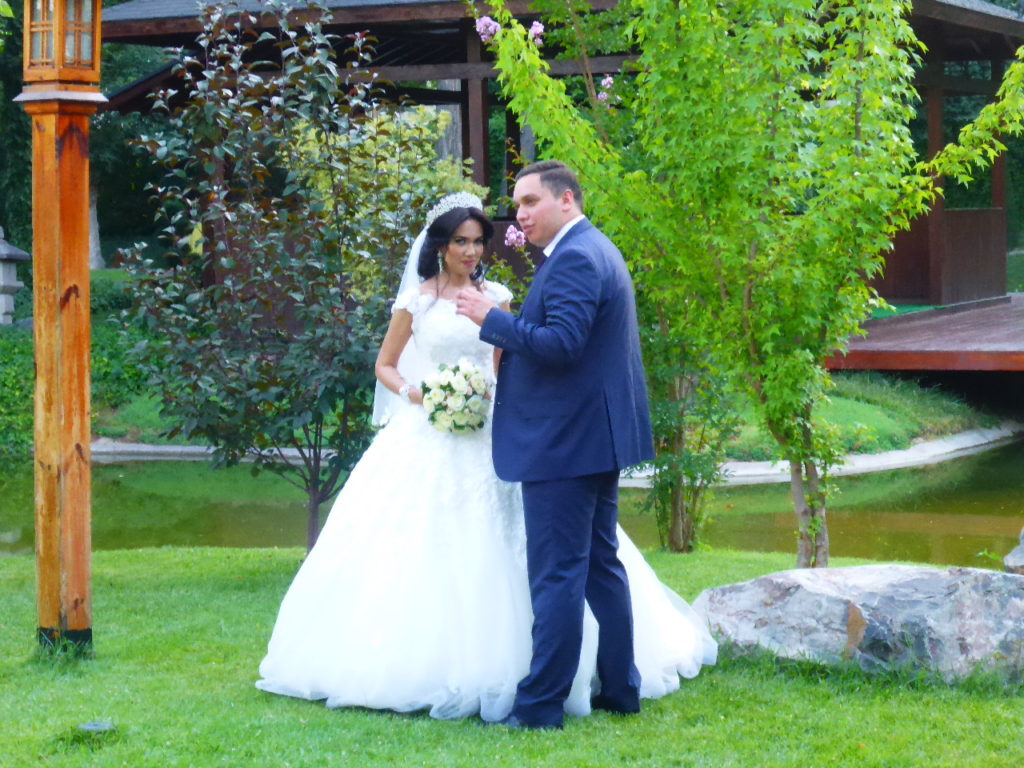
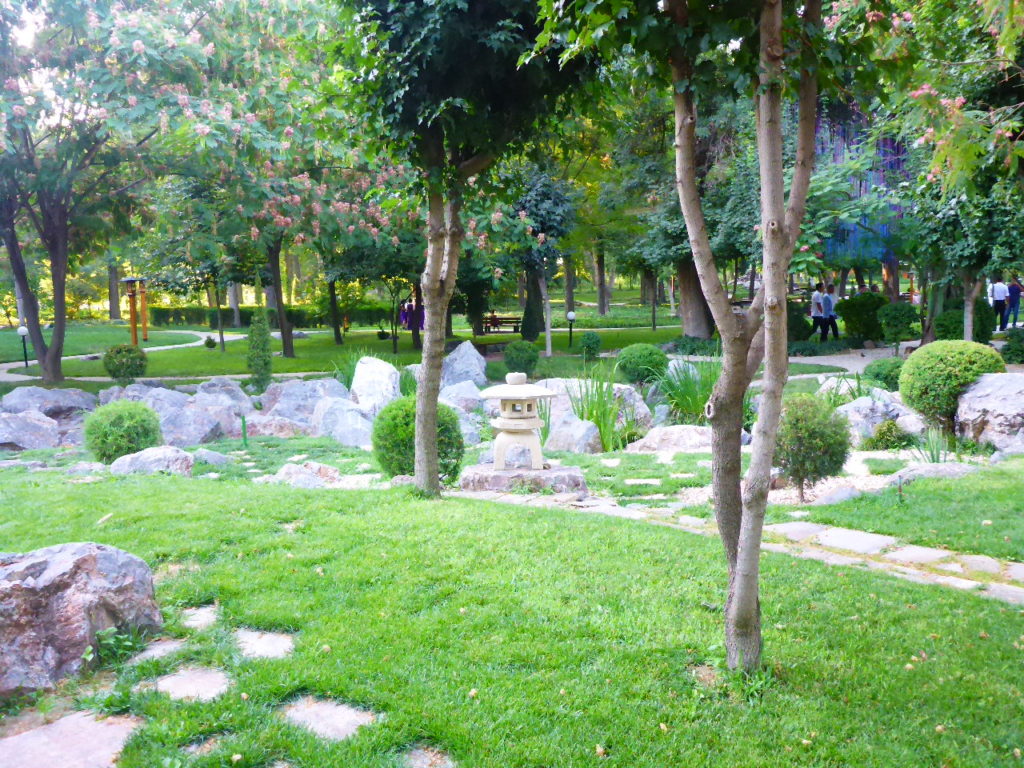
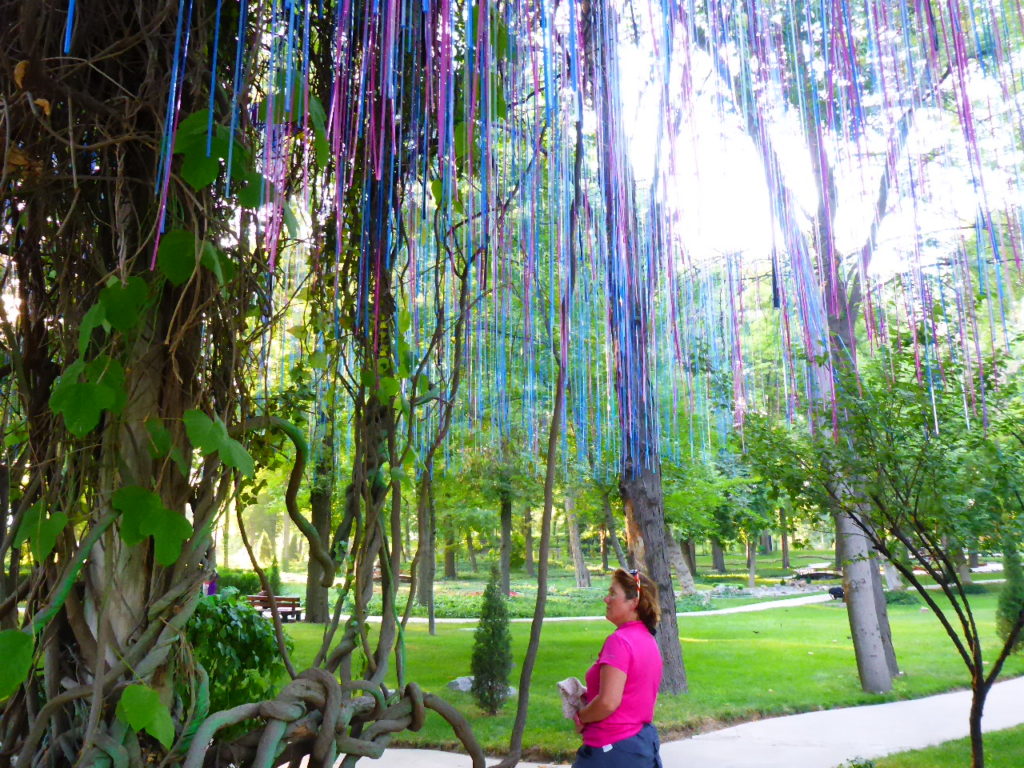
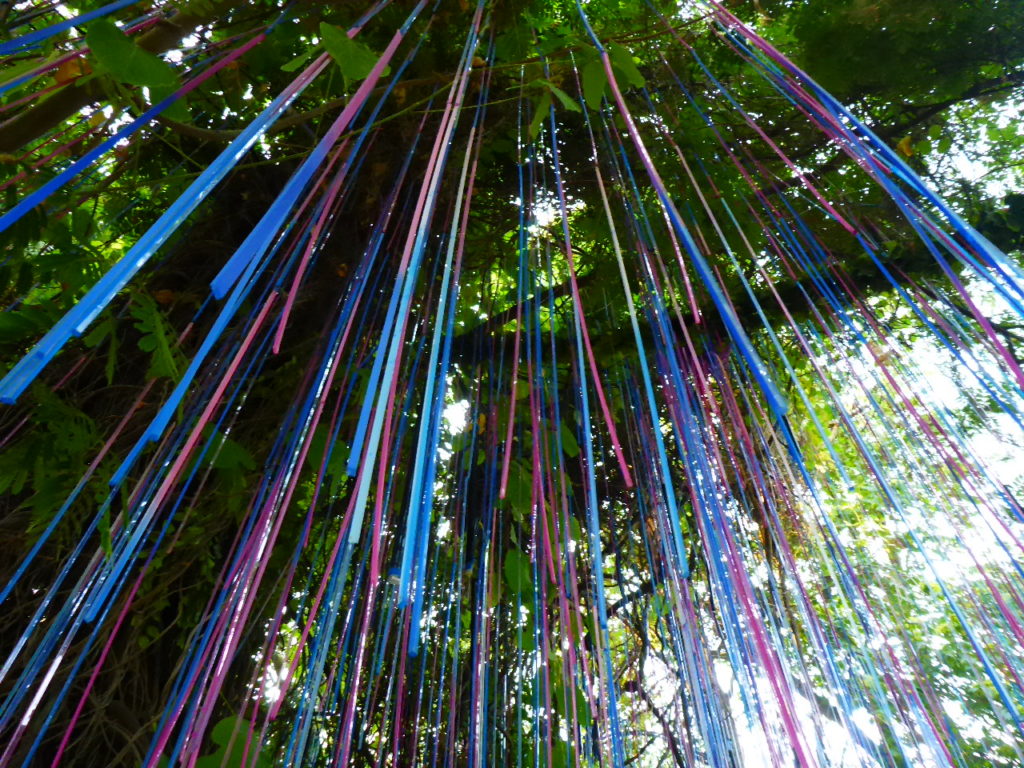
Our ultimate destination is Tashkent television tower – the largest broadcasting center in Central Asia. It’s also the highest structure in Central Asia. Its height is 375 meters. Apparently a popular tourist attraction but with access to the lowest level only, it’s rather anti climatic.
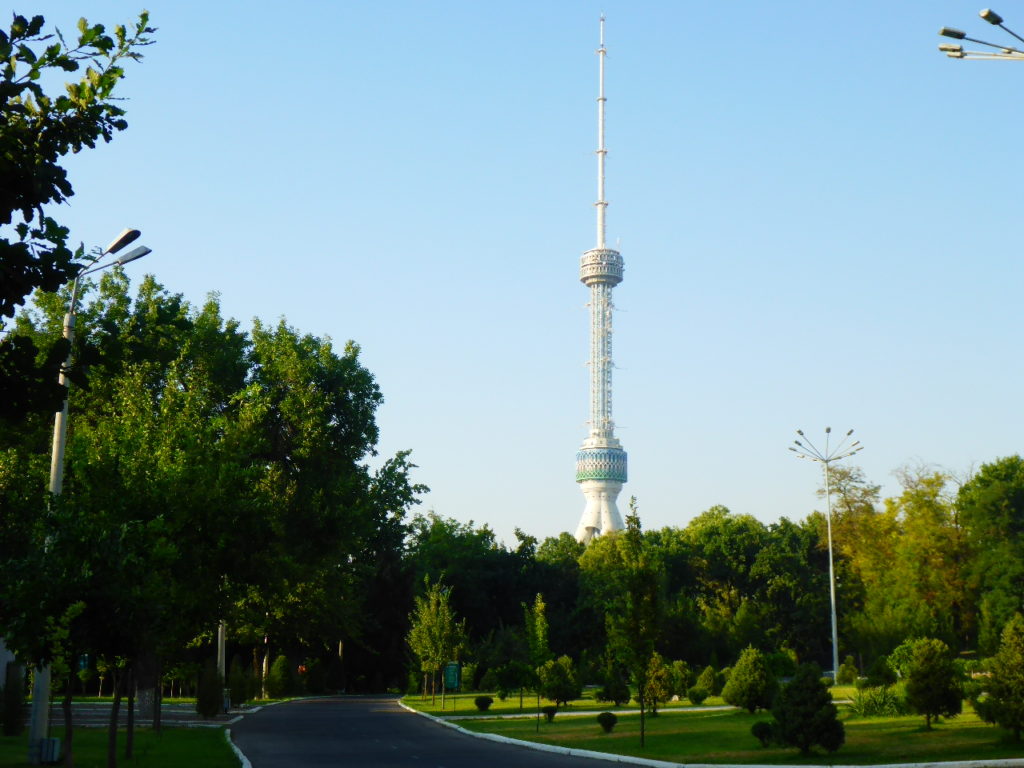
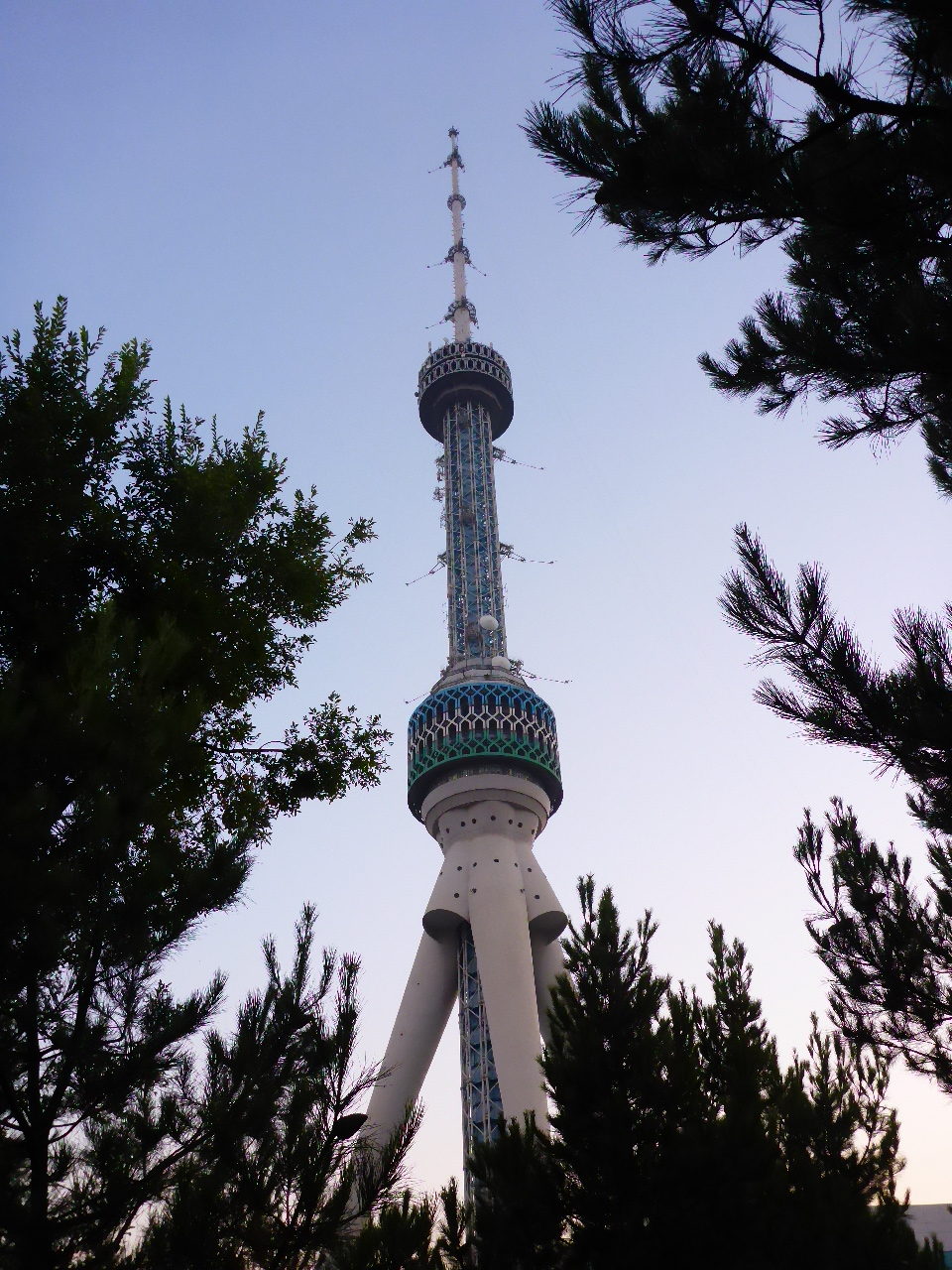
We’re escorted by an English speaking guide who is very, very happy and enthusiastic. He effuses joy and an honest love for Tashkent whilst I effuse an equal amount of irritation and oozing resentment that I must tolerate such boundless happiness when I’m hot, tired and unimpressed by Tashkent ‘pants’ TV Tower (especially as we’re practically strip-searched, have all our electronics confiscated and have to show our passports for the ‘excursion’!)
It’s early evening and we think we’ve seen enough. But we decide on a last stop at the 5 star Grand Mir Hotel for a celebratory birthday drink. What ensues should’ve been funny and is not unusual in Tashkent. We read the drinks’ menu. Ummmm a G&T. We watch the bar staff (yup 3 of them) heads together in this monumental task. After a lengthy wait, the waitress heads over with 2 glasses each containing about an inch of fluid. Daz takes the glasses back to the bar requesting more tonic and ice. Ha ha – they can’t give us more tonic because there isn’t any. What they’ve served is straight gin. But they really want to help and so offer Gin and sparkling water. It’s now becoming a little heated. The barman expects us to pay but Daz says he hasn’t got what he ordered. We later learn that the British Ambassador has had to educate the Hyatt Hotel about ‘tonic expectations’ from foreign visitors!
Sunday 9th July
Tashkent to Samarkand by train
A late start today and pancakes for brekkie. Andy has been cooking! Yummy! Later he takes us out for a final stint of sightseeing. We visit the Museum of Repression and the Orthodox Christian Church which are both very interesting.
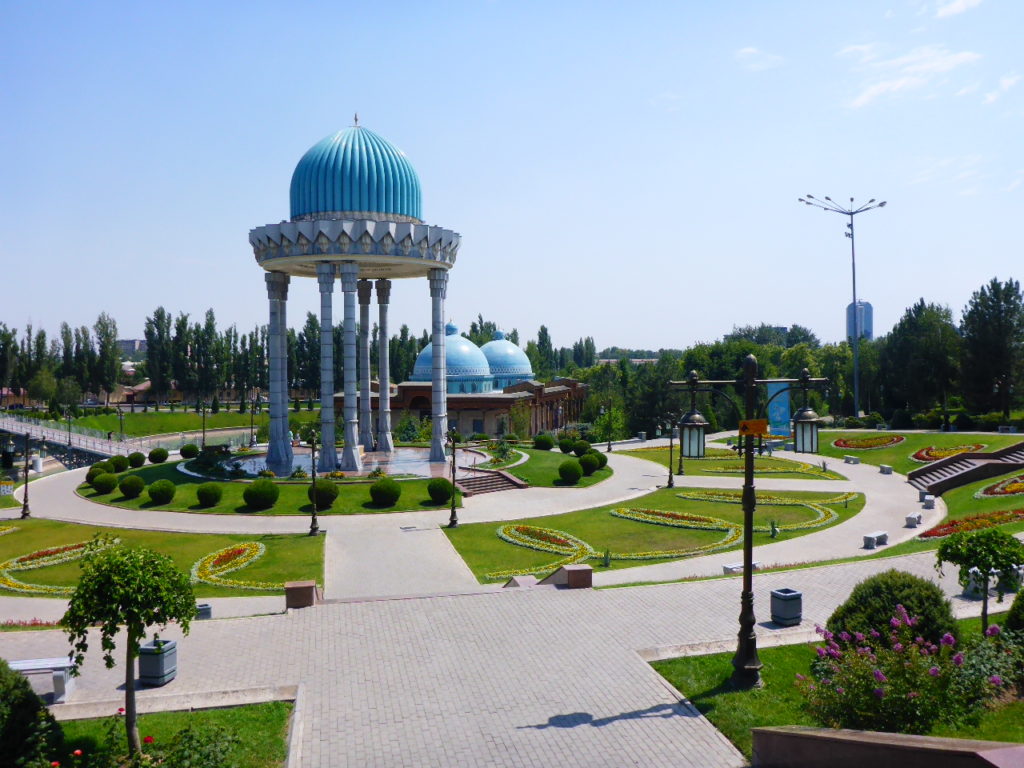
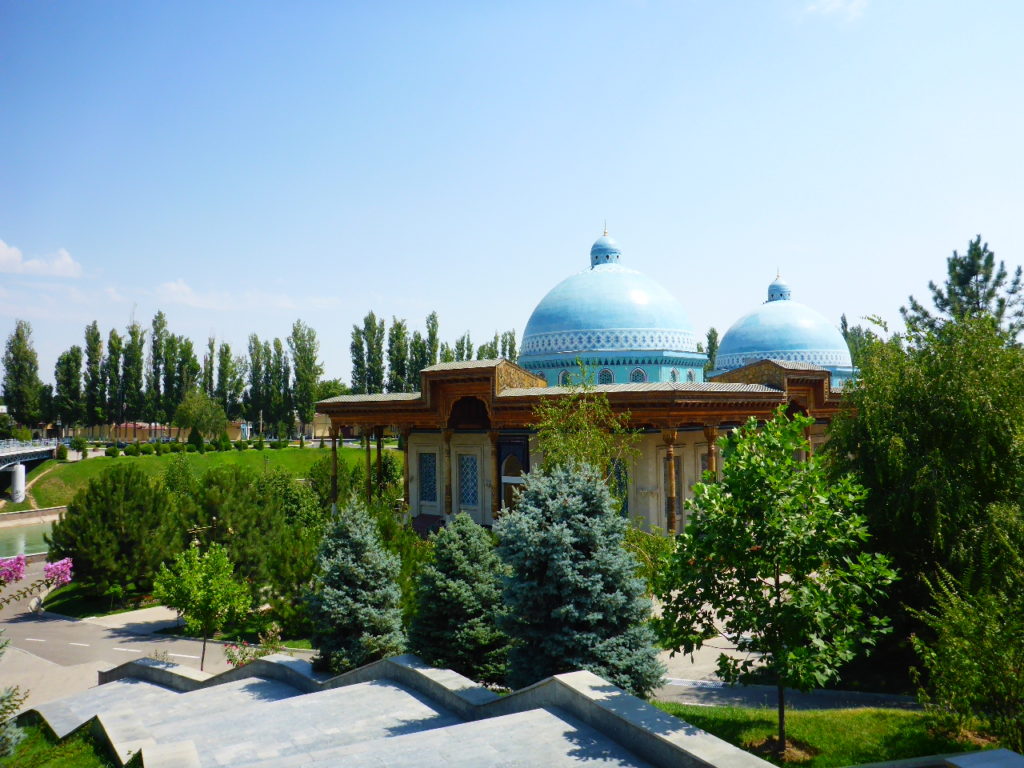
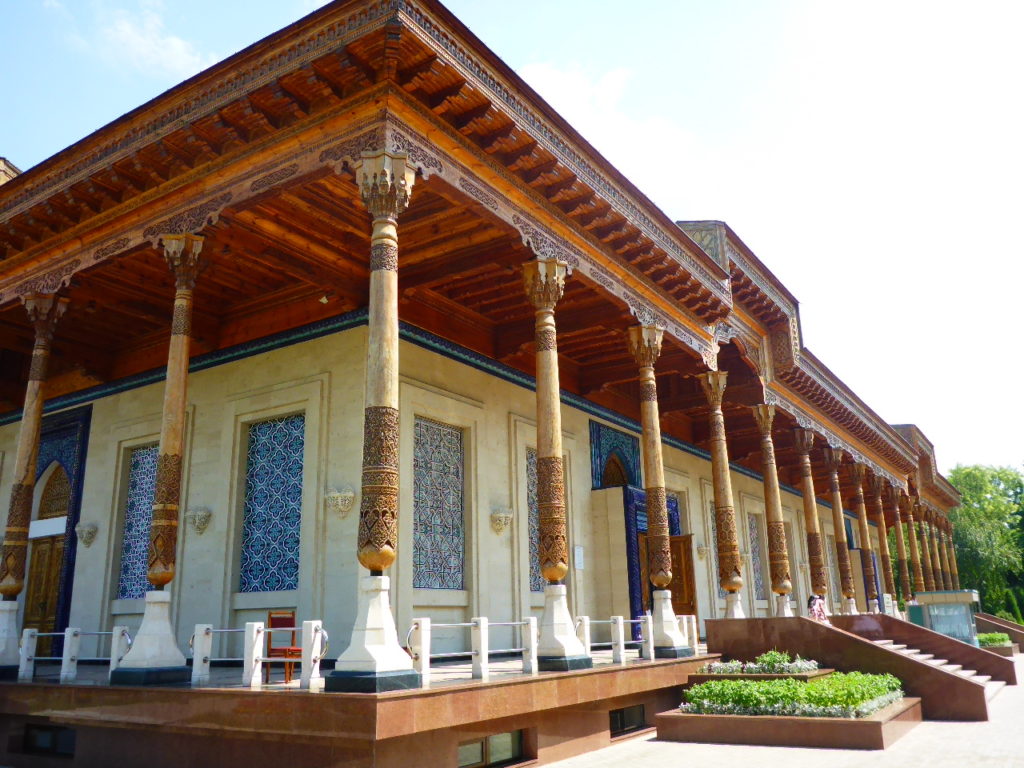
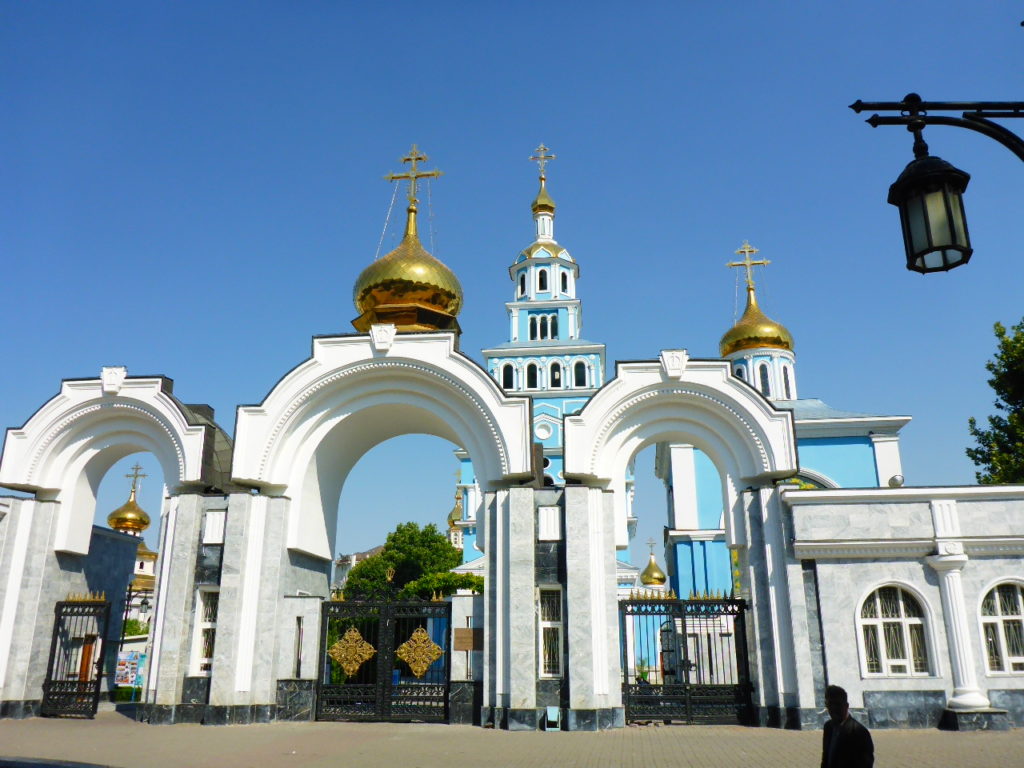
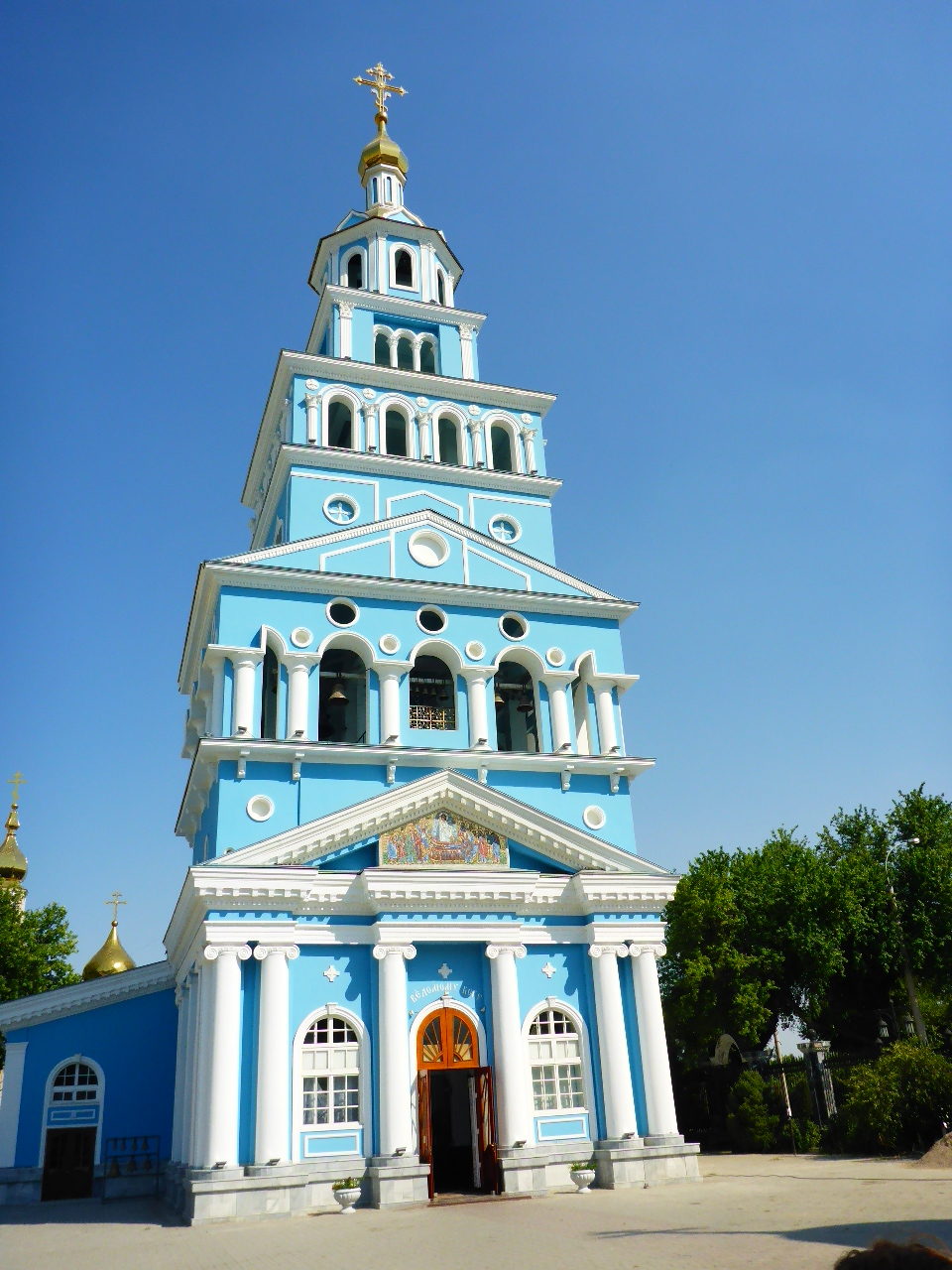
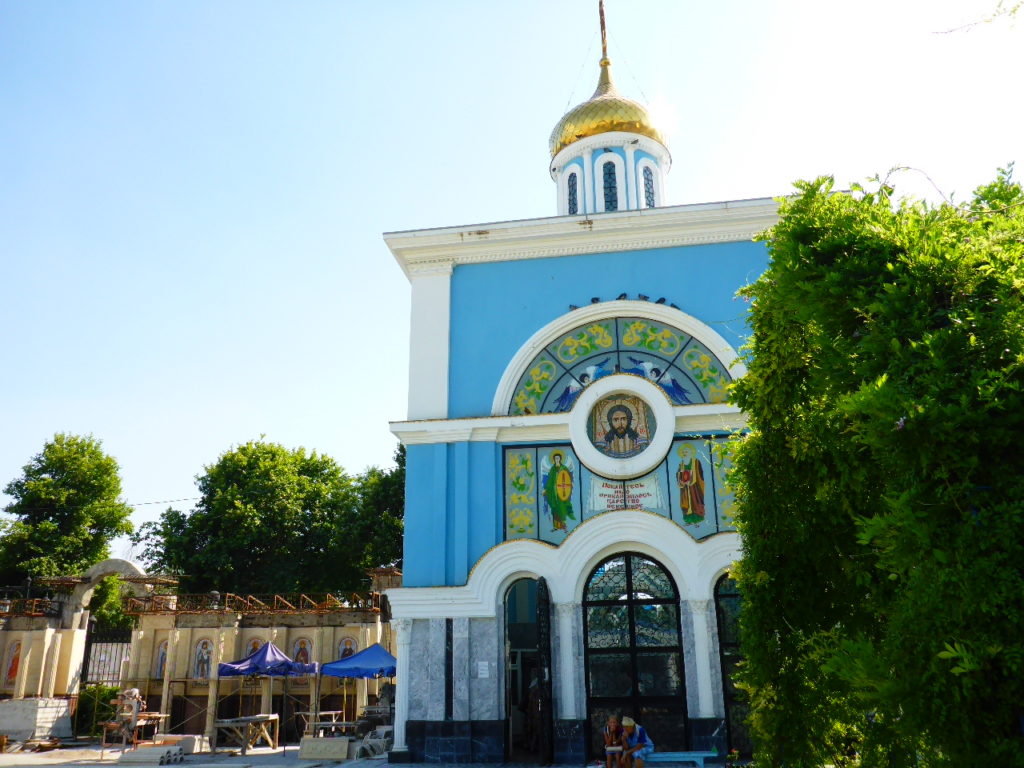
We also stop for lunch at a Turkish restaurant. It brings back fond memories of the food we enjoyed in Turkey. Later Andy takes us to the train station for the 1850hrs train back to Samarkand. Andy’s been a great host and we’re glad we had the opportunity to see Tashkent. We’ve found a plan B for the undelivered parcels. Andy will redirect them to Astana Embassy, Kazakhstan but because we’ll be using the BFPO service, the parcels will have to go back to the UK first. It’ll be September before we get to Kazakhstan so we’re confident this is enough time!!
Our return train journey is on the fast train. Only a couple of hours and well air-conditioned, comfy seats and even a snack and drinks service. Back at our hotel and time for a good night’s sleep because tomorrow we’re back on the trikes.
